
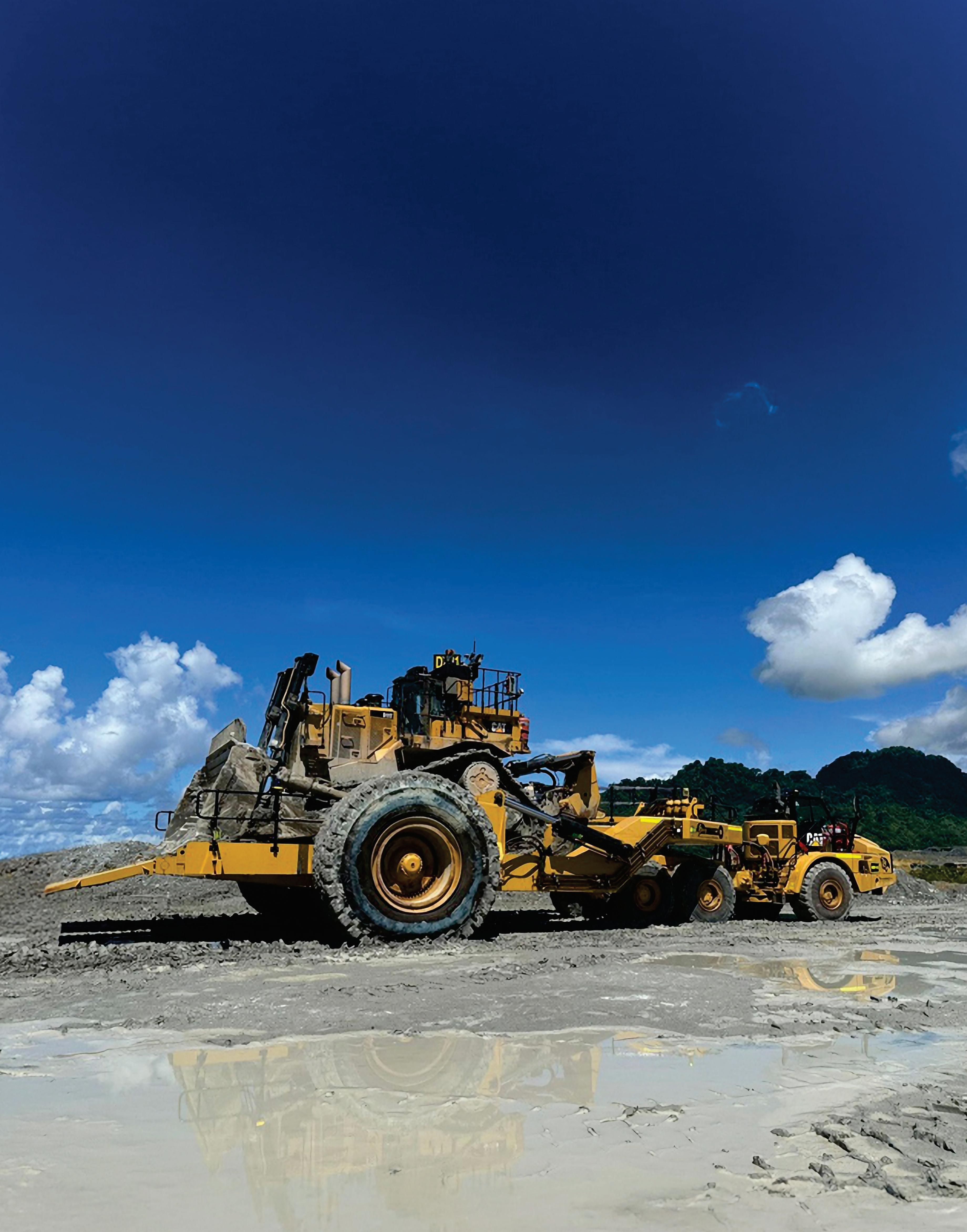



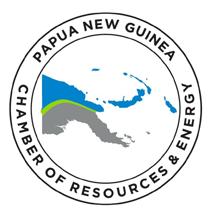


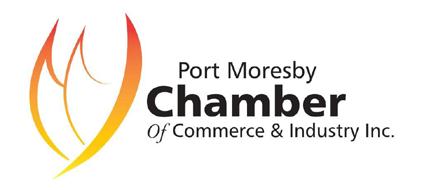
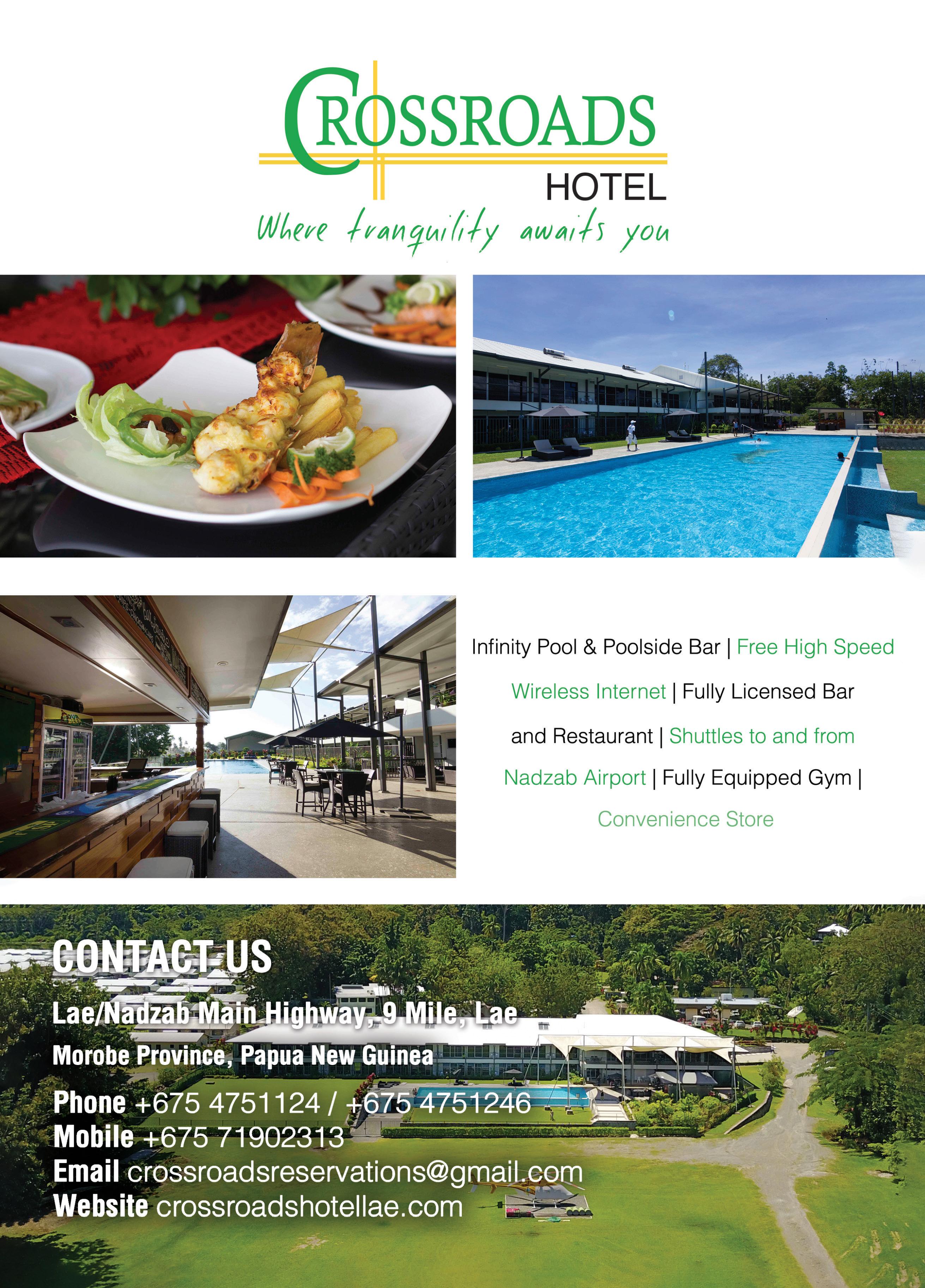
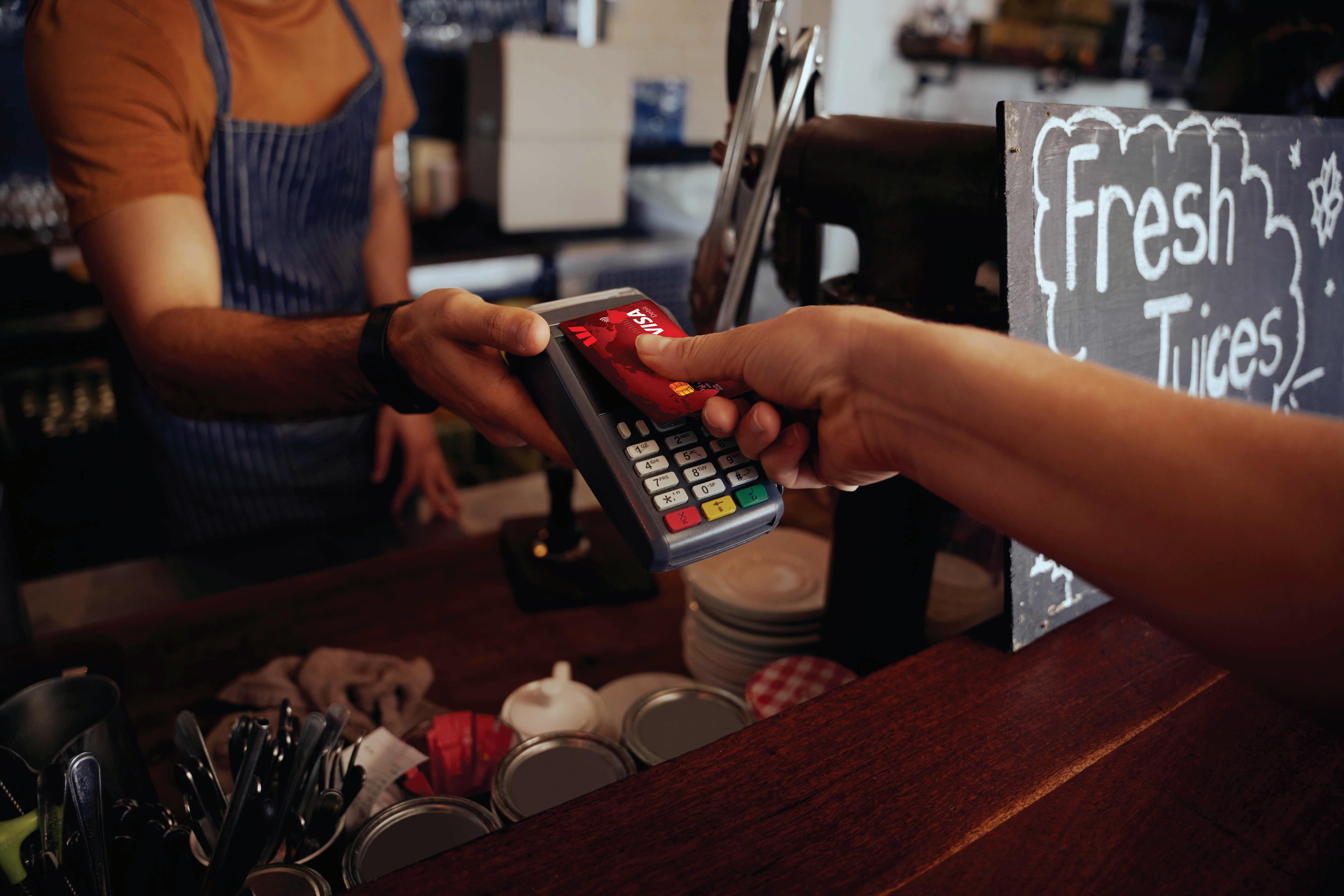
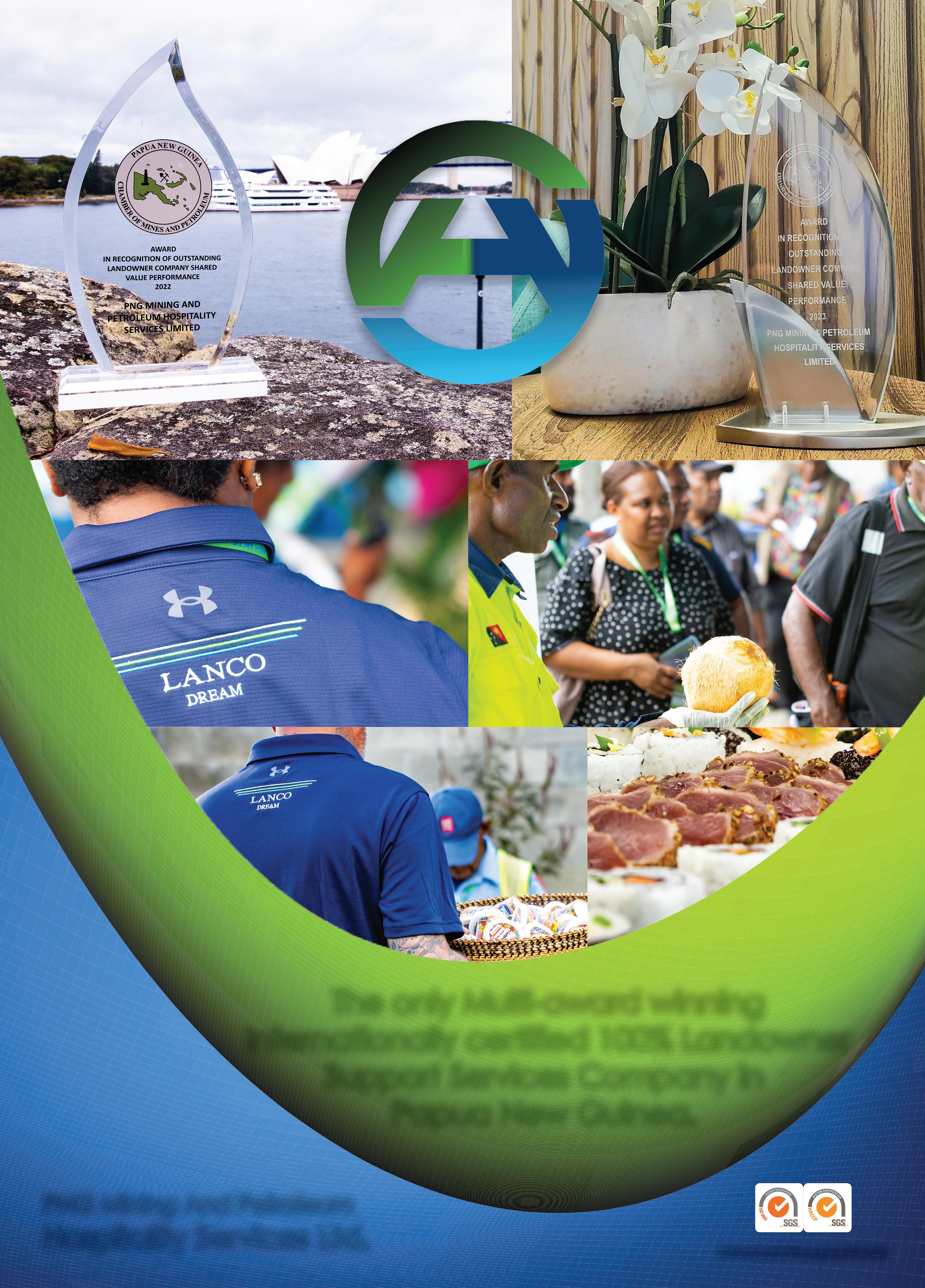



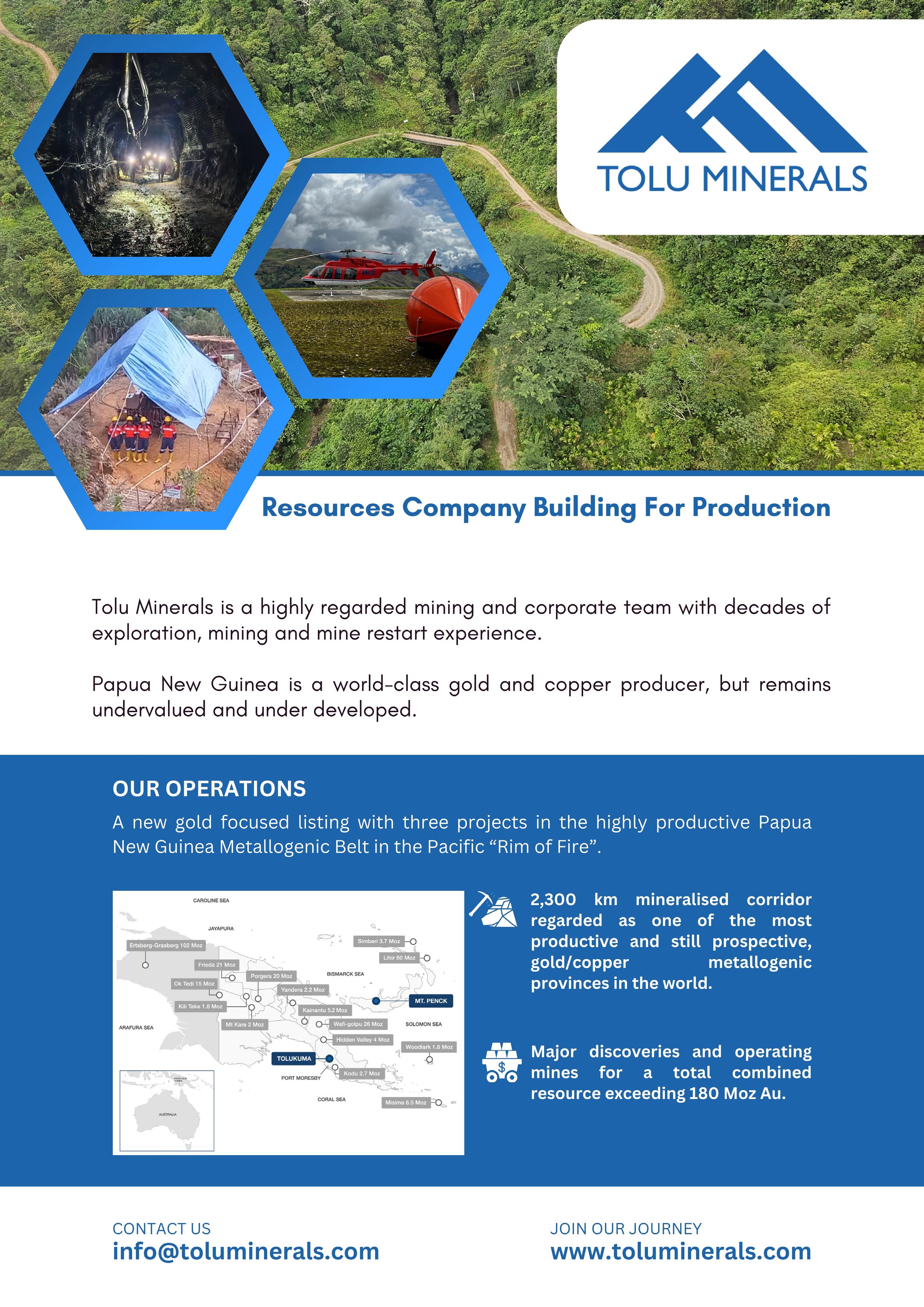
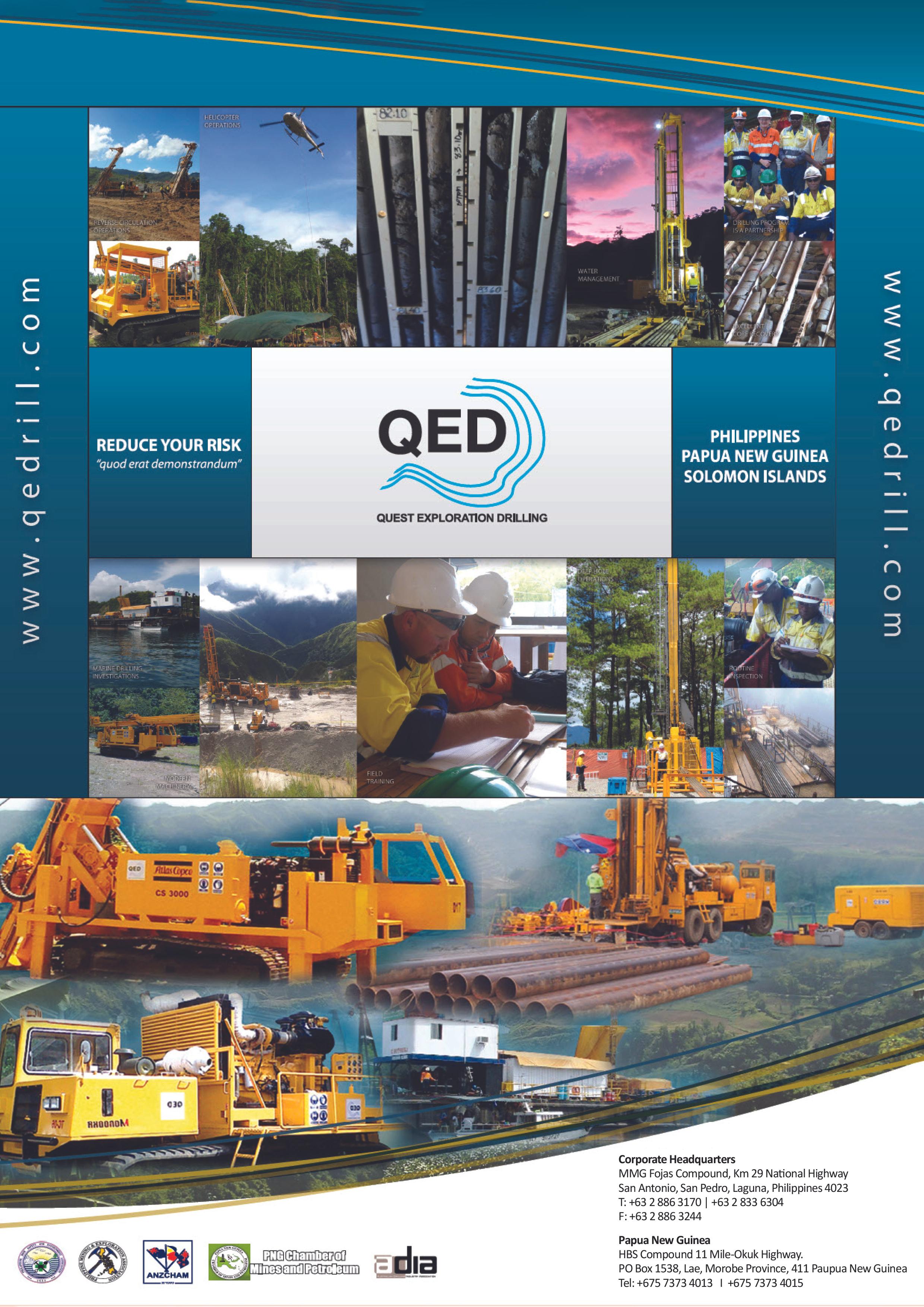
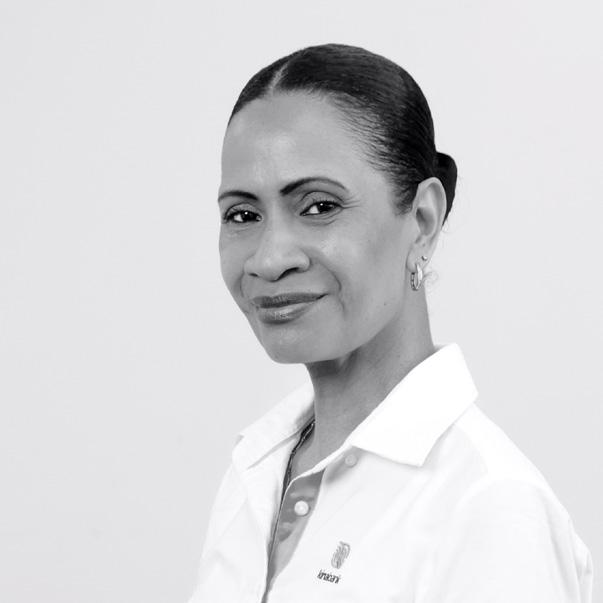

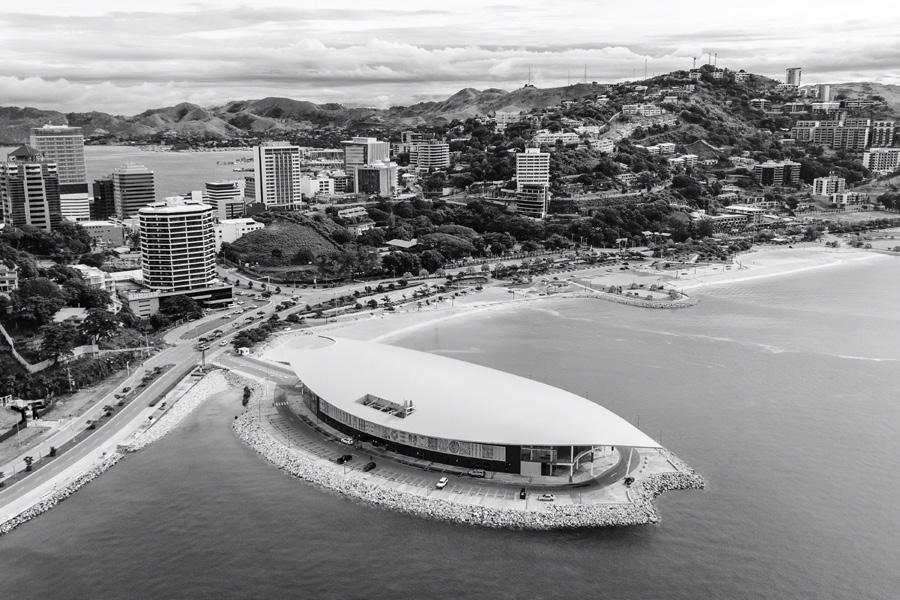

























The National Petroleum Authority and Administration of Petroleum Resources by Governments > 10
Marape Welcomes New Australian High Commissioner McDonald > 28
Maru Welcomes Koegler, Austria Eyes Strategic Investments in PNG > 30
Century Peak Holdings Expands Investment Plans in PNG > 30
Datec-backed PNG Technology & Innovation Summit 2025 Sets Milestone in Country’s Digital Evolution > 32
PM Praises EU Partnership at Europe Day Celebration > 34
DoWH Updates on New Southern Corridor Road Links, Hiritano Highway > 36
EastWest Transport, PNG Customs sign MOI > 38
PNG Proposes Comprehensive Economic Pact to Japan > 40
PNG CORE Supports Global Call to End Plastic Pollution > 42
PNG Ports Sets Major Upgrade Program > 44
DoWH, DLPP Sign MoU for Road Projects > 48
PNG Launches 2nd SEZ Summit with Anchor Sponsors > 50
Steamships, Tininga Break Ground on Dobel Central > 56
NTC OKs Steamships’ 3-Year Training & Employment Plan > 58
PNG Joins International Tunnelling Group After 50 Years > 60
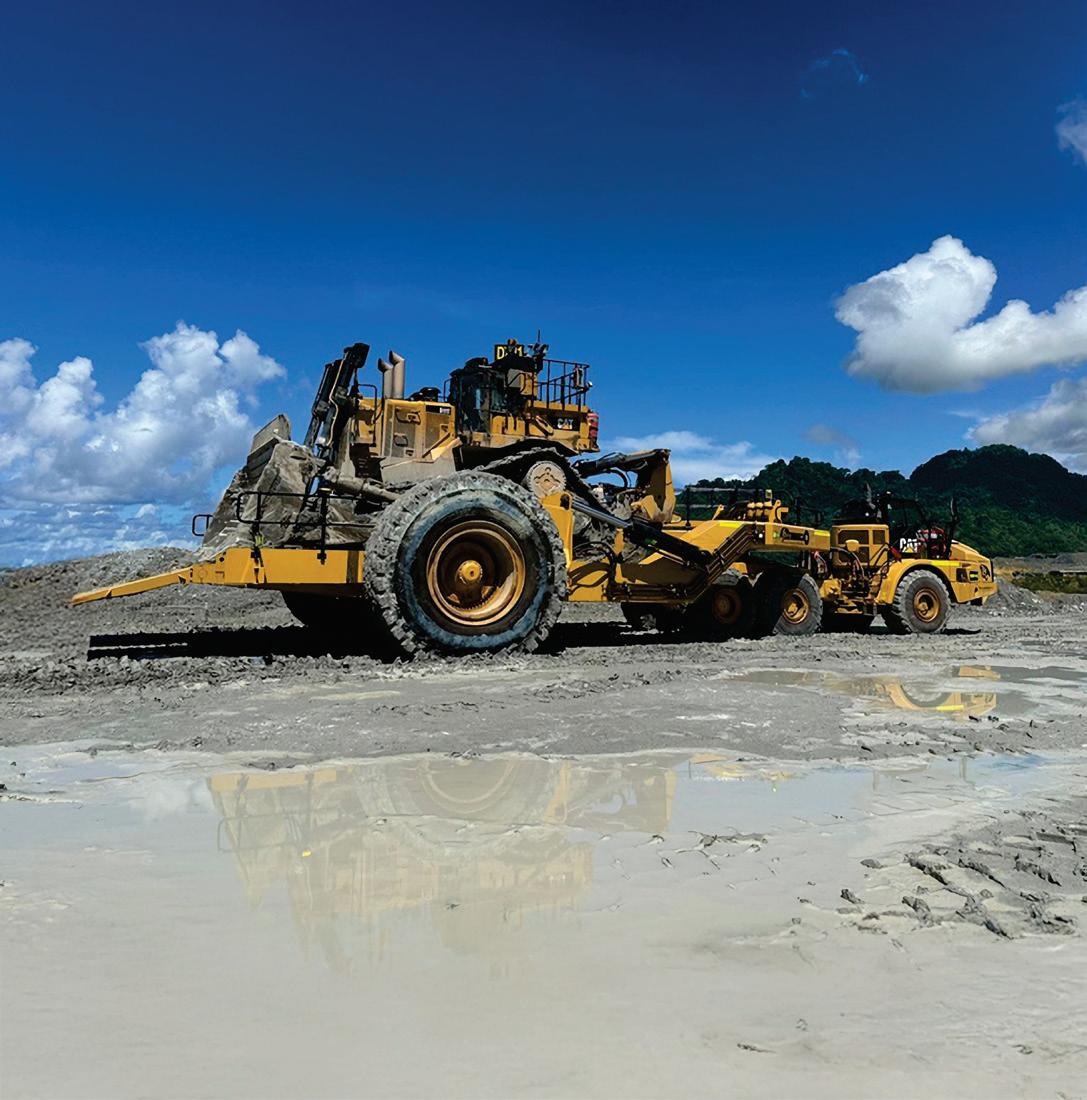
ANZ Economist: PNG Economy on Track for Strong Growth > 62
Great Pacific Gold Starts Drilling at Wild Dog > 68
K92 Mining Reports Strong Q1 Results at Kainantu > 70
Japan’s Nittetsu Eyes Investment in PNG’s Copper, Limestone Sector > 72



MP Goi Sets Final Mining Tenement Approvals > 74
Ok Tedi Announces ‘Exceptional’ Q1 Performance > 76
Ok Tedi Mining Acquires Misima Gold & Silver Project > 80
St Barbara OKs Simberi Expansion After Plant Study, Resource Update > 82
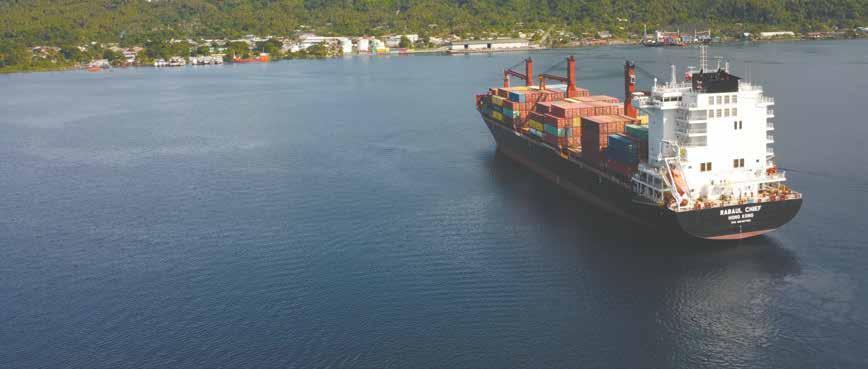
Navigating Papua New Guinea’s import-export has never been easier!
Why choose a weekly shipping service?
• Flexible Inventory Adjust inventory levels based on weekly sales patterns.
• Speed to Market Reduce lead-times for perishable goods to market
• Boost Productivity Create weekly work routines in your business to manage performance and avoid unexpected disruptions.
• Global Connectivity Connect e ortlessly to our global network via Singapore direct to Port Moresby and Lae

Sivasamboo Tapped to Lead ExxonMobil in PNG > 84
China State Construction
Invited to Invest in PNG’s Petroleum Industry > 84
Kumul Petroleum Marks Milestone with Seismic Program > 86
Turning Beans into Gold: PM Urges PNG Farmers to Seize Cocoa, Coffee Boom > 88
Sri Lankan Coconut Giant
SPTO, PNGTPA Release Business Confidence Index Survey > 102
Youth-Led Conservation Effort Transforms Barakau Into Thriving Eco-Tourism Hub > 104
BPNG Sets New Executive Structure to Drive Vision 2050 > 106
PNG Banners Inaugural Green Finance Summit > 108
Fast, Flexible Finance Solutions for Business > 114


PacSuper taps new CEO Hagan to lead next phase of growth > 116
Westpac Sees Strong Growth 118
Visa Commits to Driving Financial Inclusion, Digital Innovation in PNG > 120
Kundu Finance Beats a New Drum in PNG’s Financial Sector >
Education for Nation Building: Celebrating 60 Years of PNG IBBM > 128
Something for Everyone at NiuHomes > 130
Ark Modular Buildings Superior to Timber Alternatives > 132
NiuSky Strengthens PNG Aviation Safety with Micro Nav Partnership > 134
SolarWinds Launches in PNG > 138
Komatsu Australia to Become Distributor in PNG > 142
PNG Marine Services Co. Benefits from Restructure > 146
Remington Group Taps Kieseker as CEO > 148
Do You Think You Know The Stanley Hotel & Suites? Think Again: Come, Experience and Confirm > 150
Steamships Taps Kissam as First Woman GM of Corporate Affairs > 154
Swire Shipping Launches First Biofuel Services to Pacific Islands > 158
TE (PNG) Marks 70 With New Gabaka Showroom > 160
VirtualFlex: Accelerating PNG’s Digital Future > 162
Yungaburra Waterfront:











On 12th March 2025, the Minister for Petroleum, the Hon. Jimmy Maladina announced that the National Parliament of Papua New Guinea had passed the National Petroleum Authority Bill as “a landmark legislative reform that will transform the governance and management of the country’s petroleum sector.” The Minster’s press statement went on to say, “This is a historic moment for Papua New Guinea’s petroleum industry. The passage of the NPA Bill marks a new dawn, one that will bring greater efficiency, transparency and accountability to the sector. This reform is long overdue, and I am proud that we delivered it today.” The new legislation was subsequently certified by the Speaker of Parliament on 28th March 2025. Indeed, it does mark a new dawn for the government management, administration and regulation of the upstream petroleum industry in Papua New Guinea, and it is indeed long overdue. Since Independence,
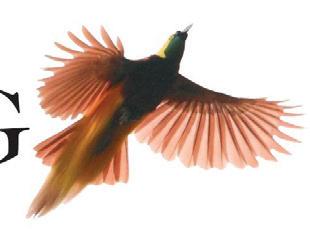


EDITOR’S NOTE: Michael McWalter, former Director, Petroleum Division and Adviser to the Government of Papua New Guinea discusses the recent passage of the National Petroleum Authority Act reflecting on prior efforts to establish the National Petroleum Authority, the need for a competent petroleum regulatory authority and provides some examples of arrangements and reforms of petroleum regulatory institutions around the world in which he has been involved.
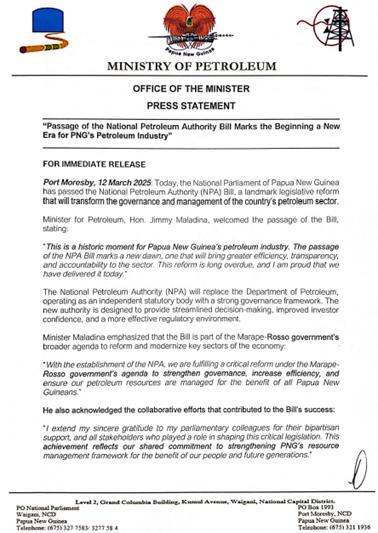
the industry has been handled by successive Government Departments: the Dept. of Minerals and Energy, the Dept. of Mining and
Publisher Elizabeth Galura
Editor Jimbo Owen Gulle info@pngbusinessnews.com
Journalist
Roselyn Erehe roselyn@pngbusinessnews.com
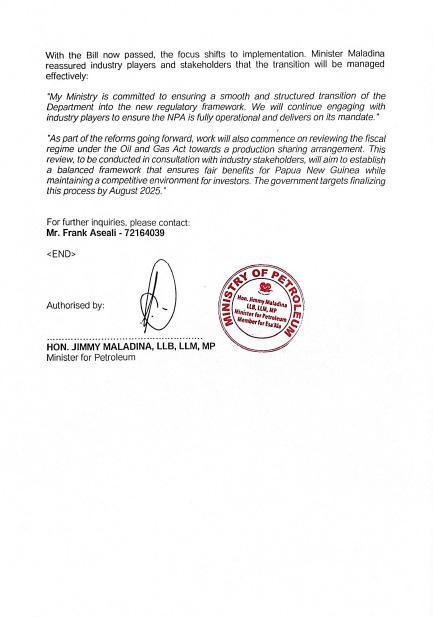
Petroleum, and latterly the Dept. of Petroleum and Energy. During that time, the industry has grown from sporadic and episodic exploration, Page 12 >
Manager Greg Brimble +675 76810995 + 63 995117 5836 greg@pngbusinessnews.com Sales and Marketing Manager Matthew Brimble +61 468 853 583 matthew@pngbusinessnews.com
Country Advertising Manager Felix Koma 7834 8641 felix@pngbusinessnews.com
Account Manager Mitch Morelos +675 78966066 +63 9568868161 mitch@pngbusinessnews.com
Graphic Designer : Bogtong Wangga


through the discovery, development and production of commercially viable oil fields, to the development of the large PNG LNG Project which exports gas as Liquefied Natural Gas (LNG) to East Asian markets. More exploration is planned and there remain several large gas fields to be developed in the planned Papua LNG Project and the P’nyang LNG Project as well the offshore development of the Pasca A gas field and the potential development of other disparate gas fields which may have commercial value if aggregated.
The notion of the establishment of a National Petroleum Authority was first muted by two of Papua New Guinea’s most distinguished leaders: Sir Michael Somare and Sir Julius Chan when respectively as Ministers for Natural Resources and Finance they presented their landmark and enlightened White Paper to Parliament in March 1976: Government Statement on Petroleum Policy and Legislation. This White Paper established the petroleum regime and laid the foundation for its laws and regulations, which were then elaborated by the Petroleum Act, 1977 and subsequently by the OiI and Gas Act, 1998 and its Oil and Gas Regulation, 2002. One of the main administrative tenets stated in that White Paper was that a specialised Government agency, the National Petroleum Authority, would be established after the first commercial petroleum discovery to administer the State’s participation interest and to exercise the Government’s responsibilities in the industry.
After the discovery of commercially viable volumes of crude oil at Kutubu with the successful drilling and testing of the Iagifu 2-X well in 1986 and several appraisal wells, Papua New Guinea’s first commercial oil development commenced full-scale production. The Kutubu Petroleum Development Project operated by Chevron Niugini dispatched its first cargo of 450,000 barrels of Kutubu Crude to Japan on 3rd July 1992 aboard the MV Ten-ei Maru.
During those years immediately after the Iagifu 2-X well, Papua New Guinea became the vogue place for oilmen to be. Investment in exploration flowed rapidly into Papua New Guinea in the expectation of further discoveries of oil fields. In the twenty years after that discovery, Port Moresby was littered with oil and gas companies large and small that needed to be in this opening frontier of exploration. Together they spent a staggering PNG Kina 2.85 billion which amounts to US$ 1.76 billion at the relatively higher USD/PGK exchange rates of those days, or about US$ 3.9 billion in today’s money. Alas, it is sometimes forgotten that oilmen are not philanthropists; they like to make a return on their investments and recoup their money. This investment provided for the drilling of some 150 wells and 108 seismic surveys which found moveable hydrocarbons in 61 wells and located 20 new fields, though many of these contained natural gas rather than oil.
The legislation stemming from the 1976 policy was adequate enough for these early exploration endeavours, but quickly became insufficient when matters of petroleum development, production, and transportation and community benefits had to be addressed. Accordingly, the legislation was overhauled with the introduction of the Oil and Gas Act 1998 which incorporated specific treatment of natural gas, the grant to traditional landowners, Provincial Governments and Local-level Governments of benefits arising from projects for the production of petroleum, and provisions for the processing and transportation of petroleum and petroleum products. Concomitant with these legislative developments intense efforts were made to build the capacity of the Government to manage, administer and regulate the emerging industry. Successive technical assistance projects were undertaken to train and develop staff of the responsible Department, primarily through World Bank financing, but with some additional support from the German Government and the Asian Development Bank. Institutional development came hand-in-hand with this, as the petroleum industry grew like a Cin-
derella to the already well-established mining industry.
In 1983, the Petroleum Resources Assessment Group was created in the Geological Survey of Papua New Guinea, a Division of the then Dept. of Minerals and Energy, and rapidly became the Petroleum Branch in 1987 and then a full Division of the Government when the Dept. of Mining and Petroleum was created in 1993. This new Division was responsible for all petroleum matters: licence administration; preservation of the petroleum archives and collection of new data from licensees; petroleum geology and prospect assessments; petroleum engineering and inspection; landowner and local and provincial government coordination; petroleum economic analysis; legal matters and policy development and formulation. That Division was then elevated further when the Dept. of Petroleum and Energy was created in 1997, of which the Petroleum Division was the kernel. The investment in training and capacity building paid off very well, and the Petroleum Division became a power-house of National petroleum expertise. Over thirty selected members of staff were sent to anneal their work experience and training by study overseas at reputable international universities for specialist Master Degrees related to their areas of work. A strong cadre of dedicated National petroleum specialists was thus established.
In 2000, mindful of the original plan for the Government to create a National Petroleum Authority, in negotiating with the World Bank for further technical assistance prominence was given to such a transformation and a commitment was made by the Government to make preparations for the establishment of a National Petroleum Authority. However, as Parliament is sovereign no absolute commitment was made by the State to create the Authority, but detailed preparations were indeed made. These included: draft corporate plans; functional structures; financial management design; revenue and cost recovery models; administration guidelines; financial models; merit appointment schemes; staff qualifications and experience criteria; transition plans; performance man- Page 14 >
FEEL THE POWER - JUST DRIVE IT

Built tough for PNG’s rugged terrain, the Ford Stormtrak is ready for any challenge. Powered by a 2.0L Bi-Turbo diesel engine with 500Nm of torque, it delivers unstoppable performance. Featuring a 10-speed automatic transmission, 4x4 capability, and smart SYNC®4 infotainment, it’s the ultimate pickup for work and adventure.
agement systems and accompanying submissions to the National Executive Council. This work was completed in 2006, but for reasons unknown progress towards political endorsement of these plans did not eventuate.
One cannot say for certain what happened and one can only speculate whether the industry was wary of such an institutional evolution or whether the Government itself might have been nervous of creating an institution of such significant National prowess, knowledge and strength surrounding such a precious industry. The Mineral Resources Authority had been successfully created some years earlier with much support from the mining industry, but only in a fashion desirable to themselves and with their involvement. Planning for the National Petroleum Authority did not permit such industry intervention. Moreover, unlike the Mineral Resources Authority, the plans for the National Petroleum Authority did not allow for a vestigial government role such as the Dept. of Mineral Policy and Geohazards Management has. All functions associated with the petroleum industry were to be put into the National Petroleum Authority including policy and it was to report to the responsible Minister. Unfortunately, with no realisation of the National Petroleum Authority many of the most competent, welltrained and dedicated officers of the Petroleum Division lost faith in its emergence and took up appointments in the petroleum industry both in Papua New Guinea and overseas. This put severe pressure on the Dept. of Petroleum and Energy to perform with ever-expanding and more complex functions, although within the Papua New Guinea diaspora and locally it did create a large cadre of qualified National petroleum expertise. One of the visions of the National Petroleum Authority was that it might provide an enhanced reward basis for its staff commensurate with their skills and experience to compete with industry standards, and thus help retain competency and capacity.
So, now in 2025, some thirty-nine years after the first commercial oil
discovery and thirty-three years after the commencement of commercial production, the National Petroleum Authority has finally been established by an Act of Parliament. Its specific responsibility is to provide an administrative framework for the implementation and enforcement of laws and policies governing petroleum activities and matters in Papua New Guinea and in doing so it has replaced the former Dept. of Petroleum and Energy. The Authority has nineteen clearly stated and specific functions defined in the Act. These are consistent with sound and appropriate management, administration and regulation of the upstream petroleum industry in accordance with the Oil and Gas Act to ensure industry best practices and standards in terms of safety, environment and for the maximum benefit of the State and all stakeholders.
The Authority is a body corporate with a Board comprised ex officio of its Managing Director, the Secretary of the Dept. of Treasury, the State Solicitor, and four other non-ex officio members, one of whom is an industry expert. Specific disqualifications apply to these non-ex officio Board members who must not have any conflicts of interest or be compromised in any way. The non-ex officio Board members are appointed for a paid four-year term and are eligible for re-appointment for not more than two terms. A Chairman and Deputy Chairman of the Board are appointed by the National Executive Council on the recommendation of the Minister. The Board has the defined functions to direct the affairs of the Authority; determine the policies of the Authority in accordance with directions from the Minister; approve the appointment, terms and conditions of the Managing Director, Chief Inspector, Inspectors, Chief Warden, Wardens and staff of the Authority; and oversee the Authority and the Petroleum Advisory Board. The Board must also ensure that the Managing Director implements each direction of the Minister and the Petroleum Advisory Board, and any direction for the development of policies for the sector and policy directions of the Minister in accordance with law and Government policies and priorities as determined by the National Executive Council.
There are normal administrative
requirements and procedures for staffing, codes of conduct, funding, expenditure, accounting, audit, and reporting. Importantly, within the funding is the establishment of a National Petroleum Authority Levy imposed on all producers and exporters at the rate of 0.5% of gross sales revenue of crude oil, gas, liquefied natural gas, condensates and liquid petroleum gas. However, this levy shall be deducted from the tax payer’s assessable income pursuant to the Income Tax Act, but it does not provide complete relief and represents an effective and regressive increase in income tax to the petroleum producer. Quite how this will be managed in the context of fiscal stability agreements made between various licensees and the State remains to be seen. No periodicity or manner of payment is specified for this levy.
There are provisions for transition and transfer of the Dept. of Petroleum and Energy Departmental Head and Departmental staff to the new Authority on the same terms and conditions as are currently effective, until reappointed under the National Petroleum Authority Act, or positions are made redundant. Thus, the Authority seeks to start with some inherited capacities as they may exist in the former Dept. of Petroleum and Energy rather than starting its operations afresh.
The National Petroleum Authority Act is concise and does not seek to tamper with the Oil and Gas Act, or the roles of its key actors. The Minister remains the Minister responsible for the OiI and Gas Act and the Managing Director of the Authority performs the role of the Director, Oil and Gas Act. The Petroleum Advisory Board of the Oil and Gas Act remains with its functions of reporting to the Minister. The National Petroleum Authority Act is thus complimentary to the Oil and Gas Act.
Quite how the Authority will work in practice remains to be seen; much will depend on the rigour of its detailed establishment and its observance of its code of conduct and internal guidelines. One would hope that the Authority might attract some of Papua New Guinea’s best. Certainly, there are plenty of experienced Papua New Guinea petroleum industry personnel around now after more than three decades of oil and gas production who might wish to bring their
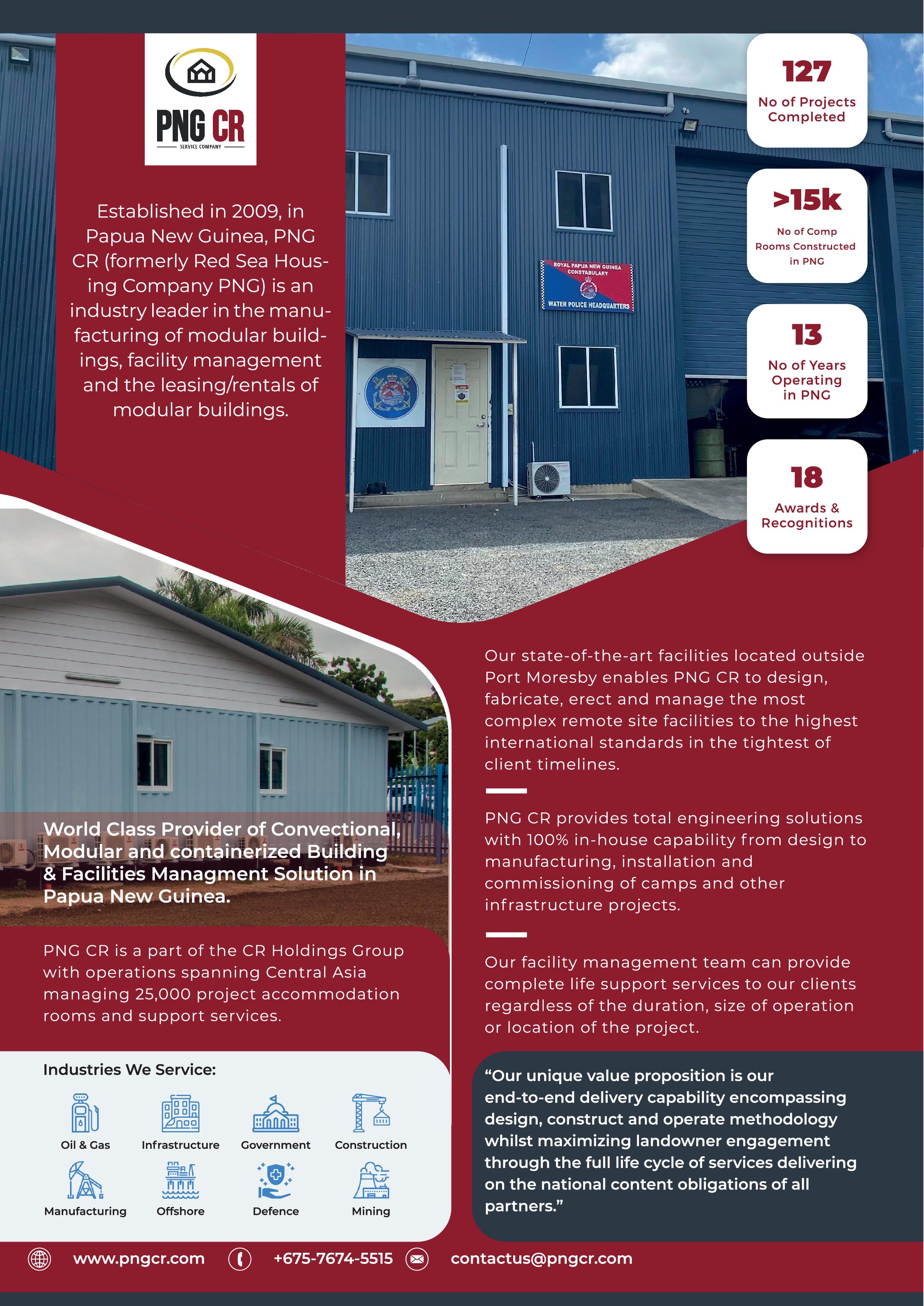
experience and dedication to bear on the future of the National economy by working at the Authority.
A sound and competent petroleum industry regulator is required by any Government that wishes to explore for petroleum accumulations, develop them and produce the discovered petroleum resources. That regulator should have the very best people engaged with good qualifications and extensive experience, but above all integrity, and they should be given good compensation. After all, in looking after the Nation’s petroleum resources, they are looking after the Crown Jewels of the Nation! Capability and competency are essential to the success of such a regulator, as is its freedom from political influence other than sector policy direction.
As to whether the role of the competent agency is vested in the National Oil Company, a Government Department, a Commission or an Agency is a choice, though instinctively it seems better to separate the management of Government equity interests in the sector from the regulation of the sector. It is also best not to leave the agency in the milieu of Government Departments limited by public service restrictions, unduly limiting staff compensation and procurement capacities for special and often expensive industry requirements, such as petroleum system, reservoir, facility and pipeline modelling software.
Some countries have started with traditional Government entities of one kind or another: Departments of Government or Petroleum Authorities, Agencies or Commissions depending on the degree of autonomy that the Government wishes to give to it. Other countries have started by granting all petroleum resource rights to a National Oil Company which then contracts oil and gas companies to work for it. What is important is that there is a recognisable competent government agency vested with the exclusive mandate to implement petroleum sector policy providing a single-contact point as a one-stop-shop. It should be a centre and focal point of petroleum expertise in service to the Nation.
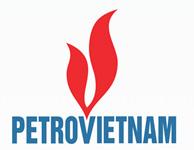
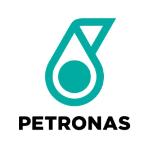
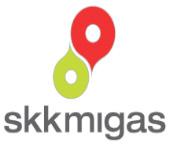
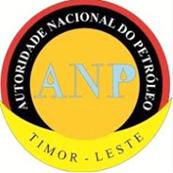
The competent agency should represent the State in negotiations, contracting, regulation and administration of the petroleum sector without interference by other stakeholders who may have vested or particular interests that might sway thinking and pervert National sovereignty. It should be well-staffed and strong in sectoral expertise and experience, but ever-mindful of generational succession and the inevitable attrition of capable staff into the industry. Continuous institutional strengthening and training must be undertaken to build, and importantly maintain capabilities.
It is good practice to even separate the State’s patrimony and licensing of its petroleum resources from the administration of the sector as far as is possible. The best approach is where the Government Ministry responsible for petroleum matters sets and establishes broad sector policy, whilst the competent agency administers it.
In some countries with a long history of petroleum resource development, the National Oil Company may already be a de facto competent agency, though this is not recommended. However, competency is the key and the environment of a well-funded and well-intentioned National Oil Company may sometimes provide better for staff retention and enthusiasm as well as providing better facilities for them to conduct their work. A problem arises when a National Oil Company allocates acreage to itself in competition with potential investment by qualified major oil and gas companies. Such might be a strong disincentive to foreign direct investment
Where a country is new to the petroleum sector, it needs to create a competent petroleum agency from the start with adequate expertise and authority using experienced advisers both local and international to get it functional. In some cases, interim arrangements may have to be sought like a special petroleum office, or inter-Departmental/Ministerial Council or consultative group to avoid internal competition.
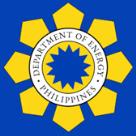
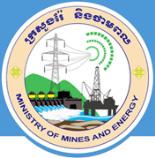
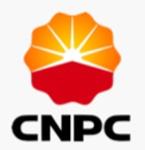
Ultimately, whether a Government settles petroleum sector responsibility on an Authority, a Commission, a Department, a Ministry, or on a National OiI Company, it does not matter; such is only a title. What is essential is: competency and integrity to take on the vital role of being guardian of the Nation’s petroleum resources for the benefit of the people and the Nation.

The small nation State of the Democratic Republic of Sao Tome and Principe is an African island-nation located in the Gulf of Guinea, off the western equatorial coast of Central Africa. It consists of two main islands of Sao Tome and Príncipe, about 150 kms apart and about 250 kms off the north-western coast of Gabon. In July 2003, the army seized power for one week, complaining of corruption and that forthcoming oil revenues would not be divided fairly, although no exploration had even begun. An accord was negotiated under which the President was returned to office after his Government had, perhaps incautiously, entered into agreements with certain petroleum companies to grant petroleum exploration and production rights on decidedly unfair terms to the Nation. As a heavily indebted poor country, part of the international assistance to aid reconciliation was for sovereign debt to be waived and for a proper institution to be established for the management of petroleum resources and a formal central bank established to oversee financial matters.
I was dispatched by the World Bank to help develop the Agencia Nacional do Petroleo, where ten public servants from various parts of the Government had been assembled in an old house. During twelve visits over a period of six years, the

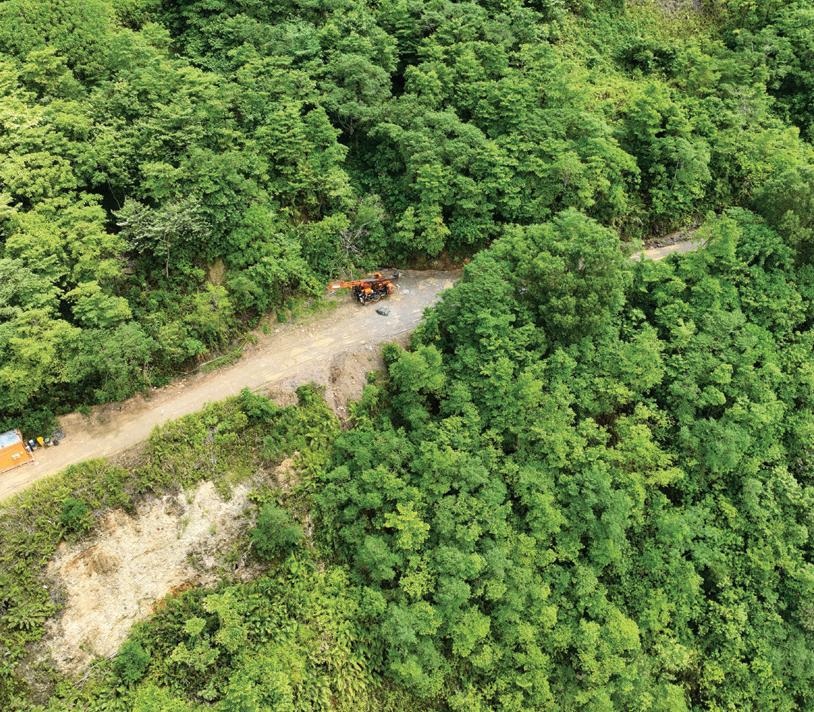
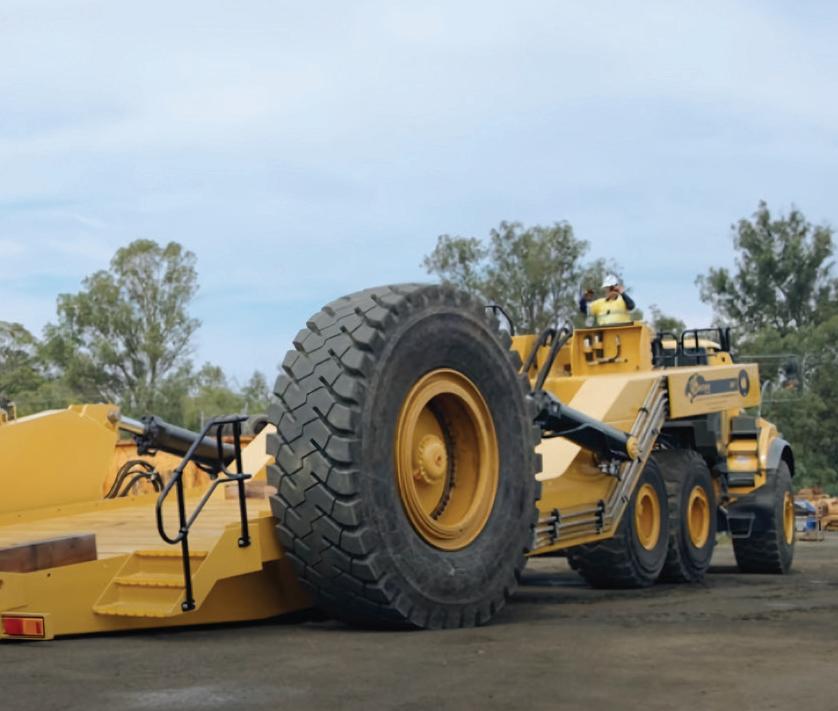
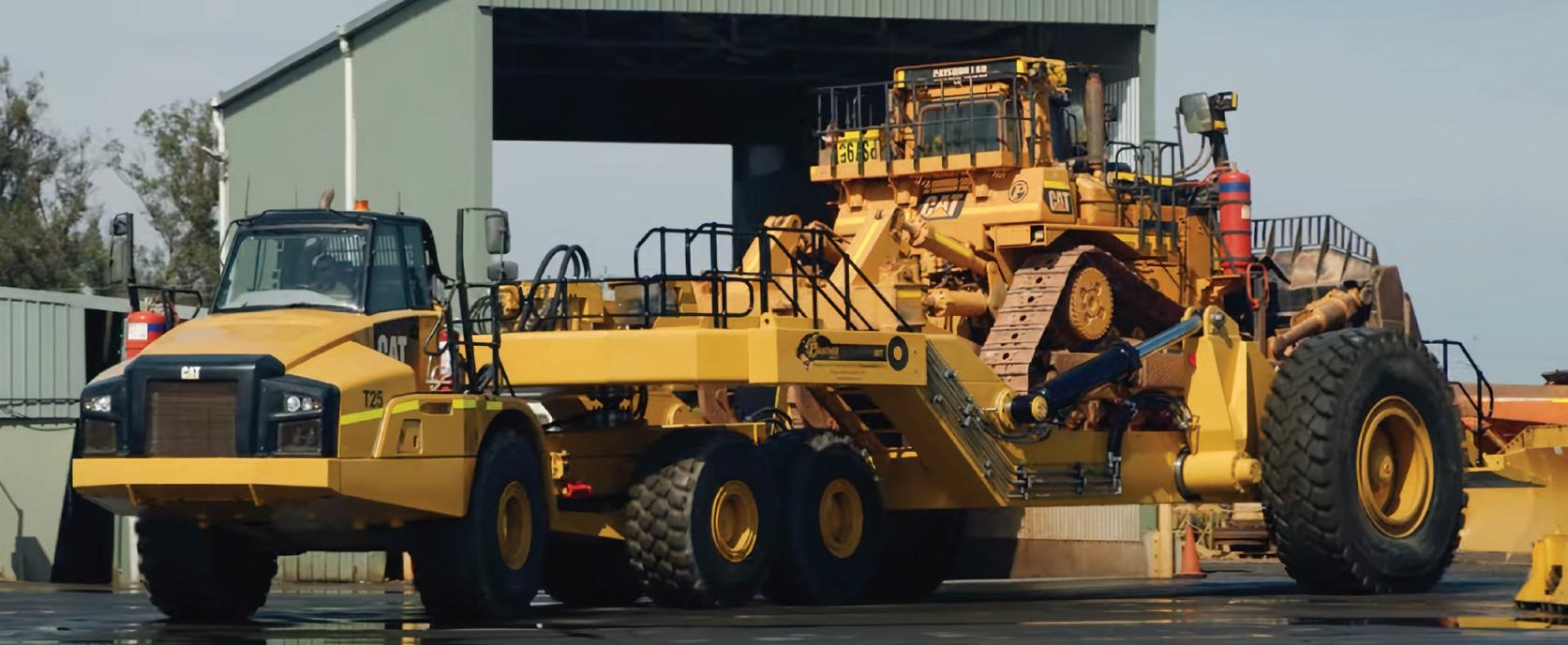
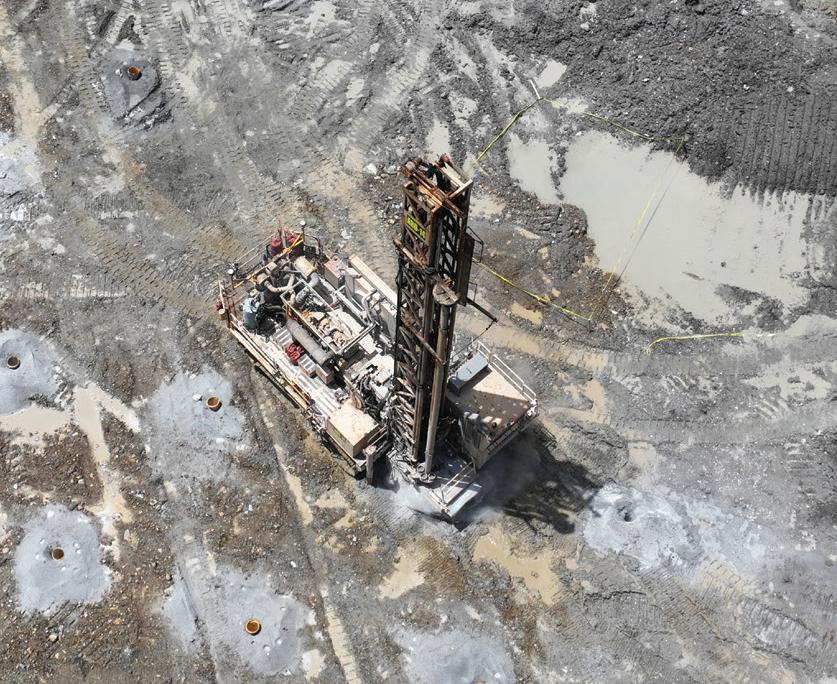
Agencia Nacional do Petroleo came into full functional operation with a staff of a little over twenty people led by an Executive Director. The old legacy contracts were renegotiated, the petroleum laws updated, a study of the petroleum prospectivity of the Economic Exclusive Zone conducted, a new fiscal and commercial regime put in place and a licensing round commenced, all concomitant with much staff training and extensive capacity enhancement.
The Agencia Nacional do Petroleo became a well-respected competent petroleum agency to which the Government, the Minister, elected representatives and the people referred their sector concerns. D.R. Sao Tome and Principe shares an interest in the Joint Development Zone covering waters between D.R. Sao Tome and Principe and the Federal Republic of Nigeria, in which Chevron made a non-commercial oil discovery at the Obo 1 well in 2006. It also hosts a wide variety of oil and gas companies in its Economic Exclusive Zone comprising: Galp Energia, Shell, TotalEnergies, Sonangol, Kosmos, Petrobras, Oranto, Equator and BP, amongst others, all of which now have the confidence to invest on clearly defined and reasonably fair terms.
NATIONAL
KINGDOM OF CAMBODIA
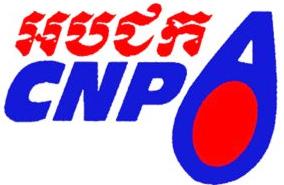
The Cambodian National Petroleum Authority had been established in 1998 after some degree of exploration success had been obtained in the Cambodian part of the offshore area of the Gulf of Thailand. Nine exploration wells were drilled between 1993 and 1998 of which three flowed oil and gas and four had oil and gas shows, but a commercially sufficient volume of recoverable reserve was not reached. The sector was oddly administered under a Petroleum Regulation adopted
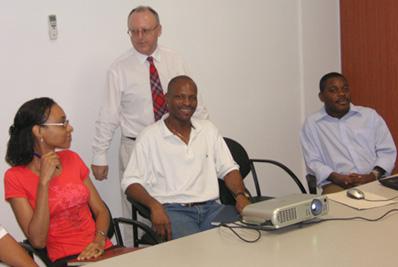
from Nepal and introduced in 1991 without any comprehensive governing petroleum law. The Cambodian National Petroleum Authority was authorised as an entity of the State to negotiate, agree, regulate, supervise and monitor petroleum exploration operations through petroleum agreements with petroleum contactors.
In March 2002, Chevron entered Cambodia with their extensive experience of the petroleum geology of the Gulf of Thailand gained when they had earlier acquired Union Oil of California (Unocal). Chevron drilled several dozen wells in what is known as the Khmer Trough in the western part of Cambodia’s offshore area adjacent to the so-called Overlapping Claims Area – an area of the Gulf of Thailand claimed by both Thailand and Cambodia. These wells both re-discovered earlier finds and made several new
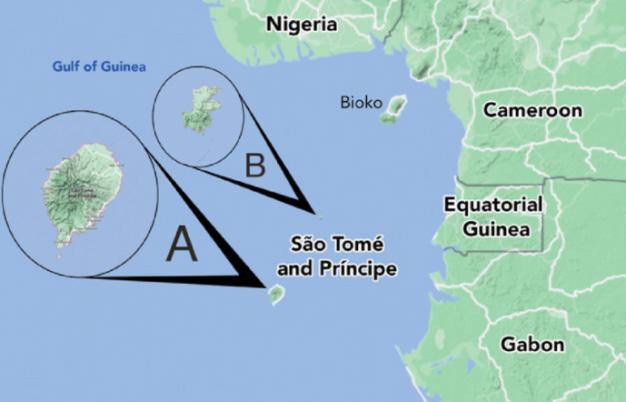
National Petroleum Authority was quite dysfunctional with an operational leadership that failed to involve the substantial staff of the Authority and somewhat mismanaged the sector. I came into the Cambodian National Petroleum Authority in 2006 to help reconcile some of these problems and restore functional capacity. This involved complete reorganisation of the Authority and empowerment of its staff to perform their jobs. Attempts were also made to reconcile the discordant fiscal arrangements applicable to Chevron, which spurred by successive exploration successes, wished to proceed with a staged development of their discoveries.
Over a period of six years, I made scores of visits during which a new Director General was appointed and the roles of the Vice Chairman and the staff were restored to full functionality.
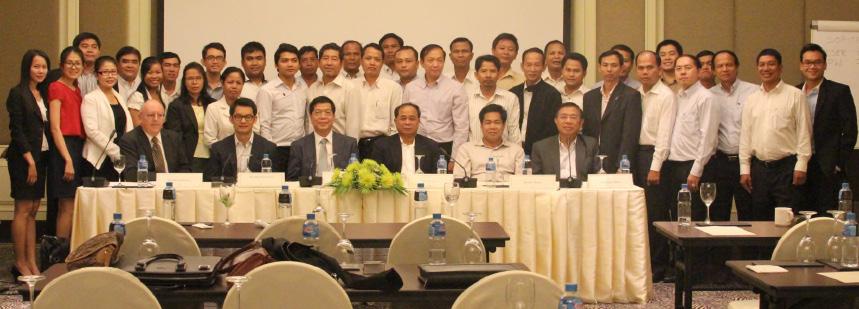
discoveries, but they were all small discrete deposits in fault traps, or compartmentalised reservoirs. Chevron had a Petroleum Agreement, essentially a production sharing agreement, with the Government, but its terms were not consistent with the prevailing Law on Taxation, and there was no supervising petroleum law, just the Petroleum Regulation. Added to these problems, the Cambodian
Hitherto, visiting Non-Government Organisations had been fearful of entering the compound to be briefed on the sector, but after the reforms all stakeholders were welcomed and the business of sector management and regulation proceeded as normal. A new all-encompassing Petroleum Law was devised and a more robust framework for petroleum sector development was embraced. Page 20 >

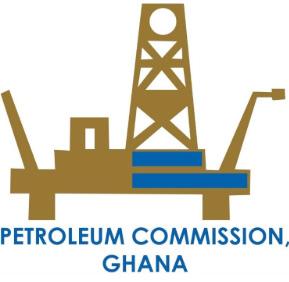
Exploration offshore Ghana commenced in the period 1999 to 2003, inspired by successful deepwater discoveries made in the region, when four deepwater wells were drilled in Ghana. They proved the existence of an active petroleum system when Hunt Oil’s WCTP-2X well encountered a 14ft column of light oil. In 2007, Kosmos Energy with partner Anadarko, Tullow Oil and E.O. Group found a 312 feet column of high grade oil in the Mahogany-1 well. Successful appraisal by the Odum, Mahogany-2, Heydua-2 and Mahogany-3 wells led to development of what was to become the giant Jubilee field led by Tullow. Production began in 2010 from an estimated total proven recoverable reserve of around 3 billion barrels at 150,000 barrels per day. This happened very quickly under the management of the Ghana National Petroleum Company, but inadequacies and conflicts of interest in regulatory management of the petroleum industry were readily apparent.
In 2011, the Government of Ghana established a Petroleum Commission pursuant to the Petroleum Commission Act, 2011 with the responsibility to regulate and manage the utilisation of petroleum resources and to coordinate the policies in relation to them. Hitherto, the Ghana National Petroleum Company had been the effective upstream petroleum sector regulator, entering into Petroleum Agreements on behalf of the Republic of Ghana with petroleum contractors with the Ministry of Energy taking a back-seat. Now the Government wanted to have just one entity, which would be in overall charge of the petroleum industry, rather than having several different agencies of Government dealing with different, and possibly overlapping aspects. The Ministry of Energy was to retain policy formulation, direction and supervision, and the new integrated Petroleum Commission would man-
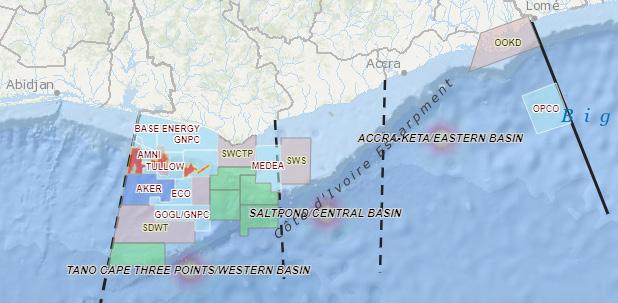
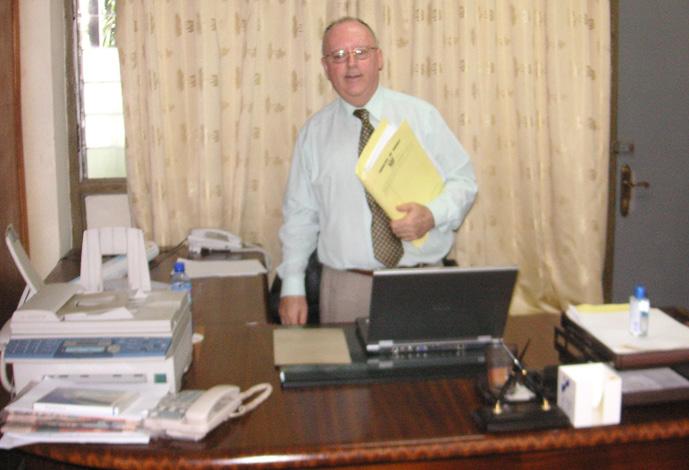
age the industry. The GNPC was to remain as a company which would be responsible for managing sector State participation interests, though its special relationship as an adviser to the Ministry would end. The new integrated Petroleum Commission Authority would become the principle adviser to the Ministry of Energy.
The proto-Commission started off with a dozen or so Government officers brought together and housed in a four-bedroom apartment. They were headed by a Chief Executive Officer, a senior public servant especially appointed by the Minister for Energy to the position. My job was to mentor staff in the technology and practices applied by the petroleum industry with emphasis on exploration and production. I also had to develop specific training plans for key Petroleum Commission staff and assist the Petroleum Commission in establishing the organisational and work processes and functions needed to effectively regulate and monitor petroleum activities with primary emphasis on: resource classification and estimation; contract administration;
local content; well permitting, field development; and production measurement and reporting. I also had to support the Commission in technical discussions with petroleum operators and guide the critical review of technical reports, work programs, budgets, and drilling applications received from operators.
Fortunately, I was not new to Ghana as I had helped the Ministry in 2009 to review the then proposed Ghana Petroleum Upstream Petroleum Authority Bill and the existing Petroleum (Exploration and Production) Law, 1984, and certain proposed draft regulations: the Petroleum Upstream (Licensing) Regulation, 2009 and the Petroleum Upstream and Midstream (Exploration, Development and Production Operations) Regulation, 2009. Also in 2010, I had provided the technical input for the World Bank appraisal of an Oil and Gas Capacity Building Project for the Government. Now, my task was to bring about some functionality to the new plans for regulation of the petroleum industry. Page 22 >
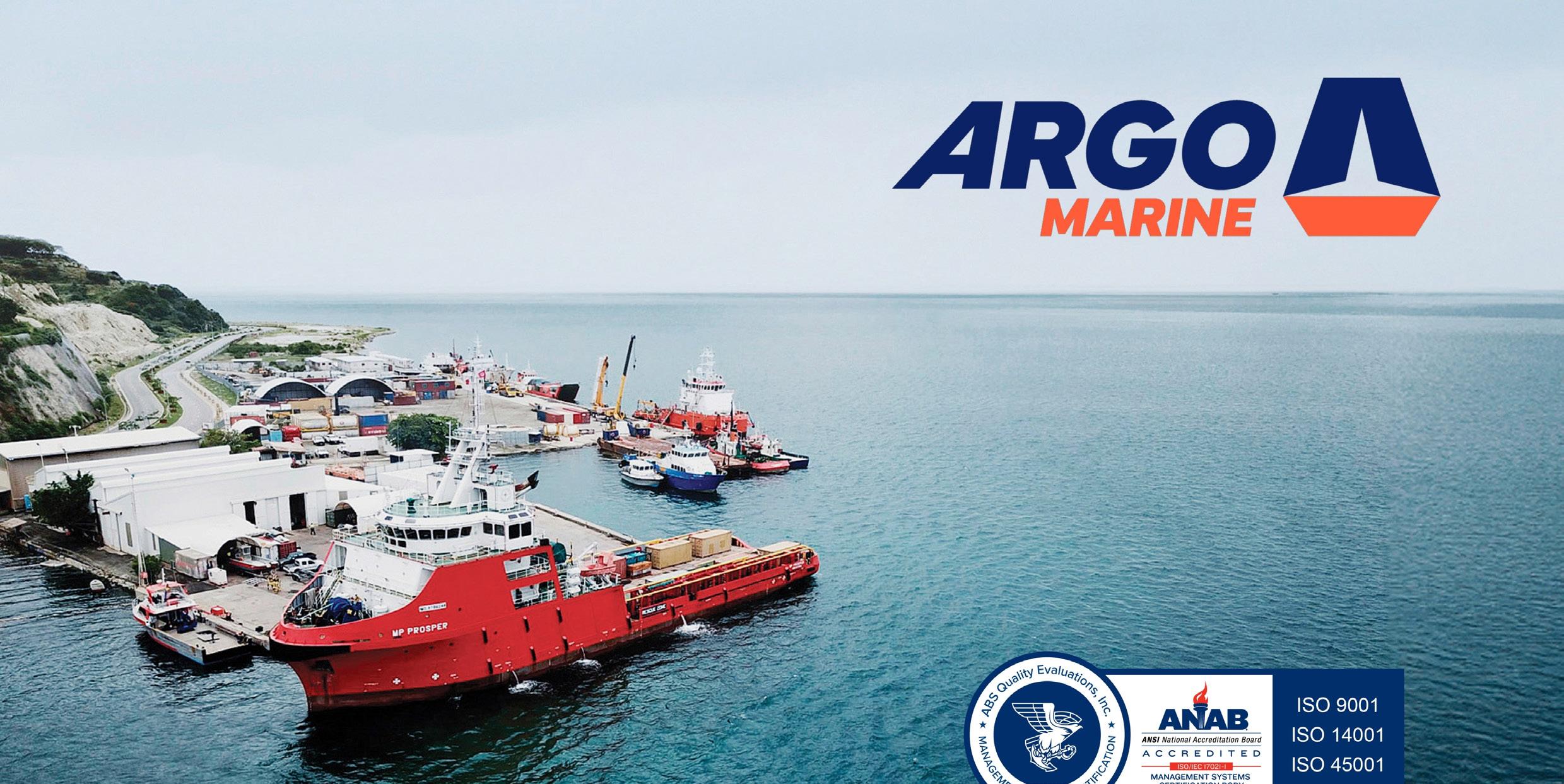
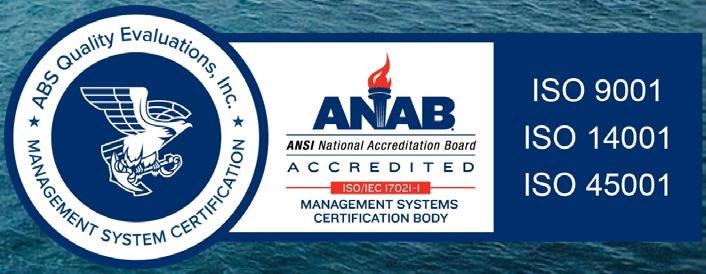

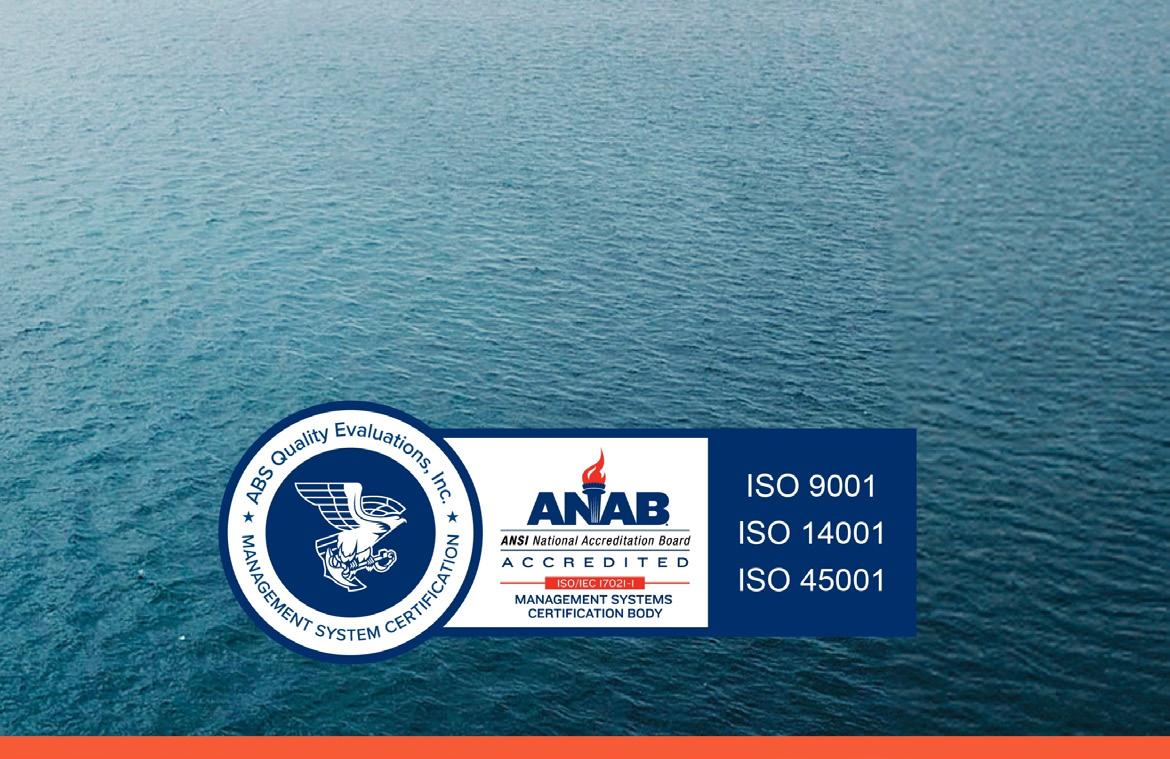




In Liberia, the problem was that the National Oil Company of Liberia (NOCAL) had been running the Government’s oil business as though it was their own private business. Much money had been collected from sales of offshore seismic data in anticipation of Liberia joining the ranks of the continental margin oil producers of West Africa, but nothing seemed to flow to the Government. It seemed that NOCAL looked after itself to the neglect of the Government, and particularly its primary role of regulating the industry. My role was to define the structure and shape of a new Government agency within the structure of Government departments and agencies to take over from NOCAL. This was difficult because I was assigned to the very agency that was the cause of concern – NOCAL. Consequently, nobody wanted to speak to me within NOCAL, though advisers to the President, Senators and the like had much to say.
The concept was sound though: to create a proper competent petroleum regulatory agency and preliminary plans were indeed made. Alas, the outbreak of Ebola in early 2014, brought everything to a standstill, and the further involvement of the World Bank was curtailed. Subsequently, the Liberian Petroleum Regulatory Authority was indeed established by Liberia’s 2014 Petroleum Exploration and Production Law. High level support for this change was vital and subsequent Presidents have consistently endorsed the enlightened policy of Madame President Ellen Johnson Sirleaf who guided this important transition of regulatory management. The President’s son was so keen for my return to Monrovia that he had a special re-entry permit made for me and couriered to Port Moresby, and he even offered me Liberian citizenship, if I would remain! Recently, I heard that some senior officials of NOCAL were eventually sent to jail for their malfeasant use of a NOCAL monies.
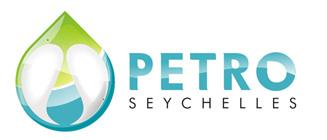
PetroSeychelles was different again and my visits there in 2012 and 2013 were perhaps one of the more readily embraced exotic destinations for a petroleum adviser. However, going to an Indian Ocean resort-island on mission for the World Bank was incongruous, wearing a dark suit, white shirt and tie (World Bank uniform) whilst tourists around one were scantily dressed. However, PetroSeychelles was not wanting in institutional capacity for the relatively very slow pace of their petroleum industry; they had a few well-trained and experienced members of staff who were quite capable of managing the occasional episodes of petroleum exploration. My mission, jointly conducted with colleagues from the IMF, was to explore opportunities to enhance petroleum exploration, quite cautiously, given the pristine nature of their coastline and its beautiful sandy beaches. The Government of Seychelles was mindful of the impact of continued tourism, just as much as it was aware of the potential impact of petroleum resource development, but it wished to consider diversification of its economy. The Seychelles sits on a micro-continental crustal block left behind during the break up of Gondwana between Western India, eastern Somalia and north-eastern Madagascar. The sliver of continental crust also hosts Mauritius and is known as the Mascarene Plateau. It bears continental sediments conducive to hosting oil and gas accumulations.
Just four wells have been drilled historically in the Seychelles, none of which have found moveable oil or gas, though signs of good hydrocarbon source rocks, and the generation and migration of oil and gas were noticed along with good clastic reservoir rocks. The work involved the provision of advice to PetroSeychelles and the Government variously on: measures to foster exploration; choice of fiscal and commercial regimes; State participation; investment promotion; selection of petroleum contractors; enhanced
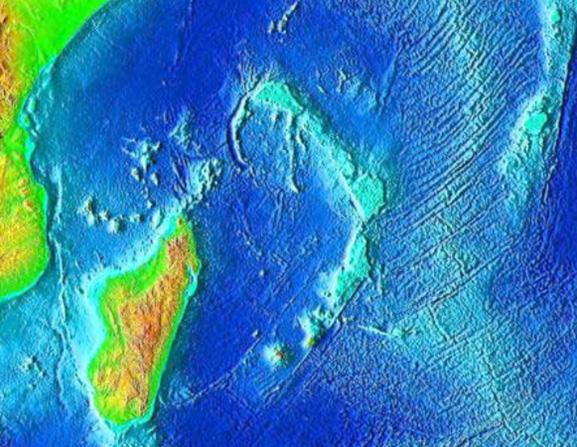
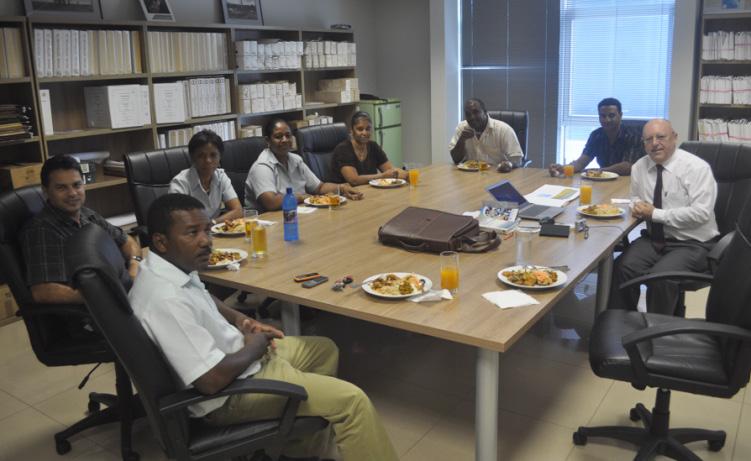
regulatory capacity; and environmental controls and safeguards. Recently, the Republic of Seychelles and the Republic of Mauritius have agreed to have coordinated petroleum exploration within the Joint Management Area of the Mascarene Plateau in an area where their Economic Exclusive Zones overlie.
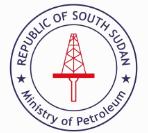
In South Sudan, the issues were again different. In the wake of the division of the Republic of Sudan into two new countries after a protracted conflict of many decades, the people in the south in what was to become the Republic of South Sudan found they had little expertise in managing and regulating the oil fields they inherited in the separation. Previously, the oil and gas business had been run exclusively from Khartoum in the largely Arabic, Muslim, arid north of Sudan. Now, those who had ardently fought
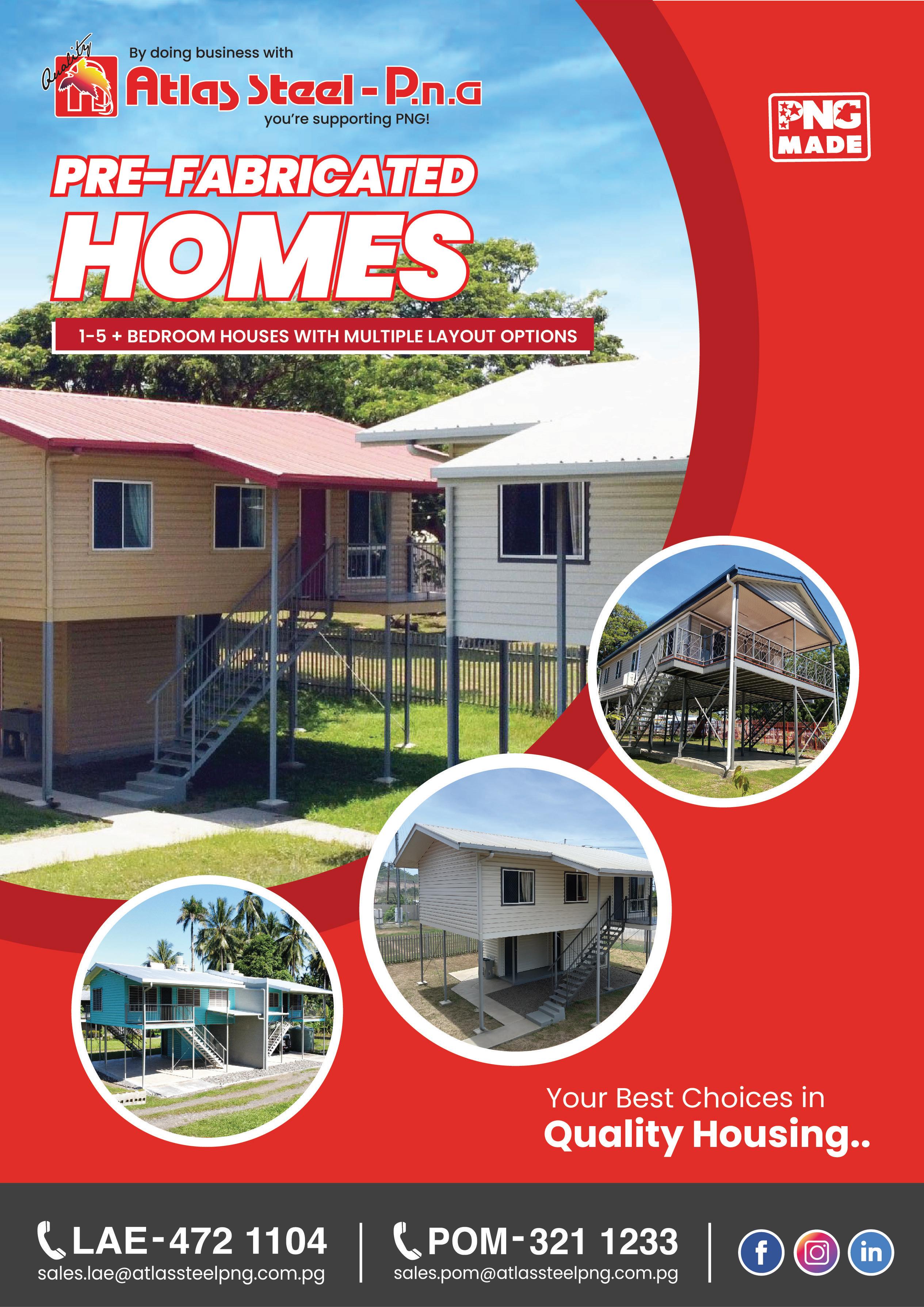
for independence, the Christian, black minority in the savannah lands of the south had to deal with legacy petroleum contactors producing more than 220,000 barrels per day. Added to this task, the produced oil still had to be conveyed by pipeline through the lands of their former foe, the Republic of Sudan, which excised a high tariff and any agreed fee per barrel for war-time reparations. There was clearly a deficiency of skills for which the Ministry of Petroleum sought capacity enhancement. Initial efforts had included the Norwegian Oil for Development Programme, but that brought a transplant of Norwegian ethos and much rigidity. A complimentary USAID programme brought an experienced adviser who swanned around the Minister only, without engaging the staff.
I came with my former World Bank consultant colleague from Cambodia who handled the financial side of the oil and gas business, whilst I handled the petroleum operations and regulatory side of matters. It took time to establish ourselves, but we patiently concentrated on helping the staff to do their work, rather than supplanting a foreign system on top of them or relegating the staff by traipsing about courting the Minister. We put our feet on the ground and made our collective skills and experience available to the Director-General of Petroleum helping him to develop his staff capacity with our responsible advice, and much teaching. We became well-respected for enabling and facilitating the staff in the conduct of their work.
The work was interrupted frequently by militia activities, and sadly by South Sudan’s own civil war ostensibly between rival leaders President Salva Kiir Mayardit, a member of the Dinka ethnic group and Vice President Riek Machar Teny Dhurgon, a member of the Nuer ethnic group at the end of 2013. Some 400,000 people lost their lives and one of the producing oil fields at Heglig was obliterated.
Our work was focused on helping the Government manage and regulate its petroleum industry to optimise its economic outcomes by capacitating the staff, but when the World Bank quarrelled with the President about oil revenues being spent on defending his democratically-elected Government, the Bank’s
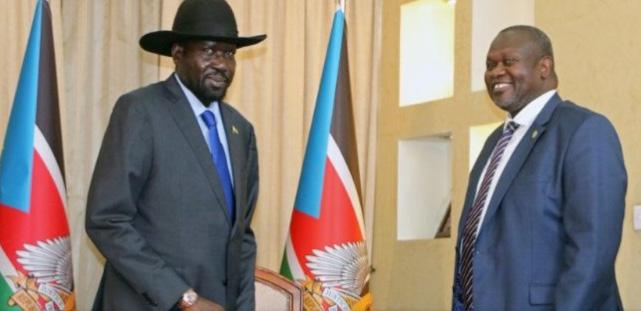
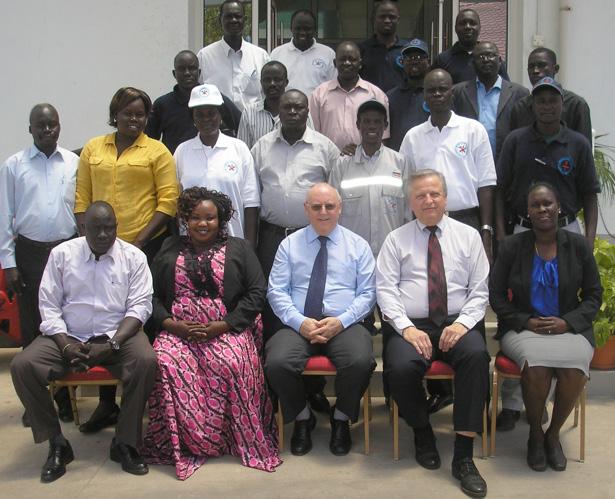
entire development programme was summarily curtailed. In some other countries in which I have worked, Western allies have flown air force fighter sorties over the national capital to help defend the democratically-elected Government, but not in this case. Oil production and export is the life blood and the only major revenue source for the government of the Republic of South Sudan, so it was quite sad to see Western disdain and apathy, so played out.
One might discern from the above that there is no perfect solution for petroleum resource management, administration and regulation. In two of the above case studies, the National Oil Company was removed from its responsibilities for such, and new Government regulatory entities created. In the case of D.R. Sao Tome and Principe, an initial petroleum agency was created where previously petroleum resource matters had been dealt with at
Ministerial and Presidential level only. In the case of Cambodia, a distraught petroleum authority was resurrected and restored. And in South Sudan, left in the lurch by independence from Sudan, the capacities of the Petroleum Directorate of a new Government Ministry had to be enhanced. In all cases, the prevailing necessity was to gain National functionality with competency in the task of management, administration and regulation of the petroleum upstream sector.
It is apparent that a role remains for a well-run National Oil Company to look after State commercial interests in petroleum production and sometimes State exploration endeavours, but clearly problems arise if the National Oil Company tries to be the regulator at the same time, or gets beyond the control of the Government. Competency is the key ingredient for successful petroleum resource management, administration and regulation. With that is the need to adequately reward the staff of any

Government regulatory entity with attractive enough remuneration to dissuade them from accepting the often times more lucrative rewards offered by the industry. Whilst necessarily being Government entities with appointment of their leadership by the Government, as far as possible, petroleum professionals should be sure and safe in their roles and appointments from political intrusion.
Constant attention needs to be paid to capacity enhancement and succession, lest competency and capacity are lost, or otherwise whittled away by a loss of integrity, corruption or other malfeasance. The management, administration and regulation of a Nation’s petroleum resources needs to attract the very best, qualified and most dedicated intellects within the nation that are prepared to work hard and defend the State’s rights firmly and fairly in front of very experienced oil and gas corporations.
An abundance of staff is not a solution, whilst having a capable staff is. Petroleum agencies with supernumerary staff are neither efficient nor productive; they can also be expensive and distracting to those that wish to act professionally. The staffing level should be fit for purpose for the breadth of the petroleum responsibilities given to the agency. For instance, in managing a petroleum production sharing contract, considerably more personnel might be needed on staff to oversee the sub-contracts of the petroleum contractors, and to subsequently oversee the approval of
petroleum contractor costs eligible for cost recovery.
In creating a new competent petroleum agency, it might be advised that a clean-sheet approach ought to be used whereby the management of the new entity hand-picks its staff from amongst those who worked for any prior organisation and the wider public. It is essential that the new entity is led by a most competent Government-trusted, well and appropriately educated and experienced leader. Such was the case in Ghana where the pace of development of the Petroleum Commission was much accelerated by having a champion as its first Chief Executive Officer. Equally, a Government must be prepared to dump leadership of any petroleum agency that cannot live up to expectations, either of the Government itself, or indeed the industry. The industry responds well to certainty, consistency, and firm and fair management, administration and regulation.
The competency of a Government petroleum agency must be enduring and not quixotic as the life cycle of petroleum projects is generally much longer than the life of any particular Government. The competent petroleum agency must keep up with technology and changes in all manner of circumstances, along with changes in societal acceptability of the very notion of extracting hydrocarbons from under the Earth and selling them for combustion as an energy source.
The competent petroleum agency should keep abreast of all new ways and fashions, as innovative, well inten-

tioned, as devious as they might be, or otherwise designed to improve the outcome from industry investment, such as local content. It should be making recommendations to the executive of Government for improvements to embrace new ways and accommodate the development of the scope of the nation’s petroleum industry as it progresses. Rather than sudden changes of regime, continuous fine-tuning should become regular business.
With respect to the newly-established National Petroleum Authority of Papua New Guinea, it will take time to fully grasp its responsibilities and gain the confidence of its stakeholders. Impediments to achieving that desired necessary competence will need to be removed. One might worry that the added task of changing the established petroleum regime of Papua New Guinea from that of a concessionary licensed, tax and royalty one to that of a production sharing contract one might be a burden to embrace simultaneous with transition to being a statutory authority. Skills in the management, administration and regulation of production sharing contracts will have to be learned rapidly with much rigour less the adverse habits of such regimes infect the process.
Lastly, I wish the Government of Papua New Guinea well with its ambitious challenges, but I am confident these will be a change for the good of Papua New Guinea and its people, so that best outcomes can be realised from the development of Papua New Guinea’s petroleum resources.
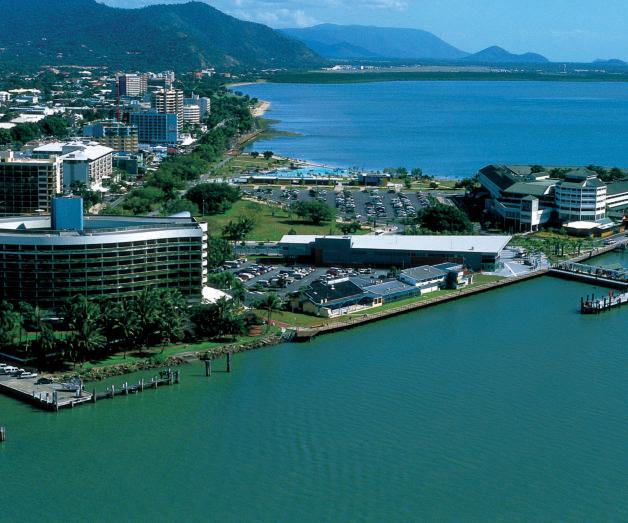


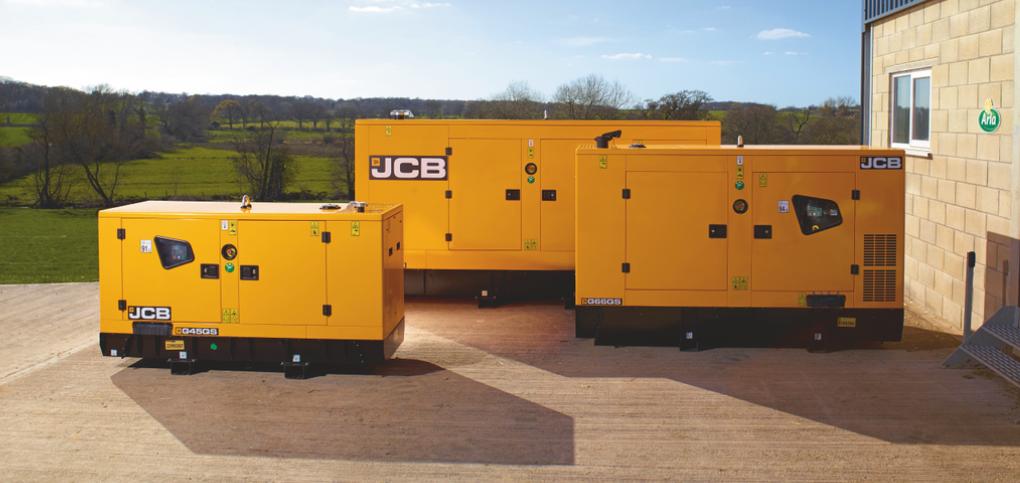




We offer a comprehensive range of top-quality machinery, gensets and equipment tailored to meet the diverse needs of your business.


Engineered for extreme durability, reliability, and resilience, JCB machinery is built to withstand harsh conditions and designed to handle the toughest tasks in the most challenging environments



Designed to maximize productivity while minimizing fuel consumption and downtime
With cutting-edge technology and innovative engineering, we deliver fast, reliable performance
Equipped with advanced connectivity features that enable real-time monitoring and data insights, you can track performance, optimize maintenance schedules, and enhance operational efficiency
Papua New Guinea reaffirmed its strong ties with Australia as Prime Minister Hon. James Marape formally welcomed the new Australian High Commissioner, His Excellency Ewen Neil McDonald, during a courtesy call at the Office of the Prime Minister in Port Moresby.
Mr. Marape acknowledged the historic significance of McDonald’s appointment, especially as PNG prepares to celebrate 50 years of independence this year.
He extended congratulations to Australian Prime Minister Anthony Albanese and the Australian Labor Party on their recent electoral victory, noting that Australia’s Labor Government was instrumental in granting PNG independence in 1975.
“It is deeply symbolic that the Labor Government is once again leading Australia as we prepare to celebrate this historic milestone,” PM Marape said.
The Prime Minister formally invited Australia to join PNG’s 50th Independence Anniversary celebrations on 16th September 2025, marking another chapter in the enduring partnership between the two nations.
Recognizing Australia as PNG’s largest development partner, Prime Minister Marape highlighted the AU$637.4 million in Official De -
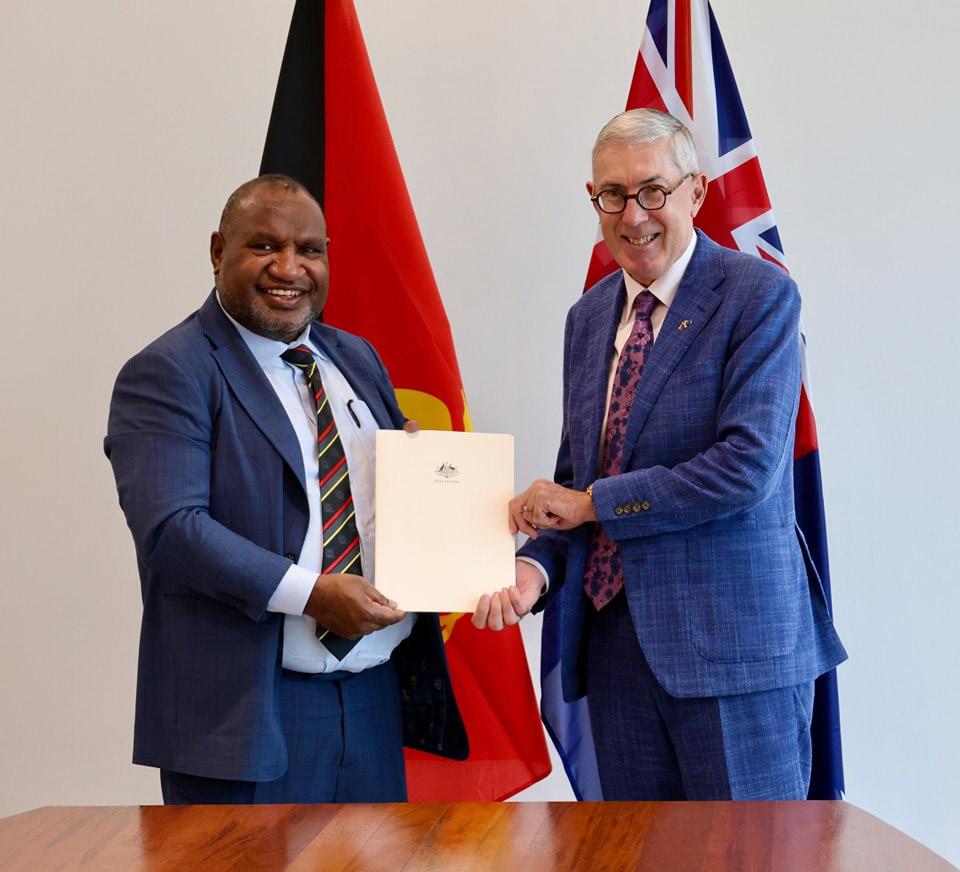
velopment Assistance allocated for 2024–2025.
He emphasized that the relationship between the two nations has grown into a strategic economic partnership, strengthened by trade, security cooperation, and peo -
ple-to-people ties.
“Our bilateral ties have broadened with the Comprehensive Strategic and Economic Partnership (CSEP 2020–2030) and the signing of the Bilateral Security Agreement (BSA 2023),” he said.
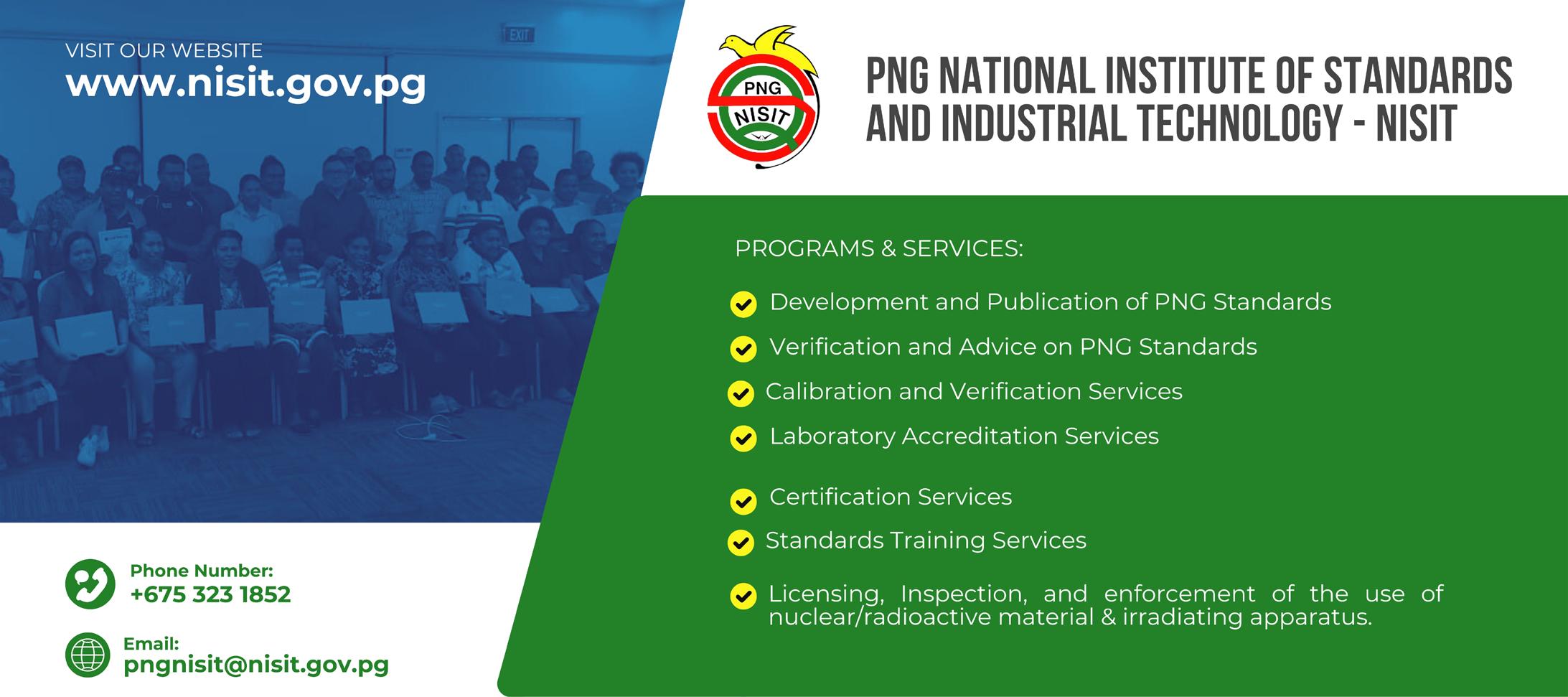
From gensets to vehicles, tyres, lubricants and more, discover the best brands and big range that tackle PNG’s toughest conditions.

DEPENDABLE GENSETS PNG COUNTS ON


POWERFUL MITSUBISHI FUSO DUMP TRUCK RUGGED GWM POER OFF-ROAD
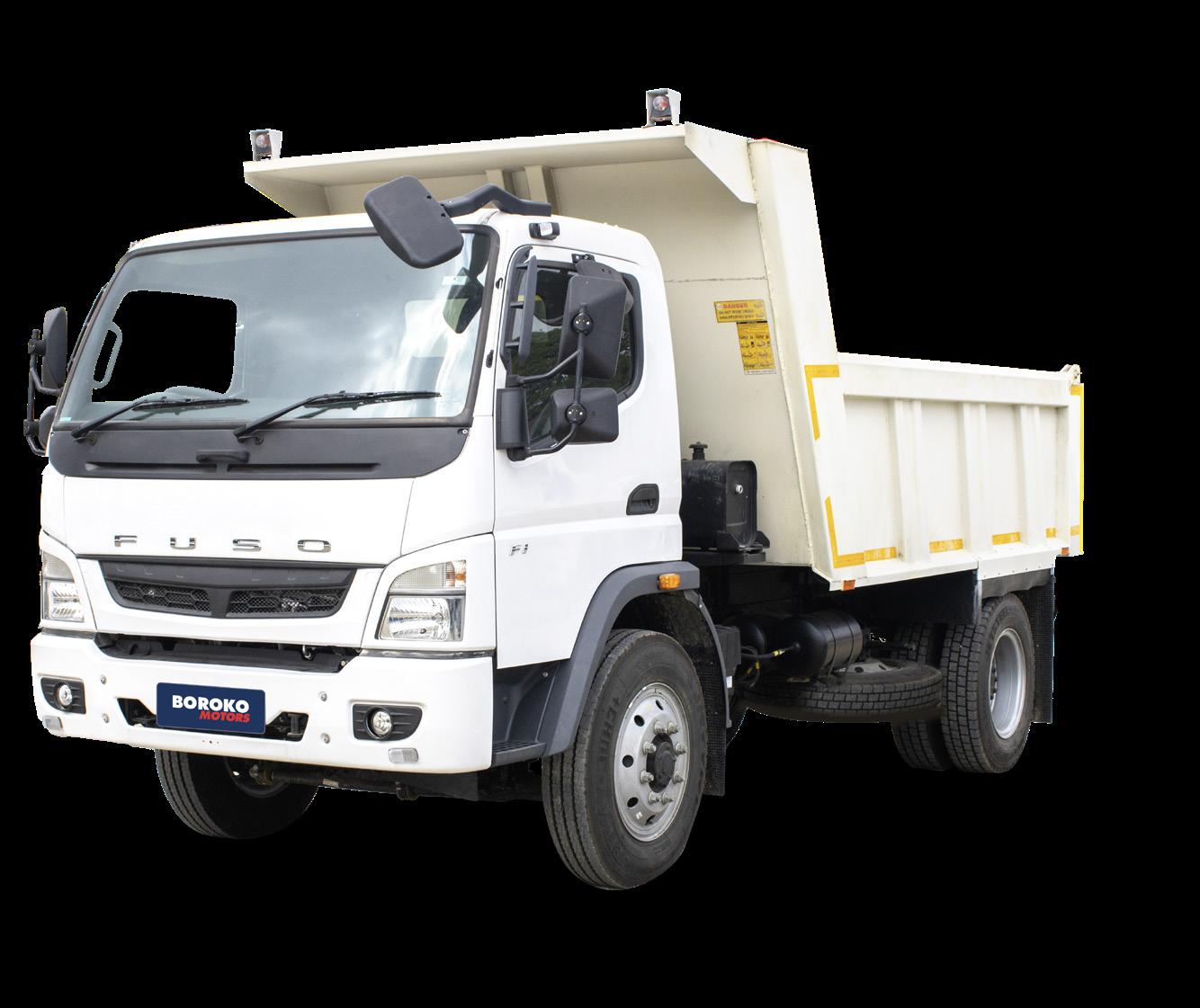


And there’s only one place to go! Where else but Boroko!
By: ROSELYN EREHE
Austria has signalled a growing interest in strengthening economic ties with Papua New Guinea, focusing on high-value sectors such as green energy, forestry processing, and advanced technology.
This was revealed during a meeting between Austria’s new Ambassador, Her Excellency Elisabeth Koegler, and PNG’s Minister for International Trade and Investment, Hon. Richard Maru, on 7 May in Port Moresby.
Koegler emphasized Austria’s intention to explore investment opportunities, particularly in downstream processing of timber, as well as solar energy, hydroelectric development, and hi-tech industries.
A Central European nation with over nine million people, Austria is known for its robust, export-oriented economy and strong industrial, service, and tourism sectors.
The country has one of the world’s highest standards of living, ranking 18th globally on the Human Development Index in 2019, and benefits from its strategic location as a trade bridge between Western and Eastern Europe. With its innovative manufacturing base, Austria specializes in producing machinery, automotive components, and pharmaceuticals. Vienna, the capital, also serves as a regional financial center.
Current trade between the two nations remains modest. In 2023, PNG exported approximately US$6.3 million worth of goods to Austria, including processed fish and industrial equipment, while Austria exported US$1.66 million to PNG, consisting mainly of printed materials, machine parts, and heating systems.
Minister Maru welcomed the
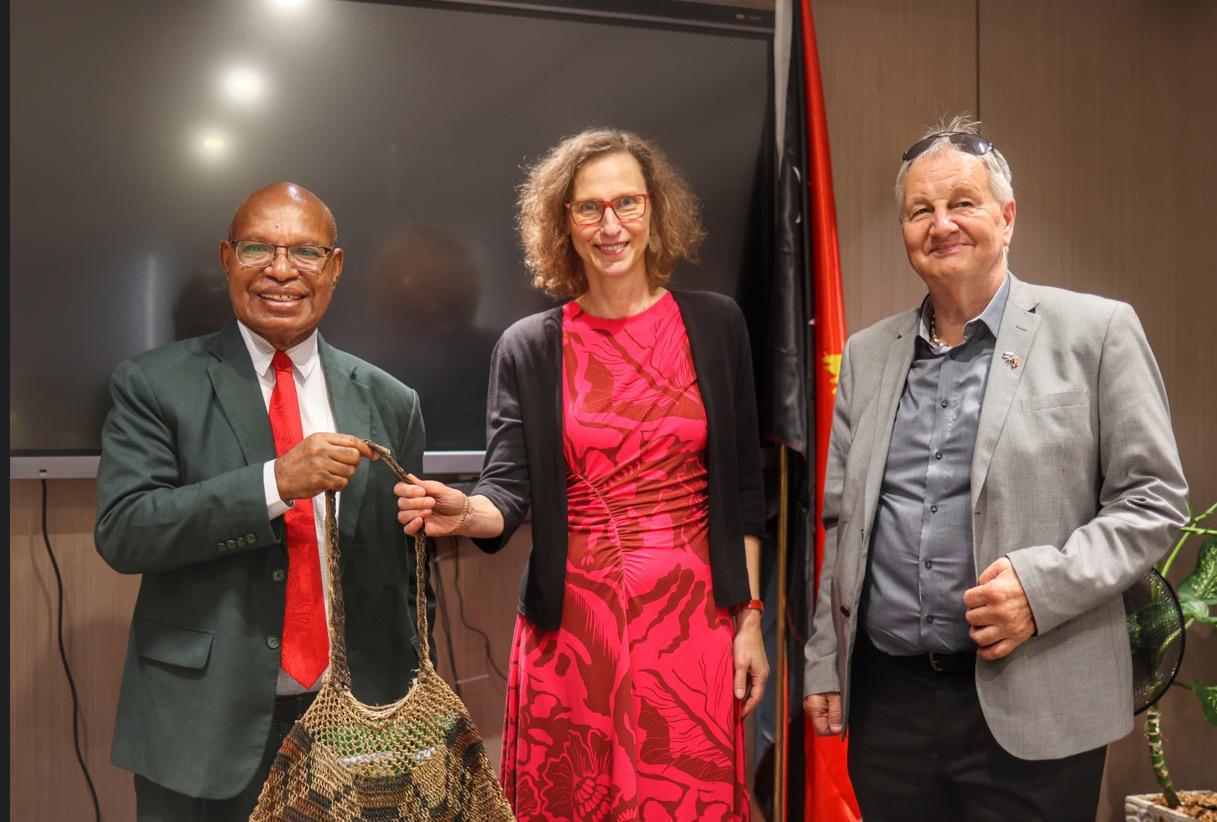
dialogue, saying PNG wants to push increased foreign investment in sustainable industries.
“We want more investments in hydro and green energy, manufacturing, and the downstream processing of forestry and building materials,” he stated.
Filipino conglomerate Century Peak Holdings Limited Corp. is set to make a substantial entry into Papua New Guinea, exploring major investment opportunities across multiple sectors, including rice farming, property development, manufacturing, and mining.
During a recent visit, the company’s management team met with Minister for International Trade and Investment, Hon. Richard Maru, and Mineral Resources Authority Managing Director Jerry Garry to discuss PNG’s business landscape.
Their plans include establishing a 10,000-hectare mechanized rice farm in Brown River, Central Province, positioning it as PNG’s first large-scale commercial rice farming operation.
Minister Maru emphasized the need to fast-track land title processes to enable the project’s commencement.
“The biggest holdup has been delays in securing State titles for
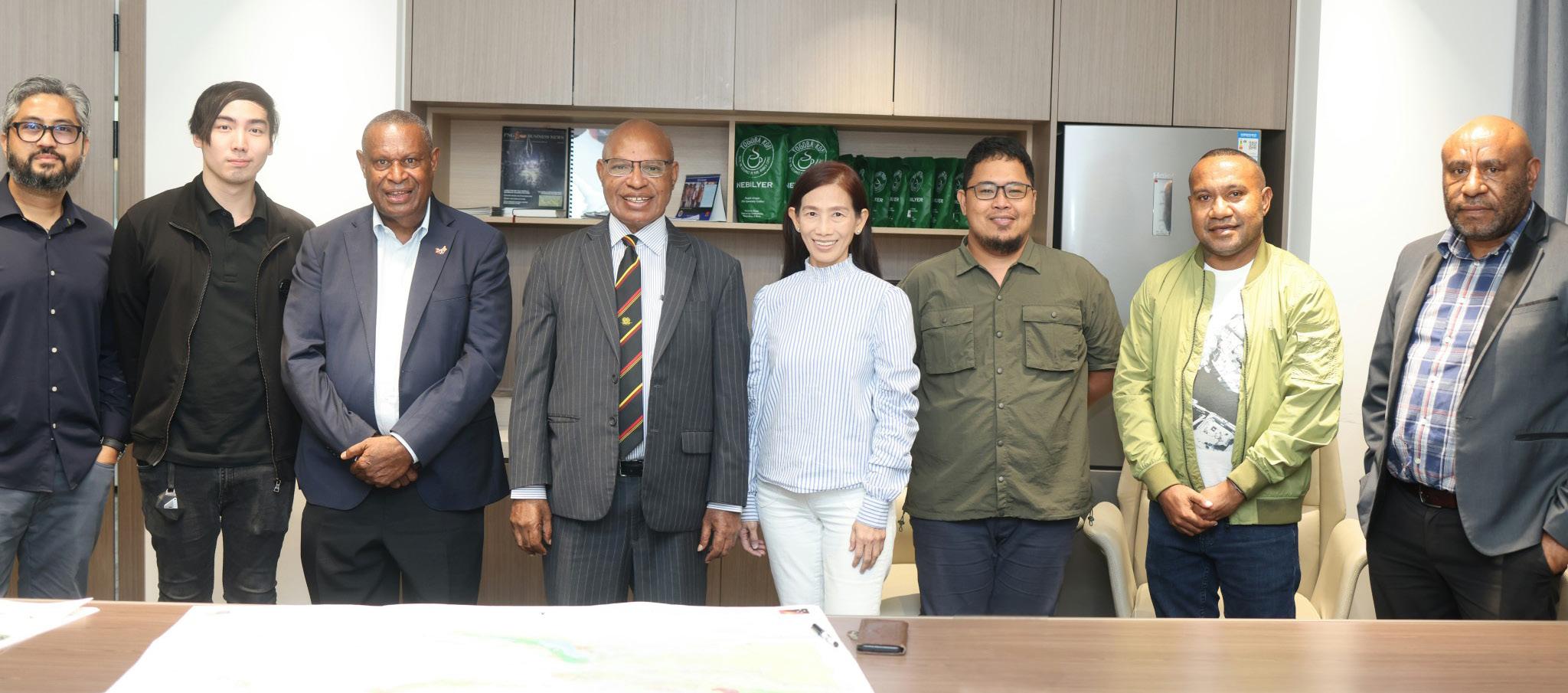
landowners, which is preventing the long-term lease arrangement required for the project,” he stated.
Efforts are underway with Deputy Prime Minister and Minister for Lands John Rosso to resolve these issues before September 16, aligning with PNG’s 50th Independence Anniversary.
Century Peak Holdings operates five subsidiaries in the Philippines, including ventures in nickel mining, cement manufacturing, and smelting,
and has officially established a country office in PNG. The company sees the Paga Hill Special Economic Zone as a promising site for expansion beyond agriculture.
With strong government support and collaboration with landowners and provincial authorities, the project aims to modernize PNG’s rice production, create employment, and boost economic activity in Central Province. More details are expected once agreements are finalized.
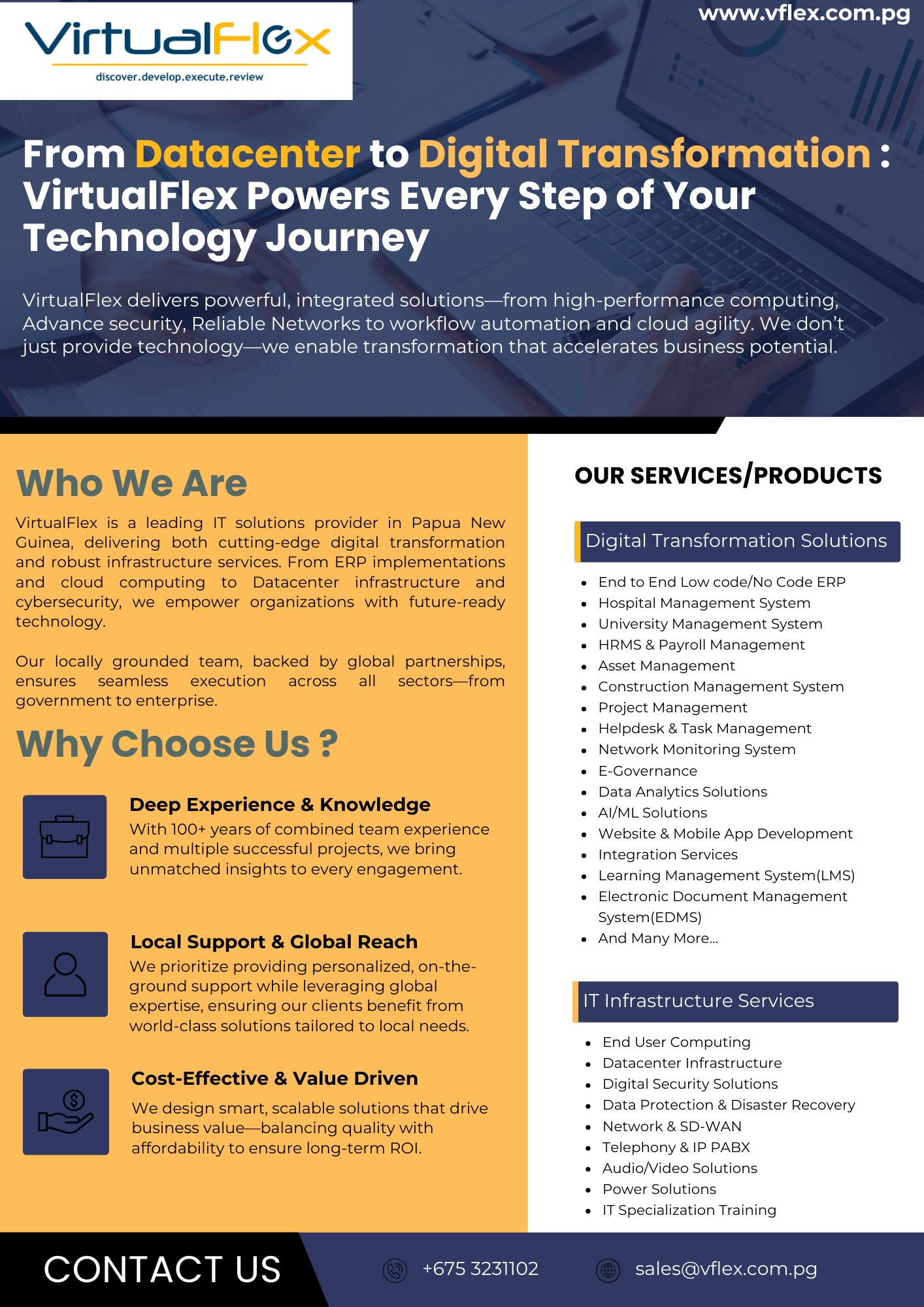
Papua New Guinea took a bold step toward digital transformation as Datec PNG Limited successfully hosted the inaugural PNG Technology & Innovation Summit 2025 at the Stanley Hotel in Port Moresby on 27-28 March 2025.
The landmark event convened industry leaders, tech pioneers, and innovators to explore cutting-edge advancements and shape the nation’s digital future.
The summit featured thought-provoking discussions and inspiring presentations, emphasizing collaboration and technological progress as key drivers of PNG’s development.
Distinguished guests, sponsors, and partners engaged in meaningful dialogues, laying the foundation for a more connected and technologically empowered nation.
This landmark summit celebrated collaboration, technological advancement, and the shared ambition to build a smarter, more connected nation.
“We extend our heartfelt gratitude to our distinguished guests, esteemed partners, generous sponsors, and valued clients whose presence and engagement made this event an extraordinary success,” Datec said in a statement.
“Your contributions sparked meaningful dialogues that will shape PNG’s technological landscape for years to come. Together, we are forging a future defined by innovation and opportunity.”
The event was made possible through the generous contributions of various organizations. Hewlett-Packard Enterprise led as the Gold Sponsor, reinforcing its commitment to global innovation. Co-Sponsors Telikom, Nasfund, and Huawei played crucial roles in bringing the summit’s vision to life.
The summit also received strong support from Silver Sponsors -- Lenovo, Fortinet, and Temenos, known for their advancements in data security and financial technology. Associated Partners -- Cybernetic Global Intelligence, RDL, and CloudSigma -- contributed to progress in cybersecurity, cloud computing, and digital transformation.
Additionally, Event Partners including the National Banking Corporation, Kumul Consolidated Holdings,
FM100, EMTV, PNG For Realz, and Wisdom Group helped deliver an impactful event.
With the success of the PNG Technology & Innovation Summit 2025, Datec PNG Limited sets the stage for continued innovation, fostering a future where technological advancements drive economic and social progress across Papua New Guinea.
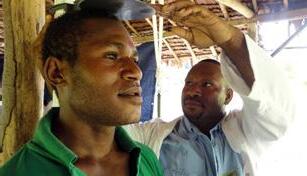
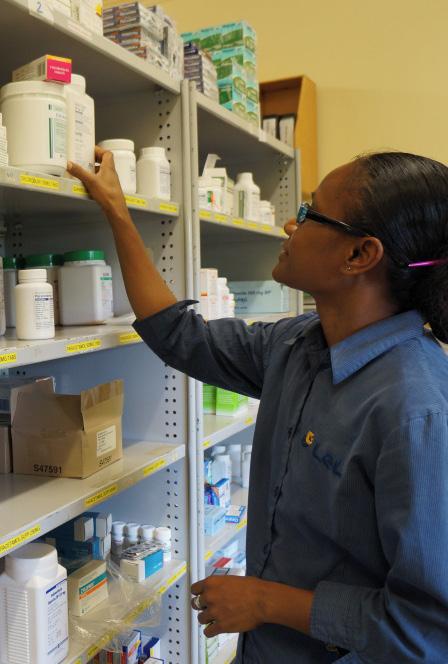
“The summit was a dynamic platform for thought-provoking discussions, inspiring presentations, and groundbreaking ideas, setting a bold foundation for PNG’s technological future,” Datec said.
“We are profoundly thankful to everyone who contributed to this historic milestone and are excited to continue this journey of innovation together.”
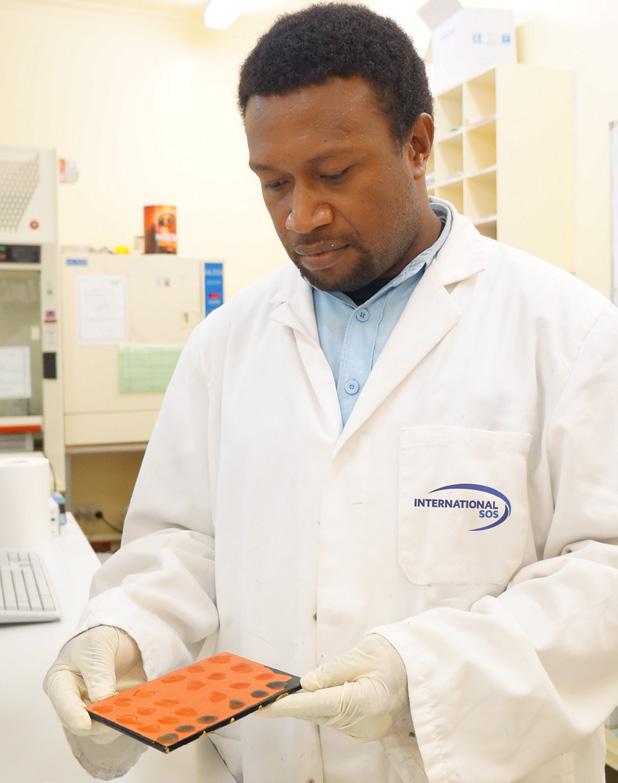
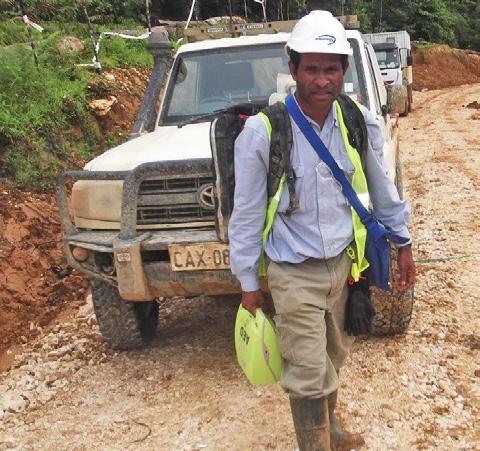
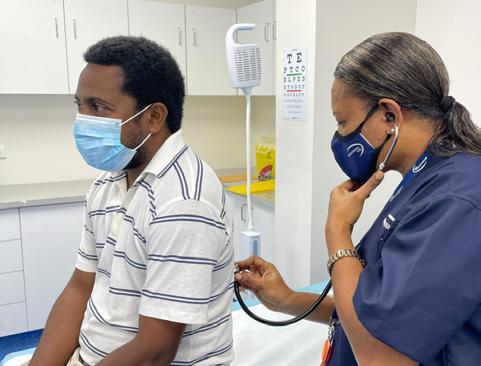
For more than 28 years operating in Papua New Guinea; we have been providing second-to-none medical services support for our energy and mining clients.
WE OFFER INTERNATIONAL STANDARD:
• Medical staffing
• Remote site medical clinics
• Medical supply services
• Clinic and hospital management
• Medical consulting
• Medical evacuation services
• Occupational health services
• Telehealth
• First Aid Training
• ACLS & BLS Training

Prime Minister Hon. James Marape has reaffirmed Papua New Guinea’s strong ties with the European Union (EU) during the Europe Day Celebration on 9 May 2025, at APEC Haus in Port Moresby.
Addressing diplomats, ministers, and development partners, Prime Minister Marape commended the EU’s long-standing support in PNG’s development.
He highlighted the EU’s contributions to education, energy, gender equality, agriculture, climate resilience, and financial governance, emphasizing their direct impact on communities, particularly in East Sepik Province.
“The European Union has been a steadfast partner. Your investment in education, agriculture, and governance is transforming communities and strengthening PNG’s capacity to grow,”
“The European Union has been a steadfast partner. Your investment in education, energy access, agriculture, and governance is transforming communities. From climate change resilience programmes to supporting us during COVID-19, you have stood by us in good times and in moments of hardship,” he added.
The EU has allocated millions of kina toward infrastructure development, public services, and rural investments, reinforcing its commitment to inclusive progress, Mr. Marape noted.
The Prime Minister emphasized PNG’s growing diplomatic presence in Europe, announcing the nomination of a Consul in Switzerland and plans to establish an embassy in France, marking a new phase of cooperation.
“Papua New Guinea is a robust democracy with a free-market economy.
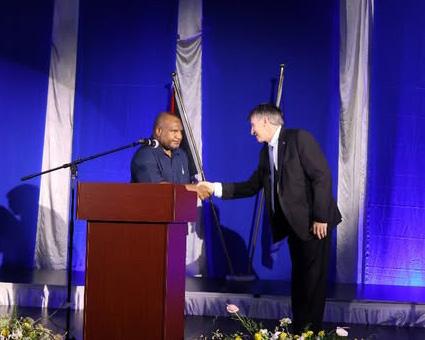
Foreign Minister Robert Schuman, whose 1950 vision laid the groundwork for European unity.
“The EU has a home in the Pacific, and though 12,000 kilometres may separate us, in every sense, you are close to us,” Marape concluded.



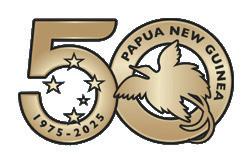

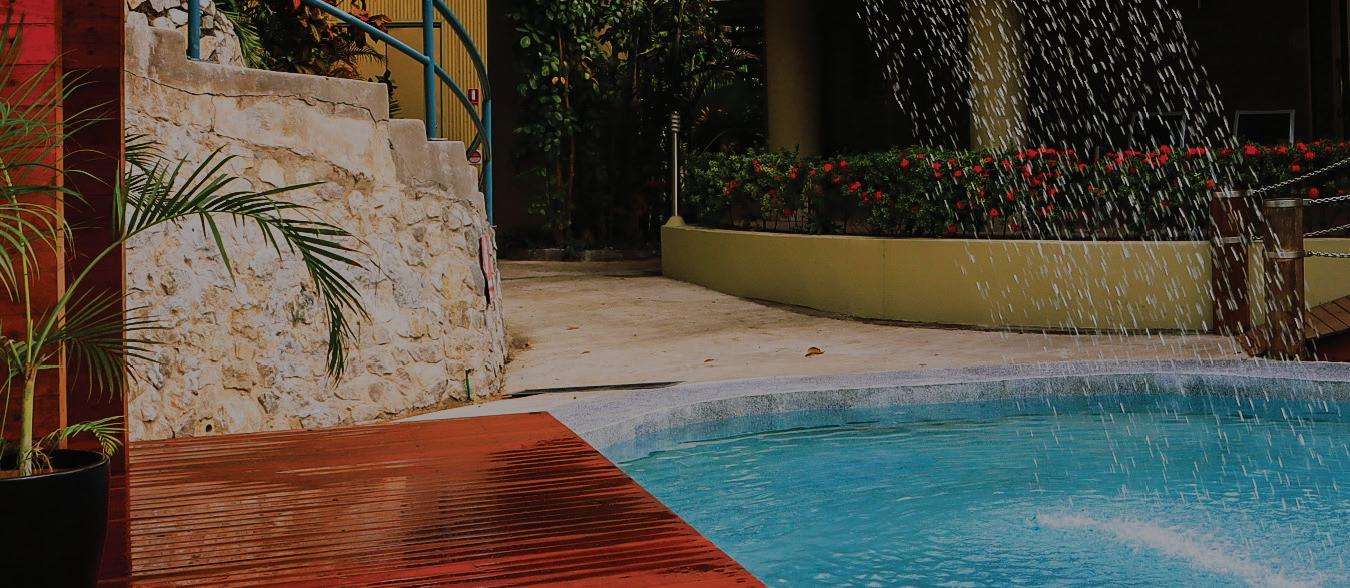
We always give our guests reasons for coming back
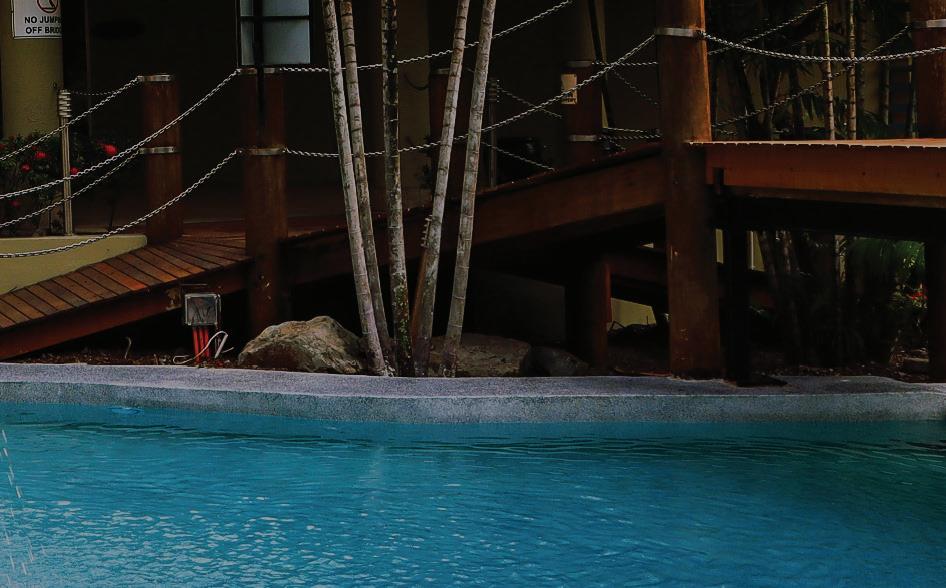
Marriott Executive Apartments Port Moresby, a waterfront property near the city centre, is nestled within the vibrant Harbourside South development. Featuring 88 luxury apartments with premier hotel services, it caters to both short- and long-term travellers. Guests can enjoy breathtaking ocean views and access to exclusive leisure facilities within the Harbourside Precinct.
A selection of spacious bedrooms and penthouses o ers the perfect balance of comfort, privacy, and residential-style living. Additionally, guests have access to Executive Boardrooms and indoor and outdoor event spaces on the 11th oor, boasting panoramic views of the harbour and city skyline. For tness enthusiasts, gym memberships are now available.
The next two years will be an exciting period of transformation as we undertake extensive renovations across six of our hotels—including ve Coral Sea-branded properties and our agship, Grand Papua Hotel. These projects are a signi cant step in rejuvenating our portfolio, ensuring an enhanced experience for our guests.
As part of our commitment to comfort, hygiene, safety, and security, we have taken a major step by embarking on SafeHotels certi cation across all our properties. Grand Papua Hotel has been awarded Premium SafeHotels status, while Gateway Hotel & Apartments received certi cation at the end of 2024. SafeHotels sets globally recognized safety, security, and hygiene standards through independent on-site assessments by industry experts. Notably, Grand Papua and Gateway are the rst hotels in all of Australasia and the Paci c Islands to achieve this certi cation - let alone Premium status.
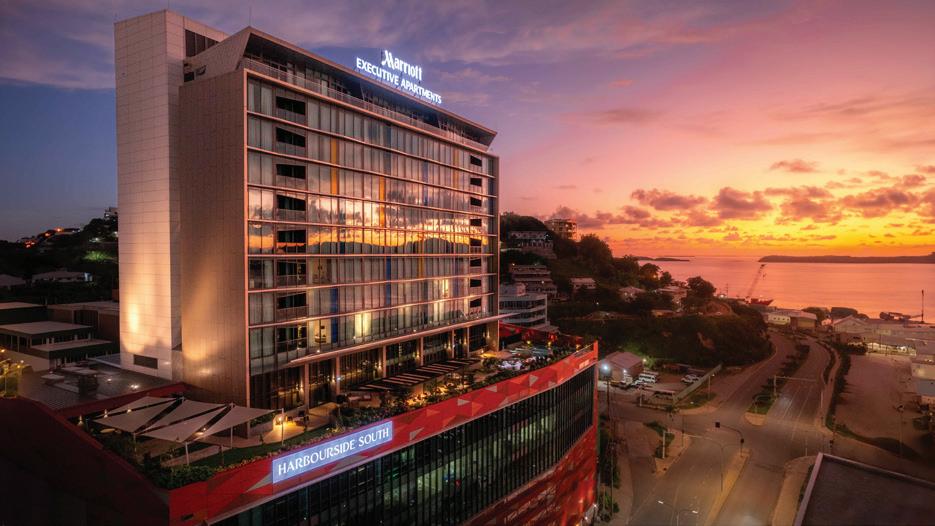
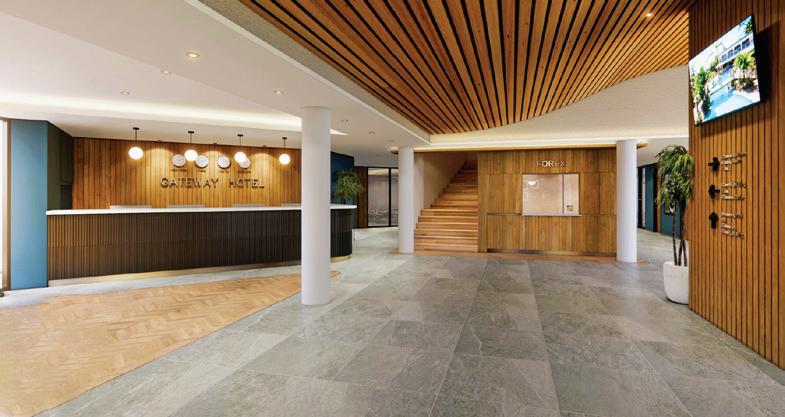








Renovation works have began at Gateway Hotel, with Ela Beach hotel and Grand Papua hotel are set to start in quarter two of 2025, followed by The Highlander (Mt Hagen), Bird of Paradise (Goroka), and Huon Gulf Hotel (Lae) in 2026. These upgrades will introduce newly refurbished rooms and apartments, state-of-the-art meeting spaces, and exciting new food and beverage o erings, further elevating the Coral Sea Hotels experience.
Meetings | Incentives | Conventions | Exhibitions & Events
Elevate your events in 2025 with Coral Sea Hotels, Grand Papua Hotel, and Marriott Executive Apartments-your premier destinations for seamless and unforgettable gatherings. Whether you're hosting a high-powered corporate function, a grand wedding celebration, or an exclusive social event, we provide the perfect combination of stunning venues, exceptional cuisine, and world-class service to bring your vision to life.
Features:
Versatile Meeting Spaces – From intimate boardrooms to grand ballrooms
Premium Comfort – Stylish seating and state-of-the-art amenities
Prime Locations – Airport, city, and beachfront venues across the country
Dynamic Breakout Spaces – Designed for collaboration and networking
Cutting-Edge Technology – Fully equipped to meet all your event needs
Award-Winning Catering – Exceptional culinary experiences tailored to your guests
Ample Parking – Hassle-free access for all attendees
Unrivalled Expertise – The most experienced and reliable venue management team in PNG
Let us transform your event into an extraordinary experience—where every detail is meticulously planned and well executed.
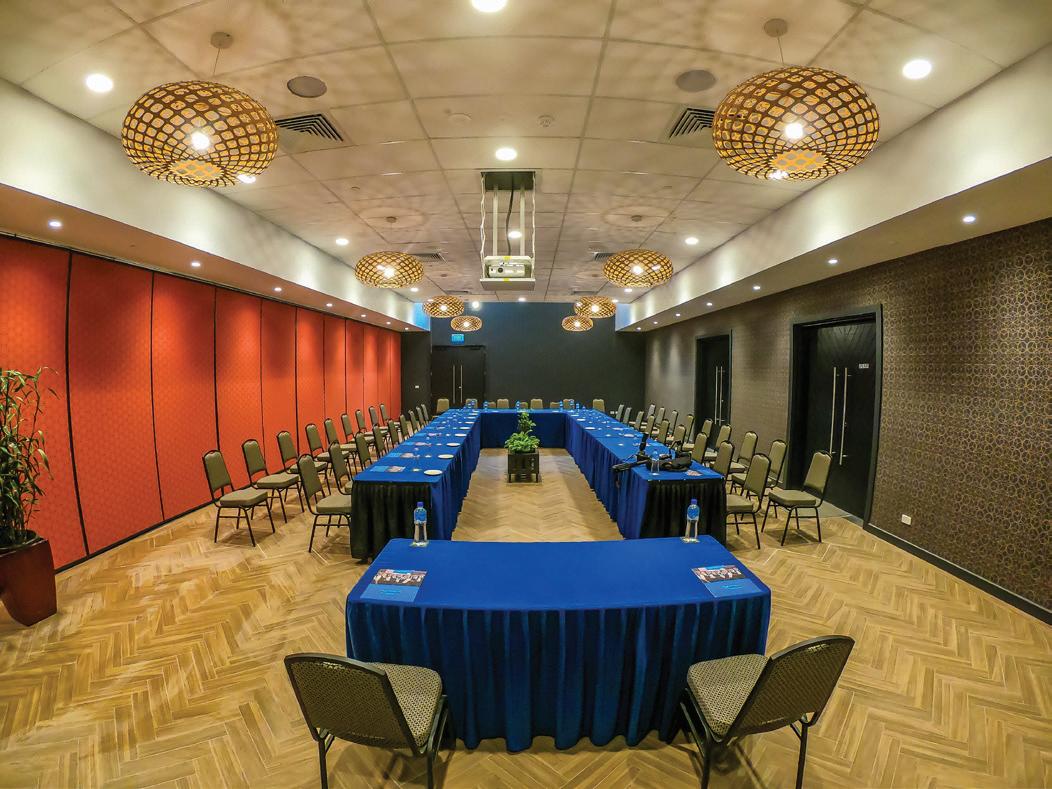
By: ROSELYN EREHE
The Department of Works and Highways has gone ahead to execute the Connect Papua New Guinea Project, reaffirming the Marape-Rosso government’s commitment to connect the country by main highways and to bring services and opportunities to the rural populace.
Prime Minister Hon. James Marape emphasized that the new roads will serve as crucial links to markets in the National Capital District (NCD) and even overseas, urging the people to prepare to work their land productively.
The official Ground Breaking Ceremony for the Southern Corridor, officiated by Prime Minister Marape at Bereina Station, was co-hosted by Minister for Works and Highways Hon. Solan Mirisim, MP and Member for Telefomin. Vice Minister for Works and Highways Hon. Peter Isoaimo, MP and Member for Kairuku was also present on April 23.
High-ranking government officials were also present -- the Minister for Planning Hon. Sir Ano Pala, MP and Member for Rigo; Minister for Provincial Affairs and LLG Hon. Soroi Eoe, MP and Member for Kikori; Minister for Livestock Hon. Seki Agisa, MP and Member for Middle Fly; and Minister for Energy Hon. Thomas Opa, MP and Member for Kerema.
Central Governor Madam Rufina Peter, MP, and Gulf Governor Sir Chris Haiveta, MP, were also present.
Key contract awards for the Southern Corridor development along the Hiritano Highway are as follows:
1. Bereina to Apanaipi - A K78 Million contract awarded to Dekenai Construction Ltd.
2. Apanaipi to Malalaua - A K112 Million contract awarded to China Wu Yi Limited.
3. Laloki to Brown River - A K148 Million contract awarded to Hebou Construction Limited.
REDEVELOPMENT OF ROUTE 600: HIRITANO HIGHWAY
These announcements come on the back of another development, the
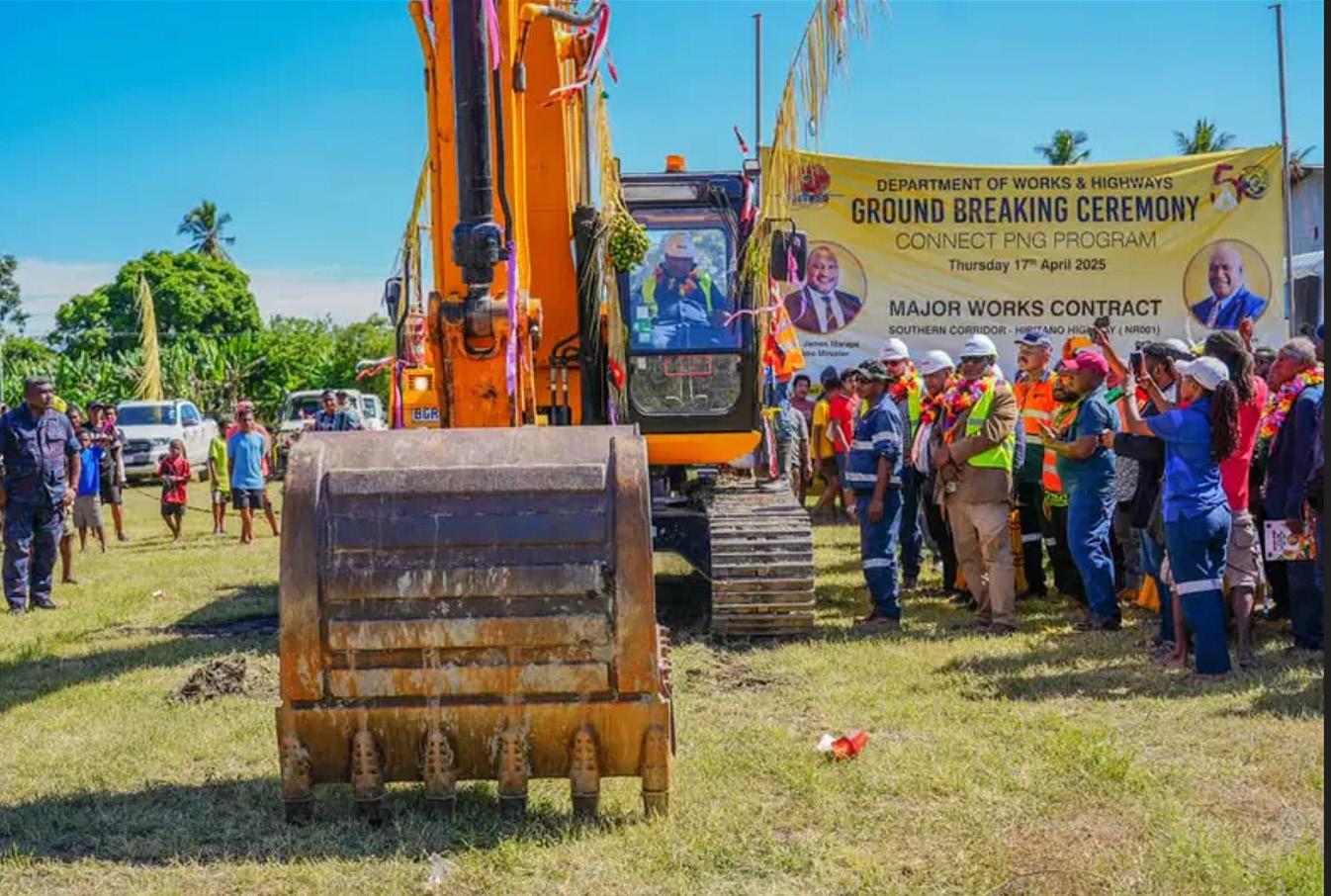
Redevelopment of Route 600.
This is a massive road project undertaken after a 30-year maintenance drought along this important highway, linking Gulf Provincial capital Kerema town with Central Province and Port Moresby.
The Hiritano Highway is notably listed as highway number 001 out of the 16 national highways in PNG, according to the Works Road Asset Management records.
PM Marape led the groundbreaking for this redevelopment on April 17 at Bereina Station in the Kairuku District of Central Province. Both Gulf Governor Hon. Sir Chris Haiveta and Central Governor Hon. Rufina Peter were also present to support the initiative.
Department of Works and Highways Secretary Mr. Gibson Ali Holemba, in his introductory remarks, confirmed the two new major road maintenance contracts:
• Bereina to Apanaipi awarded to Dekenai Construction Ltd for K78 Million.
• Apanaipi to Malalaua awarded to China Wu Yi Limited for K112 Million.
Mr. Holemba also said the Laloki to Brown River contract, valued at K148 Million and awarded to
Hebou Construction Limited, had been awarded earlier but is currently subject to a court battle.
The project forms part of the government’s broader Connect PNG initiative, aimed at achieving economic independence through substantial investments in critical infrastructure.
By empowering local contractors with projects ranging from K50 million to K300 million, the government has turned small and medium enterprises (SMEs) into multimillion-dollar entities, thus fostering economic growth, resilience, and creating thousands of jobs.
The Hiritano Highway aims to connect communities, stimulate trade, and unlock the economic potential of underdeveloped regions.
As the northern region increasingly connects with the southern region, the government anticipates a rise in vehicle movement, cargo transportation, and a boost in business and trade opportunities.
The Hiritano Highway redevelopment sets a foundational pace as the nation looks forward to the connection of Lae (Morobe Province) to Kerema (Gulf Province) through the Trans–National Highway, anticipated to be completed by September this year.

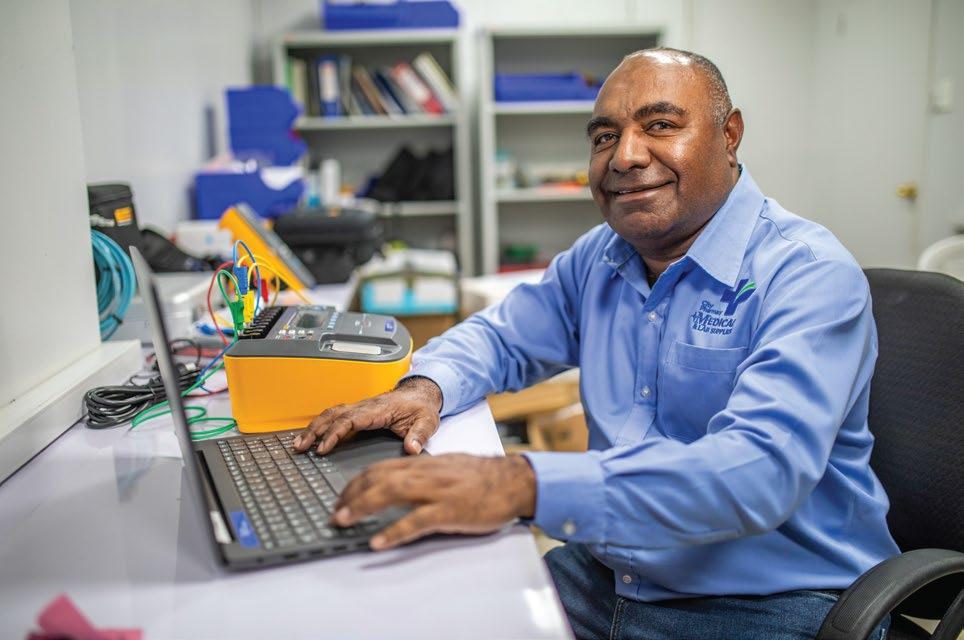











The PNG Customs Service and EastWest Transport (EWT) have signed a Memorandum of Intent (MOI) for the trial implementation of the Trusted Trader Program (TTP) marking a significant step towards securing, streamlining and facilitating legitimate trade in PNG.
The MOI was signed at the PNG Customs Headquarters by Customs Chief Commissioner David Towe and EWT General Manager Nicholas Bury, enabling EWT to become the third freight forwarder to participate in the program in PNG.
The TTP, also known as the Authorized Economic Operator (AEO) program, has become a flagship Customs-Business partnership in many countries around the world and is a key initiative under the World Customs Organization’s (WCO) SAFE Framework of Standards, which outlines standards for securing and facilitating global trade.
Under the program, businesses become recognized as trusted traders by Customs administrations around the world after meeting specific security and compliance standards. Trusted traders typically receive benefits like expedited Customs clearance, reduced inspections and other preferential treatment.
“This program is designed to optimize trade security while allowing for seamless movement of goods across borders, thereby minimizing Customs intervention,” Chief Commissioner David Towe stated. “Increased Customs intervention at the border raises the cost of doing business, thus, this program aims to secure trade, reduce Customs intervention, and lower business costs.
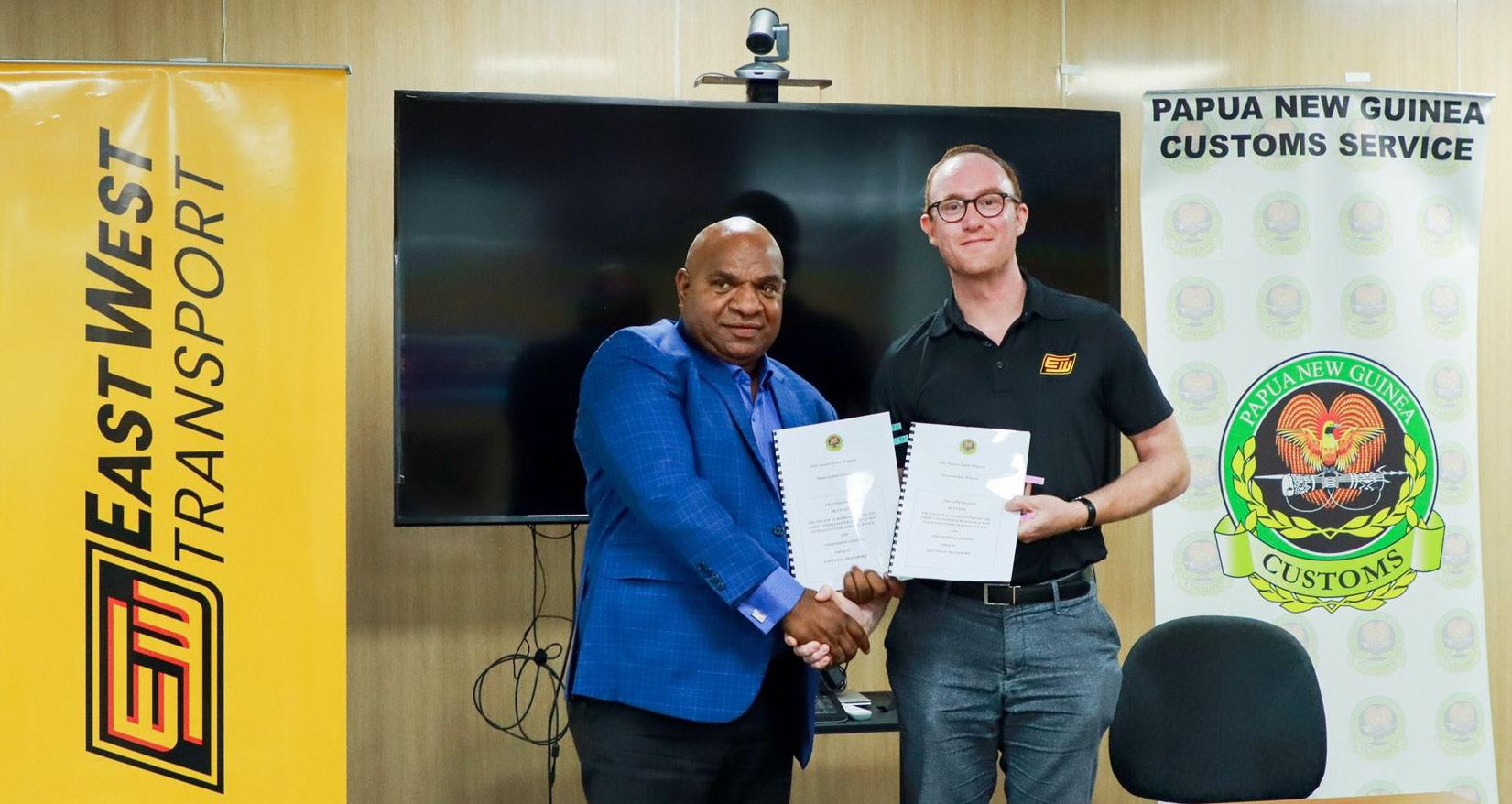
“Given the rising cost of goods and services, Customs is seeking ways to alleviate such burdens,” the Chief Commissioner added.
The Chief Commissioner said EWT is the third freight forwarder in PNG to participate in the trial program highlighting the importance of public-private partnership in streamlining trade processes. The other two freight forwarders are Express Freight Management and Lae Inland Logistics.
“The journey began in October of 2023 when EWT expressed its’ interest in joining the program,”
Customs Assistant Commissioner Compliance and Procedures Roselyn Tei stated. “Following the request, PNG Customs conducted multiple internal compliance assessments and site validations to ensure EWT’s security standards were in compliance with the WCO’s SAFE Framework of Standards.”
“We appreciate EWT’s commitment, and the efforts and resources put together to meet our requests and security requirements,” the Assistant Commissioner added.
EWT General Manager Nicholas
Bury expressed gratitude for the opportunity to join the trial program and emphasized the importance of collaboration between businesses and Government.
“While working in PNG over the years I have witnessed increased engagement with the Customs team and everything said here today has resonated with me,” Mr. Bury said. “We are strong believers in working together to deliver efficient and cost-effective services to PNG companies and consumers.”
He added that EWT has made significant investments to align with the program’s requirements and is committed to passing on the resulting cost savings to the end consumer.
“In a time of increasing cost, programs like this will make a huge difference”, he said.
EWT and PNG Customs are eager to continue working together as Customs progress and finalize the legal framework of this program.
Following the engagement of the third freight forwarder under the TTP program, the next plan for PNG Customs is to bring onboard importers and exporters.
< Page 36
A highlight of the groundbreaking ceremony was the emphasis on the K300-million investment into the rehabilitation of the Hiritano Highway and a strong call to action for roadside communities and the people of Gulf and Central provinces.
Prime Minister Marape encouraged citizens to mobilize their land, register it for commercial agriculture,
tourism, and business activities, and to avoid complacency. He stressed the importance of working the vast lands to earn a living and participate actively in the country’s economic growth.
Meanwhile, the Magi Highway Missing Link Road was officially opened on April 15, connecting Central and Milne Bay Provinces -- realizing a
vision that dates back more than 50 years since the country gained independence.
The road is expected to transform landlocked areas into agricultural and tourism hotspots, supporting the government’s vision of elevating the nation into a middle-income country.
The Department of Works and Highways, through these projects, continues to ensure that the benefits of infrastructure reach every corner of PNG.
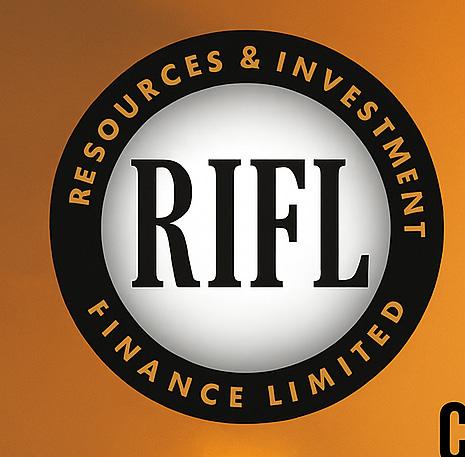

For the first time in 50 years, Papua New Guinea is pushing for a Comprehensive Economic Partnership Agreement (CEPA) with Japan, aiming to deepen trade and investment ties between the two nations.
During a formal meeting in Tokyo, Minister for International Trade and Investment Hon. Richard Maru conveyed PNG’s commitment to forging a new era of partnership with Japanese Minister for Economy, Trade, and Industry Hon. Koga Yuichiro.
Minister Maru highlighted Japan’s role as PNG’s biggest export market, with US$4 billion worth of goods flowing into Japan annually, compared to US$250 million in imports from Japan.
He emphasized the untapped potential for increased investment and trade flows, stating, “It’s time to reset our relationship and anchor it through a formal trade agreement.”
Minister Yuichiro welcomed the proposal but noted that key trade issues must be addressed, including direct flights between PNG and Japan,
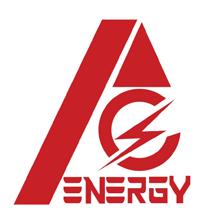
visa-on-arrival arrangements for Japanese travelers, and duty-free market access for Japanese goods in PNG.
He requested PNG to draft a framework for CEPA, signalling Japan’s willingness to move forward.
The LNG sector was a focal point, with PNG currently supplying 6% of Japan’s energy needs but holding only a 5% stake in PNG’s LNG projects.
Minister Maru urged Japanese companies to take a larger ownership stake, fostering stronger investment in PNG’s mining, petroleum, and industrial sectors.
With CEPA negotiations expected to begin this year, PNG seeks to leverage its longstanding relationship with Japan to boost its economy, strengthen trade, and drive sustainable development.
“Our country has benefited very immensely from Japan through scholarships and development aid through organizations like Japan International Cooperation Agency (JICA) and Japan Bank for International Cooperation (JBIC),” Mr. Maru stated.

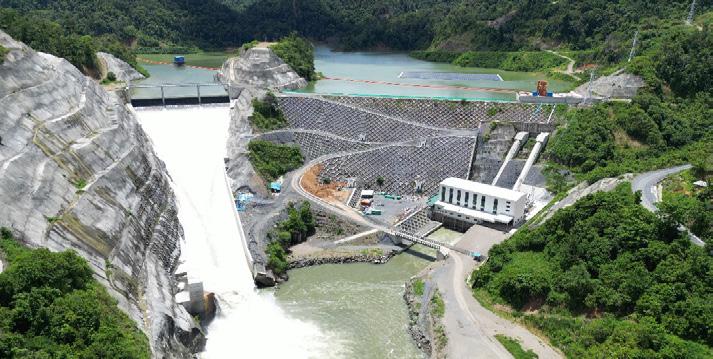
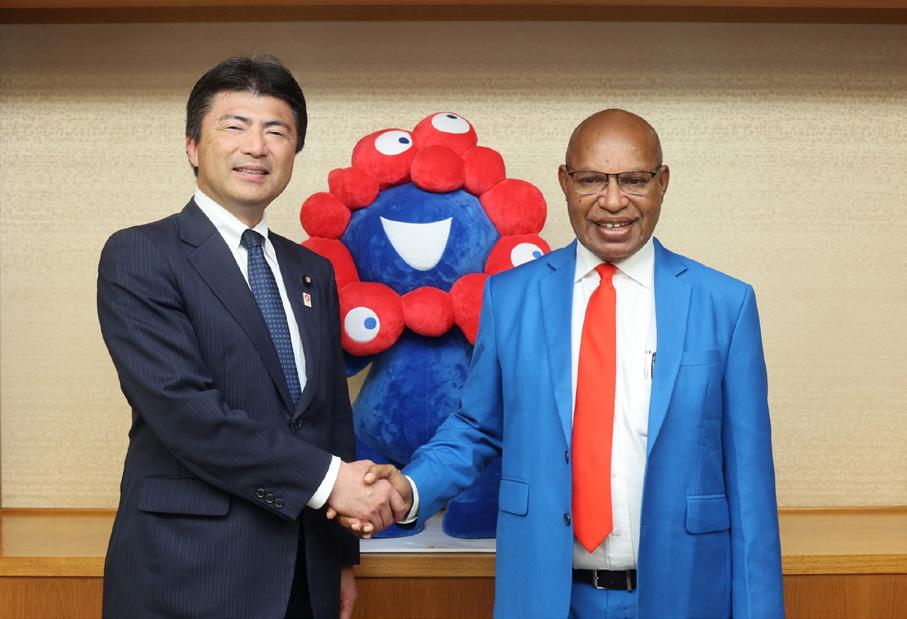
“The most recent examples are the Tomodachi International Airport at Nadzab in Lae, Morobe Province, and three weeks ago JBIC announced a loan of K1.8 billion US Dollars to bankroll the funding the Papua LNG Project.”
“During our disasters, Japan has always been one of the first countries to come to our aid. I want to express to your Government and your country our heartfelt gratitude for such enduring, warm and lasting relationship that has evolved over the last 50 years,” he told Minister Yuichiro.
+675 72100645
www.aginvestmentpng.com
Port Moresby, Papua New Guinea
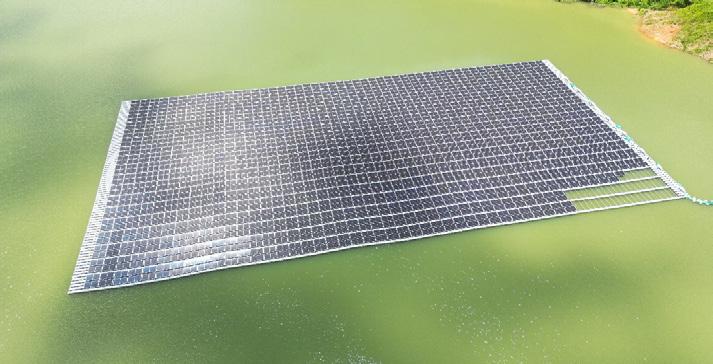
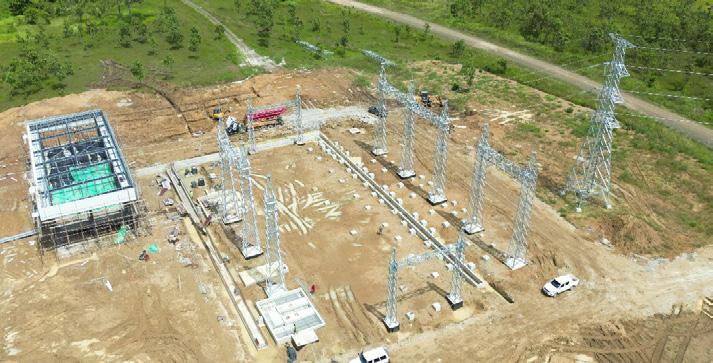
Powering Papua New Guinea’s Future, AG Energy Limited - The Technical Force Behind AG Investment Ltd.
As the specialized t echnical arm of AG Investment Ltd, AG Energy Limited playsa a pivotal role in delivering high-impact infrastructure and energy solutions across Papua New Guinea. From hydropower to civil works, we bring engineering precision and local expertise to every project.
Subcontractor to landmark developments like the Edevu Hydro
Power Plant
Over 200 local jobs created annually
Driving sustainable progress through technical excellence
Together with our parent company, we’re not just building infrastructure- we’re building opportunity.
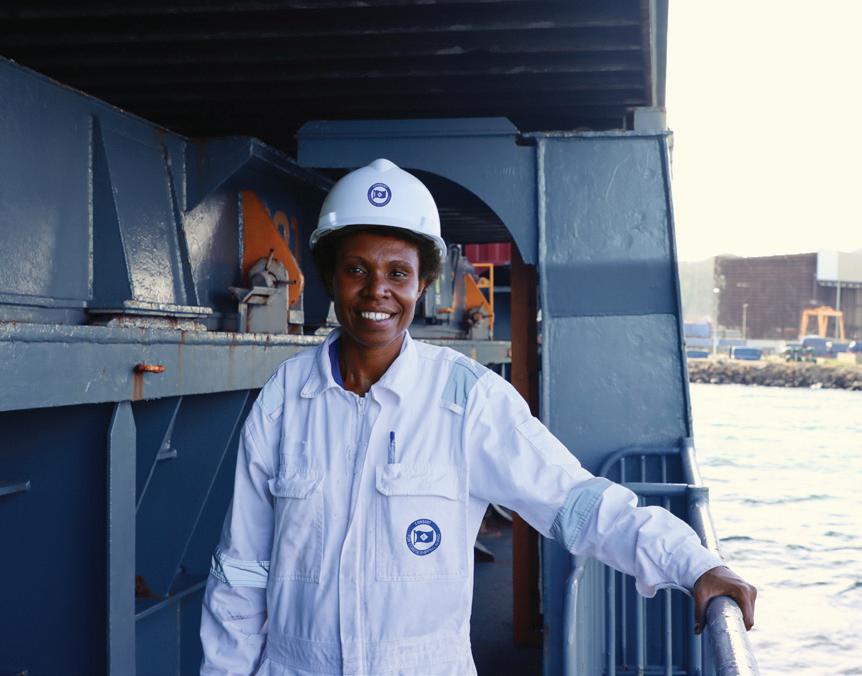
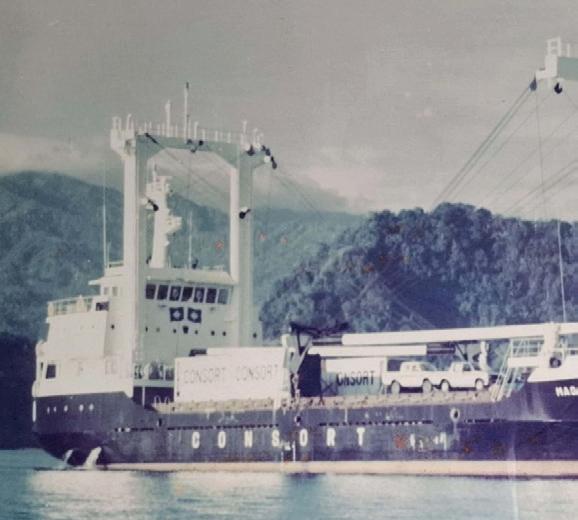
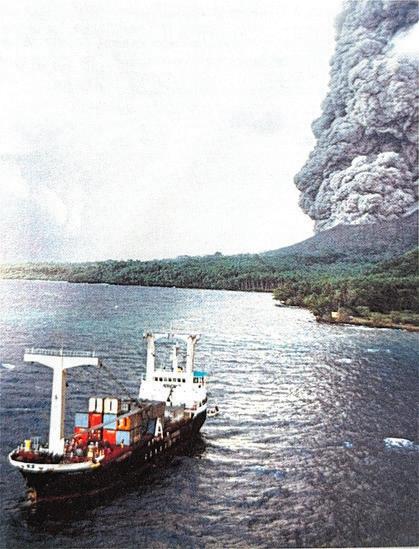
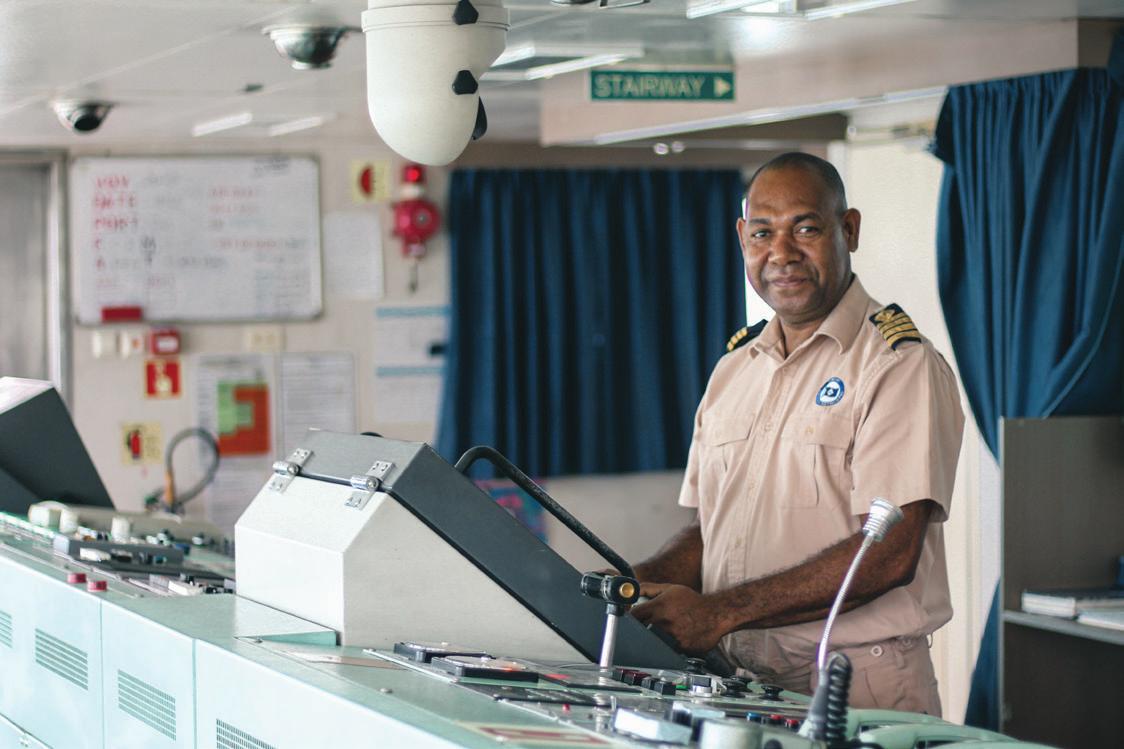
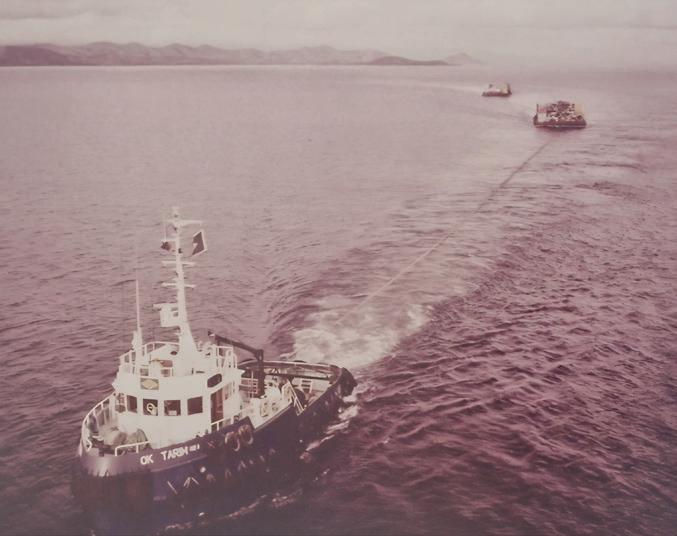



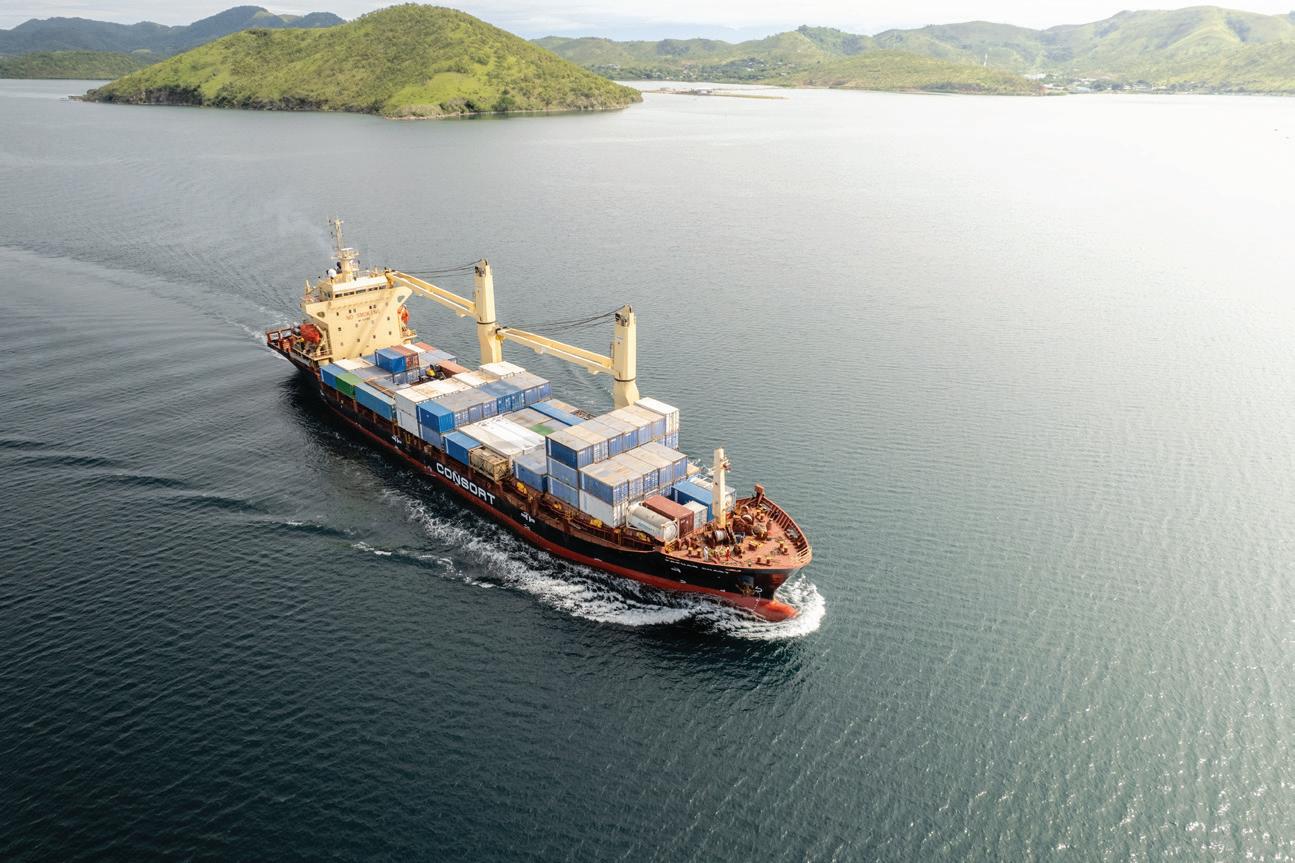
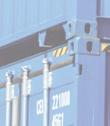
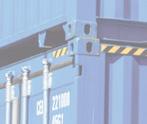











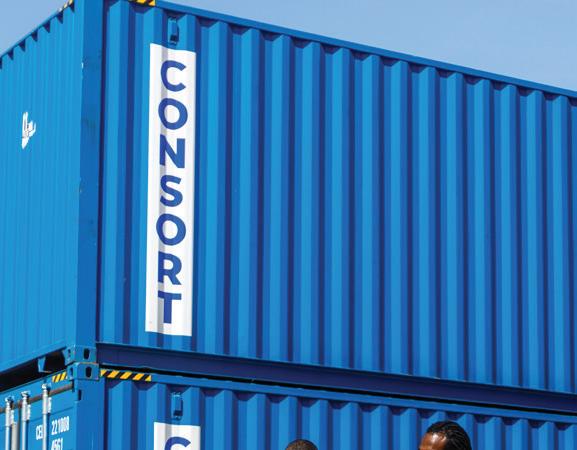



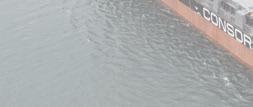

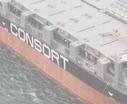






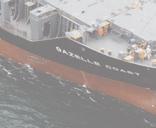









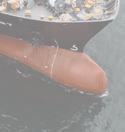

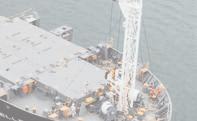


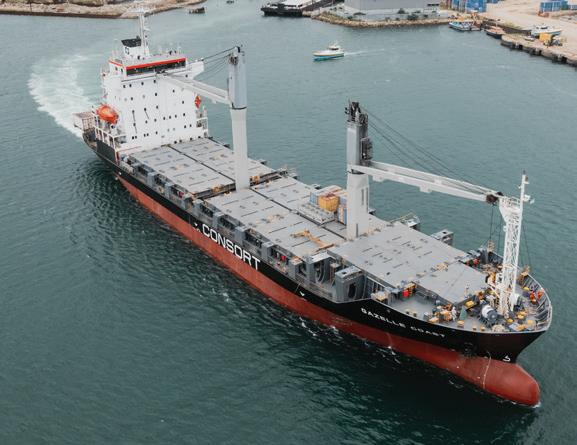



















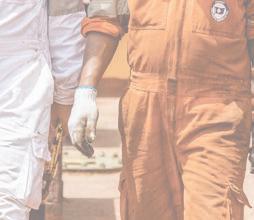






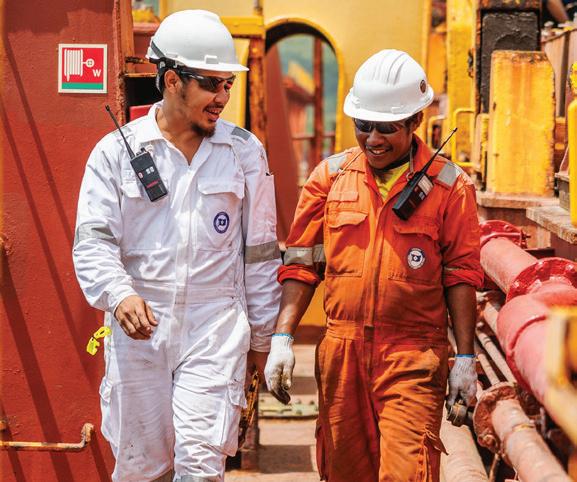




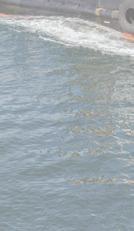
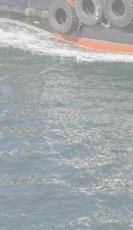
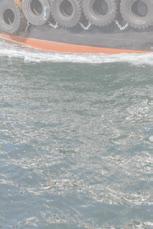
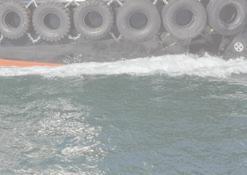
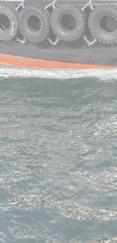

Weekly Sailings
Liner Shipping
Lea , Por t Moresby, Kiunga, Madang, Rabaul
1 0-day Sailings
K i mbe , L orengau
Weekly Sailings
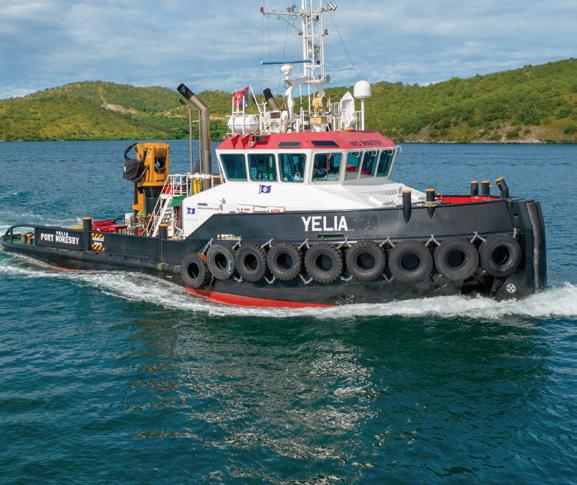
Project Charters Cargo Consolidation
Door-to-Door Delivery
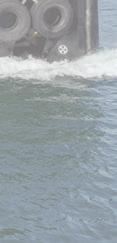


For half a century, Consor t has proudly supported a diverse range of clients across Papua New Guinea’s energy and resources, construction, wholesale and transport sectors
As PNG’s leading coastal shipping provider, we remain committed to delivering consistent and reliable services to all our customers
Fortnightly Sailings
L ae, Por t Moresby,
Lorengau, Madang, Rabaul
Aoltau, Buka, Kavieng, Kieta, Oro Bay, Vanimo, Wewak
10-day Sailings Kimbe, Kiunga
Li ner Shipping
For tnightly Sailings
Door-to-Door Delivery
Alotau, Buka, Kavieng, Kieta, Oro Bay, Vanimo, Wewak
Project Charters Cargo Consolidation
O ur Services | |
Under the global theme “Ending Plastic Pollution, Globally,” the PNG Chamber of Resources and Energy (PNG CORE) joined the Conservation and Environment Protection Authority (CEPA), international development partners, and key stakeholders at APEC Haus to mark World Environment Day.
Hosted by CEPA, Santos and ExxonMobil PNG were part of entities supporting the event, which event rallied under the urgent global call to “Beat Plastic Pollution.”
“The message was clear, addressing plastic pollution demands urgent awareness, collective action, and shared responsibility—from individuals to industries,” the Chamber said in a statement.
“PNG CORE stands firmly behind this call, recognising that environmental stewardship is not just a duty, but a legacy we are committed to protect.”
It also welcomed the news that CEPA is working on putting in place a Waste Management Policy, and looks forward to working with CEPA on matters relat-


ed to prudent waste management.
“As custodians of 7 per cent of the world’s biodiversity, Papua New Guinea plays a vital role in global conservation,” the Chamber said.
“From the misty highlands to the coral-rich Bismarck Sea, PNG is home to extraordinary species such as the Queen Alexandra Birdwing—the world’s largest butterfly— and the only known poisonous birds. These ecosystems are not only biologically rich but are deeply woven into our identity, culture, and future.”
PNG CORE Chief Operating Officer, Mrs. Pansy Taueni-Sialis, reaffirmed the Chamber’s commitment to sustainable development across the resources and energy sector and beyond.
“Our actions are aligned with the United Nations Sustainable Development Goals (SDGs) and global Environmental, Social, and Governance (ESG) standards. We believe that responsible resource development and environmental protection must go hand in hand,” said Mrs. Taueni-Sialis.
“Across the country, PNG CORE
members are taking bold, practical steps to protect the environment:
• Ok Tedi Mining Ltd – Restoring ecosystems through advanced land rehabilitation and sediment control.
• K92 Mining Ltd – Supporting national reforestation through nursery programs and community tree planting.
• Santos – Reducing ecological impact through sustainable water reinjection practices.
• ExxonMobil PNG – Partnering with communities to co-develop conservation plans, including the Lake Kutubu Wildlife Management Area.
“These initiatives reflect a sector-wide commitment to environmental leadership and the protection of PNG’s irreplaceable natural heritage,” she said.
“On World Environment Day—and every day—PNG CORE stands as a partner in conservation, innovation, and responsible development. Our pledge to ‘Beat Plastic Pollution’ is a call to action for every citizen and every sector. Protecting our environment is protecting our future.”










From cloud to connectivity, Daltron is your ICT Solutions partner delivering end-to-end services that reduce costs, boost efficiency, and scale with your business.
Whether you’re a growing SME or an enterprise operation, Daltron provides tailored technology solutions that drive real outcomes. From managed IT services and cloud infrastructure to hardware supply, cybersecurity, and business-grade connectivity, we make your ICT smarter—so your business can do more with less.
With nationwide support and decades of local expertise, Daltron is your ICT partner in Papua New Guinea and beyond.


PNG Ports Corporation Ltd (PNG Ports), which owns and operates 15 ports across Papua New Guinea, is advancing a major port upgrade program set to transform the nation’s maritime infrastructure.
Supported by a combination of international donor funding and internal investment, the decade-long initiative will deliver critical improvements to six ports.
Works range from essential dredging and pile replacements at smaller ports to a proposed 240-metre wharf extension at Lae—the country’s busiest international port—as part of its transformation into a key regional transhipment hub.
PNG Ports’ commitment to port modernisation began well before the launch of its current upgrade program.
New domestic and international terminals were built at Port Moresby’s Motukea maritime precinct between 2015 to 2018 and a raft of critical infrastructure improvements have been introduced at Lae Port since 2012.
These have included a new tidal basin, wharf, terminal yard, and most recently, the 45-hectare Lae Industrial Park.
The development of new port infrastructure in PNG’s two largest cities paved the way for a partnership between PNG Ports and international terminal operator ICTSI, resulting in significant efficiency improvements.
According to the World Bank’s 2023 Container Port Performance Index, Lae and Port Moresby outperformed several major regional ports—including Melbourne, Sydney, Brisbane, Auckland, and Napier.
The current port upgrade programme targets the ports of Daru, Kavieng, Kimbe, Lae, Oro Bay, and Rabaul – with a parallel programme of improvements and maintenance for the ports of Lorengau, Vanimo and Wewak.
PNG Ports is partnering with the European Union (EU), the Agence Française de Développement (AFD), and the European Investment Bank (EIB), to upgrade the port at Rabaul, an increasingly popular cruise tourism destination.
However, by far the most significant funding partner of
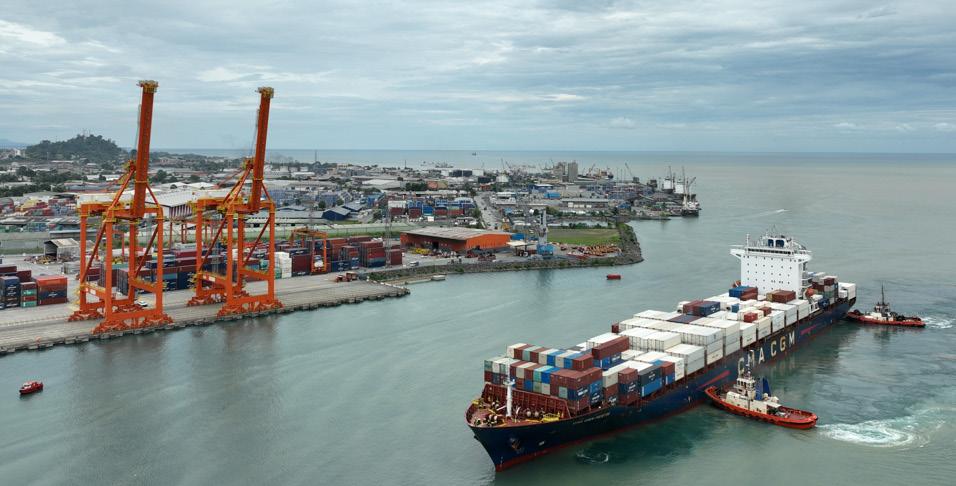
the programme is the Australian Government through its Australia Infrastructure Financing Facility for the Pacific (AIFFP).
The AIFFP will help fund the upgrades to Daru, Kavieng, Kimbe, and Oro Bay ports, as well as the potentially 240 metre extension of the international wharf in Lae, part of the Lae Tidal Basin development project.
The AIFFP’s A$621.4 million investment comprises a loan of A$521.4 million and grant of A$100 million.
PNG Ports Chair, Harvey Nii, reports that the initial plan was for the AIFFP to fund both the marine and land packages of the port upgrades.
However, he explains that “significant construction cost increases globally in combination with PNG Ports’ desire to minimise debt has resulted in PNG Ports electing to selffund most of the land packages and undertake them at a later date when it is more economically viable to do so.”
Instead, PNG Ports is prioritising the critical and more expensive marine infrastructure of its ports over the land works.
Nii explains that “our focus is on first providing PNG with proper wharfs, jetties, quays, ramps and berths before investing in new buildings and roads etcetera. It is the actual marine infrastructure that will help drive PNG’s future growth and prosperity, thus it needs to be built now.”
The wharf at Lae’s international terminal is a piece of PNG’s most significant marine infrastructure. Initial plans were for it to be extended by 150 metres. However, another 90
metres is being proposed in line with the vision to transform Lae into a regional transhipment hub.
As PNG’s manufacturing heartland and a gateway to major resource projects, Lae is strategically positioned near key shipping routes between Asia and Australia. The port also benefits from its immediate proximity to the newly developed 45-hectare Lae Industrial Park.
Nii describes prioritising the expansion of the Lae wharf as “a financially responsible and strategically astute investment in that it will generate substantial amounts of new business for Lae Port and consequently enhance PNG Ports’ profitability.”
“Vessels are getting larger, and there is a growing trend amongst the world’s major shippers to utilise ‘hub and spoke’ type arrangements such as what we’re working towards in Lae” explains Nii.
“Early this year we saw the largest container vessel to ever visit PNG utilise our Lae facility efficiently and safely. We know that with PNG’s growth and the continued expansion of global shipping that much larger vessels will call into Lae if we have the right transhipment infrastructure in place.”
No doubt, the transformation of Lae into a transhipment hub will bring significant economic benefit to PNG’s second largest city, as well as to the developing nation itself. Minister for State Enterprises, and responsible for PNG Ports, Hon William Duma, describes PNG Ports’ programme of port upgrades, and in particular Lae’s ambitious wharf
Strategically positioned near key shipping routes between Asia and Australia, Lae Port is set for a major wharf extension to support its transformation into a regional transhipment hub.
Business Training
Business Assessment Services
Business Advisory & Mentoring
Workshops, Seminars & Events
Project Information Center
Supplier Management Portal
ISO 9001:2015 - QMS Training, Audit and Certification
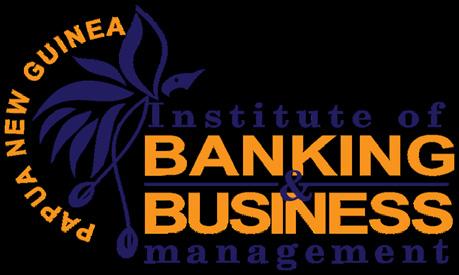



extension as “forward thinking” and “nation building.”
Engineering work for the Lae wharf extension and all other port upgrades is being done to Australian and New Zealand standards.
With PNG’s 50th anniversary of independence in September this year, Duma’s confidence is well placed when he says that “the people of PNG can be confident that the port infrastructure upgraded today will still be benefitting our nation in 50 years’ time when we celebrate our 100th anniversary.”
The six ports included in PNG Ports’ upgrade program are at varying stages of early development, ranging from initial scoping to contract awarding. Among them, the Kimbe Port project is currently the most advanced.
Kimbe Port, PNG’s third most profitable port, plays a vital role in the country’s palm oil exports.
Earlier this year, the marine works contract—which includes demolishing the existing wharf and constructing a larger replacement—was awarded to North Queensland-based Pacific Marine Group (PMG), with mobilisation expected in the early second half of the year.
In May, the landside works contract, covering infrastructure such as buildings and roads, was awarded to PNG firm Global Constructions. The full project is scheduled for completion by the end of 2026.
Both construction contracts for Kimbe Port include strict local content requirements, mandating the use of local contractors, businesses, and workers to ensure economic benefits flow directly to the surrounding community.
This approach aligns with PNG’s broader commitment to establishing a National Content Policy—not only for major resource projects, but for all significant economic activities that drive national development.
Nii reports that all contracts for construction works at the other ports being upgraded will include similar local content requirements.
Although contracts for other ports have not yet been awarded, the tendering process is underway and
construction of the Daru, Kavieng, Oro Bay and Rabaul ports, including the relocation of Kavieng port to enable its expansion and maximise its commercial potential, is expected to commence in 2026.
In the meantime, PNG Ports continues with a comprehensive programme of stakeholder engagement that is particularly essential when undertaking major infrastructure projects in PNG.
Indeed, Nii explains that PNG Ports’ investment in stakeholder engagement is one of the reasons that the port upgrade programme has continued to progress so well, despite
cost increases and the associated project rescoping.
“Consulting with footprint communities, businesses, local government, civil society etcetera is something PNG Ports excels at, and this has been acknowledged by our donor partners,” he said.
“In short, whilst our team has been learning about some of the more technical aspects of wharf engineering, so too have we been transferring knowledge to our donor partners on the of stakeholder engagement process and its many nuances when undertaking
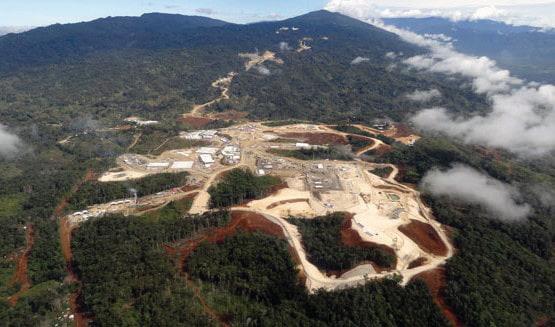
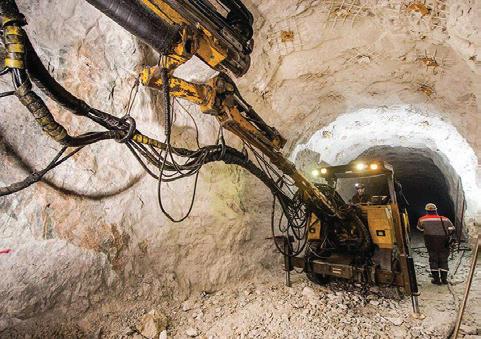

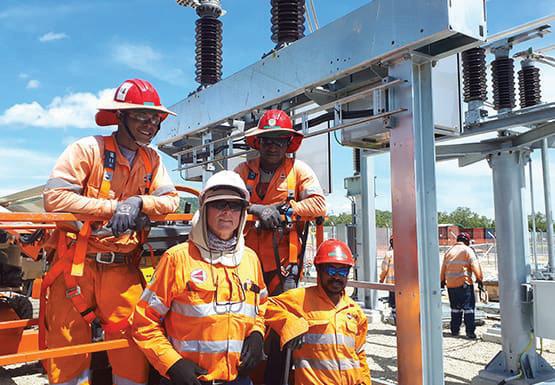

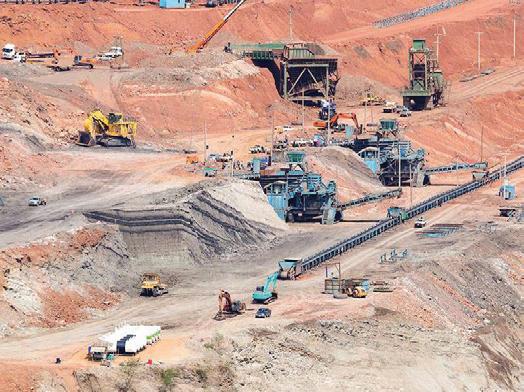
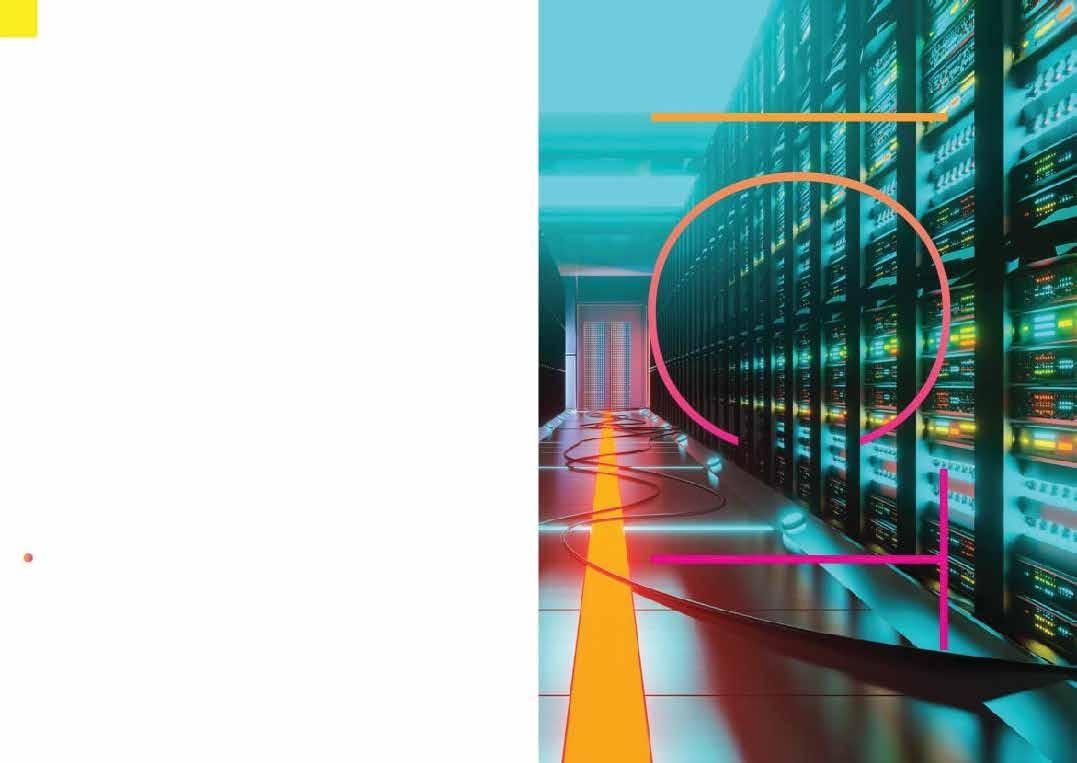
Since 2002, Digitec has been at the forefont of delivering secured data center solutions and ICT services, partnering with globally renowned technology brands to bring cutting-edge innovations to businesses throughout PNG.

Technology for a more connected world
“Simplifying Innovative ICT Solutions”

We design and implement robust ICT architectures.
Data Centre Services
Digitec Datacentre is located in Gordons, Port Moresby and is monitored 24 X 7 via CCTV and environmental ‘Monitoring tools’
With highly skilled and competent workforce. Digitec offers holistic, end-to-end ICT business solutions tailored to meet the evolving needs of our clients. As a trusted ICT partner, we are committed to delivering breakthrough technologies and best-in-class services hat empower organizations, enhanced operational efficiency, and drive digital transformation.
ISO 9001:2015 | ISO 20000-1:2018 | ISO 27001-1:2022
Our ISP services ensure an engaging online presence for your business.
Our Managed IT Services ensure that your business operates smoothly and efficiently.
Our reliable and secure Cloud Solution services help you meet your business.
Our Managed Print Services (MPS) are designed to optimize your print environment.





By: ROSELYN EREHE
The Department of Works and Highways (DoWH) and the Department of Lands and Physical Planning (DLPP) officially signed a Memorandum of Understanding (MoU) on Tuesday, 3 June, aimed at resolving long-standing land acquisition challenges that have delayed road projects nationwide.
The MoU is anchored in national legal instruments including the Constitution of Papua New Guinea, the Land Act 1996, the Physical Planning Act 1989, and other related legislation governing land ownership, use, and development.
The ceremony took place at the Grand Papua Hotel’s Markham Conference Room, with key officials, stakeholders, and staff from both departments in attendance.
The memorandum seeks to establish a formal framework for collaboration, aligning their efforts to improve governance, reduce delays, and eliminate fraudulent land compensation claims that previously cost the State millions of kina.
Secretary for Works and Highways, Gibson Holemba, described the MoU as “a significant milestone in inter-agency collaboration and is a step forward in addressing the delays and challenges often encountered in road project implementation due to land acquisition issues.”
“It reflects a shared commitment to effective governance, accountability, and sustainable development,” he added.
Mr. Holemba acknowledged the role played by the DoWH’s Environmental and Social Safeguard Branch, led by Assistant Secretary Kenneth Yamu, in facilitating the drafting and finalisation of the MoU.
Infrastructure, particularly road development, is a major enabler of economic growth and social development in PNG, the Secretary noted. However, the complex processes associated with land acquisition, especially those involving customary landowners,
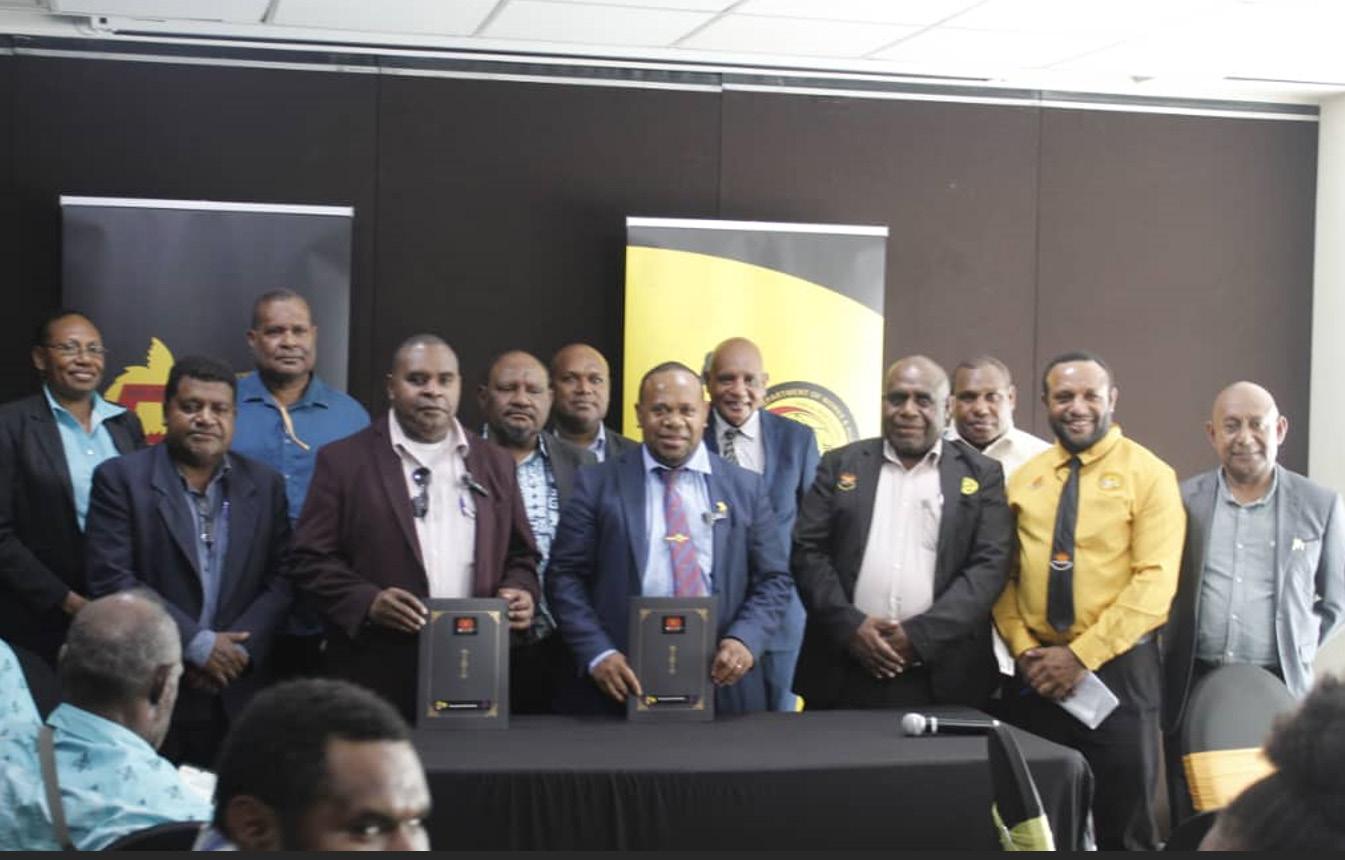
have posed a significant barrier to progress.
Recognising these challenges, the DoWH and DLPP jointly agreed to streamline critical procedures related to land acquisition, compensation, and compliance with legal requirements.
“This MoU is a foundational step to ensuring that development of critical road infrastructure is not hampered by land acquisition delays and unnecessary fraudulent land compensation payments which has become an industry of its own, causing the state to lose millions of kina in the past years,” Mr. Holemba said.
The agreement will help prevent bogus claims by individuals pretending to be customary landowners and enhance transparency, efficiency, and public confidence in government-led road development initiatives, he added.
The MoU outlines the shared responsibilities between the departments across key areas:
• Land acquisition processes, using both voluntary and compulsory mechanisms;
• Valuation and compensation in accordance with legal frameworks;
• Surveying, mapping, and docu -
mentation of land transactions;
• Stakeholder engagement with customary landowners;
• Legal and regulatory compliance relating to land matters in PNG.
From the DLPP’s side, the department will lead efforts in land acquisition, stakeholder consultation, compensation assessments, legal compliance, and documentation.
Meanwhile, the DoWH will provide technical specifications, budget allocations for land-related matters, and ensure road designs align with land acquired.
Joint responsibilities will include coordinated planning, data sharing, dispute resolution, and conducting regular reviews of progress under the MoU.
“The understanding signed today will strengthen the governance process at the inter-agency level to resolve delays and prevent bogus land acquisition payments,” Mr. Holemba said.
“The outcome of the MoU is to enhance coordination between DoWH and DLPP to ensure there is more efficiency, accountability, transparency, and improved stakeholders’ confidence in government-led road development project initiatives,” he stated.
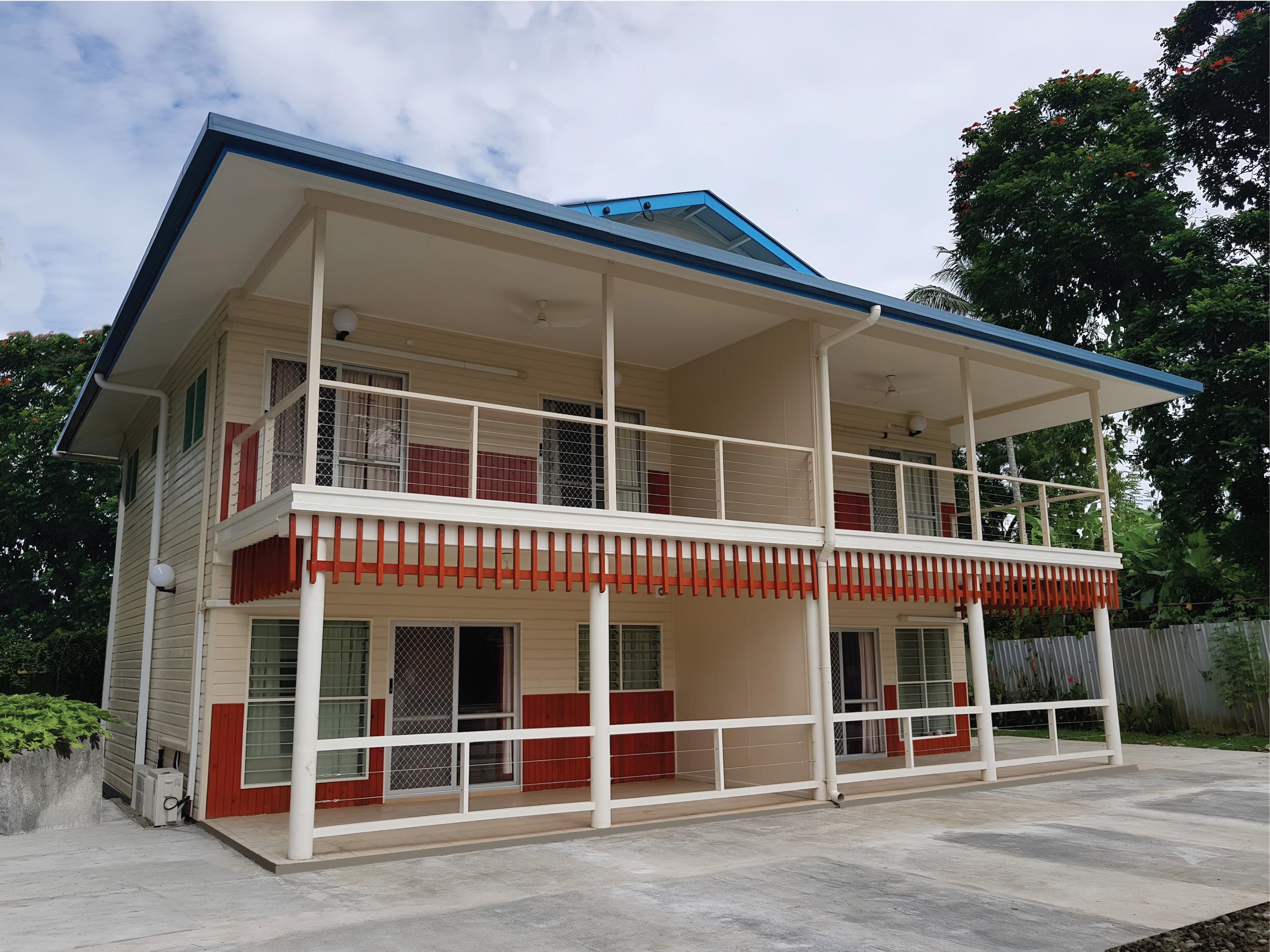
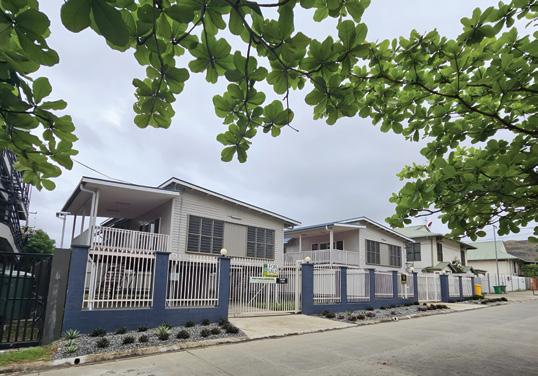
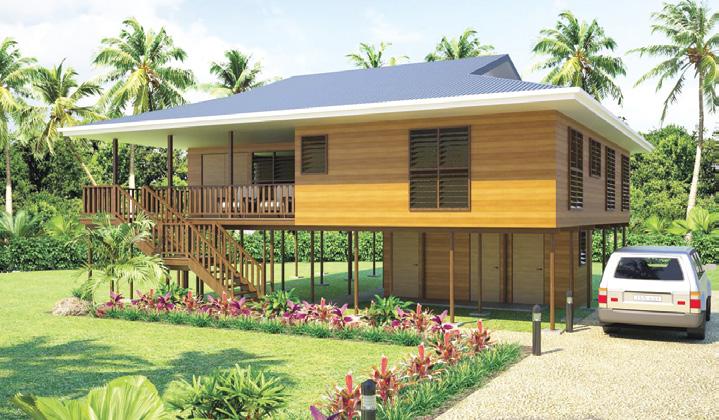


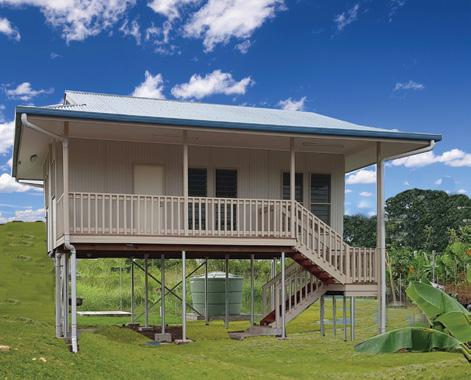
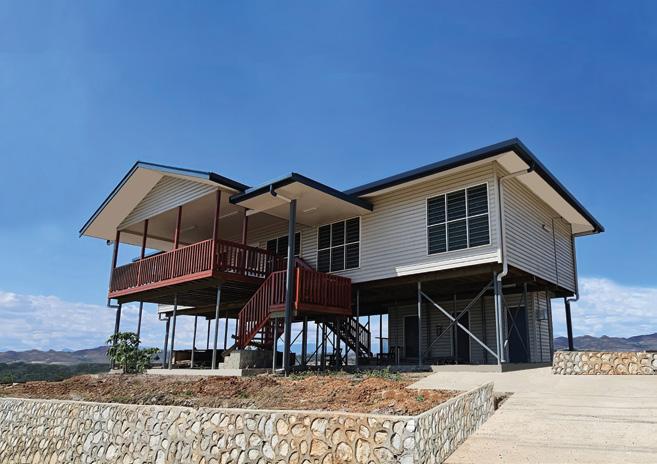

By: ROSELYN EREHE
The government has officially launched the 2nd Papua New Guinea Special Economic Zones Summit that will be hosted at the Hilton Hotel in Port Moresby from 31 August to 3 September 2025.
“This summit will be like no other. It will be the most useful and productive in our nation’s history. It will redirect the course of our nation,” Hon. Richard Maru, the Minister for International Trade and Investment, said during the launch of the Summit at Apec Haus on 2 June in Port Moresby.
During the launch, the seven anchor sponsors pledged their support for the 2nd PNG SEZ Summit --Teachers Savings and Loan Society (TISA), Kumul Petroleum Holdings Limited, Kumul Minerals Holdings Limited, Paga Hill Estate, Air Niugini, Special Economic Zone Authority, and the Department of National Planning and Monitoring.
Minister Maru thanked the foundation sponsors for coming on board to support the Summit as Gold Sponsors at the cost of K200,000 each.
The 2nd PNG SEZ Summit will be hosted by the Movement as part of the Celebrations, under the theme “Reflecting on Our Past 50 Years and Charting the Next 50 Years.” This will be preceded by the launch of the PNG SEZ Foundation Policy on Sunday, 15 June 2025.
Hon. Maru said the Summit will let PNG “take stock of our journey in the last 50 years in terms of economic development to know, why we are where we are now.”
“Why do we have problems like THE highest unemployment, highest law-and-order problems, serious foreign currency issues, national debt of over K60 billion, and depreciating Kina value? The biggest single issue is that we have failed to grow our economy over the last 50 years,” he said.
“This is glaringly obvious when you compare us to other countries like Japan, New Zealand and the Philippines, who are smaller than us in terms of land size and have no resource endowments like us yet on average their economies are ten times
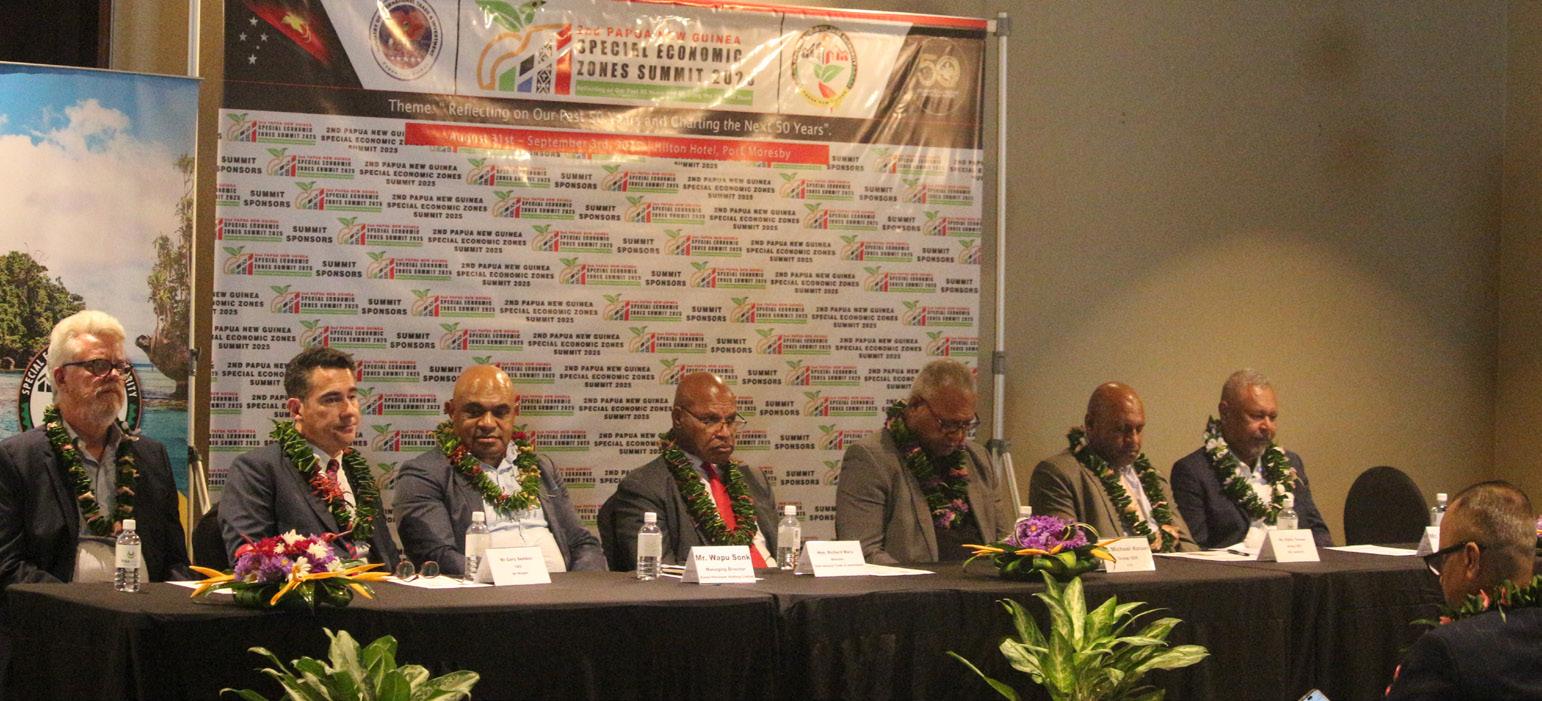
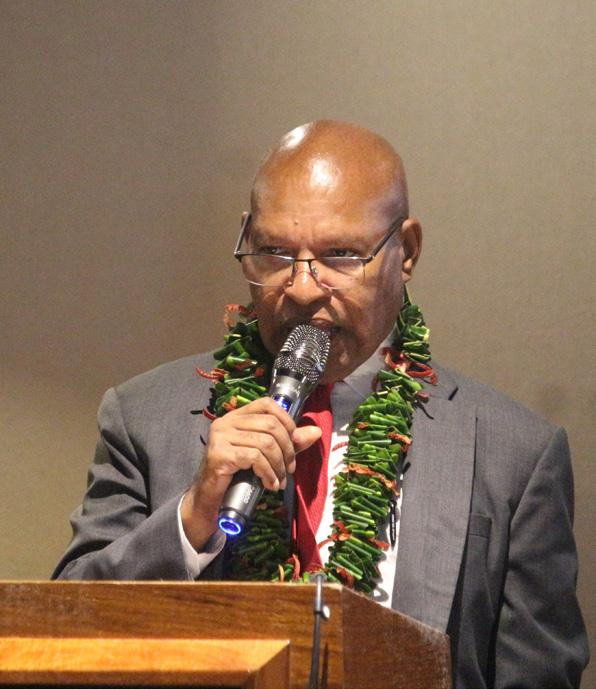
bigger than ours.”
“Singapore went from a mangrove fishing nation to now a first world economy in 30 years with a GDP of over US$501 billion, and Japan went from a war-ravaged nation to now a robust economy with its GDP sitting at over US$4 trillion.”
“We must learn from them and deploy the right strategies and policies. We will do an honest comprehensive review of our economic performance over last 50 years during this Summit so we can re-strategize in terms of our core economic policies to take PNG out of the situation that we are now in and to secure economic independence. This is in line with the 20-year roadmap that is being put together as announced by the Prime Minister,” he added.
Minister Maru said that since the first SEZ Summit in May 2023, the government has engaged with regional and global stakeholders -- SEZ developers, operators, and users -- to refine the policy framework.
“We are now ready to launch the SEZ Foundation Policy and to have
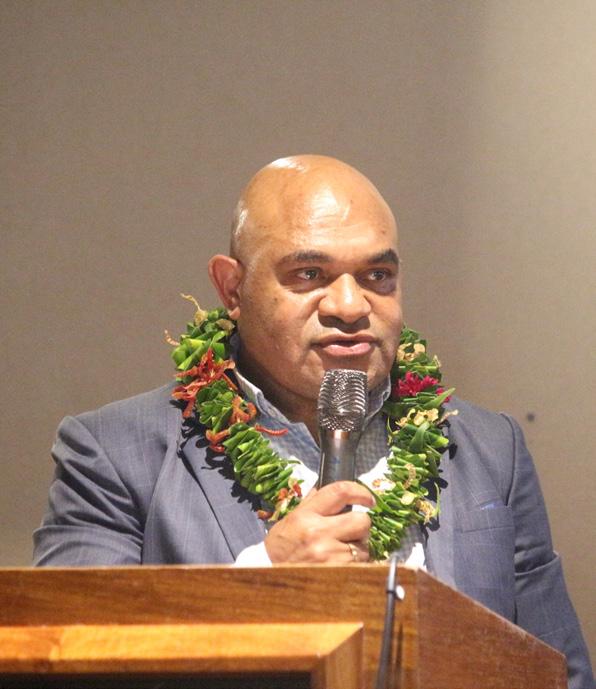
SEZ Summit 2. The long-standing support of the anchor sponsors assisted us to get this agenda of the current Marape-Rosso Government being promoted throughout Papua New Guinea and particularly in the Asia and Pacific region,” he said.
While acknowledging that the population has grown fivefold, from 2 million to 10 million, Maru said the economy has not kept pace.
“Symptoms like unemployment, law and order issues, and foreign exchange shortages are the result of our failure to build a robust economy. We can’t keep doing things the same way and expect different results,” he said.
The summit will bring together global and local experts to analyze PNG’s economic trajectory and compare it with better-performing nations, including Singapore, Indonesia, and post-genocide African economies.
The summit will also serve as a forum to develop the nation’s next 20-year economic development plan, a process currently chaired by former Deputy Prime Minister and Treasurer Charles Abel.



















Speakers from various countries, including Indonesia, Malaysia, Thailand, Australia, New Zealand, Singapore, United Arab Emirates, the Philippines, Rwanda, and others will also be invited to talk about their economic success and the key strategies they deployed like using SEZs as the main driver for massive economic growth.
Representatives from some worldclass SEZs like Java Integrated Industrial and Port Estate in Indonesia and financiers like the International Finance Corporation, Japan Bank for International Cooperation, and local banks like the TISA Group are also invited to speak.
“We will also speak on our six SEZs which will be licensed this year, including Sepik Plains SEZ, Madang Integrated SEZ, Finschhafen Integrated SEZ, Used Lead-Acid Battery recycling plant SEZ in Central Province, Sea Park SEZ, and the Central Province Industrial Park, apart from Paga Hill SEZ, which is already licensed,” said Minister Maru
“We will also market investment opportunities in sectors like fisheries, forestry, manufacturing, hydro and solar energy, mining and petroleum projects, and more to the investors from around the world who will be invited to attend the Summit,” added the minister.
Maru also mentioned the introduction of a new investment fund, the marketing of high-impact investment opportunities in energy, mining, and infrastructure, and the promotion of downstream processing and industrialization to create thousands of jobs as topics for the Summit, which is now being finalized.
“Meanwhile, we are seeking sponsors to sponsor this very important Summit. We will only have one level of sponsorship and that is Gold Sponsorship at the cost of K200,000,” he said.
“Every sponsor will be given an opportunity to speak at the Summit, they will be recognized in all our promotional materials, they will be given priority to set up their booths to promote their goods and services, and five of their representatives will have unlimited access to the Summit as delegates.”
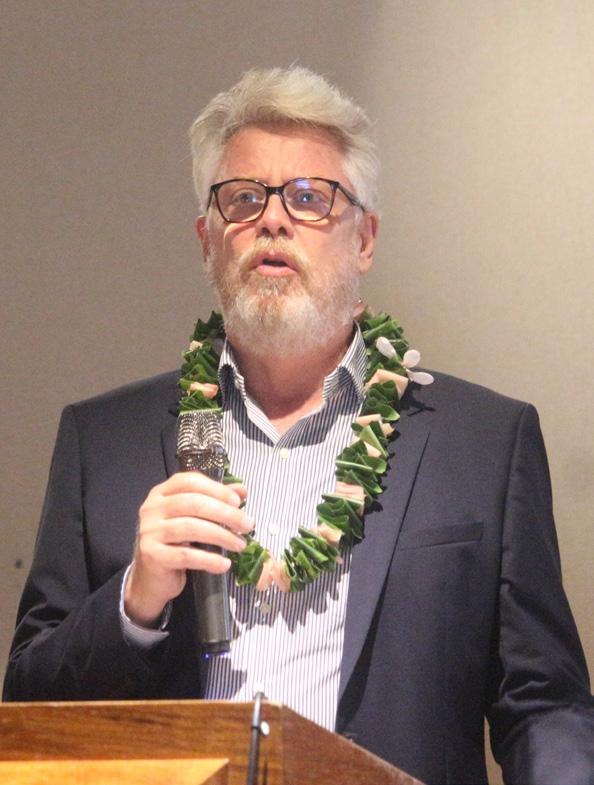
The summit’s anchor sponsors echoed the urgency and potential highlighted by Minister Maru.
Paga Hill Development Estate CEO, Gudmundur Fridriksson, spoke of the importance of providing incentives to attract global investors.
“We are competing in a global environment. We have shortcomings, but we also have a beautiful country with more potential than any country on the planet,” he said.
He praised the 2023 summit for fostering relationships and learning, and expressed confidence in the added structure and readiness of the upcoming summit.
Fridriksson acknowledged the importance of transparency, diligence, and adherence to customs and SEZ regulations, saying this summit would be a once-in-a-lifetime opportunity to showcase PNG to the world.
Air Niugini CEO, Mr. Garry Seddon, thanked the Ministry for International Trade and Investment for driving forward the SEZ agenda
“This is a terrific initiative to promote this beautiful country of ours – our resources, our people, and our culture,” he said, assuring full support from Air Niugini across its international and domestic network to bring speakers and participants to the summit.
He also announced the arrival of new aircraft that will significantly boost PNG’s air transport capacity.
“Our new narrow-body Airbus A220s arrive in September this year, and our wide-body Boeing 787s in late 2027. These aircraft will revolutionize service delivery and raise PNG’s global profile.”
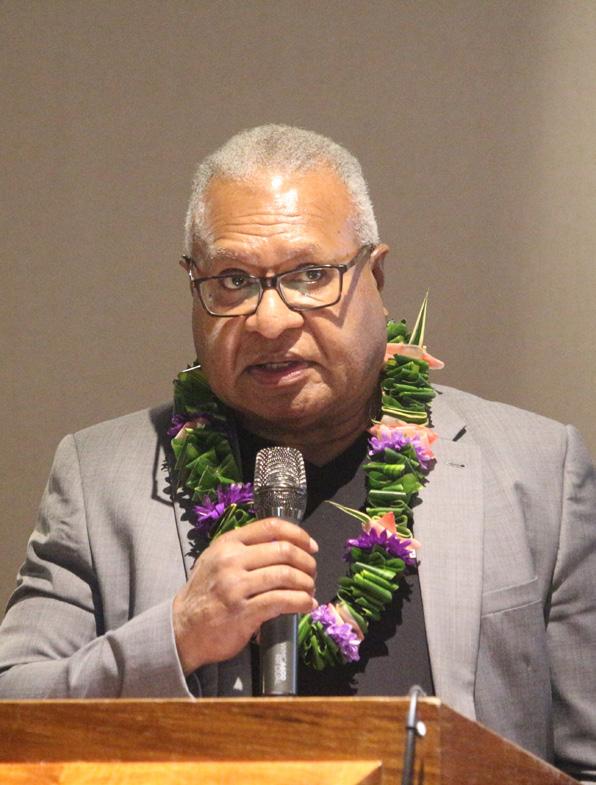
He closed his remarks by reaffirming Air Niugini’s support and celebrating the collaborative spirit behind the summit.
“On behalf of the 2,000 men and women at Air Niugini, congratulations Minister, and we look forward to a fantastic summit later this year.”
Managing Director of Kumul Petroleum Holdings Limited (KPHL), Mr. Wapu Sonk, congratulated the Ministry for the progress made since its inception and the first summit in 2023.
“It takes a lot of time to start from scratch… and all the consultations that went through were challenging, so congratulations,” he said, noting that his company had been a major sponsor since the ministry’s establishment and had backed both the first and second summits.
“We intend to be a major sponsor to help launch this very important policy and also advertise Papua New Guinea’s potential to the rest of the world through the Approved Economic Zones (ACZ),” he added.
Sonk explained KPHL’s involvement by highlighting the country’s resource potential and the need for external investment and expertise.
“We have the resources and the people to train and skill, but we don’t have the money and the skilled people. National Executive Council is one of the key areas and, as a national oil company, we are at the forefront of providing NEC solutions,” he said.
Sonk announced cabinet approval of KPHL’s Konebada Industrial Park SEZ as the third officially approved site, which will house a training and prefabrication facility.
“We are working with all our SOEs to bring in power, sew

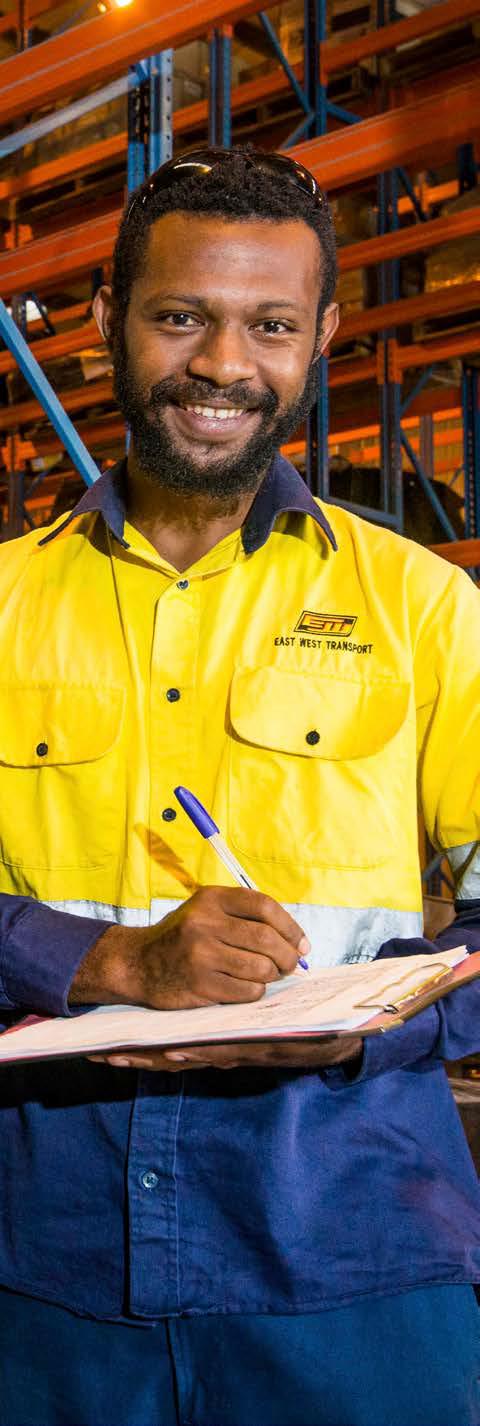
age, and water. It will basically demonstrate, at a smaller scale, what the country can provide if we put our heads together and attract investors. The goal is to create jobs and grow the middle class so our economy can sustain and grow.”
Meanwhile, CEO of TISAS Bank, Michael Koisen, reaffirmed the bank’s commitment to nation-building and economic development.
“We are a 100% locally owned bank. It’s owned by ordinary people. That’s why it’s in our interest to contribute to national development through all the opportunities given to us,” the CEO said.
He described the SEZ Summit as a critical platform for stakeholders and businesses to engage in development discussions, while thanking Minister Richard Maru and other co-sponsors for their efforts.
“We are happy to be a co-sponsor. Thank you also to the other co-sponsors for supporting this event.”
Mr Kikila Yavase, CEO of the
Special Economic Zone Authority, offered his appreciation as both a representative of the ministry and a co-sponsor.
“Thank you to the Minister, Secretary, and my colleagues. For the last 50 years, we were convinced our raw materials wouldn’t be processed in PNG. For example, we were convinced rice wouldn’t grow in PNG.”
“After the 16th of September, we must have a story. That story must come through a specific regional process or concept, and everyone, including government and private sector, must work together for the next 50 years,” he said.
Yavase affirmed the SEZ Authority’s commitment to the government’s SEZ strategy and its role in supporting the summit and associated policy initiatives.
“We will go all out to support the Ministry and Department. We must leave a story for the next three to four generations through this concept.”
The Department of National Planning and Monitoring Secretary, Mr. Koney Samual, and
Kumul Minerals Holdings Ltd Managing Director, Sarimu Kanu, also reaffirmed their support and applauded the initiative.
The launch of the SEZ Foundation Policy and the announcement of SEZ Summit 2 signify a critical turning point for PNG aimed at realigning the country’s economic direction for the next 50 years, Minister Maru said.
“It’s time to take that honest stock-take. Let’s be brutally blunt with ourselves. Let’s help ourselves and learn from the rest of the world and take the appropriate actions to build a stronger and bigger economy for our people,” he said.
“We look forward to hosting a successful Summit with the backing of our sponsors, starting with our seven foundation sponsors.”
The official website for the Summit (https://pngsezsummit2025) was also launched on 2 June, with Minister Maru calling on those who wish to attend to register through the site to secure their spaces at the earliest, with only 350 spaces available. Registration is on a firstcome, first-serve basis.

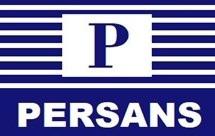
(100% Nationally Owned Insurance Broking & Loss Consulting firm)
Motor Vehicle
Worker’s Compensation
Public & Product Liability
Industrial Special Risk
Marine Hull & Cargo
Property (Commercial & Private)
Ransom, Kidnapping & Extortion
Aviation, Oil & Gas
Financial Lines (DO & PI)
Corporate Travel
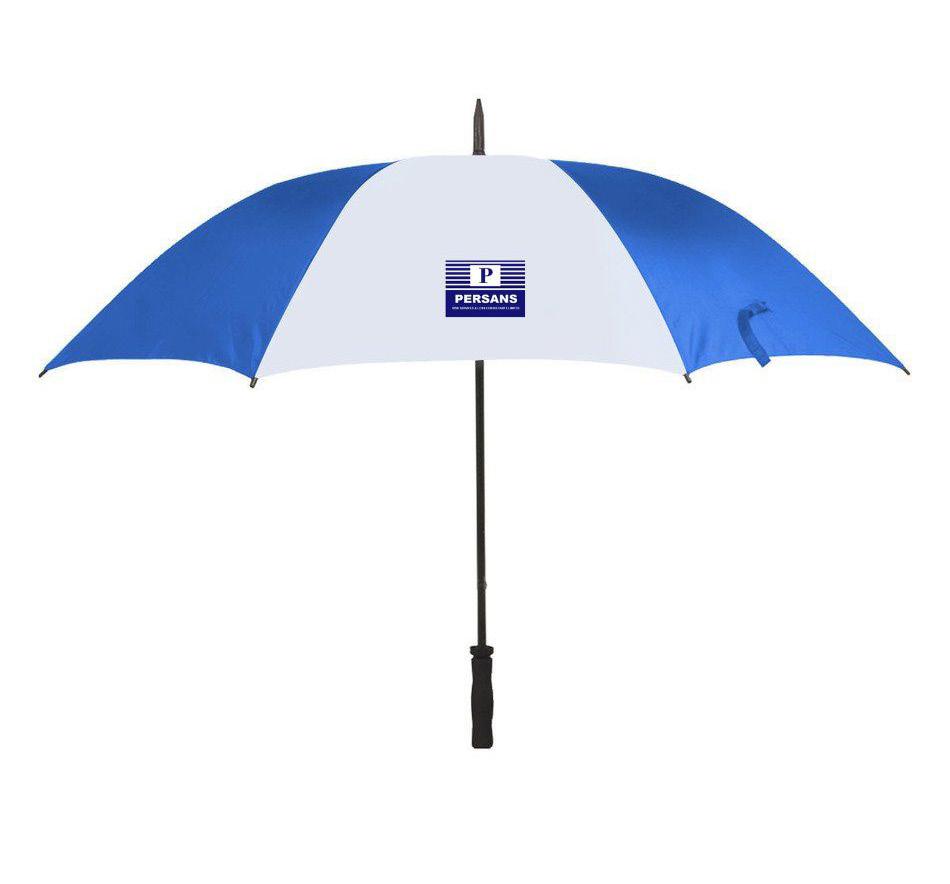
Are you facing an insurance claim?
Whether you’re insured or uninsured, representing yourself or an organisation, or part of a government entity, our seasoned experts are here to champion your cause.
For over 20 years, we’ve been the trusted name in Loss Adjusting for leading Insurance Companies. With our recent rebranding Incorporating Insurance Brokerage, we now extend our unparalleled expertise directly to our clients, Policy holders and Claimants.
Our Services Include:
• Public Loss Assessment
• Insurance Claims Management
• Insurance Policy reviews
• Claims and Risk Surveys for Insurers/Brokers
• Professional Insurance Brokerage
Persans claims services offer highly experienced loss Assessors and Insurance claims experts with an impeccable track record in settling even the most complex claims. We will assist you in assessing your loss and negotiating your claims settlement with your Insurance company.
“Don’t Navigate the complex claims alone. Let Persans dedicated consultants pave the way to a successful resolution and experience the power of professional advocacy”

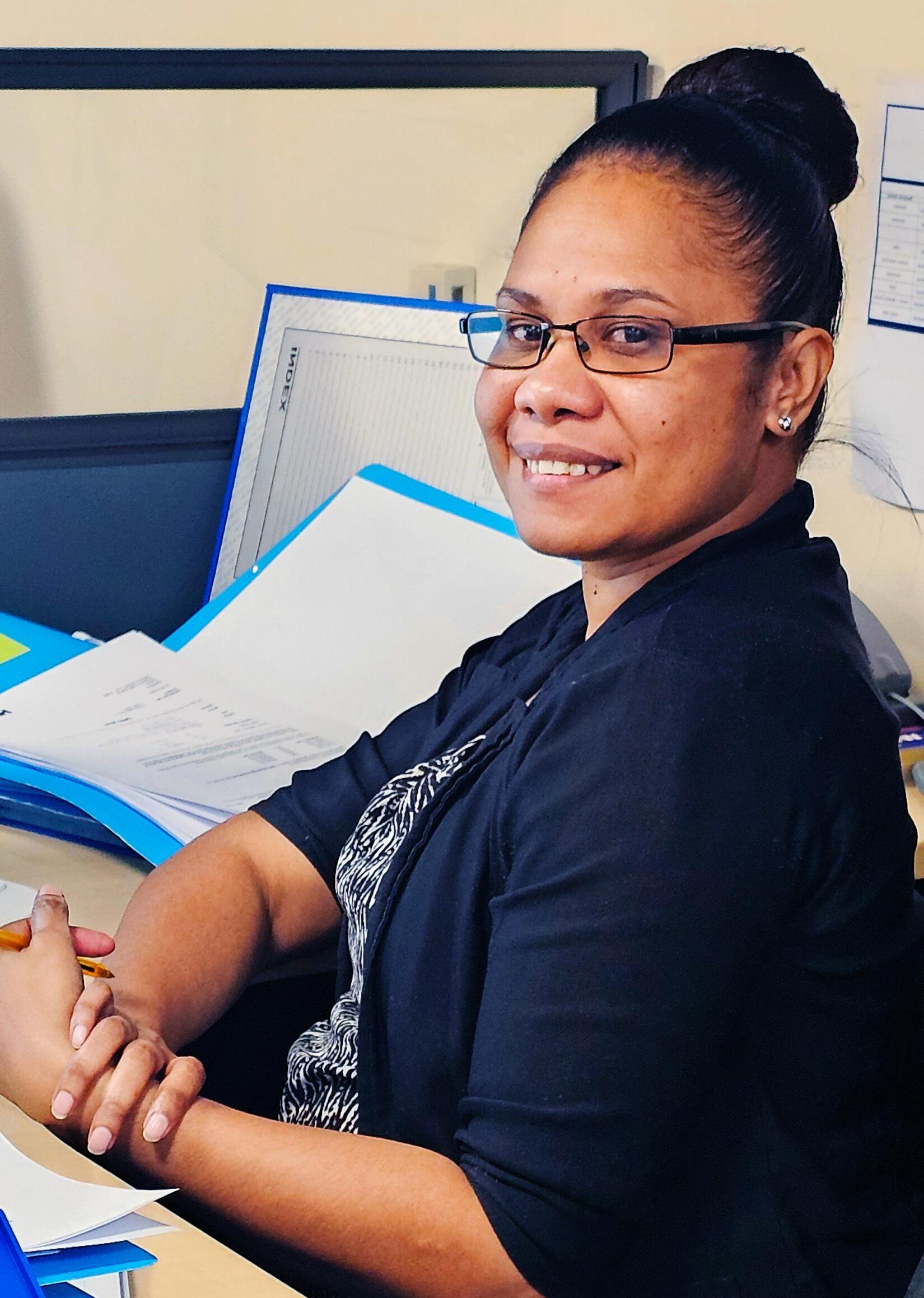


Amajor development is underway in Mt. Hagen, as Steamships and Tininga Ltd officially break ground on Dobel Central, a 10,000 sqm mixed-use mega mall set to drive growth in agriculture, micro, small and medium enterprises or MSMEs, tourism, and commerce across the Western Highlands of Papua New Guinea.
The K200-million project is designed to foster business growth while creating job and entrepreneurial opportunities for locals.
Steamships Managing Director Chris Daniells emphasized the broader impact, stating, “We see this not only as an investment in infrastructure but as an investment in people. Our goal is to create a premium retail and commercial development in the Highlands. One that provides a safe and secure trading environment.”
The development is backed by
the Western Highlands Provincial Government, ensuring its alignment with the region’s strategic objectives.
Tininga Managing Director Pat Duckworth echoed this sentiment, citing improvements in law and order as key to creating a safer, more positive business climate.
“Tininga has its roots firmly implanted in Mt Hagen, and together with Steamships, we believed in the potential of the Western Highlands. That belief started with the Hagen Central development in town, and today we are proud to take the next step with Dobel Central,” Duckworth stated.
Scheduled to open its first phase in Q1 2026, Dobel Central will feature Tininga’s new supermarket and the initial rollout of retail spaces, further establishing Mt. Hagen as the Highlands Region’s premier service hub.
With ongoing investments and
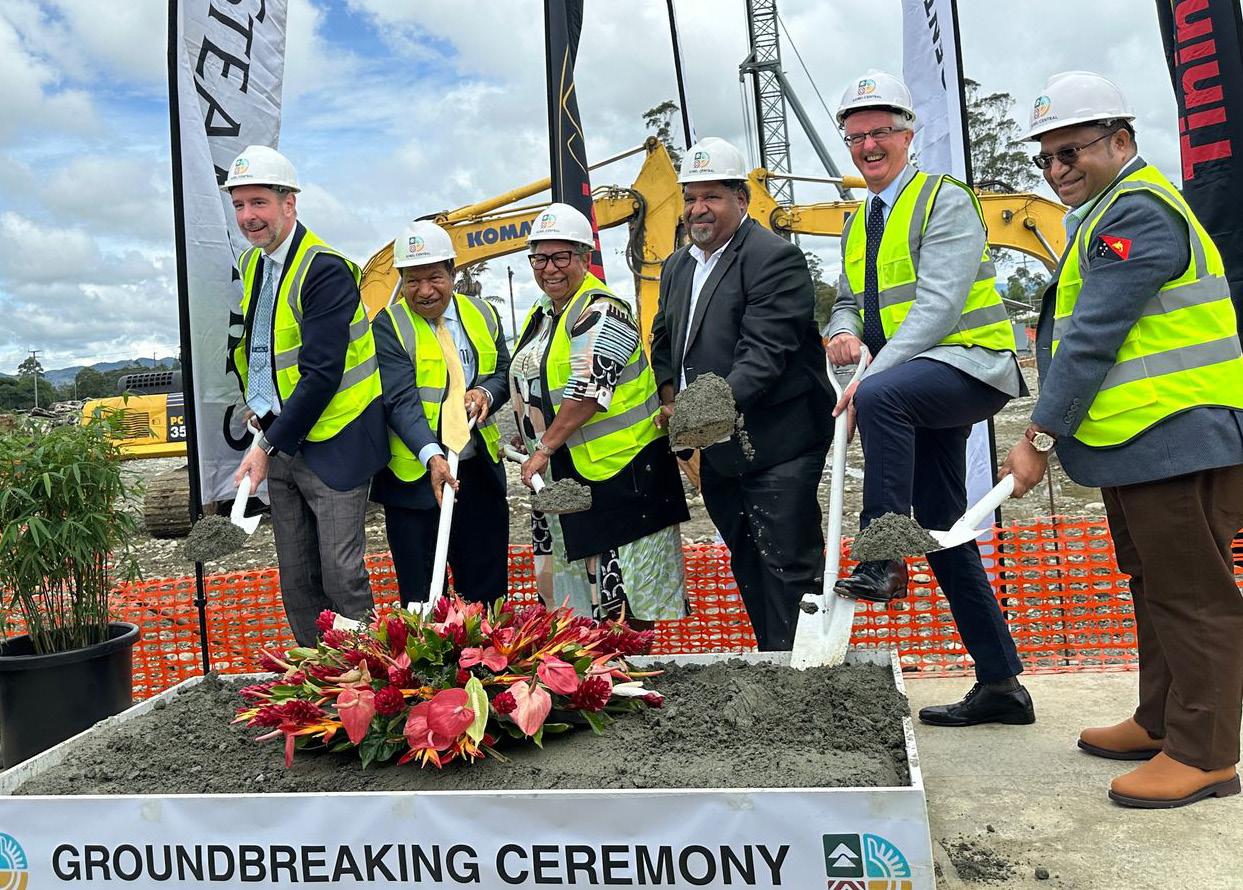
strong local partnerships, the project is expected to transform the economic landscape and bring new opportunities to the community.
“It will be an inclusive space that nurtures opportunity—where entrepreneurs can flourish, youth can find employment, and families can benefit from improved access to services and amenities,” Daniells said.


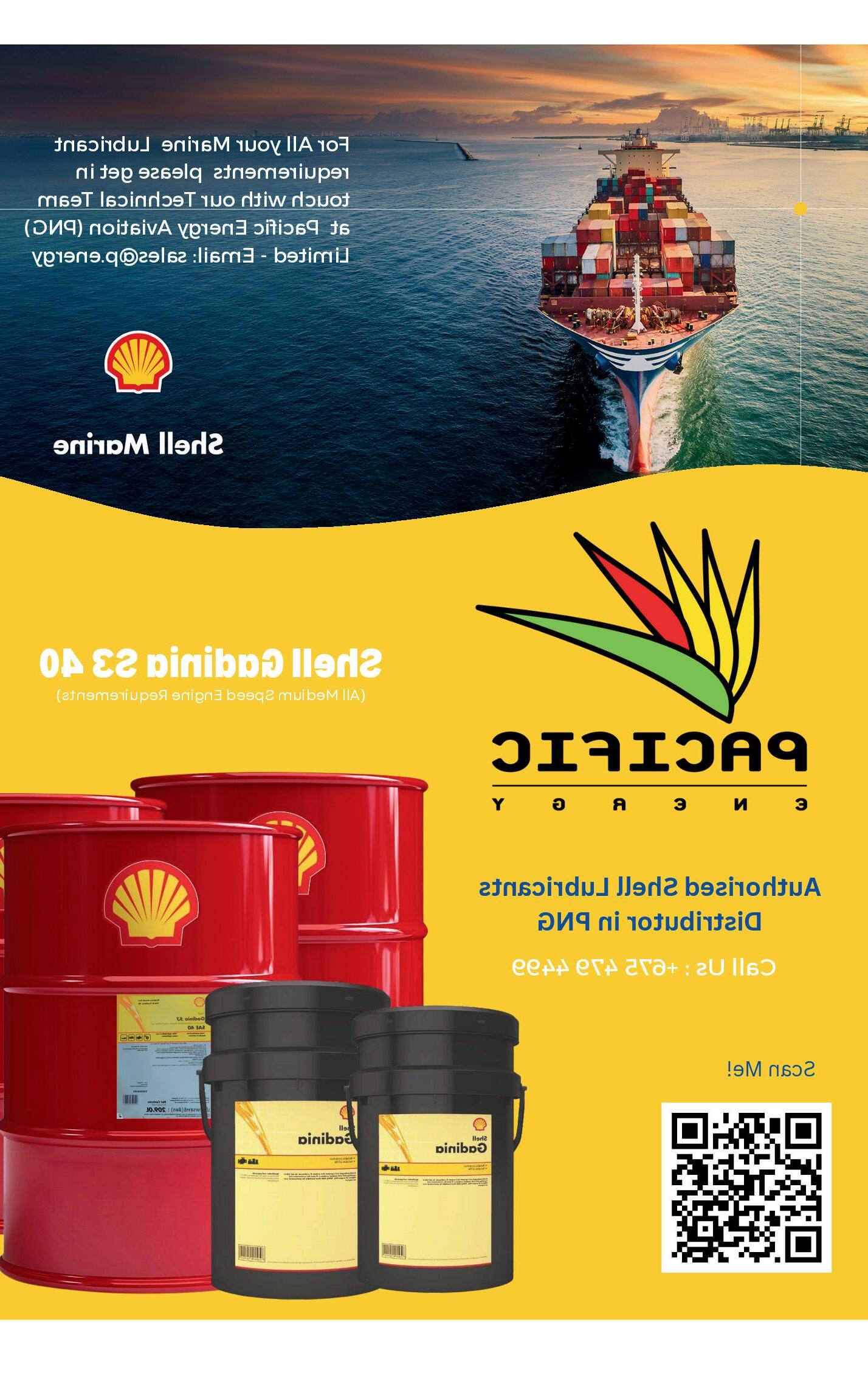
Papua New Guinea’s National Training Council (NTC) has officially approved Steamships’ Three-Year Training and Employment Plan (3YTEP), granting the company a Certificate of Compliance and Approval Letter for the 2025–2028 period.
The approval, dated 23 May 2025, marks the first time NTC has partnered with Steamships to formalize its workforce development strategy.
The 3YTEP initiative aligns with PNG’s National Training Policy (2022–2032), aimed at enhancing human resource development and closing training gaps across both the public and private sectors. The framework allows employers to submit structured plans, ensuring targeted interventions meet local workforce demands.
NTC Director Kinsella Geoffrey emphasized the significance of this initiative, stating: “The introduction of a three-year training and employment plan will serve as a benchmark to measure Steamships’ performance, ensuring that progress is reported to the Department and Ministry of Labour and Employment.”
Steamships is a long-serving company in PNG, committed to equipping, empowering, and promoting local professionals.
The company has launched technical, behavioural, and leadership programs, including the John Swire and Sons Leadership Philosophy, which focuses on building character and resilience while fostering longterm thinking.
Managing Director Chris Daniells emphasized that Steamships’ commitment extends beyond compliance, stating: “The journey when we started building this commitment isn’t just a compliance exercise. It is at the heart of our belief that PNG is our home, and that we have a responsibility to help shape it, especially shaping its future.”
The government is encouraging Steamships to expand its training initiatives, including international experiences to further develop local talent.
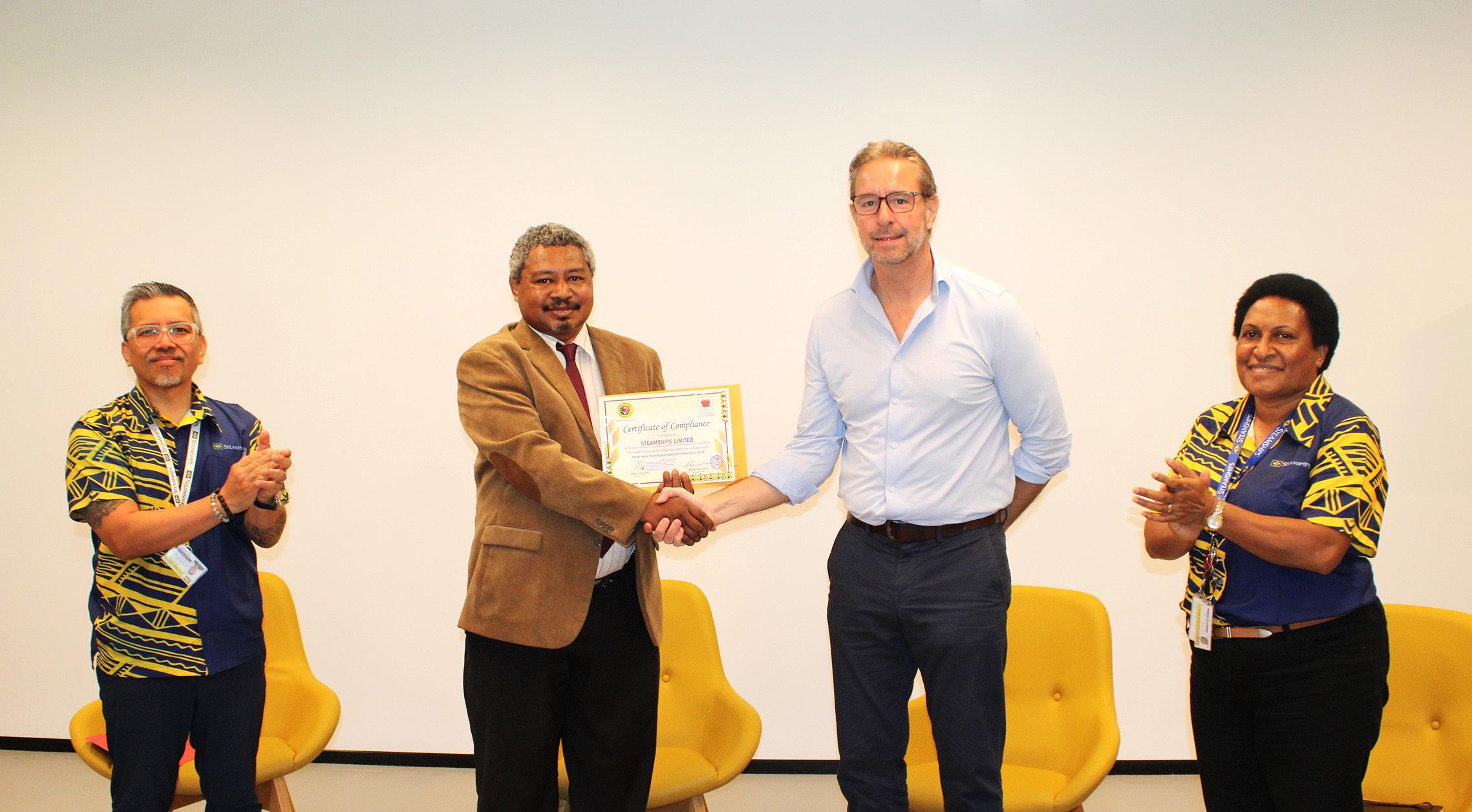
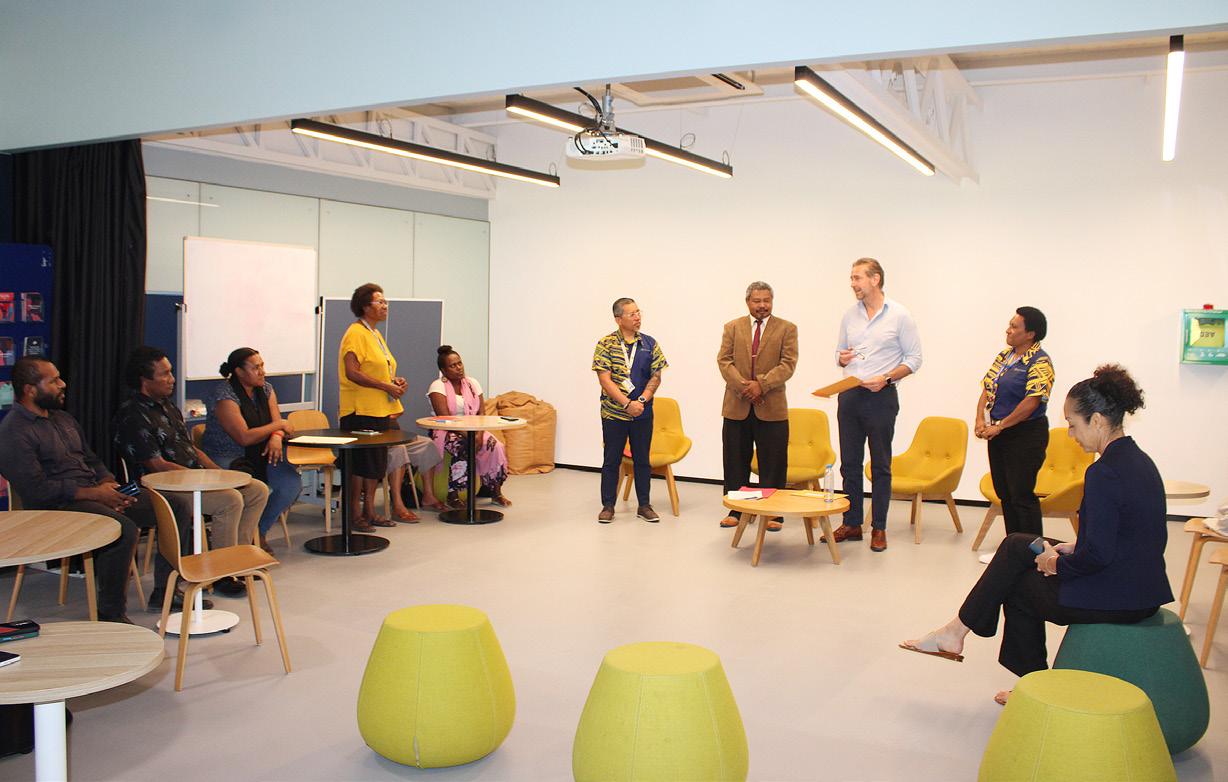
Programs such as the graduate development and leadership programs have already had a positive impact, with plans to establish a Learning Resource Centre and a Maritime College to support skills development.
With annual performance reports expected to track Steamships’ progress, the 3YTEP initiative is set to enhance PNG’s workforce readiness, bolster economic growth, and ensure greater local participation across various industries.
The commitment to maintaining the confidentiality of workforce and training data ensures that individual companies can provide accurate information without concerns about privacy. This aggregated data will play a crucial role in highlighting train -
ing gaps across both private and public sectors, enabling targeted interventions by training providers to better meet local demands, the parties said.
Access to this consolidated data empowers the NTC on behalf of the Department and Ministry of Labour and Employment to deliver informed and strategic advice to the Government regarding policy decisions that impact training and employment initiatives, Steamships said in a statement.
“By effectively utilizing the insights gained from the 3YTEP, the Council can advocate for relevant policies that support skill development and workforce readiness, ultimately contributing to the economic growth of Papua New Guinea,” it added.
As Papua New Guinea’s oldest private sector superannuation fund, PacSuper is committed to making super simpler, more efficient, and more effective — helping members build the retirement they deserve.


As the only local fund offering dualcurrency investing (PGK and AUD), our members enjoy greater flexibility and control over how and where their money grows.
And with salary packaging, you could reduce your tax rate from as high as 42% to as low as 2%, while contributing up to 15% of your gross salary to super at concessional rates.
Superannuation — it’s what we do. It’s who we are. A no-brainer, really.
By: ROSELYN EREHE
Papua New Guinea is now part of the prestigious global engineering community, as the country has officially been voted in as a new member of the International Tunnelling and Underground Space Association (ITA) during the recent World Tunnel Congress held in Sweden.
Representatives from 80 countries gathered at the congress, where 46 voted in favor of PNG’s inclusion.
Papua New Guinea joining the 50-year-old organization ushers in a new chapter for national development in tunnelling and underground infrastructure, both critical to the mining and petroleum industries that power most of its economy.
The announcement comes as PNG rolls out infrastructure initiatives
network of international expertise in underground construction, safety protocols, and engineering innovation, crucial elements for the successful delivery of complex projects.
“This membership is not just a win for PNG—it is a strategic step towards embracing global engineering standards and preparing our nation for the next 50 years of advanced transport infrastructure,” the PNG delegation said in a statement.
The ITA guides member nations on best practices in underground construction, safety, and innovation in the tunnelling and railway sectors.
The association extended congratulations to the team behind the Connect PNG Programme and “all stakeholders who helped bring Papua New Guinea into this prestigious global engineering community.”
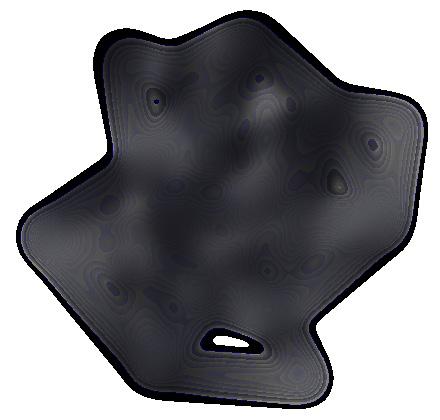
From 9 to 15 May, Stockholmsmässan was the ITA’s platform for
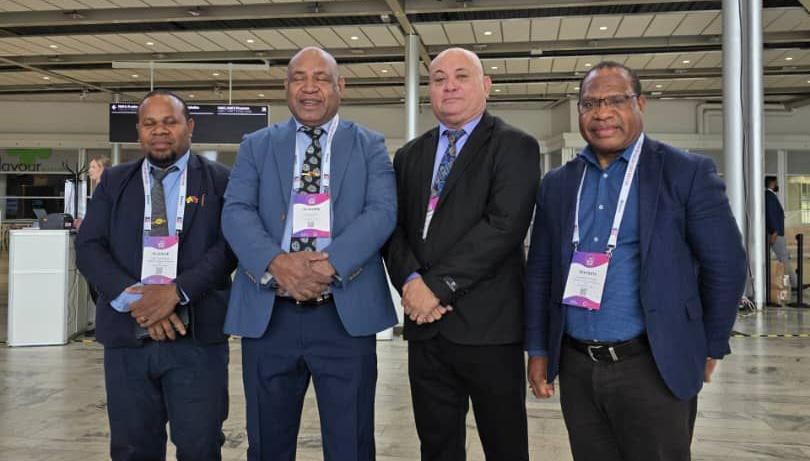
at the world-leading congress and exhibition.
The World Tunnel Congress (WTC) is an annual international congress and exhibition. For the first time, Sweden hosted the event, which was organised by the Swedish Rock Engineering Association with support from the ITA.
“The World Tunnel Congress is a strategically important event that reinforces Stockholm’s position as a leading city for sustainable infrastructure and technological innovation,”
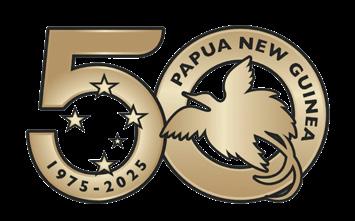



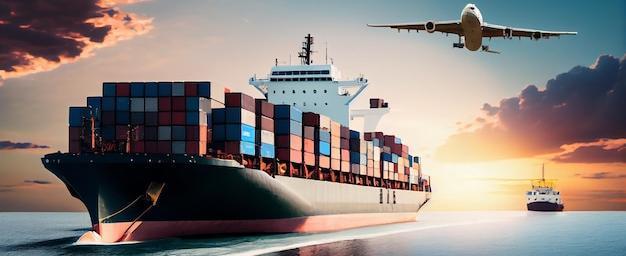



PRODUCTS SOURCED
PRODUCTS SOURCED
Include but not limited to…
Include but not limited to…
✓ Mining Equipment & spare parts
✓ Mining Equipment & spare parts
✓ Earth Moving Equipment & spare parts
✓ Earth Moving Equipment & spare parts
✓ Agricultural Equipment & spare parts
✓ Agricultural Equipment & spare parts
✓ Electrical, plumbing & building supplies
✓ Electrical, plumbing & building supplies
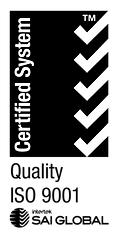



. Drawing on a combined 180 years of experience, EXPAC team expertly manages the purchasing and product sourcing requirements for companies located in Papua New Guinea and the Pacific Islands.
Drawing on a combined 180 years of experience, EXPAC’s team expertly manages the purchasing and product sourcing requirements for companies located in Papua New Guinea and the Pacific Islands.
✓ Forklift & automotive parts
✓ Forklift & automotive parts
✓ Oils and lubricants
✓ Oils and lubricants
✓ Catering supplies
✓ Catering supplies
✓ Tools
✓ PPE
✓ Tools ✓ PPE No
No item is too large or small
EXPAC'S high service levels, short lead times and extensive product sourcing capacity is why corporations, medium and small businesses, mining companies, governments, and landowner companies all trust EXPAC with their purchasing requirements.
EXPAC'S high service levels, short lead times and extensive product sourcing capacity is why corporations, medium small businesses, mining companies, governments, landowner companies all trust EXPAC with their purchasing requirements.
With a strong presence in Europe, China, Papua New Guinea and Australia, EXPAC specializes in sourcing genuine, highquality parts from trusted suppliers around the globe.
With a strong presence in Europe, China, Papua New Guinea and Australia, EXPAC specializes in sourcing genuine, quality parts from trusted suppliers around the globe.
Email: nenita@expac.com.au
By: ROSELYN EREHE
Papua New Guinea (PNG) is on a steady path toward economic growth, driven largely by informal sector consumer spending, record-high commodity prices, and a resurgence in foreign direct investment, according to Dr Kishti Sen, ANZ international Economist for Papua New Guinea and the Pacific.
Sen presented the economic update was during the Port Moresby Chamber of Commerce and Industry (POMCCI) – ANZ Economic Breakfast on 20 May at the Papua Yacht Club in Port Moresby.
The event was a reality check on trade and what it meant for PNG, as global trade tensions rise amid renewed tariff threats by the United States.
But Sen’s message was shared clearly: PNG does not need to shift course but should continue deepening ties with Asian Markets.
The discussion focused on how PNG can stay engaged, boost trade, and attract capital flows, reinforcing the country’s role in regional growth.
Sen’s presentation outlined the unique structure of PNG’s economy, where 85 to 90 percent of the population operates in the informal sector, primarily in rural areas.
This demographic, largely excluded from formal financial systems, has been the backbone of national consumer spending, shielded from traditional interest rate levers used in advanced economies.
“Reducing interest rates does not affect people without debt or bank accounts,” Dr Sen said. “In PNG, the challenge is how to get cash into rural households. This is where the commodity boom makes a difference.”
Strong global prices for cocoa and coffee have had a significant impact on rural incomes, Sen noted. Provinces such as Chimbu, known for high-quality beans, have seen substantial economic benefits.
Meanwhile, exporters in co -
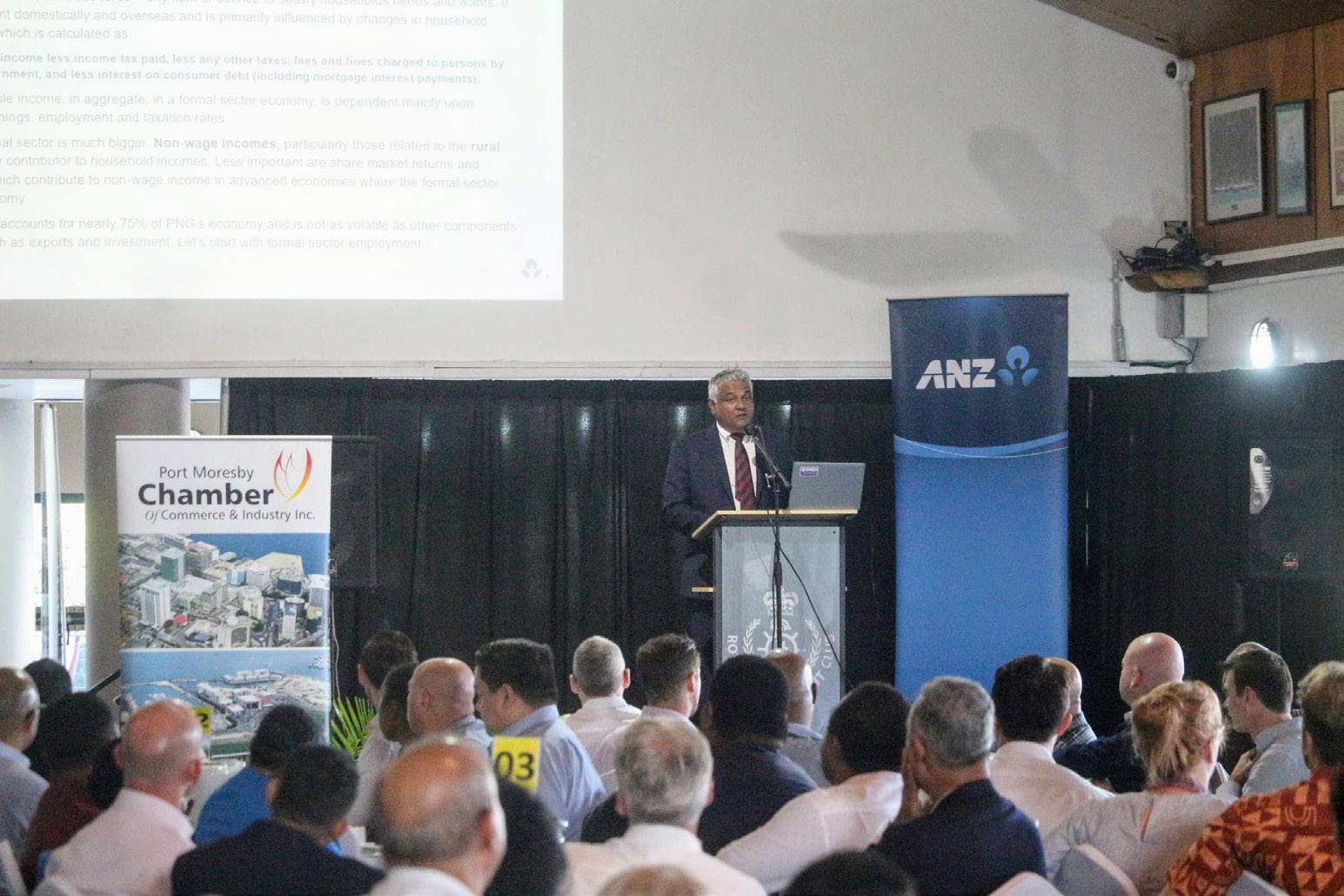
coa-rich areas like East New Britain and Bougainville have been paying farmers up to K2,200 per kilogram in recent months, a dramatic increase that is injecting millions into rural economies.
While the informal sector thrives, the formal sector has remained stagnant, especially since the completion of the PNG LNG project.
Sectors such as manufacturing, logistics, and agriculture are showing moderate employment gains, but construction, a major job driver, has yet to rebound.
Nevertheless, the investment outlook is promising, Sen noted, as PNG has seen consistent levels of foreign direct investment, including commitments to large-scale resource and infrastructure projects.
Final investment decisions on major projects in the country are expected this year, which could spur annual GDP growth to as high as 10% by the late 2030s, he added.
PNG is also realigning its trade strategy toward Asia, Sen noted. Exports to China and other Asian economies now make up a sizeable portion of PNG’s trade, reducing reliance on traditional partners like Australia and the US.
Sen emphasized optimism despite ongoing challenges including a narrow tax base, inflation fuelled by currency depreciation, and the limits of monetary policy.
He said: “PNG has endured a tough decade. But with rural demand, high commodity prices, and strategic investments, the foundation for a sustained growth trajectory is in place.”
Inflation remains a concern, largely driven by the kina’s depreciation against the Australian dollar. Despite Central Bank efforts to manage liquidity through interest rates and reserve requirements, Sen noted these tools have limited impact in a largely cash-based informal economy.
According to the update, PNG’s economic story is one of resilience and adaptation with GDP projected to grow by 4.7% this year and potential to hit double digits in the coming decade.
He said: “The growth will come not just from big projects, but from the smallholders in the highlands, from the women selling coffee, from the rural families investing in their futures.”
For the next breakfast update and events with POMCCI, check out their website www.pomcci.org.pg.

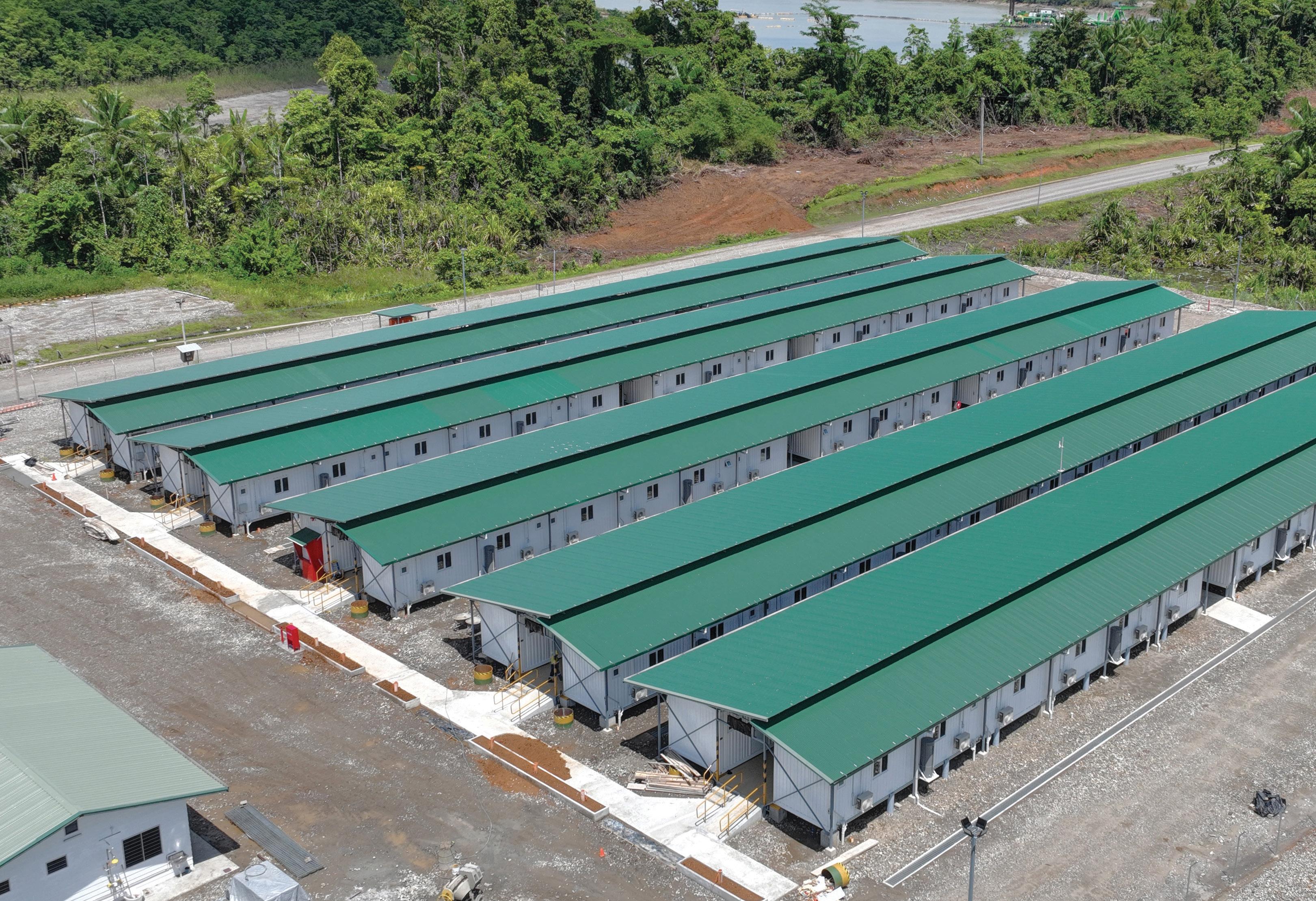




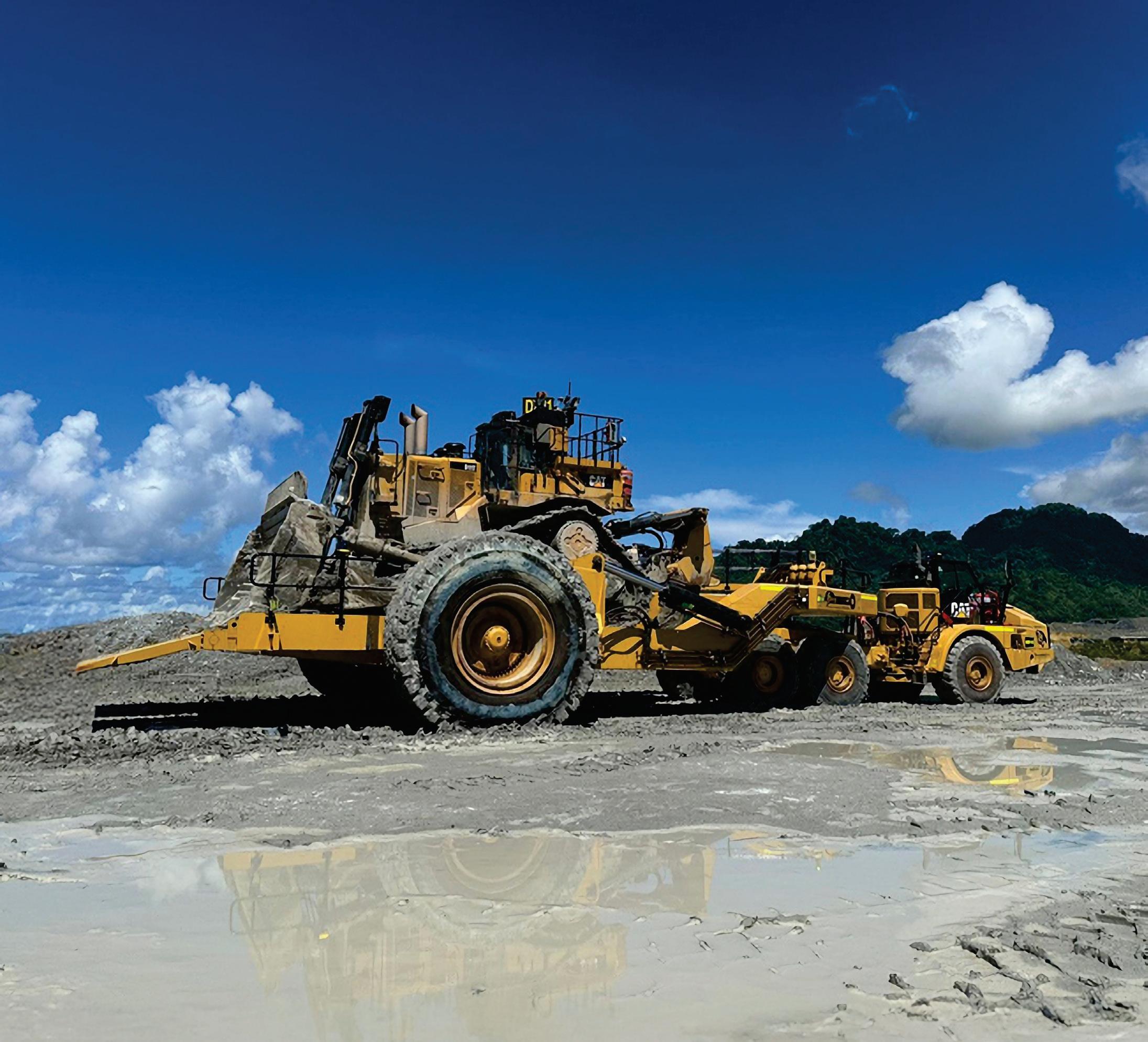
After more than 25 years of drilling expertise across Papua New Guinea’s most remote and rugged terrain, Zenex Drilling is stepping boldly into its next chapter, with international growth on the horizon, a growing fleet of specialised equipment, and a workforce strategy that puts Papua New Guinean talent at the centre.
“This isn’t just about buying new machines,” says Emmanuel Bonte, General Manager of Zenex Drilling. “It’s about how we’ve built the capacity to scale. The growth we’re seeing now is the result of years
of effort investing in our people, refining our processes, and building genuine partnerships in the communities we work in.”
At the heart of Zenex Drilling’s latest expansion is the acquisition of a heavy-duty Piacentini 130t Low Loader. This specialist piece of equipment allows the company to move large-scale plant machinery with precision across mine sites, a capability increasingly sought by Tier 1 clients operating in PNG and abroad. This asset is already proving its value, recently photographed carrying machinery on-site.
The Piacentini Low Loader isn’t just a logistical asset; it’s a symbol of the company’s operational maturity. “With equipment like this, we’re able to offer integrated, end-to-end support to our clients,” says Bonte. “We don’t just turn up with drill rigs. We come in with solutions for mobilisation, production support, maintenance, and everything in between.”
Zenex Drilling’s story is as much about people as it is about machines. The company has long been recognised for its inclusive workforce model and investment in local talent. Many of its senior staff
Local businesses play a critical role not just in the success of the PNG LNG Project, but also in the success of our communities and the whole economy.
This is why we are so proud to work with them and with landowner companies They provide ser vices ranging from road maintenance, construction works, and trans por tation, to catering, securit y, medical ser vices, and waste management
In 2023 alone, 131 PNG companies, including 10 landowner companies, suppor ted us
In fact, over the past decade, we have s pent almost PGK6.8 billion with Papua New Guinean bus ines ses, including PGK2.25 billion on landowner company ser vices.
By engaging local bus ines ses, we’re suppor ting their capacit y building and helping them to become self - sustaining enterprises for years to come
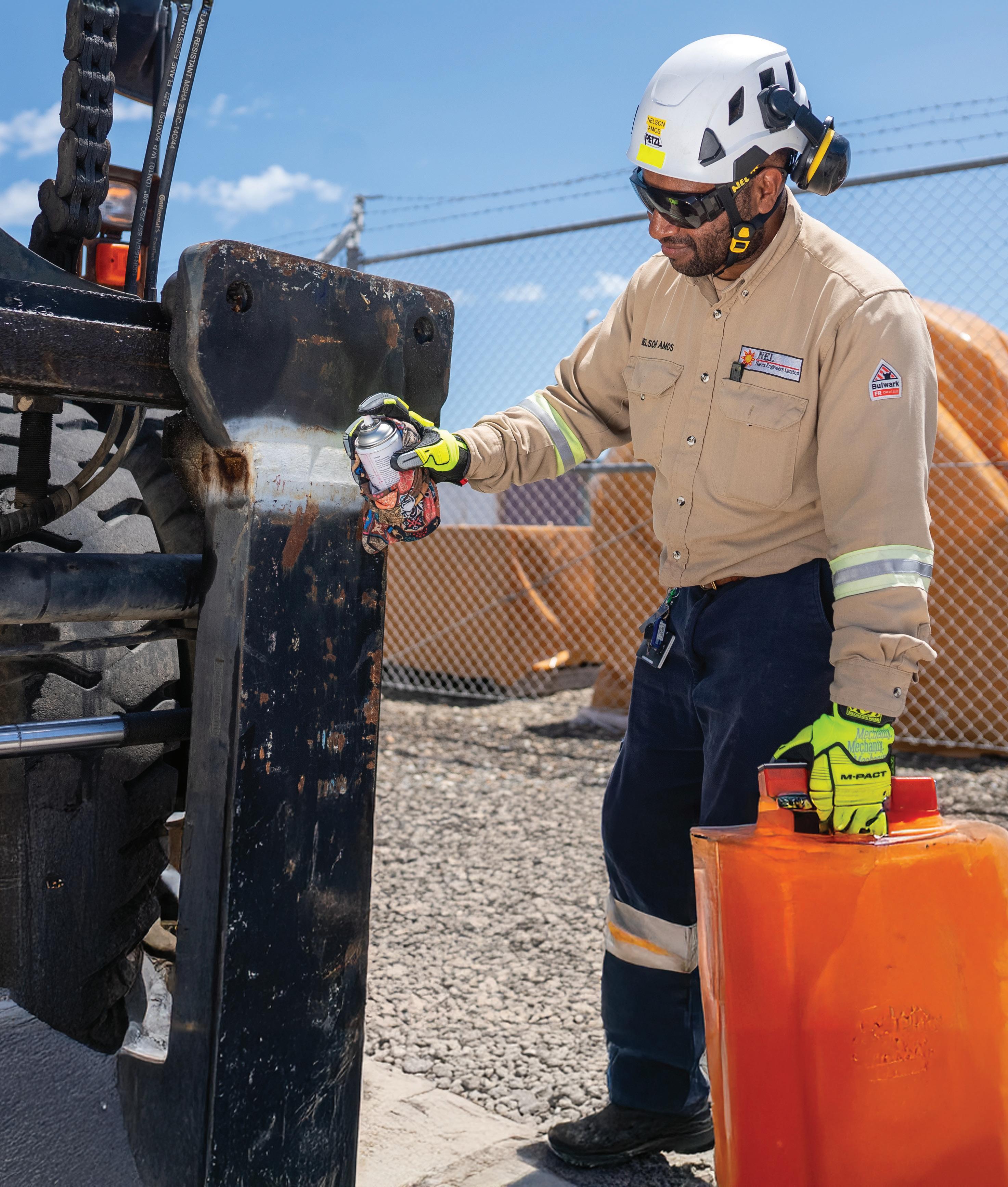


began as general labourers, rising through the ranks thanks to internal training programs and a cultural commitment to progression.
“One of the best decisions we made years ago was to stop waiting for qualified people to show up and start growing them ourselves,” Bonte reflects. “That’s been transformative. We have local teams that are capable, confident, and leading projects in PNG and beyond.”
This commitment to workforce development is formalised through Zenex’s ‘Way We Work’ initiative, a safety and leadership program tailored to the PNG context. Delivered through an open coaching model, the program equips employees not just with technical skills, but with the mindset and confidence to lead.
“It’s easy to forget how challenging these environments can be,” Bonte says. “We’re often operating in terrain with no roads, no infrastructure, sometimes no phone reception. To succeed in those conditions, you need more than gear, you need people who know how to think on their feet and work as a team.”
With more than 5.1 million hours worked without a lost time injury, Zenex Drilling’s safety record is a testament to the strength of its systems and the discipline of its crews. That safety culture is one of the reasons clients are turning to Zenex not just in PNG, but across international markets.
“We’re now being approached for work in Australia and South America,” Bonte confirms. “We’ve spent decades building trust, and that reputation is starting to carry across borders.”
The decision to scale internationally hasn’t been taken lightly. For Zenex, it’s not about rapid expansion but sustainable growth built on the same principles that served them well at home.
“We’re not chasing every opportunity. We’re choosing the right ones, where we know we can deliver value and maintain the quality we’re known for,” Bonte explains. “That’s why investment in equipment including the low loader and the dual head sonic rig
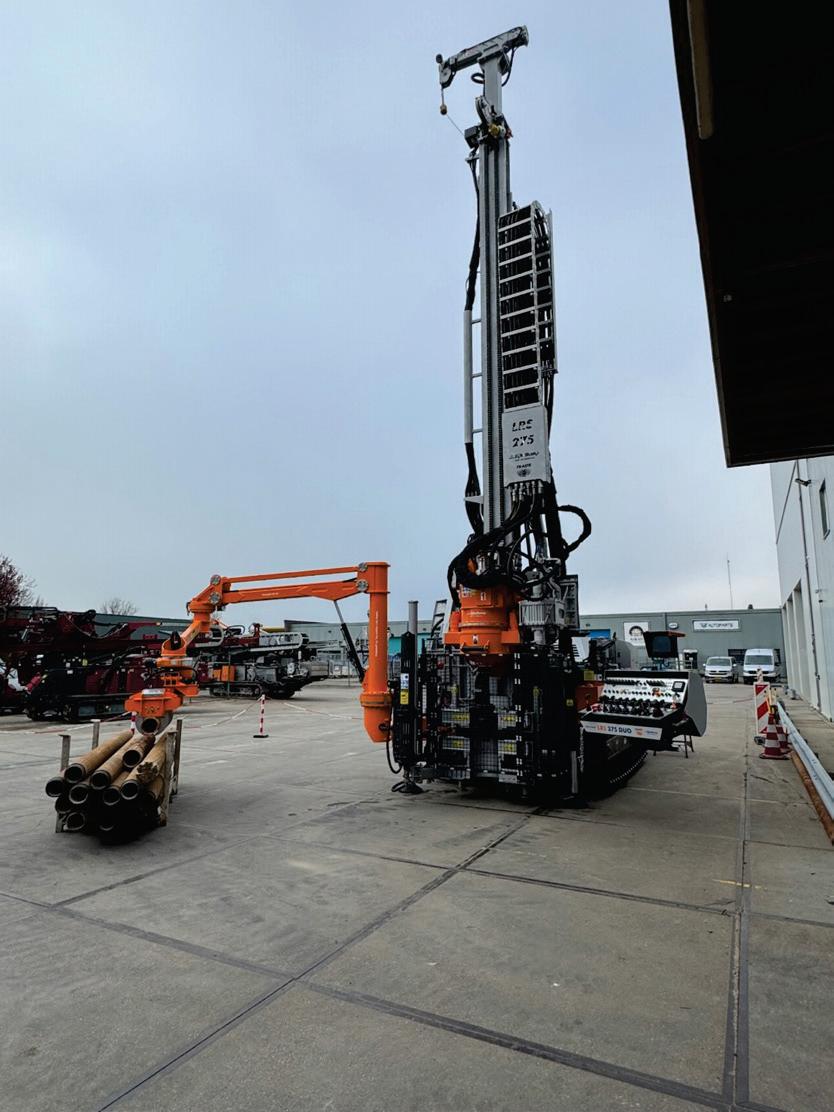
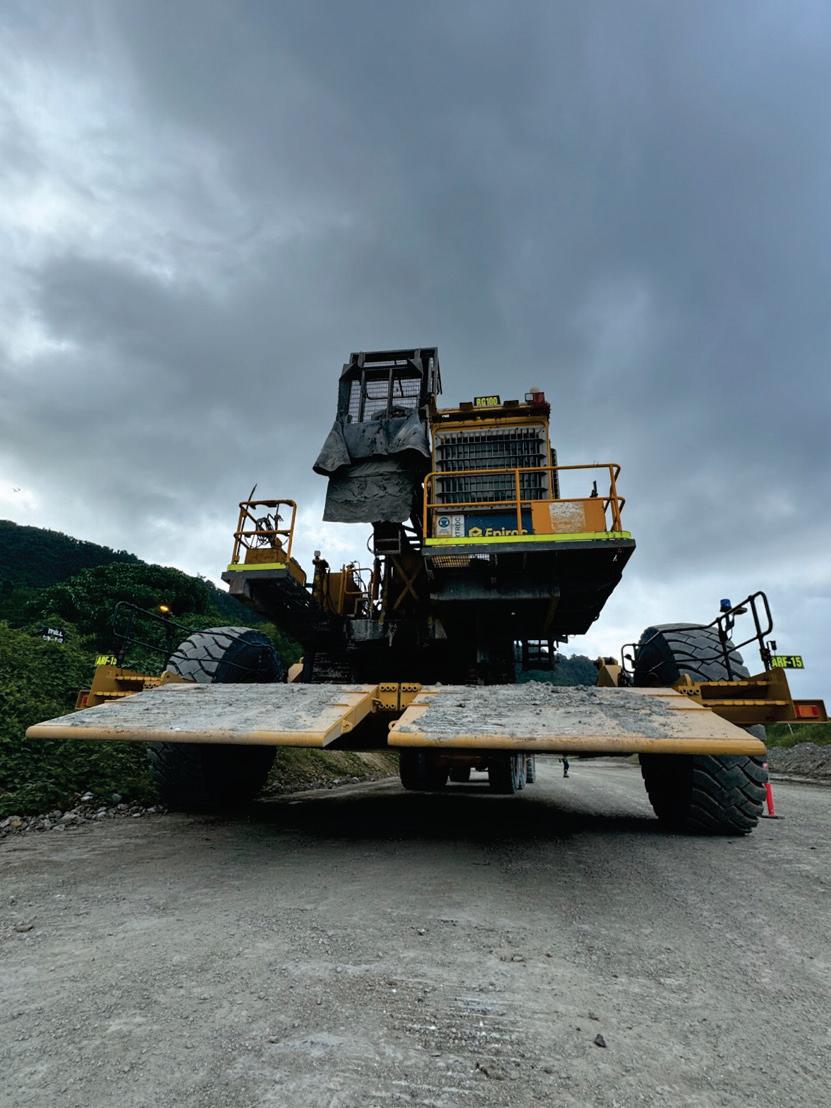
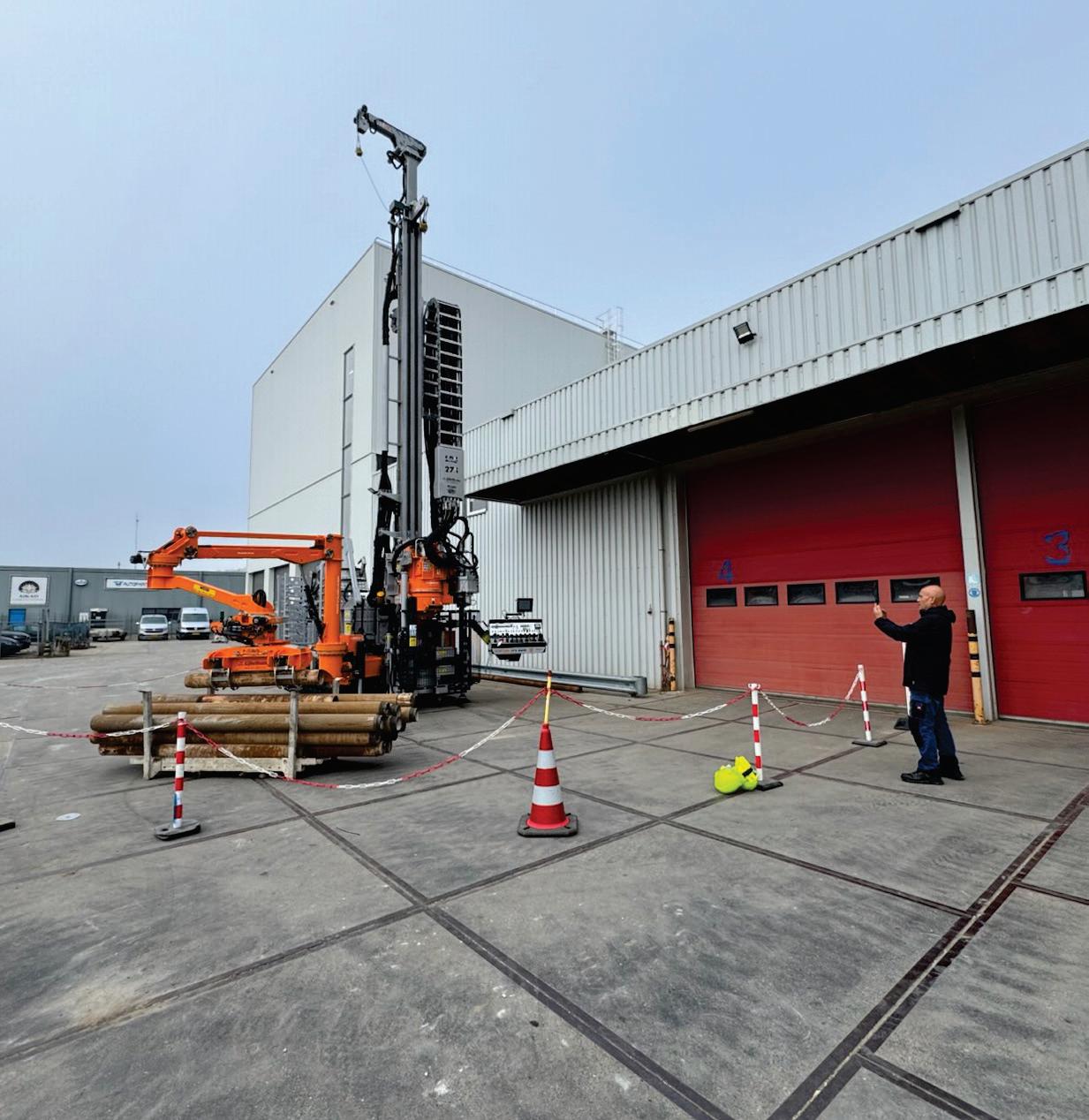
is so important. It’s a capability that makes us more agile, more responsive, and more competitive.”
As the industry faces ongoing challenges in supply chains, skills shortages, and environmental, social and governance (ESG) expectations, Zenex’s approach offers a compelling model: invest in people, build capability from within, and let excellence speak for itself.
“I’m proud that we’re a PNG company growing globally,” says Bonte. “We’re proving that with
the right mindset, our local expertise can compete anywhere in the world.”
From humble beginnings to global growth, Zenex Drilling is showing what’s possible when technical innovation meets long-term community investment. And as their Piacentini Low Loader rolls across yet another mine site, carrying not just heavy machinery but the weight of decades of progress, one thing is clear: this is only the beginning.
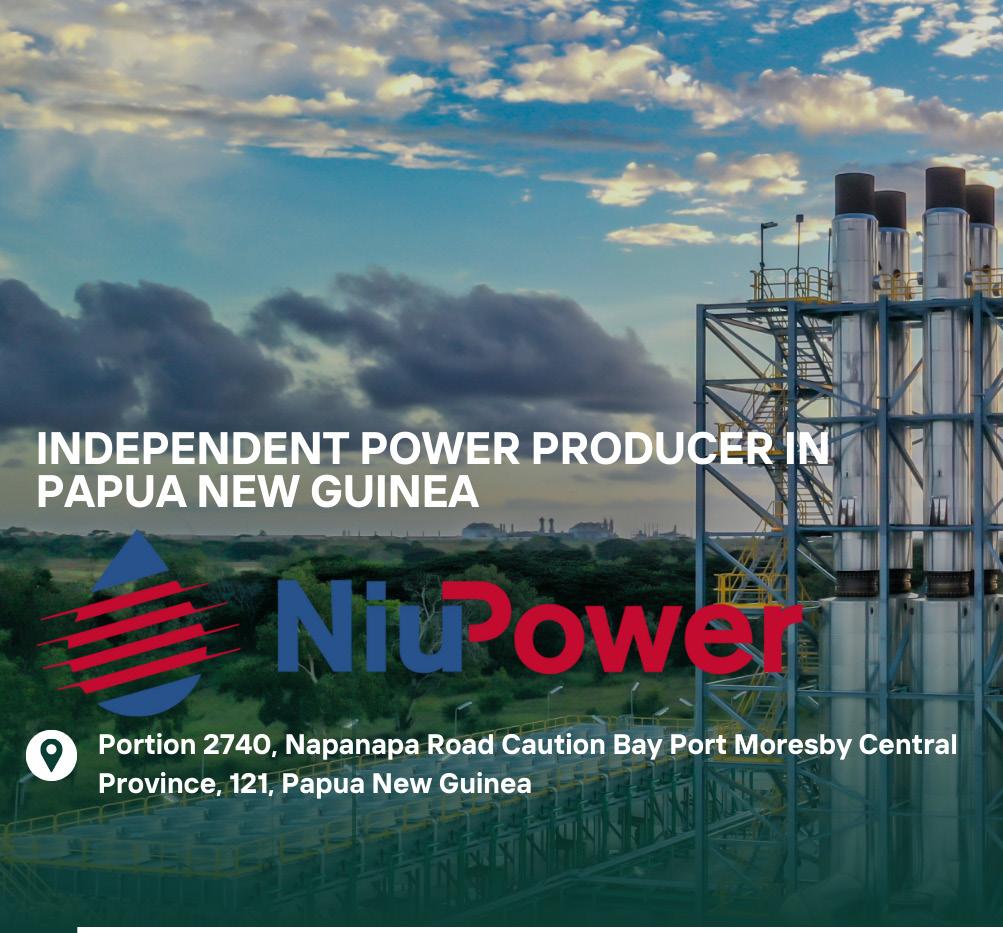



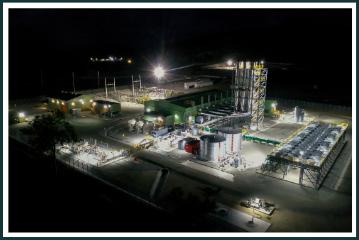
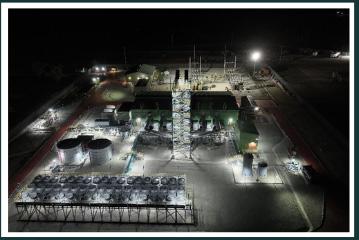
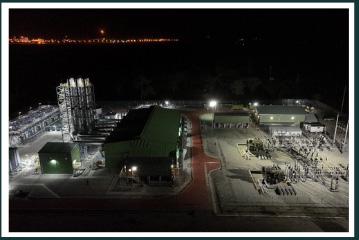



Great Pacific Gold Corp. has commenced Phase I of its drilling program at the Wild Dog Project, located in East New Britain Province on New Britain Island, Papua New Guinea.
“We are extremely pleased to begin drilling at our flag-ship Wild Dog
ter-borne survey was flown by GPAC over 187km2 area (1,646 line-km) across the Wild Dog Project with 200-meter line spacing, infilled to 100-meter spacing in critical areas. The completion of the air-borne geophysical MobileMT survey is a critical step in advancing the Compa-
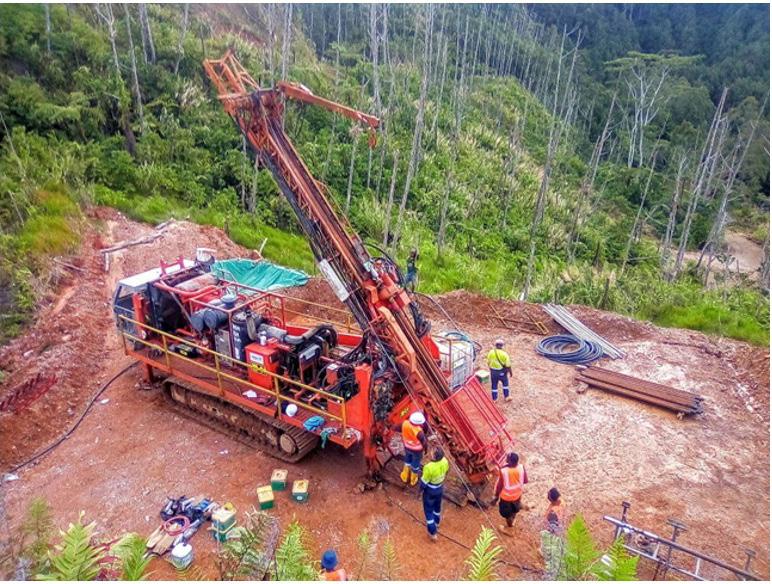











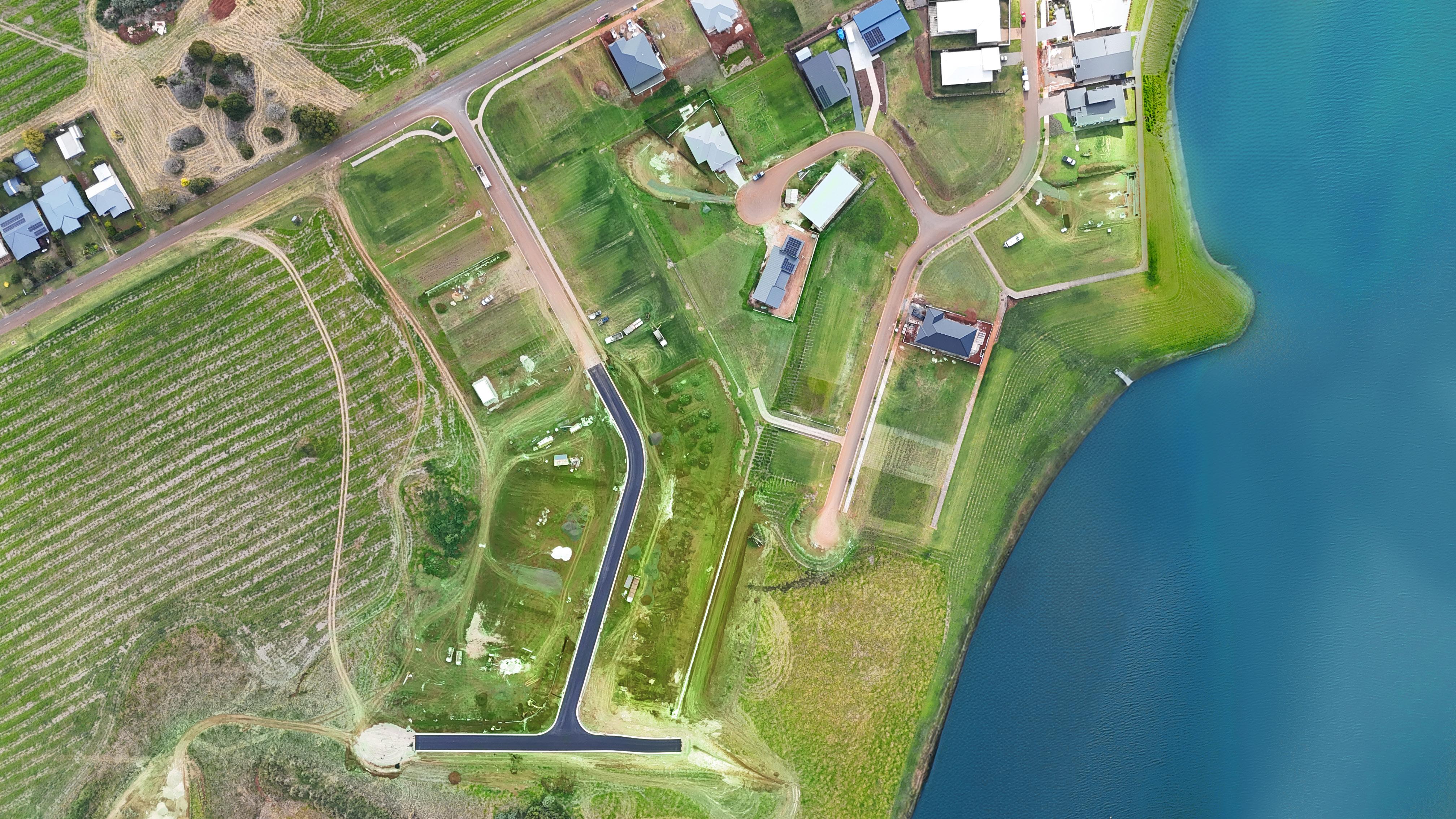

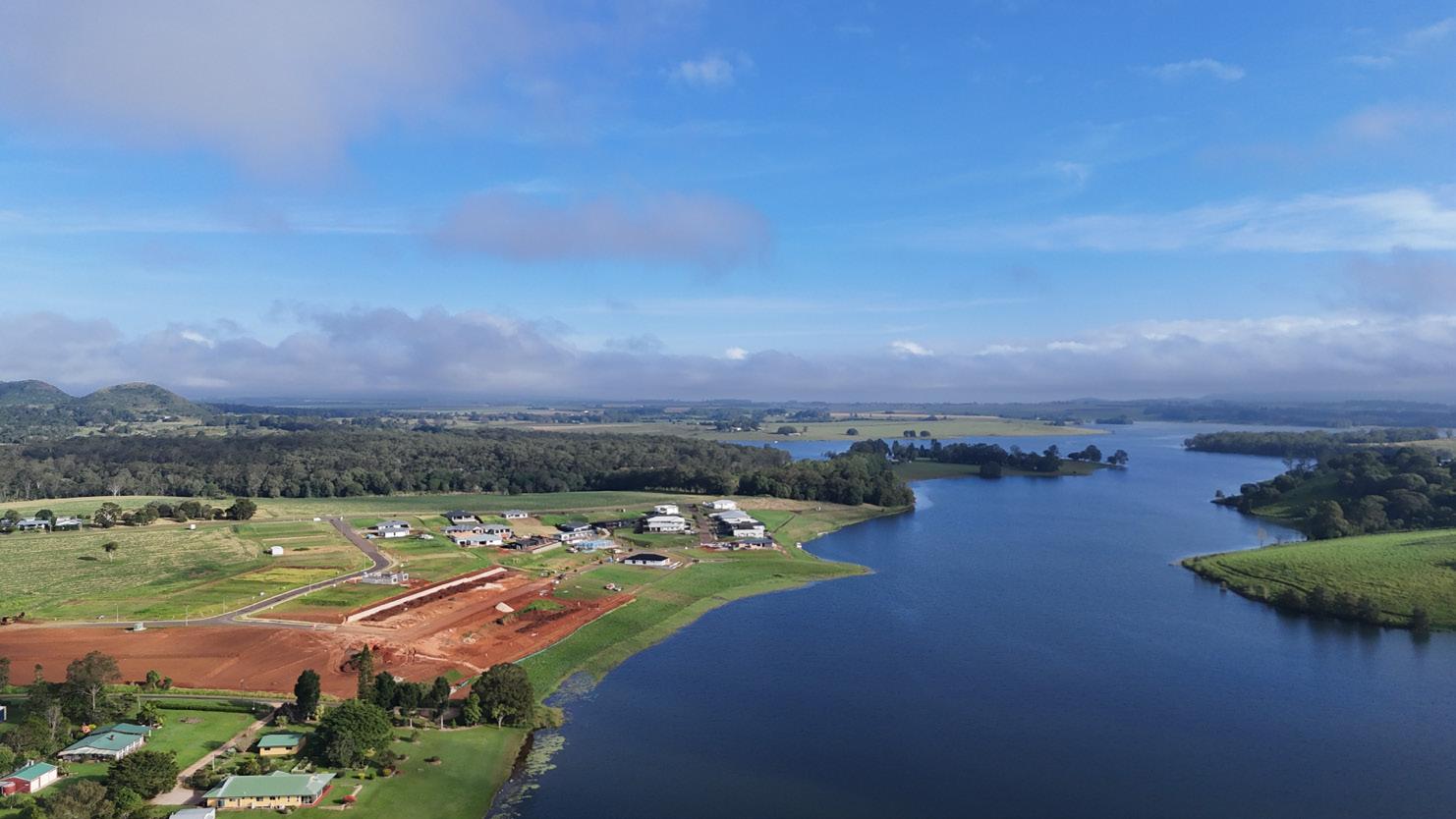


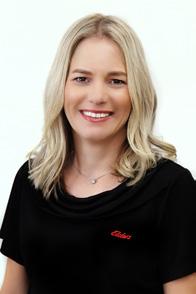



By: ROSELYN EREHE
K92 Mining Ltd., the operator of the Kainantu Gold Mine in Eastern Highlands Province, has reported its strongest first quarter (“Q1”) results to date, with 47,817 ounces gold equivalent (“AuEq”) produced in Q1 2025.
The result significantly exceeded budget, marking a 74% increase from Q1 2024 and the second highest quarterly production in the Company’s history.
The strong quarterly results were driven by high-grade stopes from both the Kora and Judd deposits, a positive grade reconciliation compared to the resource model, combined with excellent plant performance.
Metallurgical recoveries remained high at 95.8% for gold and 95.1% for copper, both marking the second highest on record.
The process plant treated 103,449 tonnes of ore at a head grade of 14.9 grams per tonne AuEq. Underground operations mined 104,052 tonnes of ore, with total material movement reaching 315,182 tonnes, the second highest on record.
Additionally, underground lateral development was also strong, setting a new monthly record in March with 954 metres of advance. This was supported by several major infrastructure upgrades commissioned earlier in the quarter.
During the quarter, K92 continued to advance its transformative Stage 3 Expansion, which is designed to establish Kainantu as a Tier 1, Mid-Tier Producer.
Construction is progressing well, with approximately 75% of the growth capital either spent or committed as of 31 March 2025. The commissioning
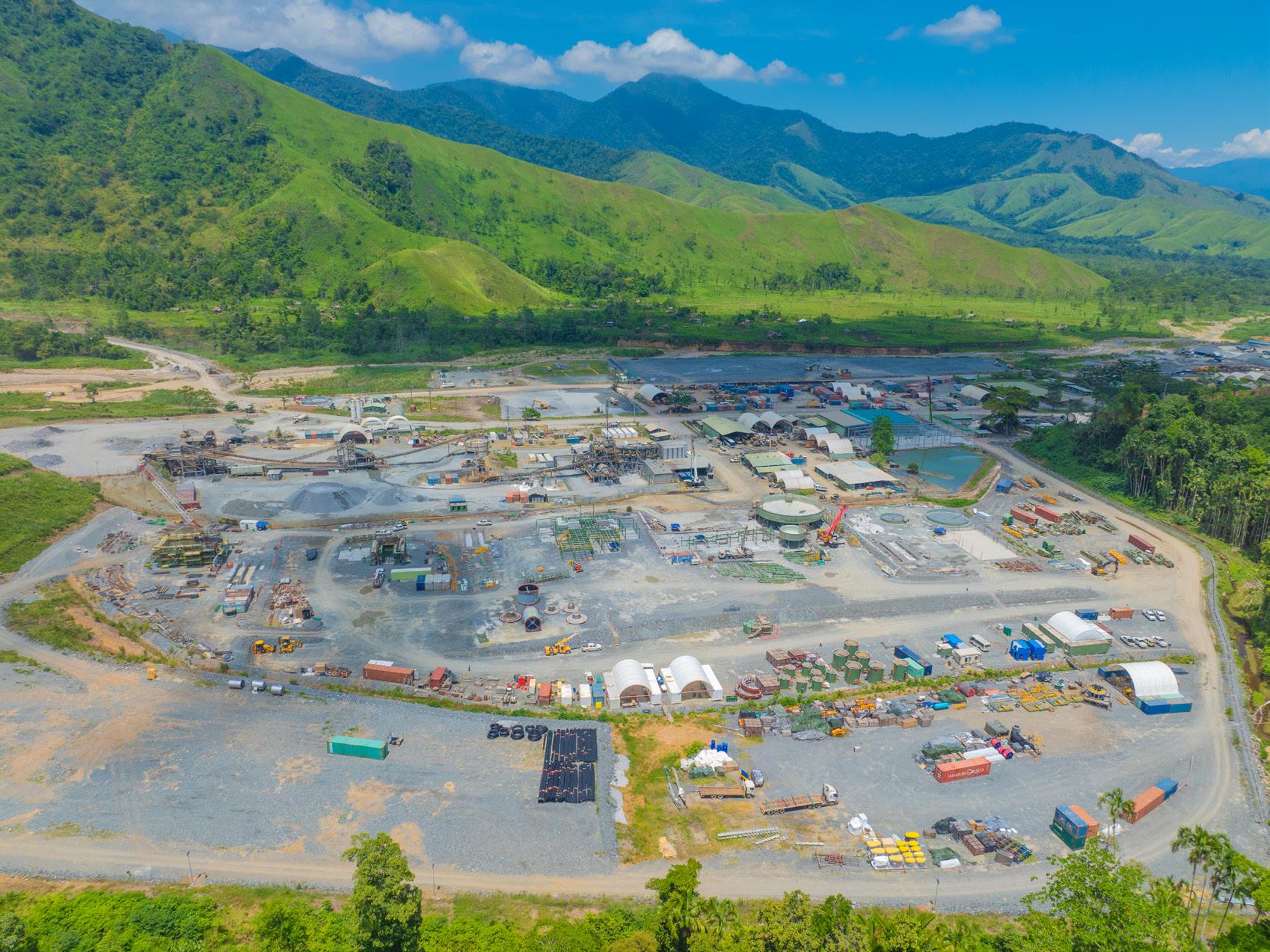
of the new process plant is scheduled to commence in the second half of Q2 2025.
While investing significant capital in the mine during the quarter, K92 also made a corporate tax payment of PGK 48 million during the quarter.
The strong quarterly operational results reinforce K92’s capability to deliver on the upcoming expansions, which will significantly contribute to the economic development of Papua New Guinea while maintaining its commitment to safety, environmental stewardship, and community development.
John Lewins, K92 Mining’s Chief Executive Officer, said, “We are off to a great start in 2025 with our strongest
Q1 to date. Operations have continued its momentum coming off a record year in 2024, achieving several records and near-records.”
“As our operation expands and becomes more successful, we are also very proud to contribute to the economic well-being of Papua New Guinea by making yet another corporate tax payment during the quarter,” he said.
“With commissioning of the new 1.2 million tonne per annum process plant set to begin shortly, this is shaping up to be a milestone year for both Kainantu and Papua New Guinea as we move closer to becoming a Tier 1 Mid-Tier gold producer,” Lewins added.
< Page 68
have been fully constructed and drill ready.
The first few holes will be targeting the sulphide mineralization below the historic oxide mining pits, near surface with open-pit potential, the company statement said. Historic drilling indicates a mineralized structure 6-10 meters in width, 15-
20 meters below surface.
The Phase I program, running from May through August, 2025, consists of 16 diamond drill holes for a total target of 2,500 meters.
Samples from drilling will be transported to the Intertek Lab in Lae for processing. The Company expects to release ongoing drill results as they are received.
“Following years of under-explo -
ration at Wild Dog, GPAC’s 2025 campaign is planned to be the first modern program to systematically test the full vertical and lateral extent of this system,” said Callum Spink, VP Exploration.
“Wild Dog is a rare opportunity: a historic high-grade gold producer in a proven belt, now being tested with modern techniques and deep geophysics for the first time.”

Papua New Guinea is attracting Japanese investment interest as Nittetsu Mining Co. Limited explores opportunities in mid-size copper and limestone operations.
In a meeting held in Tokyo, General Manager Shinichiro Mita discussed the company’s plans with Minister for International Trade and Investment, Hon. Richard Maru, reinforcing PNG’s position as a valuable mining destination.
Nittetsu Mining, a company specializing in metallic and non-metallic minerals, has been a long-term importer of copper concentrate from PNG’s OK Tedi Mine and operates a copper mine in Chile.
Beyond mining, the firm is engaged in machinery development, environmental engineering, real estate, and renewable energy projects.
Minister Maru welcomed the investment interest, stating, “We are looking for more Japanese investors to invest in PNG and we will go all
out to support them.”
He invited Nittetsu Mining to attend the 2nd PNG Special Economic Zone Summit, scheduled for 31 August 31 to 3 September 2025, in Port Moresby, where further discussions on partnership opportunities will take place.
Minister Maru also held discussions with Sumitomo Forestry Co. Limited, which operates Open Bay Timber Limited in East New Britain Province, managing a 10,000-hectare eucalyptus plantation. He urged the company to focus on downstream processing rather than exporting raw logs.
“We have a clear Government Policy for PNG to stop exporting round logs by 2025,” the Minister emphasized.
Sumitomo Forestry acknowledged Indonesia’s recent ban on round log exports, which led them
to establish a major processing plant in Java. They expressed interest in developing a similar facility in PNG, contingent on improvements in electricity supply and road access.
Mr. Maru assured Sumitomo Forestry that discussions with the Minister for Forests and PNG Forest Authority Managing Director John Mosoro would take place to resolve infrastructure challenges.
With Japanese firms expressing interest in mining and forestry investments, PNG continues to strengthen its global investment partnerships, positioning itself for economic growth and industrial development.
“I will discuss these issues with the Minister for Forests and the Managing Director for PNG Forest Authority, Mr. John Mosoro, on my return to PNG. This is a very low-hanging fruit as far as going into downstream processing is concerned,” said Minister Maru.
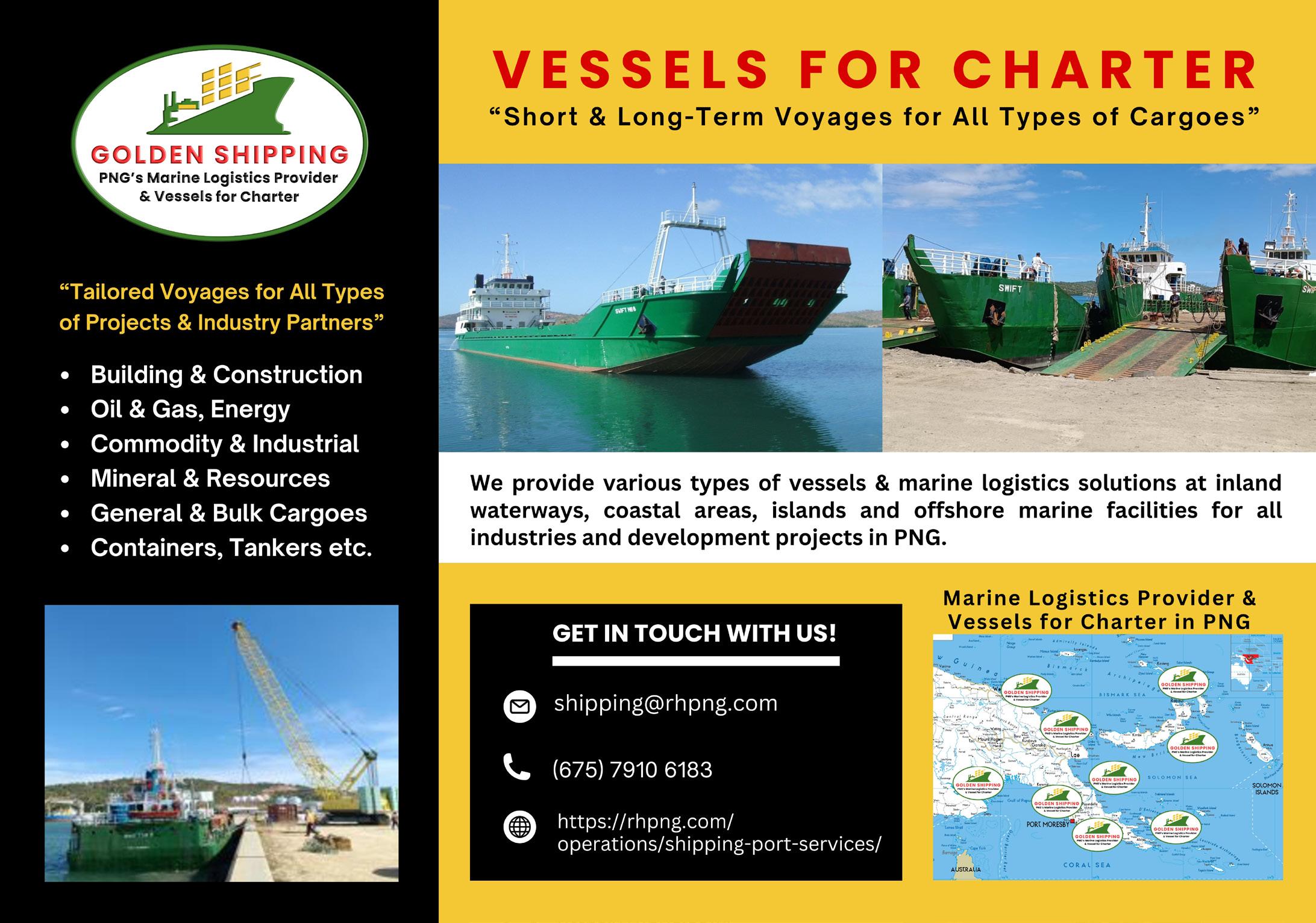
By: ROSELYN EREHE
The former Minister for Mining, Hon. Wake Goi MP, recently issued his final announcement, marking the end of his tenure by confirming the processing of outstanding tenement license applications on April 25.
A total of 38 license applications were approved, with only three applications rejected.
The companies with approved licenses are major industry players like Newcrest Exploration Limited
(EL1704), K92 Mining Limited (EL1341), Frieda River Limited (EL1956, EL1957, EL1895), and Lihir Gold Limited (EL485).
Small-scale and individual miners also secured approval.
Three rejected applications were by Zhong Rui Kuang Ye (PNG) Co. Limited (EL2647), Muta Angas (AML142), and Aking Soap (AML591).
The following tenement applications listed are finalized:
OUTSTANDING TENEMENT LICENSE APPLICATIONS PROCESSED DURING THE MINISTERIAL TENURE OF THE FORMER MINISTER FOR MINING, HON. WAKE GOI MP.
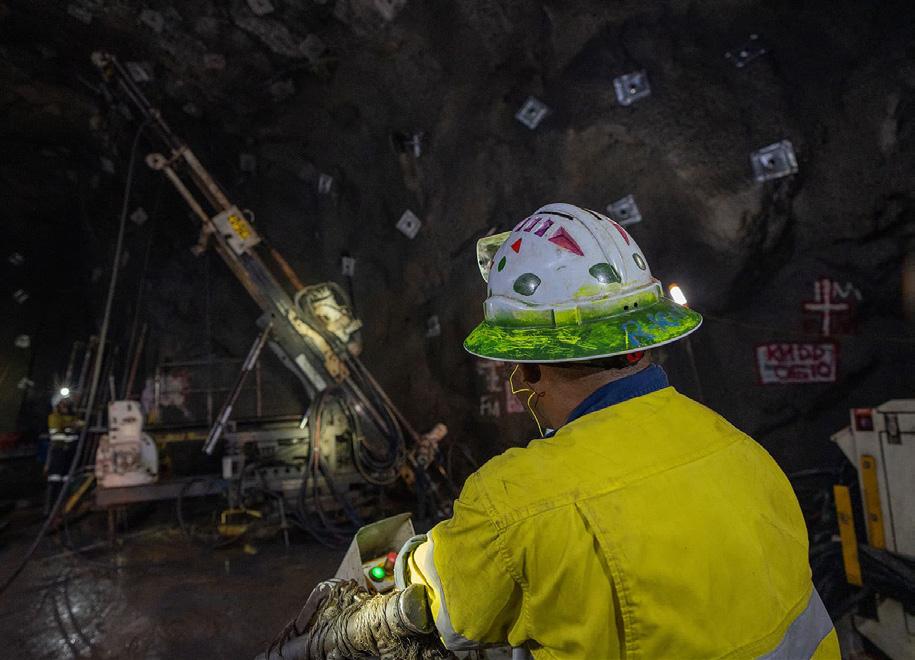
In addition, MP Goi confirmed that any remaining matters from his office will be returned accordingly. He also stated that the mining vehicle and all assets related to the Mining Ministry will be officially handed over on April 28.
Minister Goi said, “Settling these matters is important for maintaining good governance, accountability, and transparency in the administration of the mining sector.”
The approved licenses will make way for further exploration and production activities in the country.
MP Goi has encouraged all license holders to begin preparations for their respective work programs and to work in collaboration with the Ministry of Mining, the newly appointed Minister -- Hon. Rainbo Paita -- and the Mineral Resources Authority, further thanking the Marape-Rosso Government for their support.



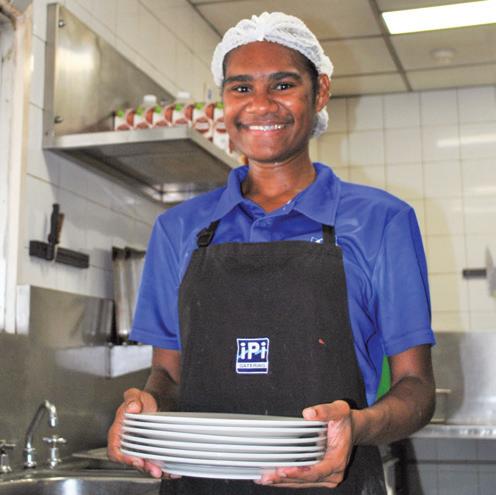
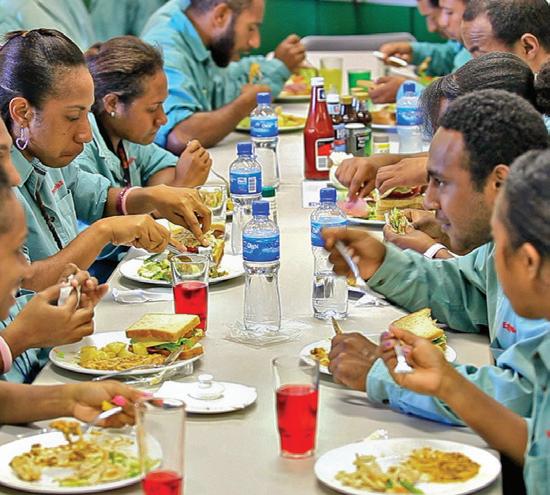
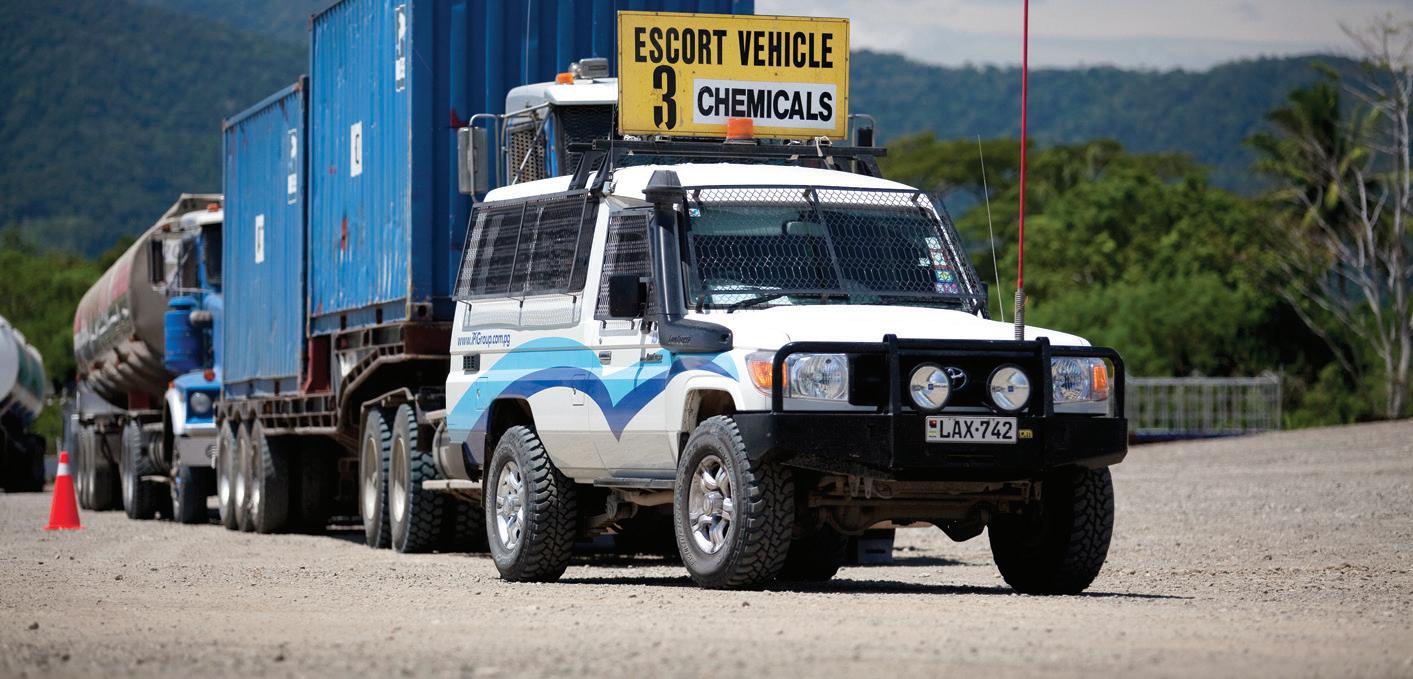
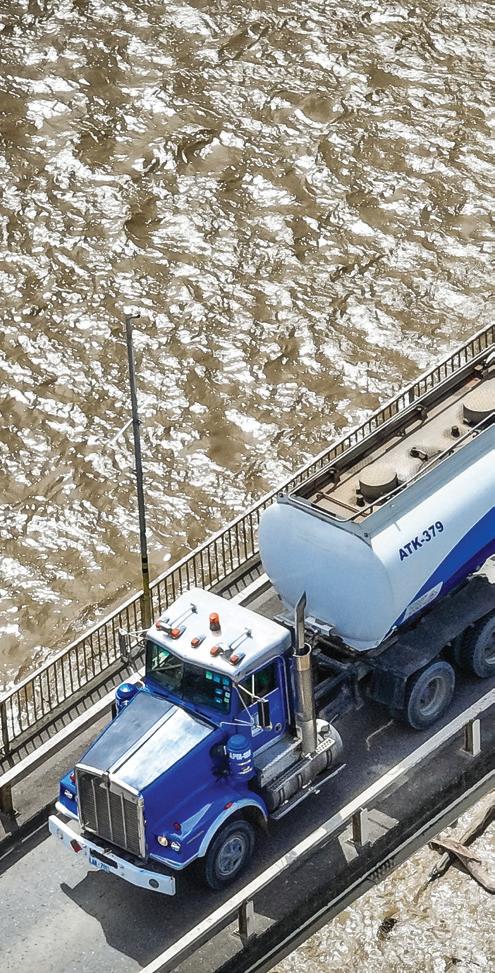
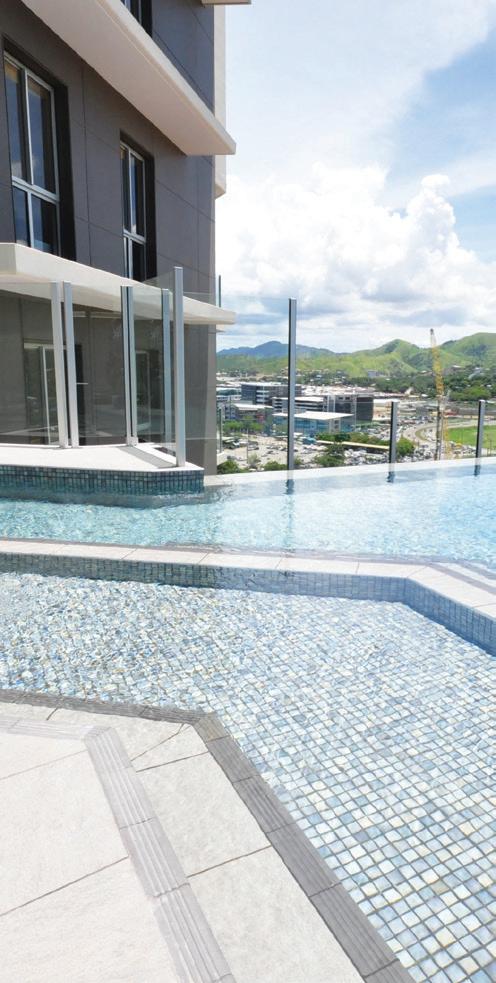
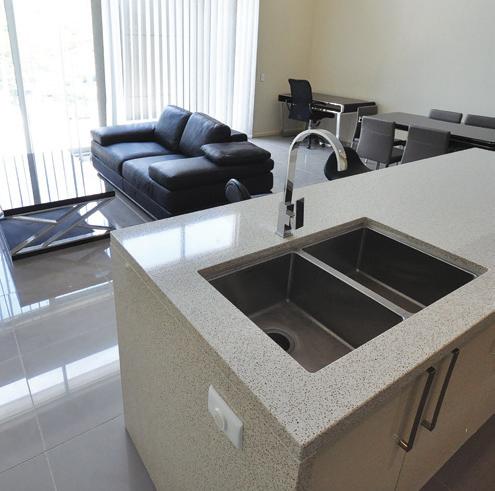
The iPi Group's vertically integrated logistical operations are as varied as the needs of our many clients.
> Specialist bulk fuels and dangerous goods transportation
> General dry freight and line haul transport
> Fully integrated Camp Management, Catering and Janitorial Services for the Mining and Petroleum industries
> Quality Assured Hospitality delivery across the broader industrial sectors
> Quality Accommodation for Executives and FIFO workers
> Warehousing and dry goods storage
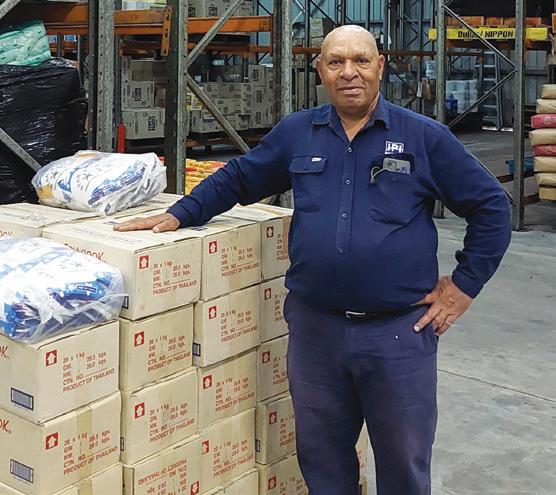
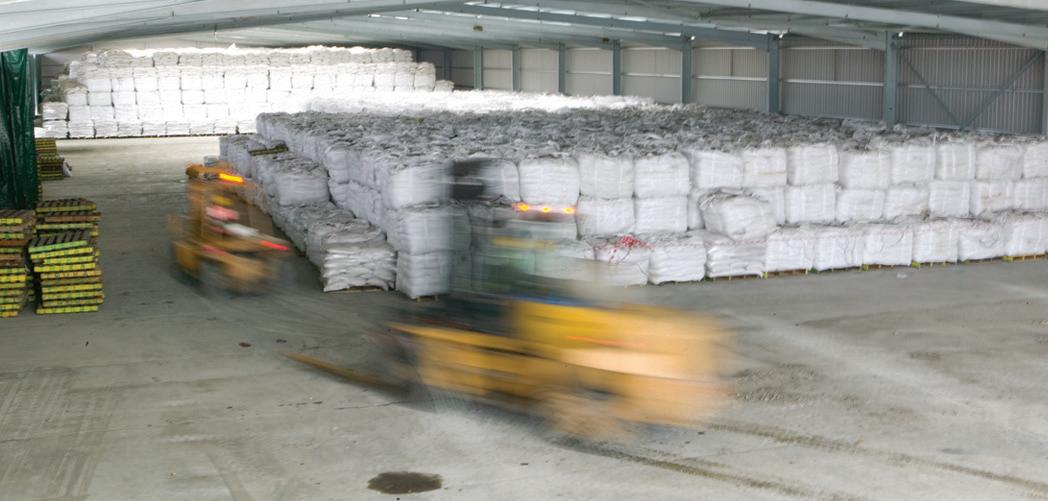
Ok Tedi Mining Limited (OTML) announced “exceptional” performance results for the first quarter of 2025, showcasing yet another successful quarter of disciplined operational and financial excellence.
OTML is a 100 percent Papua New Guinea-owned entity with 67 percent direct shareholding by the Independent State of PNG and the people of Western Province holding a 33 percent interest.
One hundred percent of the benefits from its operations are distributed to the people of Western Province and the State.
“Our profitability improved significantly in the first quarter compared to a year ago as a result of higher commodity prices and copper sales volumes, we delivered 28,000 copper tonnes, and 74,000 gold ounces and generated revenue of US$460 million (PGK 1.85 billion) demonstrating our focus on disciplined and committed performance and continuous business improvement,” said Kedi Ilimbit, Managing Director and CEO.
“We remain committed to our Growth 2050 strategy of balancing value accretive growth with returns to shareholders, and our strong balance sheet and commercial strategy provide us with resilience and the ability to continue to create value amidst market uncertainty.”
With these significant achievements and solid start to the year, the company remains committed to deliver to Kedi’s expectation “to copy 2024 performance and paste into 2025 and add the extras to meet our full year 2025 guidance, whilst continuing our Growth 2050 strategic path towards ensuring our Vision 2050 is achieved.”
• Total Recordable Injury Frequency Rate (TRIFR) was 0.19 and represented a 3% improvement compared to the corresponding period in 2024 of 0.22).
• The Lost Time Injury Frequency Rate (LTIFR) remains the same at 0.00 for 2024 and Q1 of 2025.
• Produced 113.1kt of concentrate, 28,000 tonnes of copper metal and 74,000 ounces of Gold. Production increased by 5% and 7% respectively compared to Q1 2024. This was predominantly due to higher head grades, stable process and minimal plant upsets.
• Gross revenue of US$ 460 million (PGK 1.85 billion) was 54% higher compared to the corresponding period in 2024. This reflected the favourable metal prices and higher shipment.
• Profit (after tax expense) was USD 176 million (PGK 707 million) or 116% higher compared to the corresponding period in 2024 and benefitted from the higher revenues.
• Royalties paid were USD 8.7 (K34.9) million, which was higher than the USD 5.5. million paid in Q1 2024. This reflects relatively higher revenue.
• Taxes paid during the quarter were USD 27.6 million (PGK 110.9 million) compared to USD 20.7 Million (PGK 78 million) in Q1 2024. The increase was mainly attributable salary & wages tax, production levy and Good and services tax.
• On track to meet Full Year 2025 guidance, with first quarter results in line with indications provided in March 2025
• Delivered USD 24.9 million (PGK100 million) in total returns to shareholders through Q1 interim dividend payments
• Maintained a strong and flexible investment-grade balance sheet, ending the quarter with USD 69 million (PGK 277.9 million) in cash and USD118 (PGK 477.9) million in total liquidity
• Reduced debt by USD 49.7 million (PGK 200 million) since the start of the year, which includes early repayment of overdraft facilities.
CMCA review progressed smoothly within budget and safely with support from all stakeholders. The second group meeting that finalises the package is held in Port Moresby to raise the profile and significance of OTML as a nationally owned mining company.


OTML is steadfastly pursuing its Growth 2050 strategy, which focuses on long-term sustainability, operational excellence, and community benefits. Key initiatives include:
• Tailings Storage Facility (TSF)
• Engineered Waste Rock Dumps
• Electrical Haul Truck Drives
• Pyrite Concentrate (PCon) Pit 4a Construction
• Copper Mark Certification
• Electrification & Energy Transition Strategy
• Accessibility to Diesel & Jet A1 Storage & Supply Facilities in the country
• Mergers & Acquisition opportunities
OTML remains on track to meet its previously budgeted 2025 guidance of:
• 428,000 tonnes of copper concentrate
• Total operating expenditure of USD607 Million (PGK2.4 billion
• Capital expenditure of USD357
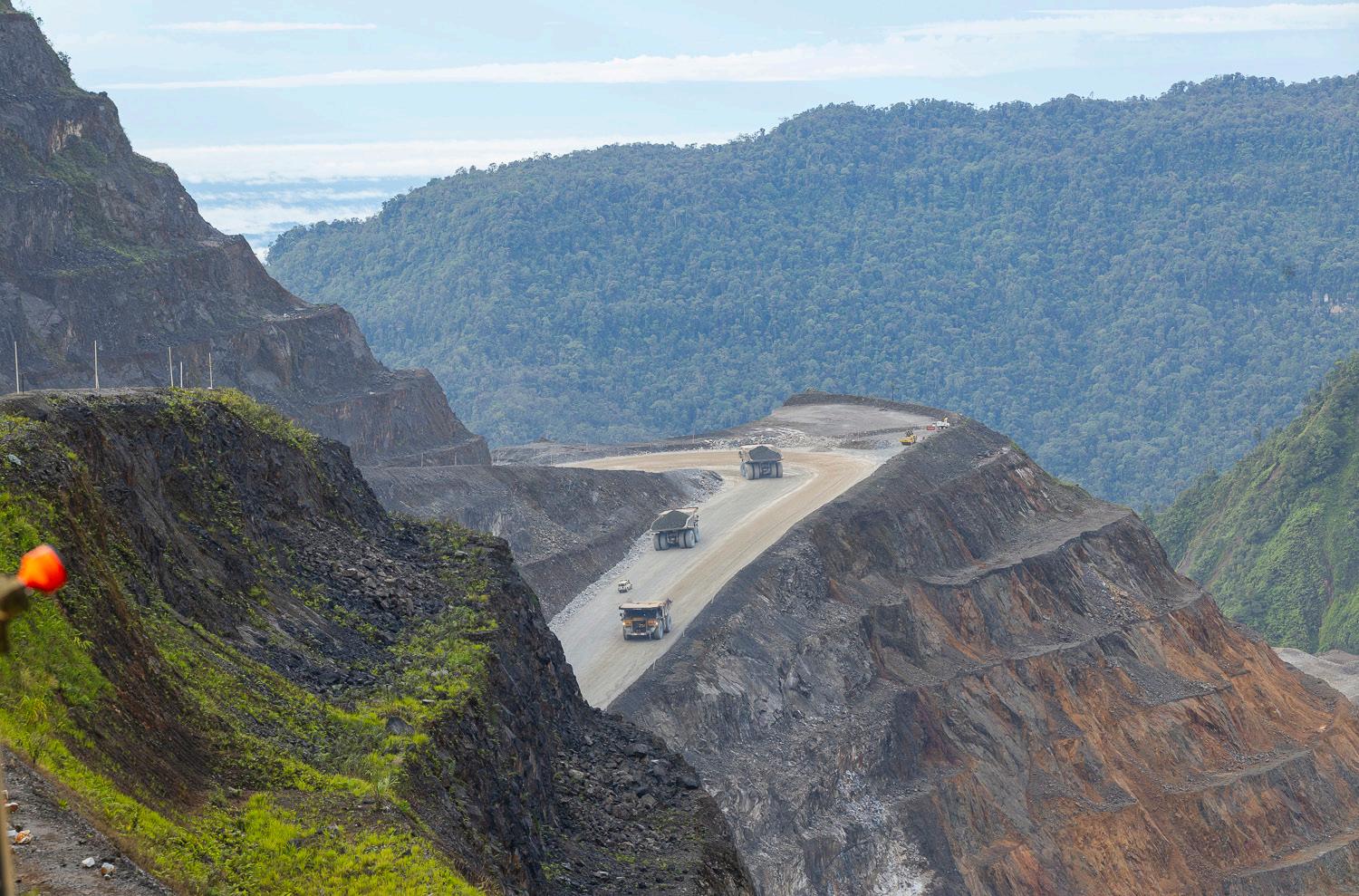
billion (PGK 6 billion)
Ilimbit, stated: “Q1 2025 has been built on from the 2024 performance of resilience, collaboration, and achievement for Ok Tedi.”
“These results reaffirm our commitment to creating value for all stakeholders while upholding our responsibilities to the people of Papua New Guinea and future generations.
ensures that we are well-positioned for the challenges and opportunities that lie ahead.”
“Our unwavering commitment to responsible mining practices and sustainable development has delivered outstanding outcomes for stakeholders, employees, and the communities in which we operate,” he added.

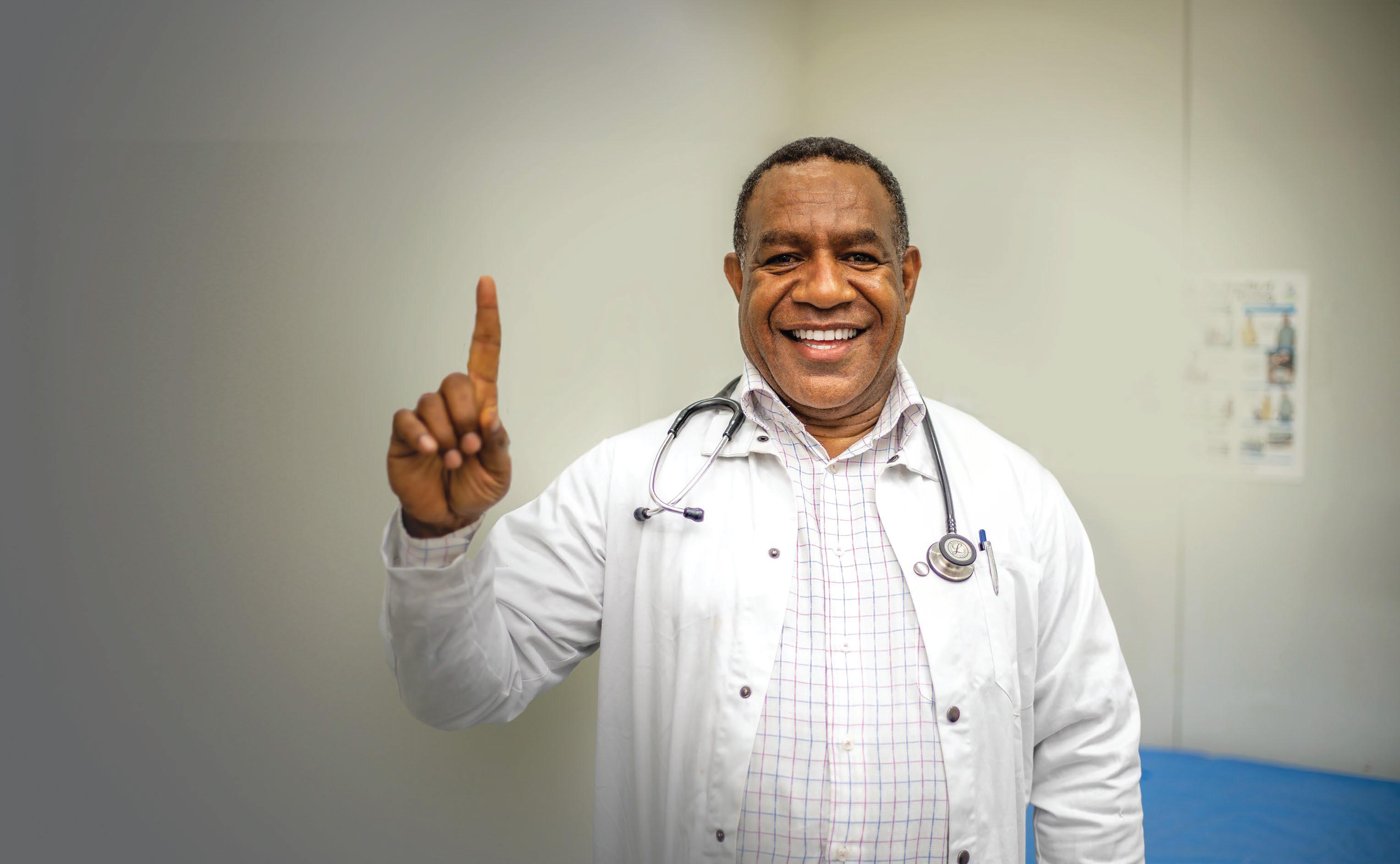

(
















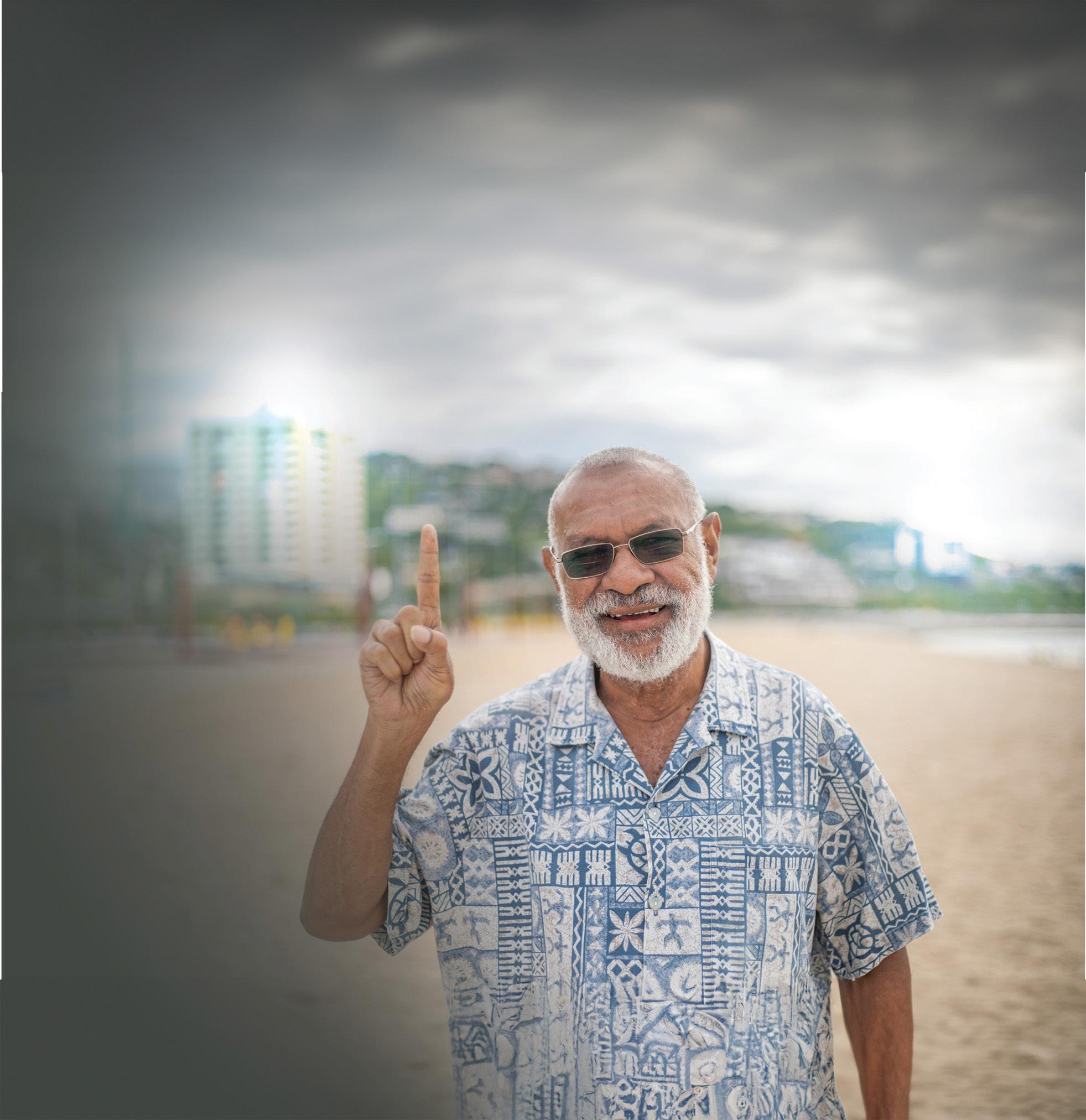
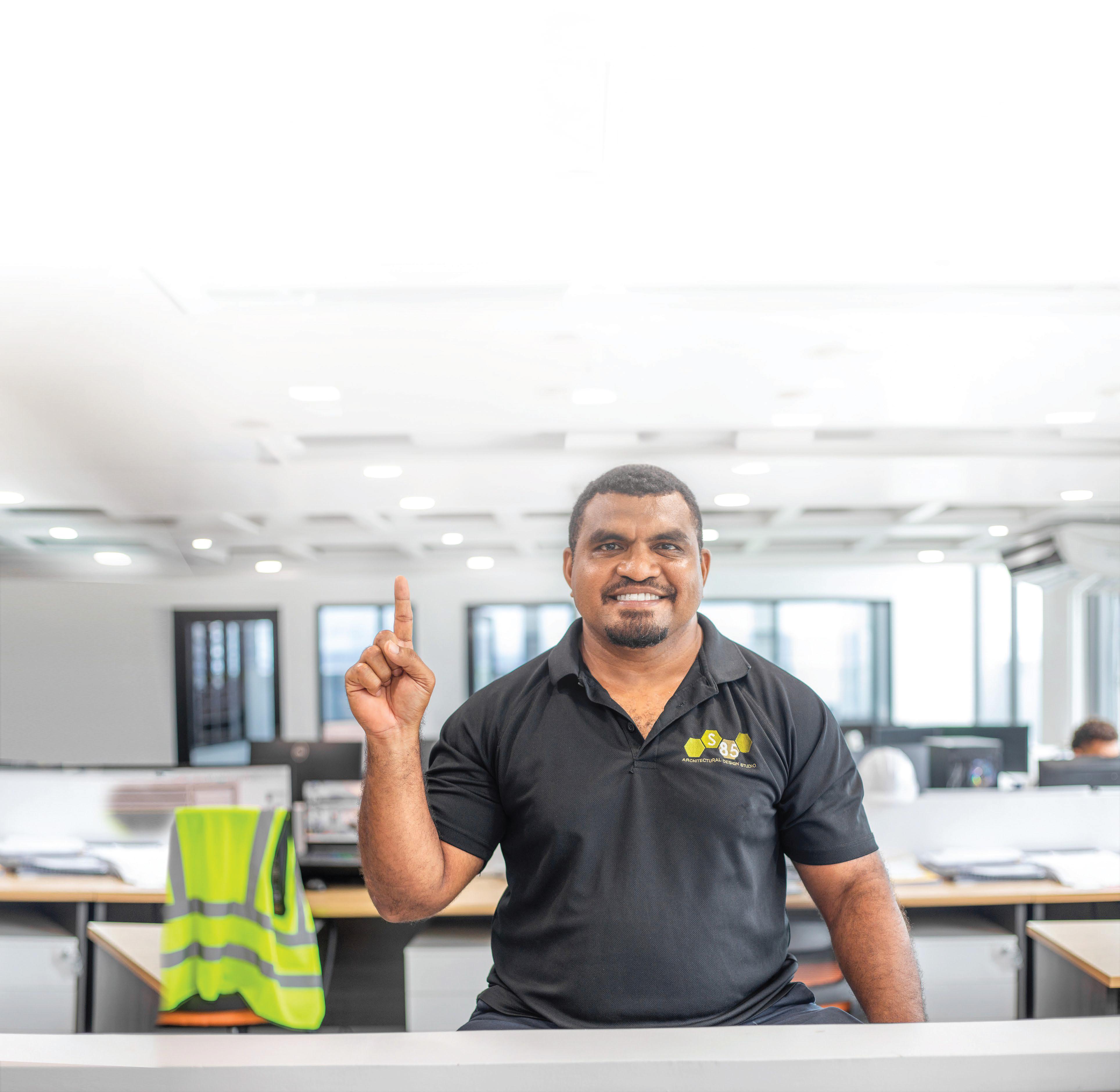
As a Nambawan Super Member you’ll enjoy a range of benefits such as access to discount partners nationwide, Free Financial Literacy Training, easy and convenient online access to your super account and Nambawan Savings & Loan Society services, co-located within NSL Branches nationwide, offering Members a one-stop shop for their short and medium-term savings needs.
So, make the smart superannuation choice and join today
Scan me


Contact us today








































































































































































Ok Tedi Mining Limited (Ok Tedi) entered into a binding agreement with Kingston Resources Limited (Kingston) on 20 May 2025 to acquire the Misima Gold and Silver Project for A$60M (~US$38M), with further contingent payments totalling up to A$35M (~US$22M).
The Misima Gold and Silver Project, located 625km east of Port Moresby in Milne Bay, has a current mineral resource estimate of 3.8Moz of gold and 22.1Moz of silver.
Ok Tedi operates the Ok Tedi Mine, the longest running open-pit copper, gold and silver mine in Papua New Guinea (PNG).
The company is 100% PNG owned, with a 67% direct shareholding by the Independent State of PNG through Kumul Minerals (Ok Tedi) Limited and a 33% interest held by the people of the Western Province.
Ok Tedi Chaiman Mark Stone said the transaction was a marker of PNG’s resurging mining sector.
“The move to a multi-mine business is a significant step for Ok Tedi, reinforcing the company’s commitment to harnessing the region’s mineral assets and capitalising on government support for long-term growth,” said Mr Stone.
“Papua New Guinea is a mineral rich land with many natural assets just waiting to be unlocked and the Misima mine, with its 3.8Moz resource together with potential exploration upside, is a great example of that.
“We hope that bringing Ok Tedi’s strong operational capability to another national resource will contribute to the Government’s Vision 2050 to empower our people and create wealth for our nation,” he said.
Managing Director and Chief Executive Officer Kedi Ilimbit spoke enthusiastically about the company’s growing footprint.
“Ok Tedi is entering an exciting period of expansion as we look to secure Ok Tedi’s future and act on our Growth 2050 vision.
“We have many great projects on the horizon, from mine
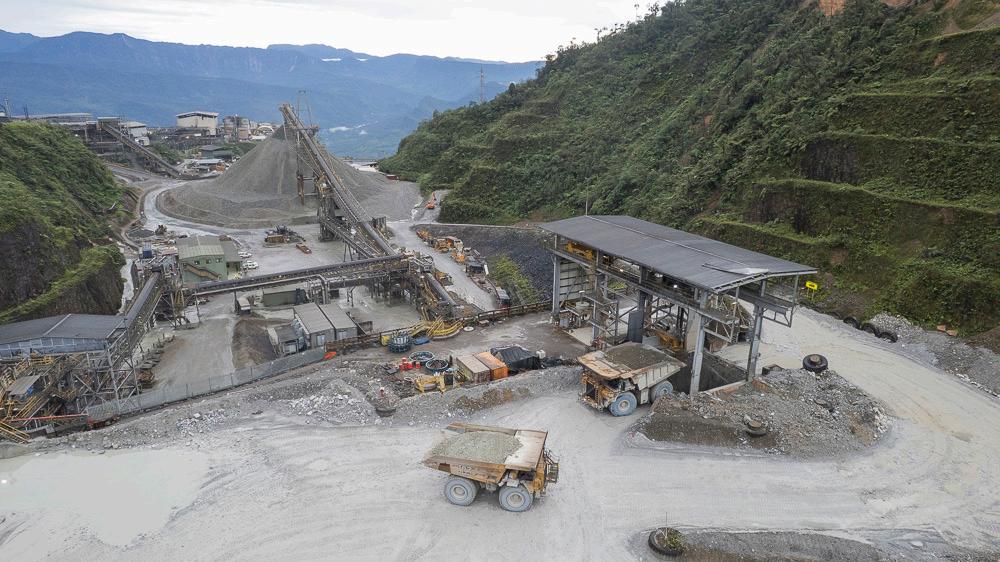
improvements to extend the mine life, to our ‘lighting up the west’ hydro-electrification strategy and other sustainability initiatives – the reopening of Misima gold is just one early step in the journey,” he said.
Mr Ilimbit highlighted Ok Tedi’s significant community consultation experience, which he believed would ensure a smooth ownership transition.
“Through this project we will boost social and business opportunities on Misima Island and ensure the benefits flow through into the communities, and also bring more economic value to our shareholders, the people of PNG.”
Kingston Resources Ltd, an ASX-listed gold and copper company based in Australia, moved to 100% ownership of the Misima project in 2021 and completed a Definitive Feasibility Study (DFS) of the mine which confirmed the viability of a new long-life open pit mining operation at the site.
The DFS assumed a 20-year mine life, annual throughput capacity of 6.1Mt and life of mine average annual gold production of 122koz.
“We will now proceed with refining the DFS and environmental impact studies to accelerate our development and permitting plans and return Misima to its former glory as a successful producer and
contributor to the local economy,” said Mr Ilimbit.
The acquisition will be funded by Ok Tedi’s existing cash flows, with several options to be explored for funding the development and construction of the operation.
Completion is subject to customary consents being obtained from relevant stakeholders including the extension of the current principal exploration licence and Independent Consumer and Competition Commission of PNG (ICCC) approval.
The sale agreement contains other terms and conditions typical for an agreement of this nature including standard representations and warranties provided by both Ok Tedi and Kingston.
“We look forward to working with the Mineral Resources Authority to facilitate the smooth processing of all regulatory requirements to get this magnificent national resource back up and running,” he said.
The Misima mine was previously operated as an open pit mine from 1989 to 2004 by Placer Dome Inc., producing 3.7Moz of gold during its 15 years of operation.
Treadstone Resource Partners acted as strategic and financial advisor, Allens acted as legal advisor, PWC acted as tax advisor, and AMC Consultants acted as technical advisor to Ok Tedi for the transaction.
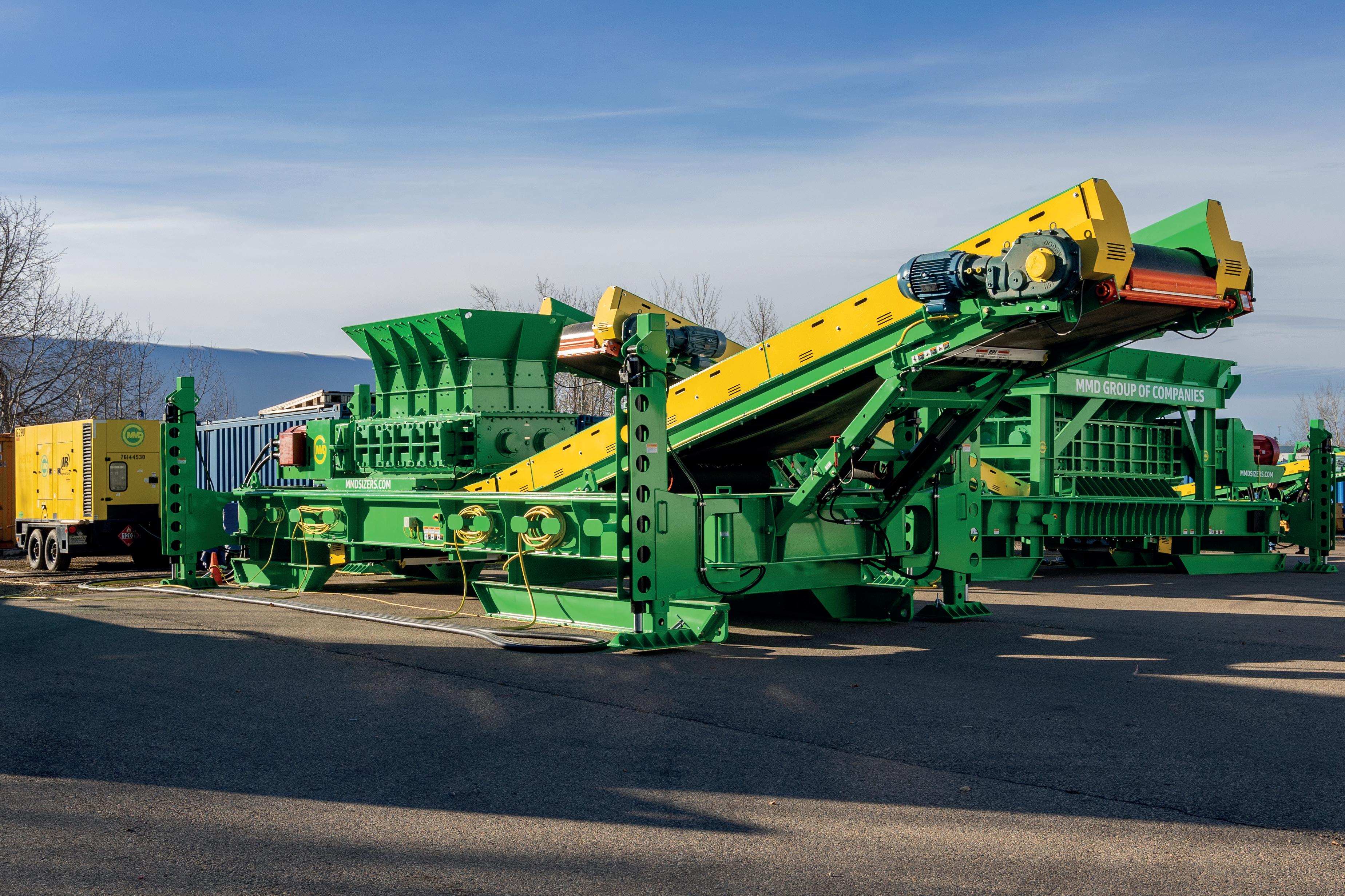
MINERAL SIZERS BUILT FOR PERFORMANCE, EFFICIENCY AND DURABILITY
With over 45 years of specialist experience, our Mineral Sizers™ and portable modular solutions are designed and built to perform in even the most demanding mining and quarry environments.
Why choose our Sizers for Hard Rock?
• Tailored to handle dry, wet and sticky materials
• Heavy duty construction
• Minimal fines and dust generation
• Energy efficient breaking action
Phone: +61 7 3193 2800
Email: sizers@mmdaus.com.au
• High capacity, low profile design –ideal for portability
• Quick-change wear components
• Large stock holding in Brisbane for fast spares turnaround
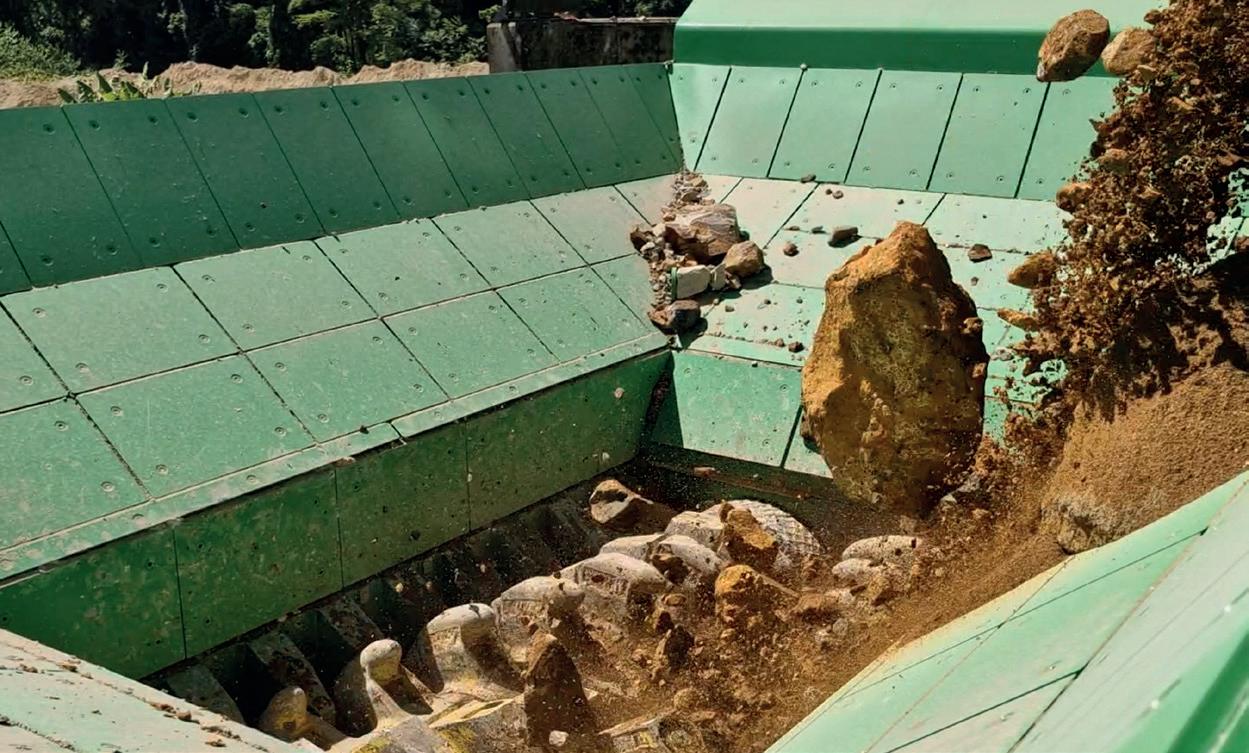

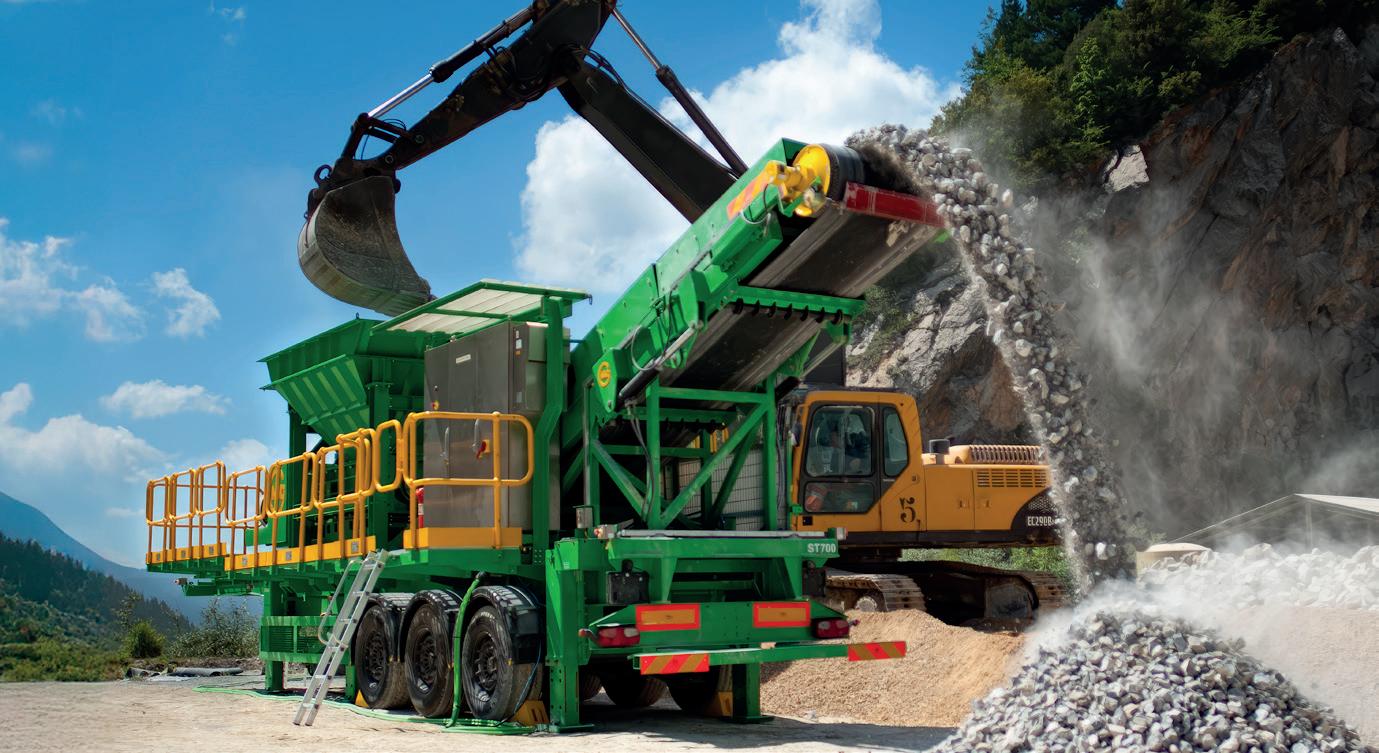
By: ROSELYN EREHE
St Barbara Limited has announced the results of its Simberi Process Plant Layout and Design AACE Class 4 Study (“Plant Study”), which confirms the strong economic potential of its Simberi Expansion Project in Papua New Guinea.
The update given on 30 April this year, after the plant study, also includes revised Mineral Resource and Ore Reserve estimates that support a significantly enhanced Life of Mine Plan (LOMP).
Managing Director and CEO Andrew Strelein described the findings as clear validation of the company’s strategy.
“Our current work shows a project with significantly higher production averaging 220 kozpa over eight years, a lower operating cost and a mine life extending to 13 years without including any exploration targets,” CEO Strelein said.
“At an assumed gold price of only US$2500/oz that delivers a Post-Tax NPV (8%) of US$717 million and a Post-Tax IRR of 62%.”
“Our focus now is on the completion of the Feasibility Study to support a Financial Investment Decision, which we are targeting for H1 FY 2026. In the meantime, we continue to advance early works to allow a seamless transition into full-scale development,” he added.
The new LOMP outlines average gold production of 220,000 ounces per annum over eight years, with total production reaching 2.2 million ounces between Fiscal Years 2026 (FY26) and 2038 (FY38).
The mine’s life now extends to 13 years based solely on Proved and Probable Ore Reserves, excluding any exploration upside, the company said.
The project’s economic case is compelling, with a post-tax Net Present Value (NPV) of US$717 million and an internal rate of return (IRR) of 62%, based
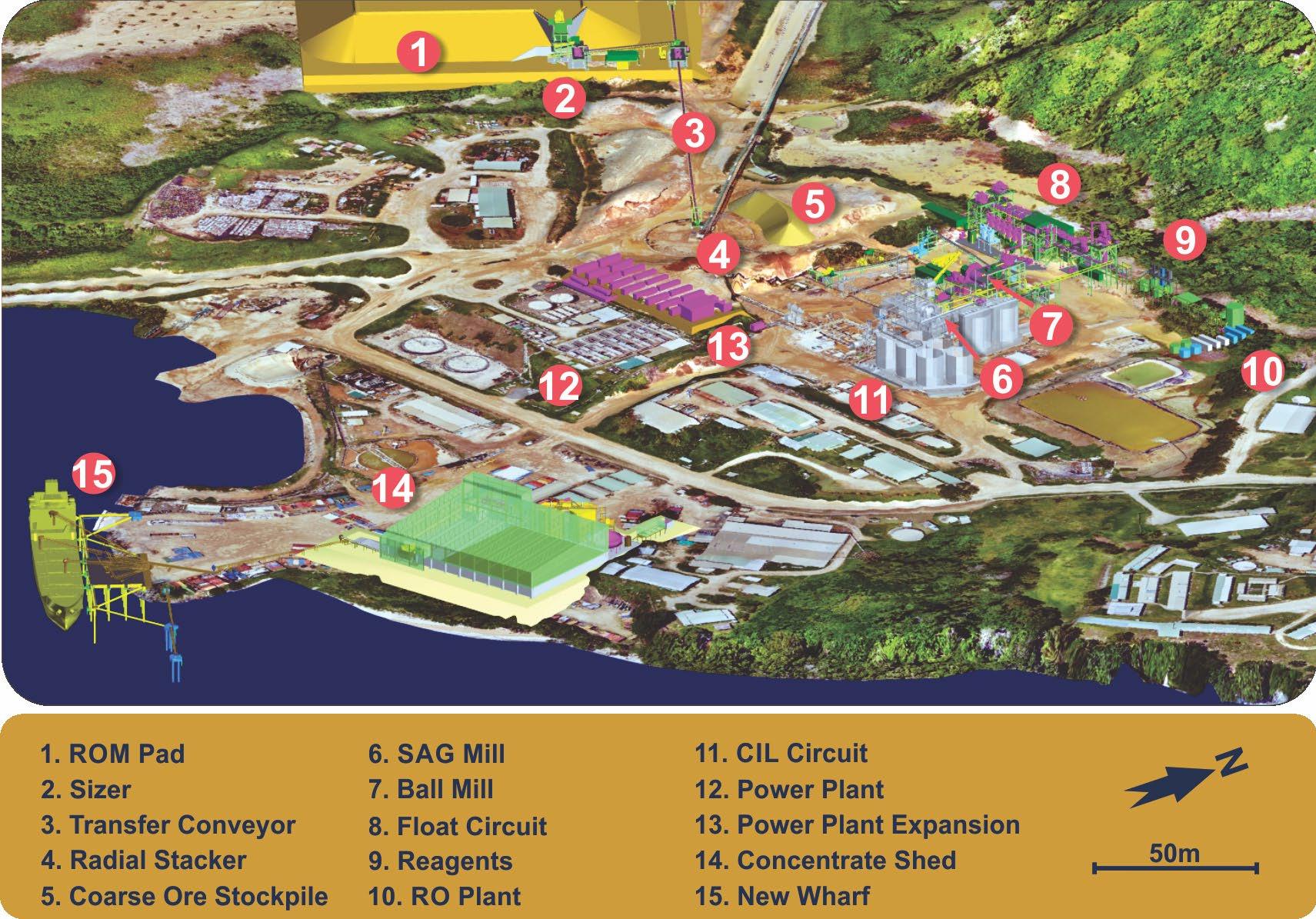
on a conservative gold price of US$2,500/oz, St. Barbara said.
Key Highlights of the Expansion Plan include:
• Annual gold output: Expected to ramp up from approximately 90,000 oz in FY27 to over 220,000 oz from FY28 onward.
• All-in Sustaining Cost (AISC): Forecasted to decrease to US$1,200–$1,300/oz from FY29 to FY36.
• Initial capital investment: Estimated at US$235 million over FY26–FY28, with an additional US$48 million in pre-expansion growth capital.
• Ore Reserves: Updated to 2.61 Moz of gold and 4.68 Moz of silver, with a new silver Ore Reserve reported for the first time.
• Project infrastructure: Includes a new 5.8MW ball mill, a flotation circuit for sulphide processing, a new wharf to support concentrate shipment, and expanded power generation.
The Plant Study, completed by Pitch Black Group, confirms the technical readiness of the project
and outlines a transition from oxide to sulphide ore processing using flotation to produce a gold concentrate.
St. Barbara has already initiated early works, including camp expansion, new haul roads, and detailed engineering for the process plant upgrades.
The final investment decision or FID is anticipated in late Q2 or early Q3 of FY2026, pending the resolution of an ongoing tax assessment with PNG authorities. Meanwhile, long-lead items such as the ball mill and environmental compliance efforts are progressing, the company added.
The expanded LOMP estimates a total capital spend of US$458 million, including sustaining and closure costs, with robust sensitivity to gold price upside, potentially exceeding US$1.1 billion in post-tax NPV at US$3,000/oz, it said.
Further updates are expected upon completion of the Feasibility Study and progression toward project financing, the company said.

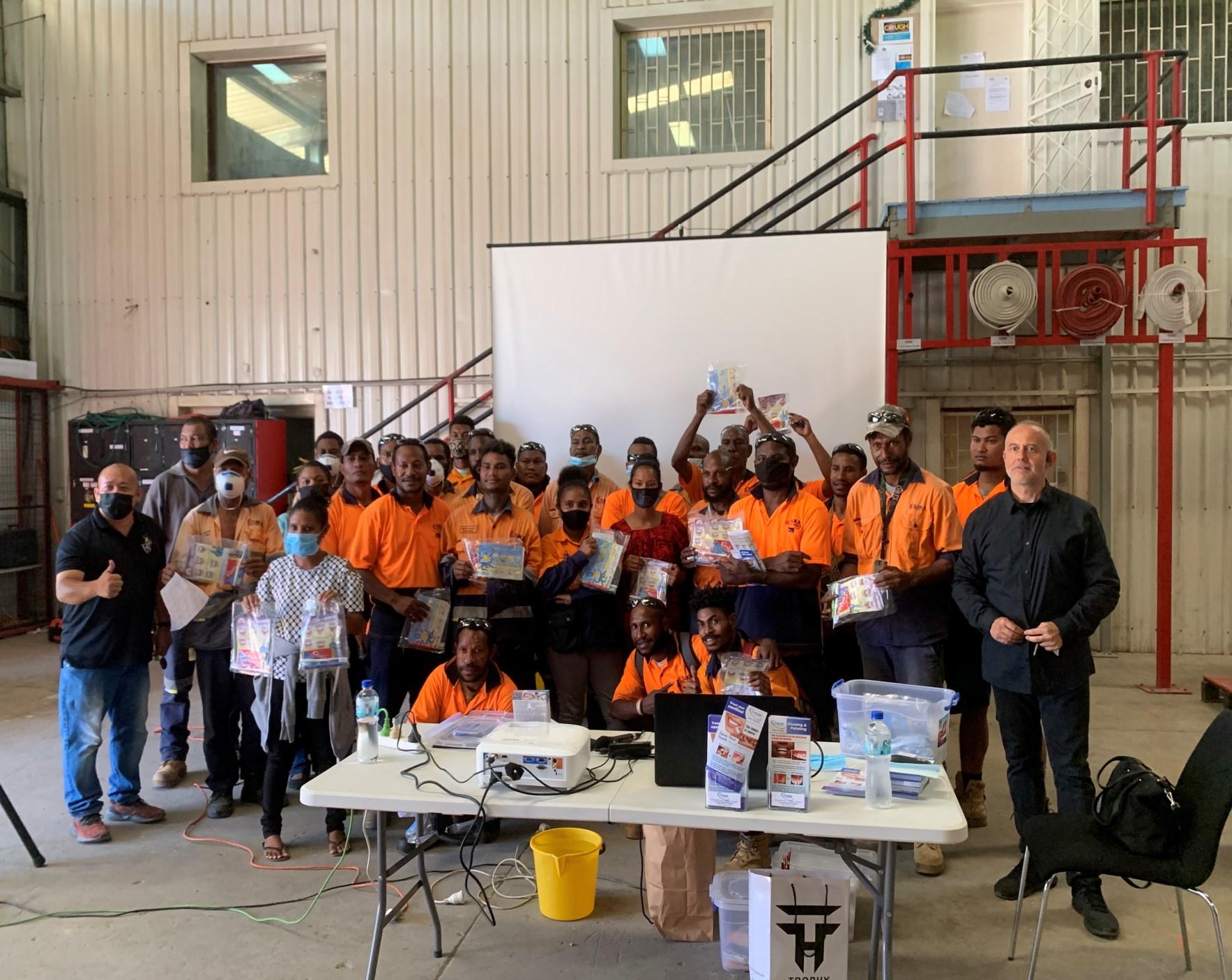
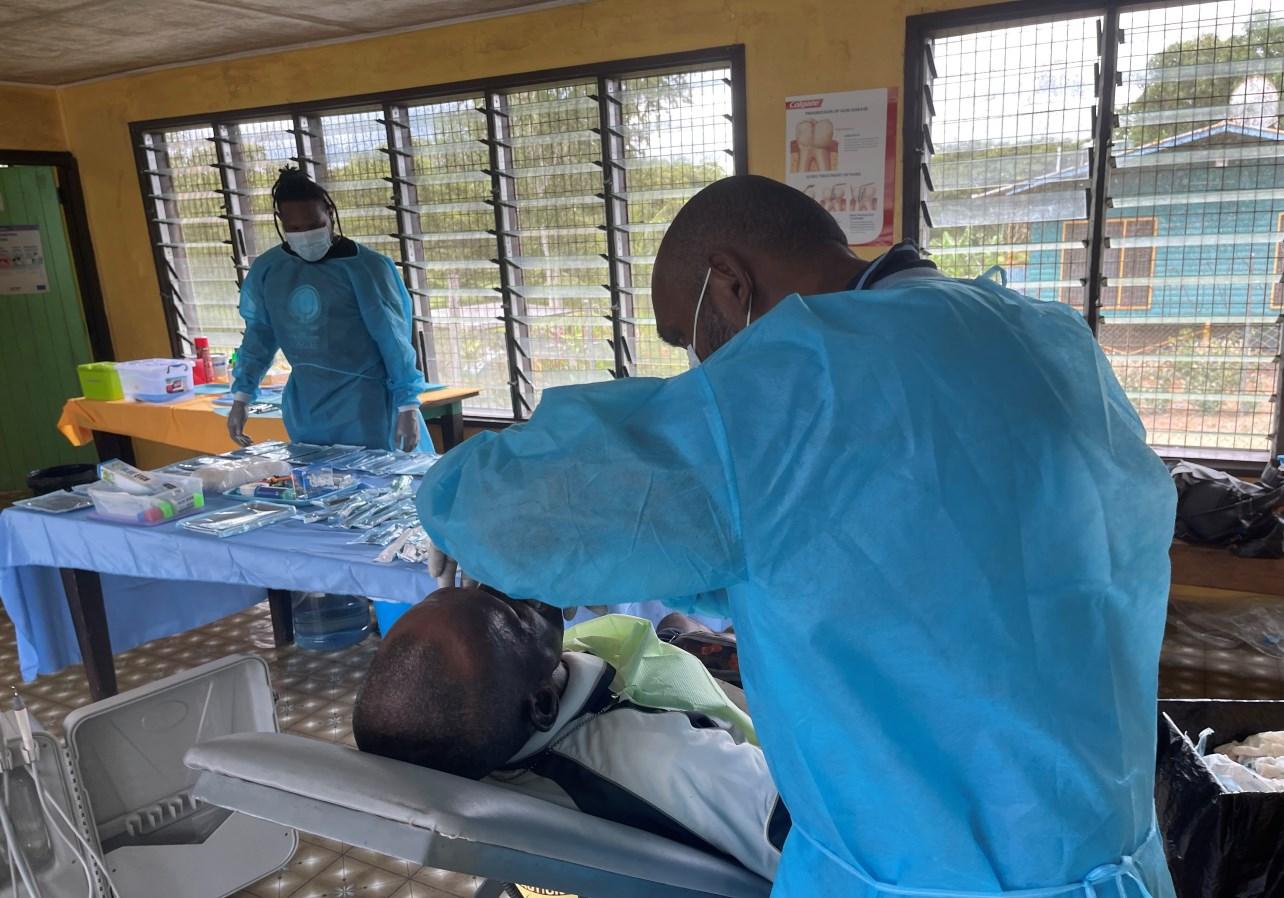

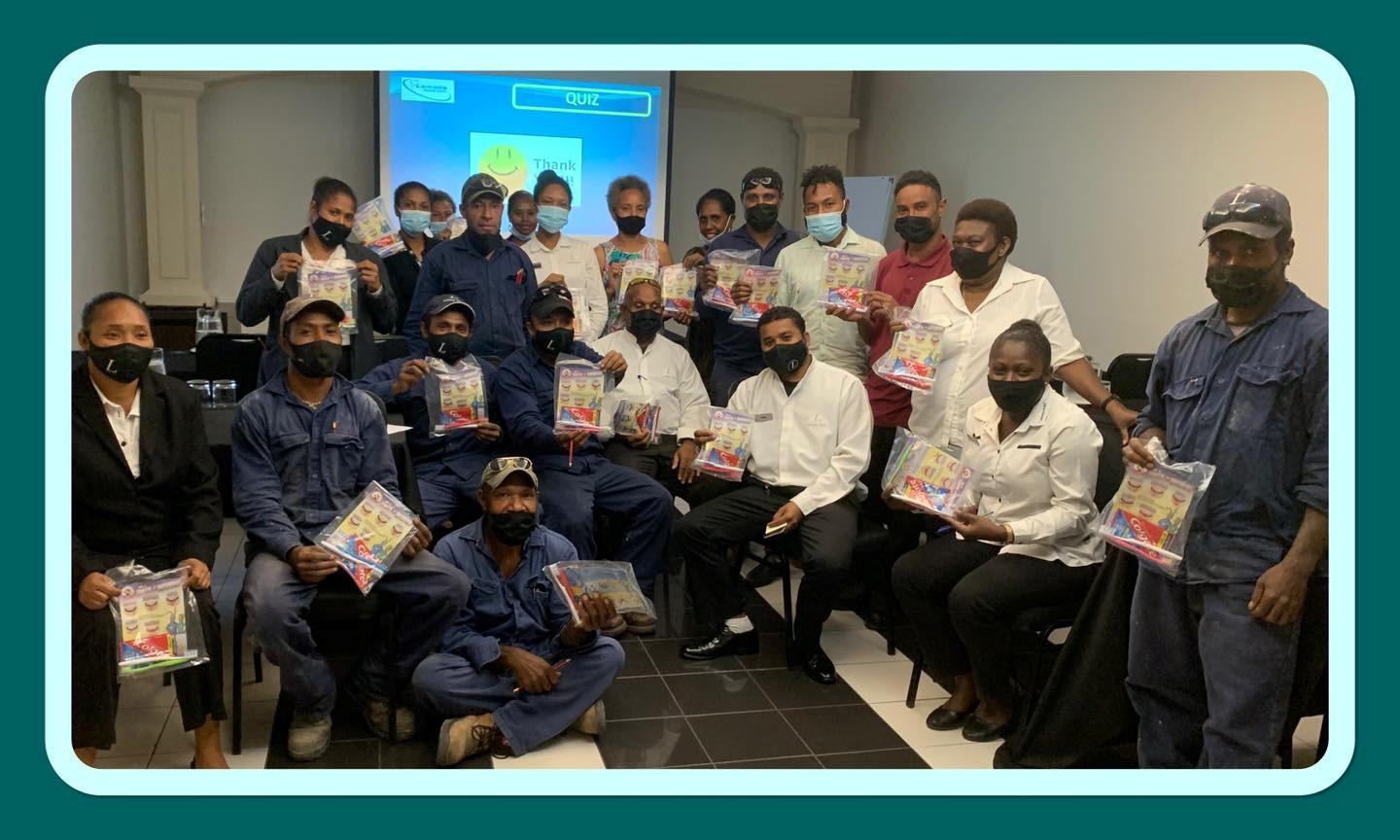

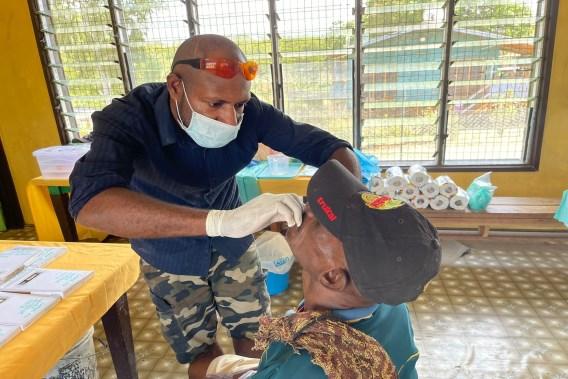
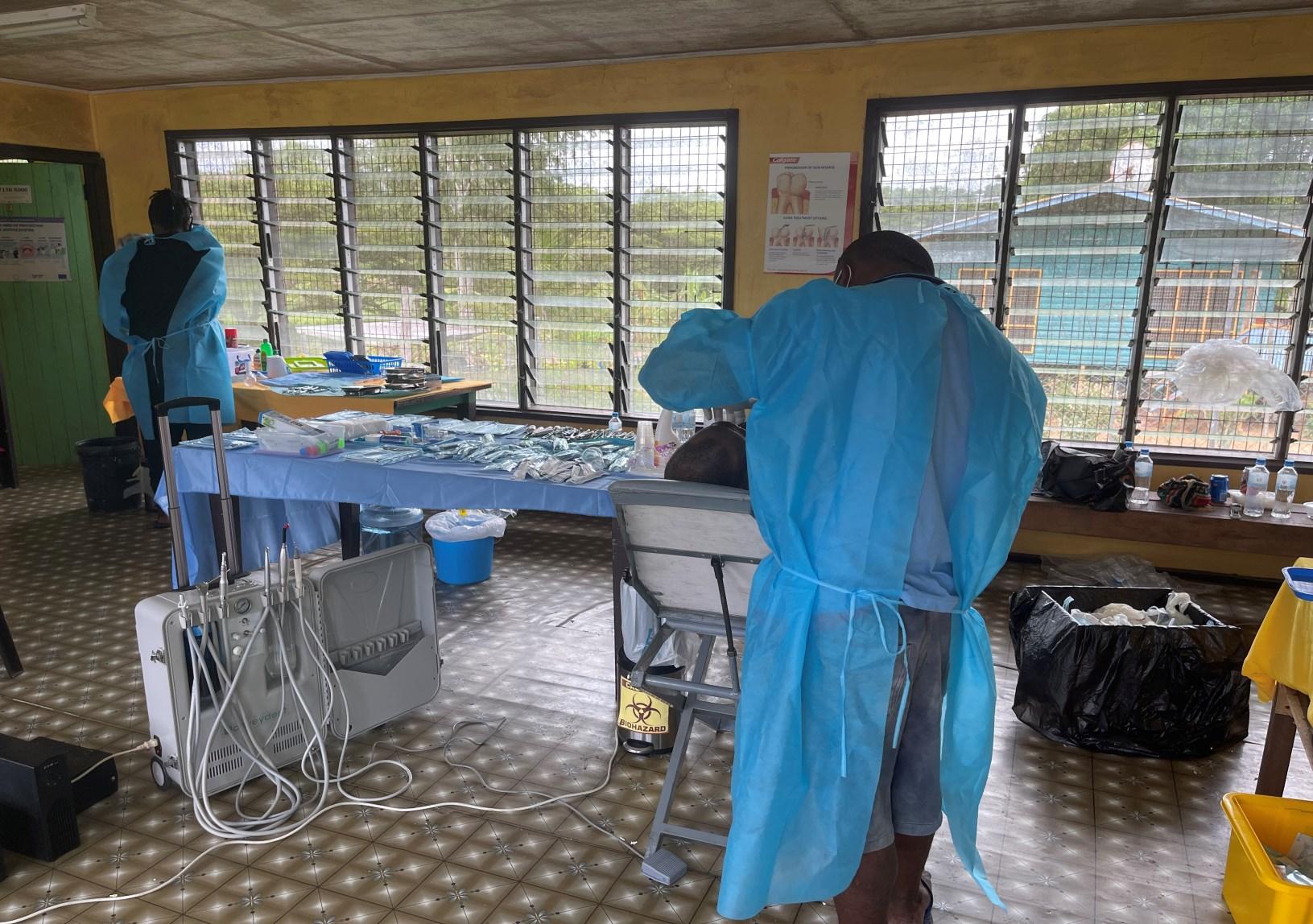

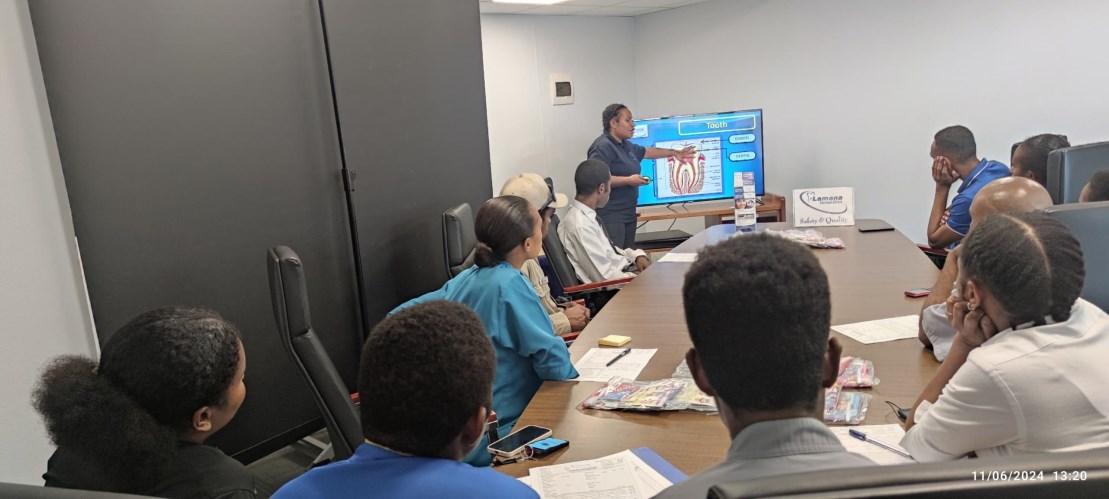
ExxonMobil recently appointed Dinesh Sivasamboo as its new Chairman and Managing Director of ExxonMobil PNG Limited.
This appointment will be Sivasamboo’s second leadership position with ExxonMobil PNG Limited, having previously served in PNG from 2016 to 2019 as its Vice President for Production.
Sivasamboo has held numerous, global senior leadership positions over the course of his 30-year career at ExxonMobil. Most recently, he held the position of Chairman and President of ExxonMobil Exploration and Production Malaysia Inc.
Prior to that role, he was the President and Managing Director of ExxonMobil Kazakhstan Inc., and held positions in Qatar and the United States.
“I am honored to be returning to PNG as Chairman and Managing Director of ExxonMobil PNG Limited. The PNG LNG Project has – through the strength of its partnerships – achieved so much during its first decade,” said Sivasamboo.
“I look forward to both leading it into its second decade, as well as building upon its success to help deliver the next phase of LNG projects for this country.”
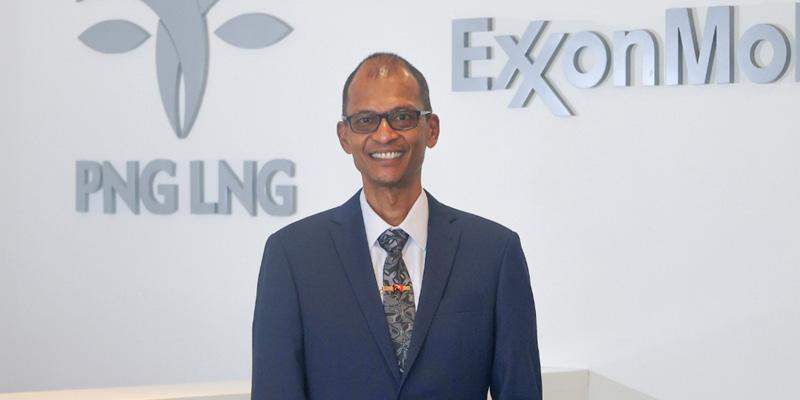
Sivasamboo becomes the company’s fifth Chairman and Managing Director, joining an esteemed list that includes his immediate predecessor, Tera Shandro, as well as Peter Larden, Andrew Barry and Peter Graham.
Papua New Guinea’s Petroleum Minister, Hon. Jimmy Maladina, has extended an invitation to China State Construction Engineering Corporation to explore investment opportunities in the country’s oil and gas sector, citing PNG’s strong potential in petroleum development.
During a formal meeting at the Department of Petroleum (National Petroleum Authority) Headquarters in Port Moresby on 31 March 2025, Minister Maladina welcomed China State Construction President Mr. Wen Bing and his delegation.
“As for the petroleum industry in Papua New Guinea, which is oil and gas mainly, Papua New Guinea has a lot of potential,” Minister Maladina stated.
“We want to invite you to also look at our petroleum industry in assisting us in the contract or civil works, petroleum engineering work.”
Key government officials, including Vice Minister for Petroleum Hon. Alexander Orme, Secretary for Petroleum Mr. David Manau, and Deputy Secretary Mr. George Imanaui, joined the meeting to provide insights into current and upcoming projects in PNG’s petroleum sector.
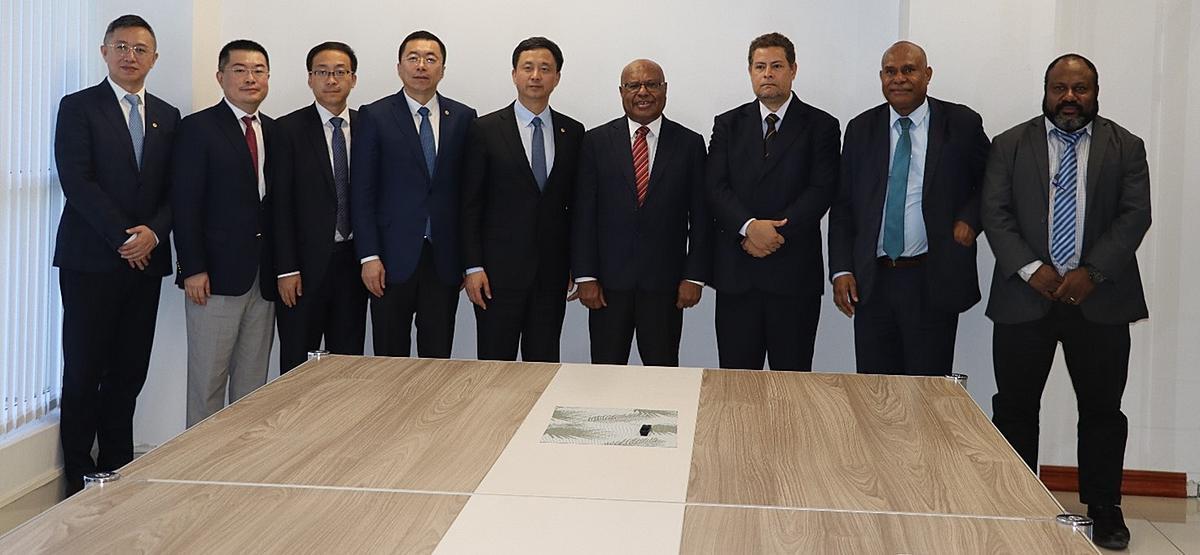
Mr. Bing expressed gratitude for the discussions and extended appreciation to Prime Minister Hon. James Marape for the opportunity to explore investment in PNG.
Founded in 1982, China State Construction Engineering Corporation is a US$12 billion global investment and construction group, managing eight listed companies and over 100 subsidiaries.
With a strong market presence and expanding international operations, the Chinese company continues to strengthen its global investment footprint.
PNG’s oil and gas sector remains
a key driver of economic growth, and Minister Maladina’s invitation aims to encourage foreign investment, technological development, and infrastructure expansion in the industry.
“As for the petroleum industry in Papua New Guinea, which is oil and gas mainly, Papua New Guinea has a lot of potential, and as China State Construction is the biggest construction company in China and also around the world, we want to invite you to also look at our petroleum industry in assisting us in the contract or civil works, petroleum engineering work,” Minister Maladina said.





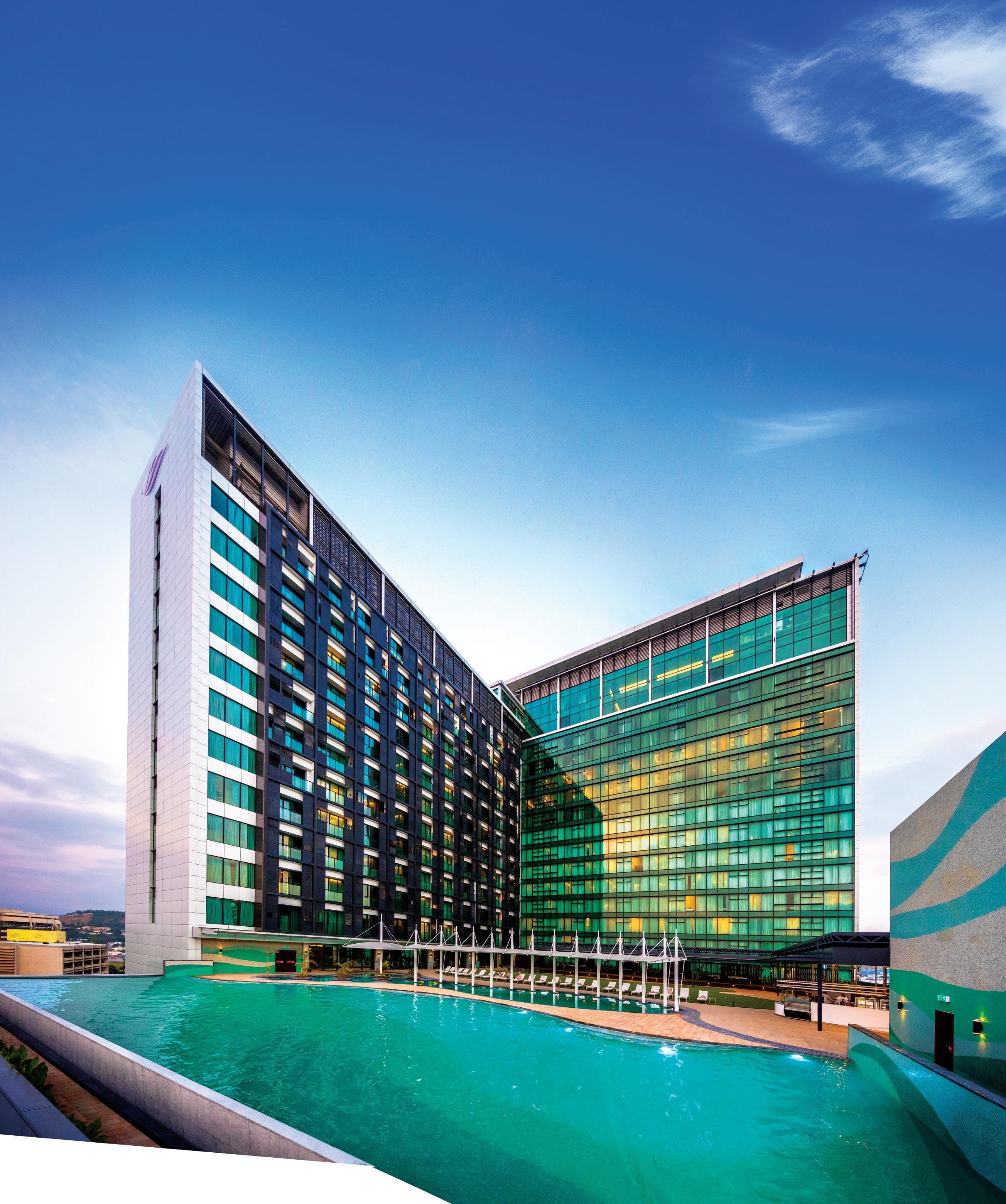



Kumul Petroleum Holdings Limited (KPHL), Papua New Guinea’s national petroleum and energy company, has successfully completed its seismic acquisition campaign across the Kimu and Barikewa petroleum retention licences (PRLs), where it acts as operator.
KPHL Managing Director Wapu Sonk confirmed the milestone, stating: “On Wednesday, 26th March, we completed the final shot point on a seismic line within the Kimu licence, and demobilisation of the seismic crew has commenced. This marks the successful conclusion of our seismic acquisition program across both PRLs.”
The objective of the seismic survey was twofold: firstly, to acquire additional geological data aimed at better defining the extent of known hydrocarbon accumulations, with the goal of increasing the certified volumes of recoverable oil and gas; and secondly, to identify optimal locations for potential delineation and exploration wells.
“This campaign represents the first upstream exploration work undertaken by Kumul Petroleum since our establishment in 2010,” Mr Sonk added.
“It is a significant step forward for the company, and we are optimistic about the insights the data will provide as we move into the next phase of resource development.”
The six-month seismic campaign, carried out by contractor OilMin Holdings, involved the acquisition of six seismic lines and provided employment for 477 local workers from remote areas in the Gulf and Western Provinces.
The nature of seismic line cutting — being highly labour-intensive — provided substantial short-term economic benefits to the local communities.
Mr Sonk emphasised that strong community engagement was a cornerstone of the program’s success.
“Kumul Petroleum and OilMin worked collaboratively with landowners and community leaders. Although our presence in each area
was temporary, we made it a priority to contribute positively — including providing support to primary schools in Kaiam and Kumusi.”
He also praised the outstanding safety performance during operations, attributing it to the combined experience of OilMin and KPHL’s project teams.
“Kumul Petroleum is making significant investments in both offshore and onshore petroleum retention licences to delineate hydrocarbon resources and shape development concepts that are technically and economically viable,” Mr Sonk said.
The successful execution of this program reinforces KPHL’s growing role in upstream exploration and resource monetisation, particularly in licences previously deemed uneconomic or stranded.
Data from the seismic program is now being processed, with interpretation and integration into KPHL’s existing geological models expected to take approximately six months.
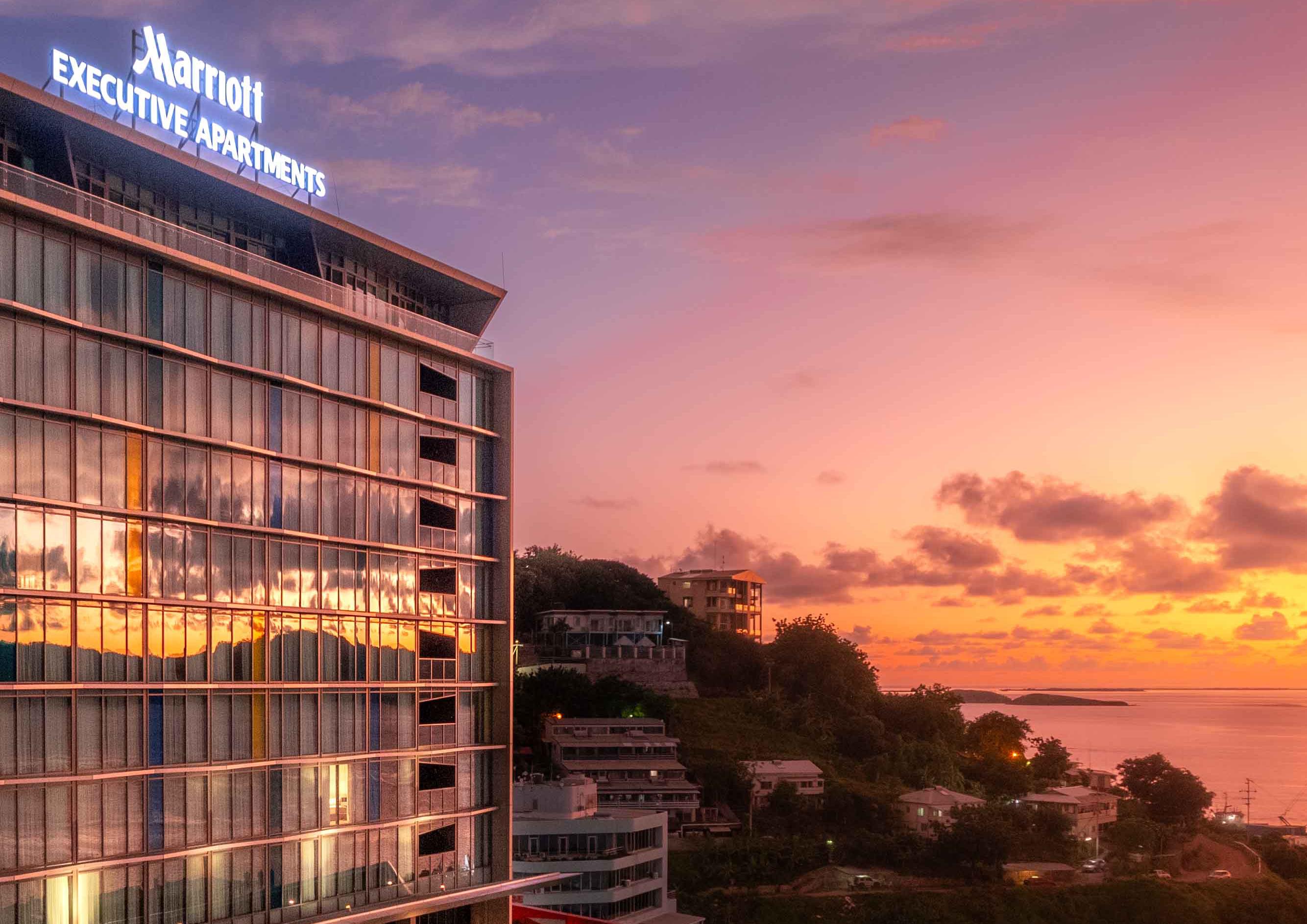
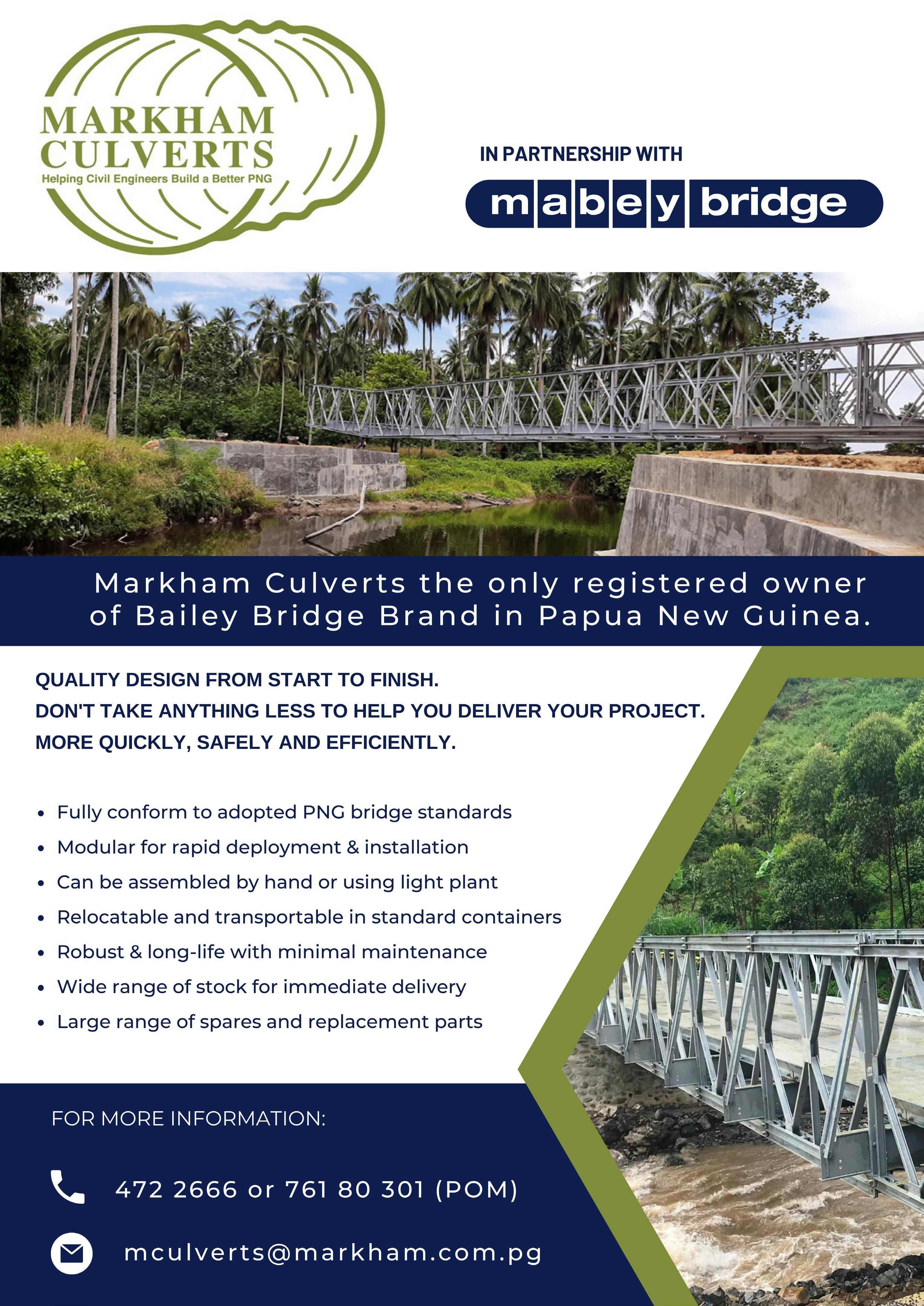
As Papua New Guinea marks 50 years of independence, a rare opportunity has emerged in global commodity markets — one that Prime Minister James Marape says could transform rural economies and secure lasting prosperity for farmers across the country.
With international prices for cocoa and coffee soaring to record highs, and a favourable exchange rate boosting local earnings, PM Marape has urged farmers, cooperatives, and agribusinesses to seize this moment.
“These global market trends are a signal to every farmer in the Highlands, Islands, Momase, and Southern regions that your time has come. The world wants what we grow — high-quality, organically produced coffee and cocoa—and they are willing to pay top prices for it,” the Prime Minister said.
In early 2025, Arabica coffee – PNG’s primary export variety – traded above US$4.40 per pound, the highest levels in over a decade. This surge has been driven by crop failures in major producing countries like Brazil and Vietnam.
At the same time, cocoa prices skyrocketed to over US$12,000 per metric tonne earlier this year due to global supply disruptions. Prices have since stabilised at around US$8,000, still well above the historical average.
“These price increases are not just financial headlines,” Mr. Marape said. “They are economic opportunities for every farmer with a cocoa or coffee tree.”
PNG’S FAVOUR
Compounding this opportunity is the current exchange rate -- the PNG kina is trading at approximately K4.13 to the US dollar, which significantly boosts the kina value of export earnings.
“When our farmers sell to global markets, they now earn more kina for every US dollar received. This strengthens household incomes, boosts local commerce, and supports national growth,” the Prime Minister said.
Mr. Marape outlined how the Government is supporting farmers to convert these market opportunities into tangible gains:
1. Major Investment Through the PACD Project
The PNG Agriculture Commercialisation and Diversification (PACD) Project, co-funded by the World Bank and Government of PNG, is investing in processing sheds, feeder roads, nurseries, and tools for smallholder farmers. Key beneficiary provinces include Jiwaka, Western Highlands, Chimbu, Morobe, East Sepik, and East New Britain.
2. National Agriculture Credit Scheme
To address financing gaps, a National Agriculture Credit Scheme is being launched to provide farmers and SMEs with access to affordable loans. The goal is to help them buy equipment, expand production, and meet export standards.
3. Export and Market Access Support
The Coffee Industry Corporation Ltd (CICL) and Cocoa Board of PNG are enhancing export pathways by supporting certifications, cooperative exports, and direct-to-buyer partnerships.
4. Branding and Value Addition
The Prime Minister highlighted the importance of quality branding and value-added exports, such as honey- processed coffee and fine-flavour cocoa.
“Our crops are grown in pristine environments, by hardworking hands, using traditional methods. These are premium qualities that global markets value. We must now brand and market ourselves as a high-quality origin,” Mr. Marape said.
The Prime Minister emphasised that agriculture remains the most inclusive path to development for PNG’s rural majority.
“Our gold is not only in the ground—it is in our gardens. This is how we build a resilient, self-sufficient
economy. One where the wealth is spread, not concentrated,” he said.
He drew inspiration from Scripture to reinforce the importance of agriculture in human life and economic survival: “God, having created Adam, tasked him to tend the garden in Genesis 2:15—giving us the first indication that it is the garden that can sustain life,” the Prime Minister said.
“For us in Papua New Guinea, if a million subsistence families turn to commercial farming of export crops like cocoa and coffee, we would be earning real export dollars and transforming rural economies in the process.”
Mr. Marape also highlighted that the benefits of agricultural productivity are being multiplied by the Government’s broader support for families.
“We are already paying for children’s education through free education, and we are supporting health care,” he said. “These are some of the biggest annual expenses for families, and we are removing that burden. So, any income they earn from agriculture becomes a direct saving—money that goes into food, shelter, and building a better life.”
“It’s all about generating real wealth and helping our people progress wherever they are. I continue to appeal to our citizens to see this vision, this foresight, and this real possibility for transformation.”
He pointed to recent success stories such as the Kore Mani Coffee Project in Jiwaka and the cocoa revival in East Sepik as examples of what is possible with coordination, commitment, and investment.
“As we celebrate 50 years of independence, we must reflect not only on our history but also on our future,” Prime Minister Marape said.
“Let this be the year we take back our agriculture. Let it be the moment we empower our farmers to feed the nation and supply the world. We are not just commodity producers — we are exporters, entrepreneurs, and custodians of this great land.”
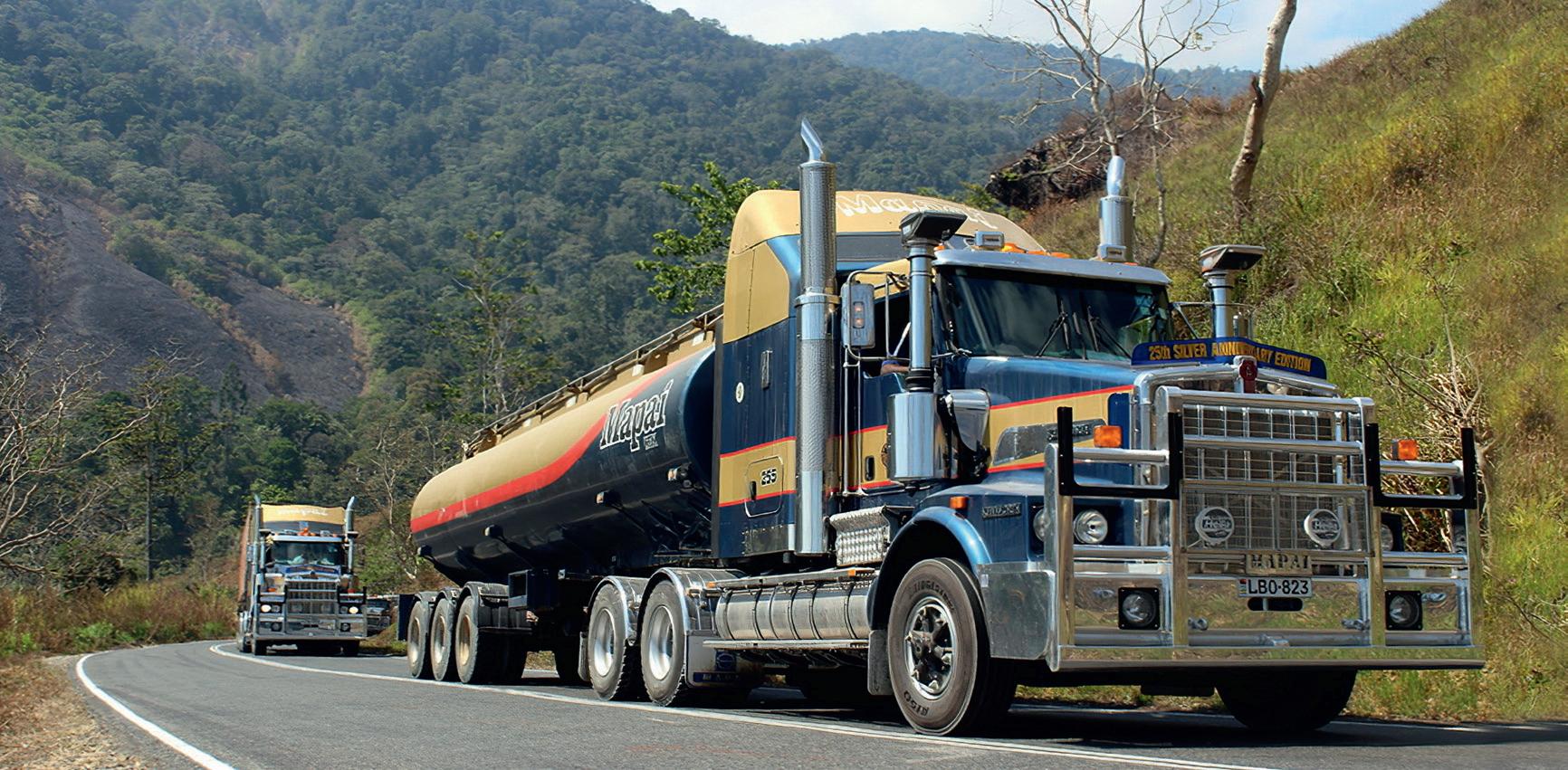
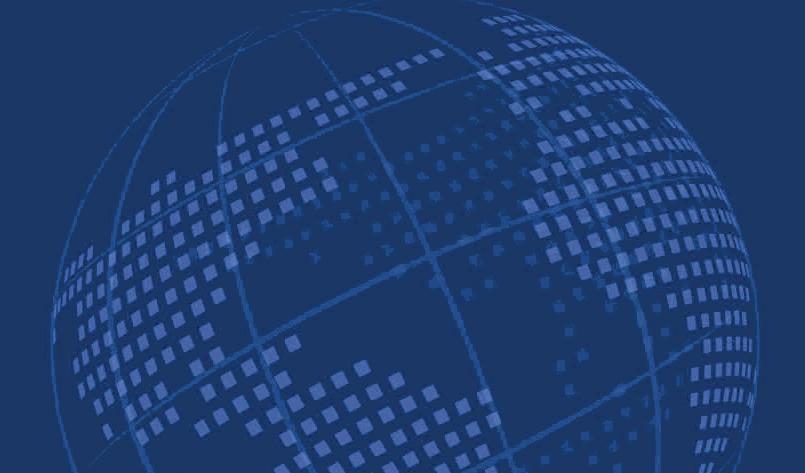

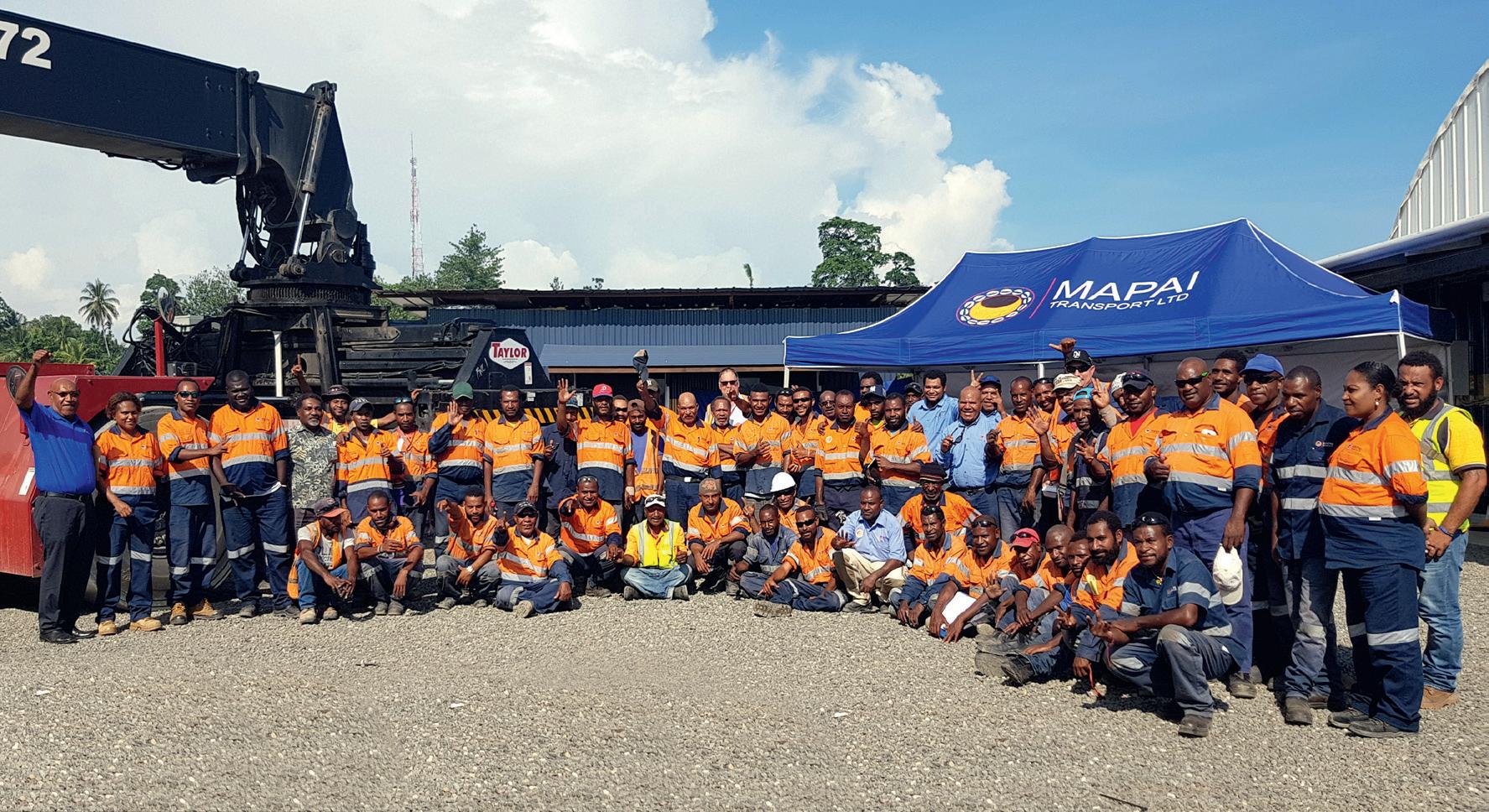
Amajor Sri Lankan coconut-based food and beverage manufacturer is looking to expand its operations into Papua New Guinea, with plans for a joint venture processing plant in Madang Province.
Jaindi Export Pvt Limited, known internationally under its Econutrena brand, met with the Minister for International Trade and Investment, Hon. Richard Maru, to express interest in establishing a facility that could process up to 100,000 coconuts per day.
The proposed plant aims to transform PNG’s coconut industry by moving beyond raw exports to producing high-value coconut products for the global market.
Econutrena products are 100 percent organic and are certified under different local and international certifications, including USDA Organic, Fairtrade, ISO 22000, Control Union Certifications, Business Social Compliance Initiative, and others.
Minister Maru welcomed the initiative, emphasizing the impor -
tance of downstream processing to boost local employment, increase value-added production, and grow the coconut sector.
He said PNG must shift away from exporting semi-processed coconut oil and focus on final product manufacturing.
Jaindi Export already supplies major retailers, including Woolworths in Australia, and sees PNG as a strategic production hub.
The government is working closely with Madang Provincial authorities and Kokonas Indastri Koporesen (KIK) to facilitate land allocation and investment support.
“This is a long overdue initiative, and I am so delighted that they are keen to start this project. We have been waiting for partners to help us to go into downstream processing of our coconuts to produce high-end products for the global market,” the minister said.
Mr. Maru confirmed that equity for the project will not be an issue and encouraged Jaindi Export to submit
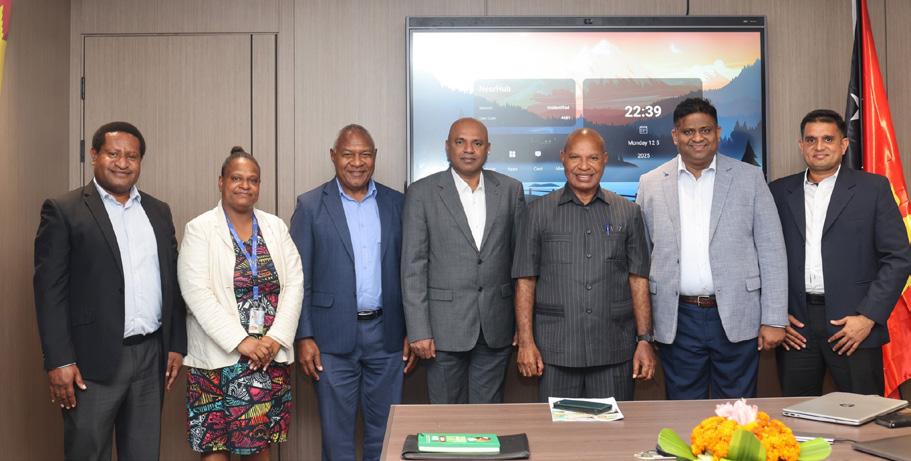
a full investment proposal detailing capacity, financial feasibility, and production specifics.
The government is committed to securing 10 hectares of land for the project, positioning PNG as a key player in the global coconut industry.
The initiative is expected to create significant opportunities for local farmers, businesses, and international trade, marking a major step forward for PNG’s agricultural processing sector.
“I want to thank the Managing Director of KIK, Mr. Alan Aku for arranging this important investment mission for this company to meet with me and other key stakeholders,” added Minister Maru.

Celebrating 70 Years Shaping the Future since 1954
Located in Lae, we manufacture and supply high quality, durable, reliable and safe 200 Litre fuel Drums all over PNG.




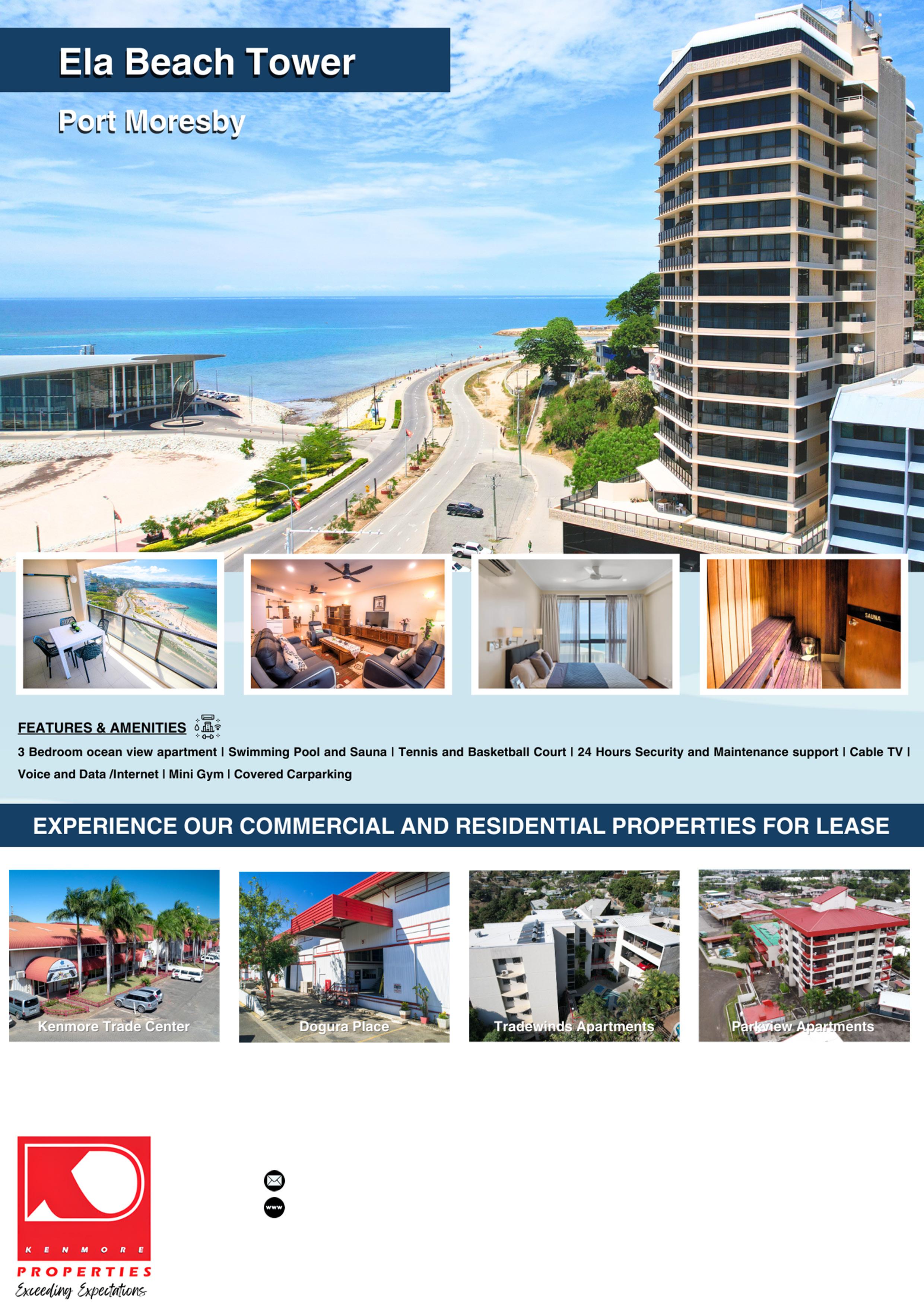
Papua New Guinea’s agriculture sector is set to undergo a major transformation with the National Agricultural Research Institute (NARI) unveiling plans for a state-of-the-art Information and Data Centre at its Bubia headquarters in Morobe Province.
Prime Minister Hon. James Marape, who announced the initiative during the 14th NARI Agricultural Innovations Show on 28 May 2025, praised the move as a critical step toward modernizing agriculture through innovation and data-driven decision-making.
The proposed two-story facility will serve as a national hub for agricultural knowledge, data management, and public access to research materials, benefiting farmers, researchers, policymakers, and development partners.
“As we celebrate 50 years of independence, initiatives like NARI’s Information and Data Centre exemplify our nation’s progress towards a smarter, more innovative future,”
Mr. Marape stated. “This facility will empower farmers, fostering economic growth and food security.”
The Morobe Provincial Government has pledged K2 million in seed funding, with an additional K4 million requested to support full implementation.
The centre will feature modern amenities, including accessibility features for persons with disabilities, and will house archives, a library, meeting rooms, and offices dedicated to agricultural research publications.
NARI Director-General Dr Nelson Simbiken emphasized the centre’s role in driving agricultural innovation, stating, “By centralizing agricultural information, we aim to support better decision-making and smart farming across PNG.”
PM Marape reaffirmed his government’s commitment to supporting transformative projects that align with Vision 2050, stressing the importance of agricultural research and infrastructure in achieving sustain-
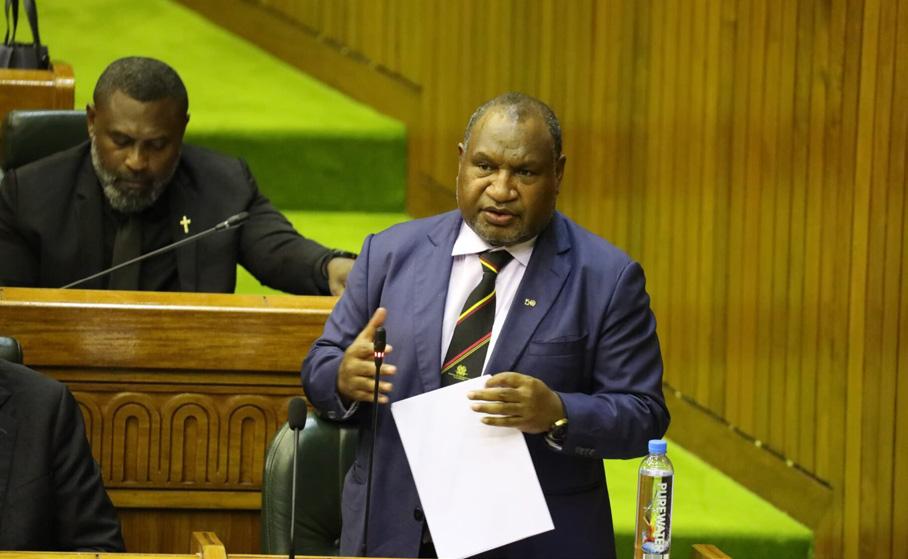
able development.
With strong backing from the government, NARI’s Information and Data Centre promises to be a game-changer for PNG’s agriculture, equipping farmers with the tools needed to transition from subsistence to commercial farming.
“Investing in agricultural research and infrastructure is crucial for our country’s sustainable development. We will continue to support initiatives that enhance our farmers’ capabilities and contribute to our national prosperity,” the Prime Minister said.


Joint Venture Port Services offers industry-leading stevedoring and equipment handling services in Papua New Guinea. Our modern fleet and highly trained workforce ensure efficient operations while adhering to Australian benchmarks for health, safety, and environmental standards.
‣ STEVEDORING
‣ TERMINAL HANDLING SERVICES
‣ BREAK BULK HANDLING
‣ PROJECT CARGO MANAGEMENT
‣ TRANSPORT (REGIONAL LOCATIONS)
‣ CONTAINER PACKING & UNPACKING
‣ TERMINAL OPERATIONS SYSTEMS (EDI)
‣ CARGO WASHING
‣ QUALIFIED TRAINERS (AS/NRS)
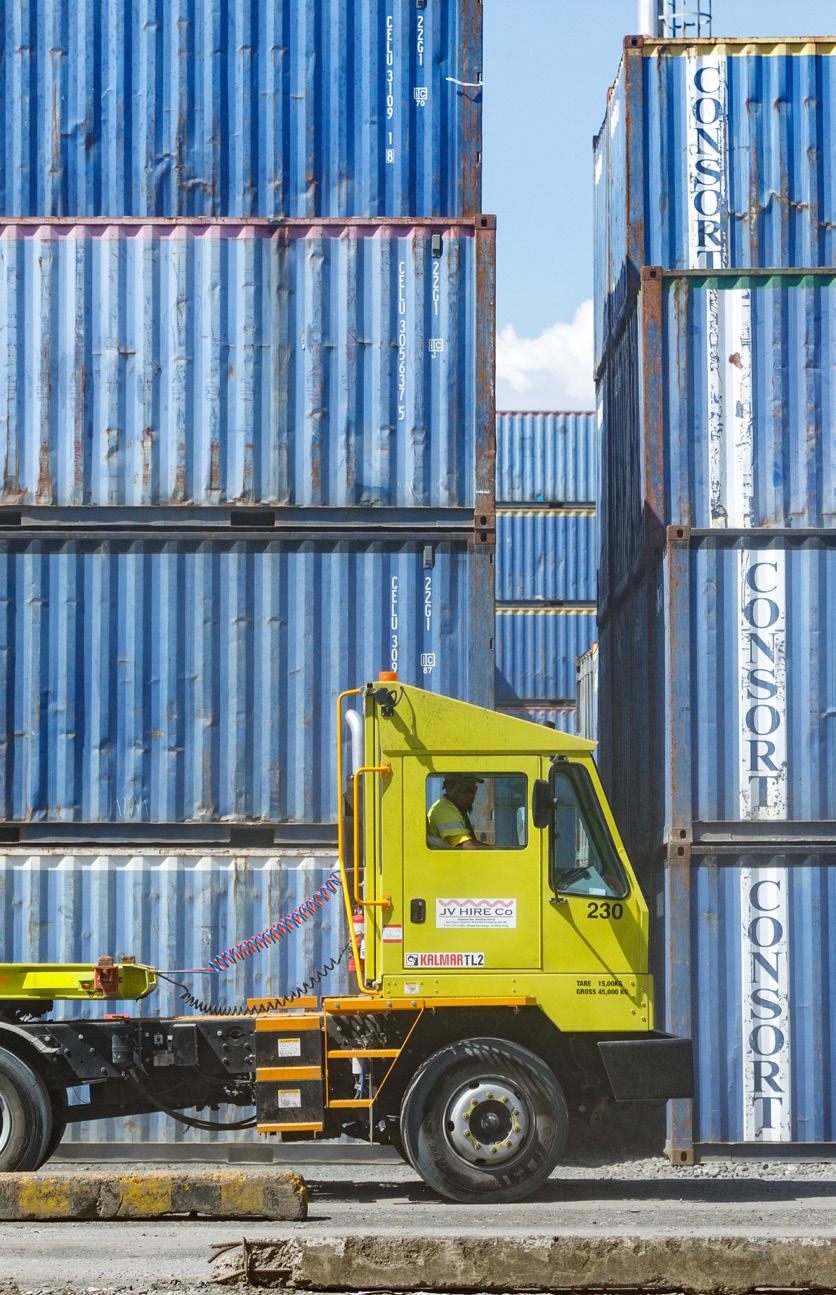
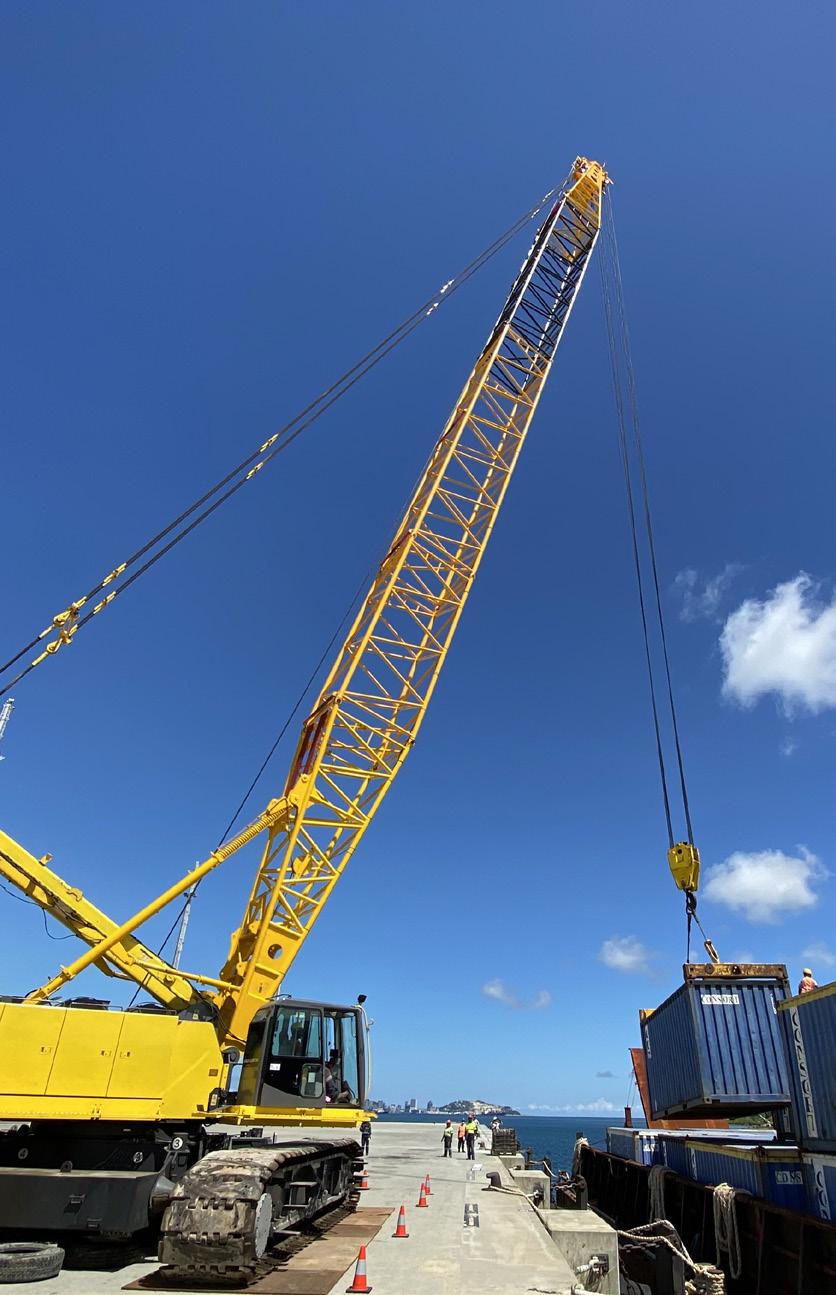
‣ EQUIPMENT HIRE
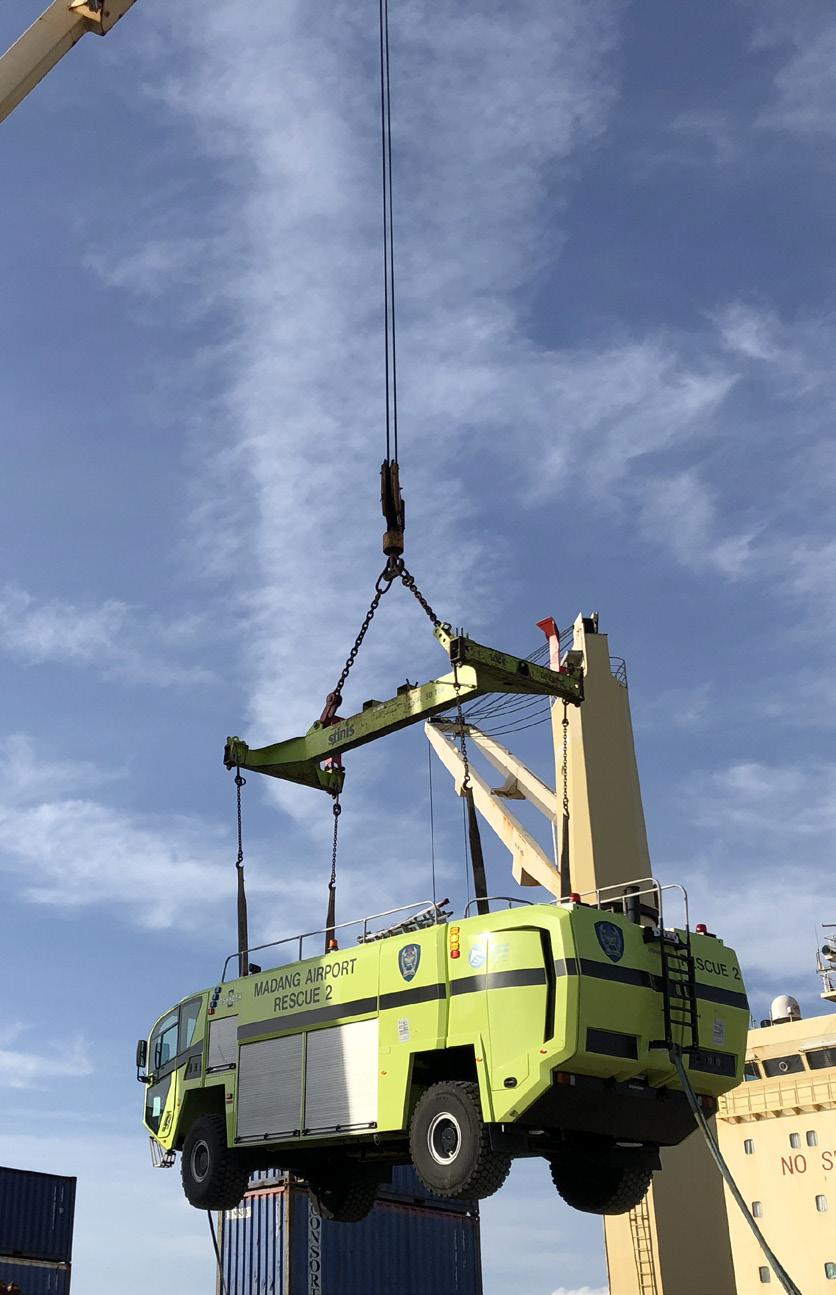
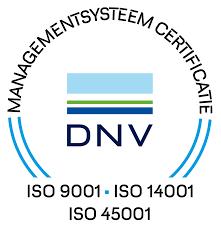
By: ROSELYN EREHE
The Mineral Resources Development Company (MRDC) has expanded its Omati Cocoa Project from Kikori in the Gulf Province to Gobe in the Southern Highlands Province in Papua New Guinea, reinforcing its commitment to building sustainable economies beyond the life of oil and gas resource extraction.
In May, more than 2,000 high-quality hybrid cocoa seedlings were transported from Omati to Gobe, MRDC said. The seedlings were distributed across several communities in the Gobe Oil Project area, including Kaiam 1 and 2, Kaiam Ferry, Done, Siawiti, Waterfront, Baina, and Kantobo, targeting regions with strong agricultural potential.
Augustine Mano, Managing Director of MRDC, emphasised the strategy of the agricultural program, saying: “Our investment in the Omati Cocoa Project and its expansion to Gobe reflects our community investment commitment to our project communities.”
“We understand that sustainable economic development must look beyond resource extraction. By fostering agricultural enterprises, centred on high-value crops like cocoa, we are helping communities with the tools and resources for self-sufficiency and building a resilient future.”
The Omati Cocoa Project, launched in 2022 with a K1 million investment by MRDC through the PNG LNG Pipeline Limited board, is spearheaded in partnership with its subsidiary Gas Resources Pipeline Limited (GRPL).
The project has grown from its humble beginnings, originally stocking 1,000 cocoa seeds from East New Britain into a major propagation center with a current capacity of 50,000 seedlings. Plans are underway to double this capacity to 100,000.
A three-year development period saw 18 cocoa varieties evaluated for yield potential, disease resistance, and suitability to local conditions.
The project achieved a significant milestone in 2024 when it was officially certified by the Cocoa Board
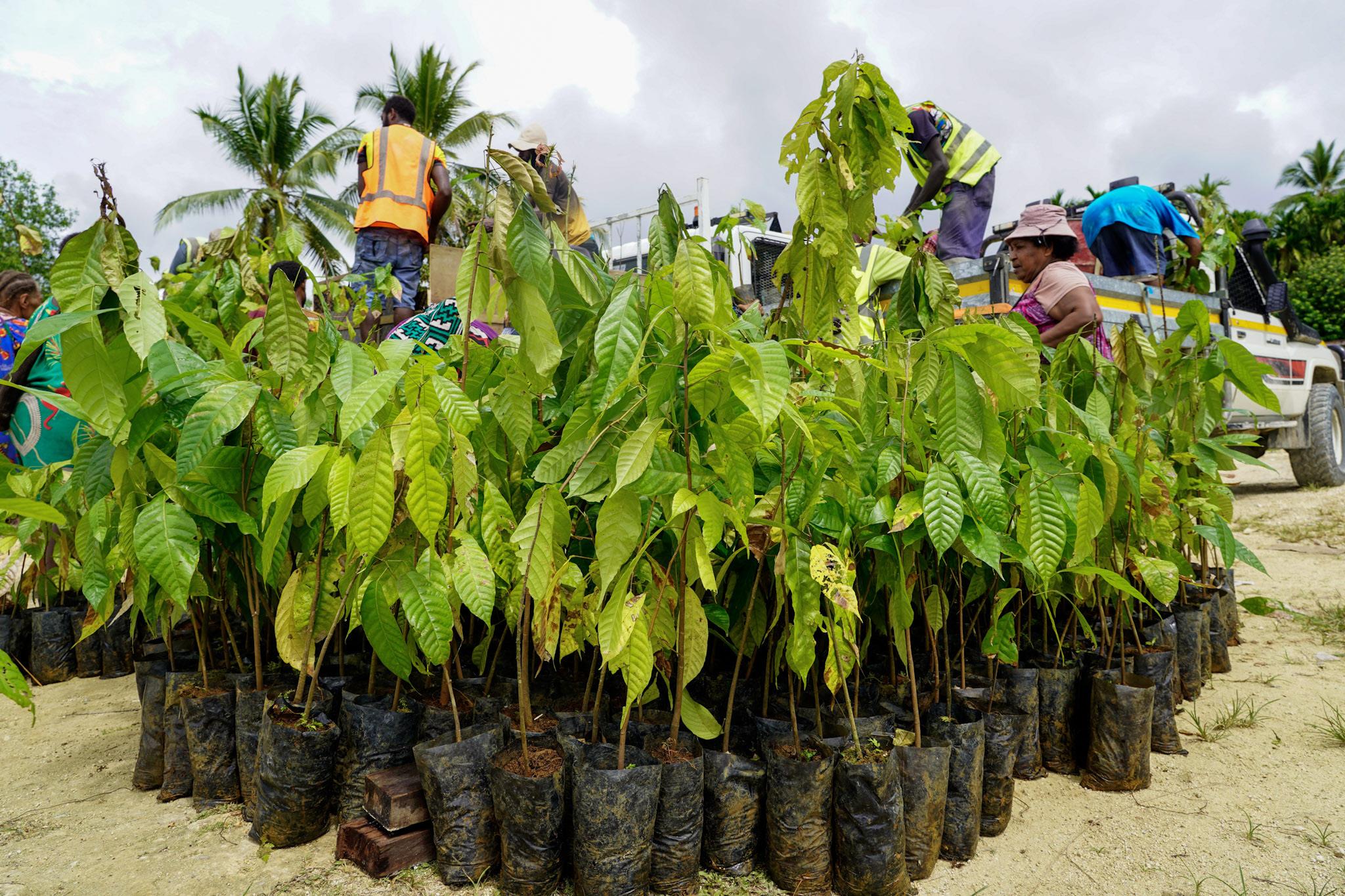
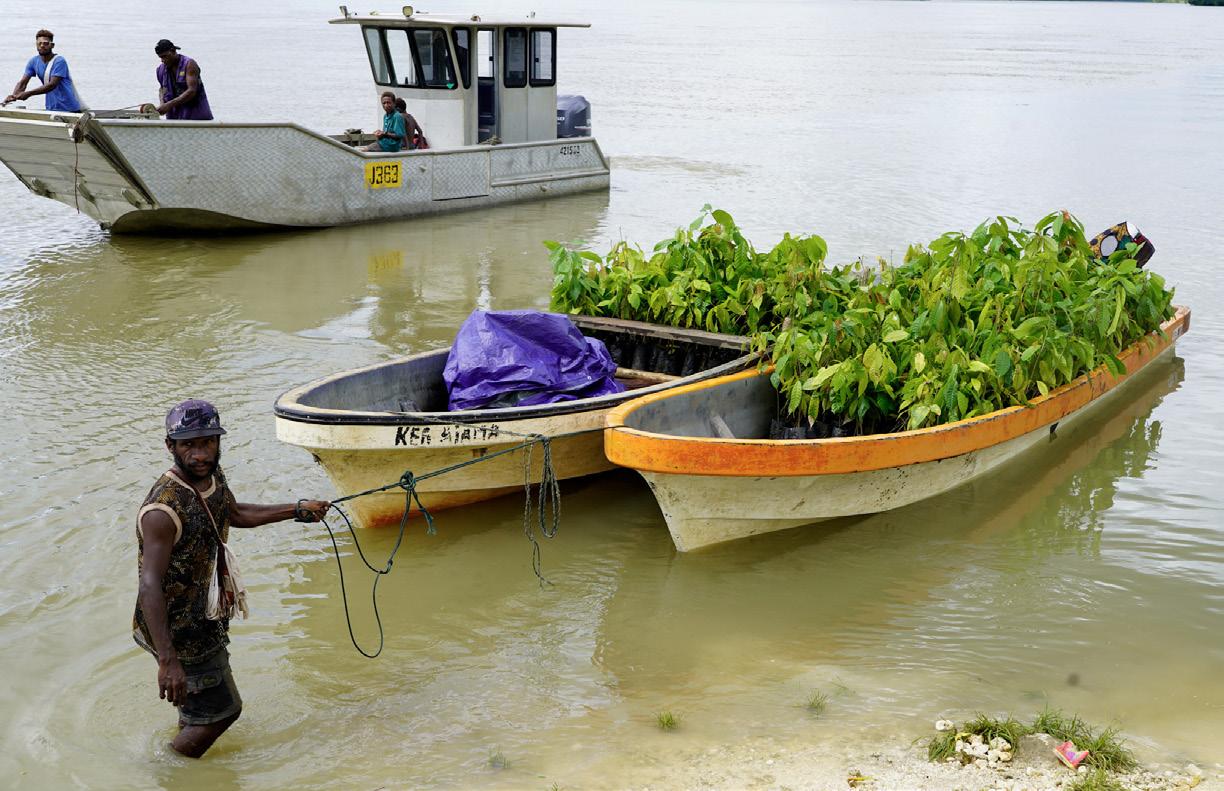
of PNG, meeting national quality and operational standards. Technical collaboration with the Department of Agriculture and Livestock (DAL) ensures farmers continue receiving agronomic guidance and extension services.
In Kikori, the project has already seen a substantial uptake, with more than 85,000 seedlings distributed to about 500 farmers.
Mr. Wauro Oumabe, PNG LNG Pipeline Ltd Director for Segment Seven in Kikori, outlined the local impact, saying: “Approximately 500 farmers are now actively engaged in cocoa cultivation in Kikori, each receiving quality seedlings and support.”
“The positive response and the evident success have fuelled demand, leading to this expansion to Gobe.
We anticipate further interest as communities witness the benefits of high-quality cocoa farming.”
Oumabe also pointed to cocoa’s financial promise amid rising global prices.
“In areas like ours, reliable income is essential for covering school fees, healthcare, and other basic necessities. The rising global market price for cocoa has further enhanced its appeal as a viable cash crop, capable of transforming local economies if grown to quality standards.”
“A comprehensive five-year development plan has been submitted to MRDC. A key feature of this plan is the proposed establishment of a processing facility. Our aim is to empower communities to move up the value chain from merely selling raw
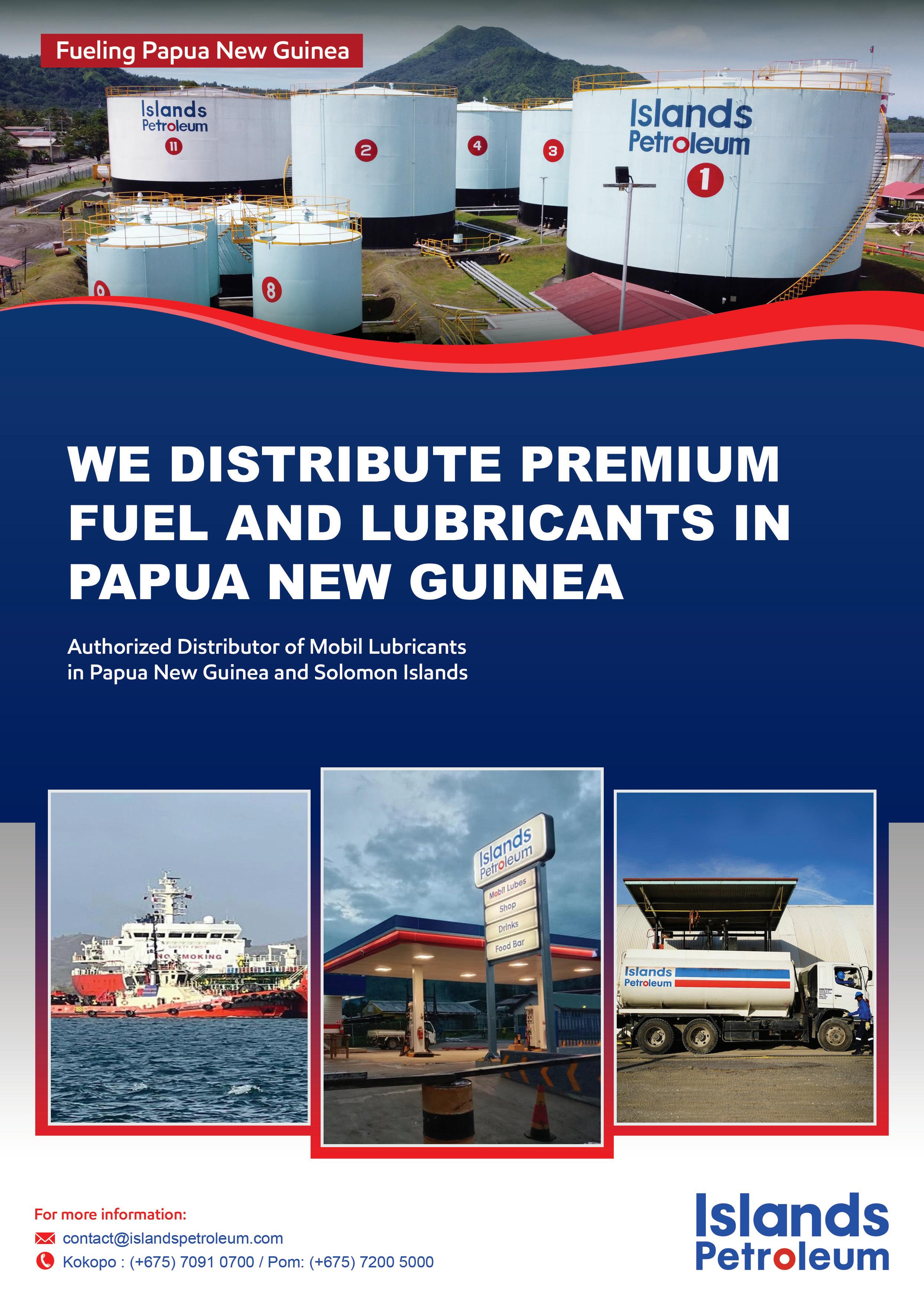
beans to producing processed cocoa, thereby retaining more value locally,” he said.
“Such a facility would not only improve post-harvest handling and quality control but also create new employment opportunities, skills development in processing and grading, and open avenues for niche marketing of regionally branded cocoa products. This aligns with broader national goals of increasing domestic value-addition in the agricultural sector,” Oumabe added.
The Gobe rollout is being met with strong grassroots support. Mr. Matthew Sisimolu, Chairman of Petroleum Resources Gobe (PRG), a key landowner company supported by MRDC, welcomed the initiative as a practical path forward.
“My primary objective as a leader is to steer our communities towards sustainable agricultural development as a primary economic driver,” said Mr. Sisimolu. “This cocoa
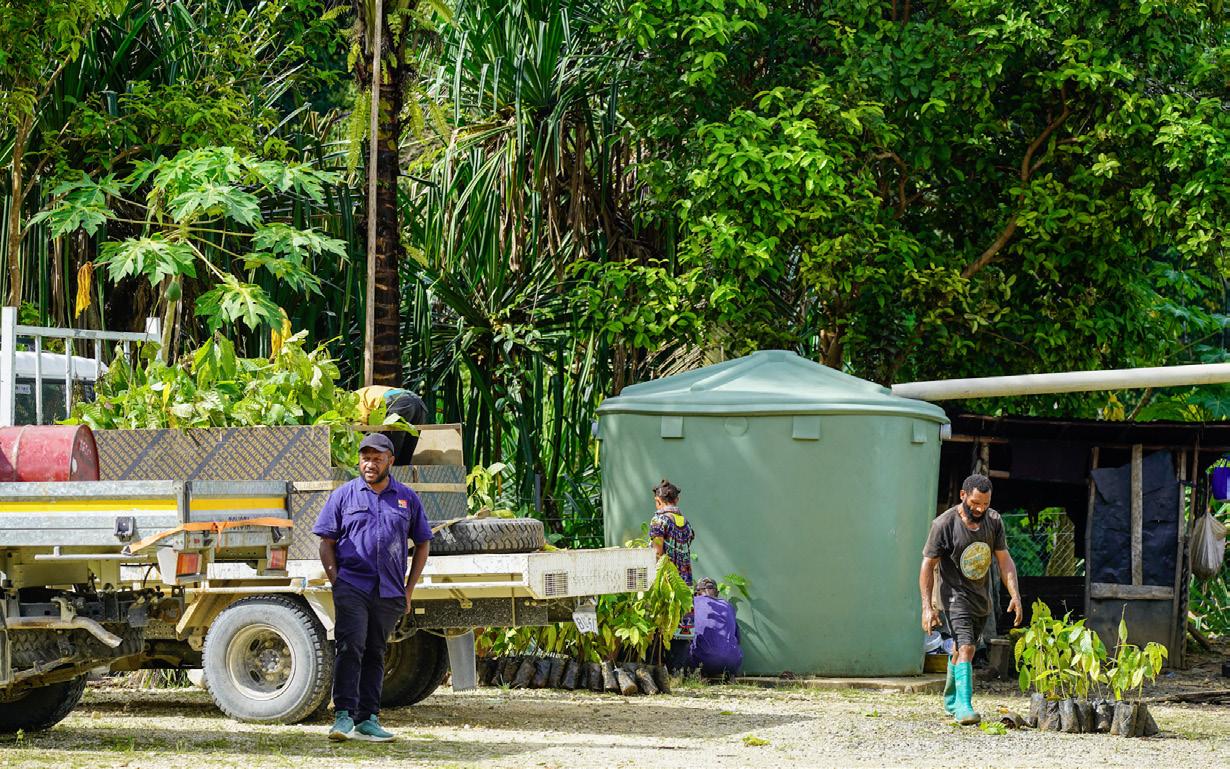
K6,000 toward the cost of acquiring and transporting the seedlings from Omati to Gobe.
One of the project’s major appeals is its ability to generate consistent, renewable income independent of fluctuating resource project dividends.
Mrs. Kila Oumabe, a prominent figure in farmer mobilisation and training in Omati, particularly among women, highlighted the significance of this shift.


“Revenue from resource projects has a lifespan. Cocoa, however, is a perennial crop; it offers a sustainable income stream that can support fami-
lies year after year,” she said.
“Access to consistent income from cash crops like cocoa directly impacts household food security and the ability to invest in education and health. For many women and marginalized households, who may have limited access to benefits from larger resource projects, cultivating their own cocoa plots offers a direct pathway to improved livelihoods.
“The initial nursery establishment saw a significant contribution from local women, who recognised the long-term potential of cocoa,” she added.
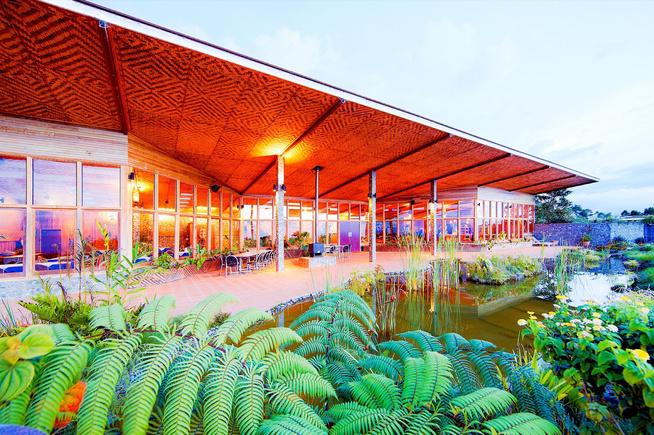
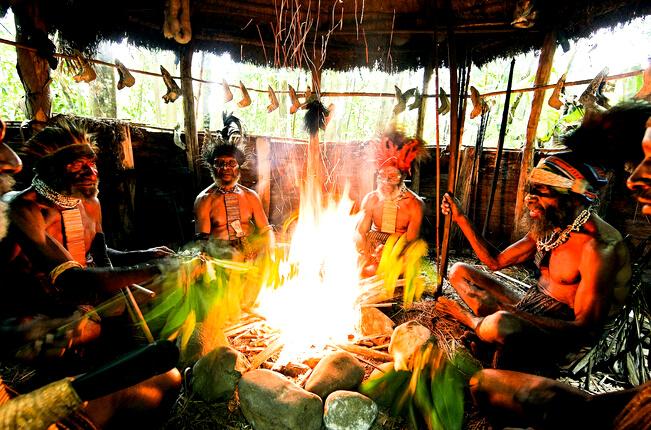
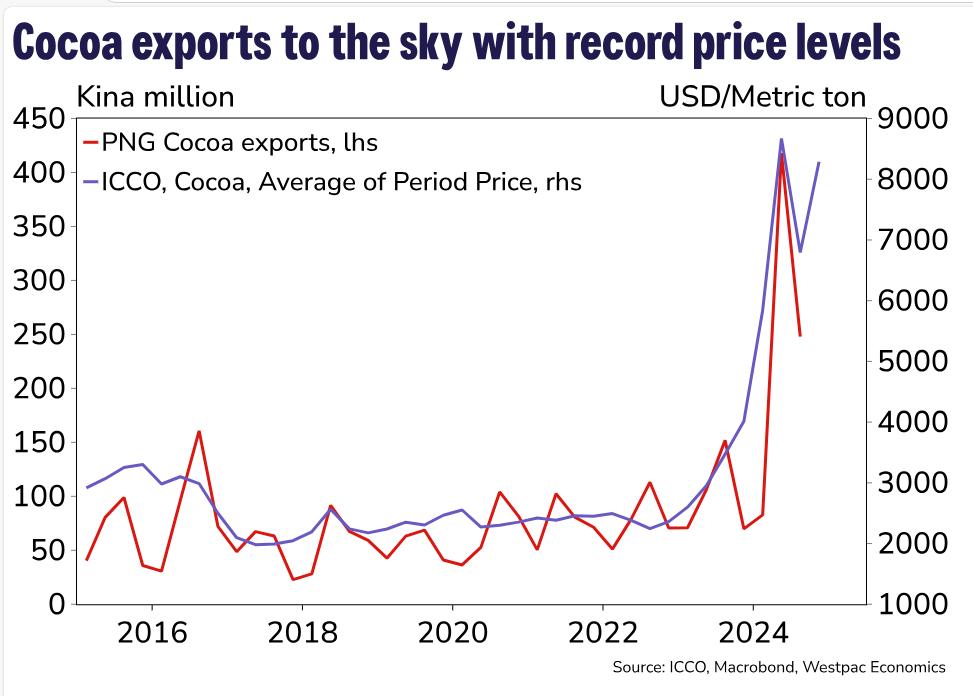


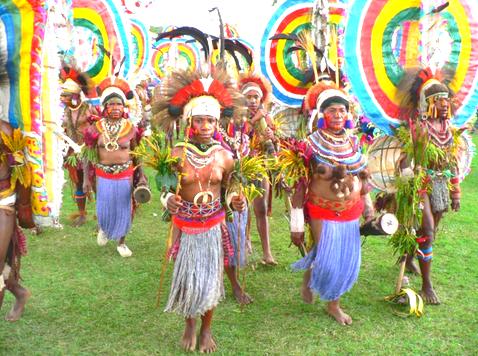


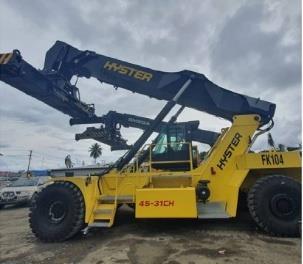
Huon Logistics Ltd based in Morobe Province has been in operation for 25 years. Our practical solutions are designed to successfully meet client -tailored needs, and most importantly add value to each and every project for both the client and our company. We pride ourselves in a range of comprehensive strategies, management, an d support for organizations both locally & globally.
CORE COMPETENCIES
consisting of Trucks, Side lifters, and Lowloader
Workshop fully flagged with expert mechanics


Light Vehicle Service Truck Service


Container Hire and Fabrication






20ft/40ft and Flat Rack Container Hire
Site Office Rooms Ablution Blocks

client's requests.

Equipment Hire


Forklifts
Telehandler















EWP's
Front End Loaders
Water Trucks
Bus Hire
Light Vehicle Hire
Tilt Trays
Cranes (20T-250T)
Light Towers (Diesel & Solar)
Concrete Trucks




PO Box 4602 Lae, Morobe Province Section 353, Lot 23 Malahang Industrial Centre, Busu Road, Lae Morobe Province 411, Papua New Guinea

+675 472 7172

www.huonlogistics.com

Finnegan Beirne - PROJECTS projectcoordinator@huonlogistics.com.pg



By: ROSELYN EREHE
Three legends in Papua New Guinea’s tourism industry were honoured with Lifetime Achievement Awards during the 2025 National Tourism Conference & Expo (NTC) Gala Dinner on April 10 at the Hilton Hotel in Port Moresby.
The recipients included Bob Bates, Proprietor of Trans Niugini Tours; the late Sir Peter Barter, represented by his son Andrew Barter and daughter-in-law Juanita Barter; and the late Max Benjamin, represented by his wife Cecilie Benjamin and son Cheyne Benjamin.
The awards ceremony, which closed the two-day event, celebrated their extraordinary contributions to the development and promotion of tourism in PNG, organizers said.
The Lifetime Achievement Awards were proudly sponsored by the Platinum Sponsor of the National Tourism Conference & Expo, the Mineral Resources Development Company (MRDC) and its subsidiaries.
The awards were jointly presented by the Prime Minister, Hon. James Marape, and the Minister for Tourism, Arts & Culture, Hon. Belden Namah.
An audience of tourism operators, government officials, development partners, and community leaders gathered under the conference theme “Honouring Our Past, Transforming Our Future.”
Bates was honoured for his more than four decades of dedicated service, becoming a cornerstone of adventure and eco-tourism since his arrival in PNG in the early 1970s.
Through Trans Niugini Tours, he has been promoting cultural authenticity, environmental conservation, and community-based tourism.
Bates established eco-lodges in some of PNG’s most remote and spectacular regions, including Rondon Ridge, Karawari Lodge,
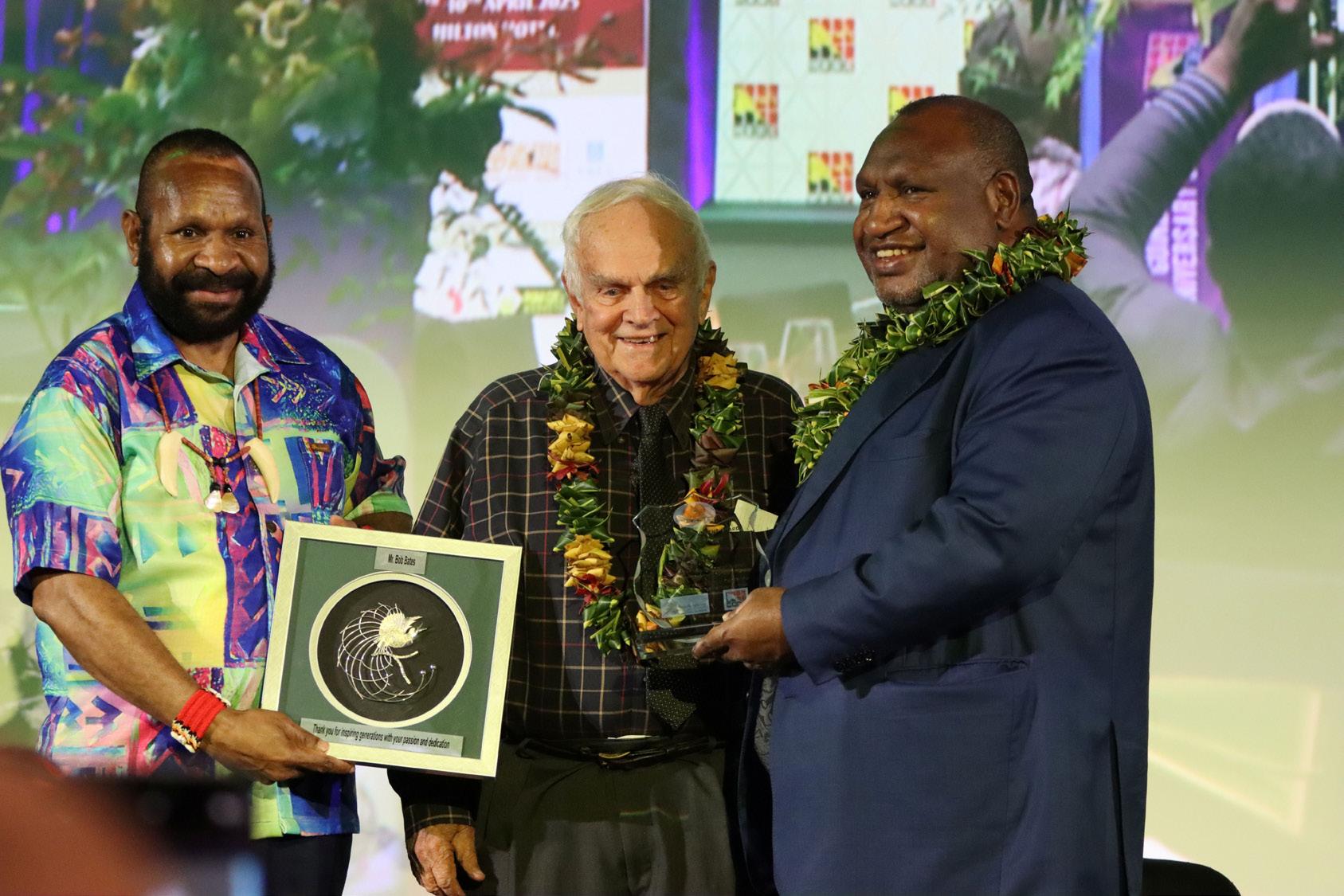
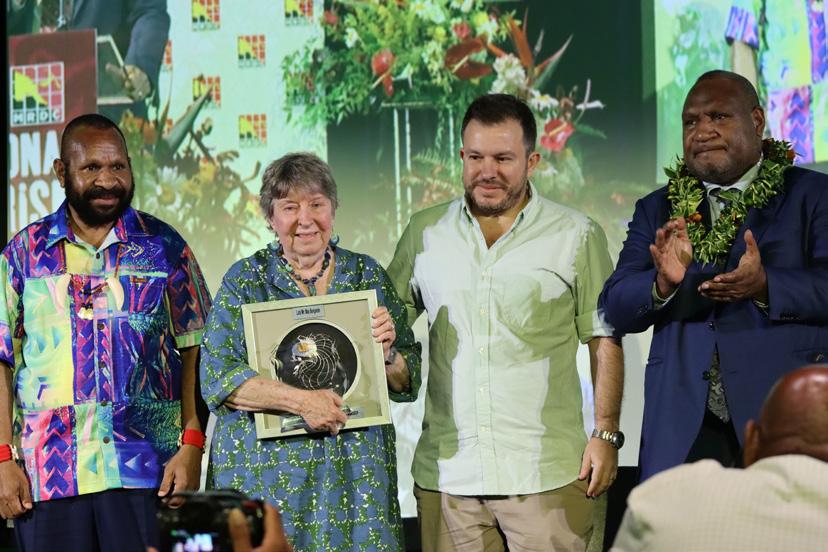
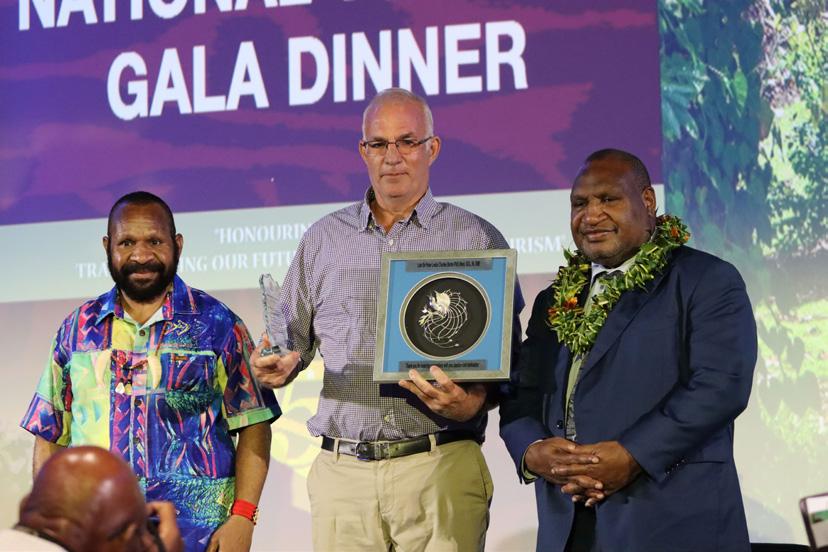
and Ambua Lodge, and organized cultural tours and expeditions that have brought PNG’s rich diversity to the global stage.
Bates, upon accepting the award, said: “I thank you all for this honour, although I must say, I’ve still got another 40 years in me, so it’s not quite a ‘lifetime’ yet!”
Chief Executive Officer of the PNG Tourism Promotion Authority (TPA), Eric Mossman Uvovo, commended Mr. Bates for his remarkable contributions.
“Mr Bates is a name that resonates across the tourism industry not just in PNG but internationally. His deep respect for local culture, his investment in sustainable tourism, and his pioneering spirit have inspired generations.”
“On behalf of TPA and the entire tourism family, we extend our heartfelt congratulations and thanks for his dedication to Papua New Guinea,” Mr. Uvovo said.
BARTER’S LEGACY
The late Sir Peter Barter’s outstanding legacy was also celebrated during the Gala Dinner with the Lifetime Achievement Award presented to his son Andrew and daughter-in-law Juanita, who accepted the honour on his behalf.
After arriving in PNG in the 1970s, Sir Peter Barter went on to establish Melanesian Tourist Services Ltd, which operated the Melanesian Discoverer expeditionary cruise and the iconic Madang Resort Hotel. His efforts
Corporate Accommodation just 5 minutes from Motukea Wharf and 8 minutes from Port Moresby CBD; Affordable, Comfortable, Secure, Reliable
Meals & Laundry included - NO per diems. Unlimited Wi-Fi. Airport Transfers. Hassle free end to end group packages.
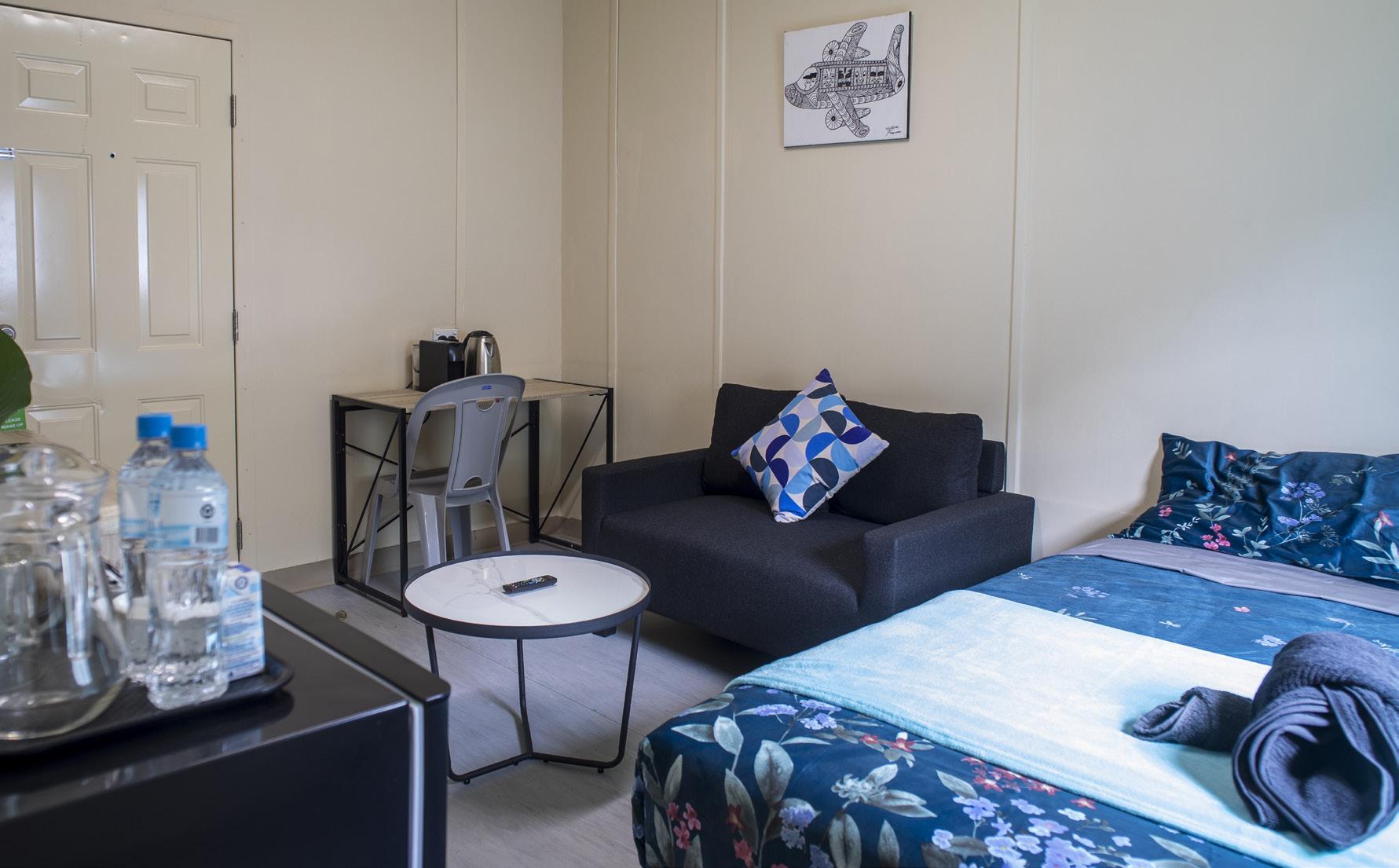
helped position Madang as one of the country’s premier tourism destinations.
Beyond his achievements, Sir Peter made profound contributions to national development. He founded the Melanesian Foundation to support community development and was deeply committed to promoting the countries cultural diversity.
As a former Minister for Health and Bougainville Affairs under the Somare Government in the early 2000s, he played a pivotal role in the peace and reconciliation process after the Bougainville Civil War, later serving as Governor of Madang Province.
TPA CEO Uvovo, praised Sir Peter’s enduring influence.
“Sir Peter Barter was not only a pioneer in the tourism industry but a statesman, philanthropist, and a prouder Papua New Guinean than most Papua New Guineans. His efforts extended far beyond economic gain, he championed peace,
culture, and inclusive development through tourism,” he said.
“On behalf of TPA, I thank Andrew and Juanita for travelling to Port Moresby to receive this honour. It was a truly special moment,” said Uvovo.
The late Max Benjamin was the third recipient of the Lifetime Achievement Award accepted by his wife Cecilie and son Cheyne.
Max Benjamin’s legacy is deeply rooted in PNG’s marine tourism.
Arriving in the 1960s, he and Cecilie established the world-renowned Walindi Plantation Resort in Kimbe Bay, West New Britain Province.
Walindi gained international acclaim for its world-class diving, marine conservation efforts, and commitment to sustainable tourism.
Max Benjamin’s vision helped put PNG on the world map for diving and marine eco-tourism. Scientists, divers, and eco-travellers
from around the globe were drawn to Kimbe Bay, attracted by its biodiversity and the Benjamins’ tireless work to protect it.
In her acceptance remarks, Cecilie Benjamin also shared a powerful reminder of PNG’s uniqueness.
“A wonderful conference and an award that is a proud achievement for my husband,” said Mrs Benjamin. “Please, never compare Papua New Guinea to anywhere else on earth. This country is unlike any other with its cultures, its biodiversity, and its pristine beauty. There is no place like PNG.”
TPA CEO Uvovo said: “Max Benjamin was more than a resort owner, he was a true champion of eco-tourism, a protector of marine biodiversity, and a mentor to many in our industry. His passion and commitment to Papua New Guinea’s natural beauty and people have left a lasting legacy.
“On behalf of TPA and the tourism sector, we are grateful to Cecilie and Cheyne for travelling to Port Moresby to accept this award in his honour,” he said.

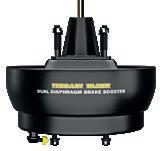




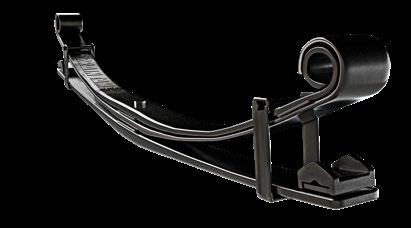



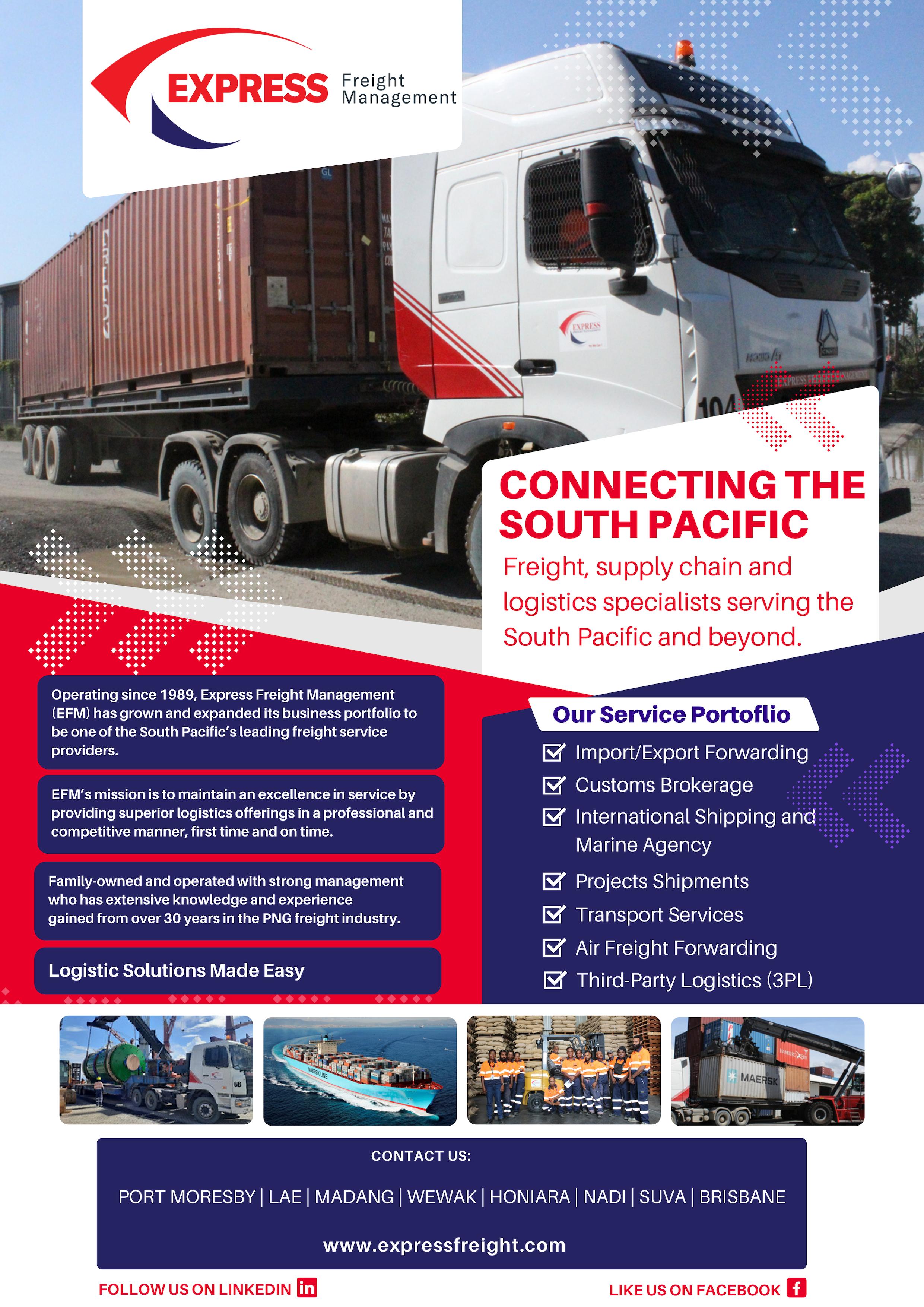
By: ROSELYN EREHE
The Pacific Tourism Organisation (SPTO), in collaboration with the Papua New Guinea Tourism Promotion Authority (PNGTPA), has released PNG’s first Business Confidence Index (BCI) report.
This report offers valuable insights into the country’s business outlook and tourism sector recovery, providing a crucial tool for evidence-based policymaking and enhanced private sector engagement. It also signals the start of a data-driven approach to tourism development and recovery in PNG.
The findings are set to inform future planning, guide strategic investment, and support initiatives to strengthen businesses across the sector, the organizations said in a statement.
The collaboration between SPTO and PNGTPA “shows a shared commitment to building an inclusive and dynamic tourism industry.”
PNG is one of ten Pacific Island countries participating in the Pacific Tourism Data Initiative (PTDI), joining the Cook Islands, Niue, Kiribati, Samoa, Vanuatu, Tonga, Solomon Islands, Timor-Leste, and FSM-Yap.
Funded by the New Zealand Government, the PTDI plays a pivotal role in reinforcing regional tourism strategies through high-quality data collection and research.
The initiative encompasses several key surveys, including the bi-annual International Visitor Survey (IVS), the annual Business Confidence Index (BCI), and the annual Community Attitude Survey (CAS).
The BCI survey was conducted over a four-month period from November 2024 to February 2025. It gathered 299 responses, of which 206 were deemed valid for analysis.
The success of this nationwide effort is credited to the strong partnership between SPTO and PNGTPA, who worked collaboratively to engage businesses across all four of PNG’s regions: Southern, Momase, Highlands, and Islands.
SPTO Chief Executive Officer Christopher Cocker commended the partnership, stating: “This achievement reflects the strong leadership of PNGTPA.”
“Their close connection with the
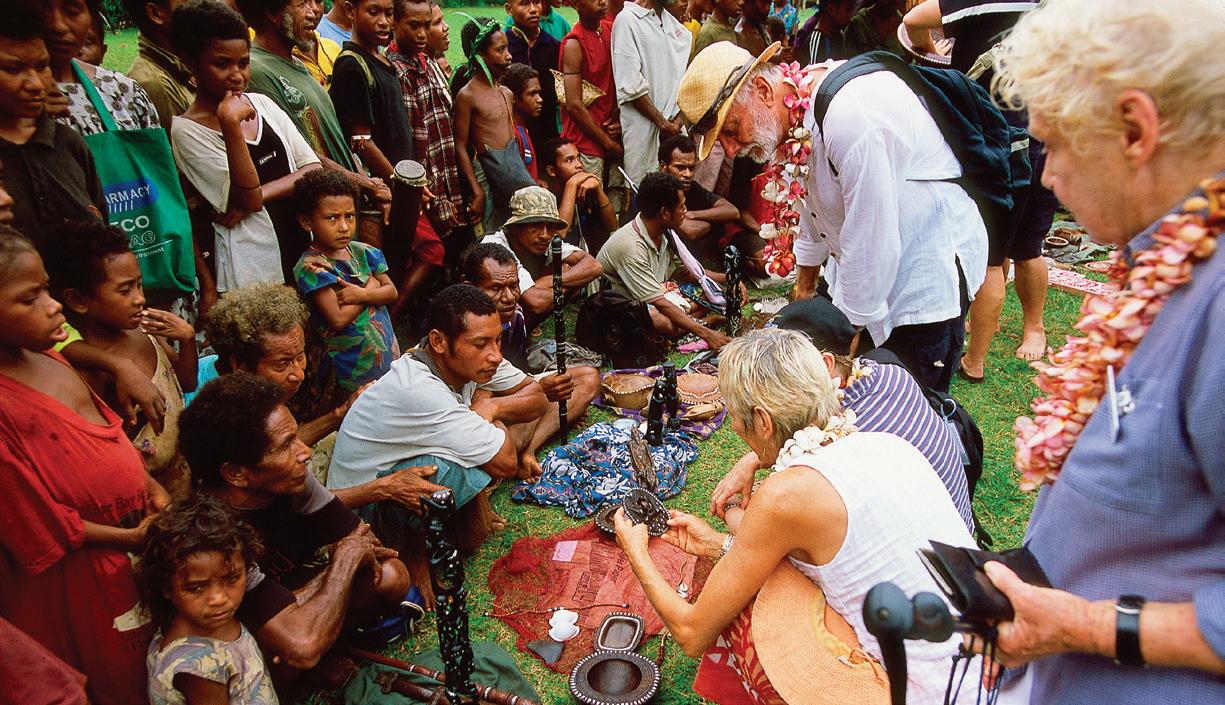
local business community and focus on data-driven planning were key to collecting valuable insights that will help shape the future of tourism in Papua New Guinea.”
The survey primarily targeted tourism-related businesses in line with its objective of gauging recovery and confidence within the sector.
As a result, 62% of respondents were from tourism enterprises, while the remaining 38% represented diverse sectors such as real estate, healthcare, media, engineering, and events management.
The survey revealed that 90% of the participating businesses were PNG-owned, underscoring the local ownership and involvement in the economy. Geographically, 52% of surveyed businesses were in the Southern region, with 25% each in the Momase and Islands regions, and 22% in the Highlands.
Revenue data showed a wide range of business sizes and financial outputs. Large tourism businesses reported an average annual revenue of PGK 10.3 million, whereas micro-enterprises recorded average revenues of PGK 15,594.
Expenditure analysis indicated that businesses allocated 33% of costs to labour, 37% to inventory, and 31% to other operating expenses. Importantly, nearly half (47%) of goods and services used by these businesses were sourced locally, with the remaining 53% imported.
Despite facing a range of operational and economic challenges, many businesses expressed cautious optimism about the future.
About 59% of respondents indicated
that they were actively hiring, though constraints around workforce availability (40%), recruitment challenges (33%), and financial limitations (19%) were identified as key barriers.
Broader systemic issues such as security concerns (21%), inadequate infrastructure (19%), and limited government support (10%) were also highlighted.
In terms of growth potential, many businesses pointed to several opportunities: 19% cited growing visitor demand, 16% saw promise in strategic partnerships, 15% aimed to expand their operations, and 14% emphasized the need for stronger government support to facilitate growth.
PNGTPA CEO Eric Mossman Uvovo welcomed the report and praised the collaborative effort behind it.
“The BCI report is an important step forward in understanding the real-time challenges and opportunities our businesses face. We thank SPTO for its technical leadership and are proud to have partnered in this effort,” Uvovo said.
“This collaboration reflects our shared commitment to shaping a resilient, inclusive, and data-driven tourism sector for PNG.”
SPTO CEO Mr. Cocker said: “The Business Confidence Index is a key part of the New Zealand-funded Pacific Tourism Data Initiative, designed to capture local perspectives and guide tourism development that truly reflects community needs.
“We sincerely thank NZMFAT for funding this important survey, the PNGTPA team for their strong collaboration, and the businesses that contributed their time and insights.”
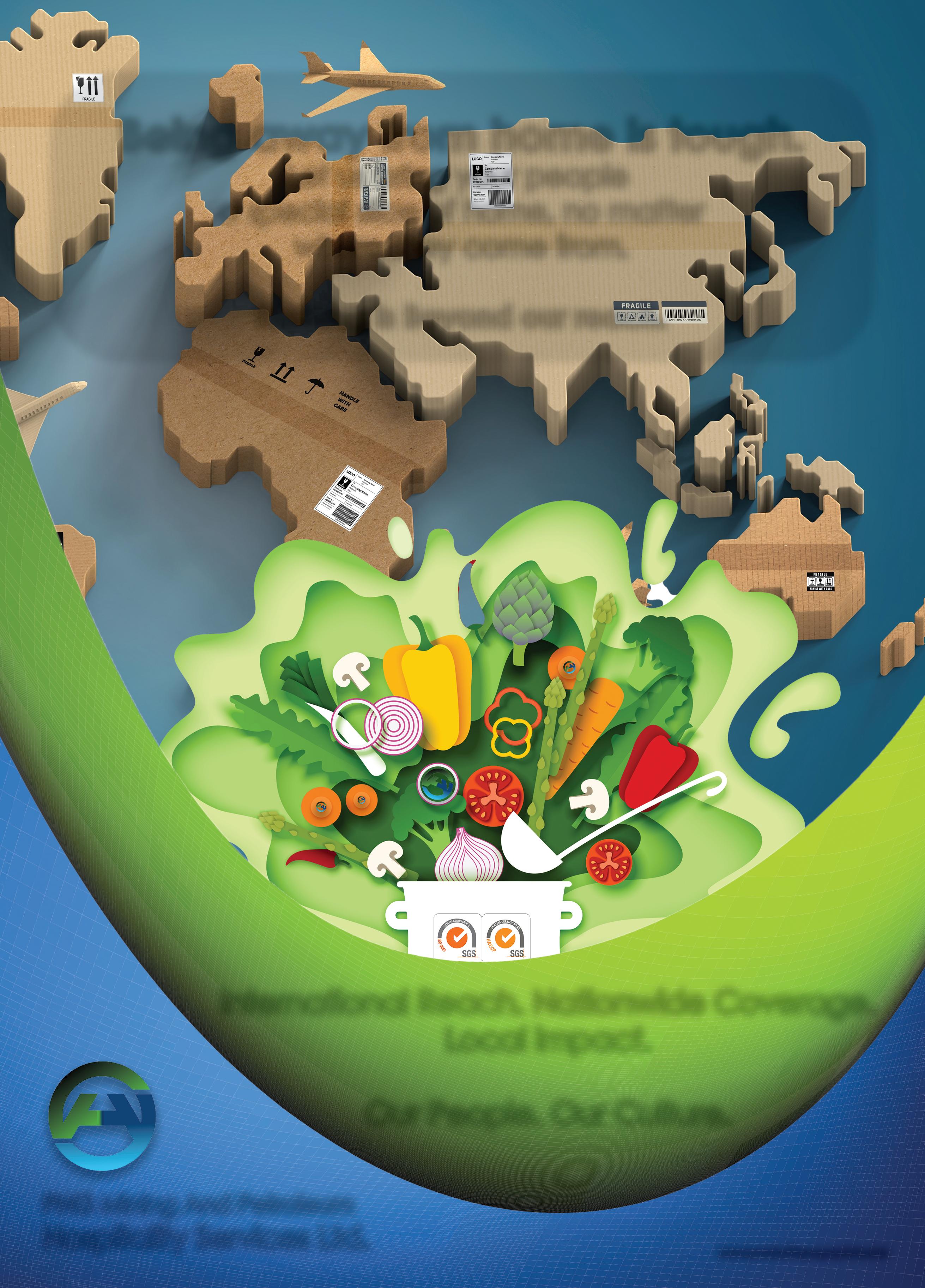


Barakau, a picturesque Motuan village just 25 minutes outside Port Moresby in Papua New Guinea, is making waves in environmental conservation through the Eda Davara Marine Sanctuary Project.
Named after the phrase “Our Sea” in the local language, the initiative is driven by passionate youth advocating for traditional indigenous practices and sustainable marine conservation.
Founded by Dikatauna Kwa and her university colleagues, Eda Davara began with mangrove research and restoration before expanding into broader ecological and community engagement efforts.
With visits to Barakau Primary School, the village ward councilor and a strong network in several universities in Port Moresby, the sanctuary project grew from strength to strength throughout the years.
Over the years, it has flourished into a multi-faceted program with six specialized teams: Administra -
tion, Marketing, Science, Policy and Governance, Tourism, and Community Projects.
A key achievement of the initiative is the EcoScholars Internship Program, which currently involves 13 students from universities across PNG -- University of Papua New Guinea, Pacific Adventists University, and the Institute of Business Studies University.
These young leaders bring expertise from fields such as economics, law, science, and tourism, ensuring a holistic approach to conservation.
Beyond its local impact, the Eda Davara Marine Sanctuary Project has established international partnerships that enable Papua New Guinea to participate in global environmental dialogues.
Its recent selection as a recipient of the Young Pacific Leaders (YPL) Small Grants highlights its growing influence in the region.
Eco-tourism plays a crucial role in supporting the project and
the local community. Monthly Kohua Beach Tours offer visitors guided hikes, mangrove cruises, and opportunities to engage with conservation activities. Locals serve as tour guides and vendors, selling arts, crafts, and food, making eco-tourism a sustainable source of income.
To further its mission, the project organizes an annual Gala Night to raise funds for conservation efforts, including building a Research Wet Laboratory in Kohua. Last year’s event was a success, and organizers are looking forward to another impactful year.
For those interested in supporting the Eda Davara Marine Sanctuary Project, contact them via email at edadavara@gmail.com or call 675 7835 4067.
With a busy six months ahead, the team continues its dedication to marine conservation and community empowerment, solidifying Barakau as a beacon of sustainable development in Papua New Guinea.
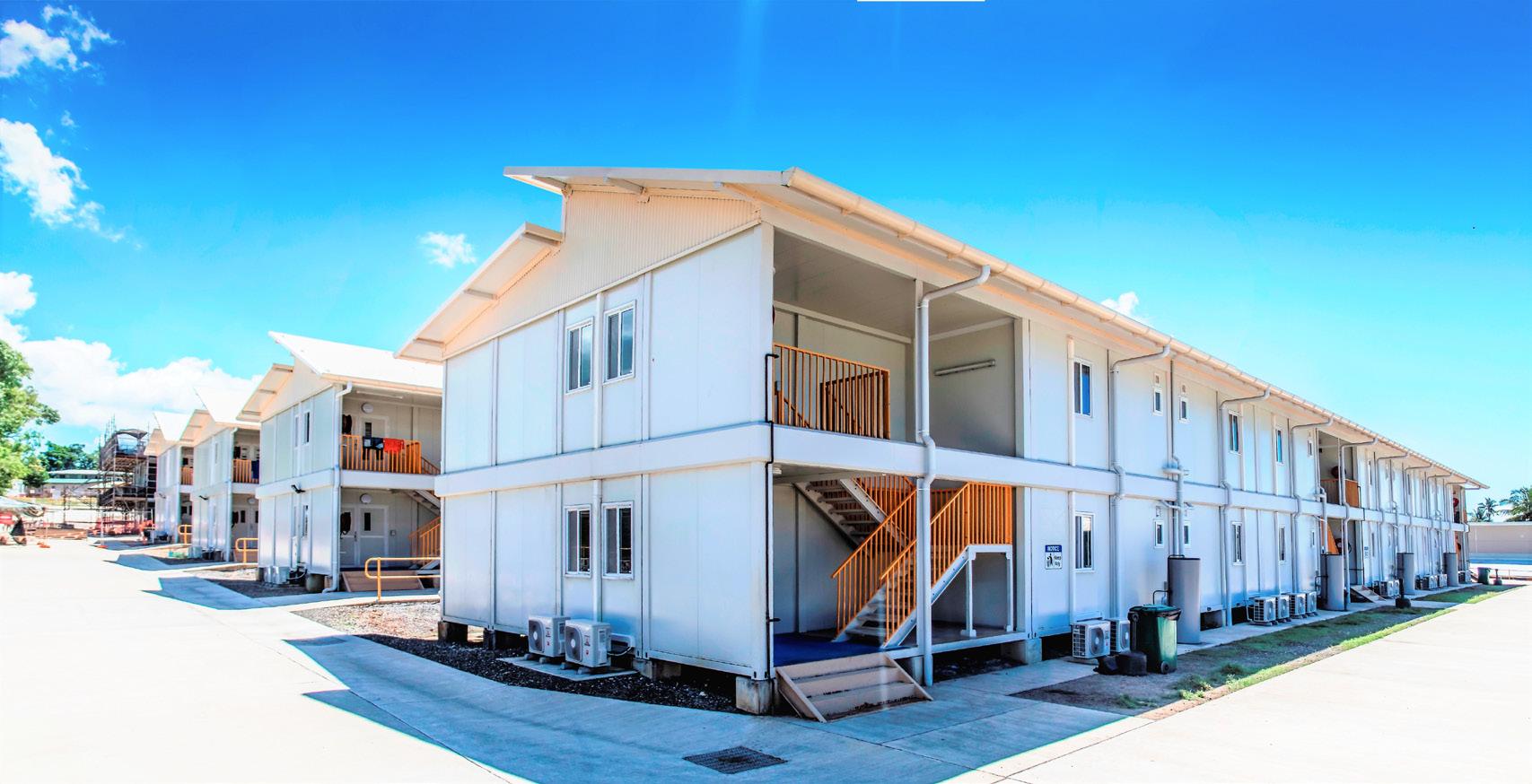
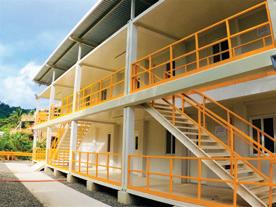
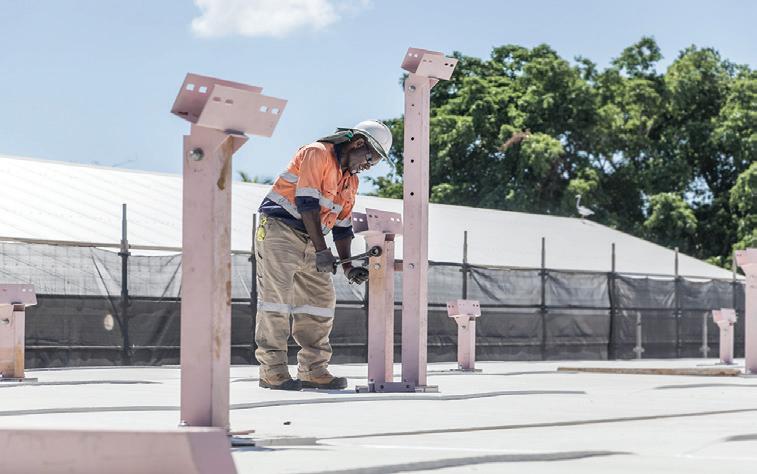
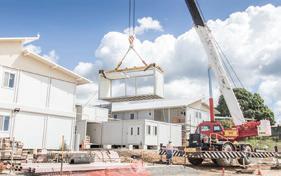
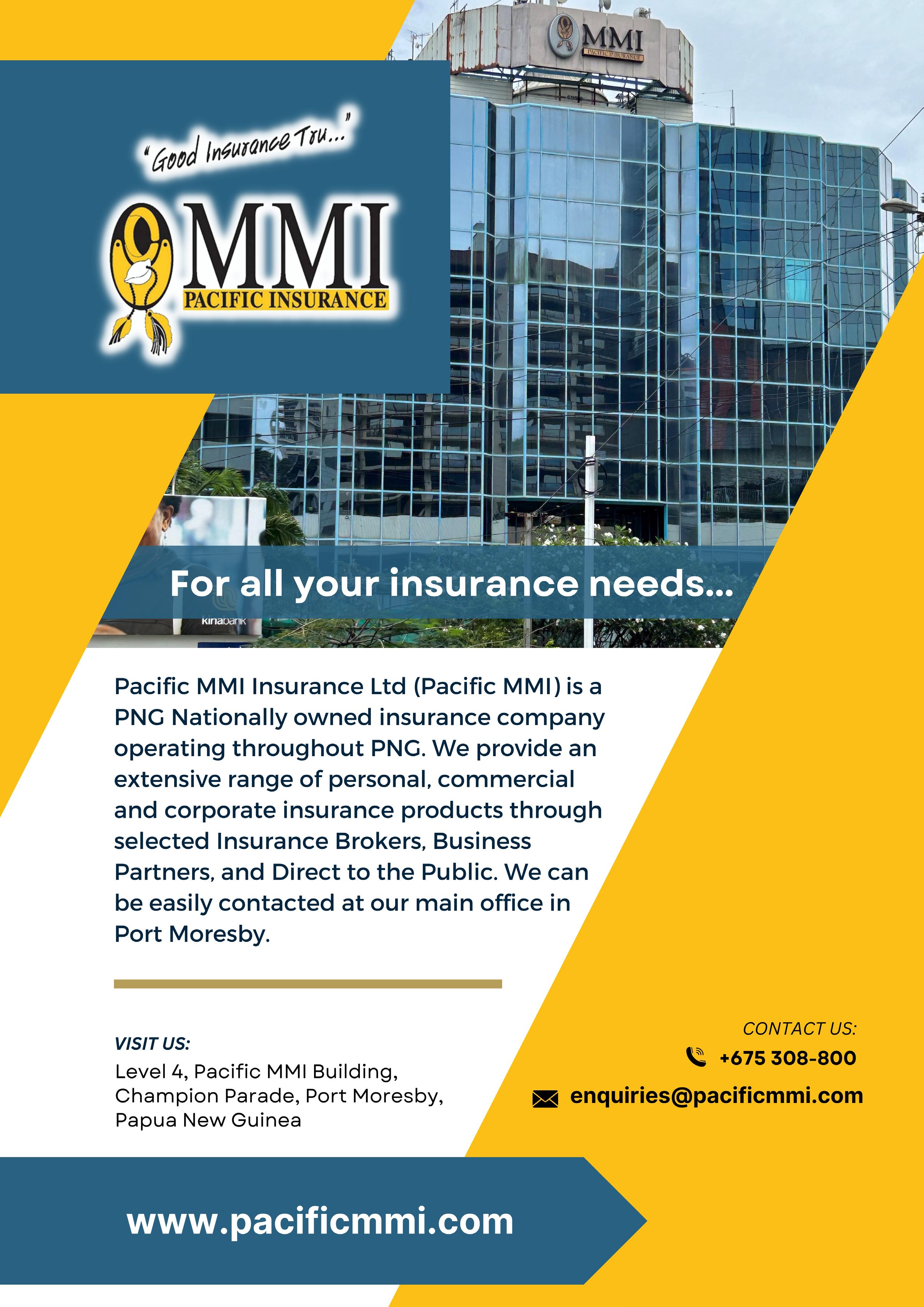
By: ROSELYN EREHE
The Bank of Papua New Guinea (BPNG) has announced its new executive structure as part of its commitment to becoming a modern, digital, and trusted central bank under its recently developed “Vision 2050” strategy.
The announcement follows a detailed and extensive strategy development process over the past two years. Since its establishment in 1973, the Bank’s role has evolved significantly, and the new structure is designed to meet the changing needs of Papua New Guinea’s people and the global economy.
With this, BPNG aims to leverage local expertise and strengthen the future development of the national banking system.
The Bank confirmed the following executive appointments: Deputy Governor, Monetary Policy & Financial Operations: Mr. Jeffery Yabom -- Mr. Yabom has over 33 years of experience with the Bank. He holds a Bachelor’s Degree in Economics from the University of Papua New Guinea, a Postgraduate Diploma in Economics, and a Master of Arts in Economics from the University of Manchester in the United Kingdom. Prior to his appointment, he served as the Assistant Governor for the Monetary and Economic Policy Group.
Assistant Governor, Currency Services and Branch Operations Group: Mr. Ron Sikar -- Mr. Sikar joined the Bank in 1988 and holds a Post Graduate Diploma in Banking from Massey University, New Zealand, and a Bachelor’s degree in Commerce from the University of Papua New Guinea. He was previously the Assistant Governor, Corporate Affairs.
Assistant Governor, Financial System Development & Innovation Group: Mr. George Awap -- With over 36 years of experience in Economics and Supervision, Mr. Awap holds a Master’s degree in Economics from the University of New England, Australia. He was formerly the Assistant Governor of the Financial System Stability Group.
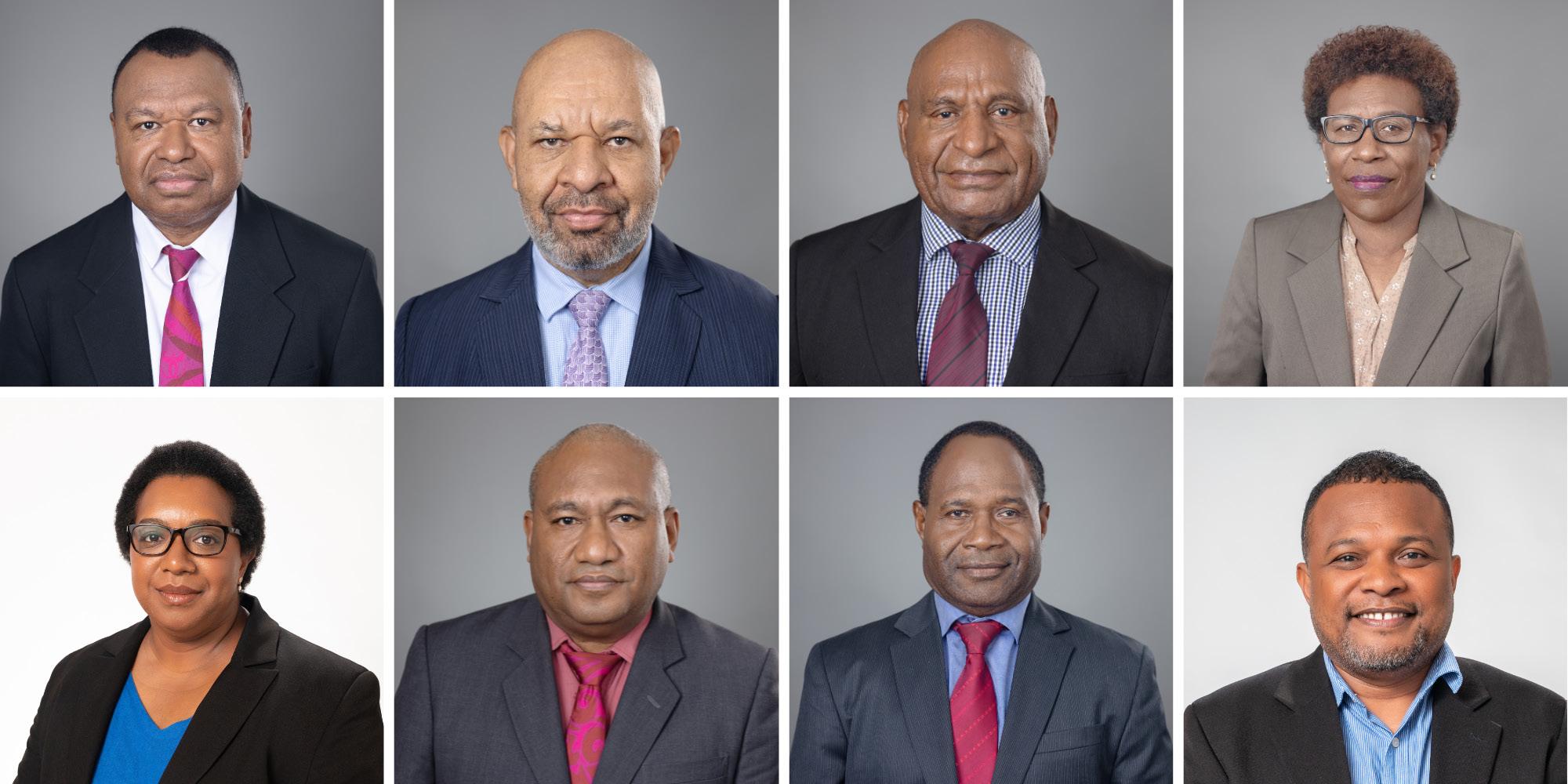
Assistant Governor, Financial System Regulations & Supervision Group: Mrs. Sabina Deklin -- Mrs. Deklin has over 24 years of experience in Policy and Supervision with the Bank. She holds a Master’s Degree in Business Administration from Torrens University, Australia. Prior to her appointment, she served as the Head of the Supervision Department and Acting Assistant Governor for the Financial System Regulations and Supervision Group.
Assistant Governor, Monetary & Economic Policy Group: Mrs. Williamina Hubert -- Mrs. Hubert holds a Master’s degree in International Development Economics from the Australian National University. With more than 23 years of work experience in Research and Economics, she was the Acting Assistant Governor for the Monetary and Economic Policy Group before her confirmation.
Assistant Governor, Financial Market Operations Group: Mr. Rowan Rupa -- Mr. Rupa has over 28 years of experience in Economics and Financial Markets. He holds a Post Graduate Diploma in Banking and Finance from Monash University, Australia, and a Bachelor’s degree in Economics from the University of Papua New Guinea. He was previously the Head of Financial Markets Department.
Assistant Governor, Payments & Banking Services Group: Mr. Alfred Napun -- Mr. Napun holds a Master’s degree in Business Admi -
nistration from Central Queensland University, Australia. With more than 32 years of experience in Audit, Banking, and Payments Systems, he previously served as Manager of the Payments System Department.
Deputy Chief Operating Officer / Acting Chief Operating Officer: Mr. Mairi Mathew -- Mr. Mathew joined the Bank as a graduate in 2006 and has spent the majority of his 18-year career within the Operations group. He holds a Master’s degree in Business Administration from Torrens University, Australia. Prior to his current role, he was Manager of the Human Resources Department.
The Bank also announced that it is recruiting for additional executive roles, including a second Deputy Governor who will oversee Financial System Stability & Development and a permanent Chief Operating Officer.
New leadership positions such as Chief Risk Officer, Chief Financial Officer, and Chief Audit Officer will also be created to complement the new executive structure.
BPNG emphasized its ongoing commitment to supporting the country’s development through a robust financial system. Key priorities include strengthening financial inclusion, creating a modern and responsive payments system, and driving innovation and competition across the financial sector.
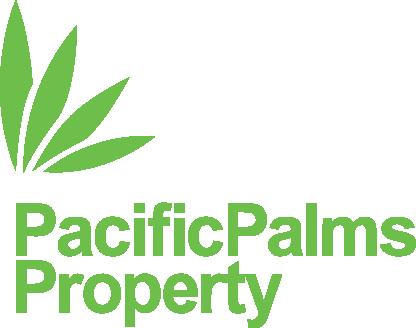
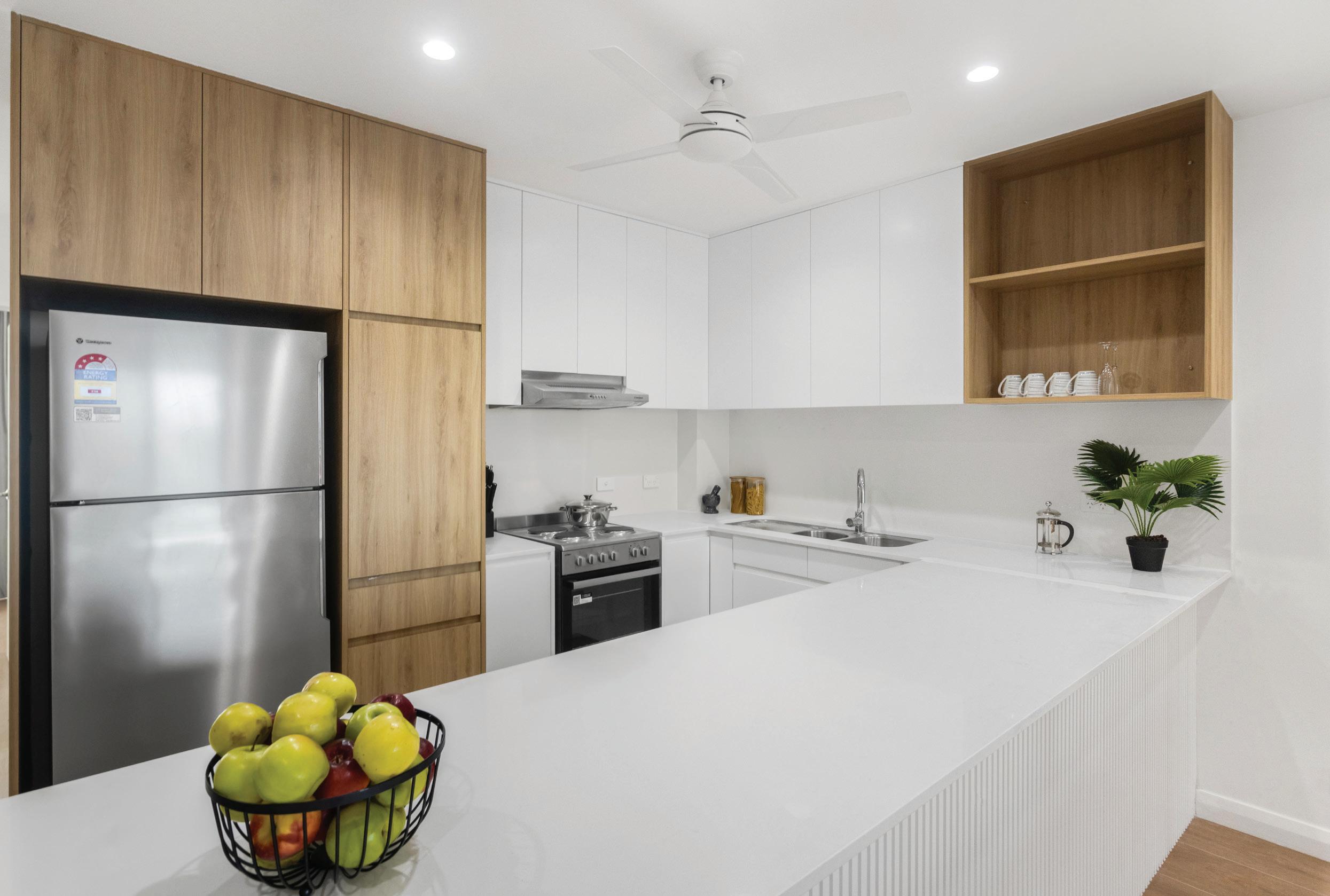
Whittaker Apartments offers a selection of 28 two-bedroom apartments and 2 three-bedroom penthouses, with sea view and of the CBD in one of Port Moresby’s most sought-after locations. These exceptional apartments are now available for lease.
Make the move to Whittaker Apartments and enjoy the convenience of modern living, right in Downtown.
+675 313 7400
@345, Level 2
Stanley Esplanade, PO Box 2142, Boroko NCD, Port Moresby, Papua New Guinea info@pacificpalmsproperty.com.pg
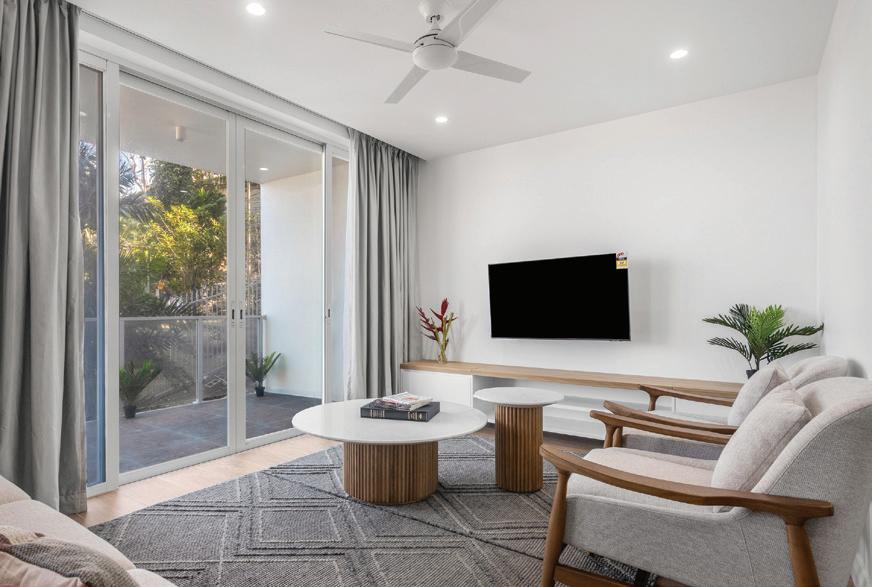
Available Units:
2 Bedroom Apartments (Walter Bay View)
2 Bedroom with Private Courtyard
2 Bedroom (CBD View)
3 Bedroom Penthouse (Walter Bay View)
Key Features:
Fully Furnished with White & Brown Goods
Swimming Pool
Fully Equipped Gym
Backup Water & Power
24/7 Security
Note: The photos used in this artwork are of the actual apartment and not renders.
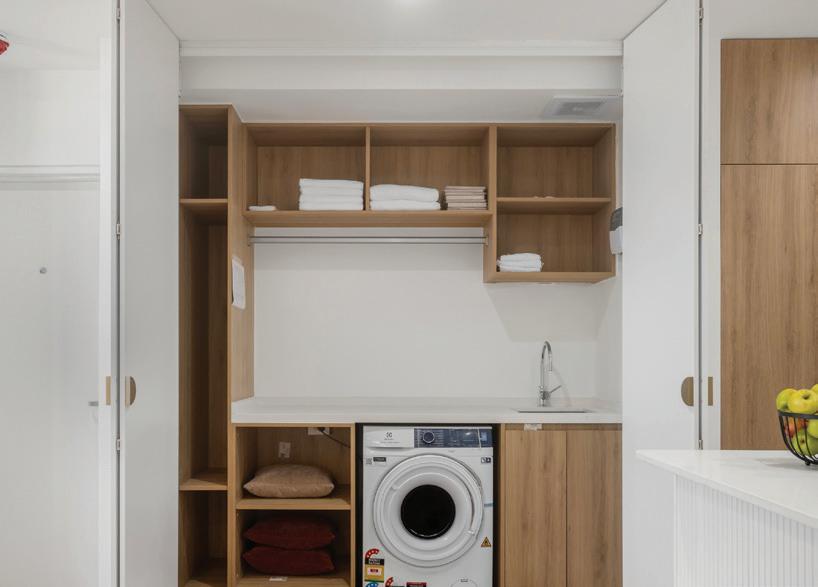
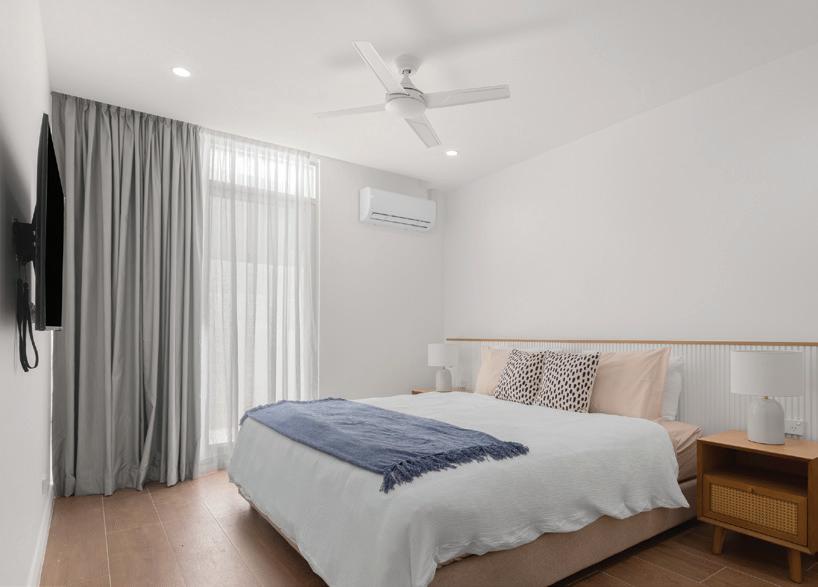
By: ROSELYN EREHE
Papua New Guinea and the Pacific Island countries and territories are on the frontline of climate and biodiversity loss impacts.
“Your voices are decisive to push for higher climate ambition, adaptation solutions and also financial promises,” said Virginie Bleitrach, AFD’s Regional Director Pacific Ocean, during the inaugural Green Finance Summit 2025 in Port Moresby.
“We share your concerns that international climate finance (including the commitment made at COP29) will not be enough to address all the needs for climate mitigation and adaptation,” Bleitrach said.
“There is indeed a need to transform financial systems worldwide and for all actors, both public and private, to work together to enable the true mobilisation of trillions in support of green economies.
“That is precisely the essence of what we humbly strive for at AFD. As a public development bank, we strongly believe that there is an urgent need to leverage all financial flows, public and private, towards the Sustainable Development Goals (SDGs).”
She applauded BPNG’s efforts, stating: “This gathering is the first of its kind in Papua New Guinea, but also in the Pacific region. I wish to warmly congratulate the Bank of Papua New Guinea for stepping into the adventure of developing a full green finance set of policies and tools.”
PNG reinforced its leadership in sustainable development across the Pacific with the successful hosting of the event, organized by the Green Finance Centre (GFC) under the auspices of the Central Bank of Papua New Guinea (BPNG).
It brought together a powerful coalition of government leaders, development partners, financial institutions, and international organizations.
The Summit, held on March 24, gathered senior government officials from the Treasury, Energy, Agriculture, Labor, Forestry, and Environment sectors and Govern -
ment Ministries of PNG.
Attendees included leaders from Agence Française de Développement (AFD), Asian Development Bank (ADB), International Finance Corporation (IFC) of the World Bank Group, International Monetary Fund (IMF), New Zealand’s Ministry of Foreign Affairs and Trade (MFAT), United Nations Development Program (UNDP), United Nations Capital Development Fund (UNCDF), Alliance for Financial Inclusion (AFI), Global Green Growth Institute (GGGI), and commercial banks including Bank South Pacific (BSP), Kina Bank, ANZ PNG, MiBank, and Mama Bank.
Several significant announcements and agreements were made, marking tangible progress towards PNG’s sustainable finance objectives.
AFD committed to supporting the development of key green finance instruments, including the Green Refinancing Facility (GRF) and the Green Guarantee Facility (GGF), aimed at mobilizing capital and de-risking green investments.
An agreement from ADB to inject USD 20 million into the two facilities, in collaboration with AFD, UNCDF, GFC, and BPNG, bolstered the commitment.
These partners will work with local financial institutions to co-develop a pipeline of green and blue loans, forming the backbone of blended green finance and unlocking access to finance for Micro, Small, and Medium-Sized Enterprises (MSMEs) in Papua New Guinea.
Bleitrach emphasized the importance of systemic transformation. “Systemic transformation is needed, from green taxonomies to innovative financial products and mainstreaming climate risk. We look forward to working hand-inhand with you all to build climate-resilient, low-carbon financial ecosystems across the Pacific.”
The Department of Treasury reaffirmed its commitment to co-develop sustainable finance solutions in partnership with BPNG and GFC, tailored to align
with PNG’s National Development Priorities.
The Minister for Energy, Hon. Thomas Opa, pledged to mobilize capital for renewable energy projects through GFC’s platform, underlining the critical role of green finance in the country’s energy transition.
The Ministry of Energy, BPNG, GFC, and GGGI also confirmed a collaboration to accelerate renewable energy projects. Already, nearly 20 RE initiatives are progressing, alongside efforts to develop carbon credit mechanisms and green bonds, reinforcing PNG’s commitment to sustainable energy development.
Highlighting AFD’s broader mission, Bleitrach said: “Greening the Pacific financial systems requires systemic and transformative programs to address altogether the development of green finance products, regulations, risk management, capacity building and regional cooperation.”
She detailed AFD’s climate finance achievements, noting that it had more than doubled its climate finance from €3 billion in 2015 to €7.3 billion in 2024, including onethird for adaptation, and doubled biodiversity financing to reach 1 billion euros in 2023.
“In the meantime, we have scaled up our support to greening the financial system. Between 2015 and 2022, AFD committed more than 5.5bn€ to pursue this ambition, with successful examples for the Caribbean Financial System and the Indian Financial System.
“Our goal is to support financial regulators and supervisors (central banks, ministries of finance and capital market authorities) to scale-up sustainable finance at 3 different levels:
“At strategic and regulatory level, the objective is to increase market transparency on green finance, notably through green finance roadmaps, national green taxonomies and standards of green/sustainable bond issuance.
“At portfolio level, we need to drive assets allocation towards low
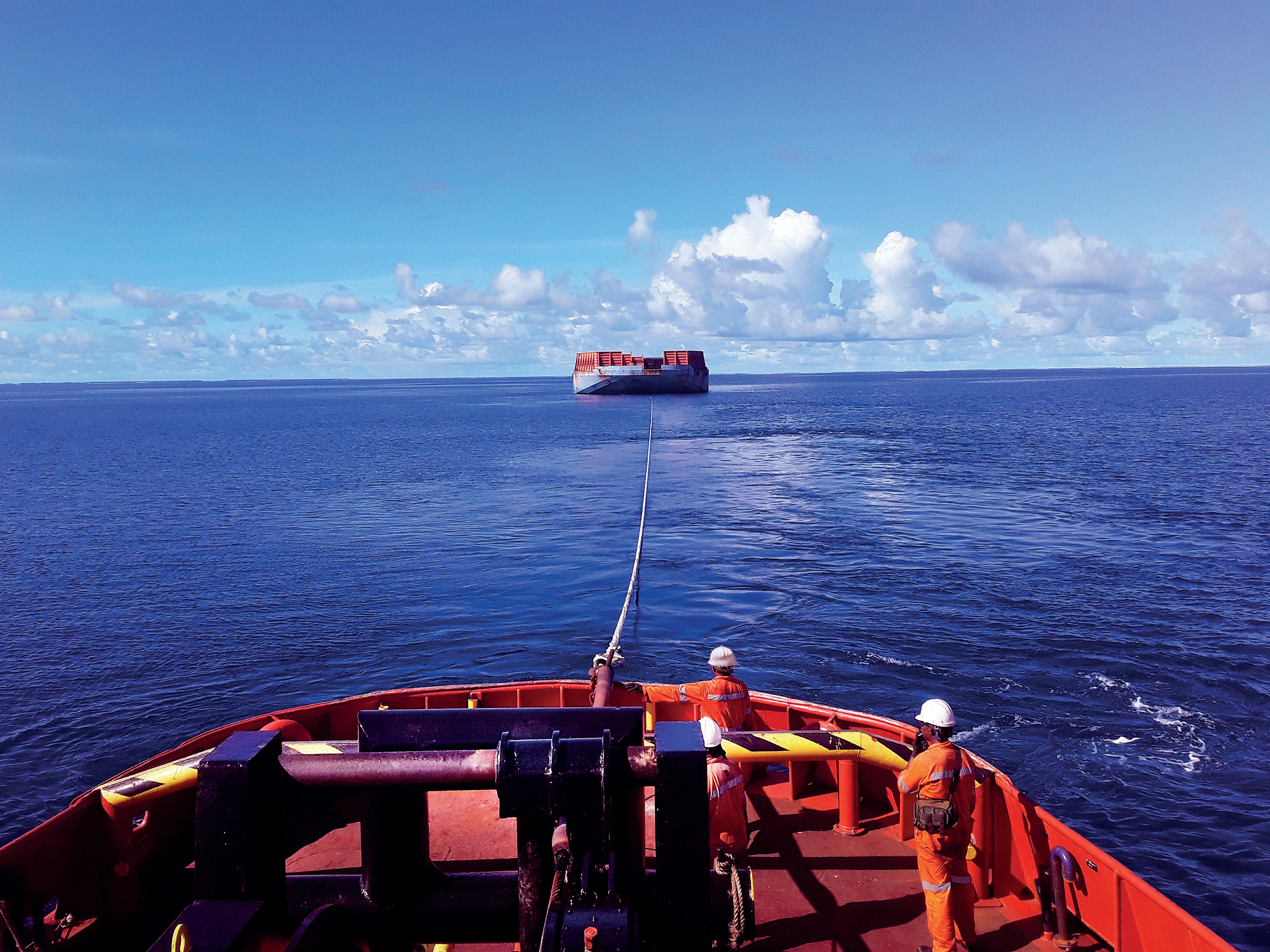
carbon and resilient investments through the development of green financial products (savings, loans, insurance, etc.), green financial incentives (grant, guarantee, etc.), and access to international green financing (green climate funds; etc.)
“At operational level, the most significant step is to incorporate physical and transition related financial risks into supervisory practice, as well as establish post-disaster financing schemes.”
She added: “The mainstreaming of climate action within commercial banks and public development financial institutions is a long journey, and we are glad to embark on it with you all.
“We have made significant progress already as the Greening Pacific Financial System (GPFS) project was launched exactly a year ago today.
“We will continue the work alongside New Zealand, GGGI and the Bank of PNG to support the implementation of concrete solutions to mainstream finance towards green and blue objectives in PNG and in the Pacific region.”
Launched a year ago by AFD, GGGI, and the Bank of PNG, the GPFS project continues to support the mainstreaming of green and blue finance objectives in PNG and across the Pacific.
It aims to strengthen the capacity of Pacific Central Banks and Public Development Banks (PDBs) to better manage climate risks, mobilize private sector financing, and improve regional cooperation.
“The Green Finance Summit is a historical step in this direction,” Bleitrach stated.
“It will foster cooperation among critical stakeholders, central banks, investors, commercial banks, insurers, export credit agencies, private companies, and many international organizations.”
The Summit also showcased partnerships with the Fiji Development Bank (FDB) through a portfolio guarantee targeting green and blue development activities, close cooperation with Banque Calédonienne d’Investissement (BCI) in New Caledonia, and SOCREDO in French Polyn -
esia, demonstrating the growing momentum for green finance across the Pacific region.
Bleitrach affirmed AFD’s ongoing commitment and said, “We hope we can humbly help PNG and the Pacific join the global coalitions as we have so much to learn from each other.
“I very much value your participation in this global movement and am looking forward to the fruitful discussions of this first Green Finance Summit for the benefit of the people in PNG.”
BPNG Governor Elizabeth Genia in her opening remarks, highlighted the importance of the event, calling it “an important milestone” as it coincides with the first anniversary of the country’s Green Finance Centre, established in March 2024.
“In just twelve months, we have implemented the Inclusive Green Finance Policy, developed PNG’s first Green Taxonomy, and successfully piloted green finance projects, demonstrating real-world impact,” Governor Genia said.
She emphasized that while these achievements mark a solid foundation, the real task now lies in scaling up the country’s green finance initiatives.
Governor Genia underscored the urgent threat climate change poses to PNG, citing rising sea levels, extreme weather, and environmental degradation as direct threats to the nation’s communities and economic stability.
However, she said this crisis also presents unique opportunities.
“Green Finance allows us to build resilience, create jobs, and unlock new growth opportunities for our economy.”
Governor Genia pointed out that 90% of green finance investments will need to come from the private sector, making the role of banks, insurers, and investors critical.
She praised the government’s efforts to create an “enabling environment” through targeted policy reforms and strategic partnerships, aligning PNG’s actions with global frameworks like the Paris Agree -
ment and the UN Sustainable Development Goals.
The summit also saw the launch of two new initiatives:
1. The Green Refinancing Facility (GRF): Designed to reduce financial risks associated with green projects, making them more attractive and accessible to investors.
2. The Green Guarantee Facility (GGF): Aimed at providing essential financial backing to unlock funding for sustainable and climate-resilient initiatives.
Governor Genia also announced that new targeted loan products, including Green and Blue Loans, would soon be available, focusing particularly on SMEs, agriculture, sustainable fisheries, biodiversity conservation, and women-centered enterprises.
“These practical solutions will enable banks, businesses, and communities to direct capital towards impactful climate-resilient and sustainable projects,” she said.
For financial instruments, BPNG is pushing forward a broader agenda to strengthen the green finance ecosystem. This includes:
• Launching Green Taxonomy V2.0 to standardize classification and reporting,
• Establishing Environmental, Social, and Governance (ESG) Guidelines,
• Developing thematic bond frameworks, and
• Integrating sustainability principles into PNG’s financial markets regulation and supervision systems.
Governor Genia called on the financial and business sectors to lead by example, saying Green Finance in PNG needs “champions, leaders willing to innovate, drive change, and inspire others.”
She also spoke of successes from local pilot projects, saying that PNG has the potential to be a regional leader in Green Finance by collaborating actively with partners such as the SEACEN Centre, AFD, IFC, ADB, UNCDF, and the Global Green Growth Institute (GGGI).
“We have the framework, the partnerships, and the momentum. Now, we need commitment and decisive action. This is our opportunity, our moment to lead.”
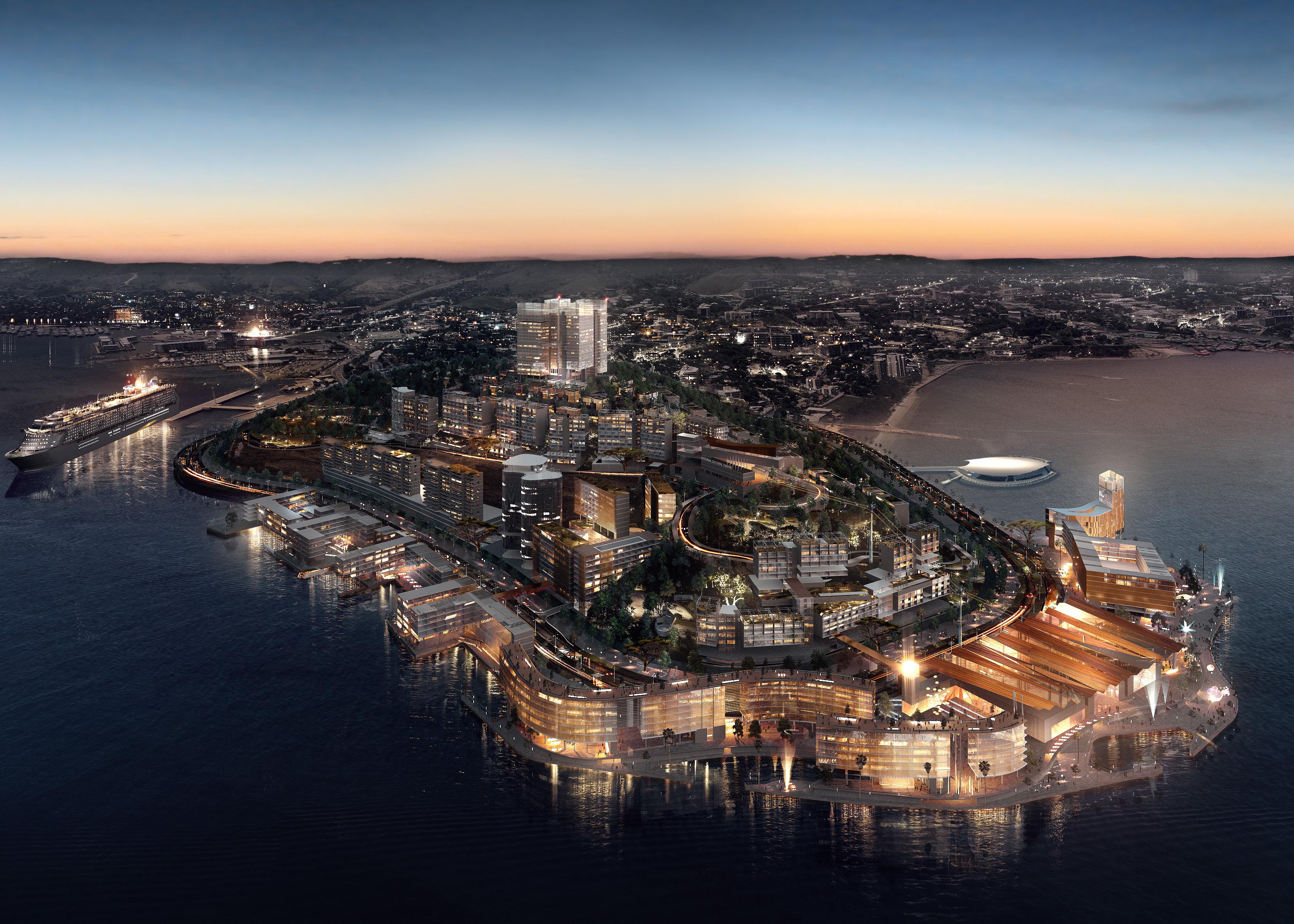

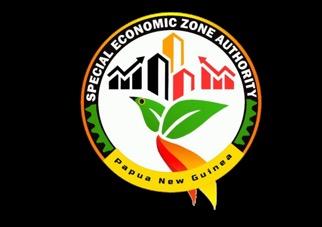
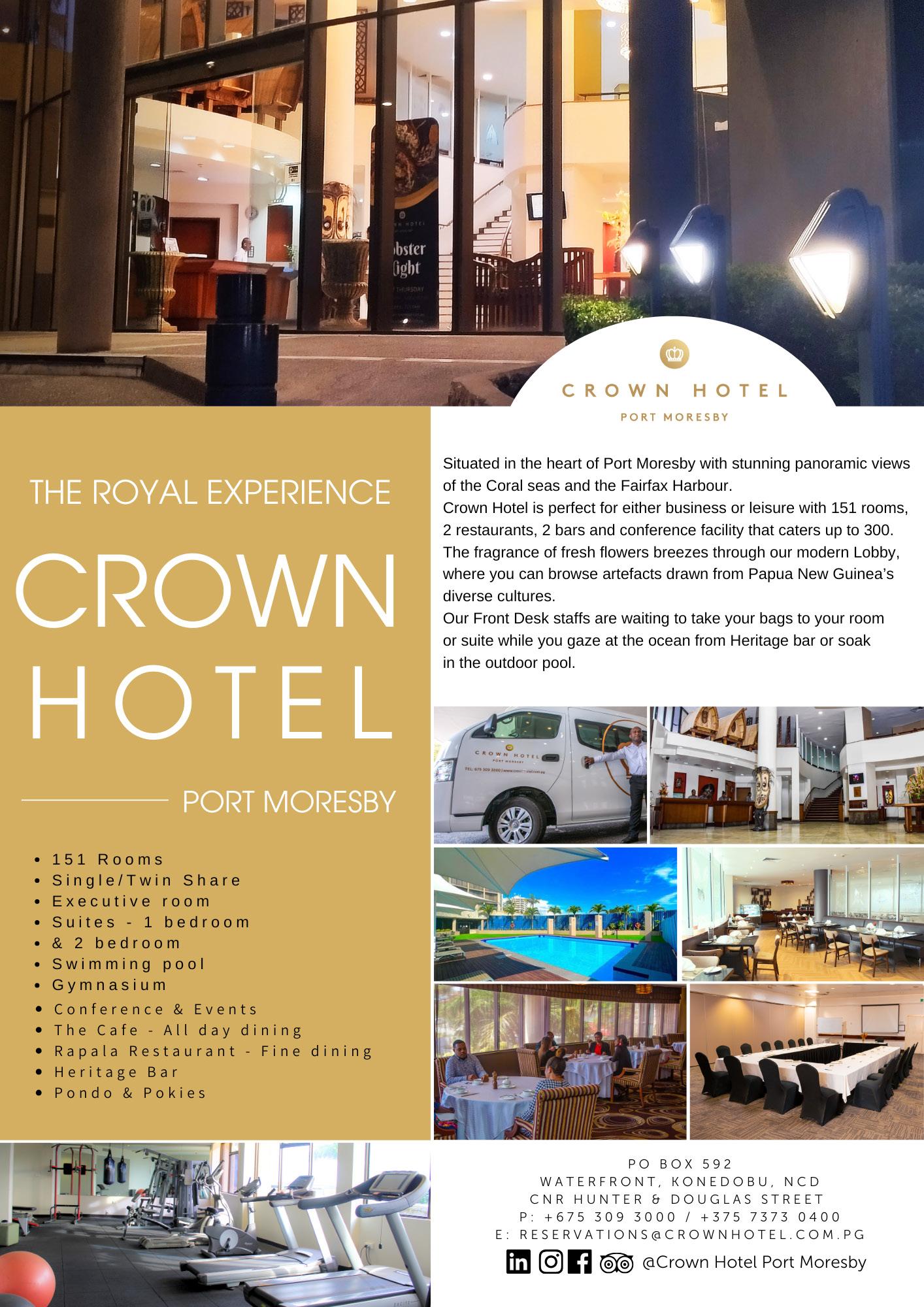

New RIFL GM Evans Shares Aim to Grow Biz in PNG
By: ROSELYN EREHE
Resources & Investment Finance Limited (RIFL) has gained a strong reputation for its fast and flexible finance solutions. RIFL’s new General Manager - Business Development, Russell Evans, has set his eyes on smarter, sustainable finance to empower businesses in Papua New Guinea (PNG).
In an exclusive interview with PNG Business News, Evans shared his vision for driving inclusive financial growth, digital innovation, and ethical lending to unlock economic potential across the country. This core strength is set to evolve further with technological investment and a deeper client-centric approach as customer-centric service -- and is at the heart of RIFL’s promise.
RIFL services range from providing equipment finance for commercial and consumer purposes, including motor vehicles, trucks and earth moving machinery, mining and construction equipment. It also specializes in funding technology assets like information technology and office equipment, software, and telecommunications. The focus is on four core financial aspects:
• Asset Finance
• Insurance Funding
• Financial Leasing
• Personal Loans
“RIFL are looking into web-based solutions for even quicker turnarounds,” Evans explained.
“We are taking more time to understand and work with our clients to build long-term relationships and being the preferred supplier of choice. In turn, this will help us provide quick, bespoke financial solutions. But as our greatest asset is our staff, we continue to invest in continual training and a continuous improvement model.”
He emphasised the importance of face-to-face engagement with a clear commitment to client relationships, which involves taking the time to understand clients’ needs and work with them to create tailored solutions.
“While the lending process is regulated and often document-heavy, once

we have the required paperwork, things move quickly and we pride ourselves on becoming a true extension of our clients’ businesses,” Evans explained.
“Email communication cannot equal the value of meeting clients in person. We pride ourselves on becoming a true extension of our clients’ businesses.”
As the financial services industry undergoes rapid digital transformation, Evans is careful not to lose the human element.
“My focus is on striking the right balance between efficient digital solutions and the personal touch, because sometimes, you just need to speak to someone.”
Evans assumed the General Manager role at a time when financial services are being transformed by technology as he shares the digital strategies he sees as priorities for RIFL.
“Peter Boutcher has done an incredible job leading RIFL to this point, and I’m excited to build on that foundation by leveraging my skills to enhance our digital customer experience. My focus is on striking the right balance between efficient digital solutions and the personal touch because sometimes, you just need to speak to someone. At RIFL, we guarantee that when you call, our team will answer with enthusiasm and be ready to help.”
Evans, a finance executive and CPA, joined RIFL with a conviction
that finance should be a tool for empowerment.
“Through my career in finance, I have always had a passion for making companies perform better, and RIFL offers solutions to solve cashflow limitations through finance.
“RIFL allows companies to take advantage of opportunities with our quick turnaround and truly making a positive difference in helping companies through our financial solutions.”
As RIFL expands in asset finance, a close watch is set on digital transformation, diverse industries, and the rise of green financing. Evans said PNG is the land of opportunity, therefore RIFL is investing in automation and analytics to enhance decision-making and customer experience.
By being open to all industries we aim to stay agile and competitive. Our goal is to offer smarter, faster, and more sustainable finance solutions for both commercial and consumer markets,” he added.
Access to credit remains a barrier for many small and medium enterprises (SMEs) in PNG, a challenge that Evans says RIFL is uniquely positioned to tackle.
“That is exactly where RIFL can make a real difference. We understand that every business has a story, and sometimes it’s not about ticking every box, but about taking the time to listen,” he said.
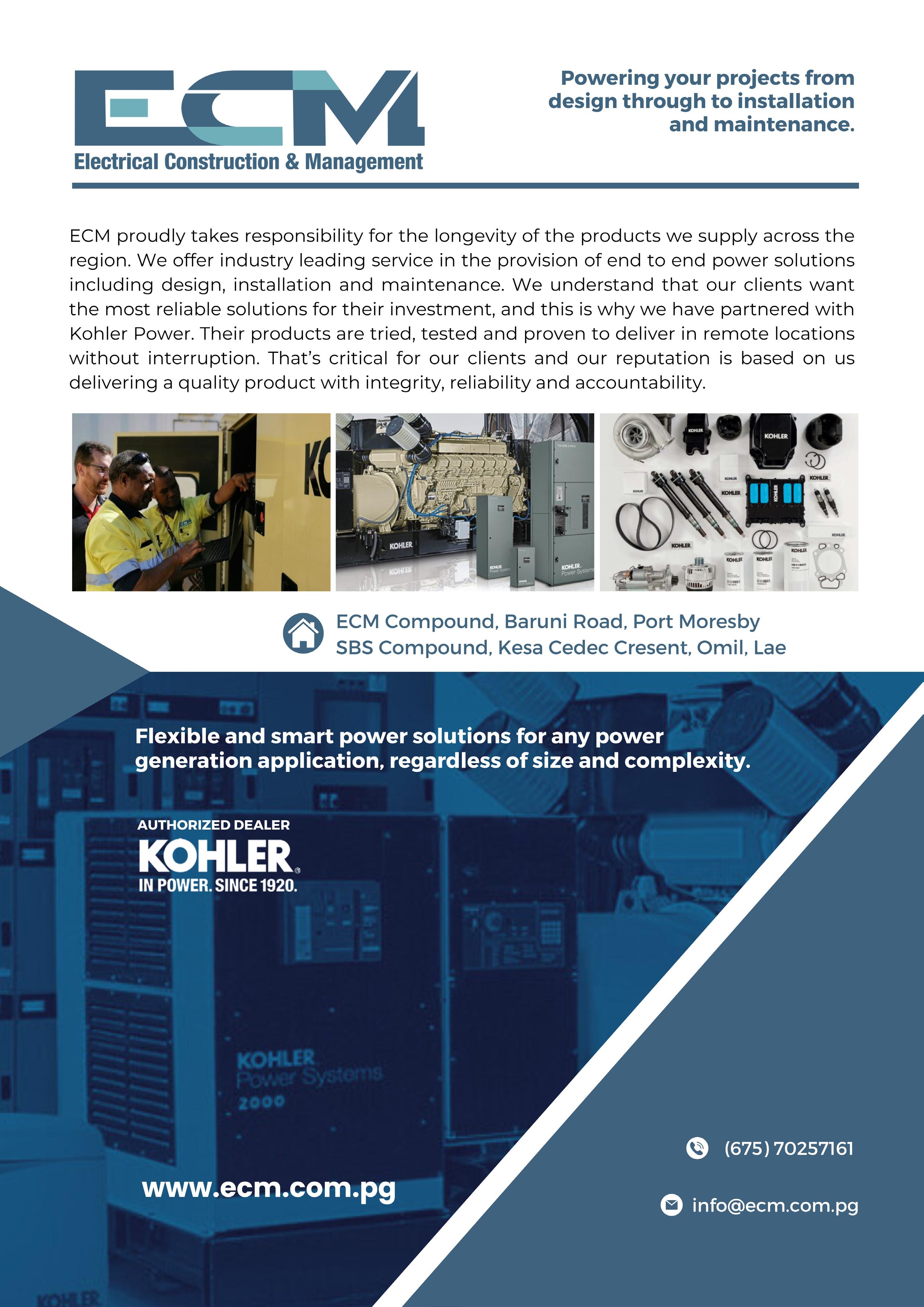
PacSuper had announced the appointment of Chris Hagan as Chief Executive Officer, effective 1 June 2025, succeeding Eric Kramer, who has resigned from the role after leading the organisation through a period of significant change and transition.
Mr Hagan returns to PacSuper with deep superannuation experience, having previously served as CEO of the fund during its time as the Aon Master Trust, giving him unique insight into its heritage and future potential.
Most recently with National Finance, Mr Hagan has held senior roles across the sector in Papua New Guinea, including at JMP Securities
< Page 114
“Our role is to provide practical, well-structured solutions that help SMEs grow, without making the process feel burdensome. When we back a small business, we back it with intent and we work hard to be the finance partner that genuinely understands local needs.”
Evans is passionate about nurturing economic inclusivity, commenting on the importance of RIFL contributing to the nation’s development.
“I’m not here to make a few people rich; I want to help bring up the middle class and help PNG turn from a developing country to a thriving one,” he added.
RIFL’s dual offering of lending and investment solutions allows for holistic financial growth, which is a balance Evans believes more PNG businesses can tap into.
“As a CPA, one of my biggest frustrations is seeing businesses leave cash sitting in the bank earning just 1%, when that money could be working harder in a RIFL term deposit earning up to 6%.”
“Our focus is on helping clients realise that cash is an asset just like a truck or excavator, it should be generating returns. Balancing lending and
and as CEO of the Association of Superannuation Funds of Papua New Guinea.
With nearly three decades of leadership across investment advisory, trustee services, fund administration, fixed income and investment strategy, compliance, governance, and corporate leadership, Mr Hagan is well-positioned to lead PacSuper’s continued evolution and growth on behalf of its members.
Jason McIlvena, Chairman of PacSuper, said: “Chris brings a unique blend of institutional insight, operational experience, and deep knowledge of the superannuation landscape in PNG.”
“We’re pleased to welcome
investment is about education and opportunity, and we’re here to show our clients how they can grow both sides of their balance sheet with us.”
“Cash is an asset, it should be generating returns.”
Evans says the key lies in education and opportunity, and RIFL is here to show how clients can grow both sides of their balance sheet.
He also spoke of the ethical lending and leadership in uncertain times. As financial institutions face greater scrutiny, Evans underscores RIFL’s commitment to ethical practices.
He said: “Growth means nothing if it comes at the cost of integrity. Ethical lending is not just a buzzword, is about making sure finance actually helps and not hinders, a client’s progress.”
“We are not here to push loans, we are here to build long-term relationships based on trust, transparency, and doing what’s right for the customer.”
When it comes to leadership, as the General Manger, Evans leans on three guiding principles: clarity, consistency, and empathy.
“In a sector like finance, where uncertainty is part of the game you need to make decisions quickly, but always with purpose,” he said.
“I believe in being upfront with my team, backing them when it counts, and staying calm under pressure. If
him back to PacSuper at a time of renewed focus and momentum. His understanding of the local market, proven leadership, and strong track record in the superannuation and investment industry make him the right choice to lead us forward.”
The Board also acknowledged the contribution of outgoing CEO Eric Kramer, who has held the role since early 2024, during which time he successfully steered the fund through the transition from Aon to PacSuper.
“We thank Eric for his leadership and commitment during such a pivotal time and wish him all the best in his future endeavours,” McIlvena said.
we can lead with integrity and keep the bigger picture in mind, even tough calls become easier to make.”
Evans’ connection to PNG goes beyond boardrooms. Recalling his time in the cocoa industry, he shared a poignant reflection: “From my previous role at Elliven in Cocoa, some of the most memorable and meaningful conversations I had were not in boardrooms or over email. They were in plantations scattered around your beautiful country, sitting under the shade of a Gliricidia tree, talking cocoa with local farmers. Those moments reminded me that life isn’t just about making money or chasing success.”
“One of the truly special things about the people of PNG is their ability to find happiness and joy, even with what many expatriates might see as very little. It has taught me that wealth means nothing unless it’s earned honestly, with good intentions, and in a way that uplifts those around you.”
For Evans, RIFL is not just a finance company, it’s a platform to build a more equitable and vibrant economy.
“RIFL gives me the opportunity to fulfil my motivation to help grow the middle class and create a thriving PNG,” he said.
More information on RIFL can be accessed on the RIFL LinkedIn Page and the RIFL Website.
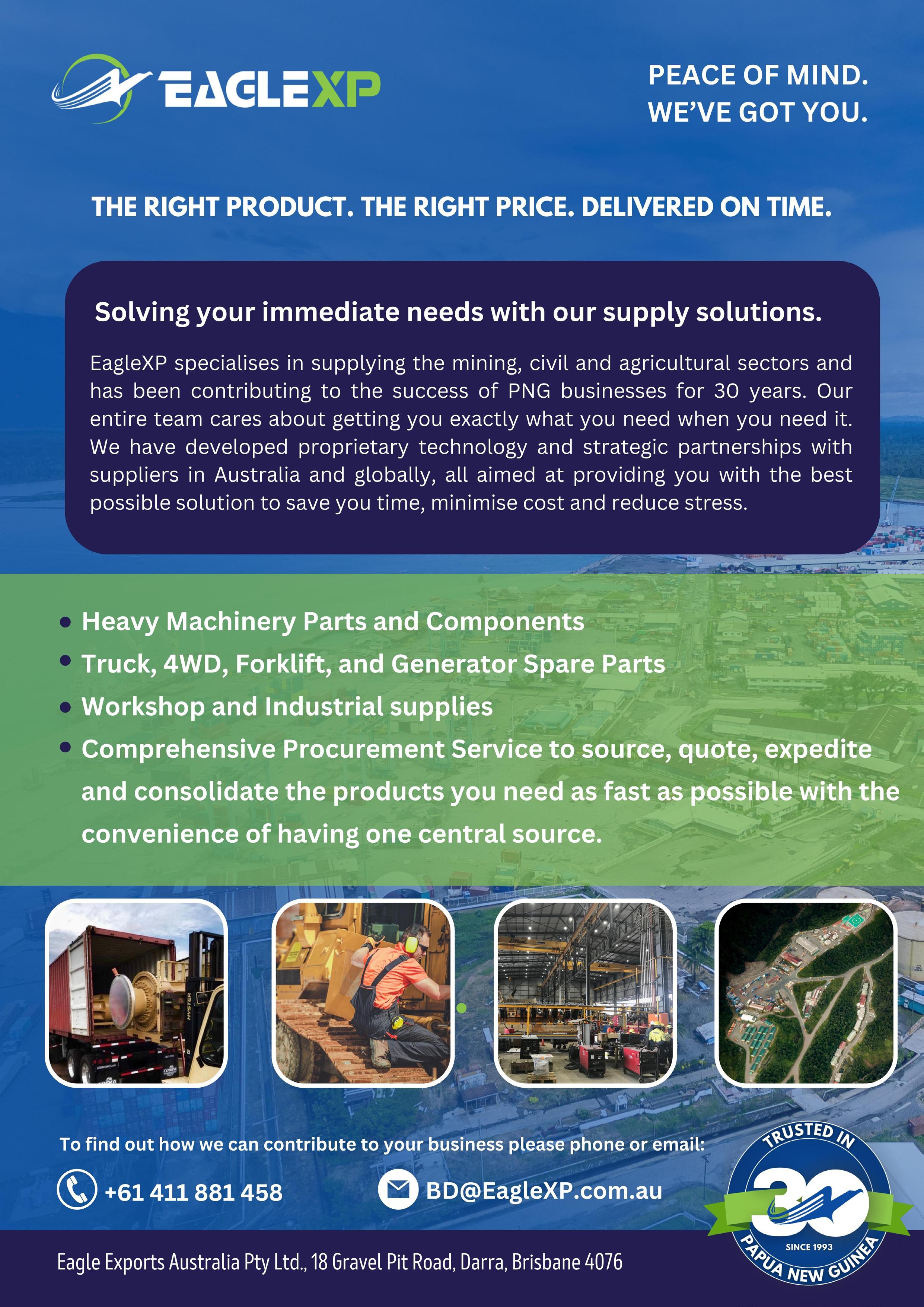
Outlook for May 2025 Notes Eased Forex Pressures, High Investor Confidence
By: ROSELYN EREHE
The Westpac Wailis Papua New Guinea Economic Update and Outlook for May 2025 published on 2 June shows a commodity boom, resource sector investments, and policy reforms are driving optimism amid global trade tensions.
Titled “Optimistic 2025: PNG mostly resolves forex issues, sees favourable commodity prices,” the report shows the outlook for this year remains optimistic with growth expected to reach 4.7 percent, driven by a combination of robust investment activity, improved foreign exchange liquidity, and elevated commodity prices.
This projection aligns closely with the International Monetary Fund’s (IMF) own upgraded forecast of 4.6% for PNG, reflecting strong economic momentum from 2024 and the successful implementation of key fiscal and structural reforms.
The sharp reduction in foreign exchange backlogs, which previously delayed payments to offshore suppliers for months, was noted in the report, as Westpac says some orders are now being cleared in less than a week, thanks to coordinated policy actions by the Bank of PNG (BPNG), a managed 15% depreciation of the Kina over five years, and inflows from high commodity export revenues.
The Kina Facility Rate (KFR) has remained unchanged at 4.0% since March 2025. In a surprise move, BPNG reduced the cash reserve requirement to 11%, effectively increasing liquidity in the financial system. Although inflation risks remain, this policy stance has helped sustain business sentiment while ensuring adequate foreign currency access.
Commodity prices continue to play a pivotal role in PNG’s economic trajectory, with several key products that have performed strongly as listed: • Coffee: Prices surged due to adverse weather globally. Despite a 28% drop in PNG’s export volumes (from 57,900 tonnes in 2023 to 41,600 tonnes in 2024), high prices have supported incomes. Advocates are calling for renewed investment in coffee plantations to rebuild capacity.
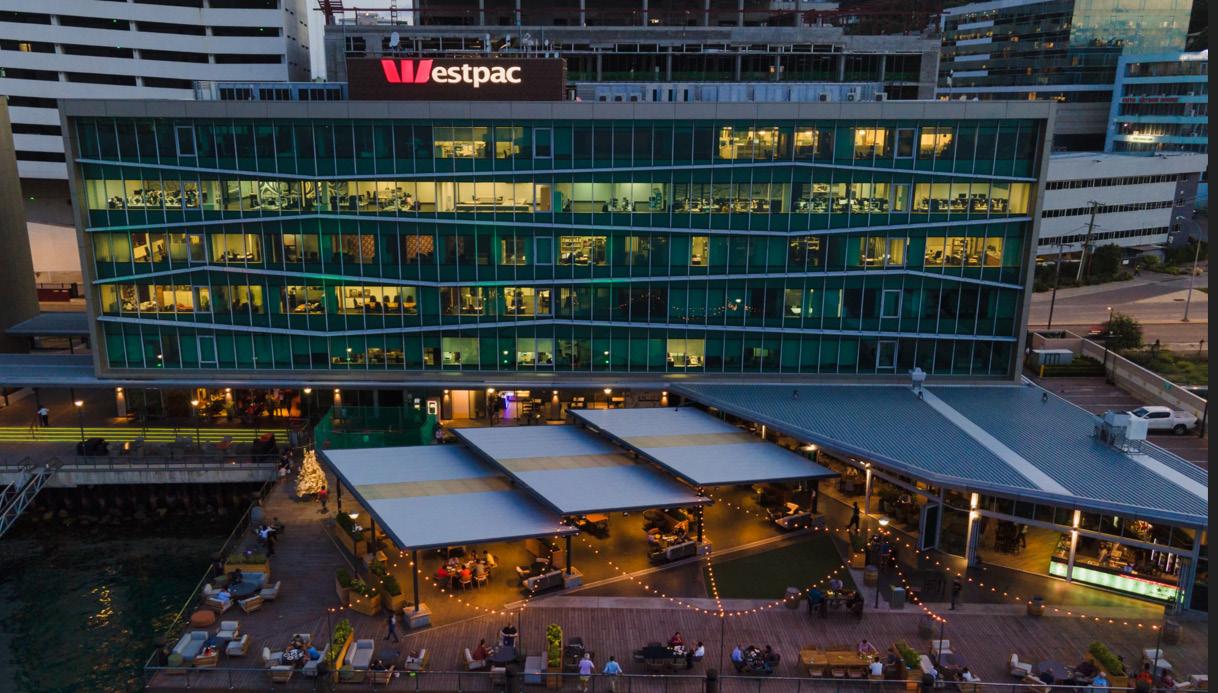
• Cocoa: PNG exported 39,800 tonnes in 2024, up 3.4% from 2023. Although global supply remains tight, improving weather in West Africa may support more stable prices in the medium term.
• Coconut oil: The El Niño effect slashed global supply by 10%, pushing prices past US$2,700/metric ton, nearly double last year’s prices. PNG, which contributes around 0.05 million metric tons annually, stands to benefit greatly from this price spike.
• Gold: PNG gold exports surged 49.7% to K13.6 billion in 2024, buoyed by increased output at the reopened Porgera mine and global price volatility following U.S. trade policies. Gold briefly hit US$3,400/ oz and is expected to remain elevated.
• LNG: While total liquefied natural gas exports fell slightly from K20.6 billion (2023) to K19.6 billion (2024) due to softer prices, demand remains strong. The outlook remains positive with PNG well-placed to capitalise on its role as a transition energy provider amid global decarbonisation.
• OK Tedi Acquires Misima Gold and Silver Project
Ok Tedi Mining Limited has acquired the Misima Gold and Silver Project from Kingston Resources for A$60 million, with potential contingent payments of up to A$35 million.
The project holds 3.8 million ounces of gold and 22.1 million ounces of silver in reserves. Mining ceased in 2004, and restarting the project could require over US$476 million, as estimated in 2022.
OK Tedi, which posted a K1.9 billion turnover and K681 million net profit in Q1 2025, is well-positioned to fund the project. Kingston retains royalty rights from any future production.
• Papua LNG Edging Closer to Final Investment Decision
The long-anticipated Papua LNG project, led by TotalEnergies in partnership with ExxonMobil and Santos, is nearing its Final Investment Decision (FID), now expected by late 2025 or early 2026. The project, based on the Elk-Antelope fields, plans to produce 5.6 million tonnes annually, co-locating its infrastructure with PNG LNG’s existing assets. Cost estimates have ballooned from US$10 billion to up to US$18 billion, necessitating further cost optimisations. If successful, first LNG production is anticipated by late 2027 or early 2028, significantly enhancing foreign investment and easing forex pressure.
According to the report, inflation remains a concern, driven in part by the PNG Kina’s depreciation, which has increased import costs for essential items like fuel and food.
PNG’s inflation rate rose to 0.67%
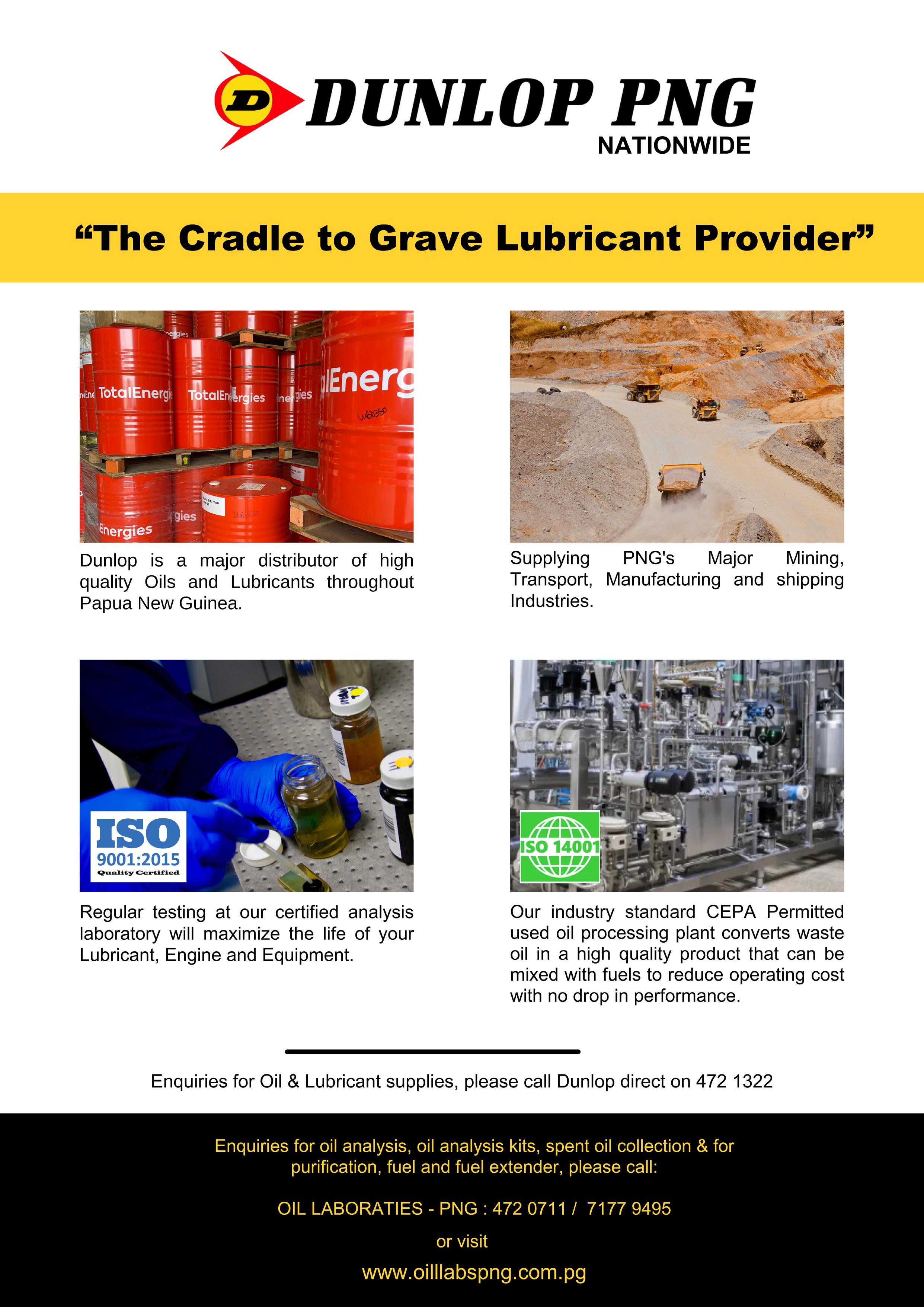
in Q4 2024, up from -0.86% in the previous quarter. March 2025 inflation data is still pending, prompting BPNG to adopt a cautious “wait and see” approach.
Recent Monetary Policy Committee (MPC) minutes revealed a split vote on raising interest rates, with growing support for monetary tightening once updated inflation data becomes available.
Encouragingly, foreign exchange reserves have stabilised at K14.2 billion (US$3.6 billion) as of December 2024, boosting macroeconomic confidence.
The financial sector has shown signs of investor interest beginning with April’s Treasury Bill auction, which saw K251.4 million offered, with successful bids totaling K180.7 million. The 273-day bills were oversubscribed, indicating investor preference for midto-long-term investments.
A Government Bond auction in May received K197.1 million in bids against a K200 million offer, with a strong oversubscription for 10-year bonds which is a signal of confidence
in PNG’s long-term financial outlook. The Central Bank Bill auction in May attracted K638 million in bids for the 7-day term alone, all of which were fully allotted at a 4.00% yield.
The Westpac report notes the PGK/ USD exchange rate declined from 0.2463 to 0.2440 in May, consistent with BPNG’s managed depreciation policy. Westpac forecasts a gradual stabilisation:
• Q2 2025: 0.2405
• Q1 2026: 0.2450
• Q1 2027: 0.2650
Other key rates (June 2025 estimates):
• PGK/AUD: 0.3879
• PGK/NZD: 0.4326
• PGK/EUR: 0.2186
• PGK/JPY: 34.87
The inauguration of American President Donald Trump for a second term and subsequent “Liberation Day” tariffs disrupted international trade, weakened the United States dollar,
and introduced geopolitical uncertainty. However, PNG’s direct exposure to the US remains low at just 1% of PNG’s exports in 2023 which limits direct impact.
Meanwhile, strong demand from China and India, along with elevated commodity prices, continues to support PNG’s external position.
Westpac concludes that PNG is well-positioned to exceed its 4.7% growth forecast, possibly nearing China’s 5% target, especially if momentum in the resource sector continues and infrastructure investment expands.
The Opportunities stated in the report are that PNG’s near-term outlook is boosted by high coffee and cocoa prices, while a thriving real estate sector remains an ongoing opportunity.
Unexploited opportunities in telecommunications and real estate offer long-term growth potential, the report adds, as only one-third of PNG’s population is connected to telecommunications and just 25% connected to the internet. Expanding digital infrastructure could unlock a new wave of inclusive development, it added.
By: ROSELYN EREHE
In a region where digital transformation is both a challenge and an opportunity, global payments leader Visa is actively working to bridge the financial gap through inclusive innovation.
In the recent Innovation PNG Conference 2025 in Port Moresby, Visa Country Manager for New Zealand and the Pacific Islands Anthony Watson revealed an ambitious 2030 vision to drive further economic growth in Papua New Guinea.
The vision, Watson said, complements the PNG Government’s goal to connect 70 percent of the population to the internet by 2030.
Visa “supports economic growth in mining, agricultural, forestry and fishing sectors which rely on foreign trade,” he said.
“These are the sectors PNG has a strong reliance on in foreign trade. Therefore, by offering a secure digital payment solution that is reliable and
fast to move funds between consumers, businesses and government agencies, Visa supports PNG in foreign trade,” he added.
Visa plans to introduce new, lowcost, mobile-based services that help sellers get paid quickly and safely, secure eCommerce services, and enable international money movement for foreign trade services.
To support this vision, strong fraud protection will be critical. In a media release, Visa revealed global investments of over $10 billion over the last five years into technology and innovation to reduce fraud and increase network security.
“This advanced technology, including AI-driven fraud prevention tools, will be critical in protecting PNG consumers against sophisticated threats,” it said.
In an exclusive interview with PNG Business News, Watson shared his strategic vision for Papua New Guinea
and the broader Pacific market, painting a compelling picture of a region on the cusp of rapid financial evolution.
Anthony has been with Visa for 15 years, starting in Melbourne, Australia back in 2009. He has held senior roles across Client Services, Product, Sales and Strategy working in several countries in Asia Pacific.
With a background in product development, risk, and digital business operations, Watson has a passion for supporting tech entrepreneurs in developing new businesses models that help support growth in digital commerce and access to financial services.
Visa continues to explore opportunities and partnerships in PNG and the wider Pacific region, the Country Manager said.
“The message is clear: a collaborative, forward-thinking, and inclusive digital payments ecosystem is not just a vision, it’s a mission in motion,” he added.
With a team of local experts and an extensive network across the globe, we offer comprehensive logistics support. Whether you need to move cargo across continents or within the region, we ensure your goods get where they need to be.
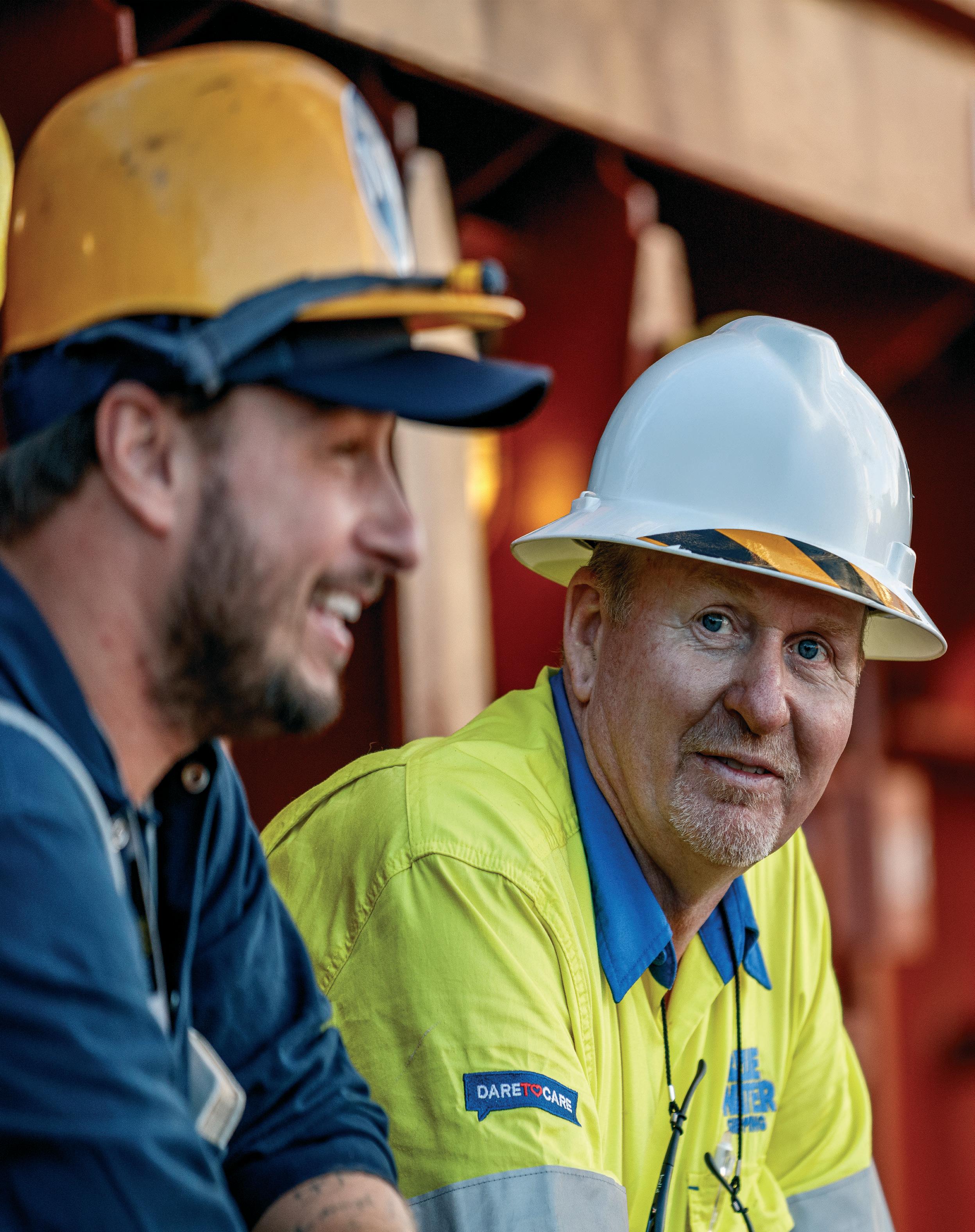
End to end project logistics solutions
Freight forwarding via road, ocean & air
Strategic consolidation & warehousing hubs
Freight all kinds (FAK) shipped under a single rate
Fast & compliant in-house customs brokerage
Dedicated charter of vessels to Lihir
Transport engineering for complex logistics
Contact our local experts in Papua New Guinea
Tel: +675 7153 8640
Email: lae@bws.net
“My role as Country Manager is to develop and execute the market strategies we have. I’m also in charge of our business operations and provide leadership to our team across the markets in which we operate.”
Watson acknowledged the complexity and opportunity in the local market.
“Visa operates in over 200 countries globally. So, we are a very inclusive organisation, taking the needs and considerations of local markets into the types of products and solutions that we’ve developed,” he said, while highlighting PNG’s unique geographic diversity and the variety of communities that necessitates tailored approaches.
“Our observations have been, there has been a growing population adopting more of mobile technologies, meaning e-wallets become quite interesting. The adoption of internet banking has been strong,” he said, emphasizing the need for small businesses to move away from cash handling.
“Businesses really need to look and see the trends that are occurring globally are moving much more to digital capabilities, including online. Even just the fundamental faceto-face transaction... being able to transact digitally is going to be really important, as we think about the behaviours that are shifting as the younger generation starts to come through.”
On the role of innovation and financial technology (FinTech) start-ups in PNG’s evolving payments landscape, “there is so much opportunity,” Watson said.
“Particularly as we start to see more of the new technology that’s out there converging with payments. That creates an interesting dynamic for start-ups, FinTechs, or young entrepreneurs who are looking at opportunities across the country to solve some fundamental challenges,” he said.
These opportunities extend beyond just small business support, Watson pointed out. He expressed optimism for the FinTech landscape in PNG, but acknowledged that challenges remain.
“It cuts across new consumer experiences, local governments; what they’re doing in terms of disburse-
ments and collections, and even large opportunities like cross-border payments.
“There’s still a lot of work to be done. But being able to pick up those global trends and apply them in a relevant local context is going to be important,” he added.
Asked what innovations in the digital payment space excite him the most, Watson didn’t hesitate to answer: “First would be mobile.”
“I’m very excited when we think about PNG’s growth and adoption that’s occurring across mobile infra structure. I can see an enormous adop tion starting to occur over the next decade, particularly on smartphone infrastructure.”
He also highlighted the potential of a digital identity as a “transfor mative element” and emphasized the need to support small and mi cro-businesses.
“Where we start to look at digital identity becoming an underlying credential that payments link to for authentication, online shopping, and a bunch of different use cases, that certainly excites me,” he said.
“Solving for the small merchant challenge, how they can collect funds efficiently using low-cost technolo gy, particularly mobile-oriented, is critically important. We have several solutions already deployed globally that we believe are very relevant to the local market context.”
With experience leading Visa opera tions in multiple countries, Watson was asked how PNG compares in terms of digital payment evolution.
“Firstly, it’s really difficult to always compare one country specifically to others... They’re all vastly different,” he explained. “But I also see a lot of similarities.”
“Sometimes we overestimate what we can achieve in 12 months, yet we underestimate what we can achieve in 5 to 10. That is an important context when we think about PNG.
“It’s not just about looking at the near-term opportunities; it’s a bit of a marathon. The type of solutions we bring into the market must reflect that.”
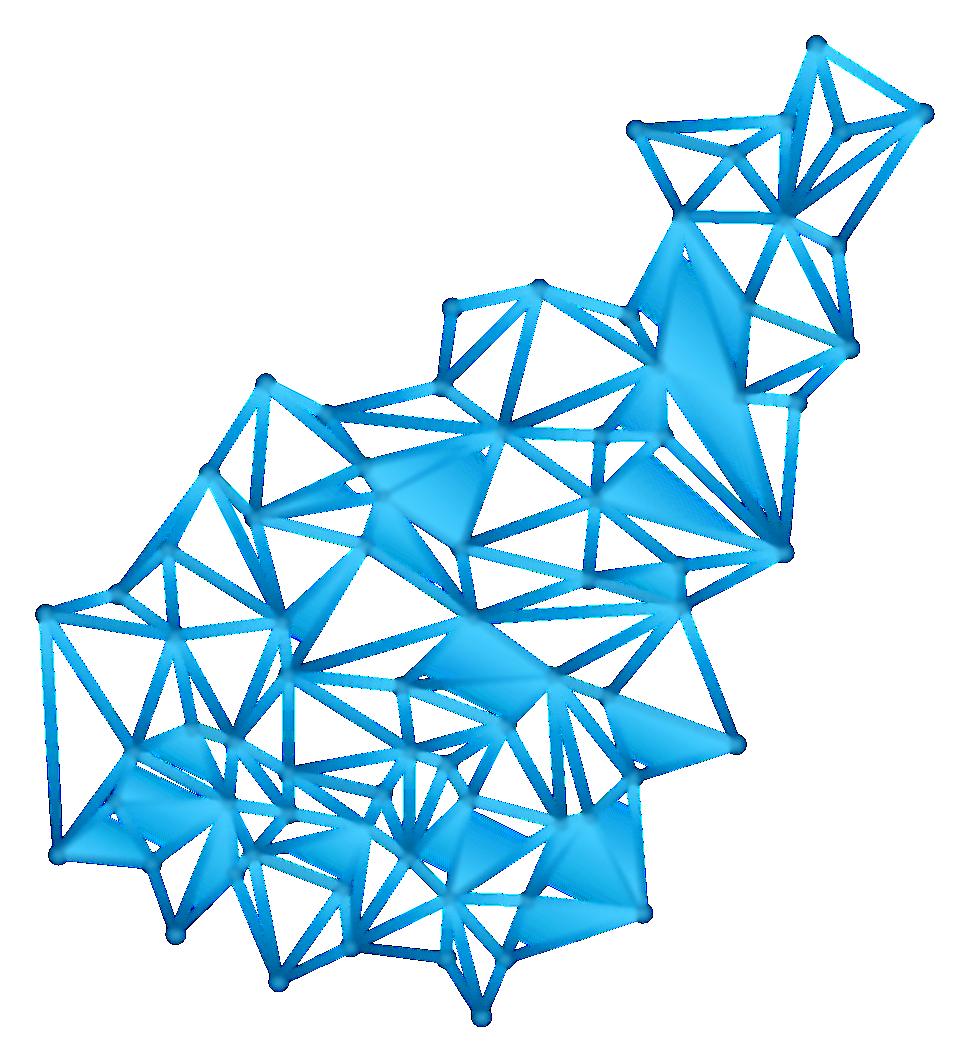
UNMATCHED
ICT CONSULTING
IT Strategic Review
IT Audits
IT Health Checks
Solution Design
Cyber Security
PEN Test, PCI DSS
ISO 27001 Info Security
Project Management
SUPPORT SERVICES
IT Service Desk
IT Systems Break-fix
Warranty Services
Spare Parts
Back-fill Support
Managed Services
Off-site Backup Storage
INFRASTRUCTURE
Cabling & Power
HCI Server & Storage
Virtualisation
Comms & Networking
CCTV / Access Control
Network Security
Customised DC, Micro DC
Solar Micro Power Grids
INTERNET & DATA CENTER
Internet-Home / Corporate
Metro Area Ethernet
Cloud Solutions
Hosting / Filtering
DR-Physical / Virtual
Co-location
BCP Suite
OFFICE AUTOMATION
Print / Scan / Copy
Document Management
Document Digitization
ID Card Solutions
Digital Duplicators
Digital Archiving
DATEC LEARNING CENTRES
Academic Diploma Programs
Professional Diploma Programs
Professional / Soft Skills
Personal Development
Pearson / PSI Testing Center
eLearning / Online-Live
PMI / Scrum / ITIL Training
SOFTWARE SOLUTIONS
Software Development
Software Licensing
Oracle DBA Services
BI/Dashboard Reporting
Website / Mobile Apps
HR & Asset Management
Internal Audit System
Banking, Lending & Insurance Applications
RETAIL SHOP
PCs, Laptops, Tablets
Printers, Scanners, POS
Antivirus, Adobe Suite
MS Office Applications
Mobile Phones / Topup Cards
Smart Watches / Cameras
Consumables / Accessories
AV & Commercial Display

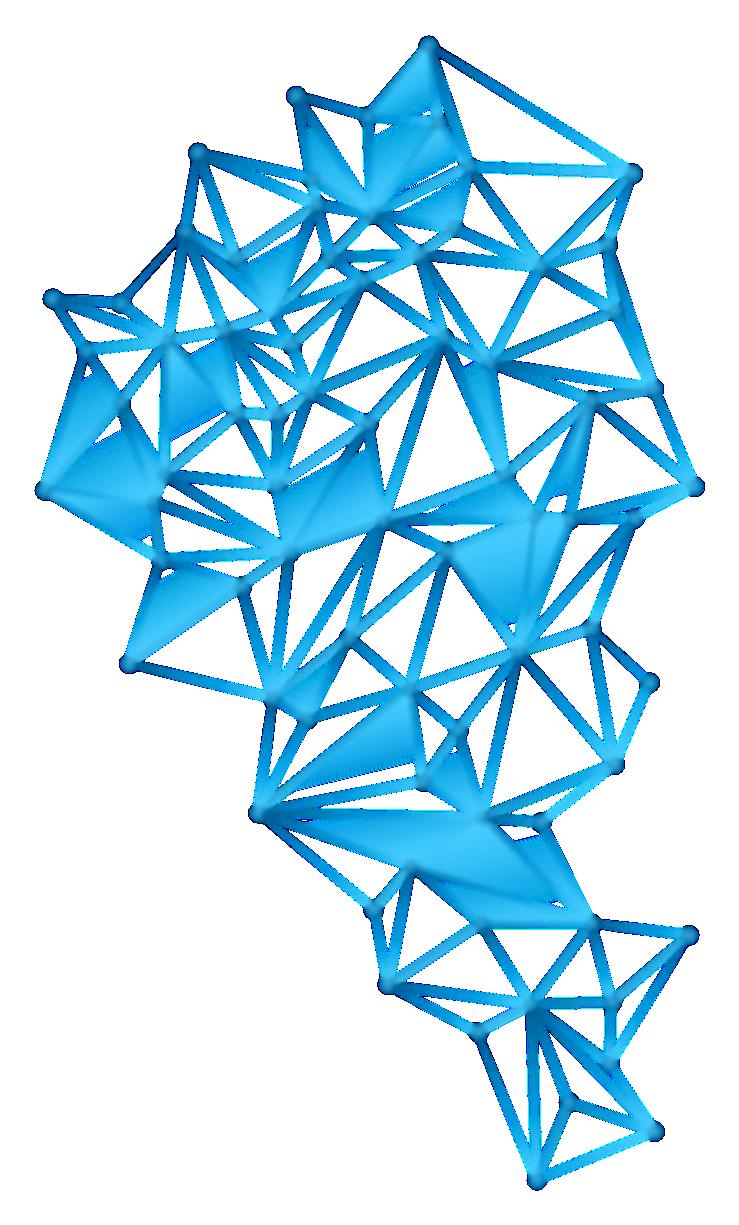

By: ROSELYN EREHE
Kundu Finance, one of Papua New Guinea’s newest but fastest growing financial institutions, is setting a new standard in responsible lending, one that blends cultural identity, innovation, and a people-first approach.
Recognizing the daily demands of the modern workforce, Kundu Finance offers online loan applications that allow clients to apply from anywhere even during working hours. This digital convenience removes the need to visit a branch, making the process faster and more efficient. It’s especially helpful for employees and their Human Resource teams, as it reduces disruption to business operations and enables financial support without leaving the workplace.
In a country crowded with financial institutions, Kundu Finance stands apart with a philosophy deeply rooted in PNG culture and community responsibility. What makes them unique? Their focus on responsible lending, a value that informs everything from client relationships to loan approvals.
Kundu offers accessible and reliable financial services, even while you’re at work. This saves time and the cost of travel to Port Moresby for those in other provinces. Kundu Finance aims to reach workforces in Mining, Petroleum, Agriculture, Education, Health, Business, and the Public Sector across PNG.
In an exclusive interview with PNG Business News, CEO Benjamin Wong shared,
“Our goal is simple: help people within their means. We are not here to burden them with large debts. We want them to grow with us.”
The “Kundu” in Kundu Finance is more than just a name, it is a symbol of PNG’s identity and tradition. The kundu drum, an iconic instrument used in storytelling and cultural expression, lies at the heart of the company’s brand.
“Our slogan is ‘Our Drumbeat,
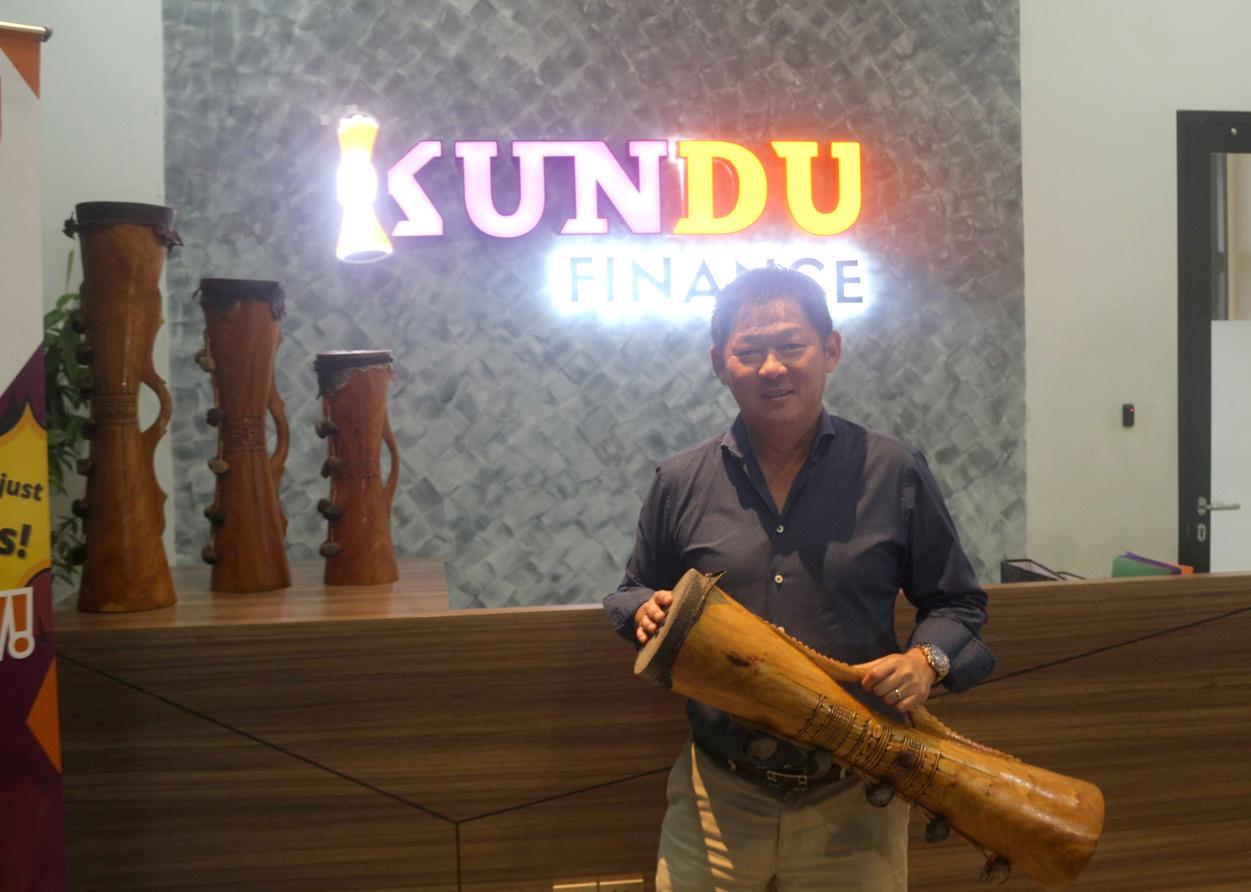
Our Stories, Our Future…’ It reflects the stories of our clients, our journey, and our future with Papua New Guinea. We are not just a financial institution, we are part of the community,” Mr Wong explained.
“Our vision is to be an innovative financial service provider with a strong sense of community responsibility. Every decision, from how much to lend, to how we advise, is based on transparency and empathy.”
Kundu Finance is not just processing loans, it is /transforming lives. Mr. Wong shared stories that illustrate the company is unique, client-first approach:
• A truck driver, already in debt, applied for a second loan to build a home on customary land. Instead of approving the loan blindly, Kundu advised him to wait, recognizing that additional debt would strain his income.
“We didn’t make money off him
that day, but we gained a longterm client who trusts us.”
• A health worker from Western Province, stranded in Port Moresby due to medical reasons, approached Kundu for assistance to return home.
“We saw the urgency and helped her. To this day, she visits our office just to say hello. That is a connection money cannot buy.”
• An education officer, misled by high-interest loans from other lenders, was guided by Kundu to repay faster and save on interest.
“No one had ever explained it to him before. He walked away financially smarter—and loyal.”
• A public servant with a poor credit history and school fee obligations was coached to borrow a realistic amount.
“Now he has repaid part of his loan and is proud of being a responsible borrower,” Mr Wong added, beaming.
Though incorporated in 2018,
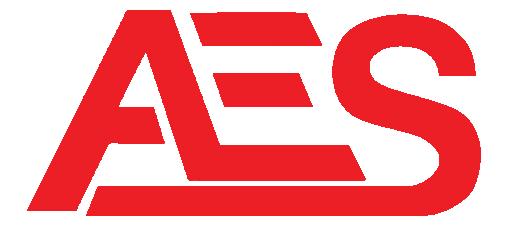
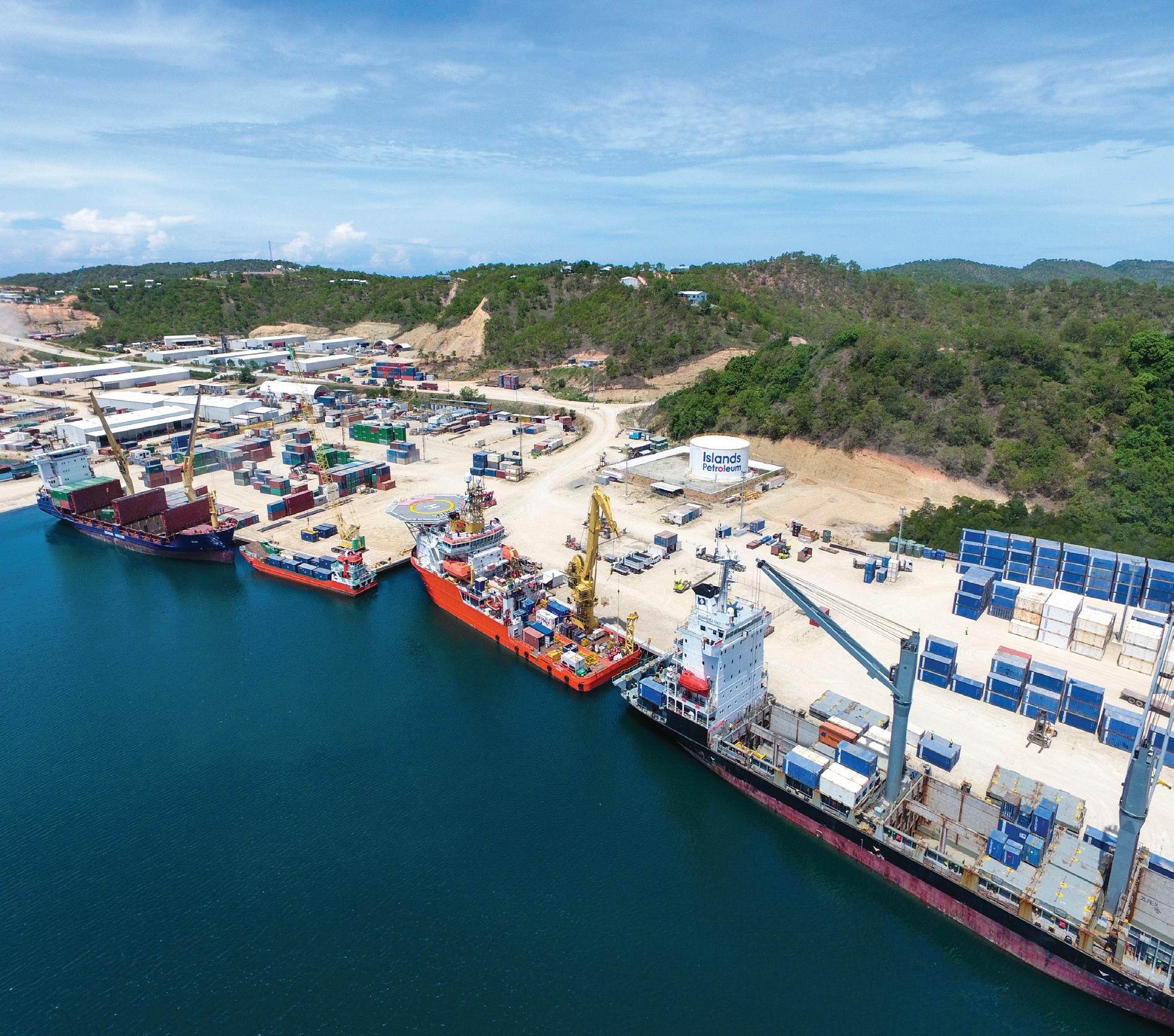
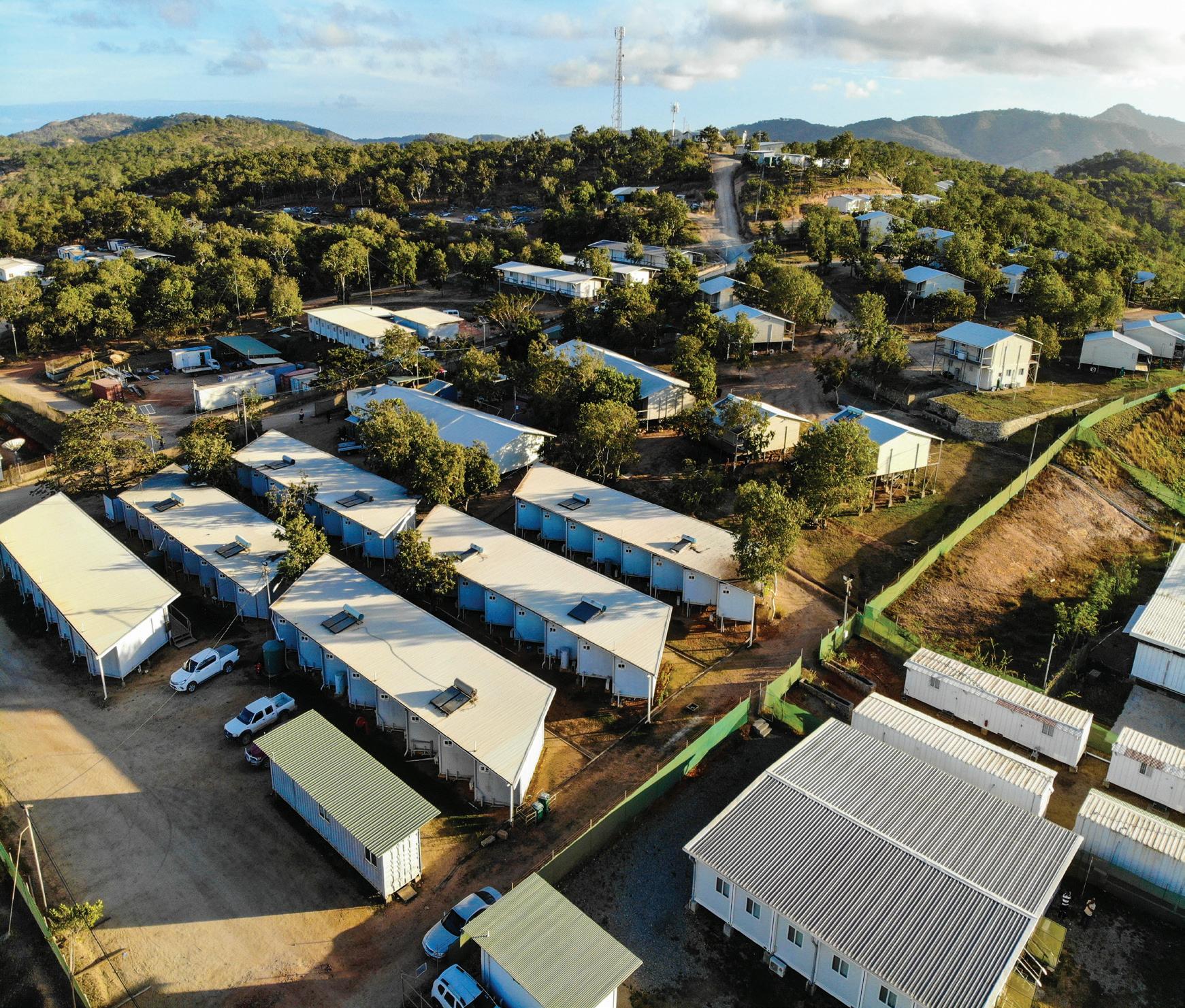



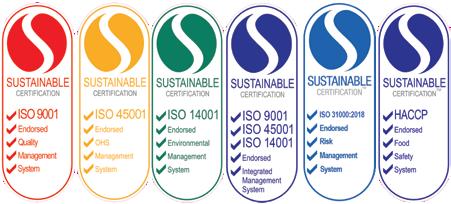
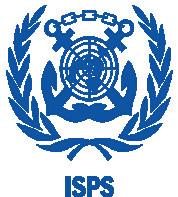
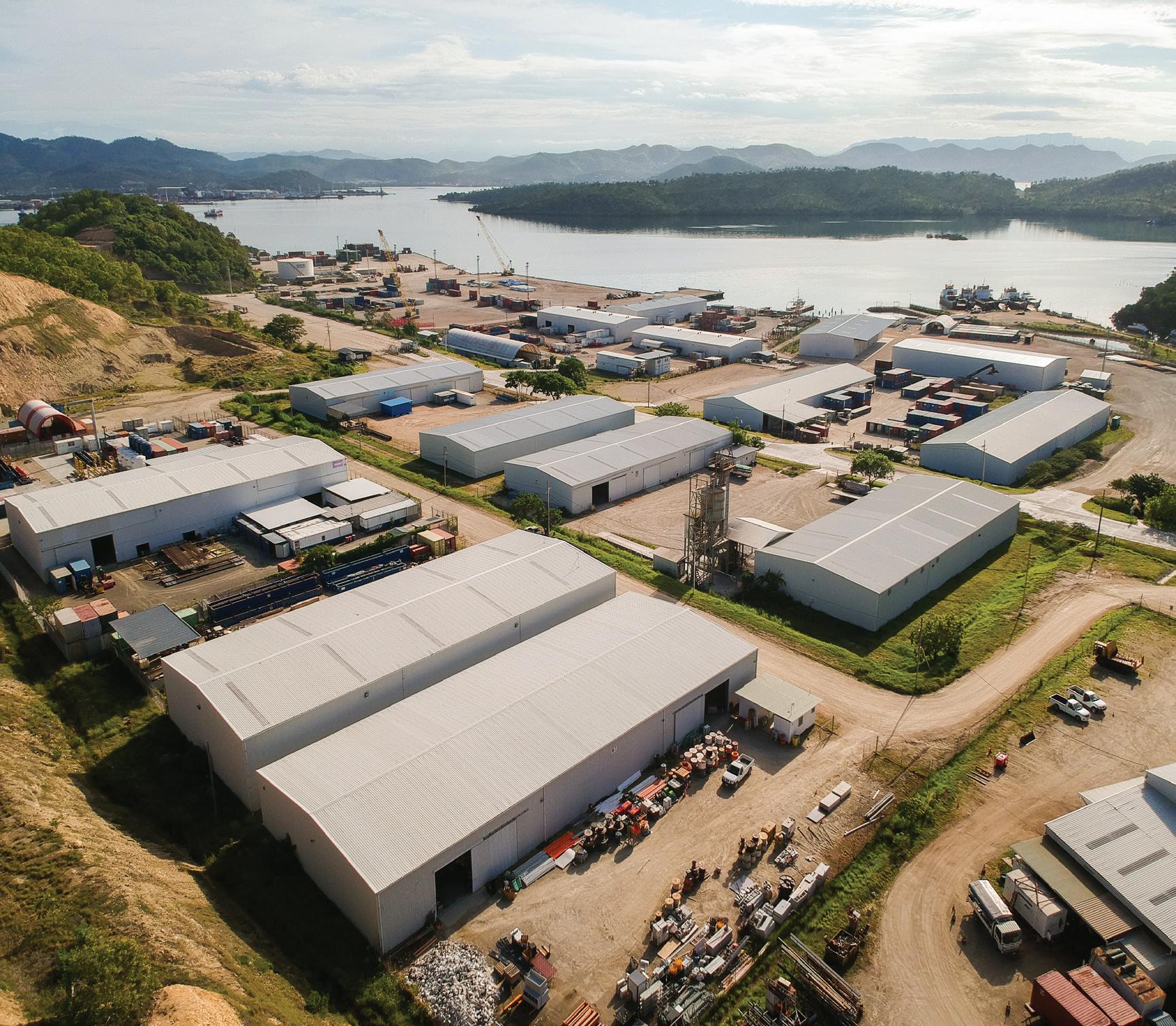
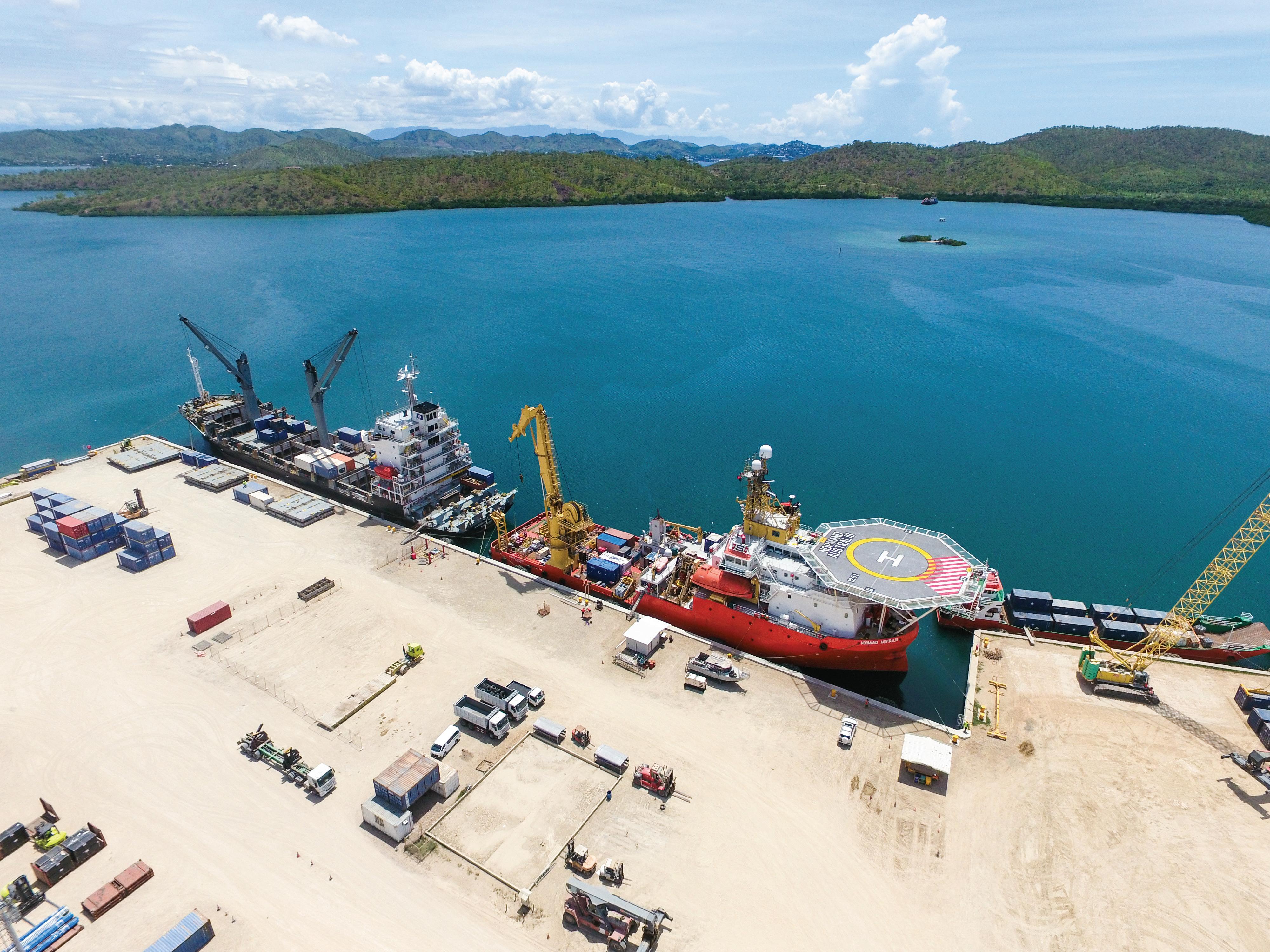
Kundu Finance officially began operations in late 2024. In less than a year, it has amassed over 2,000 clients, an impressive feat for a new entrant. Its rapid growth reflects the power of word-of-mouth and client satisfaction.
Kundu Finance is also the first in PNG to operate a cloud-based loan management system, hosted on Microsoft Azure. This ensures speed, security, and scalability.
“We chose the cloud for its top-tier security and flexibility. Cyber threats in PNG are real, so protecting our clients’ data is non-negotiable.”
The cloud also enables efficient nationwide service delivery, positioning Kundu well for national expansion.
With a tiered client approach and a streamlined process, Kundu offers fast loan approvals.
“We can’t always promise 24hour turnaround, but for priority clients especially in government departments and corporate payroll systems, we strive for sameday disbursements,” Mr Wong confirmed.
The company partners with employers to process salary-deducted loan repayments, simplifying access for employees. We encourage HR departments to work with us to make financing easier and more efficient for their staff.
Unlike many lenders, Kundu treats financial literacy as a core responsibility.
“Why do we run financial literacy programs? Because financially literate clients are better clients. We teach them to plan, manage debt, and borrow responsibly. We want to create a financially strong PNG not just grow our loan book.”
This educational approach will inform future products, such as savings accounts, asset financing, and housing loans.
Currently operating from Port Moresby, Kundu is preparing
to open a back-office sales and finance center in Waigani and plans to open a branch in another province by early next year.
Over the next three to five years, Kundu plans a gradual national rollout, prioritizing areas with the strongest demand.
“Our biggest challenge is unrealistic borrowing expectations. Many want more than they can repay. Changing that mindset takes time and trust.”
Still, the CEO’s proudest achievement is his team.
“The proudest thing? Building a team that shows up every day with
integrity and care. We call it the Kundu way.”
Mr. Wong ended his interview saying,
“I treat everyone with respect staff, clients, partners regardless of background or title. We are building something not just about money, but about people. Something that lasts.”
Kundu Finance is more than a lender. It is a movement with cultural roots, innovative technology, and a deep focus on client wellbeing.
A new beat in PNG’s financial rhythm.
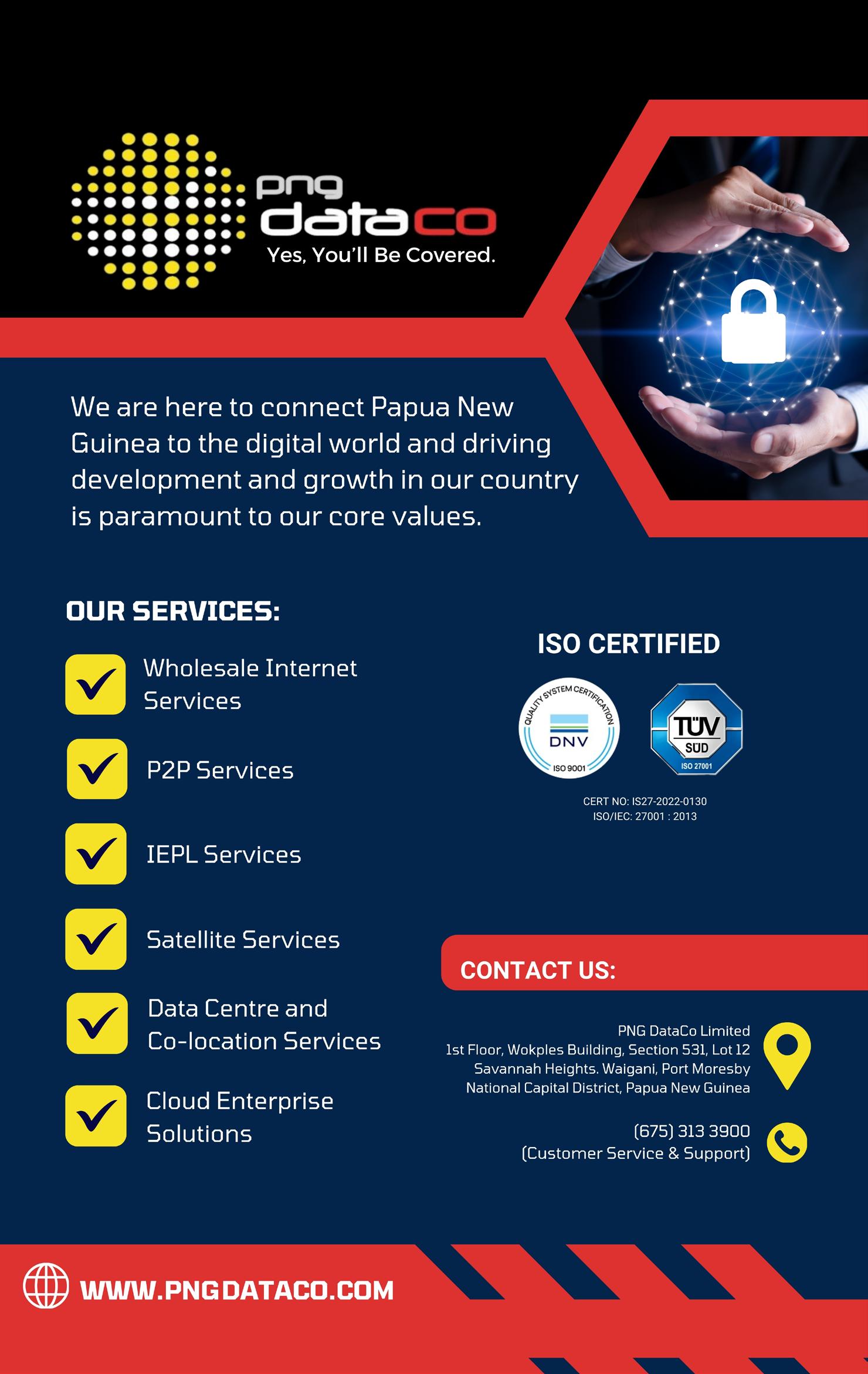


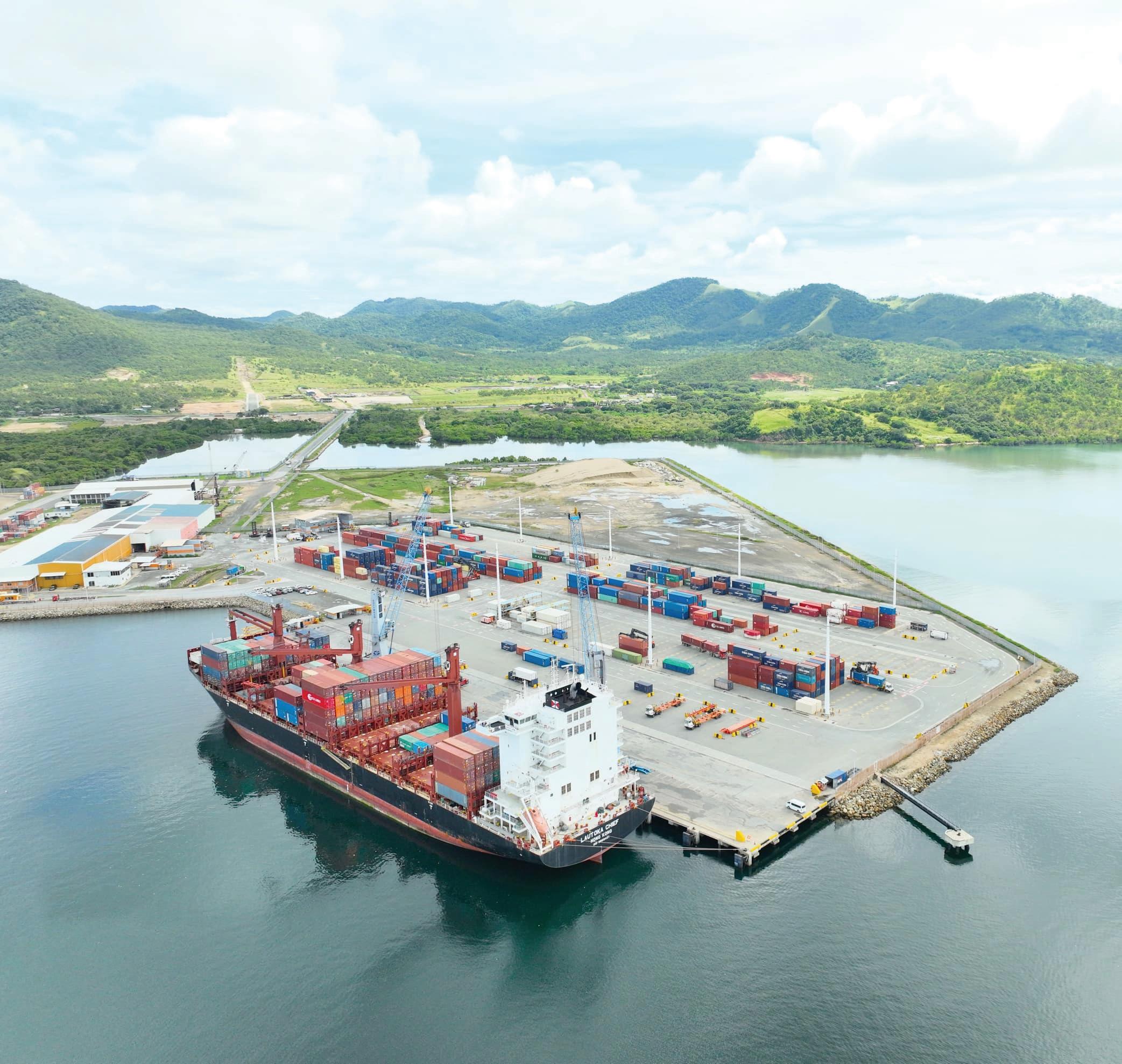
PNG Ports owns and manages a network of 15 ports scattered throughout Papua New Guinea.
Our port network includes the largest and most economically significant ports of Lae and Port Moresby – the nation’s two efficient and expertly operated international trade gateways
Also part of our network, are many smaller and far-flung ports central to the livelihoods, development and connectedness of remote communities.
Port Services: Berthage & Wharfage
Harbour Management: Regulatory oversight Pilotage: Nationwide (‘24/7’ & ‘365’)
Commercial & Industrial Property: Hundreds of hectares of prime waterfront land, buildings & port infrastructure
For six decades, the PNG Institute of Banking & Business Management (IBBM) has stood at the forefront of professional development and business education in Papua New Guinea.
From the institution’s humble beginnings to becoming the nation’s premiere leadership and training institution, IBBM has continuously evolved to meet the needs of PNG’s people, industries, and the economy.
IBBM celebrated this milestone alongside their 71st graduation ceremony on 30th May 2025. CEO Ms Susil Nelson Kongoi said during her speech: “This Diamond Jubilee is more than a celebration of longevity – it is reaffirmation of our commitment to shaping future-ready leaders and contributing meaningfully to the nation’s progress.”
With Papua New Guinea celebrating its 50 years of independence, institutions like IBBM have been producing leaders that have shaped PNG’s last 50 years and are now ready for the next 50 years.
The keynote address by Ms. Winnie Kiap CBE highlighted the need for quality education in shaping Papua New Guinea’s future.
“The foundation of every state is the education of its youth -- so as an aspect of statecraft, education is an old craft. It is for us to acknowledge its relevance to life and progress and that is what IBBM is doing - empowering agents of good governance, justice and progress,” Ms Kiap said.
She reminded the audience that the root of PNG’s strength “lies in knowledge, unity and the unshakable belief that education is a nation-building force.”
The inspirational address by IBBM’s MBA Alumni, Mr Amos Tepi, the CEO of Telikom PNG, also echoed the nation building sentiments with embracing the institution’s legacy.
“A nation disconnected from its roots becomes a stranger to itself. But people who embrace their legacy stand tall, not just at a global stage but in their own souls,” he said.
This challenged the graduands that to become future leaders every young person should learn their history, speak their languages, and know the
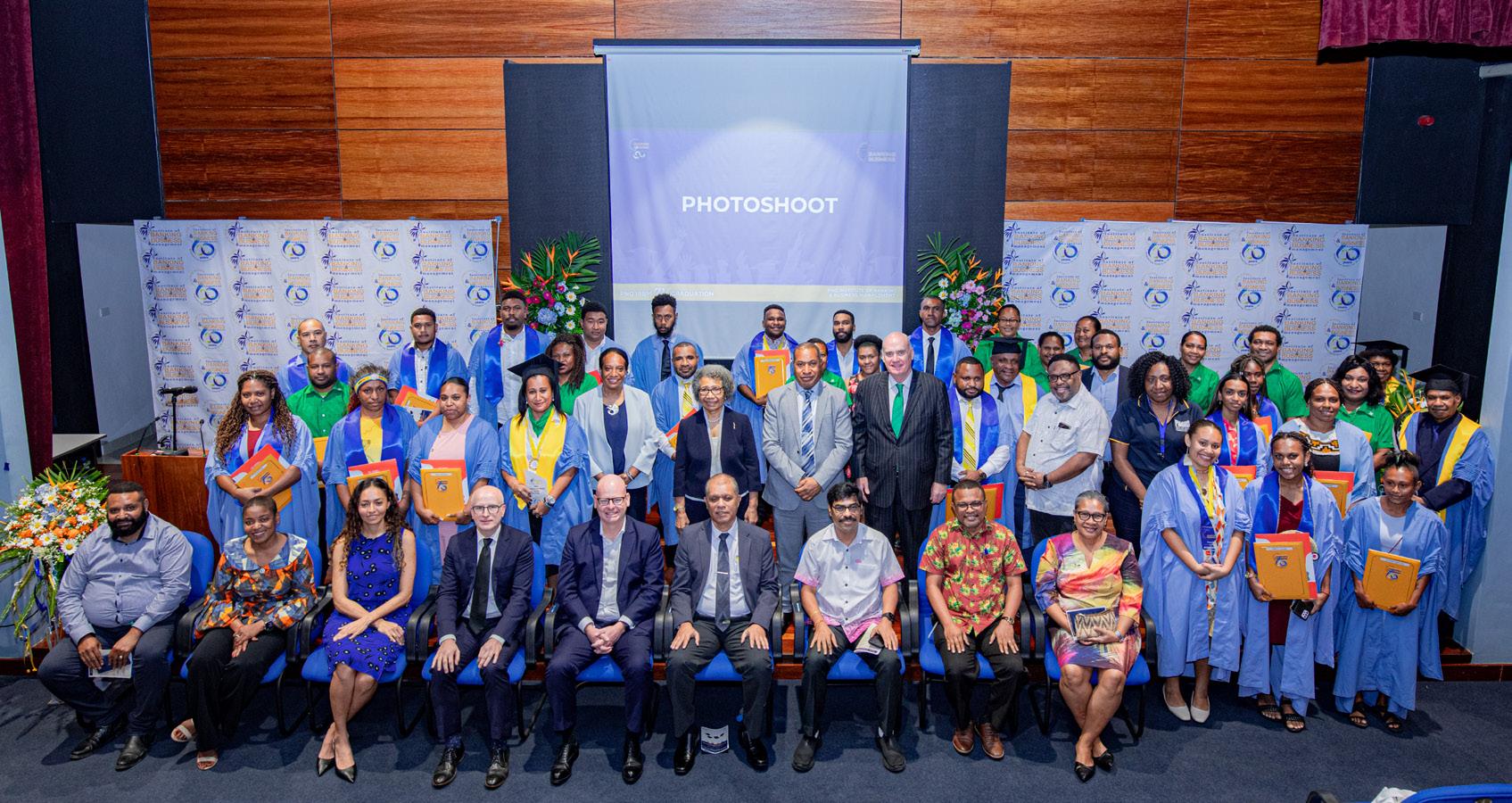
names of those who made it possible for them to sit here today.
His call to action was that “the future does not belong to those who complain but to those who build,” encouraging the next generation of nation builders for PNG’s next 50 years.
IBBM celebrated the graduation of 40 students in the Class of 2024, marking achievements across a range of business and leadership programs.
Graduands earned qualifications in the Master of Business Administration, Graduate Certificate in Business Administration, Bachelor of Business, Bachelor of Business Information Systems, Diploma of Business, Diploma of Project Management, Certificate IV in Leadership & Management, and the Certificate in Professional Banking Fundamentals.
These programs are delivered in collaboration with Torrens University Australia, Lyons College, and the Financial Services Institute of Australasia, reflecting IBBM’s commitment to providing internationally benchmarked education that empowers Papua New Guineans to lead, innovate, and drive national progress.
Mrs. Davara Roga, from the Bank of South Pacific Financial Group, was named the 2024 Chairperson’s Medal recipient in recognition of her exceptional academic achievement in the MBA program.
In her acceptance speech, she credited the program’s flexibility for her success, stating: “The program’s struc-
ture—eight core subjects like Strategic Management, Dynamic Leadership, and Financial Management, paired with relevant electives—was both comprehensive and future-focused.”
“Its flexible delivery made it possible for working professionals like myself to stay committed, despite life’s many demands,” she said, as her story exemplified the power of accessible, professionally aligned education.
Ms. Deborah Puka, recipient of the Dux Award for the Bachelor of Business program, reflected on the transformational impact of her studies, stating that the course significantly enhanced her skills in job readiness, report writing, time management, adaptability, and flexibility.
“It pushed me out of my comfort zone, and I am truly grateful,” she shared, as her journey was a powerful testament to how quality education not only builds individual capacity but also equips future leaders to actively contribute to nation-building.
As PNG continues to grow, so does IBBM. The institution is committed to nation-building by providing quality higher education, corporate training, and supporting local content through our Enterprise Centre’s supplier management portal.
As it celebrates 60 years of service aloongside PNG’s golden jubilee of independence, IBBM embraces its legacy and look forward to shaping the next 50 years.
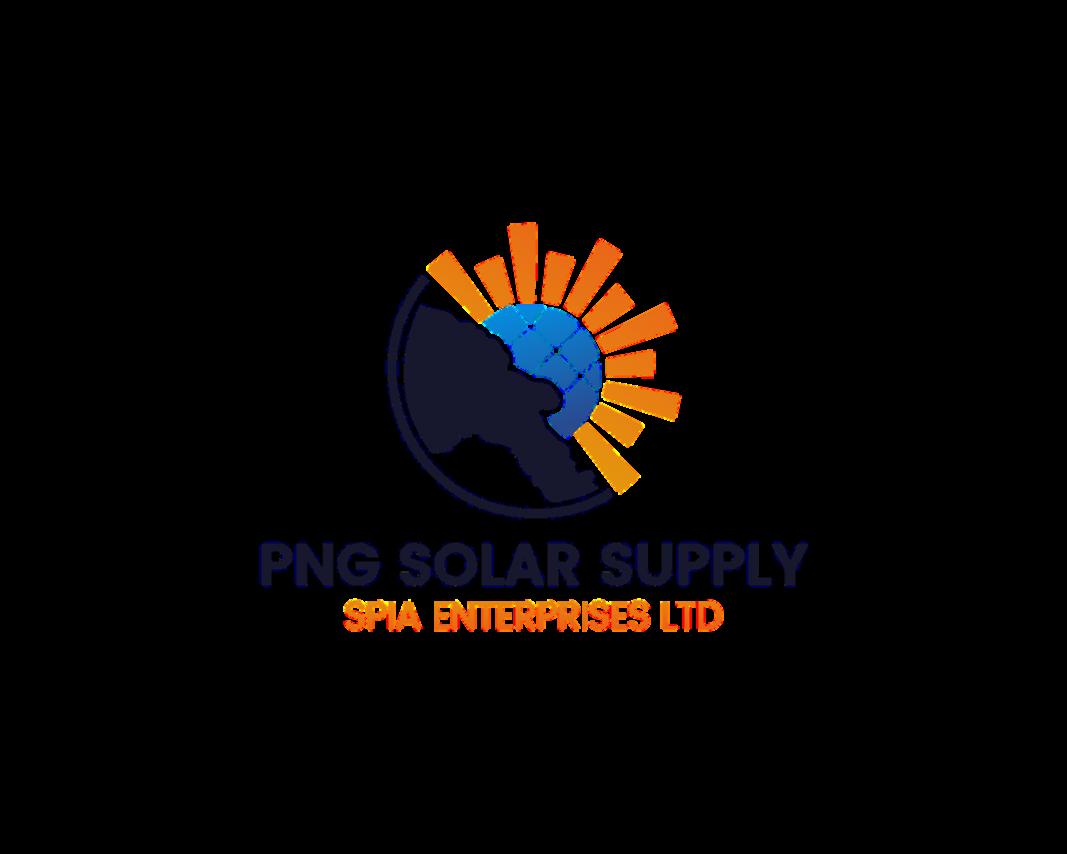


At PNG Solar Supply, we want to provide you with the tools you need to set up your solar systems We are an experienced Papua New Guinean owned business focused on offering products from diverse manufacturers to best suite your needs
We have a team that is able to help with design, and we handle everything for you We challenge you to find an easier way to light up your world











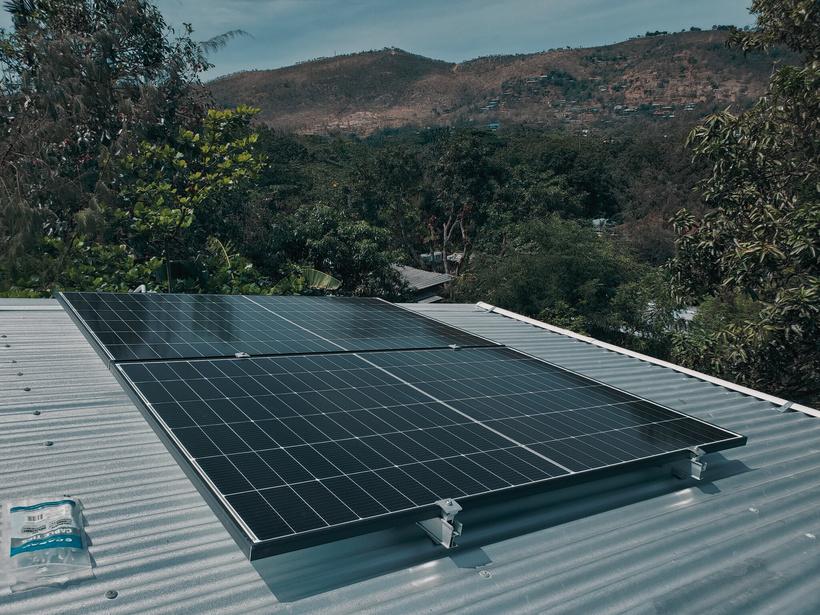

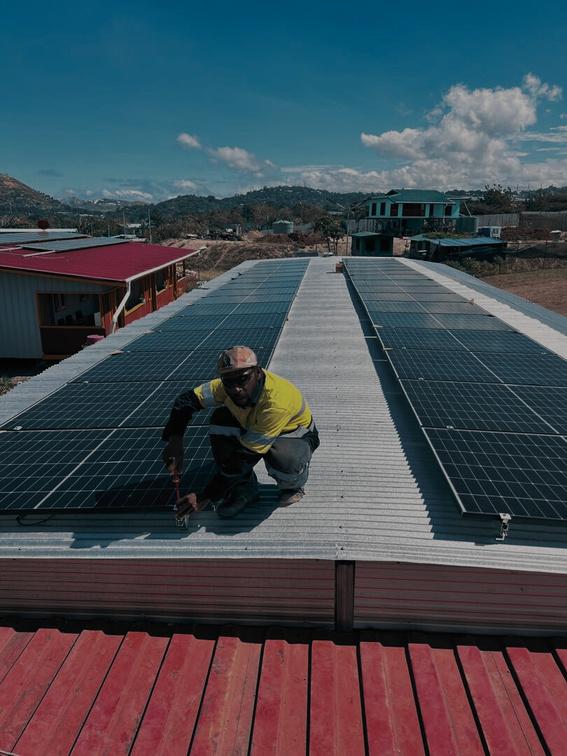
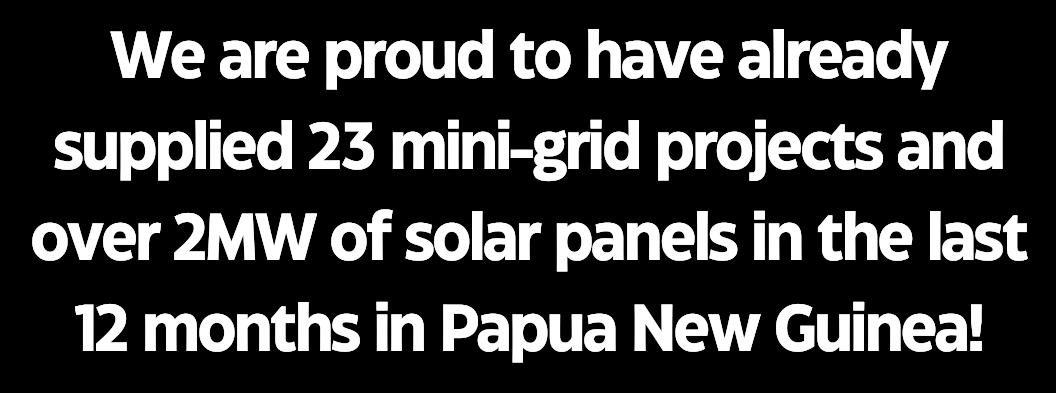
NiuHomes, from PNG Forest Products, manufacture premium designed, quality kit homes in ranges to suit every budget and lifestyle.
Perfect for those starting out on a tight budget, the Baset Range starts at K73,000 and provides low-cost 3 & 4 bedroom (BR) kit homes that are designed to lock-up stage only, with no internal fixtures or fittings apart from flooring and wall frames. This allows you to complete the inside of the house within your own timeframe and budget, making it truly your home.
With 2, 3 & 4 BR options, the Residential and Suburban ranges are complete kit homes with a huge range of quality inclusions, right down to the kitchen sink.
In fact, many models have everything you need including electrical wiring and fittings; full plumbing kit including toilet and shower; ceramic tiles; joinery kit; ceiling fans; solar hot water heater, even paint, all included in the price of the kit home! Prices range from K97,000.
The Contemporary Range sets a new standard in modern kit home designs with the Komoa and Pacifica models. Their sleek, modern designs uniquely complement the PNG urban landscape whilst providing spacious, elegantly comfortable homes for the extended family. The Komoa starts at K310,000 while the top-of-the-range Pacifica is just over K600,000.
For village living, the Haus Ples range offers a choice of high-set and low-set kit homes that start from a low K73,500 for a 2-bedroom Lewa model, up to K107,800 for the 3-bedroom, split-level Namo with bathroom, laundry and kitchen. All prices stated are ex-GST and ex-Lae.
When it comes to quality, NiuHomes are PNG’s only preservative pressure treated kit-homes engineered to the most stringent PNG and Australian building code standards. All timber is randomly and rigorously tested in Australia and the Timber Training Institute in Lae to ensure compliance with the relevant Australian and PNG building standards.
PNGFP’s ability to produce pressure-treated timber at their certified and international standard
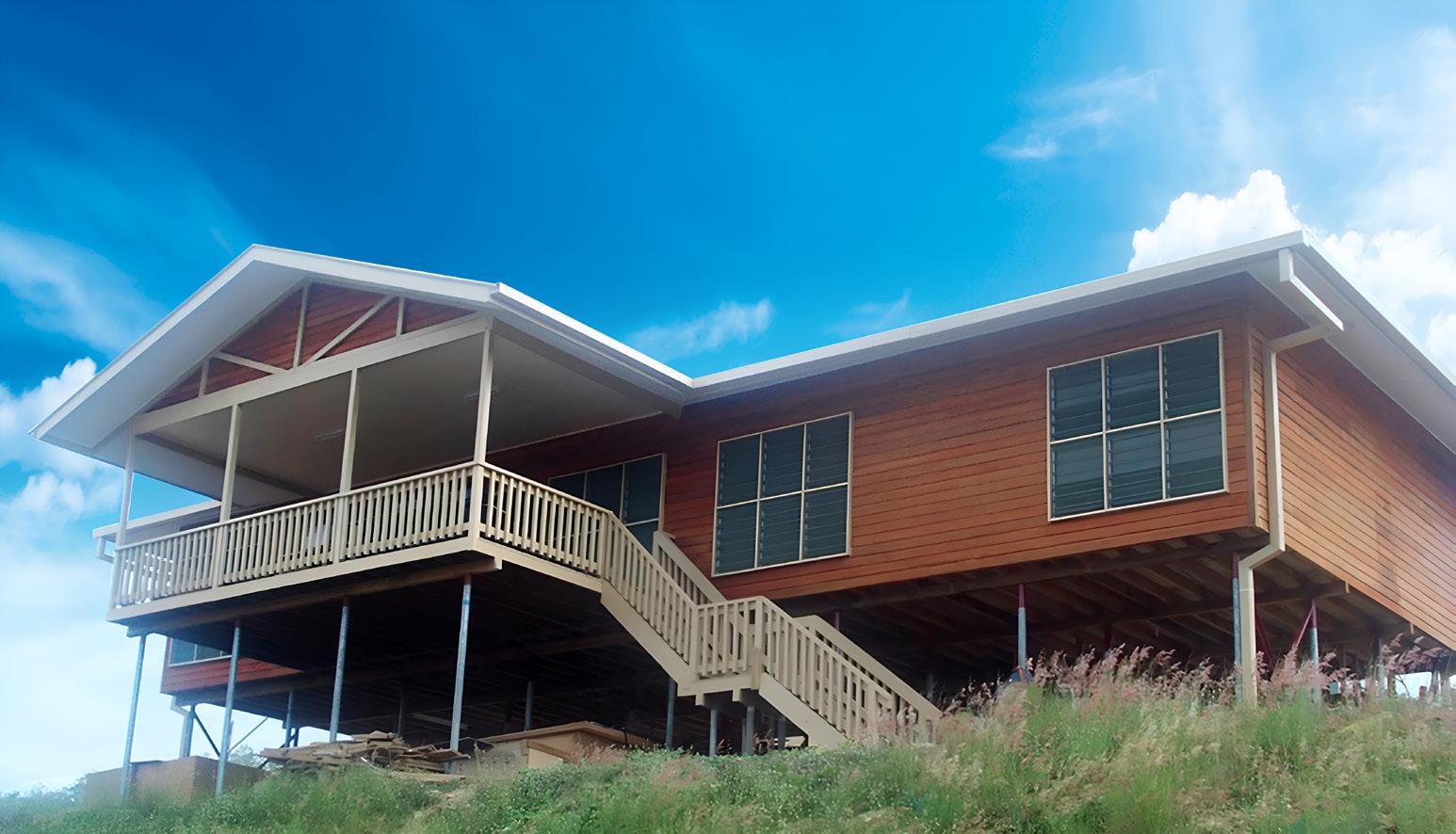
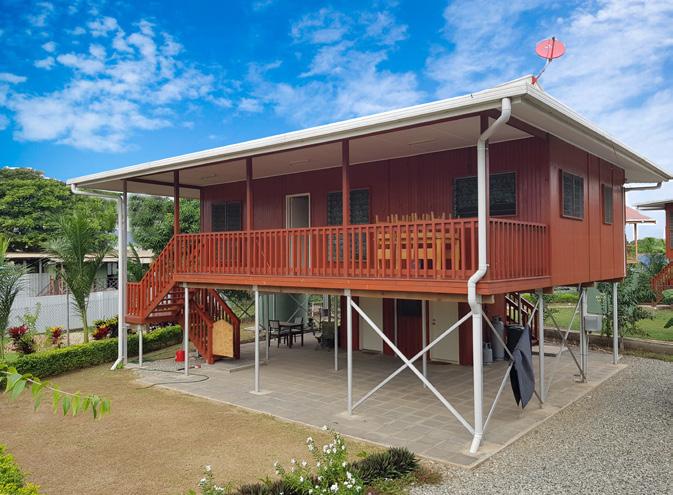
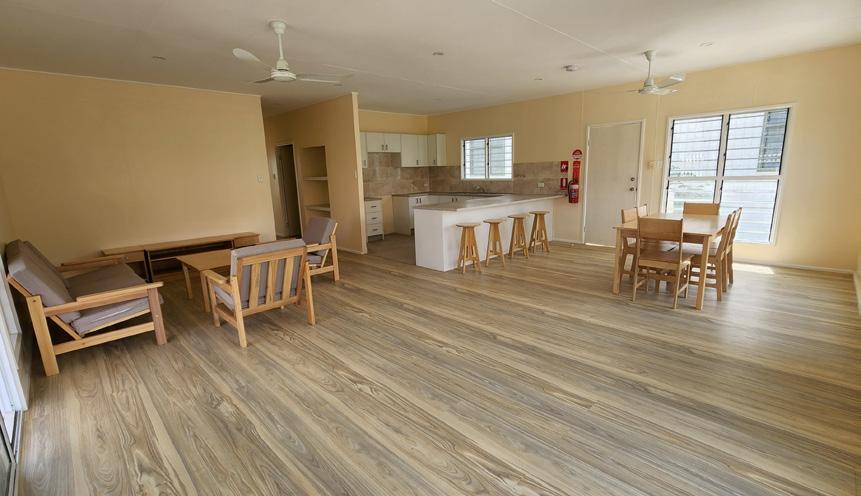
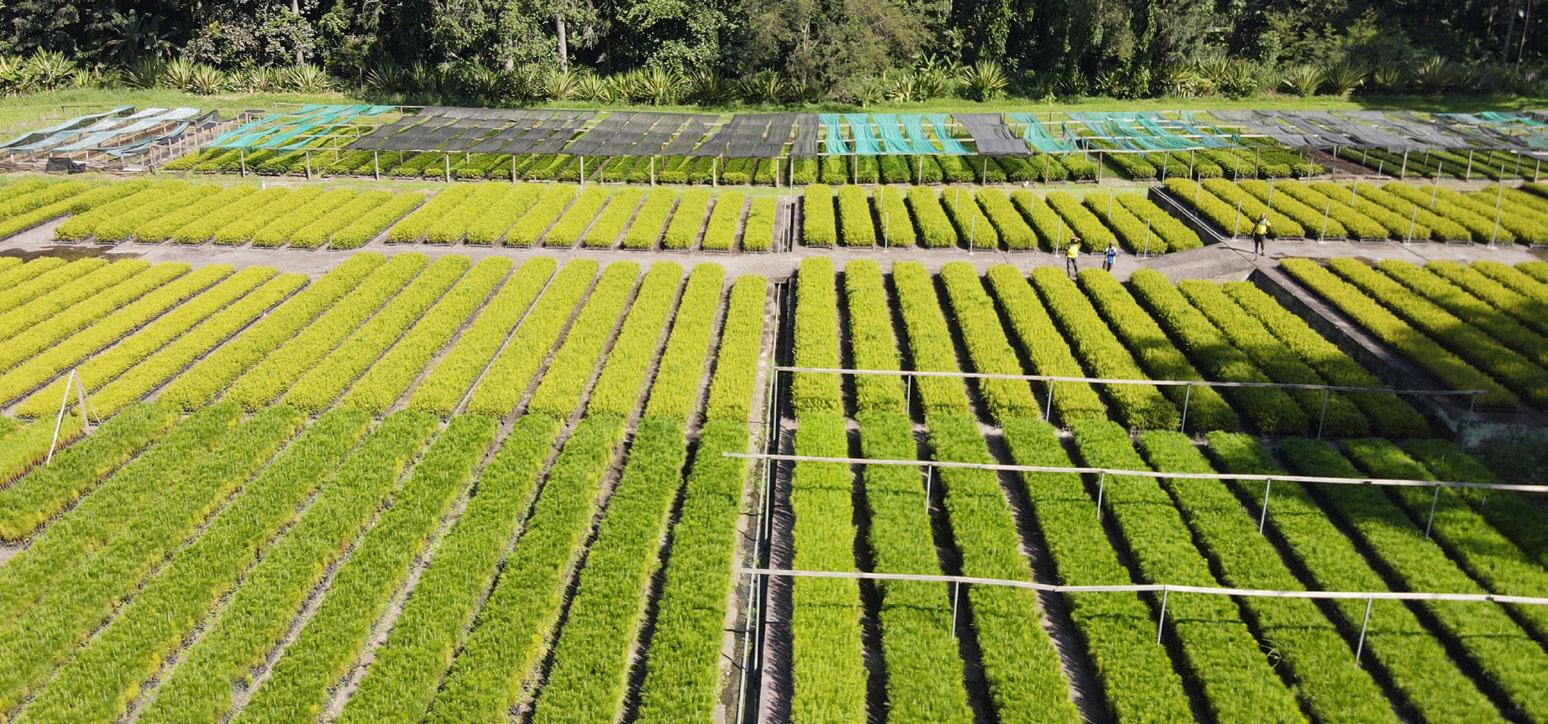
compliant plant in Bulolo, ensures quality, durable kit-homes that are protected from termites, rotting and fungal decay.
Employing over 1,500 Papua New Guineans, PNGFP is committed to building a better future through sustainable manufacturing practices. All timber is sourced from renewable pine plantations in Bulolo and Wau, which are managed by the PNG Forest Authority.
The manufacturing facilities are powered by PNGFP’s own hydro power stations. All sawdust, woodchips and offcuts are then used to fuel the biomass boiler, which generates heat for the dryers and kilns.
PNGFP’s combination of renewable timber resources processed with sustainable hydro power and biomass heat energy, makes PNGFP’s NiuPine timber truly and uniquely green.
So, when you’re investing in a PNGFP NiuHome, you are not only investing in the best quality kit homes in the country, you are also investing in 1,500 local jobs and supporting the PNG economy whilst also supporting the environment. That’s an investment in everybody’s future.
For more information call 323 5995, or email buildingsales@pngfp. com, or view and download all the product brochures at www.pngfp. com.

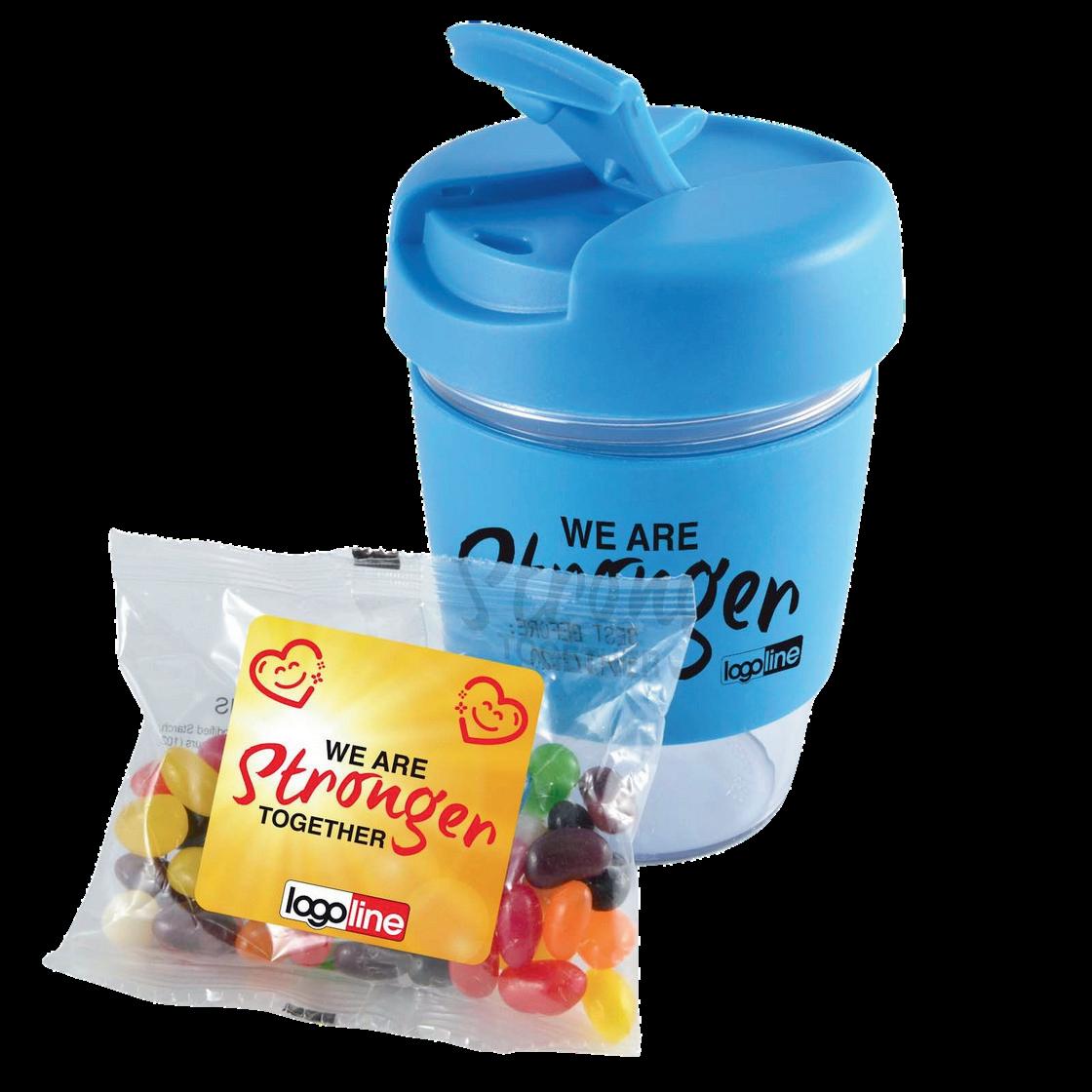

Looking for an impactful way to showcase your brand?
Promotional merchandise is a powerful and cost-effective tool to increase brand awareness, attract new customers, and leave a lasting impression.


At CTRL Print Group, we specialize in premium printing services for a wide range of promotional products.
From sleek, branded pens to stylish t-shirts, polo shirts, branded sunglasses. durable bags, and more, we ensure that every item reflects the quality and professionalism of your business.
High-Quality Printing – Vibrant, long-lasting prints that make your brand stand out.
Extensive Product Range – Pens, apparel, bags, drinkware, tech accessories, and more!
Custom Branding Solutions – Tailored designs to match your brand identity.
Fast Turnaround – Get your merchandise printed and delivered on time.
Bulk Order Discounts – Affordable pricing for small and large-scale promotions.
Whether you're preparing for an upcoming conference, expo, launching a new campaign or rewarding loyal customers, CTRL Print Group helps you create eye-catching merchandise that gets noticed.

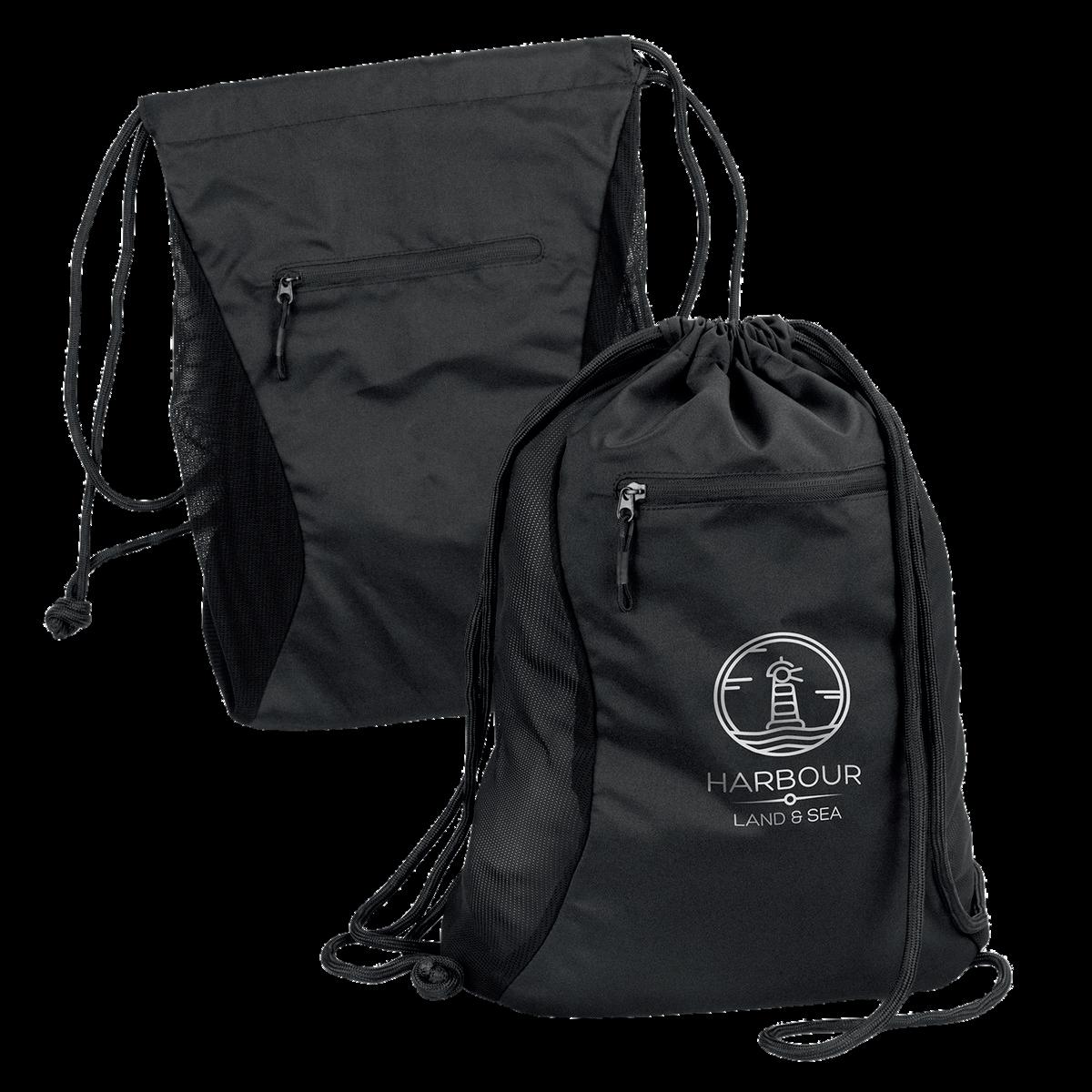

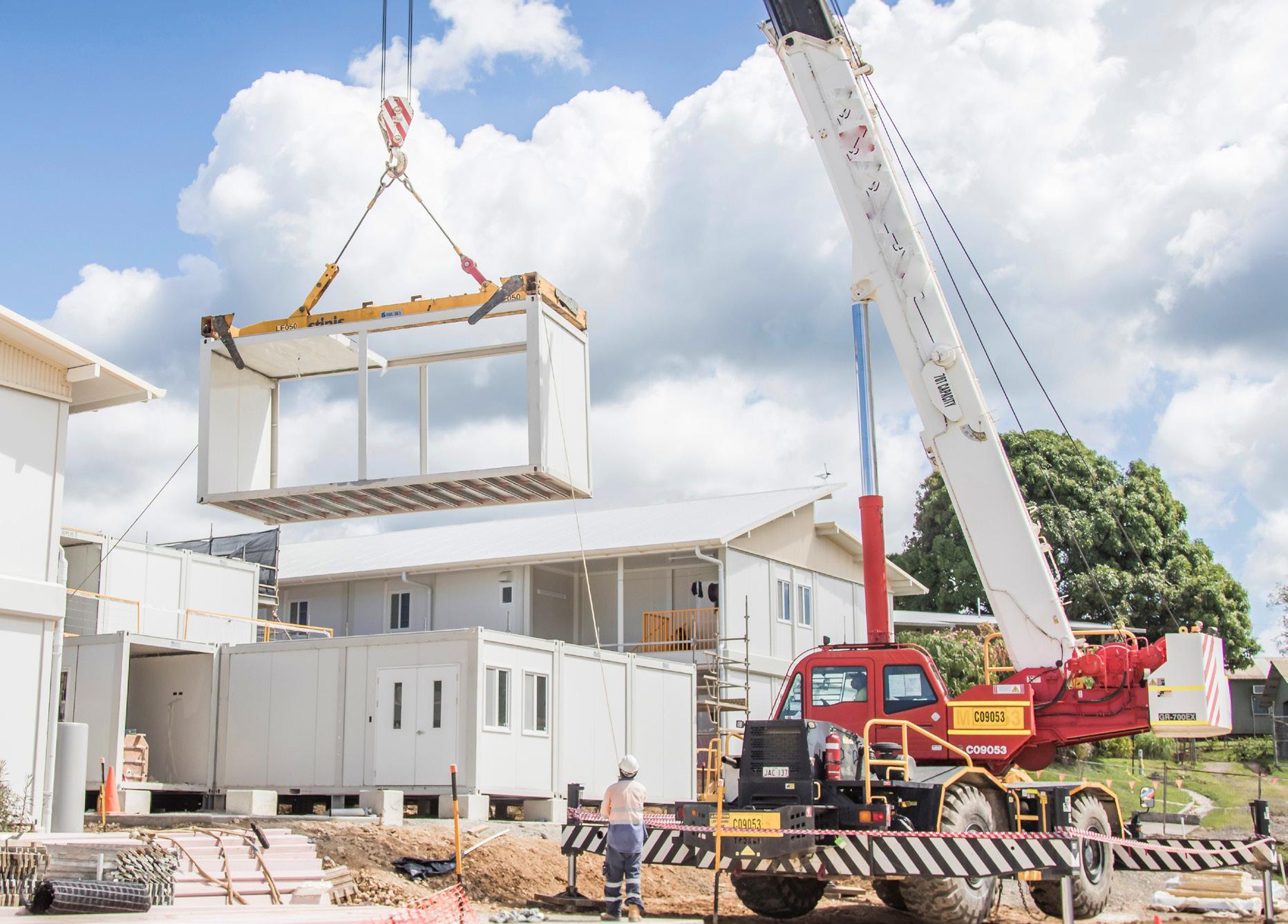
Across the resource and energy sectors, developers have turned to modular composite construction for camps, office complexes, and a wide range of support buildings—recognising its clear advantages over traditional timber solutions.
Modular systems engineered by Ark offer superior performance in key areas including durability, minimal maintenance requirements, and resistance to termites and rot. They also deliver enhanced fire safety and thermal insulation.
Just as importantly, modular components are designed for rapid, safe, and efficient assembly—making them an ideal choice for remote or time-sensitive projects.
Ark delivered its first LNG camp in PNG in 2010 – a 1,000-person, multi-storey accommodation complex and support buildings assembled by a 99 percent local workforce in less than one year.
Fifteen years on, Ark’s camps are established across PNG, with the company’s modular solutions increasingly being adopted by organisations beyond the resource sector.
General Manager, Ark Pacific, Cass Ruka says that Ark has invested heav-
ily in perfecting its product for PNG’s challenging building environment.
“We’re an ISO9001 certified company with plenty of other certifications attesting to quality, such as our Australian-compliant fire safety ratings and our internationally rated insulation,” Ruka said.
Ark’s innovations in insulation technology enhance indoor comfort while significantly reducing the need for heating and cooling—lowering operational costs and boosting the overall sustainability of its buildings.
Despite timber’s natural beauty, even when treated it is still susceptible to termites, and wood rot thrives in the tropics. Timber is also a highly combustible material, Ruka noted.
Given the safety risks—particularly in large-scale capital investments such as workforce camps that must accommodate hundreds or even thousands of personnel—it is no surprise that developers are increasingly steering away from timber construction when they can.
Ruka explains that timber buildings also take longer to construct than their modern modular alternatives and incur higher freight costs.
Alternatively, Ark’s products are
designed for rapid assembly – even by unskilled labour – and they enjoy a freight footprint of up to 70 percent less than competitors’ products. Six of Ark’s flat pack units are equivalent to a single standard 20-foot shipping container when stacked together ready for transport. This equates to fewer ships, trucks, barges, etcetera when building with Ark.
In addition to increasingly refining its product for PNG’s challenging and often remote construction environment, Ark is investing in a stock facility and additional staff in Lae.
Scheduled to open in the third quarter of 2025, the facility will hold up to 20 complete modular units (enough for a large office complex or small camp), as well as ablution blocks and a wide range of spare parts (from nuts and bolts to spare walls).
Ruka reports that customers value the prospect of placing an order and having it on site within a couple of days.
“We will have everything flatpacked and ready to go at the facility—it will simply be a matter of loading it onto a truck. Alternatively, if the client prefers, we can pre-assemble the units in our yard before dispatching them to site,” he said.
Engineered for durability and minimal maintenance, Ark’s modular systems are resistant to termites and rot, making them ideal for PNG’s challenging and often remote building environments.

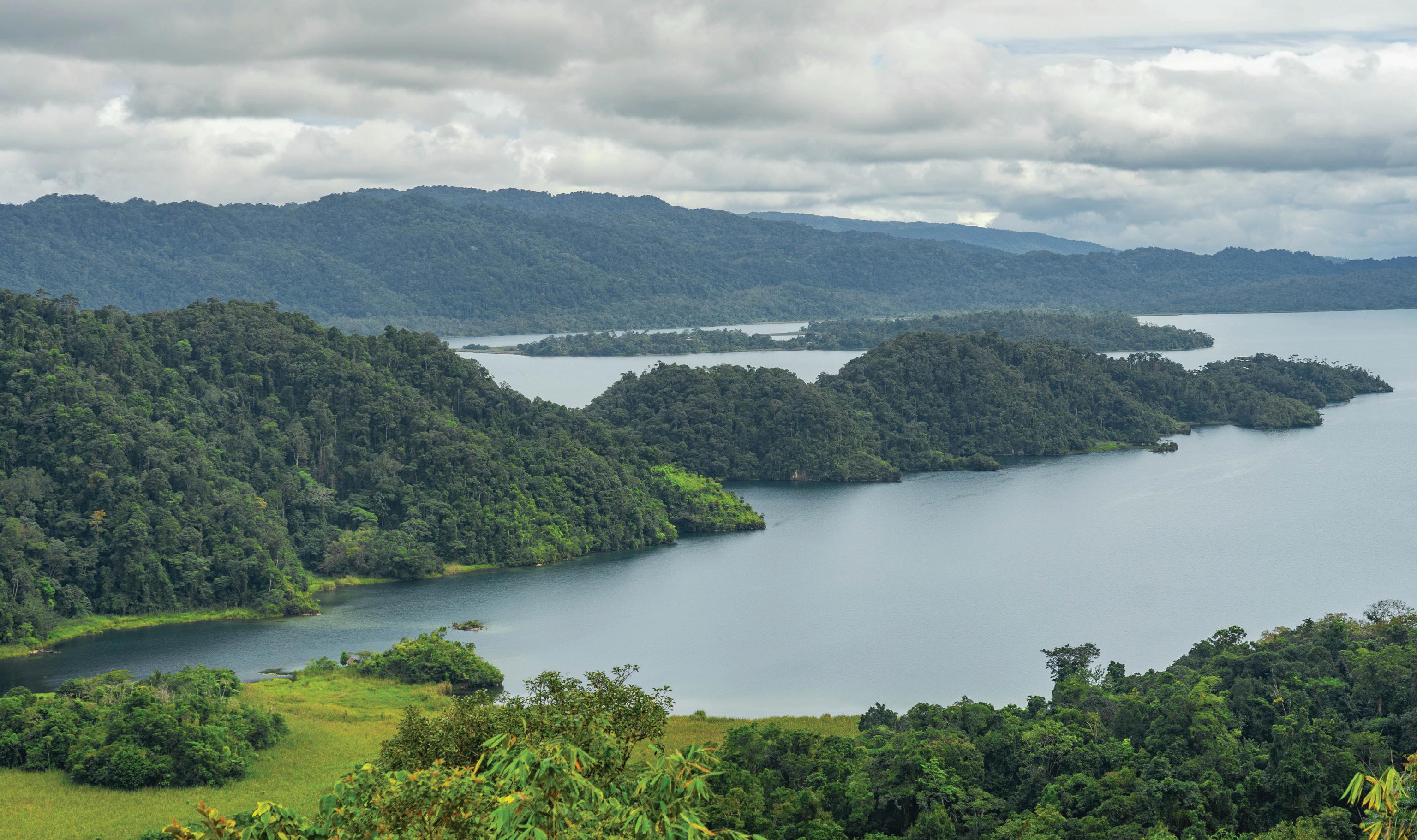
By: ROSELYN EREHE
Papua New Guinea is modernising its air traffic management systems through a collaboration between NiuSky Pacific Limited and UK-based aviation technology company Micro Nav.
The agreement was officially signed during a high-level meeting at Micro Nav’s Head Office, attended and formally endorsed by PNG Minister for Civil Aviation, Hon. Wake Goi MP.
The signing ceremony, witnessed by Micro Nav’s Managing Director Greg Pile and NiuSky Pacific Limited’s Acting Managing Director Graham Blythe, marked the formal launch of a partnership designed to enhance the country’s air navigation service capabilities.
Under this agreement, Micro Nav will deliver advanced Air Traffic Control (ATC) simulation technologies to support NiuSky Pacific’s mission of providing safe and efficient air navigation services across PNG.
The initiative is set to bolster NiuSky’s training capacity, operational safety, and technological proficiency, reinforcing its status as a leading Air Navigation Service Provider (ANSP) in the Asia-Pacific region.
Micro Nav, in a media announcement on 21 May, described the collaboration as a demonstration of its ongoing commitment to the global ATC industry, aligning with its broader goal of delivering cutting-edge, future-ready solutions to air navigation providers worldwide.
In a detailed public statement, Minister Goi addressed concerns and outlined the strategic importance of travel in PNG.
He explained that the overseas engagements were highly technical and integral to ensuring that PNG’s aviation systems remain safe, modern, and globally compliant.
In France, the delegation held meetings with Thales to assess the Maestro system, which will support improved sequencing of aircraft and the introduction of Standard Instrument Departures (SIDs) and Standard Terminal Arrival Routes (STARs).
These modern procedures enhance safety, reduce delays, and boost fuel efficiency, the group said.
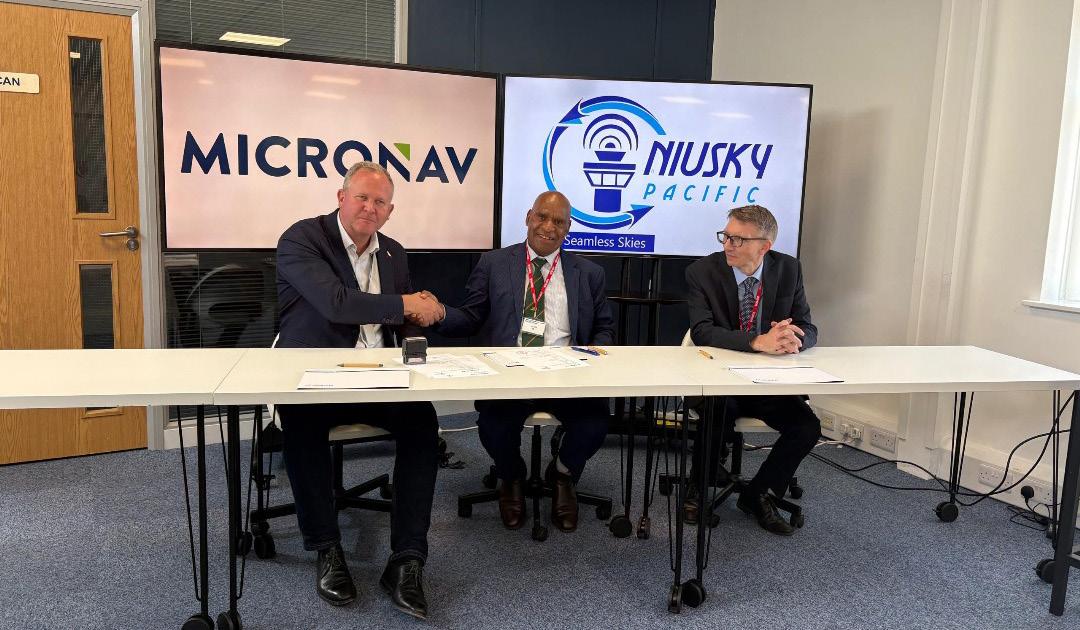
The facts for this mission as per the issued statement by Minister Goi:
• France (Thales):
The delegation held critical meetings with Thales, the current supplier of PNG’s Air Traffic Management (ATM) system, to evaluate the Maestro system.
Maestro will enable more efficient sequencing of aircraft at Jacksons International Airport and is a key enabler for introducing Standard Instrument Departures (SIDs) and Standard Terminal Arrival Routes (STARs), modern procedures that improve safety, reduce delays, and enhance fuel efficiency.
Additionally, discussions with the Thales team focused on the emerging capabilities in Unmanned Aircraft System Traffic Management (UTM), drone management and Air Traffic Flow Management (ATFM).
They noted that ATFM will become mandatory under ICAO (International Civil Aviation Organization) requirements by 2028, making these engagements essential and timely.
• Madrid (Indra):
The team visited Indra, another leading CNS/ATM provider, to assess digital towers, radar capabilities, navigational systems and alternative technologies, ensuring PNG makes well-informed and cost-effective decisions on future systems.
Indra is the equipment manufacturer for the Jacksons International Airports radar in Port Moresby that can be clearly seen next to the International Terminal on Radar Hill.
• ATM World Congress (Lisbon):
As part of the technical mission, the delegation attended the World ATM Congress in Lisbon—the premier global forum for air traffic management.
This annual event brings together industry leaders, regulators, technology providers, and ANSPs from across the globe to highlight the latest innovations, share operational insights, and explore collaborative solutions in the air navigation sector.
At this event, NiuSky was able to engage directly with leading global suppliers and observe demonstrations of cutting-edge technologies, including:
• Digital towers and remote-control centres,
• Next-generation drone traffic management (UTM) systems,
• AI-assisted air traffic control tools,
• GreenATM and environmental efficiency platforms, and
• Space-based surveillance and VHF communications.
Participation in the Congress provided valuable exposure to emerging trends and enabled PNG to benchmark its strategic
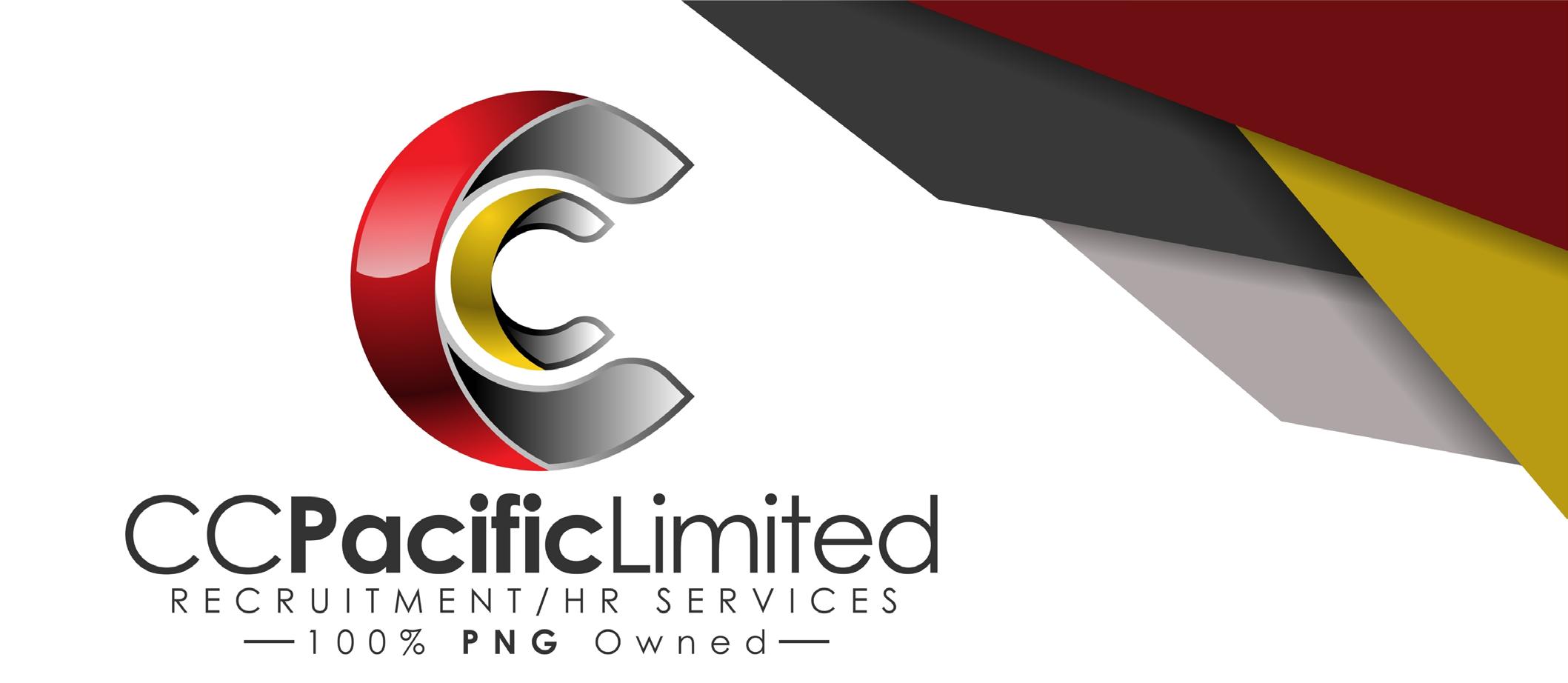



< Page 134
priorities against international best practices.
It also strengthened NiuSky’s industry relationships and informed future infrastructure planning in alignment with ICAO’s global aviation objectives.
• United Kingdom (Micronav):
In the UK, NiuSky signed an agreement with Micronav, the manufacturer of PNG’s existing 3D Tower simulator, which is critical for the training and ongoing certification of air traffic controllers.
The agreement will support its upcoming upgrade, essential for future integration of digital tower operations and new ATM procedures.
The mission also preceded the rollout of a major aviation infrastructure development program funded by the Australian Government under TSSP3, valued at AUD 22 million over five years. This program will support:
• Upgrade of the Micronav 3D To -
wer Simulator,
• Trial of a Digital Tower at Nadzab,
• Wide Area Network (WAN) upgrades across PNG,
• Critical power system enhancements,
• Implementation of a national ATFM system (Flow Control),
• Deployment of space-based VHF communications, and others.
These investments are transformational and will position NiuSky Pacific as one of the most advanced and safest Air Navigation Service Providers (ANSPs) in the Asia-Pacific region, Goi said.
The systems and services under review directly impact the safety of the travelling public. CNS/ATM technologies evolve rapidly, and for PNG to meet its international obligations and maintain safe, efficient skies, it must keep pace.
The mission supported:
• Technical validation of major capital investments,
• Strengthening of supplier accountability,
• Strategic alignment with TSSP3-funded initiatives, and
• Preparation for the next phase of aviation development.
Minister Goi stressed that safety is and will always be the overriding priority in aviation. While cost-efficiency and value for money are vital, they can never come at the expense of safety.
“Every decision and investment made by NiuSky Pacific is anchored in this principle. This mission was no exception. The safety of air navigation services, and by extension the lives of the travelling public, is front and centre in all NiuSky operations,” he said.
“I understand and respect the public’s call for accountability and fiscal discipline, especially during challenging times. However, it is equally important to recognise that safety, preparedness, and international credibility in aviation cannot be compromised.”
“This was not an extravagant tour, but a highly strategic, future-focused mission, carefully aligned with national, regional, and international aviation goals,” Goi added.
“As Minister, I remain committed to transparency, good governance, and ensuring that Papua New Guinea continues to operate a safe, resilient, and forward-looking aviation sector.”
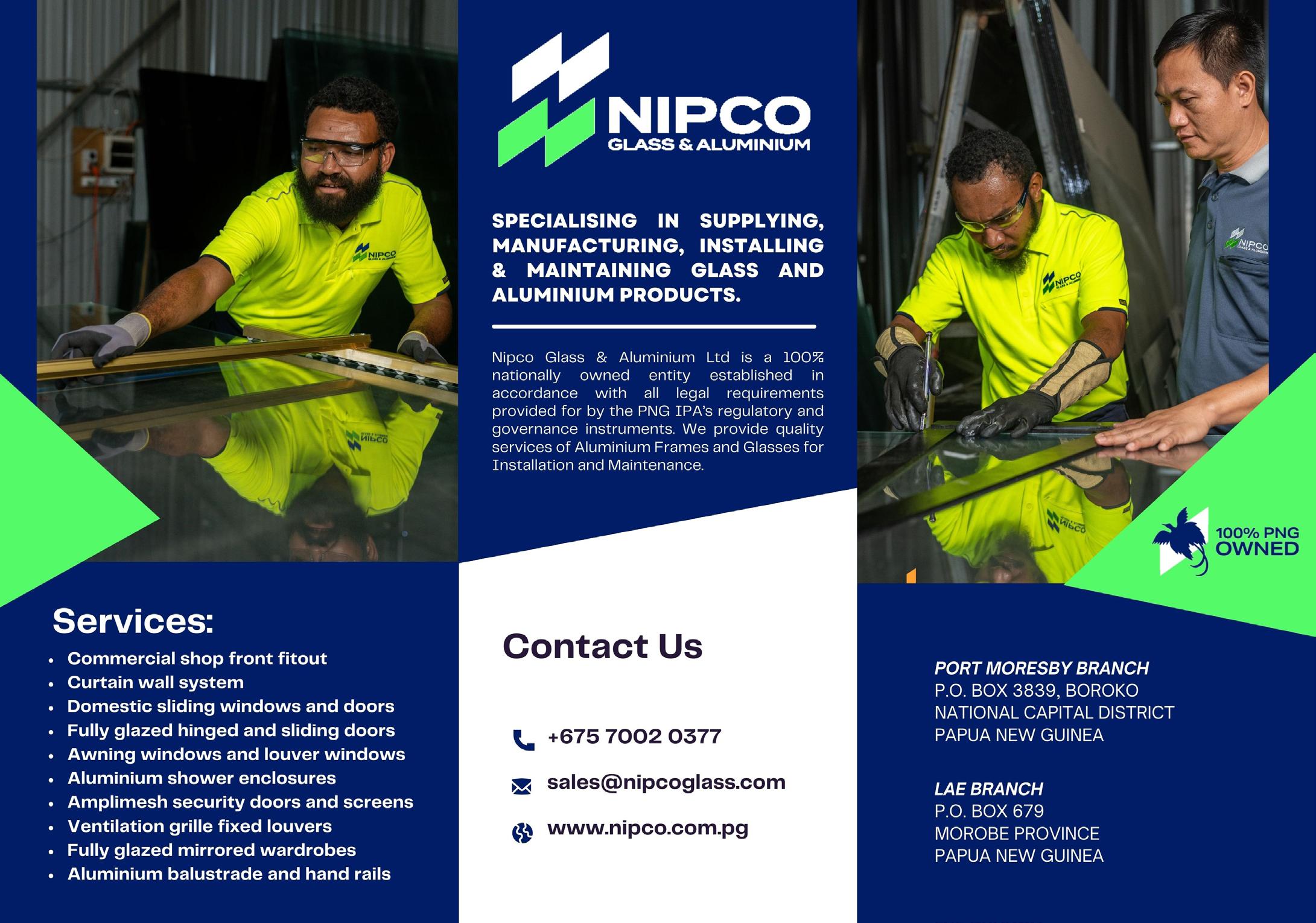
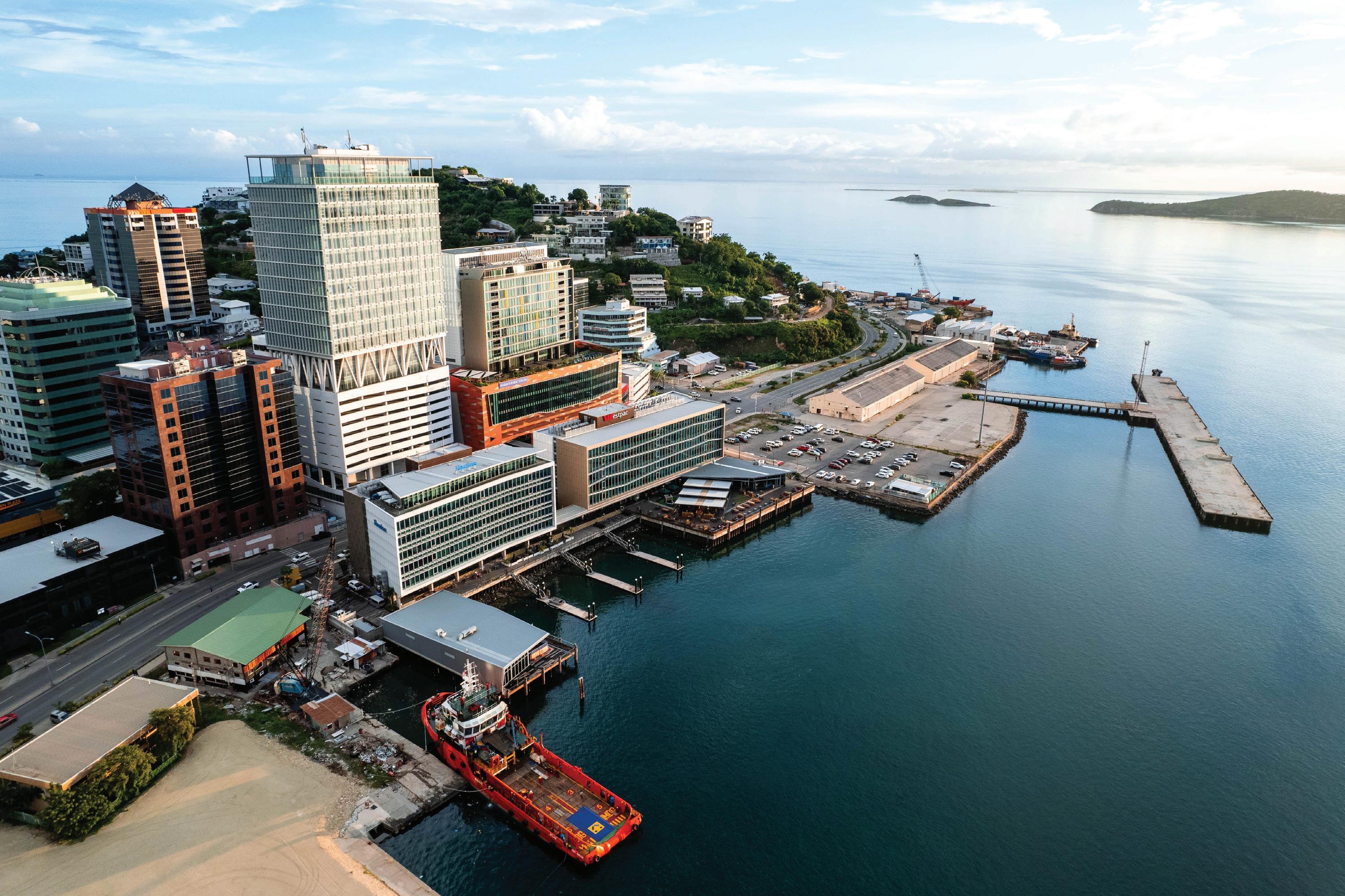
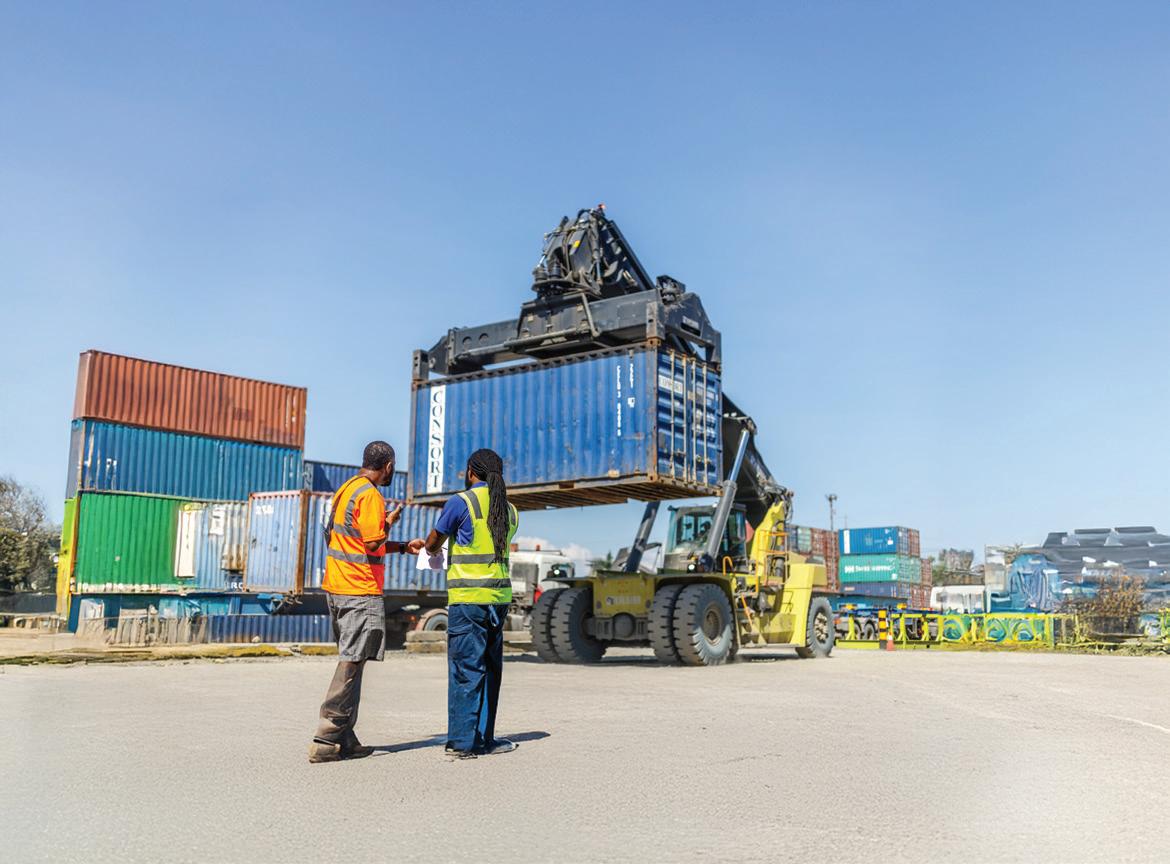
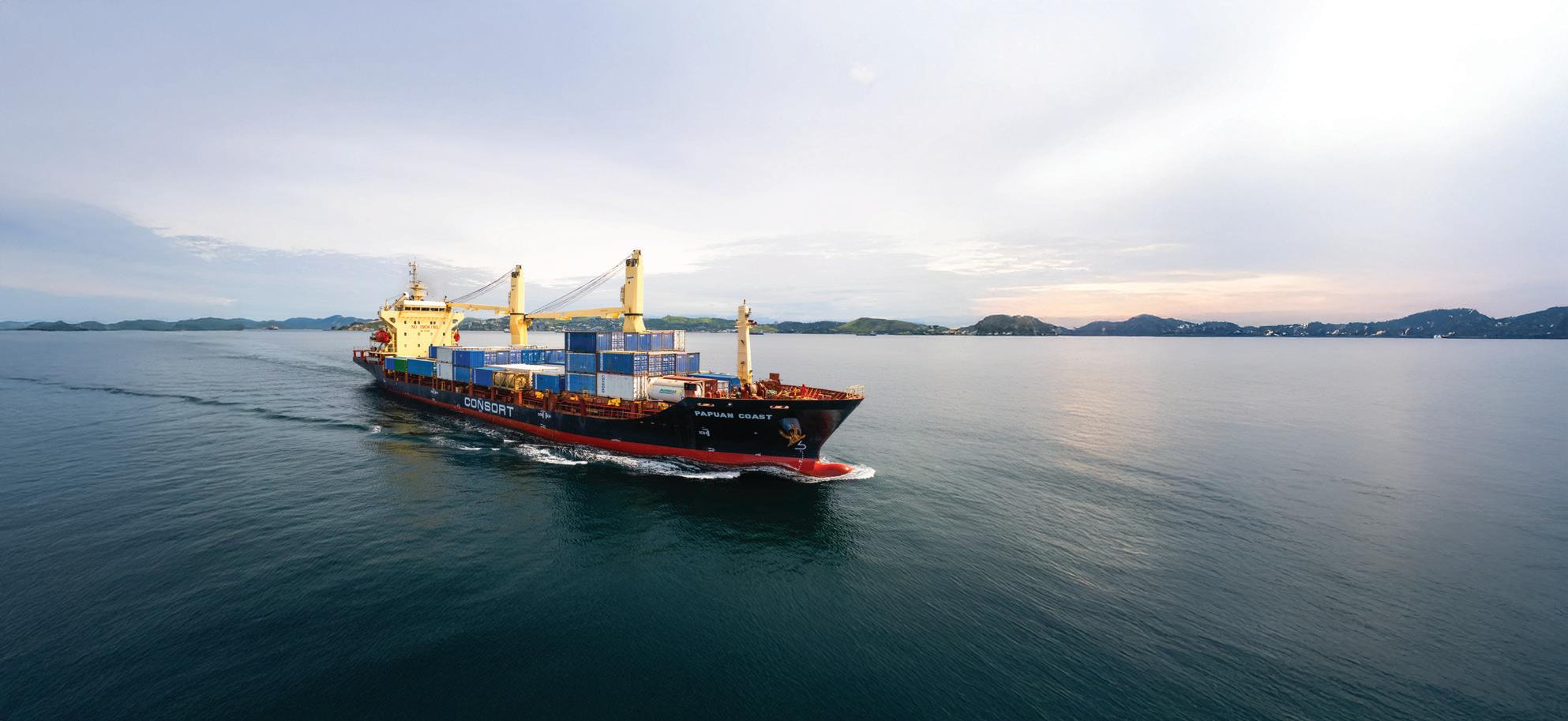
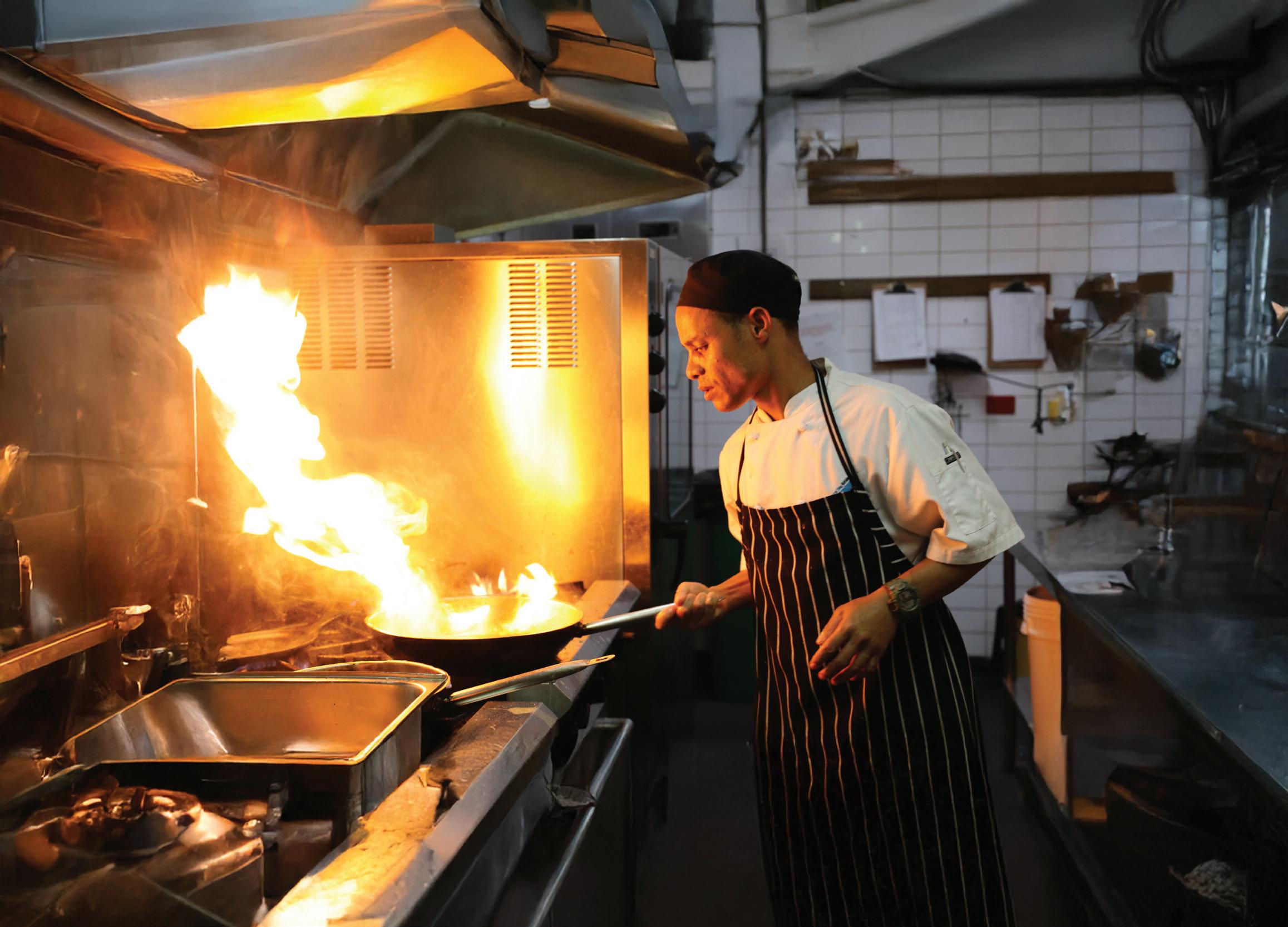
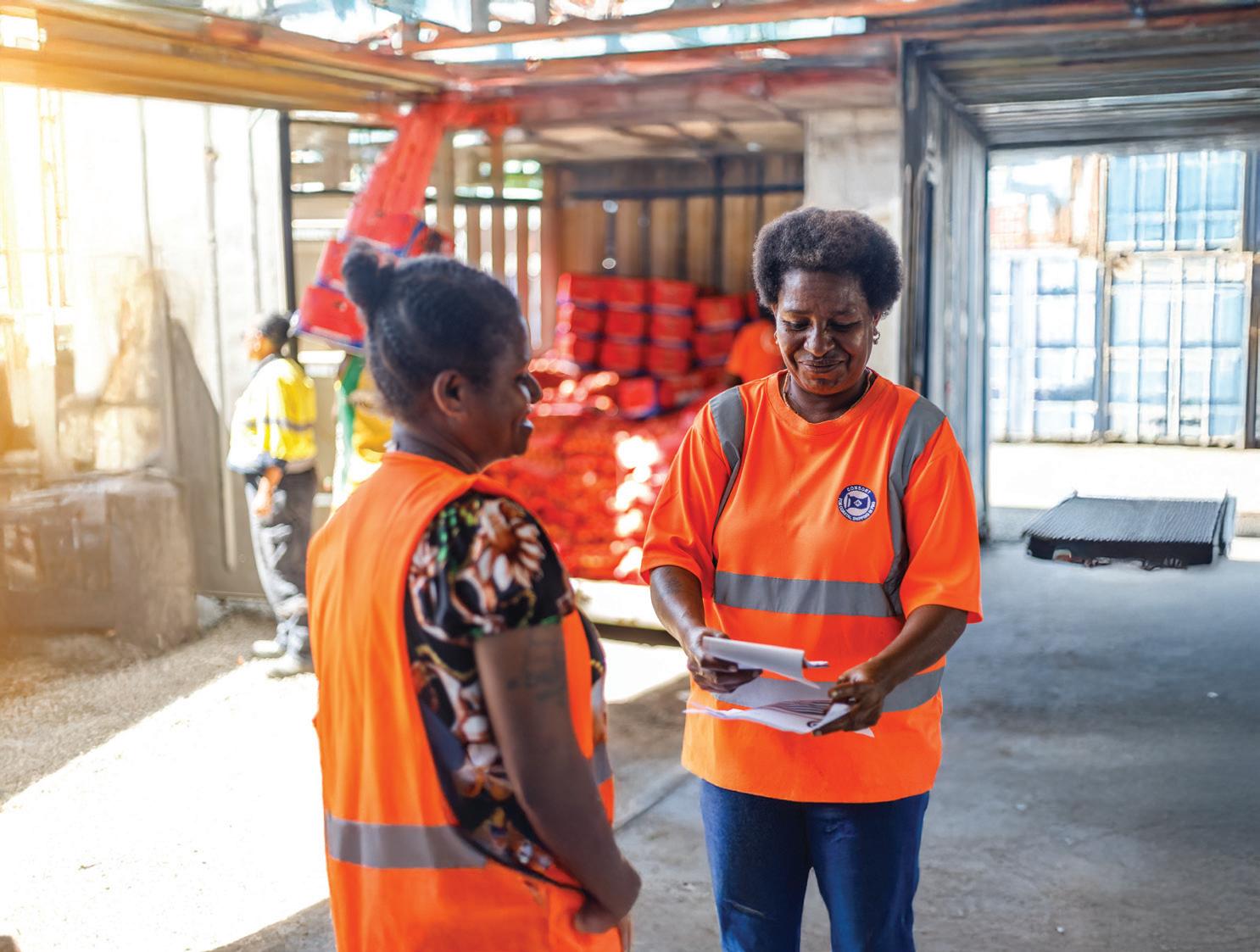
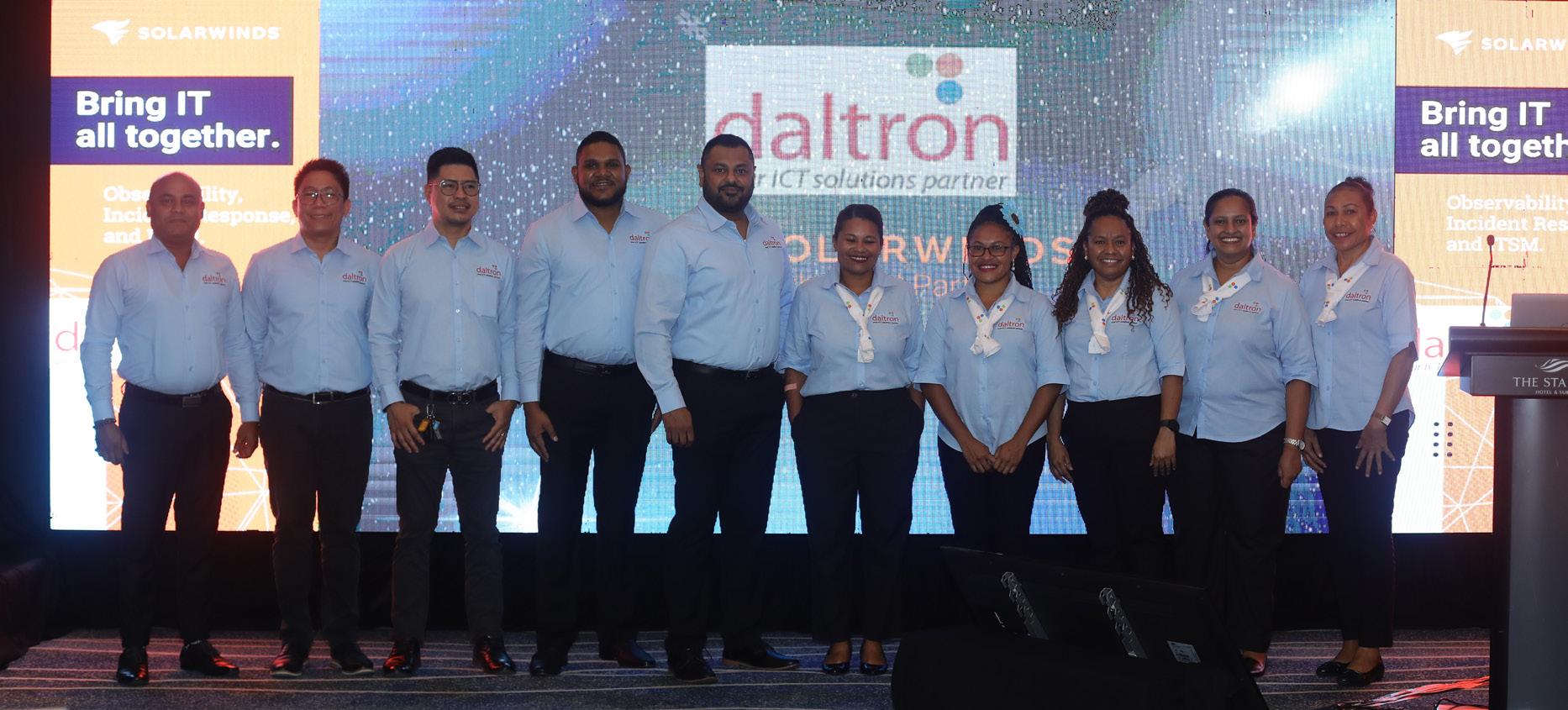
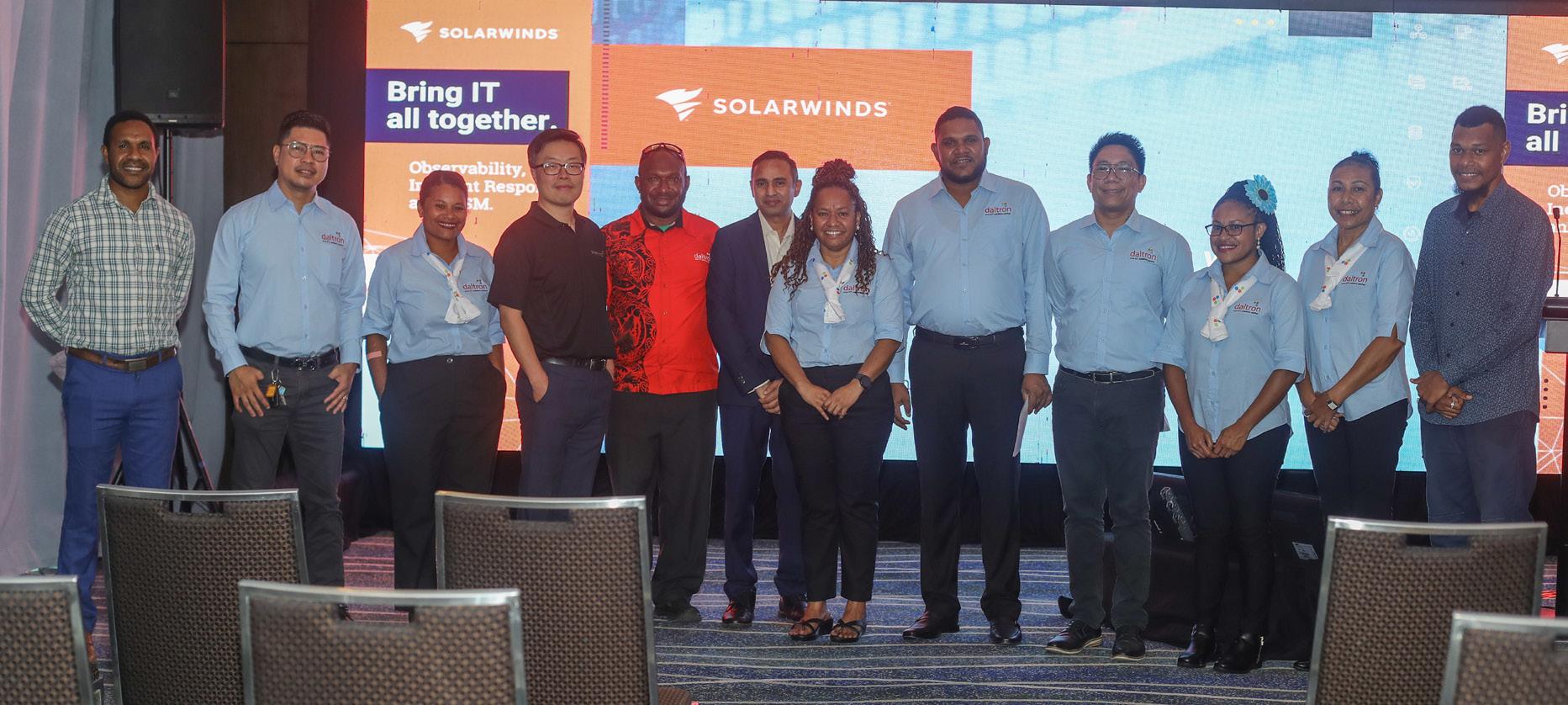
Global information technology (IT) management leader SolarWinds has officially expanded its presence to Papua New Guinea, partnering with Daltron PNG, a pioneer in the country›s ICT (information and communications technology) sector.
A launch in Port Moresby celebrated the milestone event, marking a significant step toward strengthening the country’s digital transformation and enhancing its IT infrastructure with intelligent, artificial intelligence (AI)-powered solutions.
SolarWinds’ latest innovations in AI-driven IT operations, network monitoring, and cybersecurity—essential tools to support PNG’s rapidly growing digital economy—were on display at the event.
Stakeholders from government, enterprise, and the ICT sector gathered to explore how advanced IT manage -
ment platforms can improve service delivery, operational efficiency, and network resilience.
The launch featured live demonstrations, customer success stories, and expert-led discussions on how SolarWinds’ global best practices are being adapted to meet the unique challenges and opportunities within Papua New Guinea.
“As the demand for secure and data-centric operations increases, our solutions enable organizations in Papua New Guinea to proactively manage their IT environments, detect and respond to threats in real time, and optimize performance through automation and artificial intelligence,” SolarWinds said in a statement.
Peter Lee, Solution Architect at SolarWinds, emphasized the impact of intelligent monitoring tools.
“SolarWinds solutions reduce mean time to resolution (MTTR),
helping businesses save time and money. In today’s digital landscape, AI-powered visibility and control are vital for ensuring business continuity and driving long-term success,” Lee said.
Tharindu Jayamaha, Certified SolarWinds Architect and Network Manager at Daltron PNG, added: “The world is rapidly adopting AI, and we are proud to bring SolarWinds’ globally recognized solutions—backed by 25 years of innovation—to Papua New Guinea.”
“This launch ushers in a new era for local businesses, equipping them with the tools to stay secure, resilient, and aligned with future technological trends.”
SolarWinds’ entry into the market underscores its commitment to empowering local businesses and institutions with world-class IT solutions, fostering a more connected and digitally advanced PNG.
TE (PNG)
TE




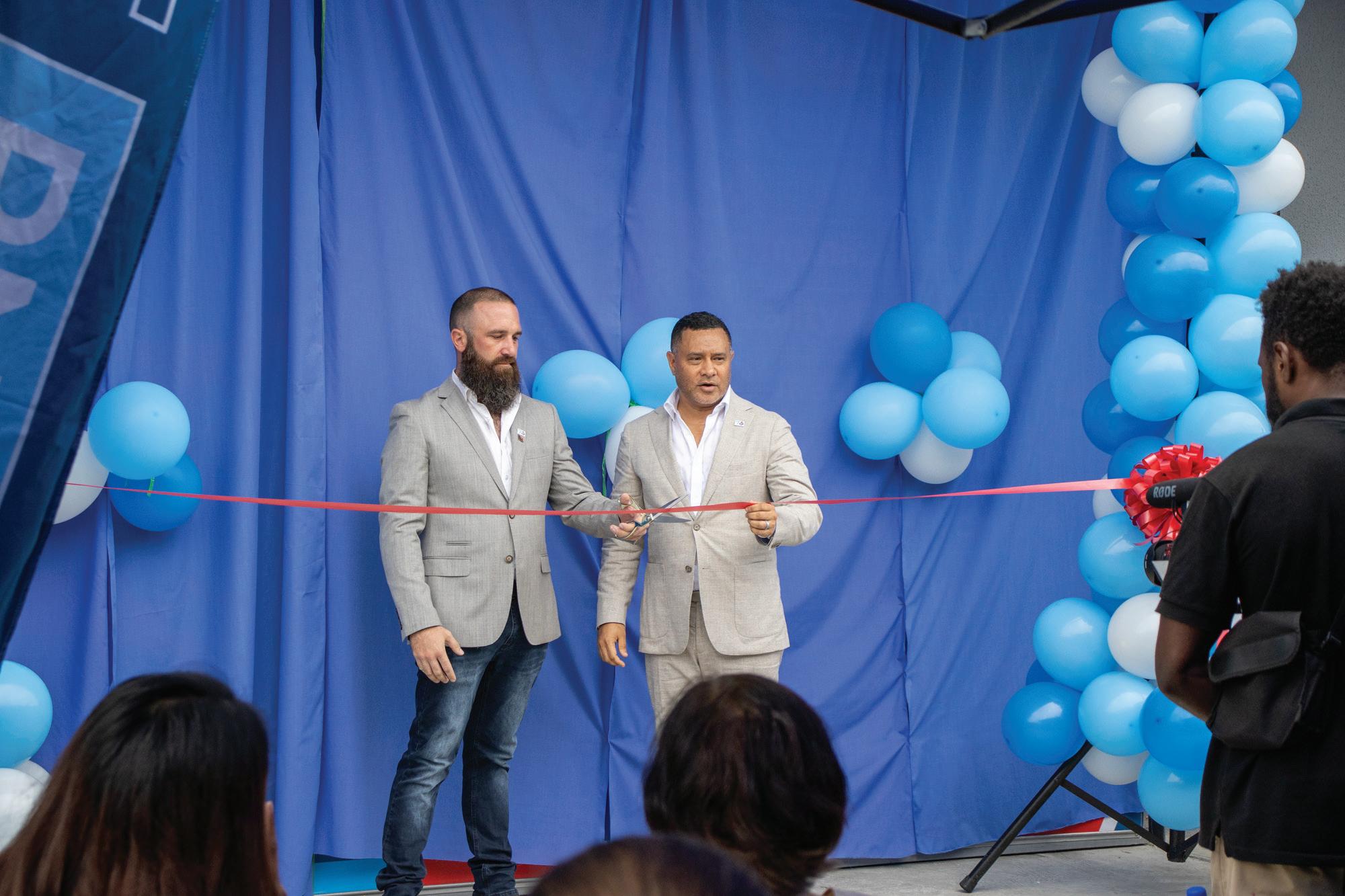

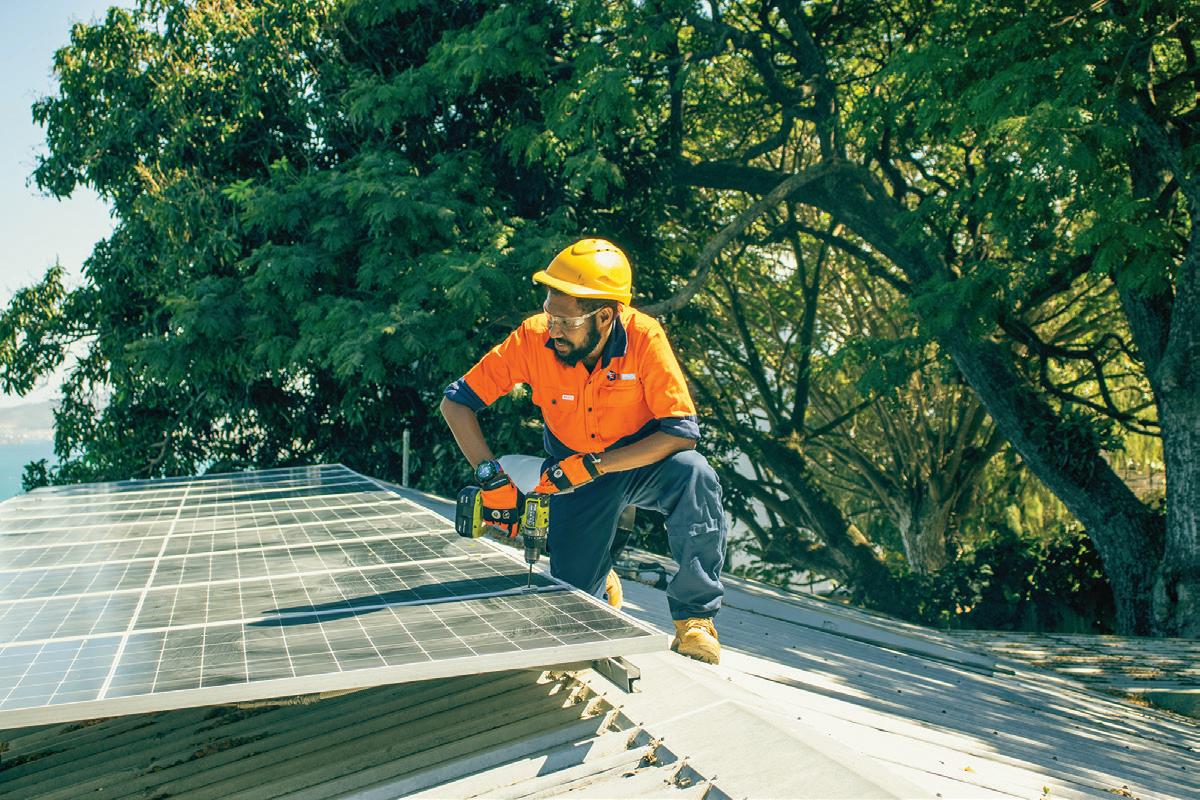
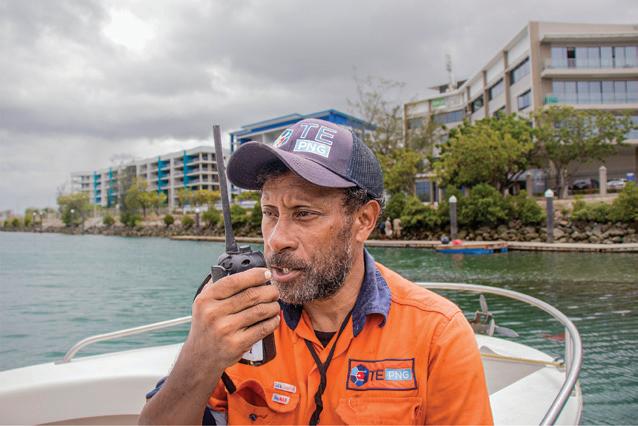

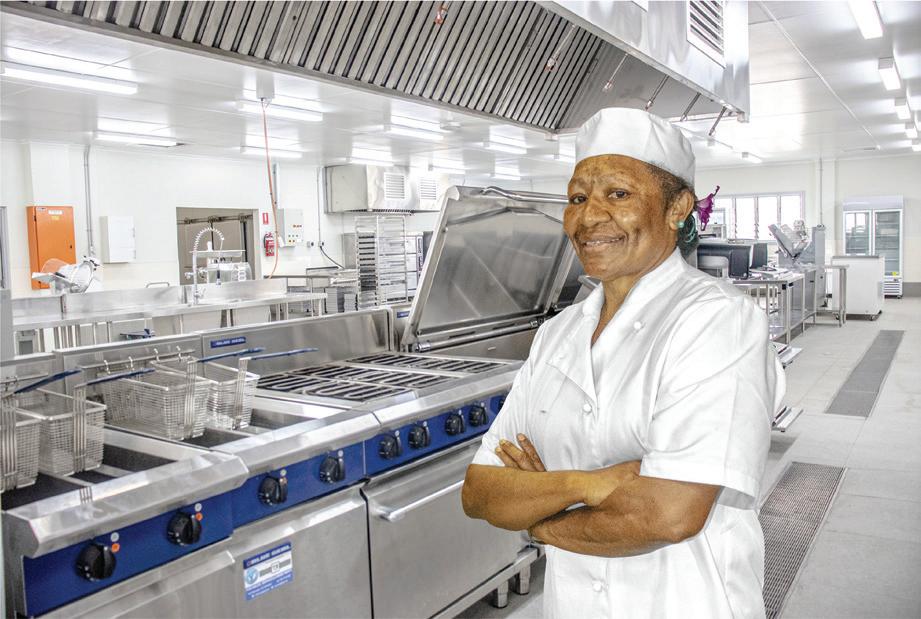
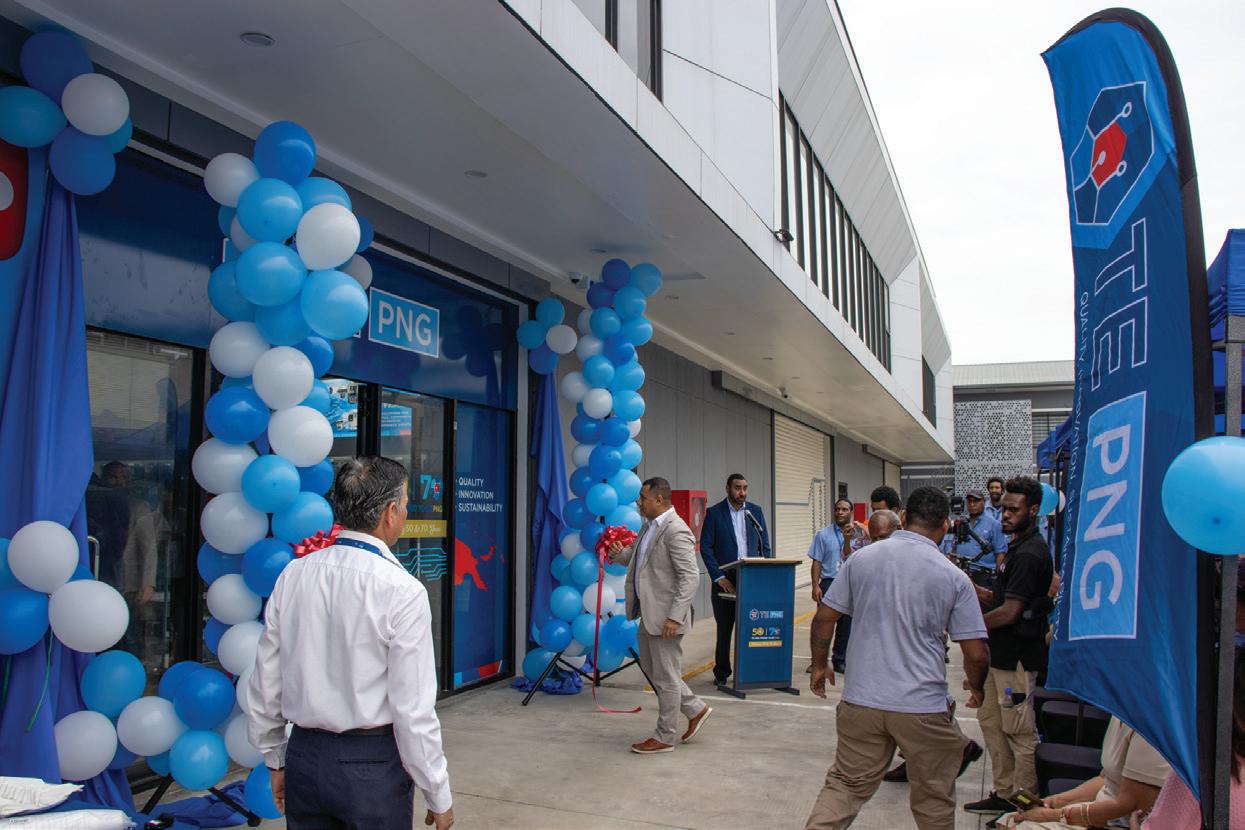


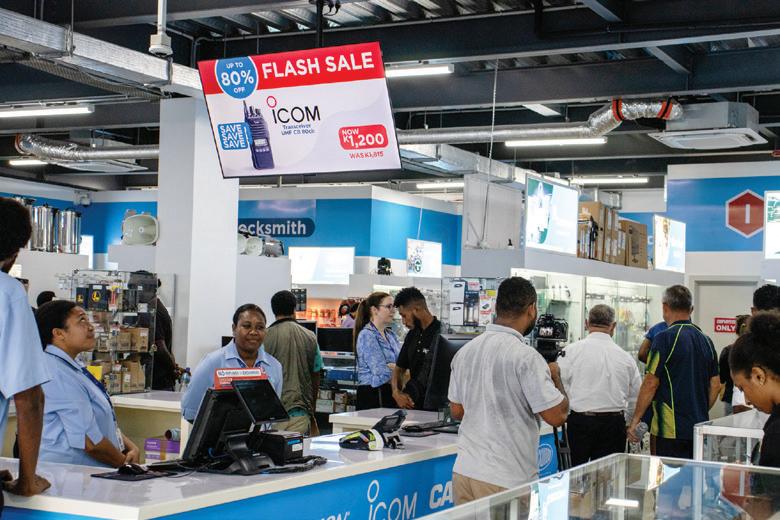






Komatsu Australia is looking forward to meeting the needs of Papua New Guinea customers following the acquisition of existing distributor company, UMW Niugini Limited. The business has been renamed Komatsu Niugini Limited (KNL).
Sean Taylor, Komatsu Australia Managing Director, said the acquisition follows a change in the ownership structure of the joint venture parties that previously owned UMW Niugini Ltd.
“As a result of this change in structure, KNL has become a fully owned part of the Komatsu Group. Komatsu Australia is the obvious choice to manage Komatsu Niugini going forward, given our proven expertise and success in the Oceania region,” he said.
“The KNL team will be able to
draw on the resources of the broader Komatsu Australia business, especially our technical expertise and training capabilities to support machine troubleshooting and workforce development. We hope this acquisition will also benefit our Australian customers who have connections in PNG as well.”
Komatsu products have been distributed in PNG since its incorporation in 1970, and the local team has established itself as a leading supplier of construction and mining equipment, as well as power generation solutions.
The company holds significant market share in the PNG’s heavy equipment sector supporting a machine population of over 1200 Komatsu machines.
KNL employs approximately 100 people and services major cus -
tomers including Morobe Mining, Monier (PNG), Digicel (PNG), Construct Oceanic and IPWENZ Construction.
The acquisition was completed on 1st May 2025 with Dash Rayat leading the business as General Manager of Komatsu Niugini Limited (KNL) as part of the transition from UMW Niugini Ltd. The main office will continue to operate from its Port Moresby base.
“Our local PNG customers can expect the same level of support they have always had from their trusted local experts, now supported by the wider Australian business. We look forward to welcoming the KNL team and building on the strong foundations already in place in the region, while leveraging our global expertise to create value together,” Taylor said.
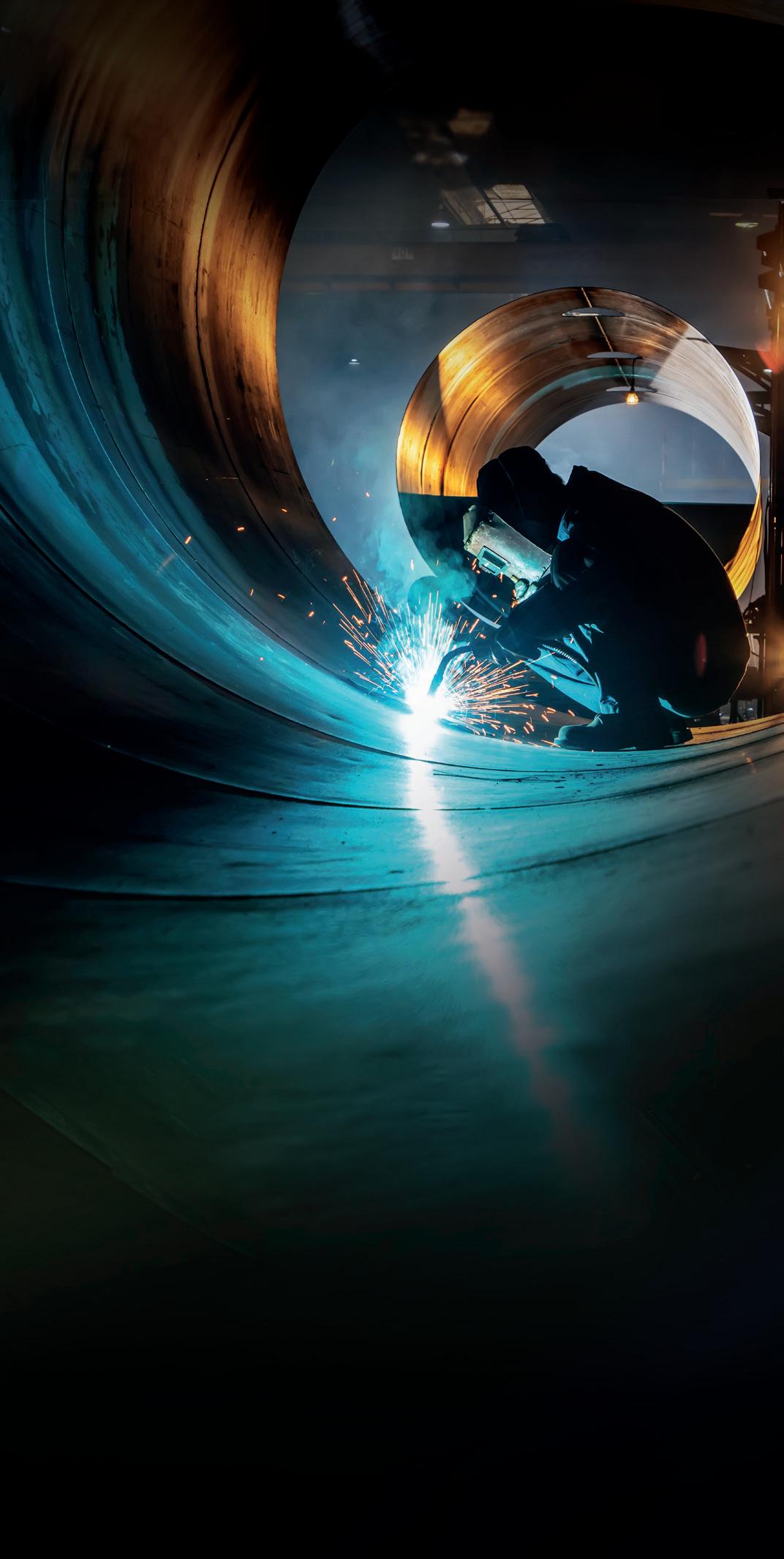
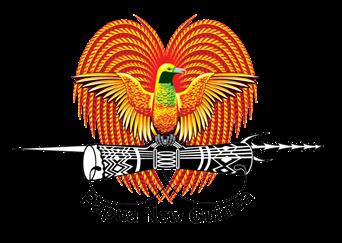





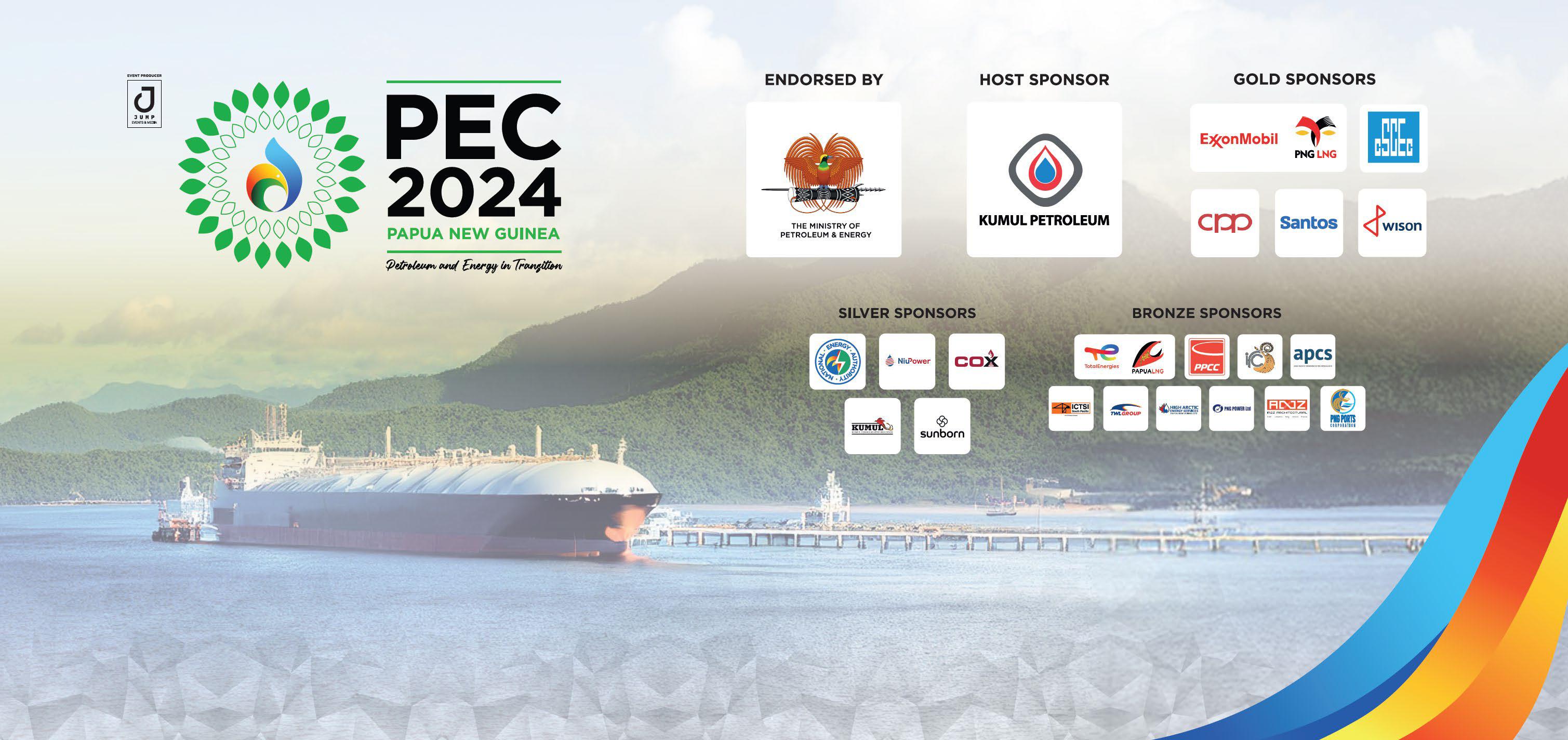
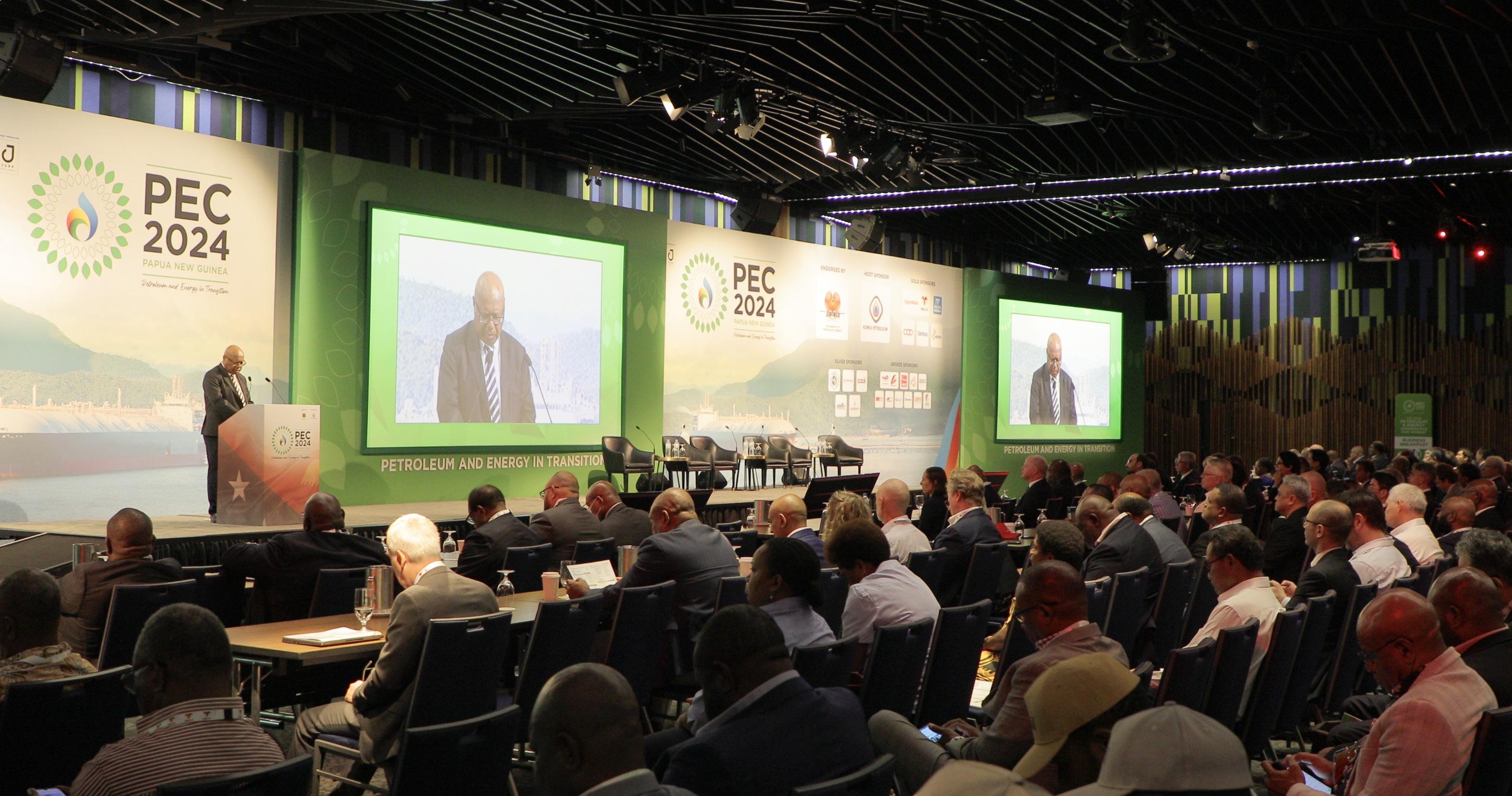
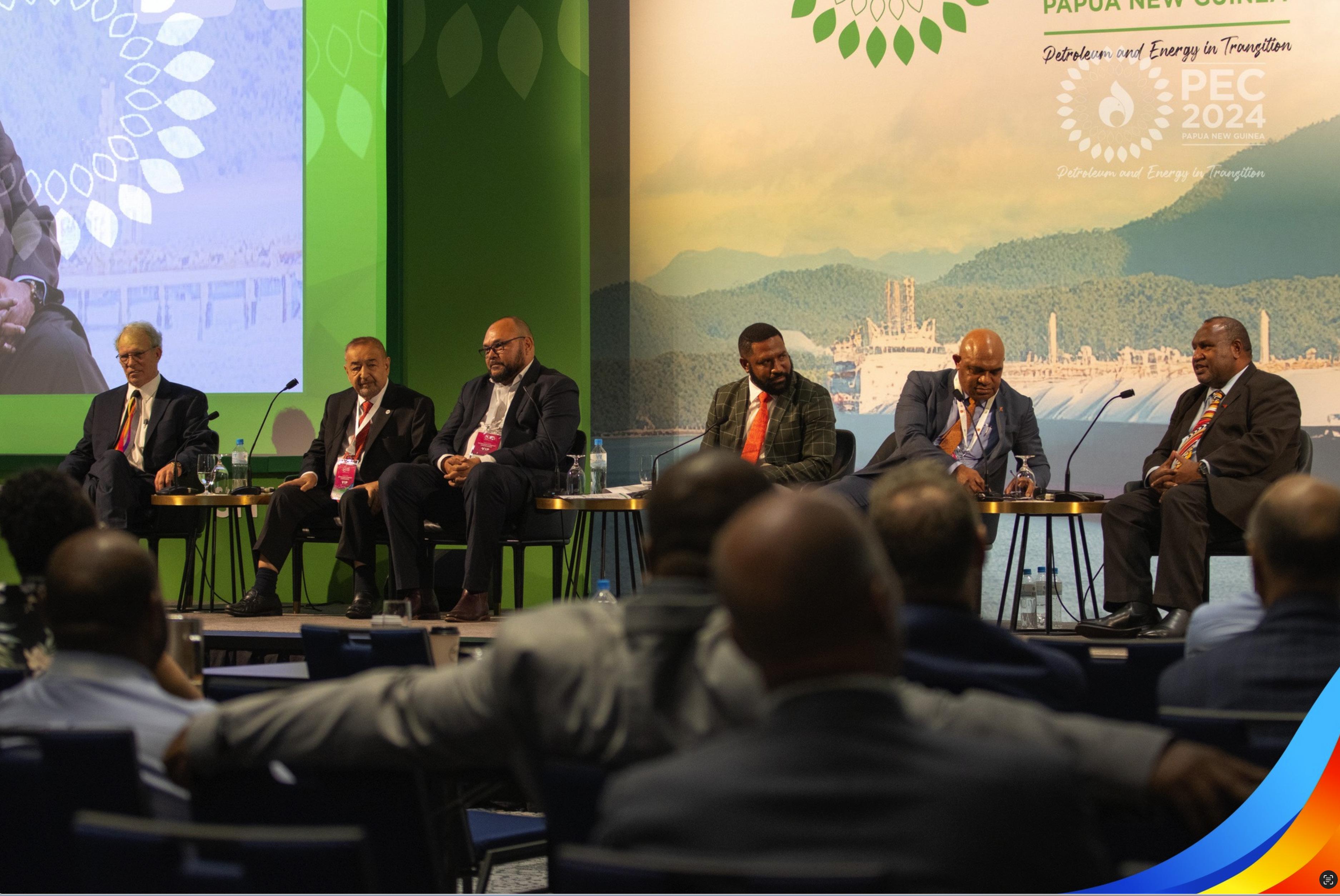


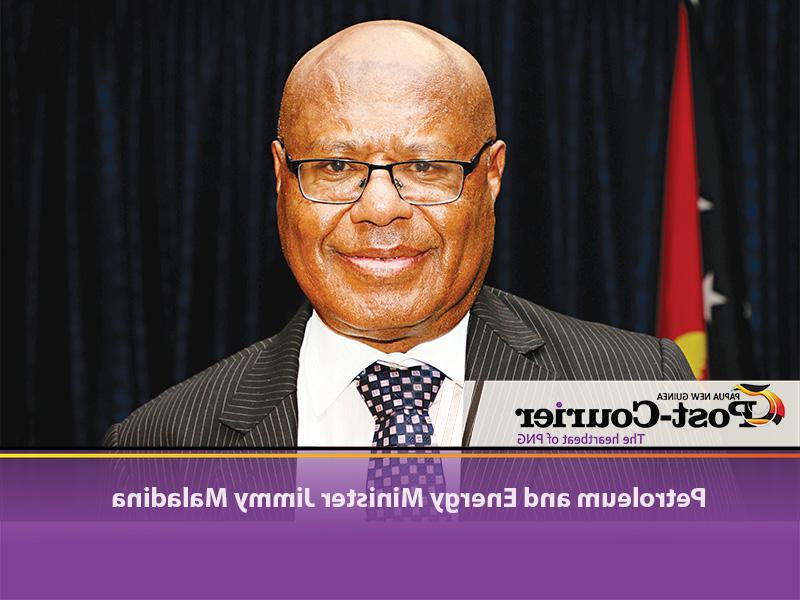







Pacific Towing, a prominent marine services provider headquartered in Port Moresby, is reaping the benefits of a recent organisational restructure that has transferred the management and maintenance of its fleet to a newly established entity.
A key advantage of the change has been a marked improvement in fleet availability. This operational efficiency has also enabled leadership to sharpen its focus on securing new commercial ventures—including project-based opportunities tied to Papua New Guinea’s growing oil and gas industry.
Founded in 1977, Pacific Towing (PacTow) operates within the Logistics Division of the 106-year-old Steamships Trading Company Ltd., which counts John Swire & Sons as one of its two major shareholders. The division also includes Consort Express Lines (Consort), Papua New Guinea’s largest coastal shipping operation.
Established in February this year, Steamships Ship Management (SSM) combines the in-house ship management activities of both PacTow and Consort under a single umbrella organisation.
Gerard Kasnari, General Manager of PacTow, notes that the restructure has delivered measurable results in fleet availability.
“Repairing and maintaining vessels, including dry docking, presents an ongoing challenge for fleet owners across PNG and Melanesia,” Kasnari explains. “Fleet availability is rarely where we want it to be, but this new structure is helping us get much closer to those targets.”
Vessel maintenance in PNG is a key operational challenge, driven by the high cost and limited domestic availability of parts. Sourcing components internationally often involves prolonged lead times—particularly for oversized items that cannot be transported by air. PNG also has limited docking facilities.
As a result, PacTow has increasingly opted to send its tugs overseas for mandatory dry dockings, with two tugs, Waiowa and Keera, completing their life extension dockings in the 1st
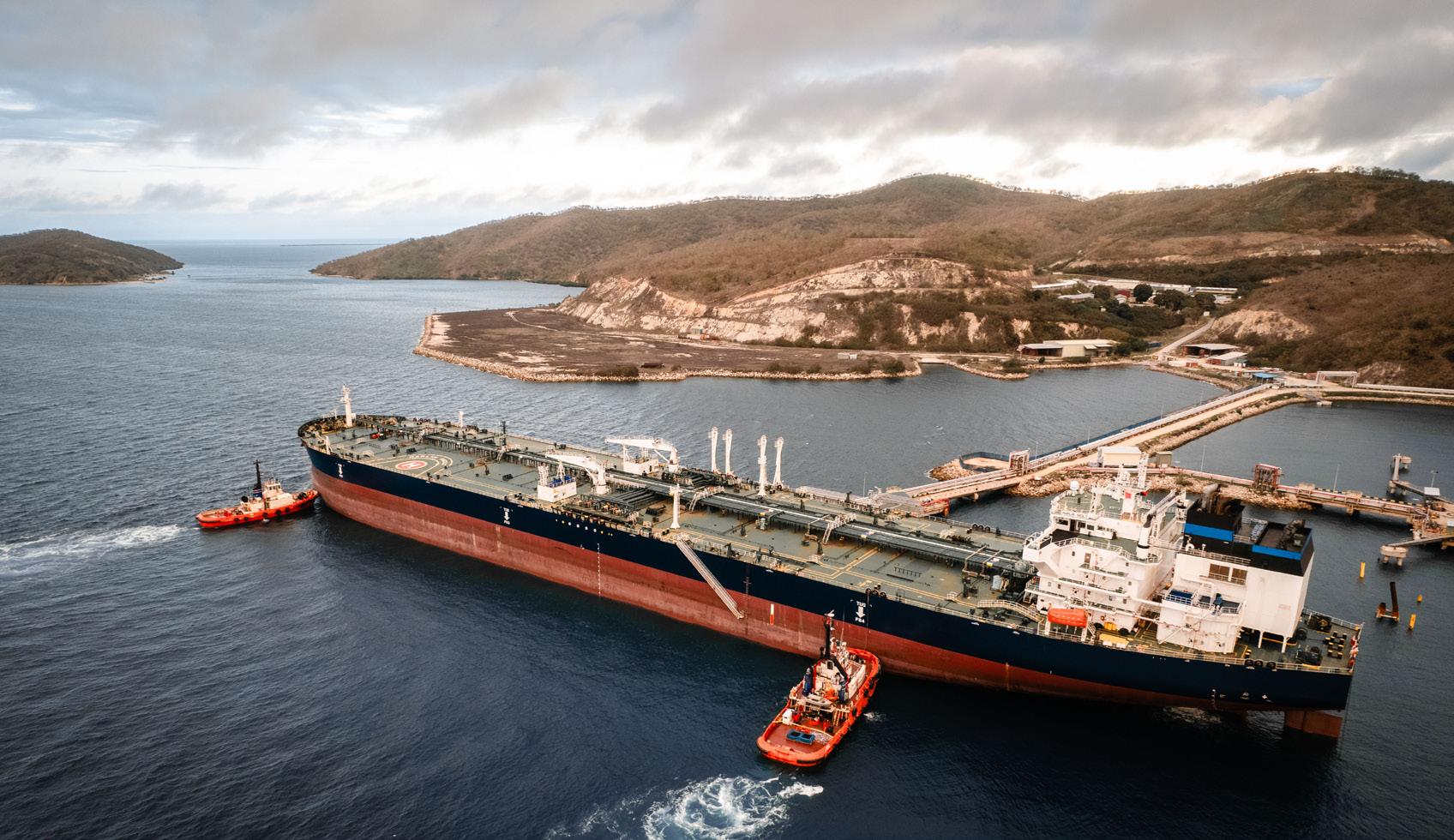
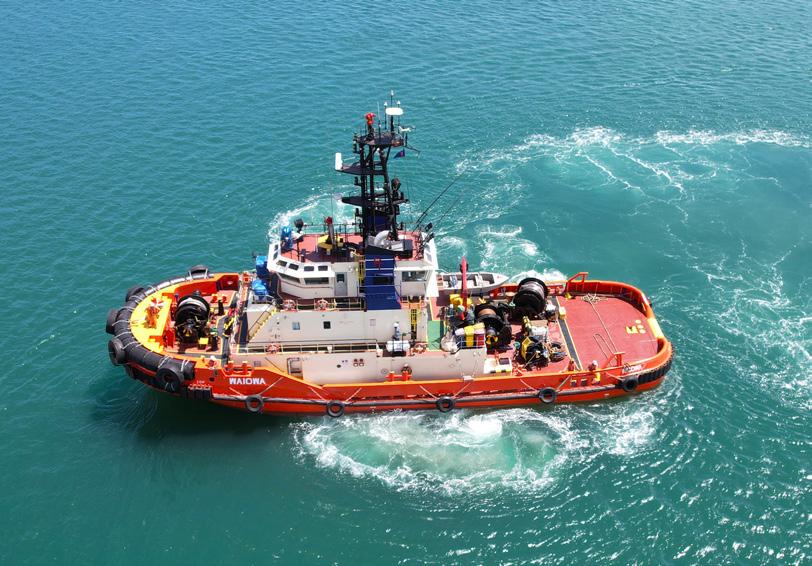
quarter this year.
SSM has managed to improve PacTow’s fleet availability relatively quickly through best practice technical management and via a more streamlined and systematic approach to preventative maintenance. Through this, further availability improvements will be realised under SSM’s uniform dry dock management approach.
The company should also begin to realise cost savings through SSM’s centralised procurement, rationalisation of spend, and economies of scale in purchasing.
Kasnari reports that another benefit of PacTow’s restructure is the time he and his team now must take advantage of new commercial opportunities.
“Under the old structure we were spending an unsustainable amount of time trying to rectify sub-optimal fleet availability. However, with SSM now responsible for fleet mainte -
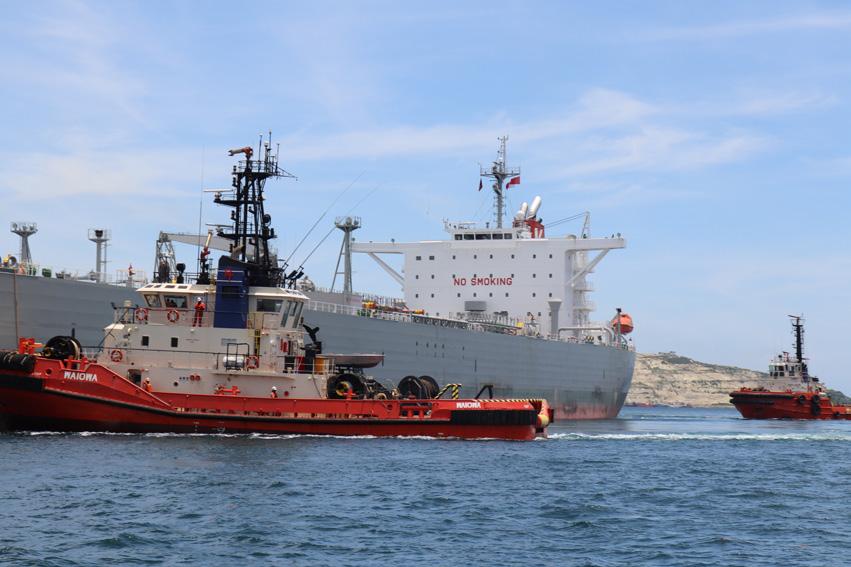
nance, as well as vessel bookings, HSSE, crewing, procurement, and vessel IT support, we are able to focus more on business development,” he said.
“This includes pursuing international towage and other project-based work, some of which is tied to PNG’s expanding oil and gas industry, as well as to other major resource developments and infrastructure programmes such as the upgrading of several of the nation’s ports.”
Pacific Towing is Melanesia’s largest marine services business. It employs more than 250 staff and has a fleet of 20 vessels. It provides a broad spectrum of marine services including towage, emergency response, commercial diving, life raft services, and salvage. PacTow is part of a larger maritime and land Logistics Division of the Steamships Group. To learn more about PacTow: www.pacifictowingmarineservices.com.
Pacific Towing has significantly improved fleet availability following a restructure in which a separate entity assumed responsibility for fleet management and maintenance.

Remington Group, one of Papua New Guinea’s longest standing and most respected businesses, has announced the appointment of Justin Kieseker as Chief Executive Officer.
With 78 years of history behind it, Remington has built a reputation on reliability, resilience, and results.
“From print and document solutions to ICT and business technology, the Group has remained a key player in PNG’s commercial landscape, and under Justin’s leadership, it’s positioning itself for the future,” it said in a statement.
Kieseker has been with the Group for six years, working across multiple business units and playing a hands-on role in operations, strategy, and growth. His leadership reflects a strong understanding of the local market, the challenges PNG businesses face, and the value of teamwork and consistency.
“This business is built on good people doing good work,” Kieseker said. “What’s kept Remington strong all these years isn’t just our products,
it’s our people, our customers, and our drive to keep showing up and delivering. I’m proud to be leading a team that genuinely believes in what we do.”
In the months ahead, Kieseker will focus on three key priorities: aligning operations across the Group, building a stronger team culture, and investing in smart, sustainable growth, particularly in ICT and digital infrastructure.
His plans include scaling up Remington Digital Solutions and making targeted investments in systems and services that support PNG’s digital future.
The Board of Directors expressed confidence in Kieseker’s appointment, describing it as a “logical next step” for someone who knows the business from the ground up.
“Justin has earned this,” said John Beattie, Board Chairman. “He’s proven himself repeatedly, he listens, he leads, and he follows through. That’s what we need.”
As PNG’s economy continues to evolve, Remington Group is focused
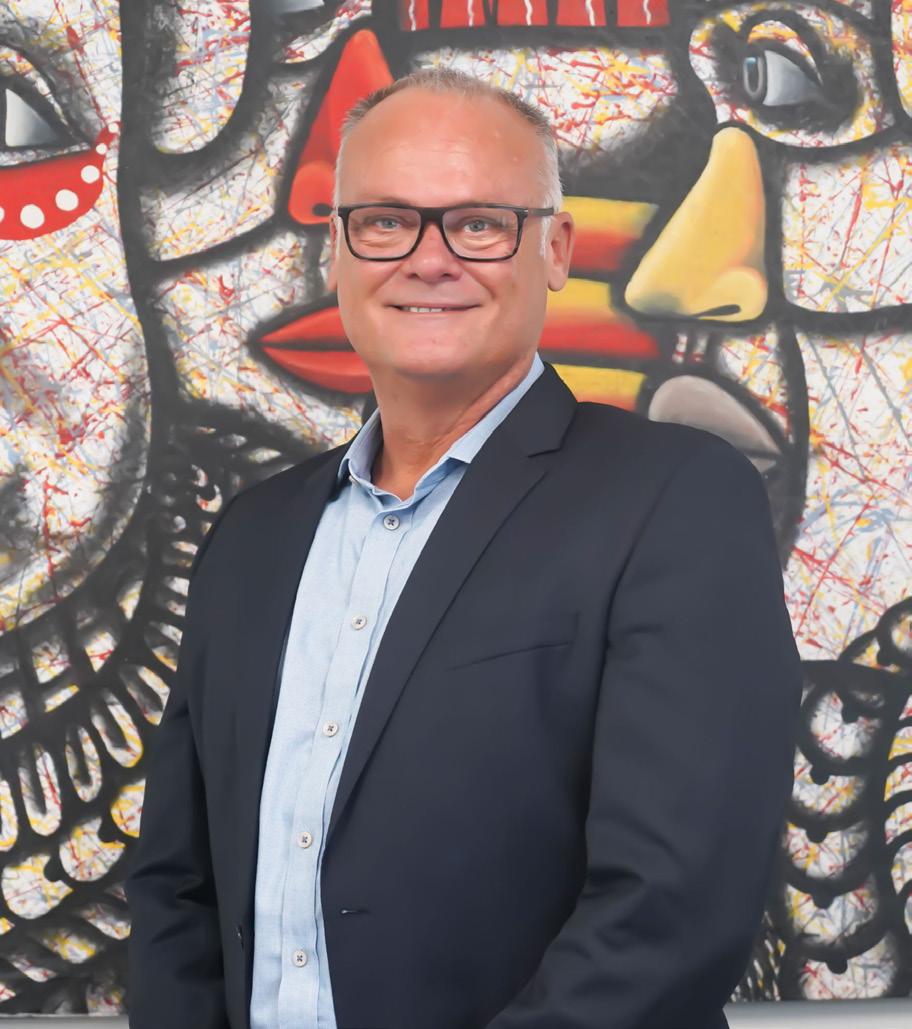
on staying relevant, resilient, and ready.
With Kieseker at the helm, the company will continue doing what it does best, backing its people, serving its customers, and helping drive the country’s digital transformation.
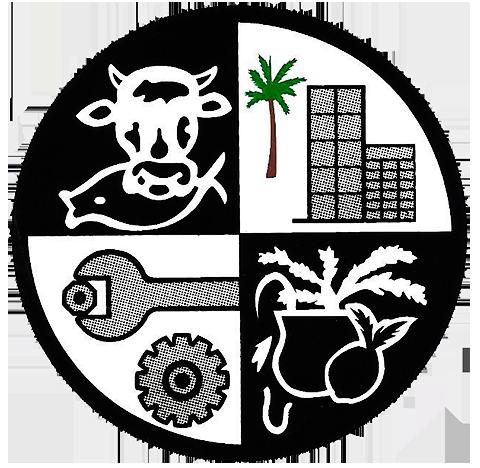
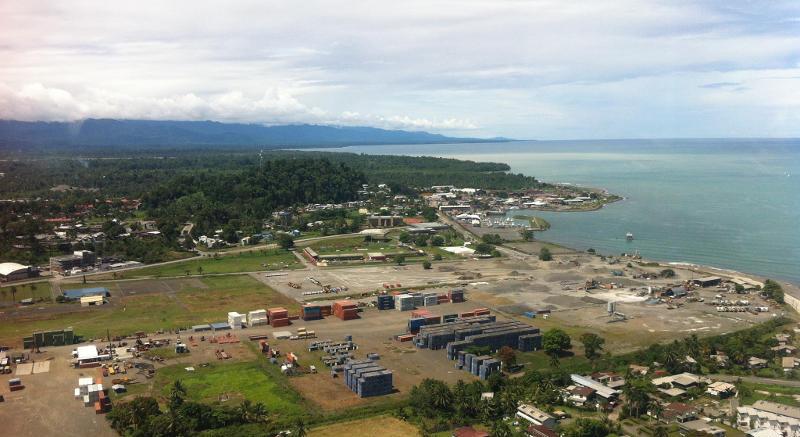

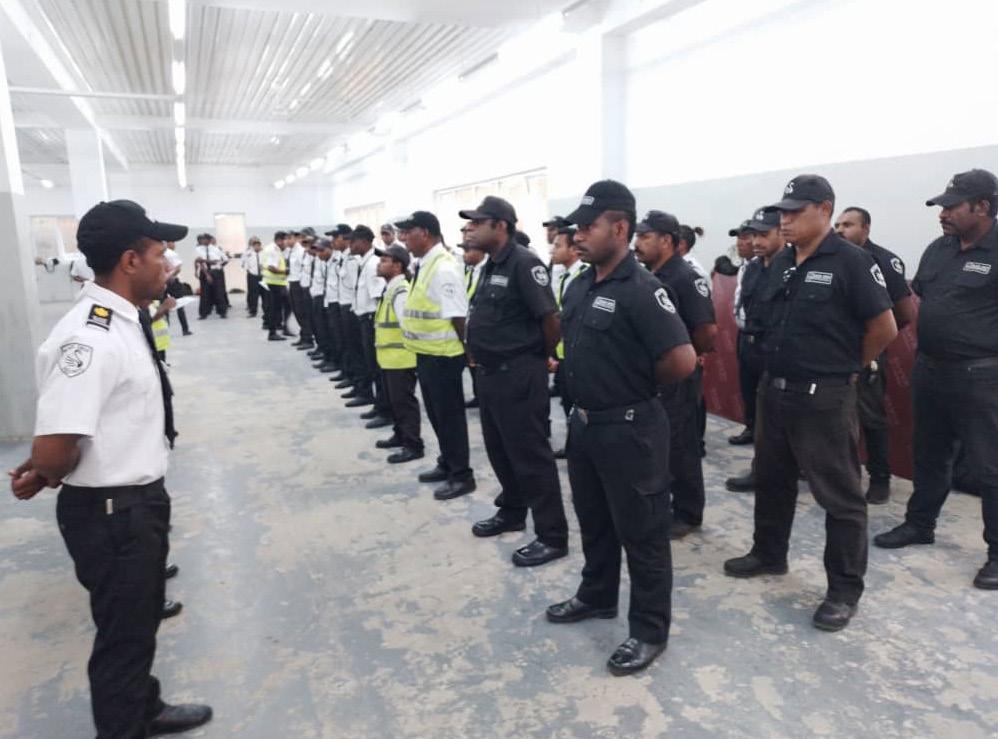
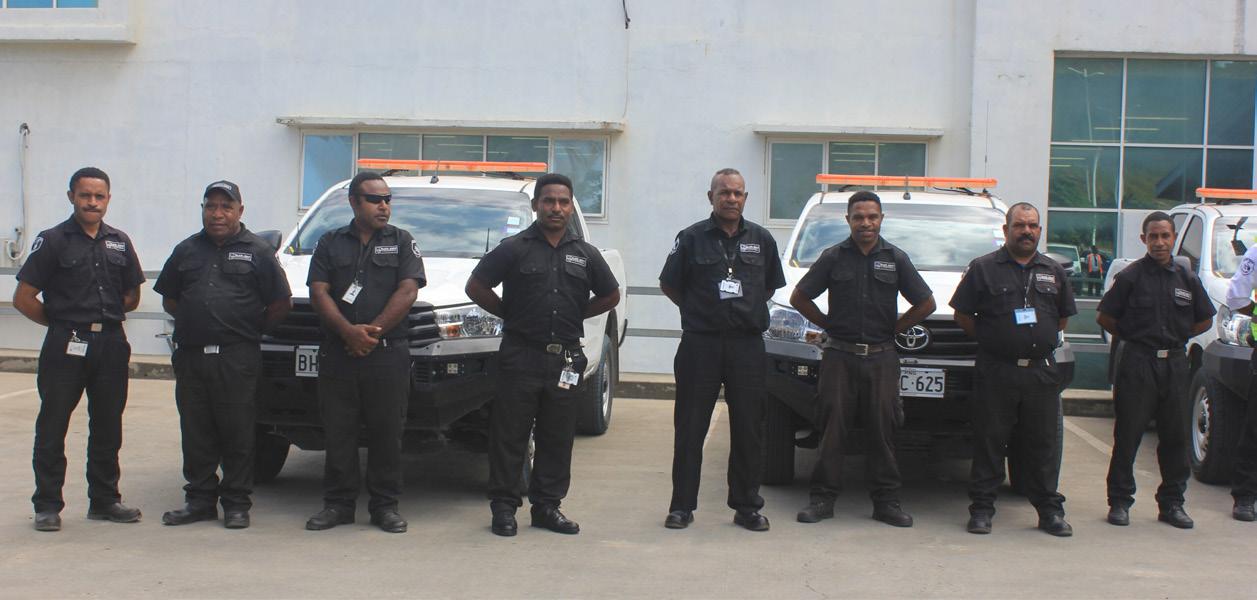
At Black Swan PNG, we deliver tailored security solutions that meet the distinct needs of each client. With a strong focus on risk mitigation, our expert team combines cuttingedge technology, highly trained personnel, and strategic protocols to provide dependable security across any operational environment. We are committed to safeguarding your assets and ensuring a secure and resilient presence wherever you operate.
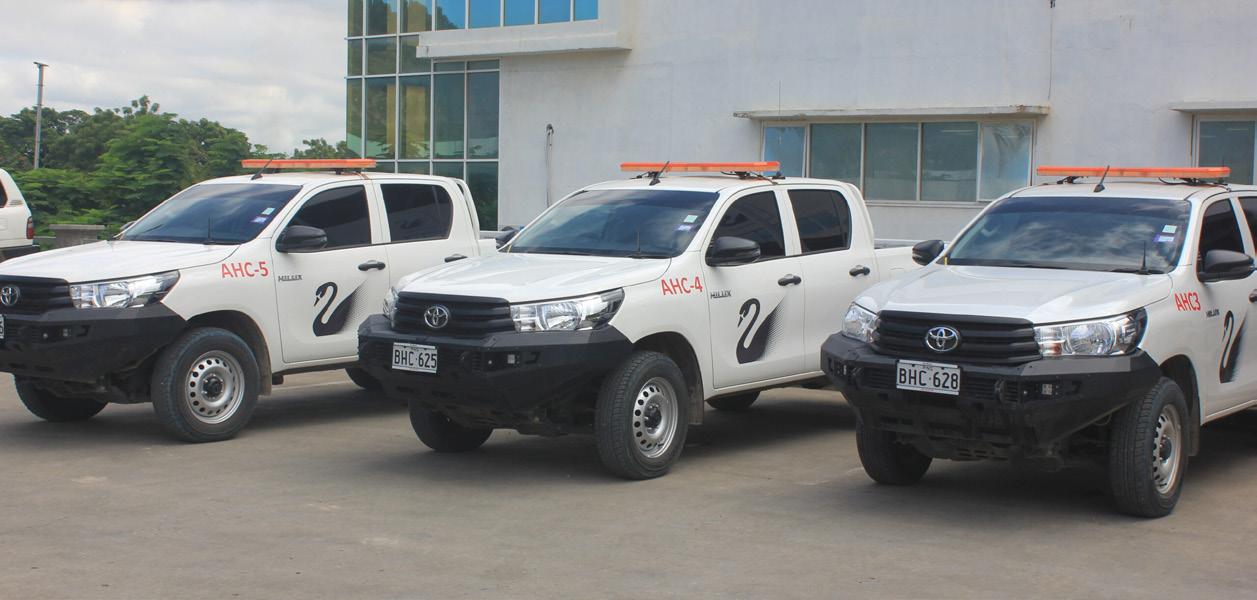
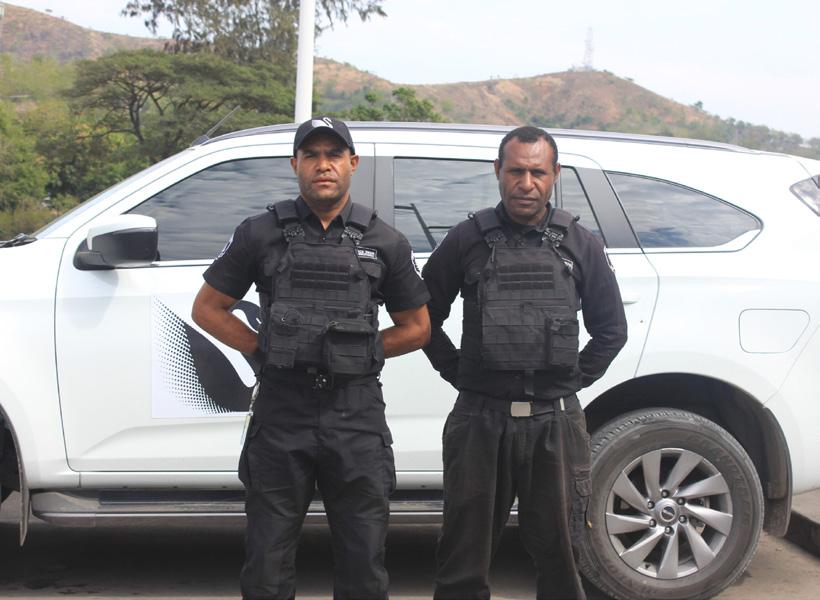

By: ROSELYN EREHE
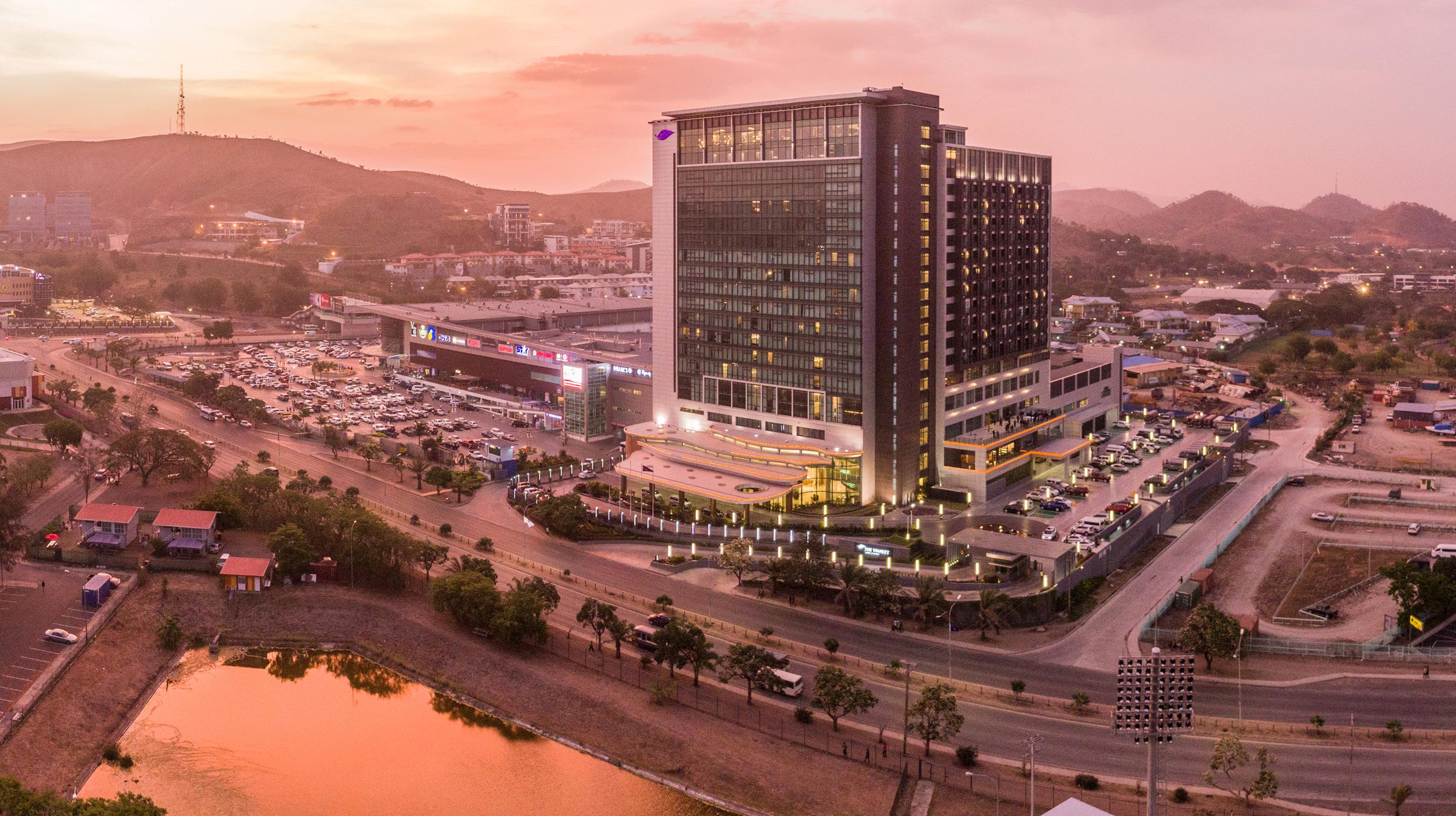
Have you ever stepped inside a hotel and thought, “I know this place”, only to discover you have barely scratched the surface?
You might think you know The Stanley Hotel & Suites in Port Moresby, but do you really?
You have not seen the best of it, yet. The Stanley Hotel & Suites, is a 20-story building with over 400 rooms, suites and service apartments, it’s not just a place to sleep and eat, it is a fully integrated lifestyle destination. Whether you are a business traveler, sports fan, or a local looking for luxury, The Stanley Hotel ticks every box;
• PNG’s largest ballroom
• Modern, flexible meeting facilities
• Secure, direct access to one of the biggest shopping malls in Port Moresby - Vision City Mega Mall
• Security and Safety
• 42-meter swimming pool
• State-of-the-art gymnasium
• Fine and casual dining
• Long-stay apartments with kitchens
• Cultural markets inside the hotel
• iconic events, themed nights, live entertainment
• the preferred hotel for PNG’s 50th anniversary
Now that we have ticked the boxes, let us see if you know more about,
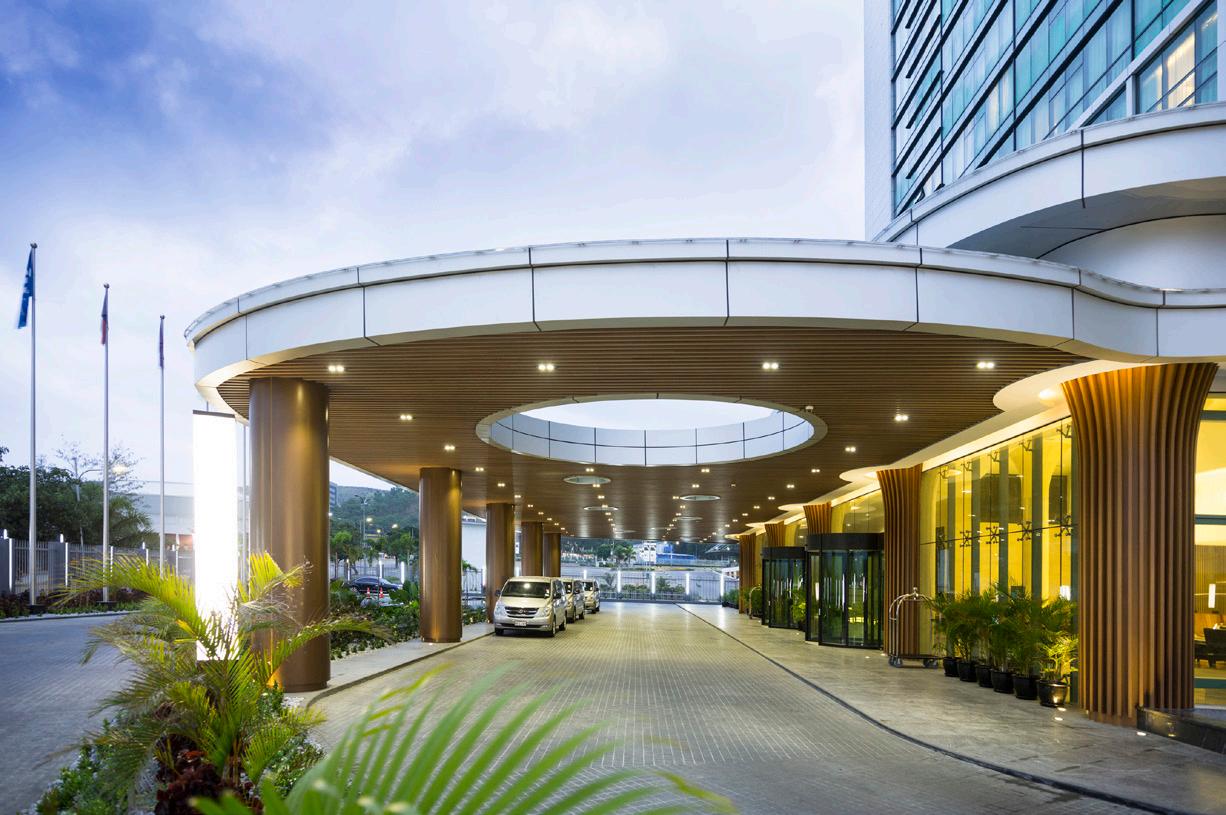
Papua New Guinea’s premier hotel, The Stanley Hotel & Suites. Did you know that the Stanley Hotel is home to Papua New Guinea’s largest pillar-less ballroom, an impressive 1,630 square meters in size, designed to host the most prestigious events in air-conditioned, uninterrupted elegance with the most modern conference facility.
The Kokoda Ballroom is the largest ballroom in PNG, accompanied by the Mount Victoria and Mount William breakout rooms, offering flexible configurations for conferences, banquets, galas, and expos. The Mt Victoria rooms and Mt
William are a suite of smaller meeting rooms with direct access onto a large outdoor terrace. The rooms can be adjusted to meet your requirement and request whether it is theater, classroom, boardroom, and preferred set-up shape, cabaret, banqueting or cocktail. The rooms can cater for meetings for 20 persons or up to 120 person’s banquet style.
With a dedicated arrival entrance, three escalators, four elevators, and multiple staircases, guests can move easily and comfortably.
That is not all, there is an amazing Boardroom conveniently located in

the hotel lobby, next to the Business Center, is perfectly suited for business meetings or discussions for up to 12 persons.
Multiple hotel entries and exits ensure seamless movement for guests, VIPs, and event attendees.
It is the only venue of its kind in PNG where form meets function at such scale.
No event is too big to host here. Even the smallest events are valued and treated as an event to make a lasting impression. For a conference with a world of difference, choose the Stanley Hotel.
Did you also know that staying at The Stanley Hotel & Suites does not mean being confined to your room. Offering direct and secure access to Vision City Mega Mall, guests can step out of their suite and into the largest shopping, dining, and entertainment complex in PNG, with over 60 retail stores, restaurants, a movie theatre, and a nightclub all without ever stepping outside.
While you enjoy your stay, or take a time out at the Stanley Hotel, do not overlook your wellness routine when you travel. The Stanley Hotel and Suites offers a 42-meter outdoor swimming pool located on Level 5, it is the largest in the country and overlooks the Owen Stanley Ranges.
A state-of-the-art gymnasium, easily four times the size of any other in PNG, fully equipped for cardio, weights, and conditioning. If you prefer a private room for sessions, they have you covered as they offer private rooms for special classes.
Food is a cornerstone of The Stanley Hotel experience, offering an amazing choice if six dining and beverage experiences- Green Haus Restaurant, Rainforest Café, Monsoon Bar & Lounge, Pool Bar & Café, Silver Leaf Restaurant, Executive Club Lounge and Mezz Bar.
From Silver Leaf Restaurant is on level 19, one of PNG’s finest dining restaurants with a breathtaking view of the city. The Green Haus Restaurant serves one of the best buffets in the country, you will taste the hotel’s
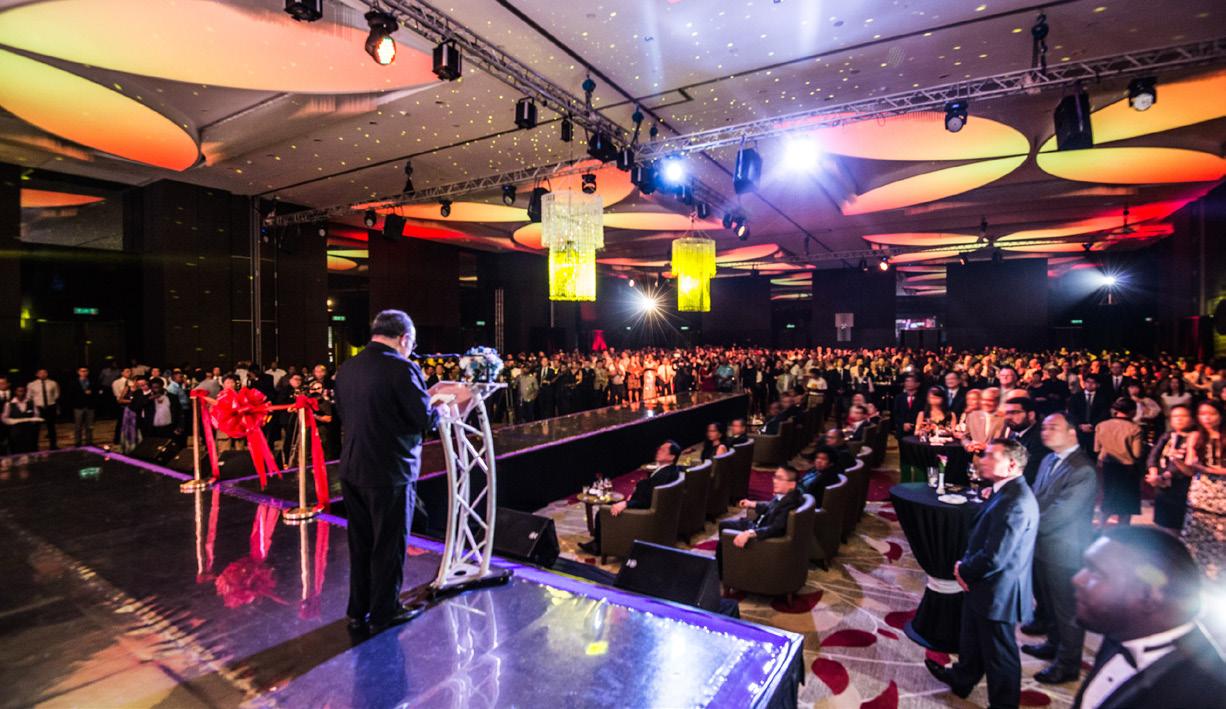
commitment to quality in every bite. If you are heading in for a quick meet and bite, at the ground floor, we have Rainforest Café flooded with natural light, ideal for meeting friends and having a light café style snack or join colleagues for a coffee, topped off with one of the many delicious cakes and pastries from The Stanley Hotel Patisserie.
The Executive Club Lounge is for Executive room, apartment and suite guests. It provides additional services and facilities, breakfast, evening beverages and canapés etc. The Club Lounge is open during the day for the guests to work, relax or simply enjoy the luxury service of the hotel.
Prefer a more laid-back evening? Head to Monsoon Bar, a lively space with karaoke, live music, and regular themed events, like their iconic State of Origin nights with special guests, burgers, and beer.
Tired of room service? Prepare your own breakfast. Sick of takeout? Make a home-cooked dinner. Stanley makes extended stays feel like home with luxury.
For long-stay guests, The Stanley offers fully serviced one and two-bedroom apartments, complete with full kitchens, giving you the flexibility to cook your own meals. Just drop by Owens Market within the hotel to grab local produce, snacks, or essentials and you are set.
The 62 one-bedroom apartments have separate lounge, kitchen and dining area. The one bedroom apartment is 72 square meters in total which has one King-size bed and large walk in the bathroom. The Apartments’ balcony faces over the pool or the Owen Stanley Ranges.
There are 33 two-bedroom apart-
ments with separate lounge, kitchen and dining areas. These two-bedroom apartments are 110 square meters in total. The apartments each have one king-size bed in master room, second bedroom has 2 queen beds, both rooms with private walk-in bathrooms.
Both the one bed room apartments and two bedroom apartments’ guests have access to hotel facilities and services including the gymnasium, resort pool, in-house dry cleaning, and concierge and airport transfers. Guests have on-site secure car parking and six food and beverages outlets to choose from without leaving the hotel.
The Stanley Hotel is strategically located in the heart of Port Moresby, just 6 minutes’ drive away from the Jacksons international Airport. The Vision City Mega Mall is connected directly through the second floor of the Hotel.
Sir Hubert Murray Stadium, PNG’s premier sports venue, is just across the road from the Hotel, perfect for fans or teams book a stay, a meal, gym or use pool for a social day out.
According to the Director of Sales & Marketing Mr Craig Davies, the Hotel will soon be going through a rebranding and will become a Marriott branded Hotel.
‘The Sheraton Port Moresby Stanley Hotel.’
Those who know us, we will still be the Stanley…just better. New guests will know us as The Sheraton.
This is an exciting time and we look forward to offering another level of service from this truly international 5 star brand.
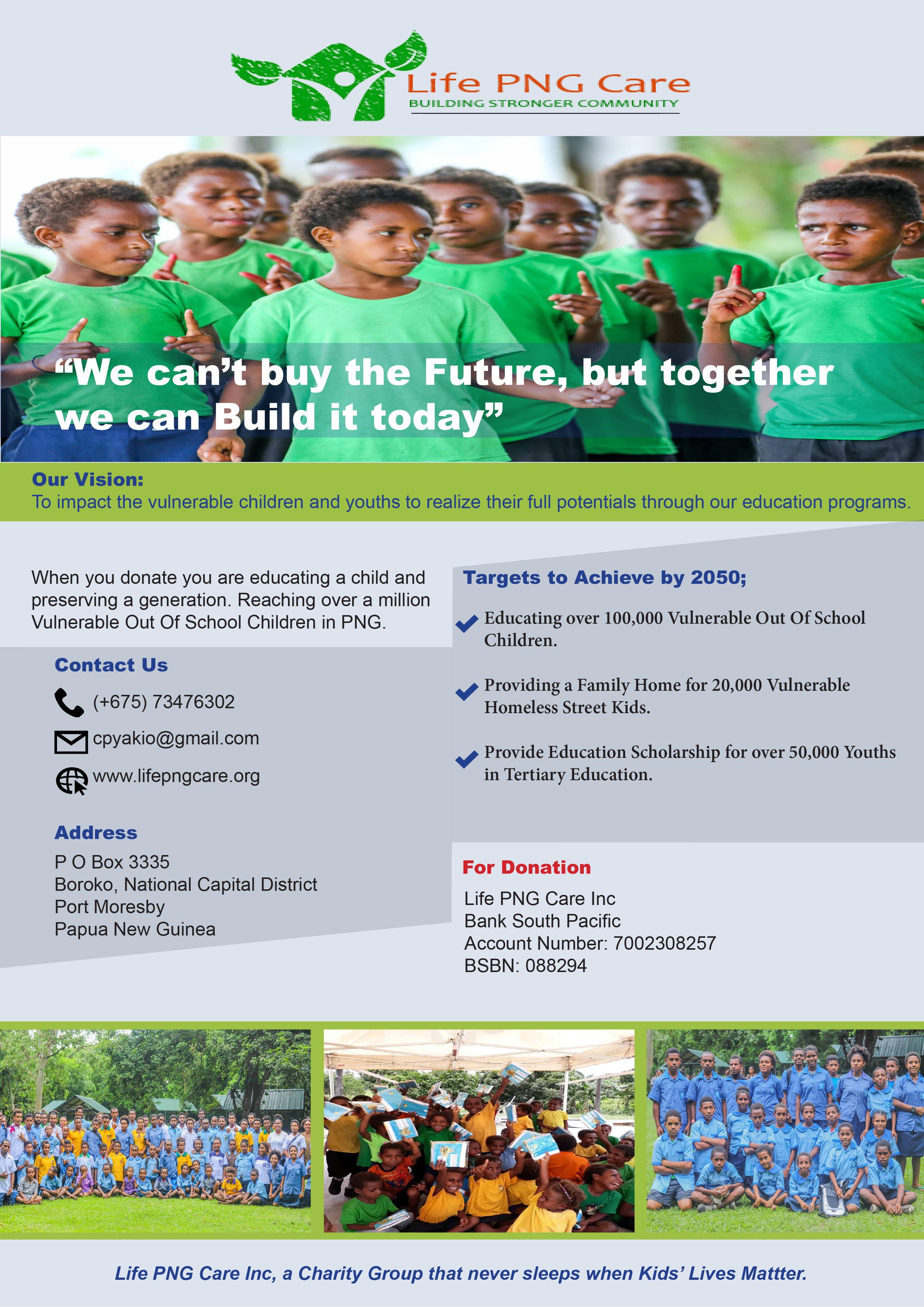
Steamships recently announced the appointment of Ruth Kissam, who joined the company’s team as General Manager of Corporate Affairs.
Kissam is the first woman to hold the position within the Company, and with the historical appointment, Steamships reinforces its commitment to closing gender gaps, as she leads an all-female-Papua New Guinean team.
A respected leader, advocate, and changemaker, Kissam brings a wealth of experience in grassroots development, community engagement, and advocacy.
In her new role, she will oversee Steamships’ communications, sustainability, and community engagement efforts, leading a dynamic and all-female team of Papua New Guinean professionals.
Her appointment marks a milestone in Steamships’ commitment to gender equity and the empowerment of women in leadership roles.
“Ruth’s appointment reflects Steam-
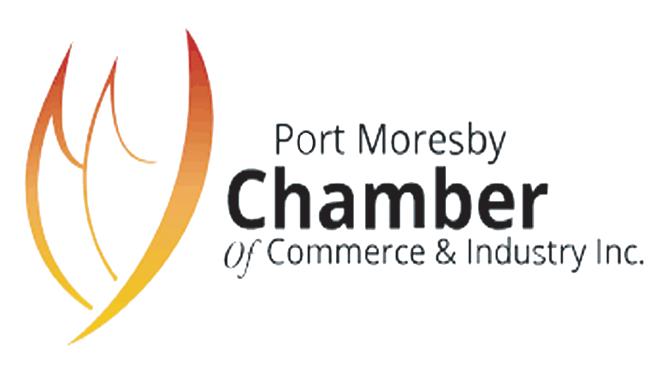
ships’ ongoing commitment to creating opportunities for capable, passionate Papua New Guinean women to lead,” said Steamships Managing Director Chris Daniells.
“We believe that empowering women in leadership not only strengthens our company but also helps build a more inclusive and resilient future for Papua New Guinea.”
Kissam’s all-female team challenges the gender norms and is spearheading key initiatives across the company’s corporate affairs portfolio, ensuring that community, sustainability, and inclusive growth remain central to Steamships’ operations.
“I’m proud to lead a team of smart, dedicated Papua New Guinean women who are passionate about making a difference,” said Kissam.
“Together, we’re not just representing women in leadership, we’re reshaping what leadership looks like through an iconic company that has played a significant role in the growth of this great nation.”
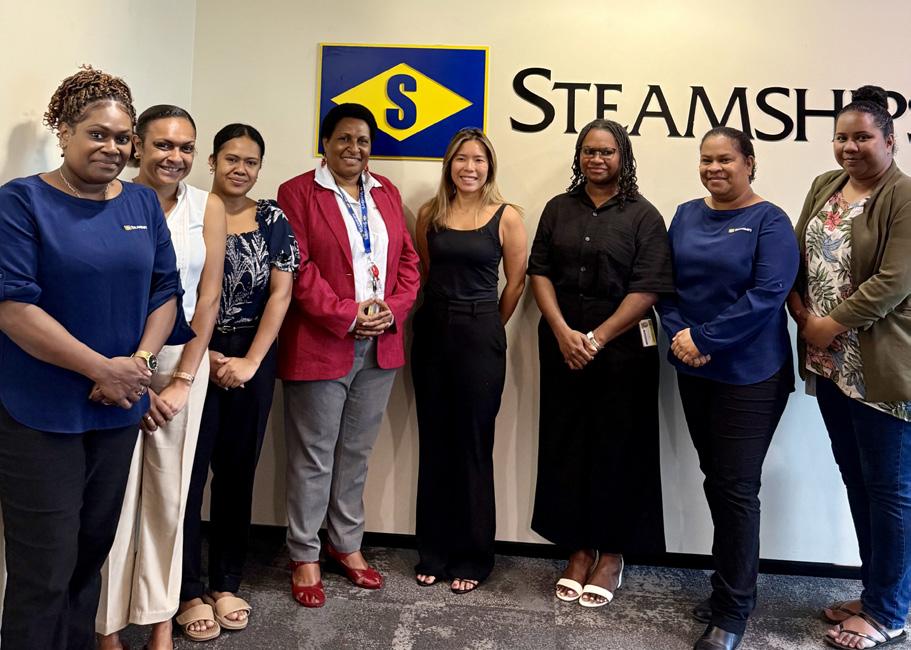
Steamships has a proud history of taking active steps to grow women in senior leadership positions, nurturing local talent and promoting based on merit.
These included Seini Fisi’ihoi, who was the General Manager of Human Resources 2022-2023, and Deborah Onga, previously Steamships’ youngest member of the Senior Management team, taking the position as Group Legal Counsel from December 2020 to March 2024.
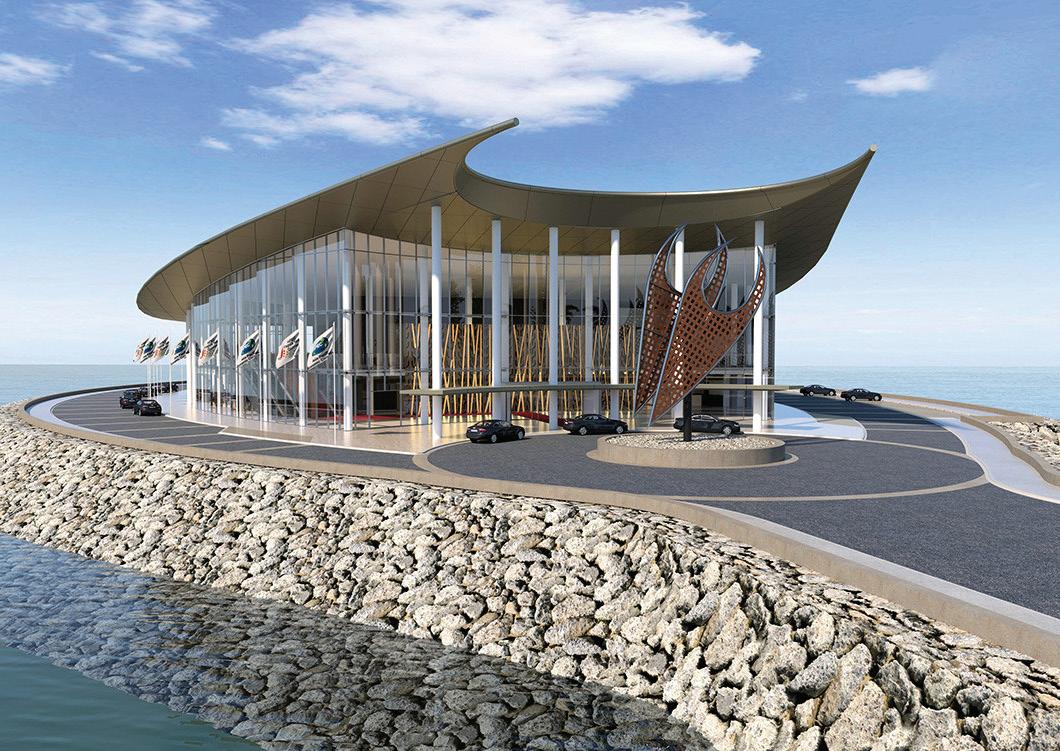

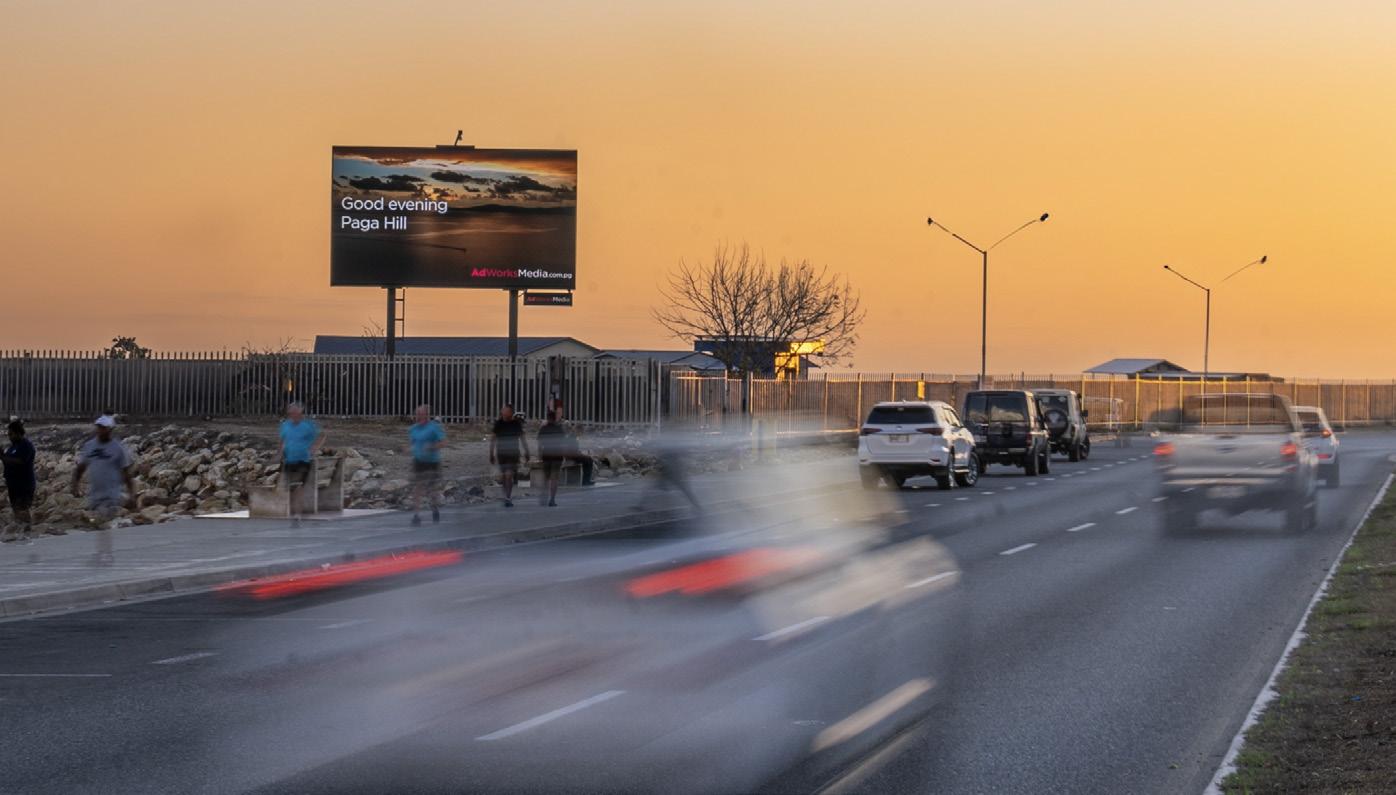
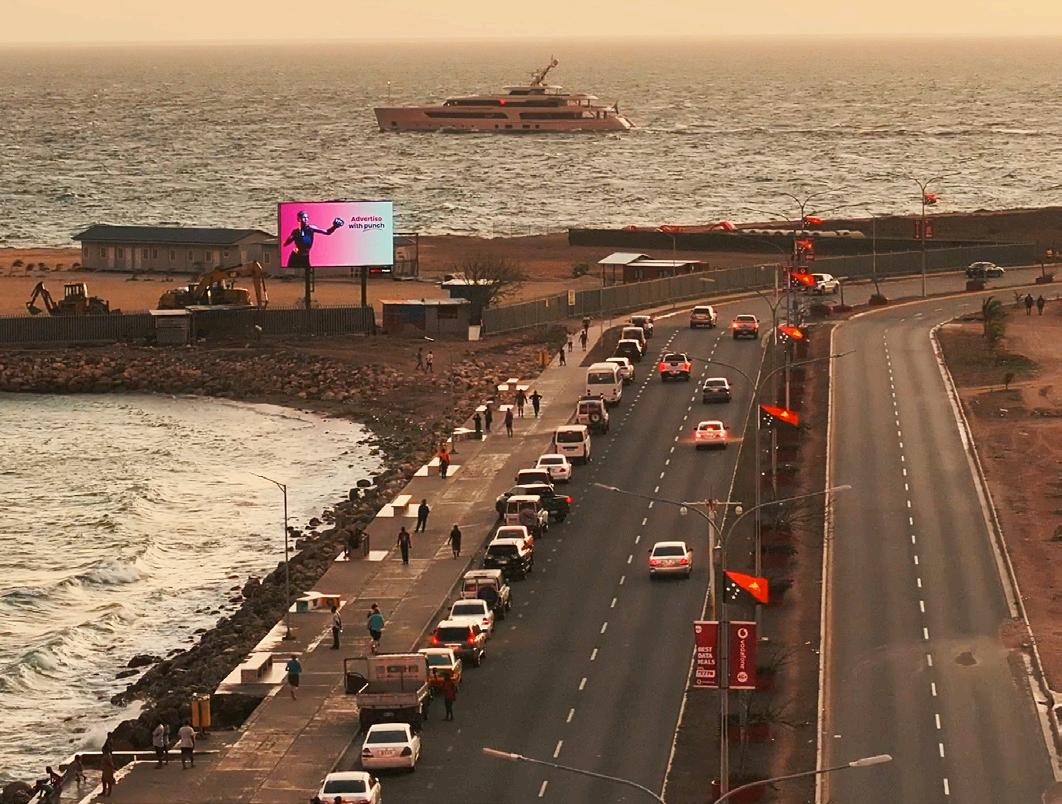
The city’s largest, most prominent digital billboard, located at Paga Point and facing APEC Haus, commanding undivided attention from a diverse range of vehicle and pedestrian traffic. The crowning jewel in any advertising portfolio, start here with any campaign.



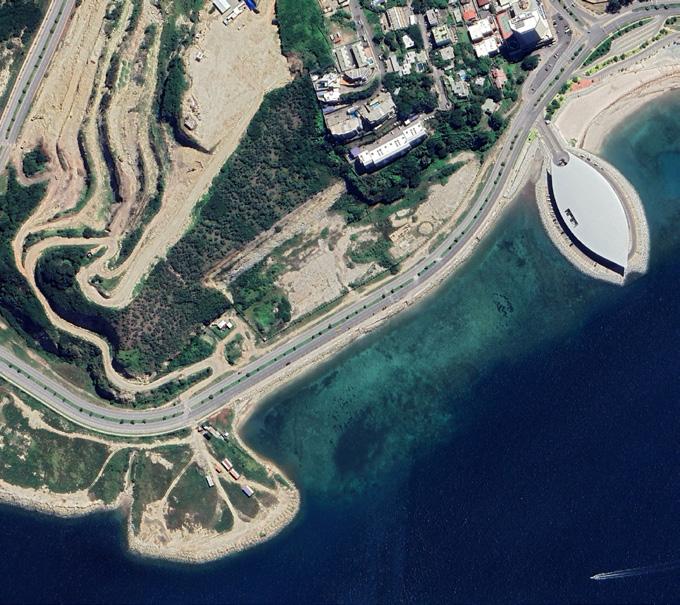





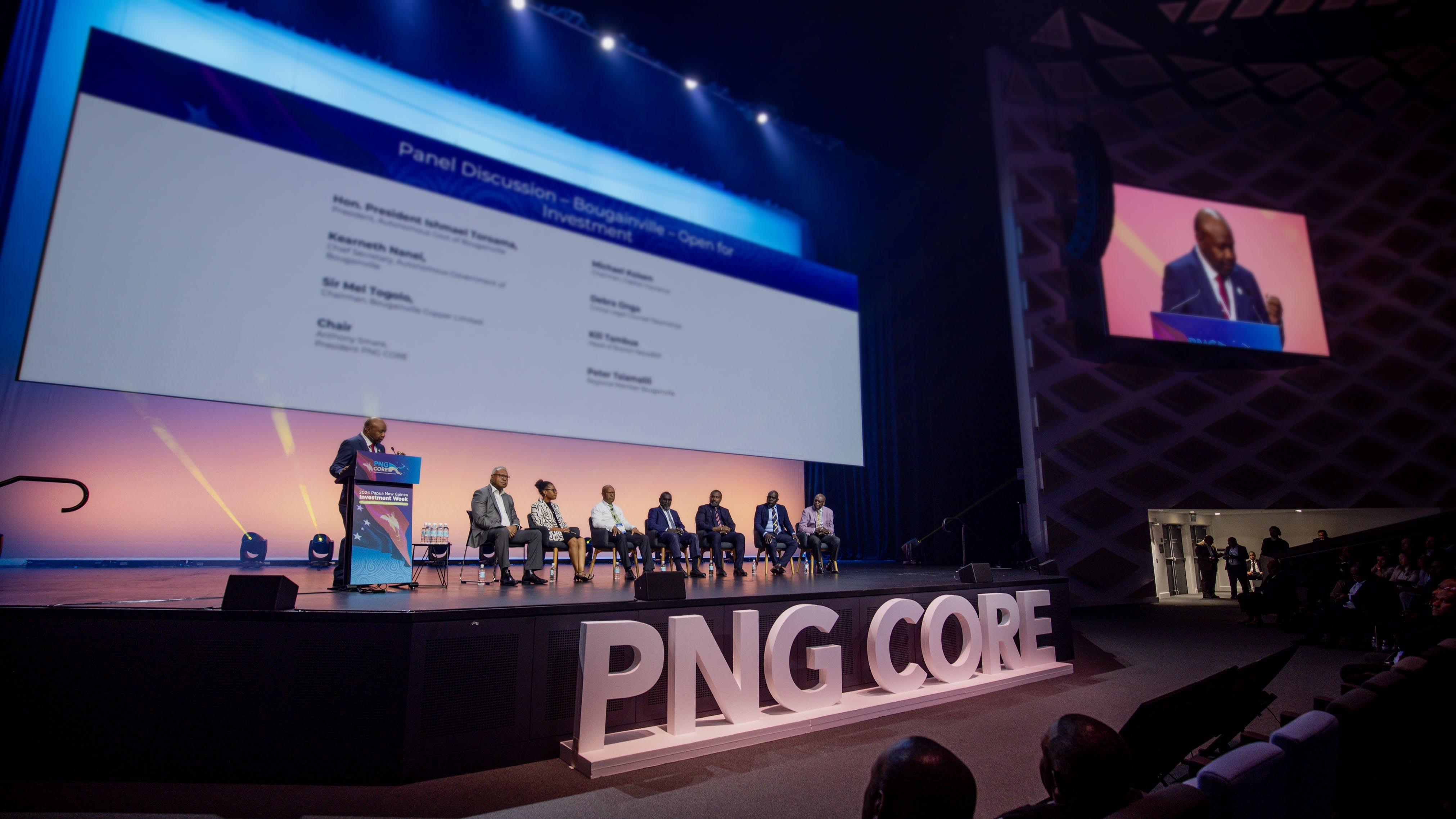
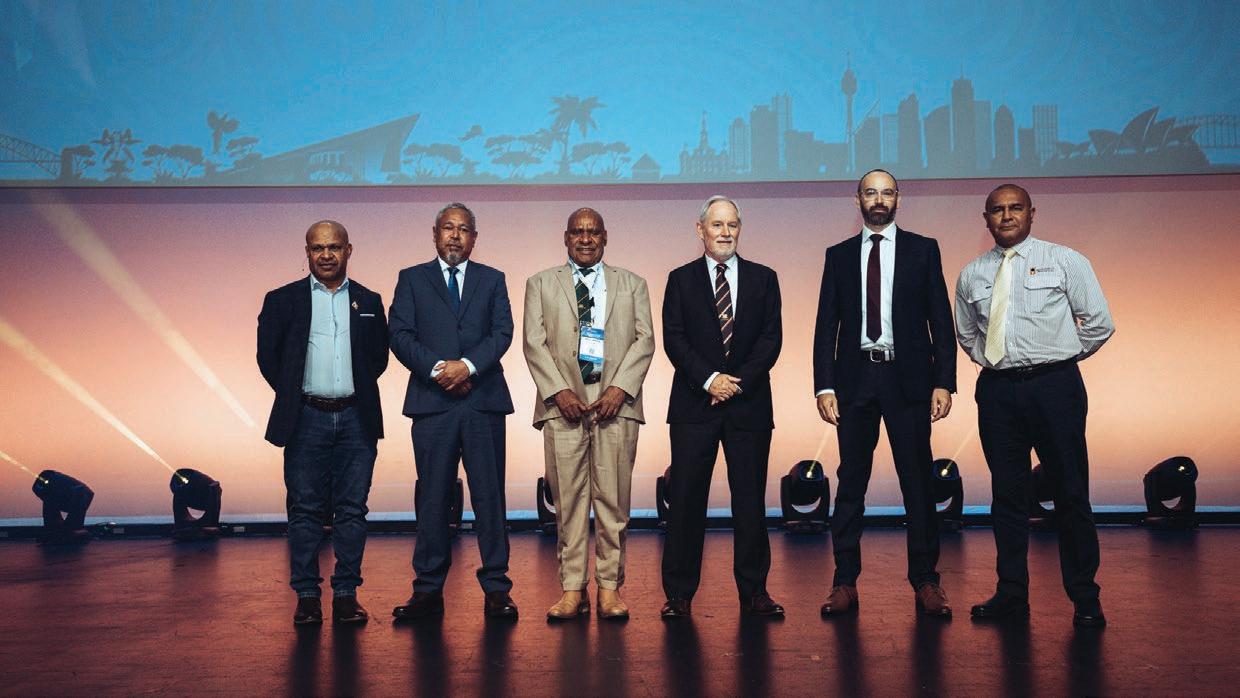
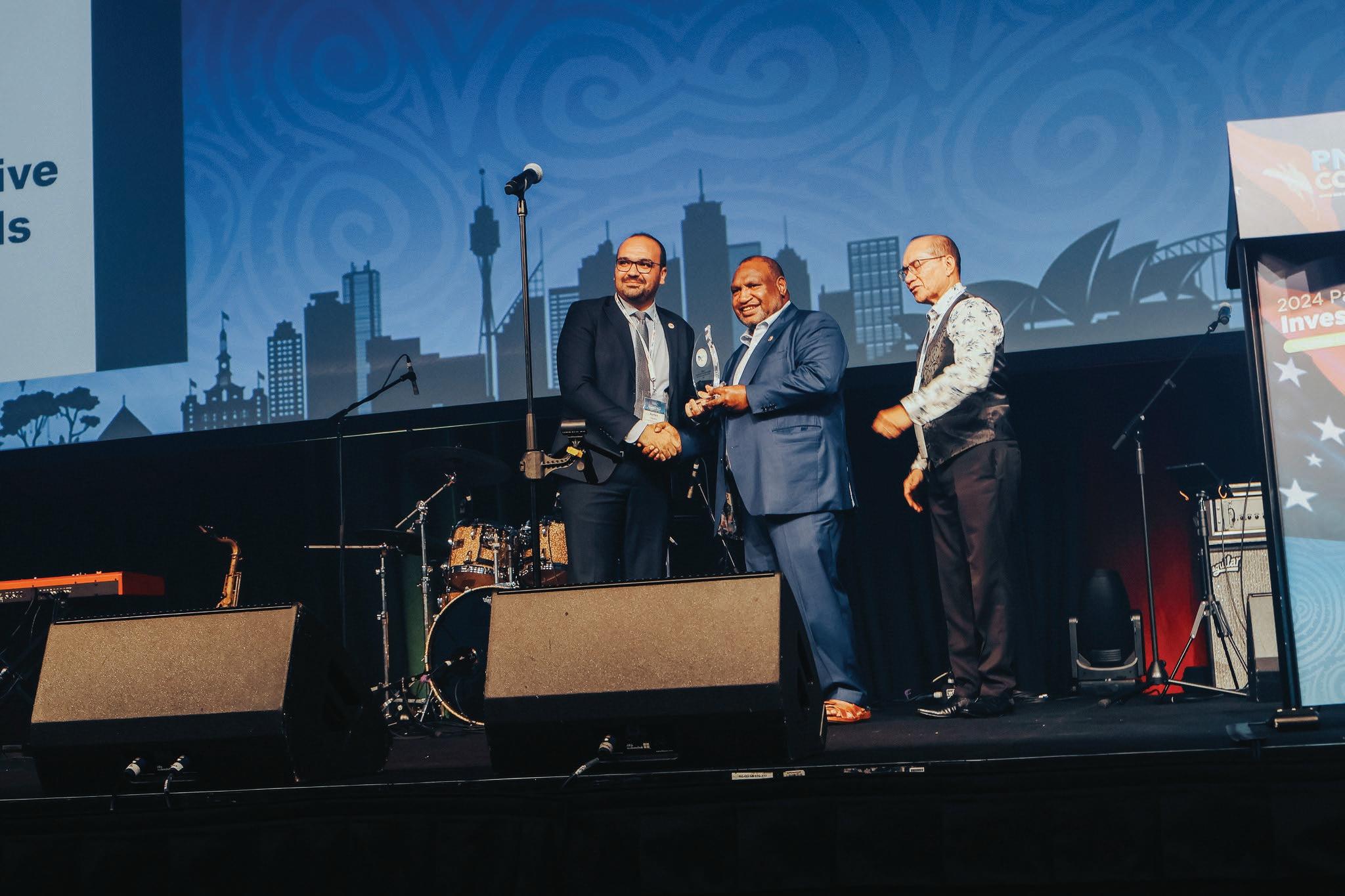
Join us from December 28-31, 2025 at the APEC Haus, Port Moresby, Papua New Guinea.

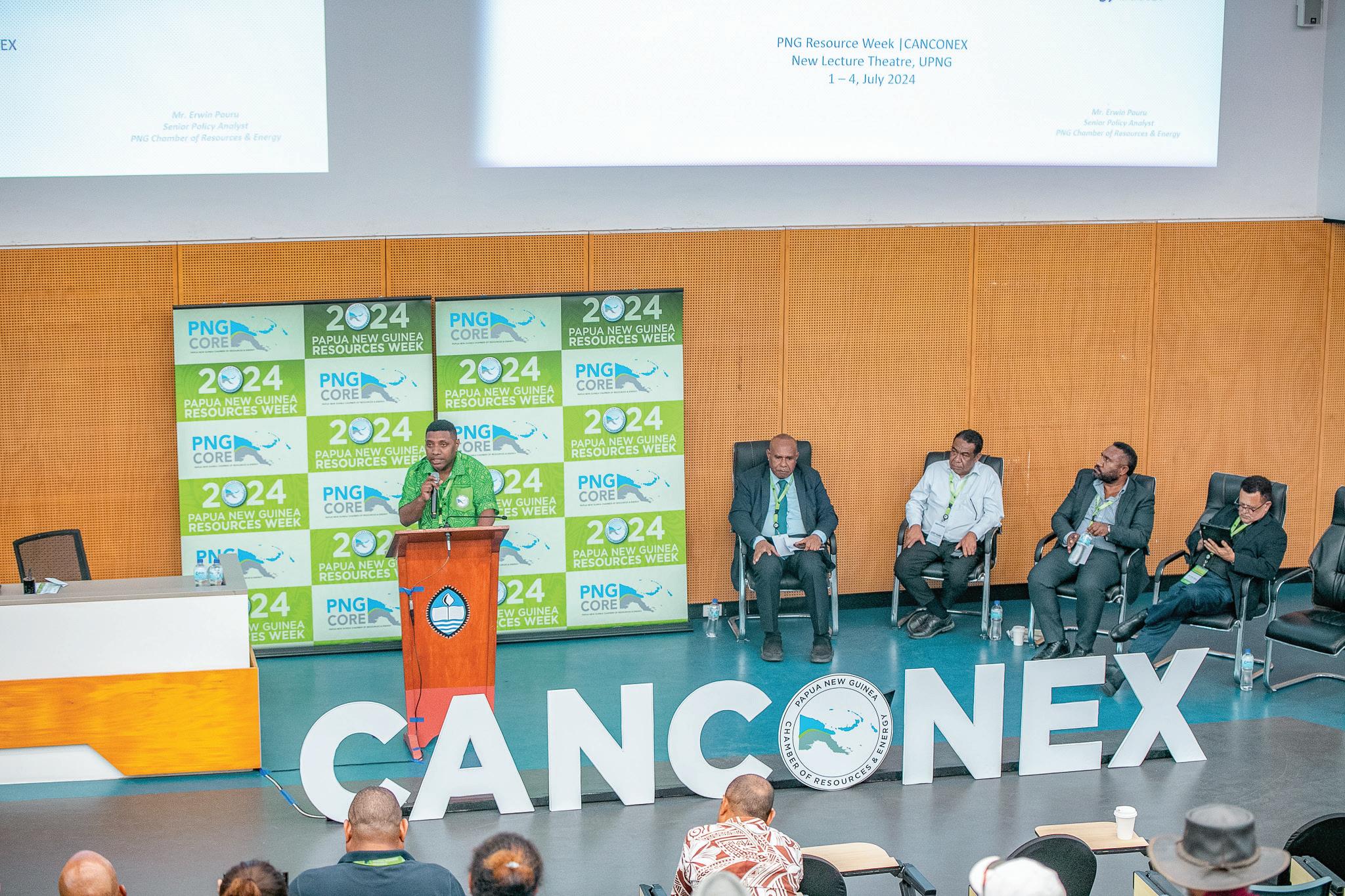
Grand Exhibition on the Resources Sectors’s Impact on PNG’s National Development (1975-2025)

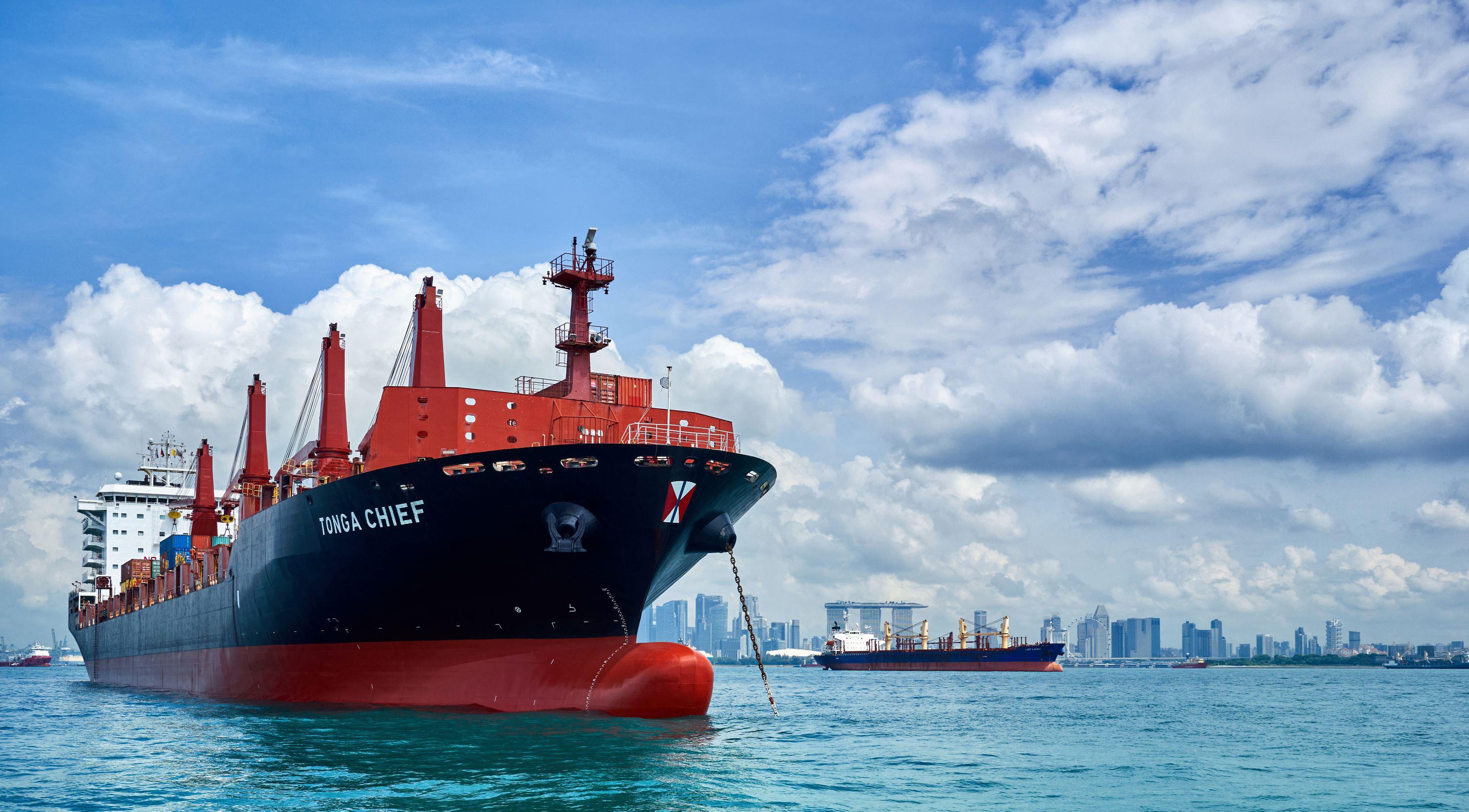
Swire Shipping, a leading shipping company in the Asia-Pacific, announced that three of its vessels serving the South Pacific have made the switch to B24 and B30 2nd generation biofuel blends.
The voluntary move supports Swire Shipping’s long-term sustainability ambitions and will provide more options to customers looking to reduce their emissions.
The vessels involved in the biofuel programme are Apia Chief and Tonga Chief on the Pacific Weekly Express (PWX) service, running direct calls from Southeast Asia to Papua New Guinea, Solomon Islands, New Caledonia and Fiji; and Kokopo Chief on the East Timor (ETS) service, which provides direct service every 10 days between Singapore, Dili, Darwin and Surabaya.
The vessels will bunker B24 in Singapore in the second quarter of 2025 enroute to the South Pacific and subsequently transition to B30.
Swire Shipping’s Chief Executive Officer, Jeremy Sutton, said: “We are committed to reducing our environmental footprint and contributing to a more sustainable future.”
“The island nations of the South Pacific are particularly vulnerable to the impacts of climate change, and this move marks an important step in our ongoing efforts to reduce emissions and support a cleaner, greener shipping industry.”
The biofuel programme brings together Swire Shipping and its sister company, Argent Energy, a waste-based biofuel producer, achieving synergies within the Swire Group to meet the shared goal of delivering sustainable energy solutions to customers.
The collaboration includes an agreement with BP, a supplier of biofuel in Singapore, to explore new feedstocks of marine fuel.
Argent Energy’s Chief Executive Officer, Louise Calviou, commented: “This successful biofuel programme highlights what can be achieved through strong international partnerships, all united by the common goal of decarbonisation.”
“It has been especially rewarding to work alongside our sister company and other partners to accelerate the use of waste derived biofuels. We look forward to continuing our collaborative efforts, with sustainability at the centre of all we do.”
With the launch of its biofuel programme, Swire Shipping will also launch a carbon abatement programme, Voyage to Zero, to help customers decarbonise their supply chains.
Participating customers will receive certificates of emission savings, verified by an independent third party, towards the reduction of their Scope 3 emissions.
“Swire Shipping has ambitious voluntary targets for reduction of emissions by 2027,” said Susana Germino, Chief Sustainability & Energy Transition Officer, Swire Shipping.
“The biofuel programme is a significant milestone in our decarbonisation roadmap, and with Voyage to Zero we are able to offer greater support to customers looking to decarbonise their supply chains. In this first year, the impact of the programme will be comparable to removing 2,700 cars from the road,” she added.
In August 2024, Swire Shipping conducted a successful 2nd generation biofuel B24 trial which allowed the company to test operational readiness to adopt biofuels on its owned vessels for the long term.
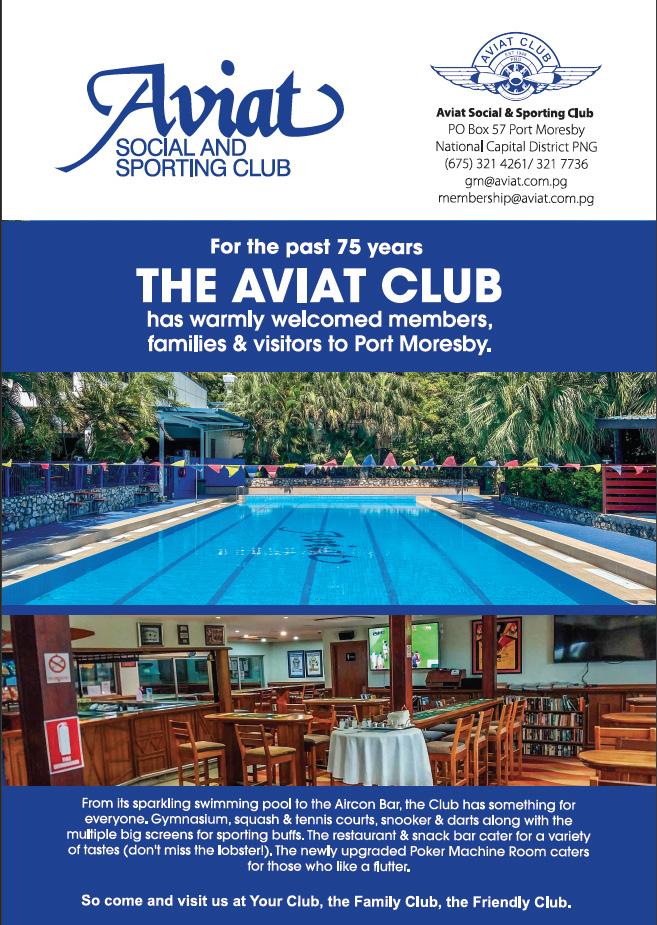
TE (PNG) proudly announced the grand opening of its newly completed showroom on Gabaka Street in Port Moresby, coinciding with the company’s 70th year of operations in Papua New Guinea.
Since its founding in 1955, TE (PNG) has grown into a trusted technology partner for communities across the country.
The new Gabaka Street showroom in the capital city reflects this legacy and the company’s continued investment in delivering modern, reliable solutions to its customers.
With a focus on showcasing its expanding product and service range, the facility has been purpose-built to enhance customer experience and accessibility.
Robbie Huxley, Managing Director since 2018, acknowledged the milestone as both a moment to reflect and look forward.
“I’ve had the privilege of leading TE (PNG) for the past several years, and I’m proud to be part of a team that continues to build on the company’s strong Papua New Guinean roots,” Huxley said.
“This new showroom represents more than just growth—it’s a symbol of our long-standing presence in PNG and our commitment to innovation as the country prepares to celebrate 50 years of independence.”
Mr. Huxley also paid tribute to the company’s staff. “Our success over the years has been driven by the skills and dedication of our Papua New Guinean workforce. They are the backbone of our business, delivering professional solutions to international standards, every day.”
Representatives from government, industry, and the local community attended the launch event. They were invited to explore the new space and speak with TE (PNG)’s team about the company’s CHIBES offerings—Communications, Hospitality Equipment, Information Technology, Broadcast & Audio, Electrical & Hardware, and Security Systems.
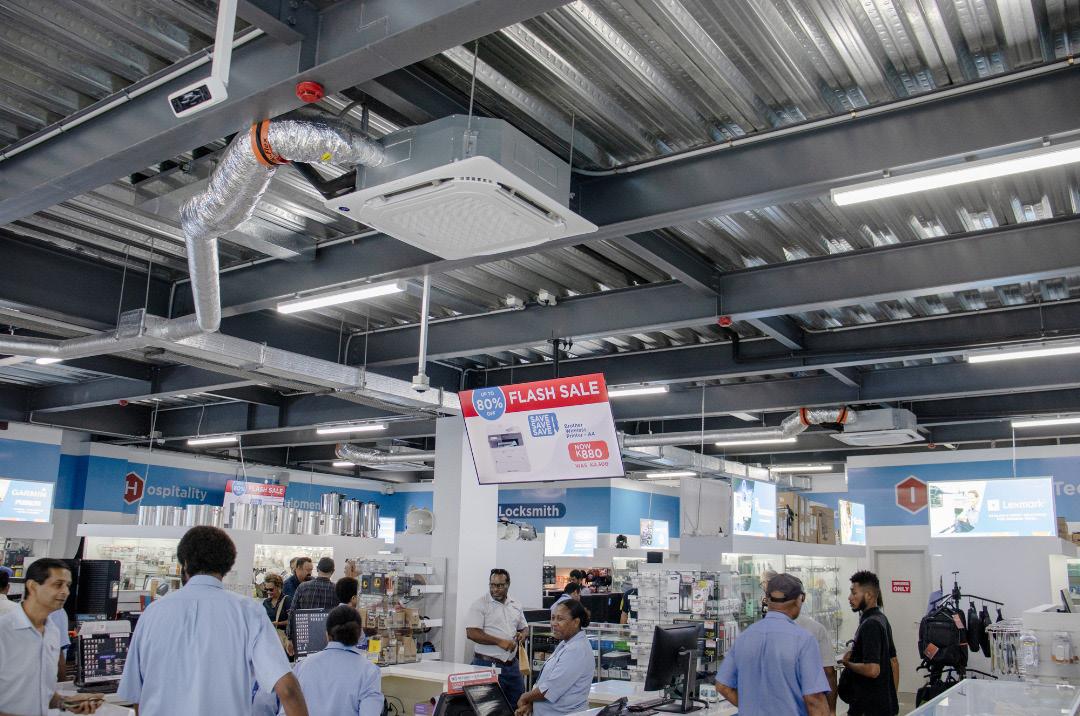
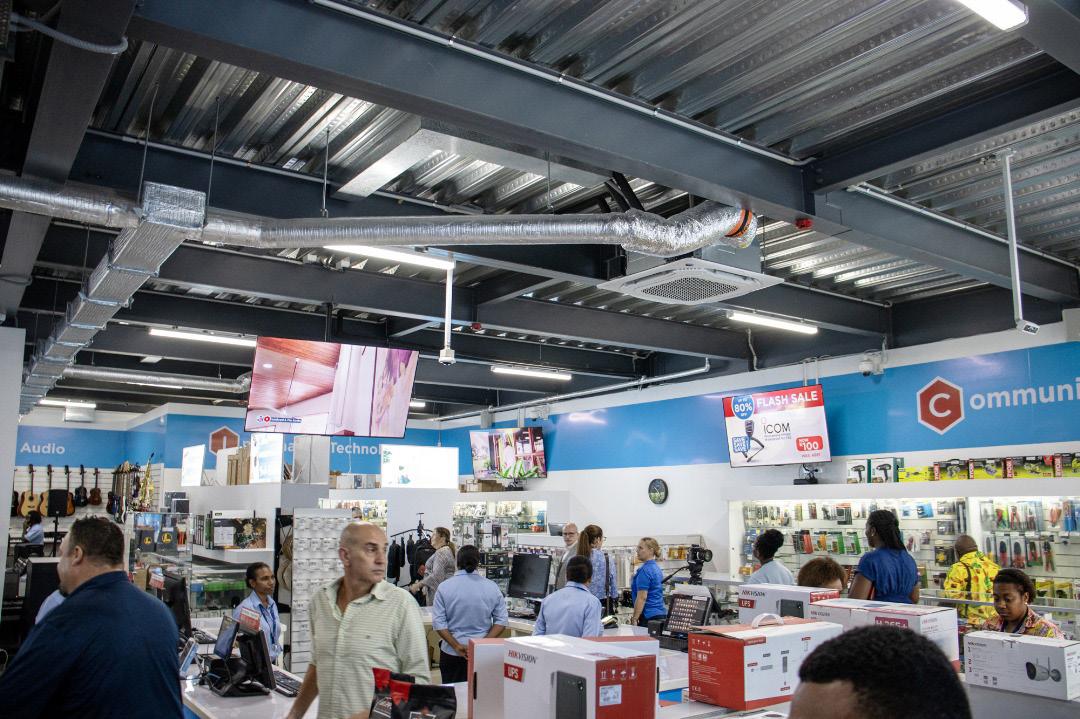
TE (PNG)’s new showroom is now open to the public.
About TE (PNG): Founded in 1955, TE (PNG) is a leading technology integration and solutions provider in Papua New Guinea. With a focus on innovation,



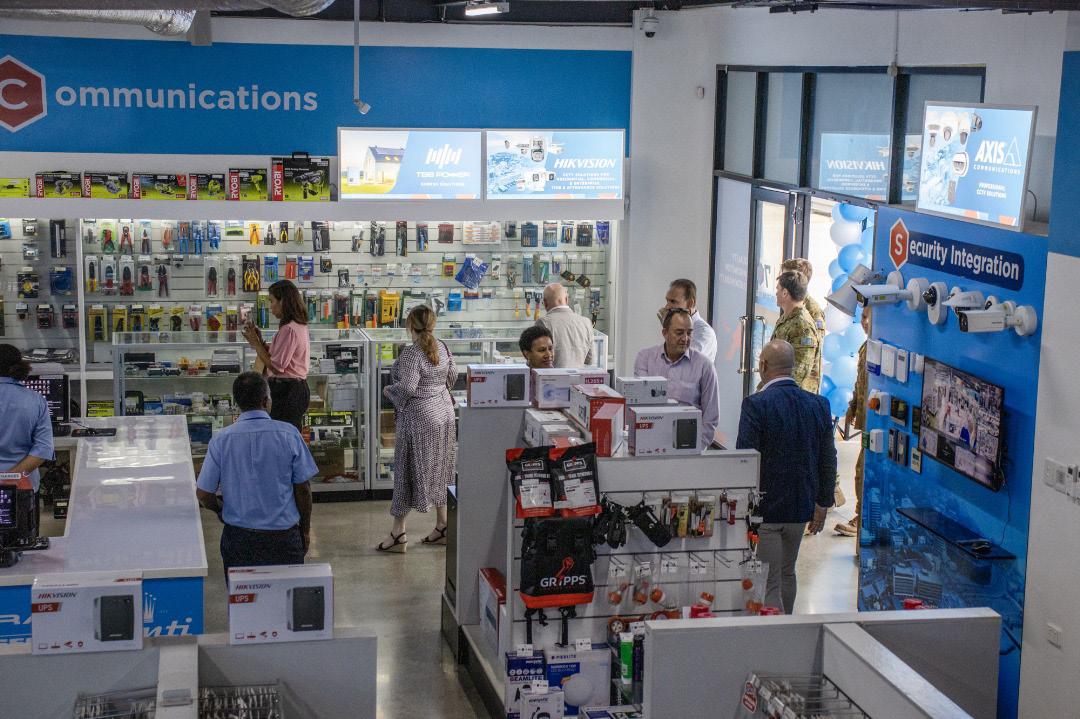
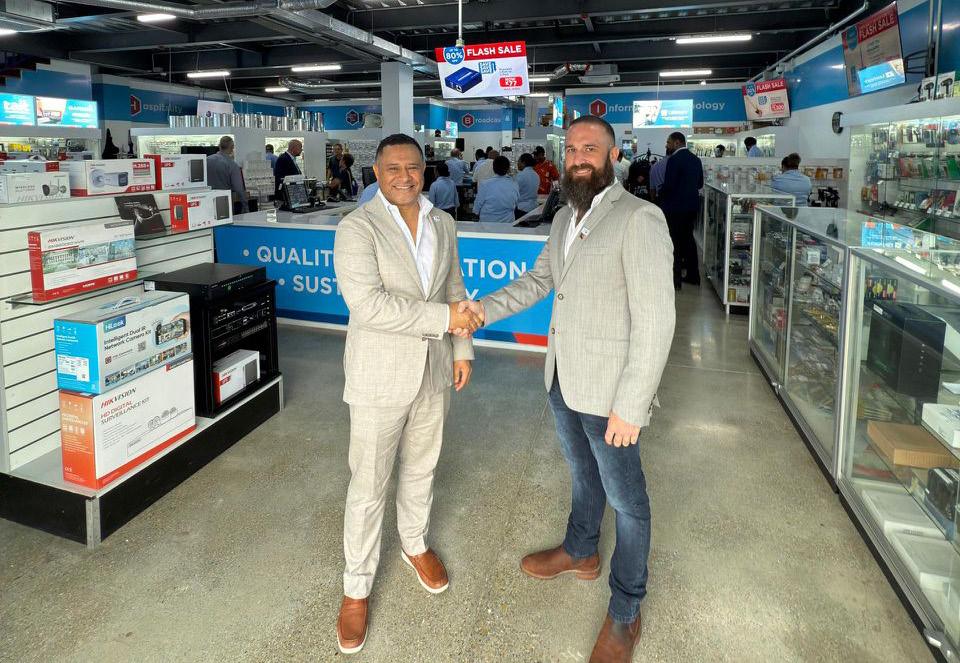
quality, and customer service, the company continues to serve industries and communities across the country. TE (PNG) is committed to developing local expertise and supporting the next generation of technical professionals.






Self- drive
Chauf feur drive
Airpor t transfers
Pick- Up Drop Of f Ser vices
Vehicle Leasing





Fully-maintained operating vehicle leasing packages.
Fleet Tracking services.
Chauffeur drive available upon request .
Pick -up Drop - off services.
Self- drive hires
Full automotive and repair facilities
Visit us at Port Moresby, Lae, Wewak , Madang, Kiunga , Kokopo, Rabaul , Kimbe, Kavieng & Mt Hagen.

Contact Us:
In today’s fast-paced digital world, technology is no longer optional—it’s essential. For organizations across Papua New Guinea and the Pacific, VirtualFlex Solutions Limited is at the forefront of making digital transformation both achievable and impactful.
Founded in 2013, with operations in PNG established in 2020, VirtualFlex has rapidly become one of the region’s most trusted technology partners.
With strong foundations in India, New Zealand, and Australia and a skilled local team in Papua New Guinea, VirtualFlex combines international expertise with deep local knowledge to deliver powerful, future-ready ICT solutions.
VirtualFlex Solutions Limited is more than just an IT company—it is a committed transformation partner, with a mission to empower governments, enterprises and institutions of all sizes by delivering advanced, tailored technology solutions that drive progress.
With core expertise in ERP implementation, cloud computing, cybersecurity, data analytics, and digital transformation consulting, its team brings over 100 years of combined experience across key industries like healthcare, manufacturing, finance, and education.
This experience allows VirtualFlex to build scalable solutions that evolve with the client organization’s needs.
Whether it’s implementing a full-scale ERP system, modernizing IT infrastructure, securing digital assets, or enabling intelligent decision-making through data, VirtualFlex supports every stage of the digital journey. Its end-toend digital transformation services include:
• Enterprise Resource Planning (ERP)
• HRMS and Payroll
• Project and Asset Management
• Hospital and University Management Systems
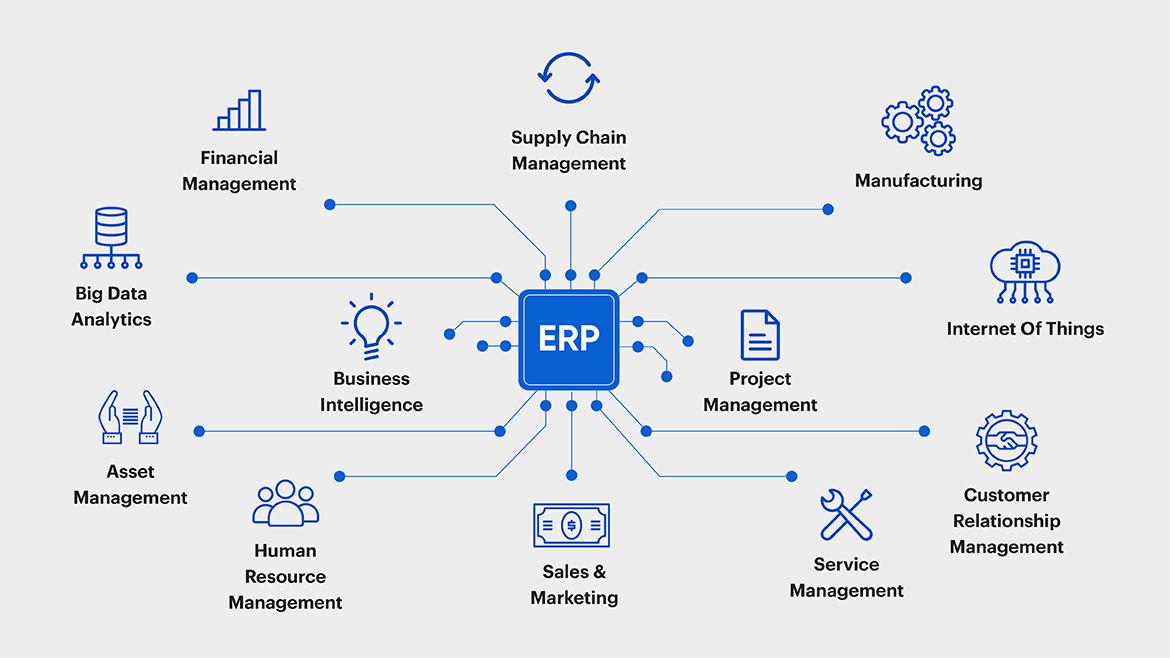
• Data Analytics and AI/ML Solutions
• Website and Mobile App Development
• Electronic Document Management System (EDMS)
• E-Governance Solutions and much more.
Built on a cloud-ready, modular, and secure architecture, its solutions support auto-scaling, multitenant environments, and seamless integration—allowing business to grow without ever needing to replace the system.
In addition to software and digital tools, VirtualFlex leads in IT Infrastructure Services, ensuring organizations have the solid foundation needed for secure, reliable, and scalable operations. Its infrastructure services include:
• End User Computing
• Datacentre Infrastructure
• Digital Security Solutions
• Data Protection & Disaster Recovery
• Network & SD-WAN
• Telephony & IP PABX Systems
• Audio/Video Solutions
• Power Solutions
• IT Specialization Training These services are designed to enhance uptime, reduce risk, and support mission-critical environments with future-ready solutions.
Whether setting up a data center, securing a network, or training a team, VirtualFlex ensures the business is built for the future.
Local Support with Global Reach: VirtualFlex deliver worldclass solutions with the personal touch of a local partner—ensuring alignment with regional needs and priorities.
Deep Experience and Industry-Specific Knowledge: With a seasoned team that understands public sector and enterprise needs, we bring practical insights and technical precision to every project.
Scalable and Cost-Effective Delivery: Our solutions are built to scale, balancing high quality with affordability to help clients achieve long-term value and measurable return on investment (ROI).
VirtualFlex goes beyond providing IT services—it becomes long-term partners in transformation. Emphasizing transparency, collaboration, and ongoing support, its ensures that clients are empowered not just during the project, but long after deployment.
“Together, we build smarter systems, stronger infrastructure, and a brighter digital future for Papua New Guinea and beyond,” the company said in a statement.



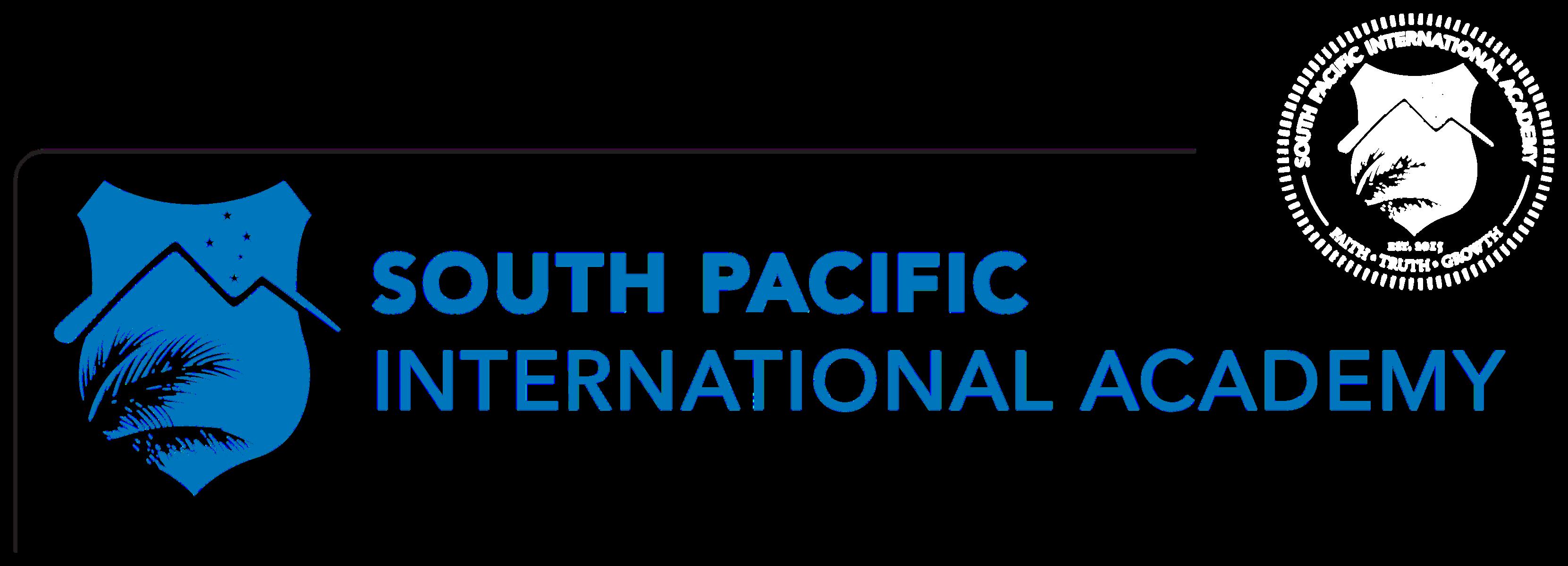










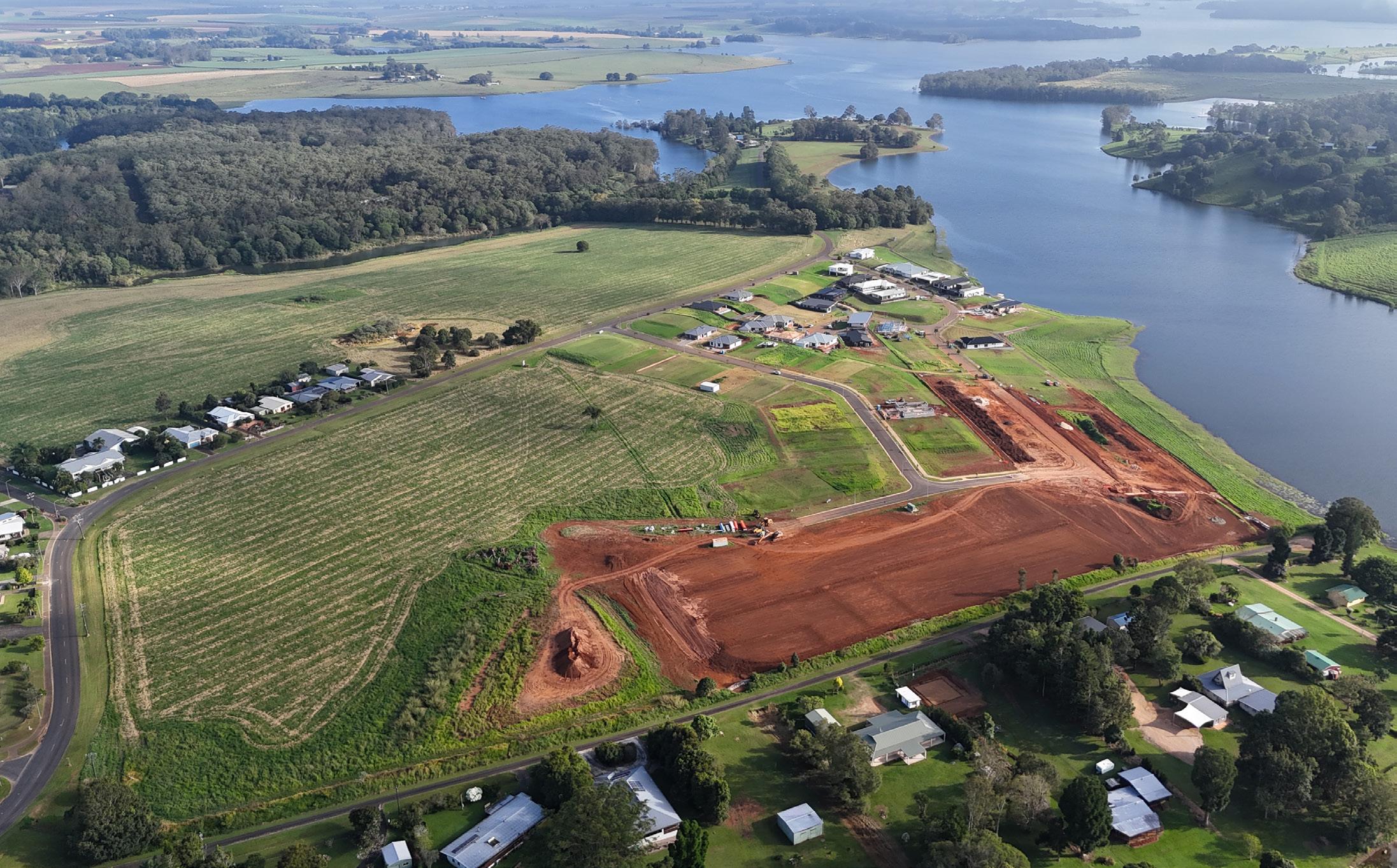
Excitement is building at the Yungaburra Waterfront Estate! Stage 9 is rapidly taking shape and is 70% completed. Yungaburra Waterfront offers lasting lakeside opportunity for you to build your dream home in a prime location. Large, flat lakeside blocks will be available soon!
Now’s your chance to secure a rare lakeside lifestyle on the edge of stunning Lake Tinaroo.
HERE ARE SOME FEATURES:
- Lot sizes from 700m² to 753m²
- Absolute proximity to Lake Tinaroo
- Premium, fully serviced homesites
- Bitumen roads, underground power, town water & NBN ready
- A peaceful lakeside community
- Just minutes to Yungaburra Village and only 1 hr 15 mins from Cairns
- Elevated at 700 metres for cooler temperatures and fresh air
- Minutes to Malanda & Lake Eacham
Located in the heart of the Atherton Tablelands, North
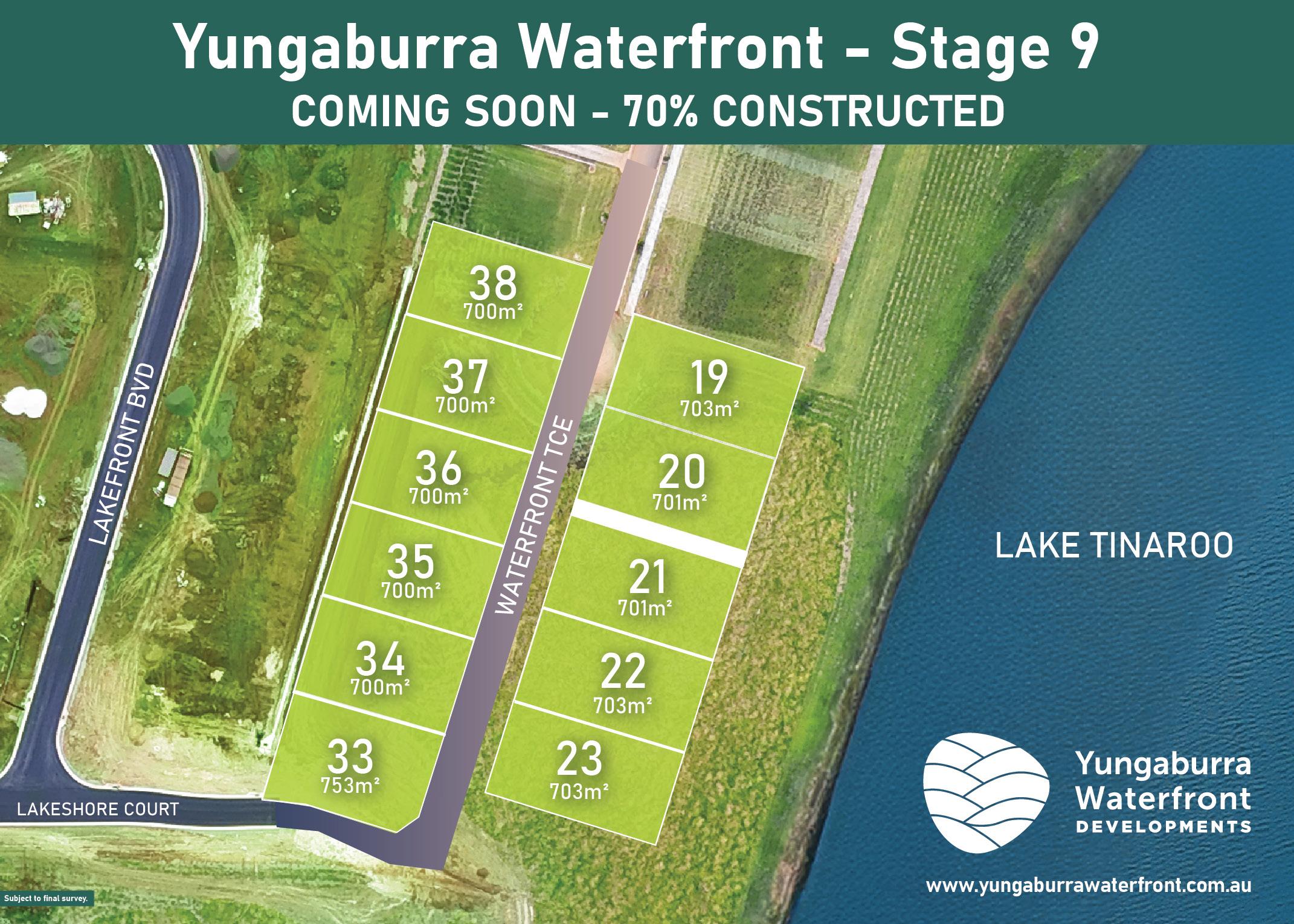
Queensland, Yungaburra Waterfront is a prestigious estate offering an idealized lakeside lifestyle.
Right at the charming town of Yungaburra and bordering the serene waters of Lake Tinaroo, this development features both coveted direct waterfront properties and
stunning lakeview residential blocks, creating a unique opportunity for buyers seeking a peaceful and picturesque retreat.
Don’t miss this exceptional opportunity to embrace a tranquil lakeside lifestyle on the shores of picturesque Lake Tinaroo.
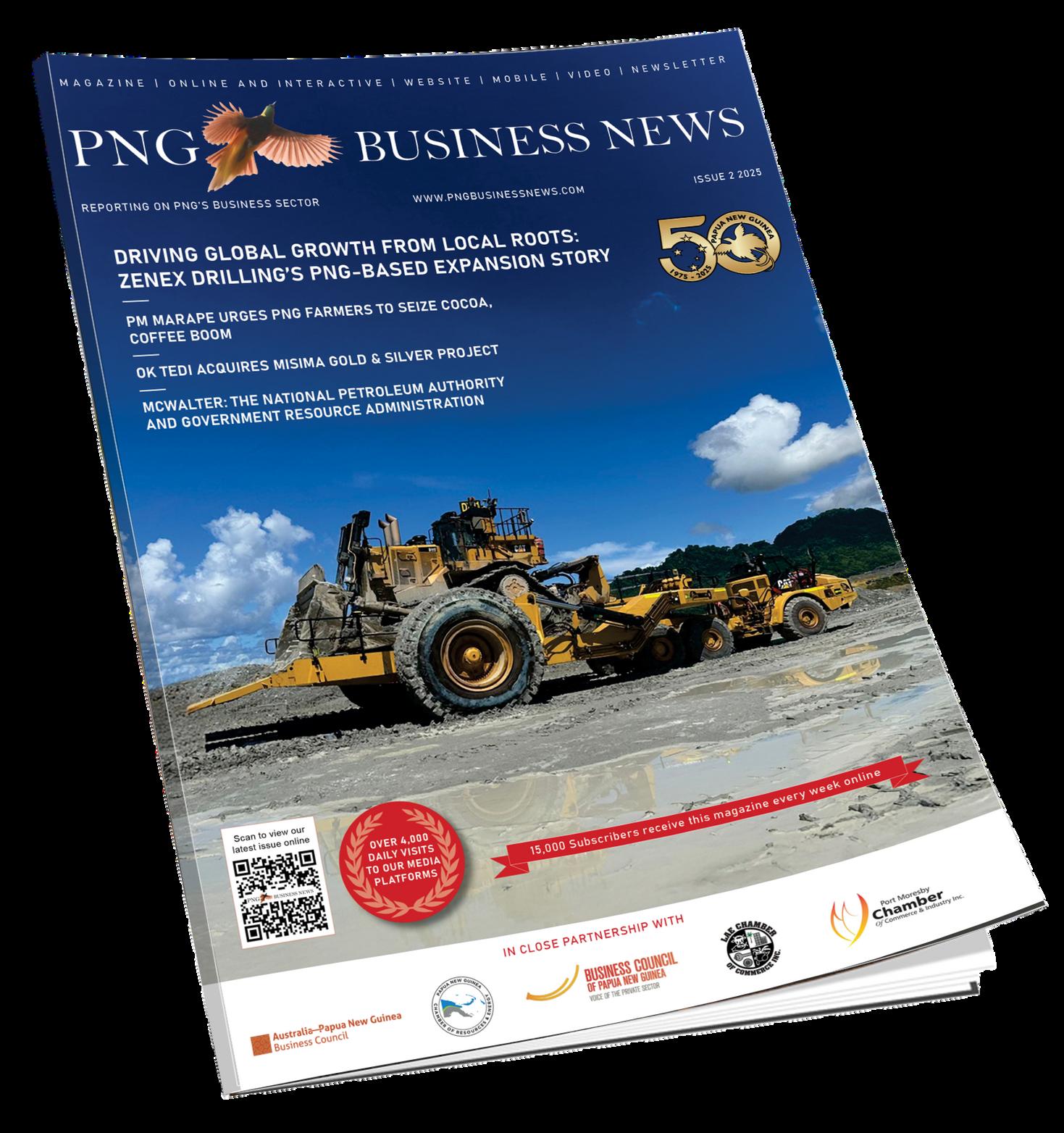

Every week, 15,000 subscribers receive PNG Business News online. In 2024, our media platforms attracted over 1 million visits!

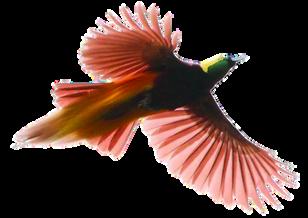



PNG Business News offers both print and digital advertising The online digital magazine is interactive and read by thousands Your company advert will be hyperlinked to your website, as well as the option to embed a corporate company video
PNG Business News currently has 15,000+ weekly newsletter subscribers. Each newsletter is interactive and all of our advertising partners have their company logo shown with a hyperlink to their website.
Our website had over 280,000+ views in 2024! All advertising partners have their company logo on our website, which is hyperlinked to their website
PNG Business News offers social media exposure to our advertisers PNG Business News had a total of 1,102,193 social media impressions in 2024! As of July 2025, Our LinkedIn has 28,700 followers and Facebook page has 8,900 + followers. Our social media accounts are updated daily with the latest business news in PNG
By: ROSELYN EREHE PNG’s Leader in Packaging and Mining Supplies
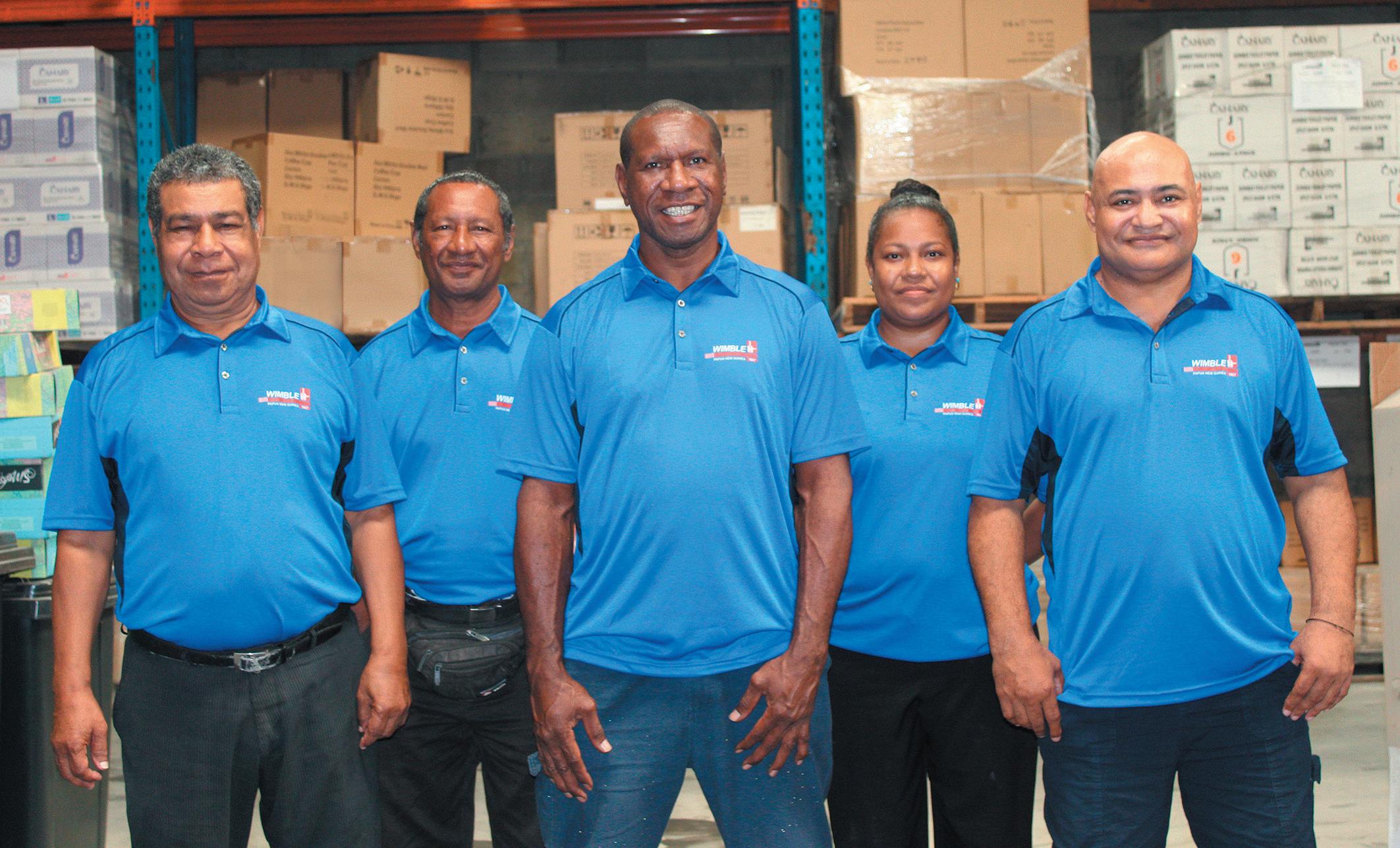
Wimble & Co. Ltd is more than just a trusted supplier of printing products and ink; it is a diversified industrial solutions provider with over a century of experience supporting Papua New Guinea and the Pacific.
Proudly PNG-owned and operated for over 100 years, Wimble has grown into a nationwide enterprise, meeting the evolving needs of companies, organisations, and individuals with a vast portfolio of goods and services.
Part of the BNG Trading Group of Companies which includes BNG Trading, PNF (Papua Niugini Freezers), Blue Planet Logistics, Bilkpla Net, Antap/Quick Buy, and PNG Koitaki Protein Park, Wimble has historically been known for supplying printing and graphic arts materials throughout PNG and the South Pacific.
But over the last decade, the company has expanded its reach and now leads in sectors such as packaging, mining, chemical supply, and sustainability-focused solutions.
The company’s head office is based in Port Moresby and has branches in Lae, Wewak, Mt Hagen, Kiunga, Alotau, Kokopo, Manus, and Buka, Wimble is located to provide
unmatched coverage and logistical support across all major regional centres.
Wimble’s impact is most evident in the resource and mining sectors, which remain central to PNG’s economy.
Over the past two years, Wimble has invested heavily in expanding its mining-focused offerings, from improved cleaning chemical formulations to environmentally compliant packaging and reagent storage.
Edeck Gula, National Mining Sales Manager in an exclusive interview with PNG Business News, described Wimble as a “supply chain giant with a competitive edge.”
With bulk storage yards and two large distribution warehouses in Port Moresby and Lae, Wimble meets the large volume demands of industrial and mining clients. A new dangerous goods facility at Motukea in Port Moresby is also being developed to safely house hazardous chemicals and reagents.
“A lot of these mines will come to Wimble for supplies, ‘I need 400 cartons of something.’ That’s why
we hold large stocks to meet demand instantly,” said Mr Gula.
Their extensive mining catalogue includes:
• Cleaning chemicals (laundry, industrial, janitorial)
• Degreasers and vehicle maintenance cleaners
• Drilling fluids and haul truck wheel corrosion inhibitors
• Water treatment chemicals (liquid, powder, tablets)
• Bulk reagents (hydrated lime, borax, aluminium sulphate, carbon & floatation reagents)
• Personal Protective Equipment (PPE)
• Oil/fuel absorbents and wiping cloths
• Hygiene paper products and dispensers
• Catering consumables and packaging
• Cleaning accessories and brush ware
• Stationery for administrative operations
Wimble currently supplies more than five mining sites, including their affiliated catering and contracting companies, and maintains long-term contracts that are reviewed regularly to ensure product relevance and value.
Wimble is now recognised as PNG’s leader in packaging, especially for the food service and mining camp markets, where the need for environmentally responsible solutions is growing.
The company is promoting a wide range of eco-friendly, compostable, and recyclable packaging products to reduce landfill waste and support clients’ environmental goals.
Their sustainable range includes:
• 750ml Cornstarch Containers
• 3-Part 1200ml Containers
• Medium Brown Kraft Lunch Boxes
• 100% recyclable pulp-based containers
• Wooden cutlery, paper bags, and compostable materials
These biodegradable products, made from renewable resources like cornstarch and polylactic acid, are toxin-free and ideal for high-waste environments such as mining camps.
Wimble & Co. Ltd plans to showcase these innovations at the Industry Expo 2025 in Port Moresby to raise awareness across the mining, petroleum, industrial and hospitality sectors.
One of Wimble’s greatest assets is its experienced and skilled workforce, a team that includes chemists, graphic printing veterans, and commercial managers who bring decades of technical and industry specific knowledge.
This in-house expertise enables the company to offer customised solutions, direct manufacturer liaison, and training for clients in need of tailored cleaning chemicals or specific packaging formats.
“I have chemical background, and my previous work was in product formulation and development. This greatly assisted in satisfied customers. So, I bring that expertise to the business. Similarly, my colleagues are also experts with more than 30-40 years in their field of profession. This is another great point about Wimble, team experience and expertise,” Edeck shared.
This strong technical support is complemented by a dedicated national sales team, backed by product development personnel and training services to ensure clients not only receive quality products but also the
knowledge to use them effectively.
Recognising the need to adapt to changing consumer behaviour, Wimble Co & Ltd is undergoing a digital transformation.
A redesigned website and active social media presence (notably on Facebook) are already in place, with plans underway to launch retail stores in Port Moresby and Lae. These outlets will bring Wimble’s wide-ranging product portfolio including everything from industrial chemicals and PPE to stationery and food containers closer to local consumers.
Whether it’s delivering floor cleaner, reagents, lunch boxes, or chlorine tablets, Wimble continues to expand its impact and offerings in tune with PNG’s industrial and environmental evolution.
Mr Gula added; “The message is simple, ‘Wimble can sell you toilet paper, and can sell you hydrated lime. Our approach is, we want to sell you the benefits such a clean car and not just a vehicle wash. We are a whole lot more now.’”

Ad Works Media
AES
AG Energy
Agmark
APCS
Argo Marine
Ark Pacific
Atlas Steel PNG
Aviat Club
Bishop Brothers
Black Swan
Blue Water Shipping
Boroko Motors
BSP
Budget Car rental
Business for Health
CC Pacific Ltd
Central Business System
Consort
Coral Coast Migration Service
Coral Seas Hotel
CPL Group
Credit Bank
Crossroads Hotel
Crown Hotel
CTRL Print Group
Daltron
Datec
Digitec ICT
Don Kyatt Group
Dunlop PNG
Eagle Exports
East West Transport
ECM
Expac
Express Freight Management
ExxonMobil
FX Business Centre
Golden Shipping
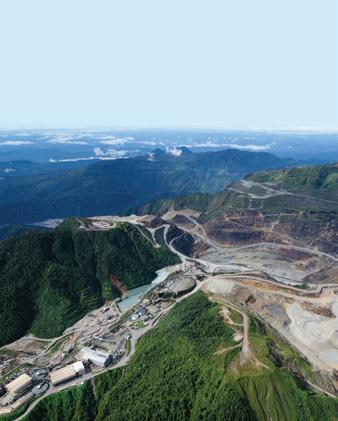
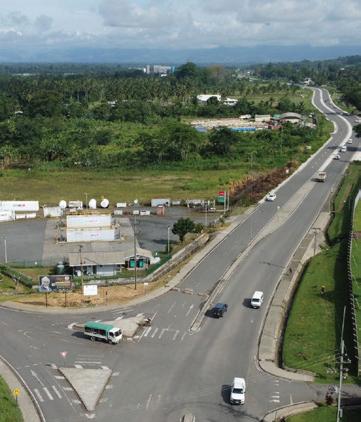
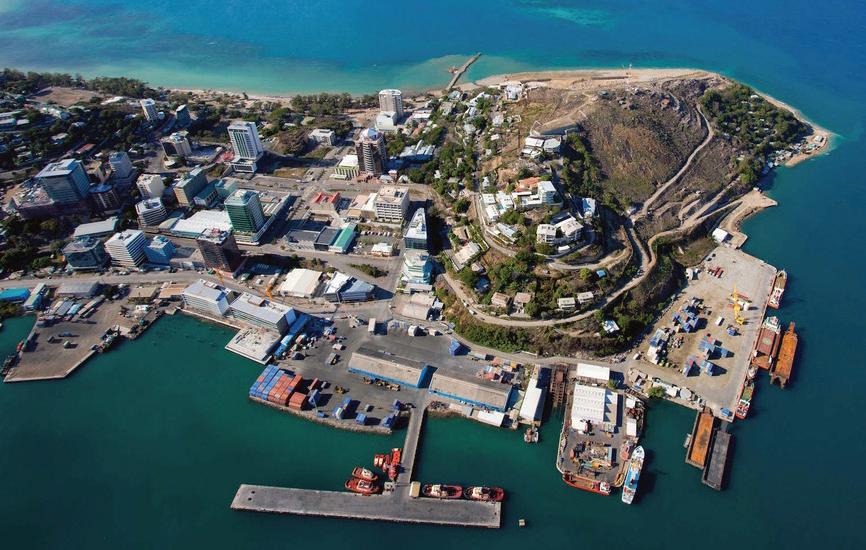
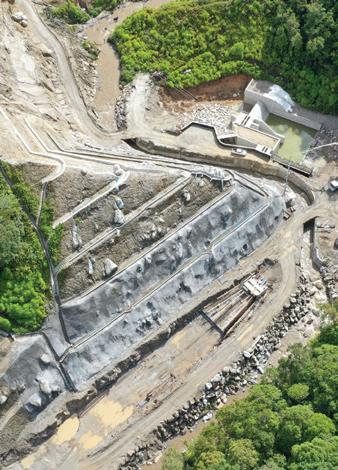
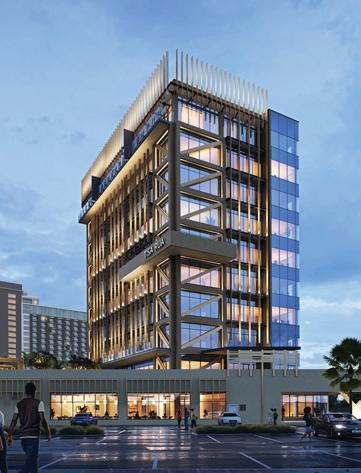
Green Hills Accomadition
Hastings Deering Hertz
Hornibrook NGI
Huon Logistics
Hydraulink Niugini
IEA
International SOS
iPi
Islands Petroleum
Joint Venture Port Services
Jokema`s Inn
Kenmore Properties
Kina Bank
Komatsu
Kramer Asia Pacific
Kundu Finance
Lae Biscuit Company
LAE CCI
Lamana Dental Clinic
Life care PNG
Mapai Transport
Markham Culverts
Marriott Apartments
MMD
Moni Plus
Nambawan Super
Nasfund
National Institute of Standards and Industrial Technology
NCI Packaging
Nipco Enterprises
Niugini Assurance
NiuPower
Ok Tedi Mining
Pac Super Pacific Energy Aviation
Pacific MMI Insurance Ltd
Pacific Palms Property
Pacific Towing
Paga Hill Development Company
Persans
Petroleum & Energy Conference
PNG Business News
PNG Chamber of Resources & Energy
PNG CR
PNG Dataco
PNG Eden Agriculture Supplies
PNG Forest Products
PNG IBBM
PNG Mining & Petroleum
Hospitality Services
PNG Motors
PNG Ports Corporation
PNG Solar Supply
POMCCI
Port Moresby Electrical
QED
Quality Group
Remington Technology
Resources & Investment Finance Ltd
Santos
Shieldcrete South Pacific
South Pacific International Academy
Steamships
Swire Shipping
TE PNG
The Stanley Hotel and Suites
Tolu Minerals
Trans Niugini Tours
VirtualFlex Solutions
Vodafone
Westpac
Wimble
Workforce South Pacific
Yungaburra Waterfront Developments
Zenex Drilling






